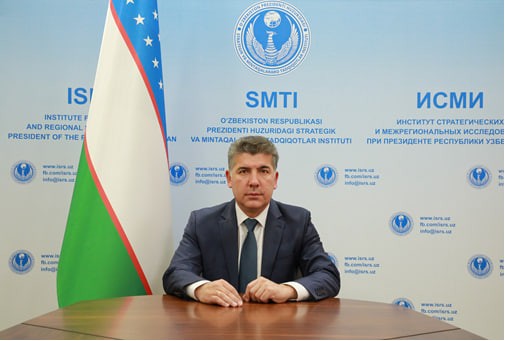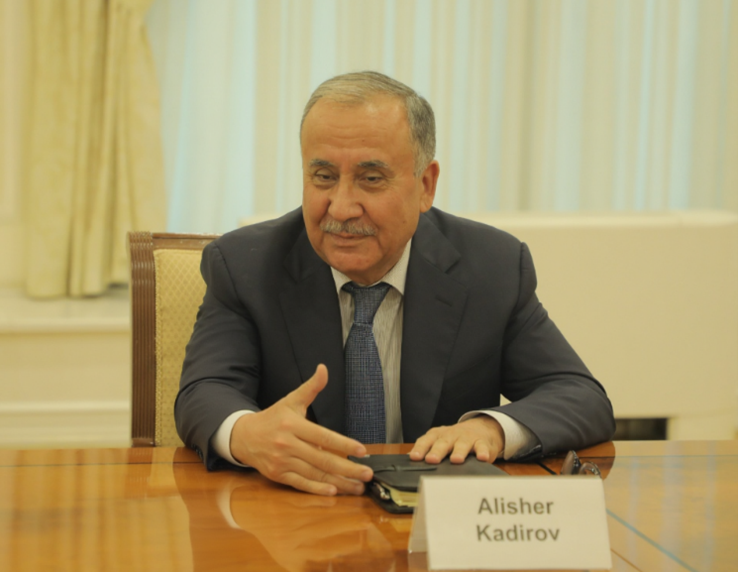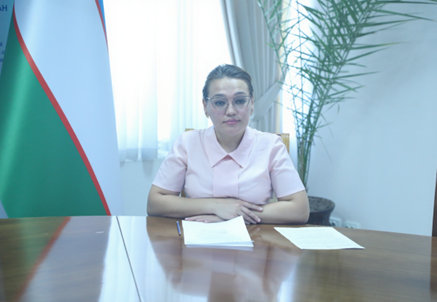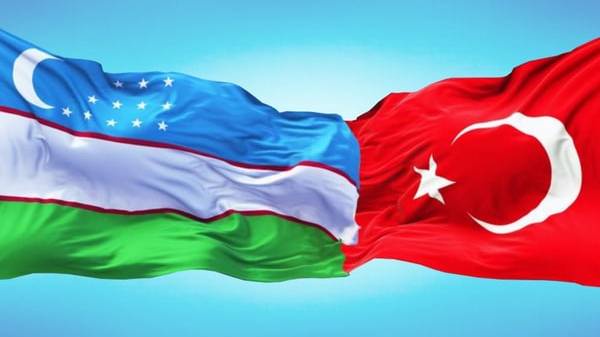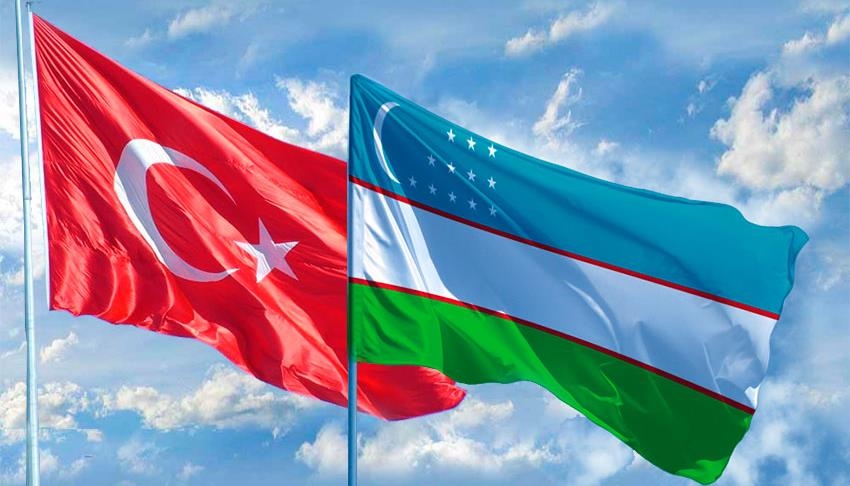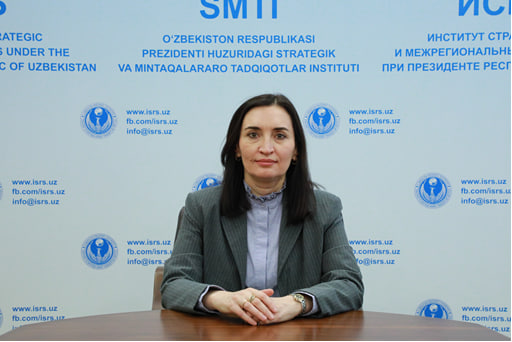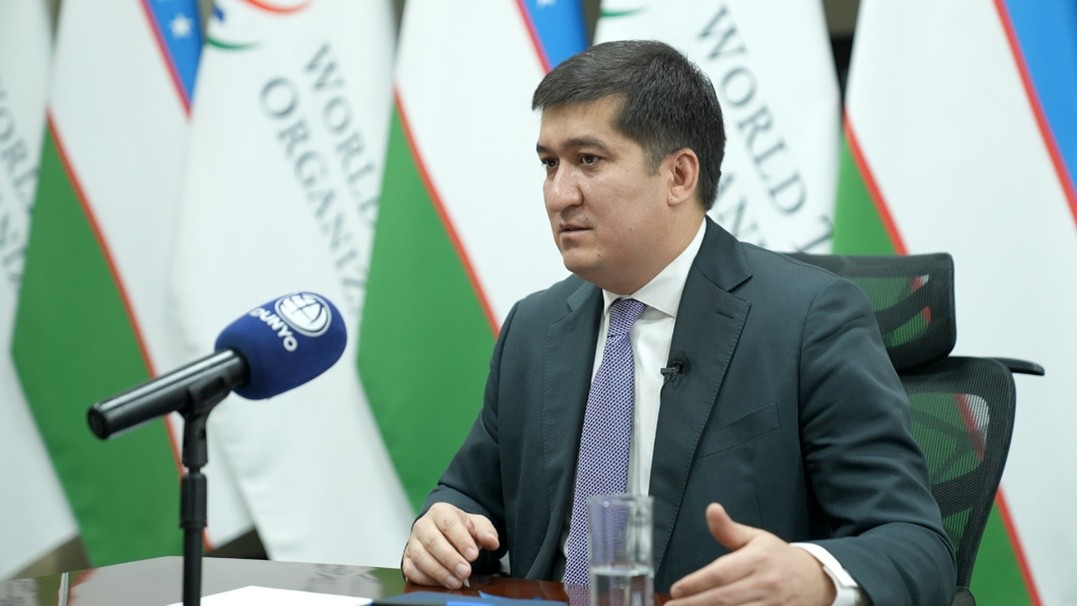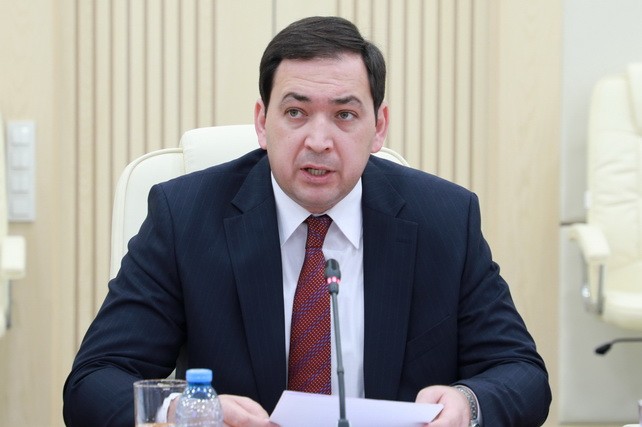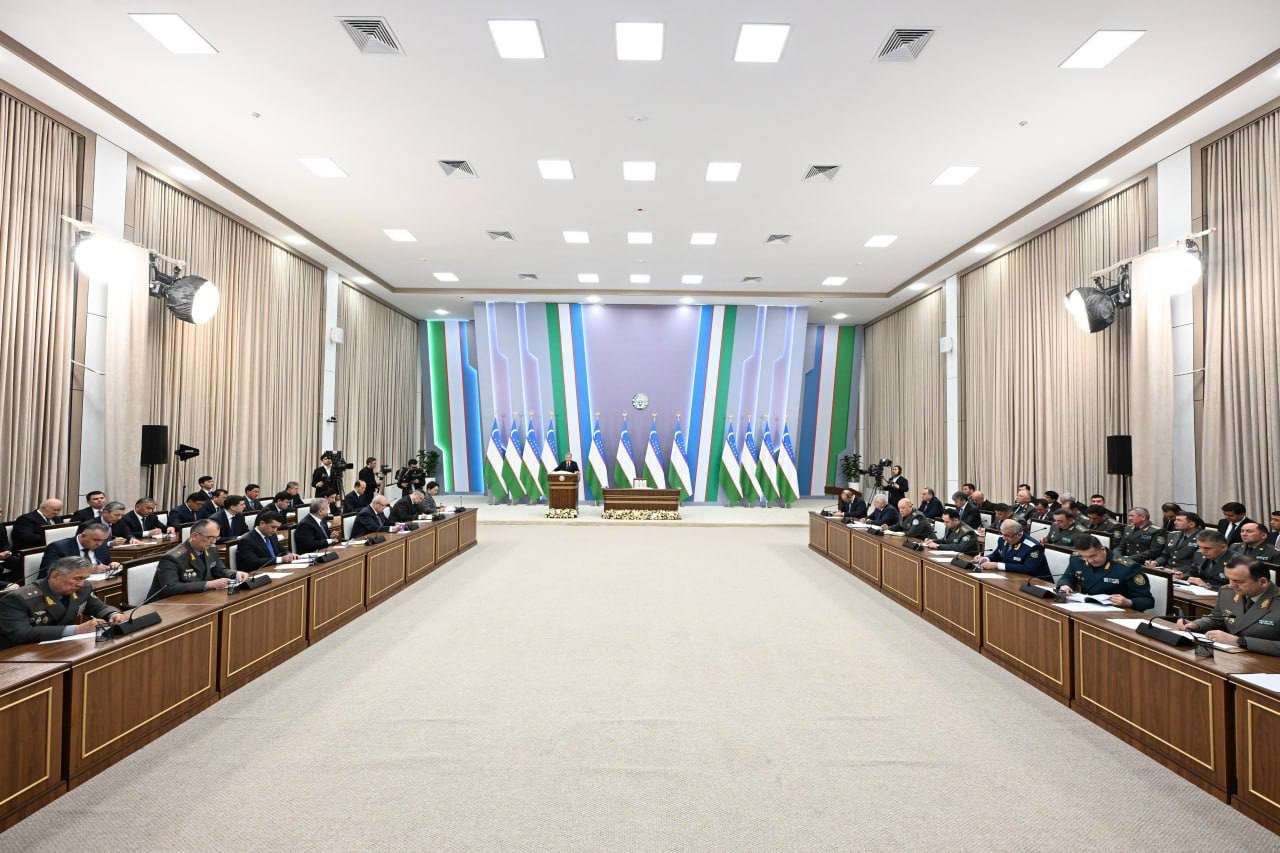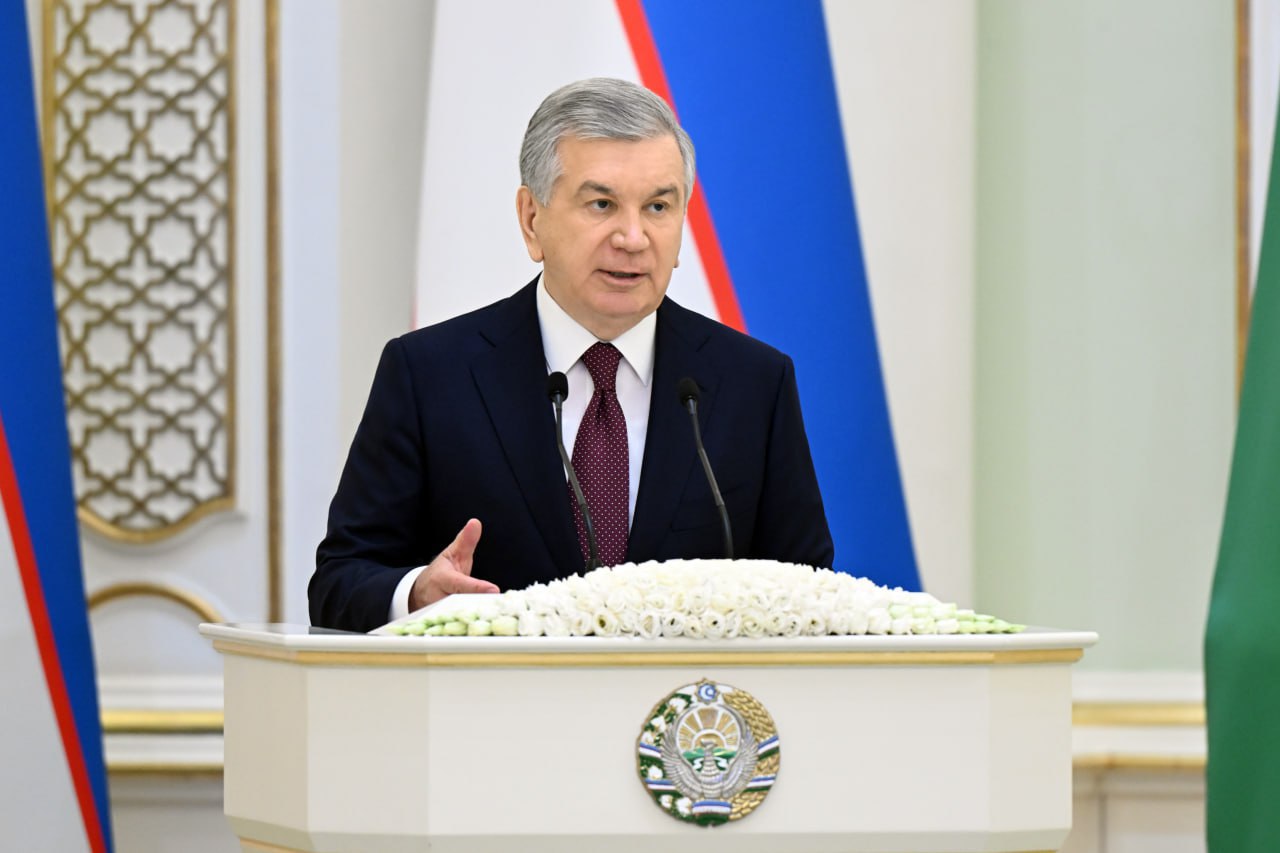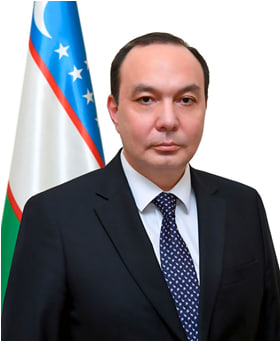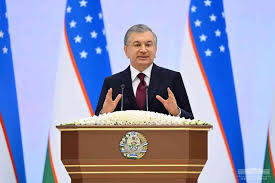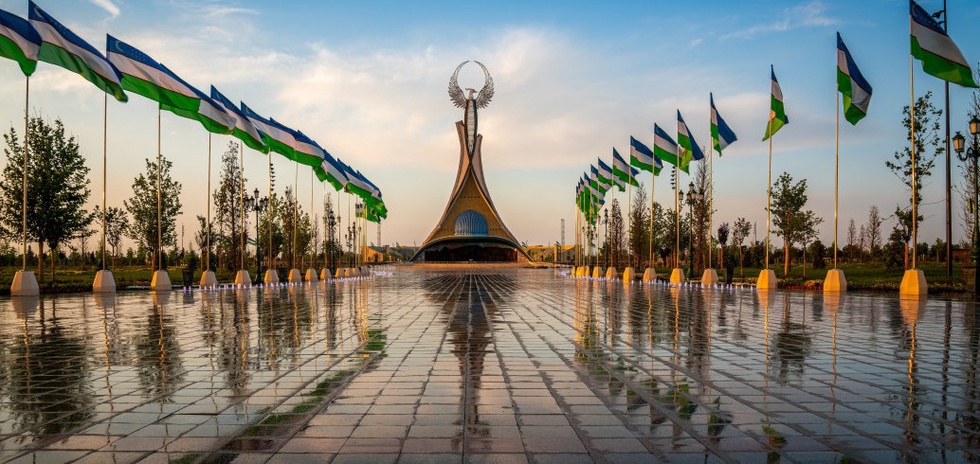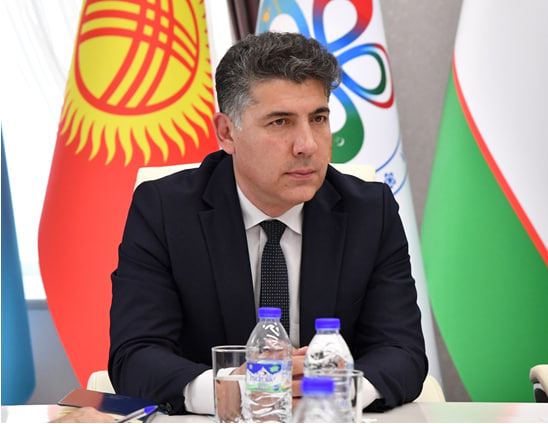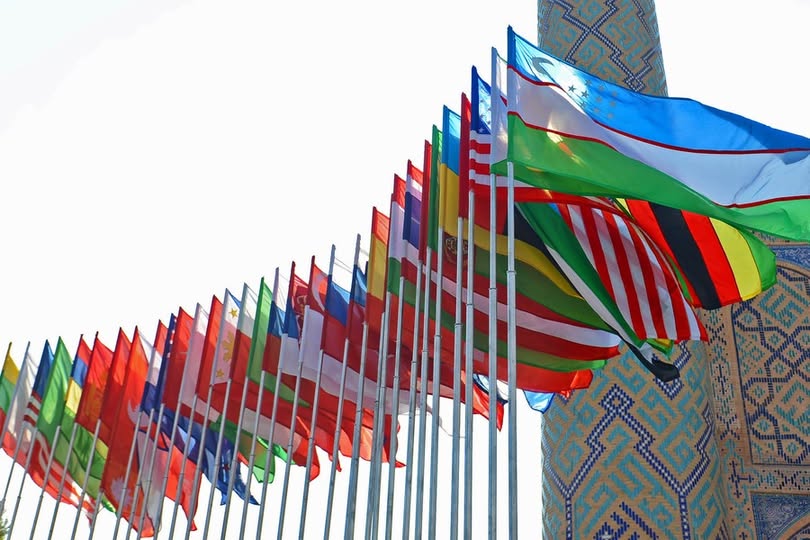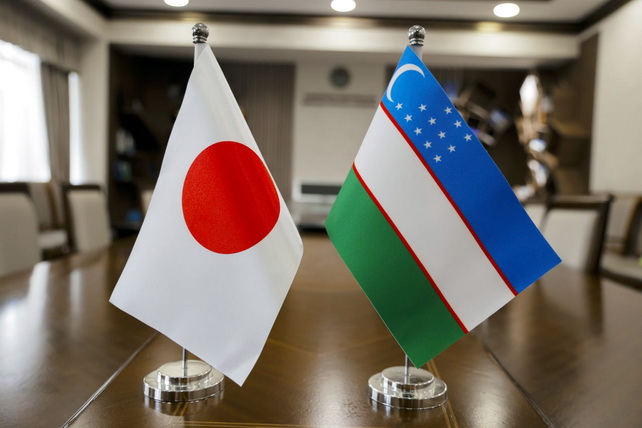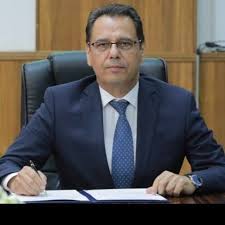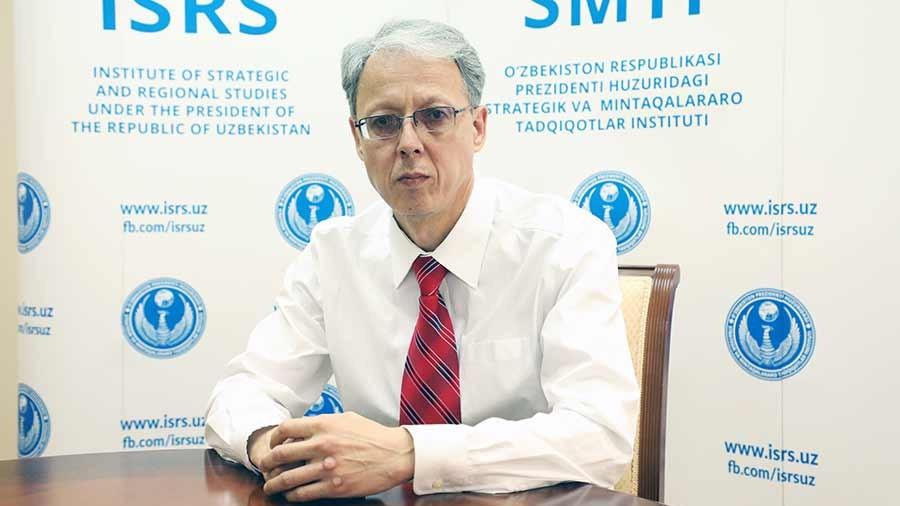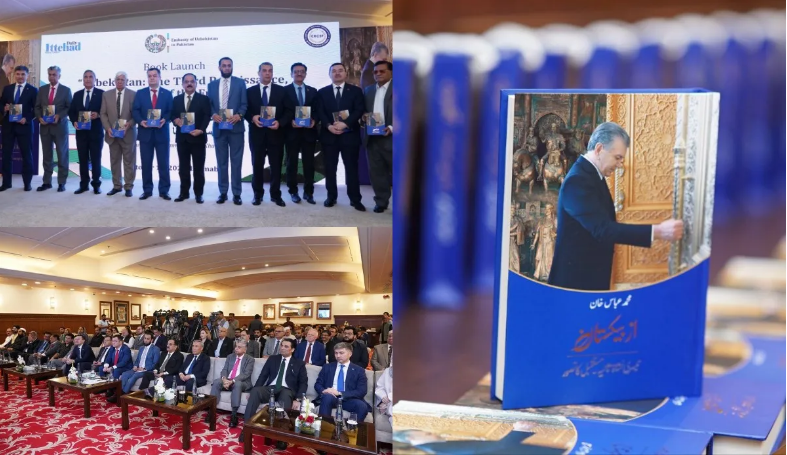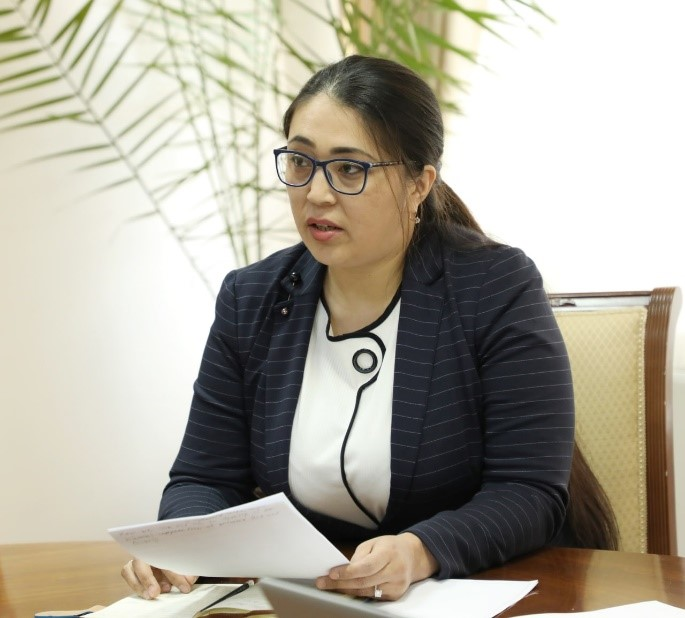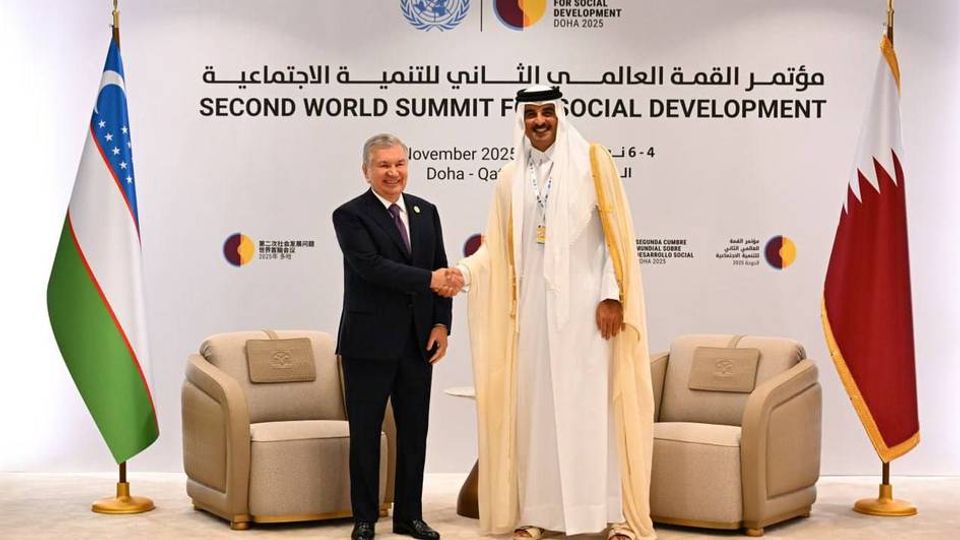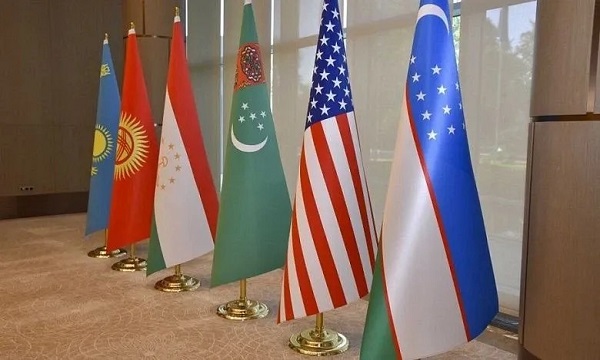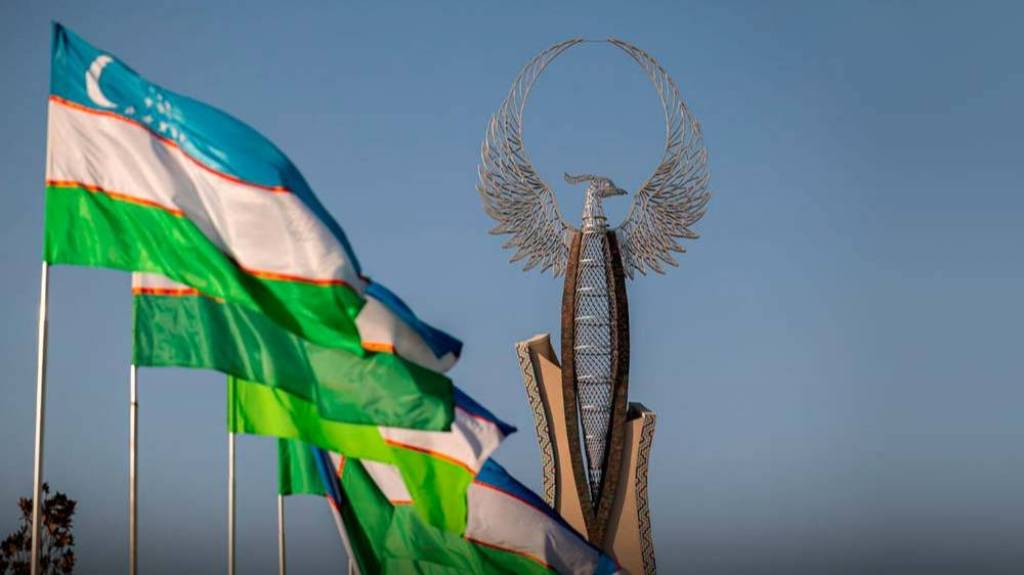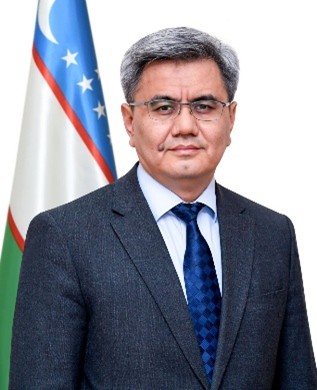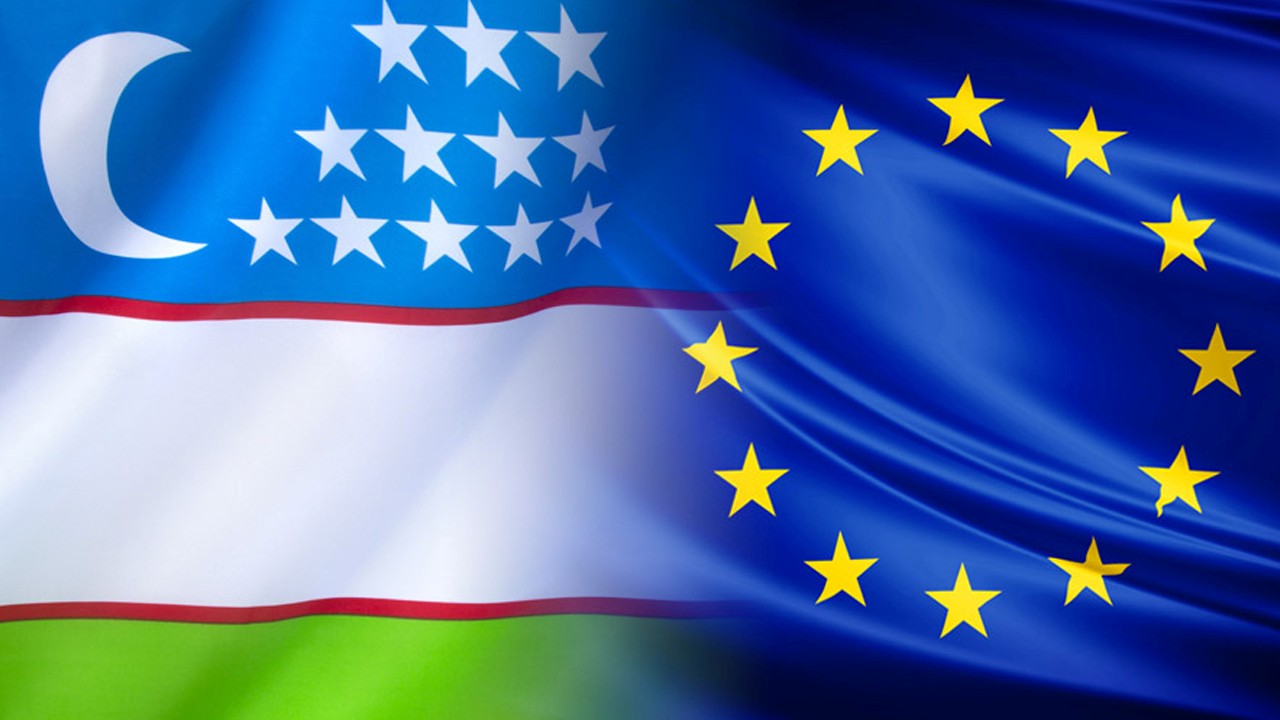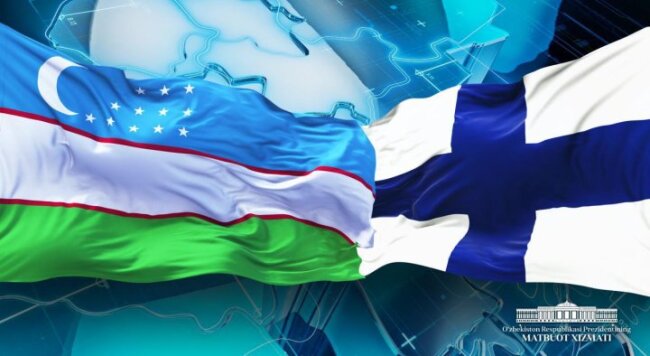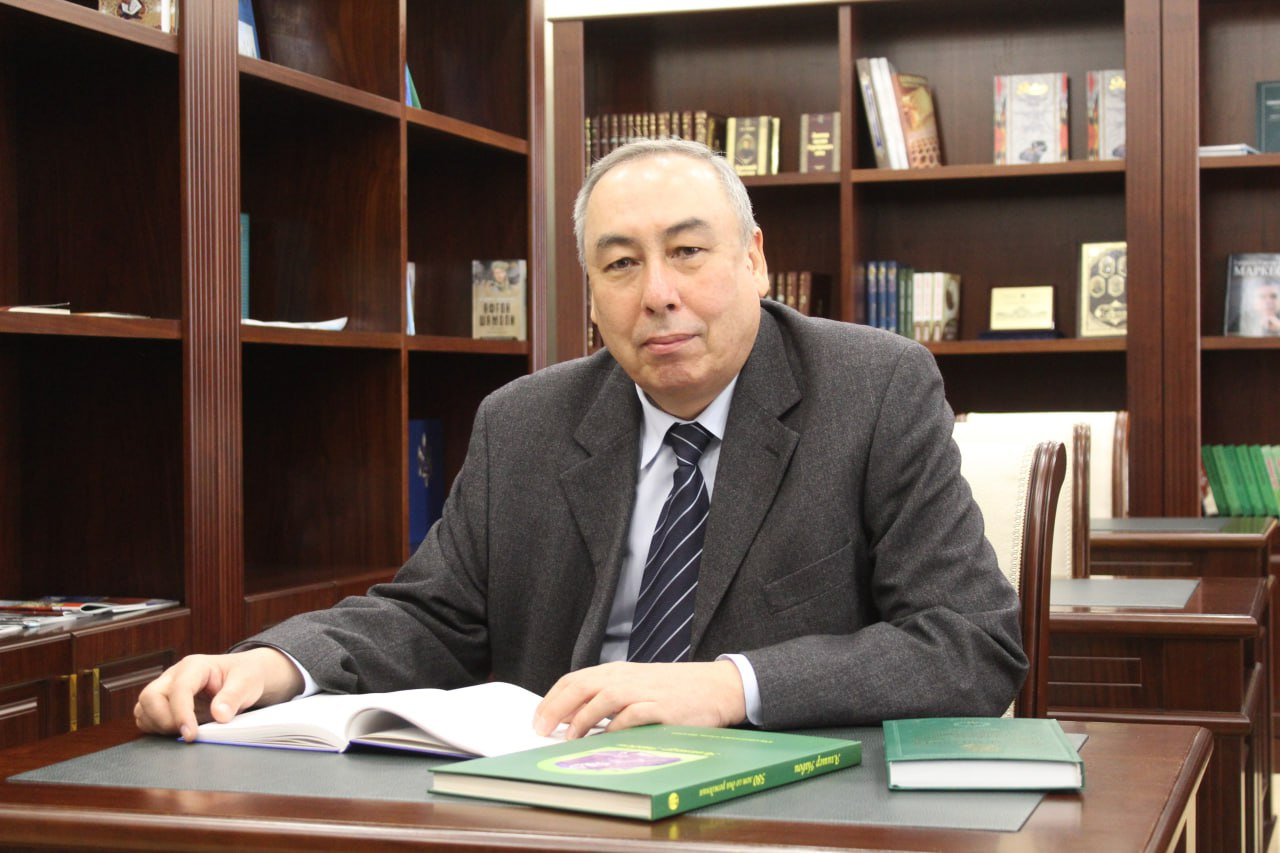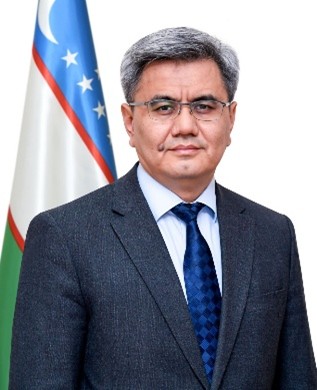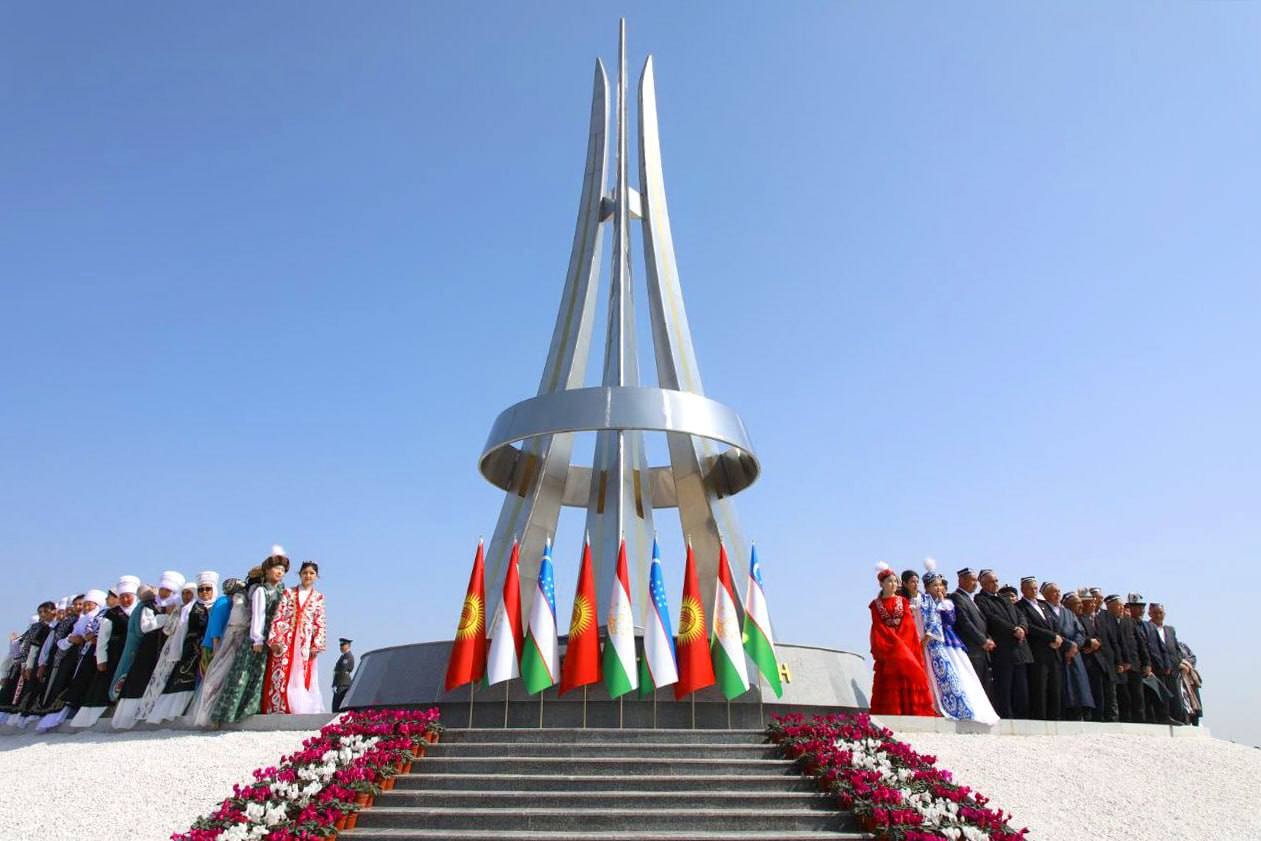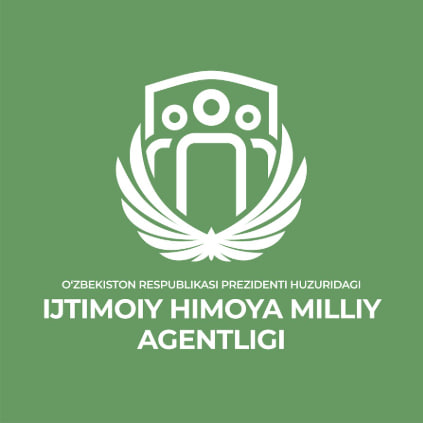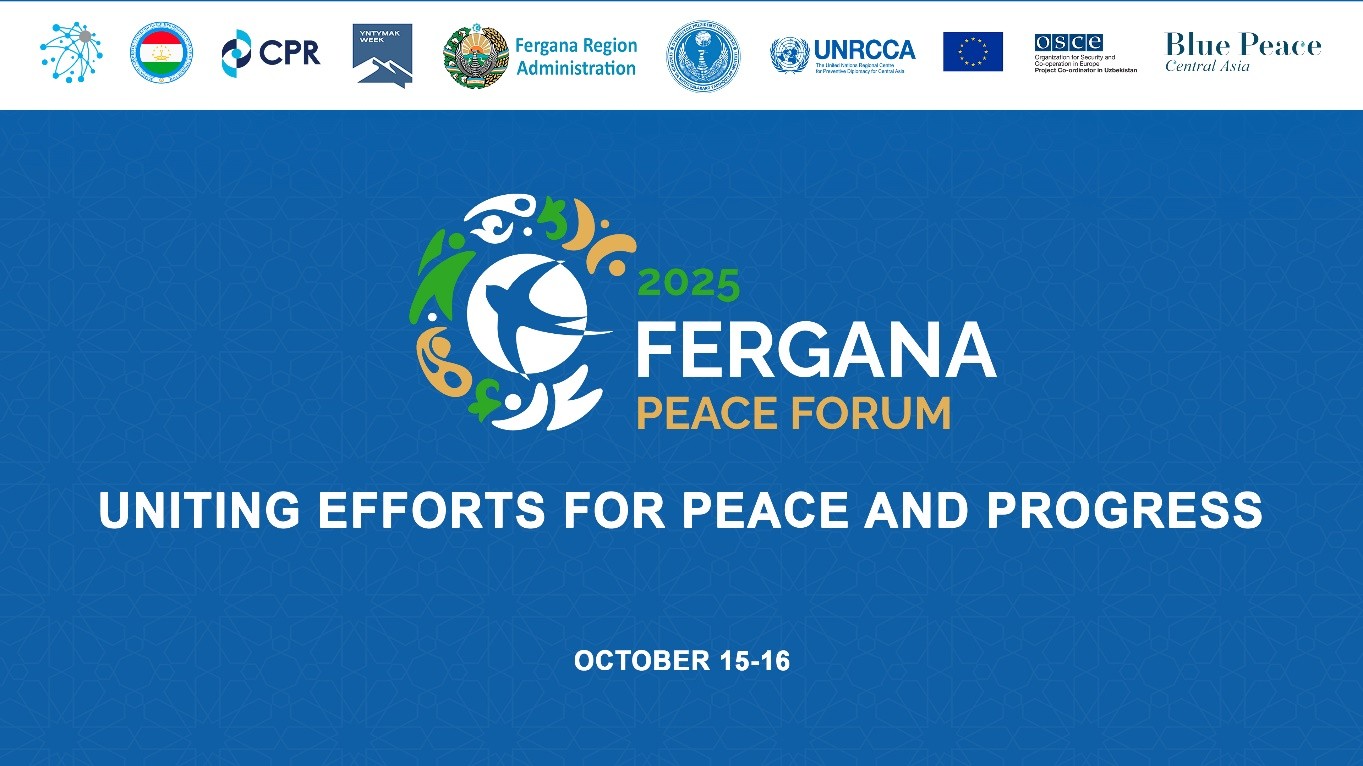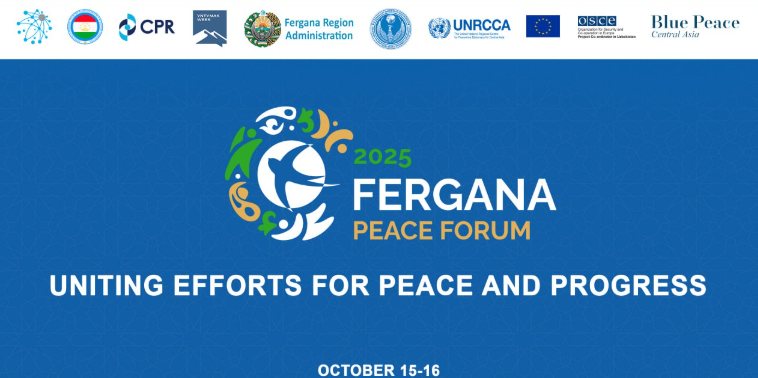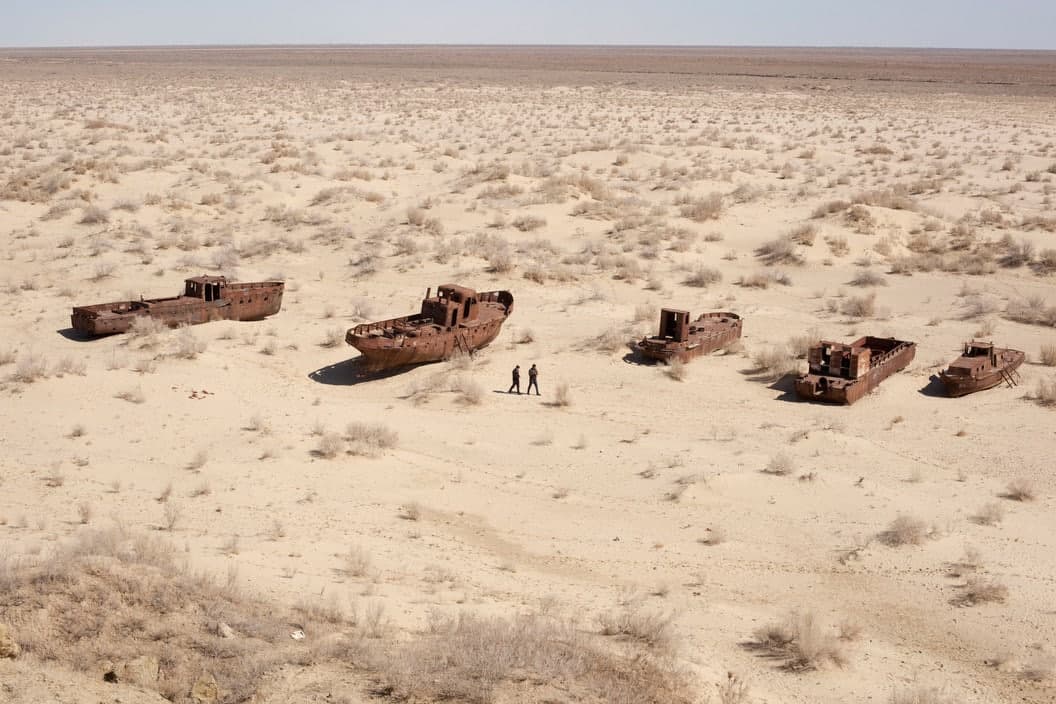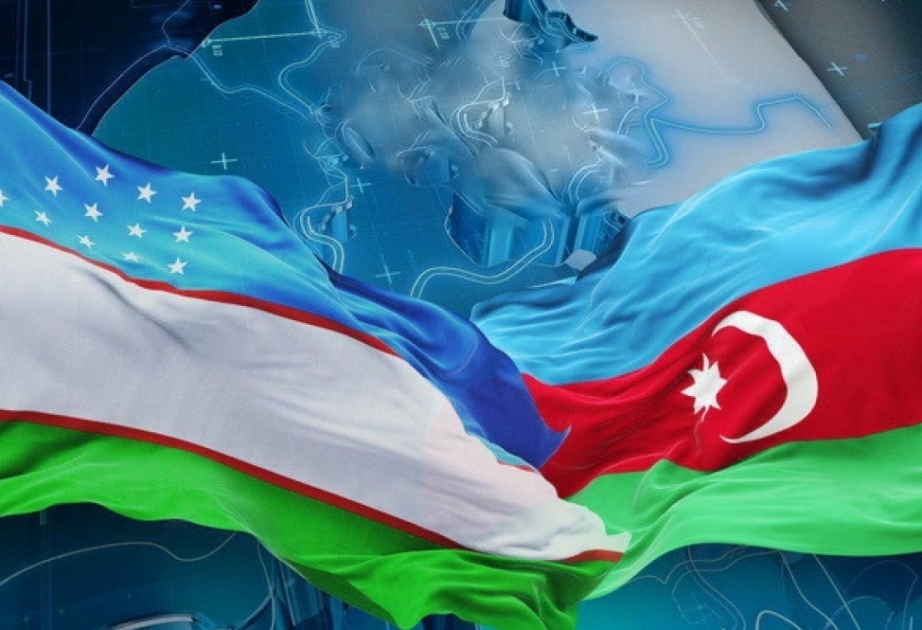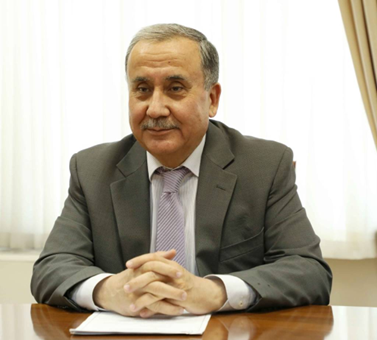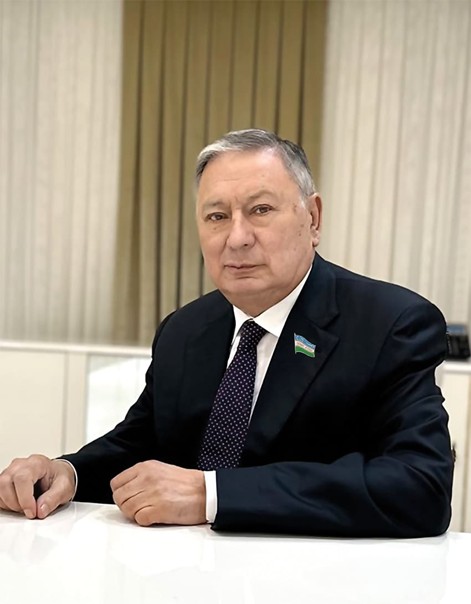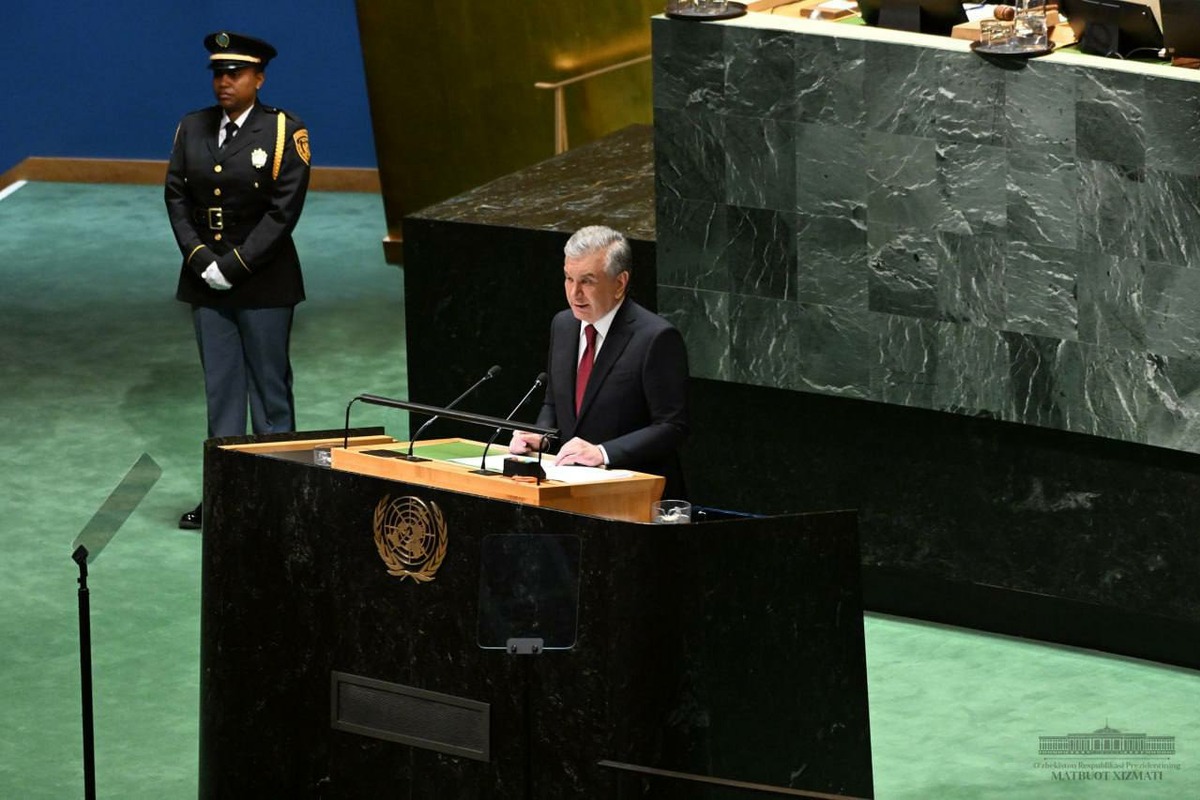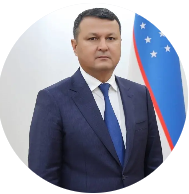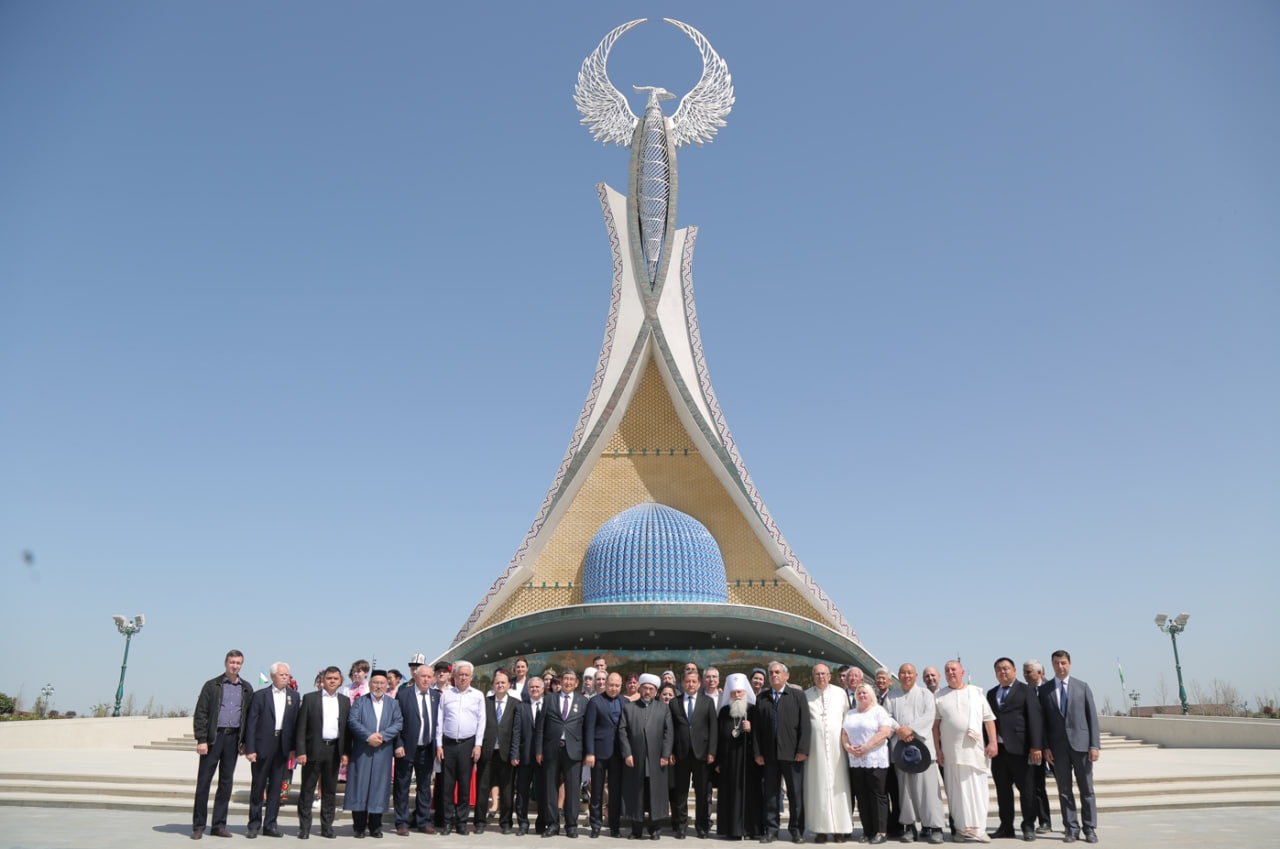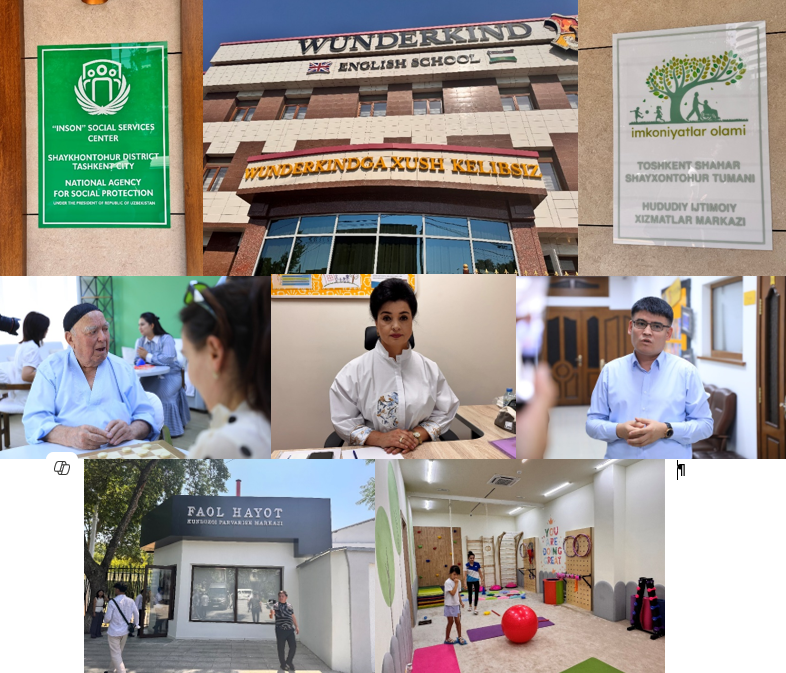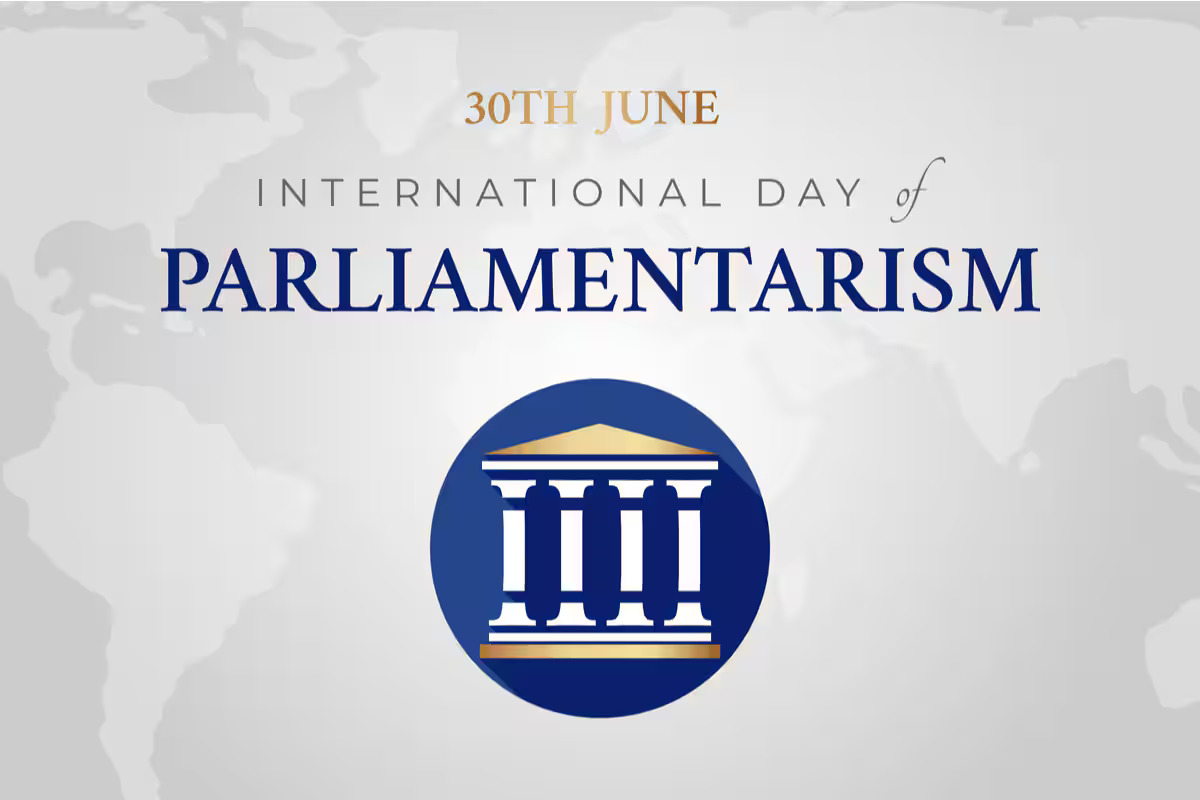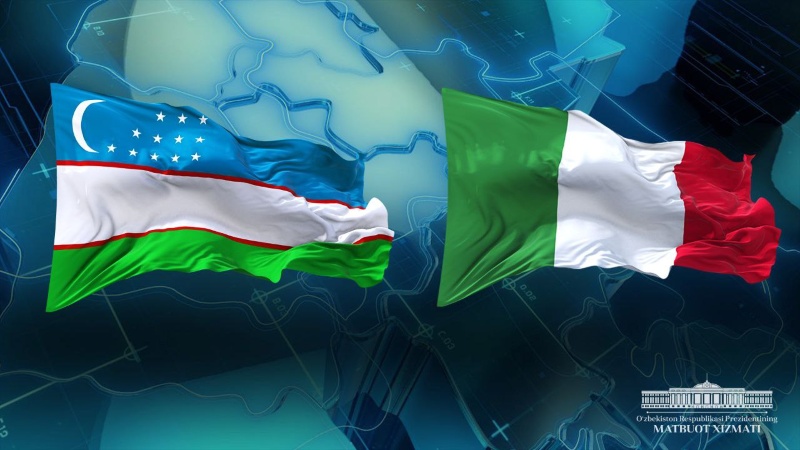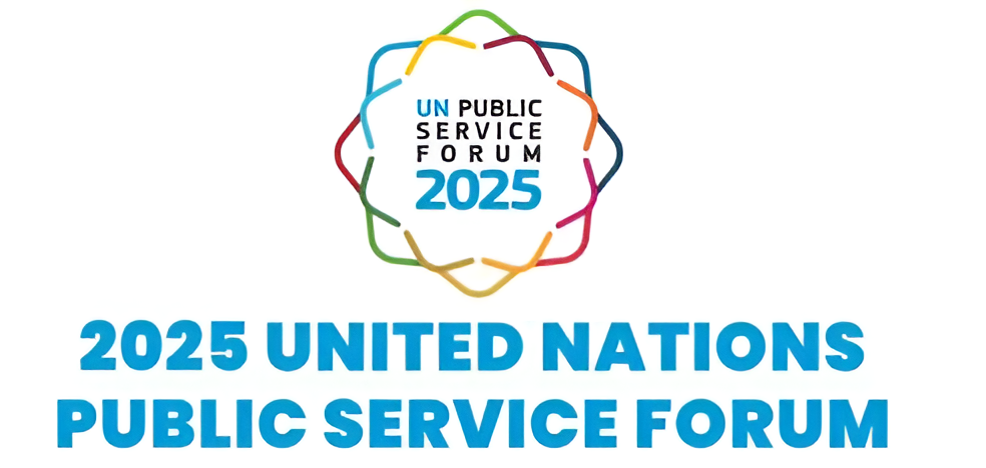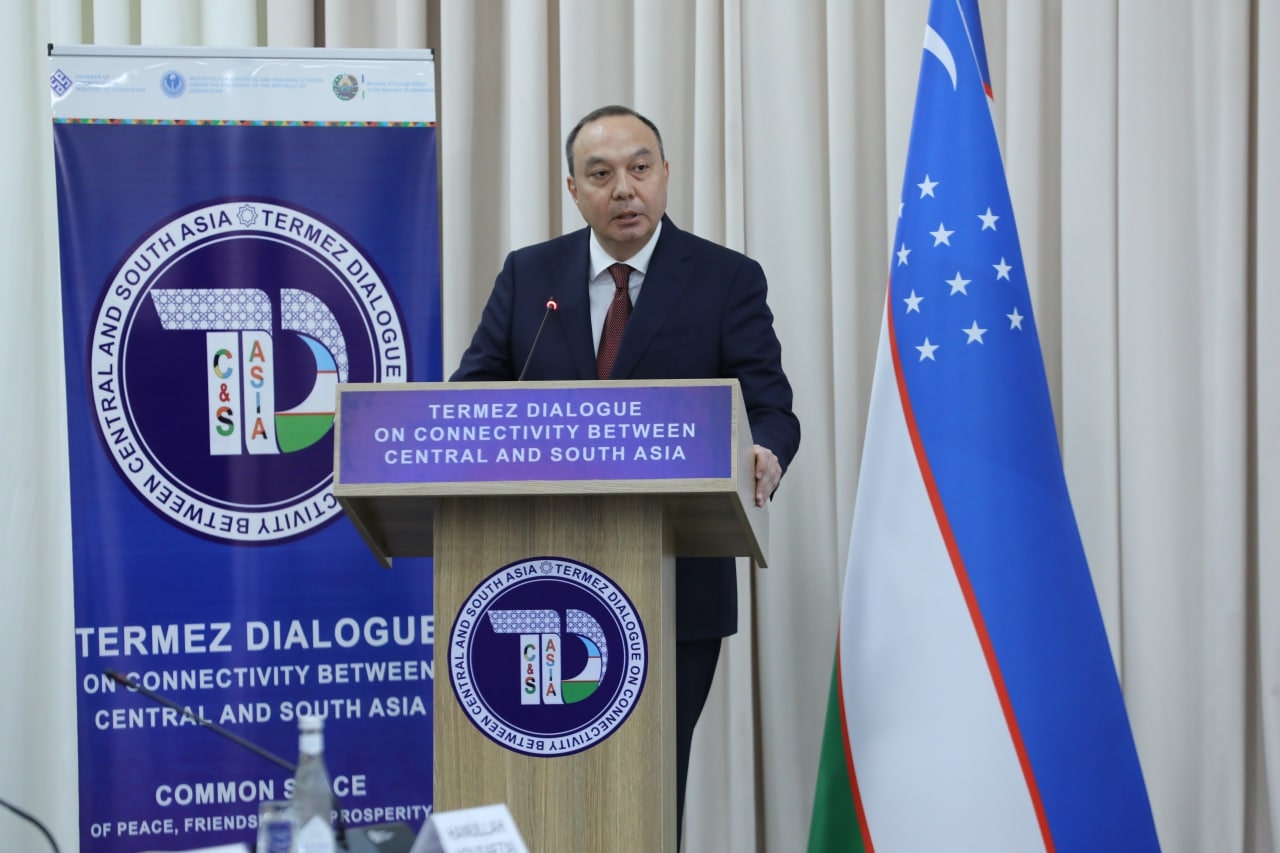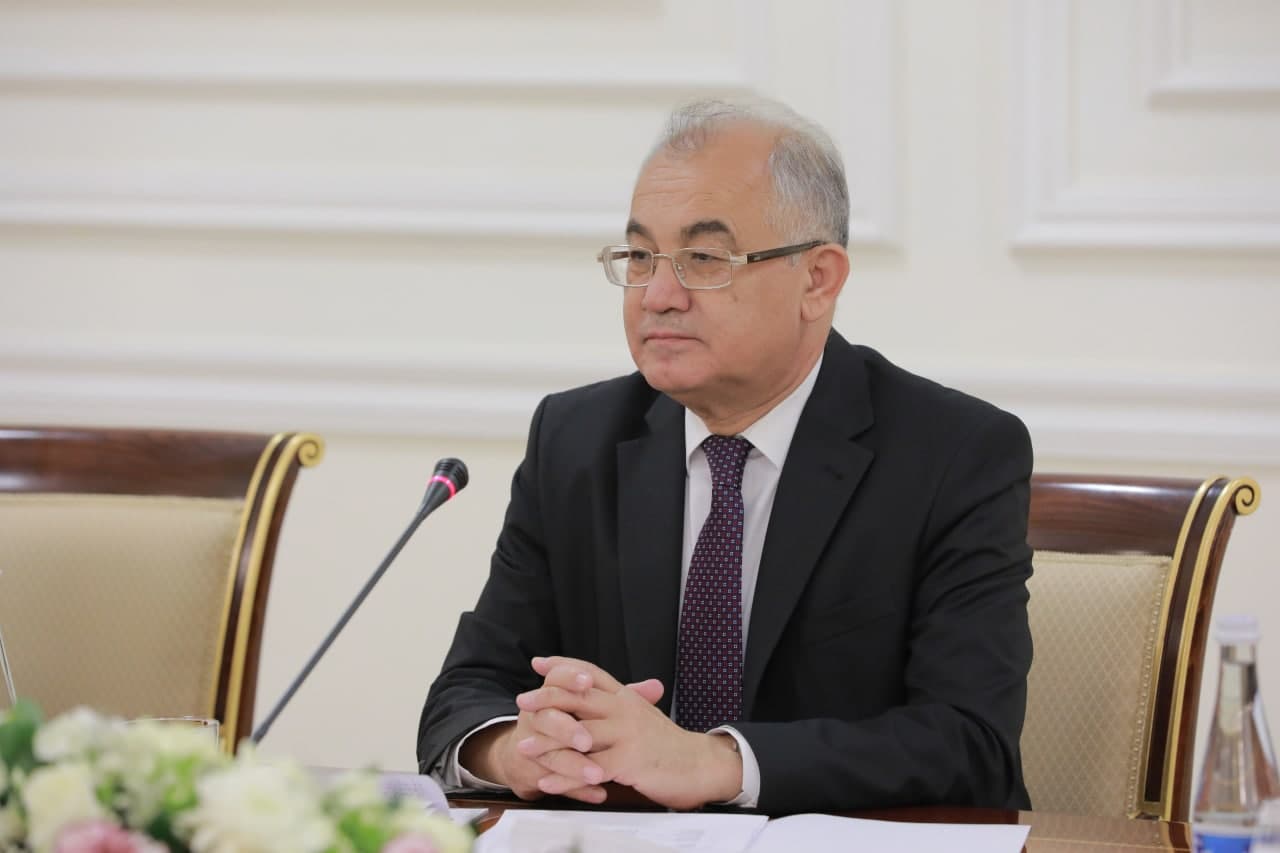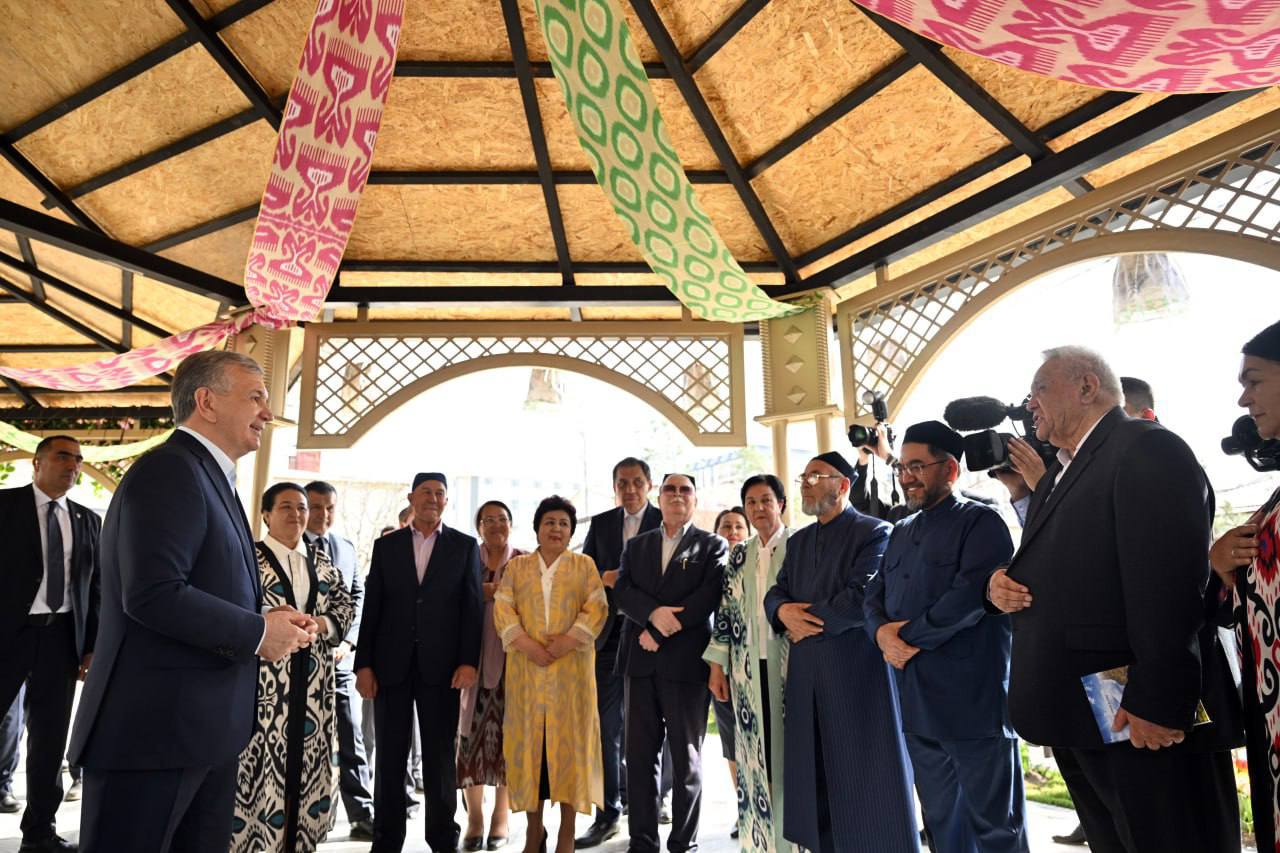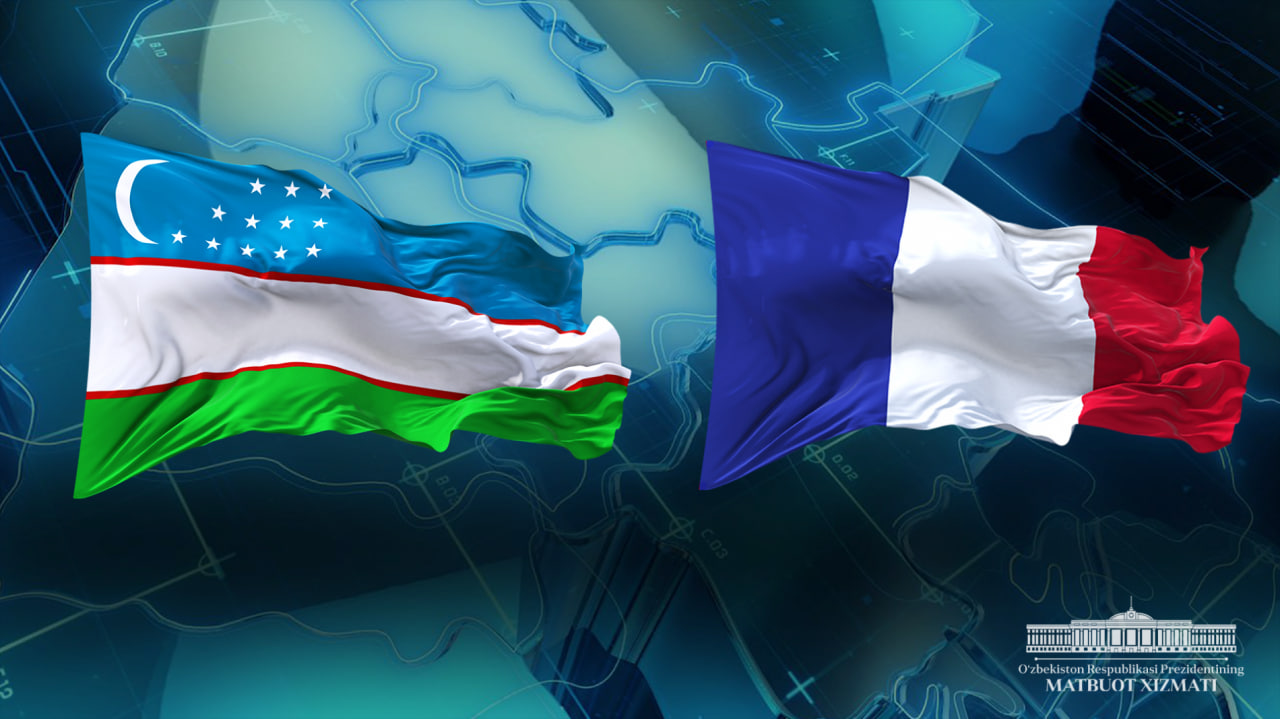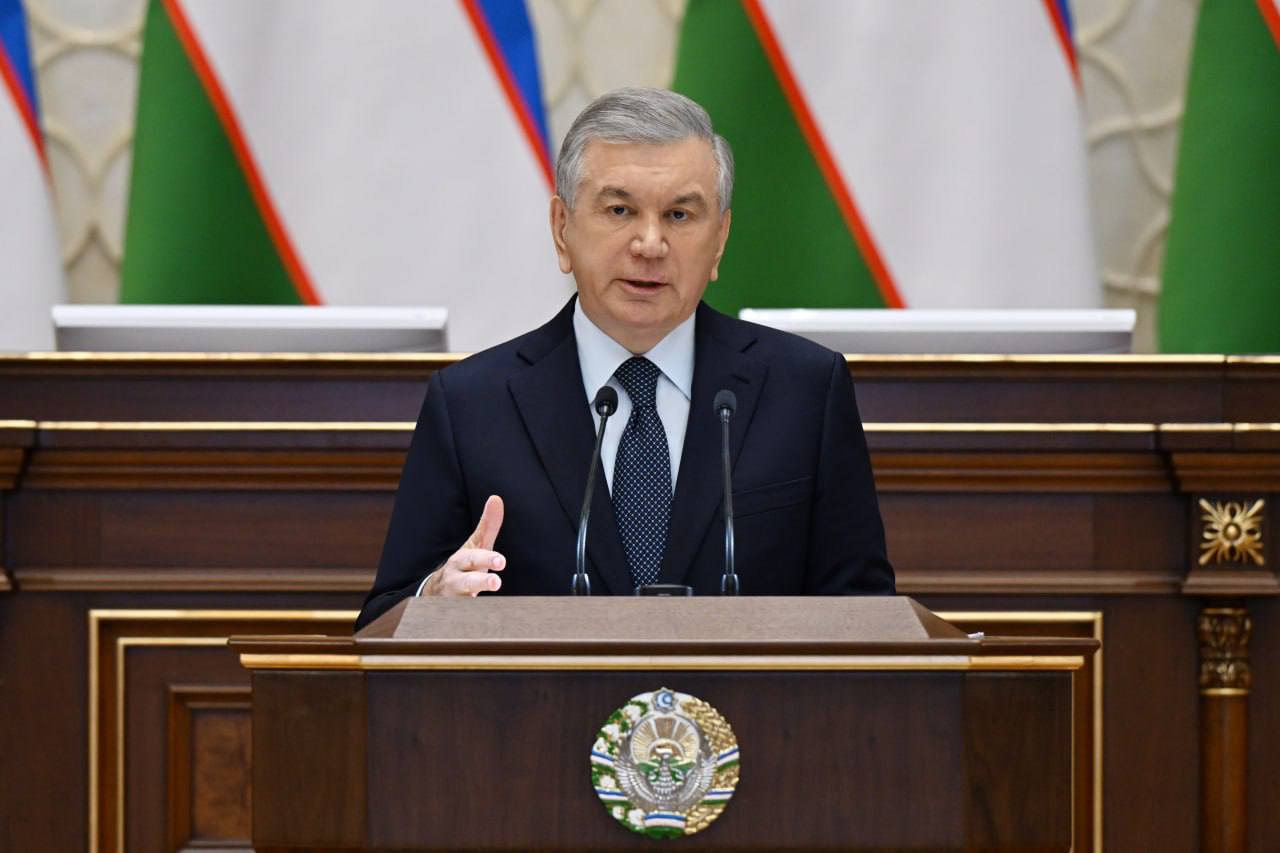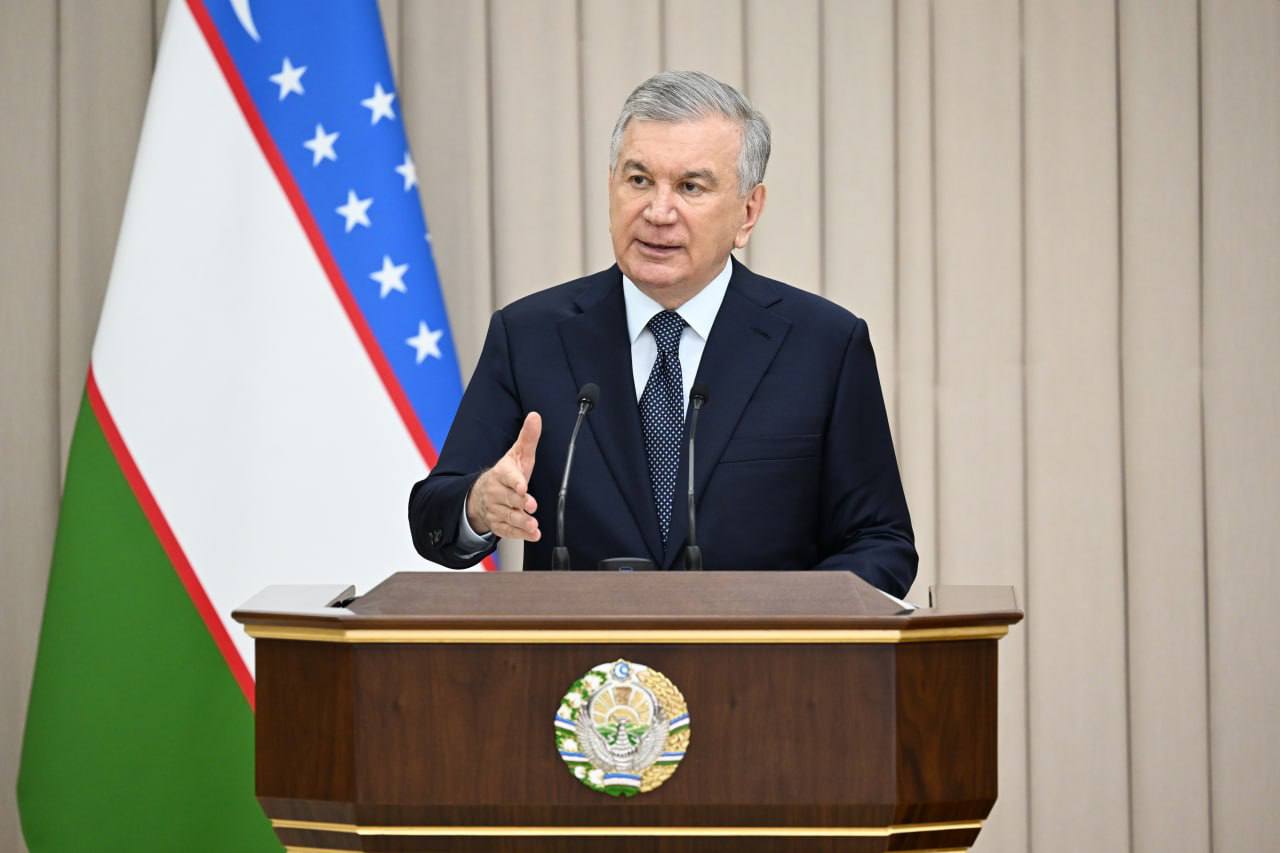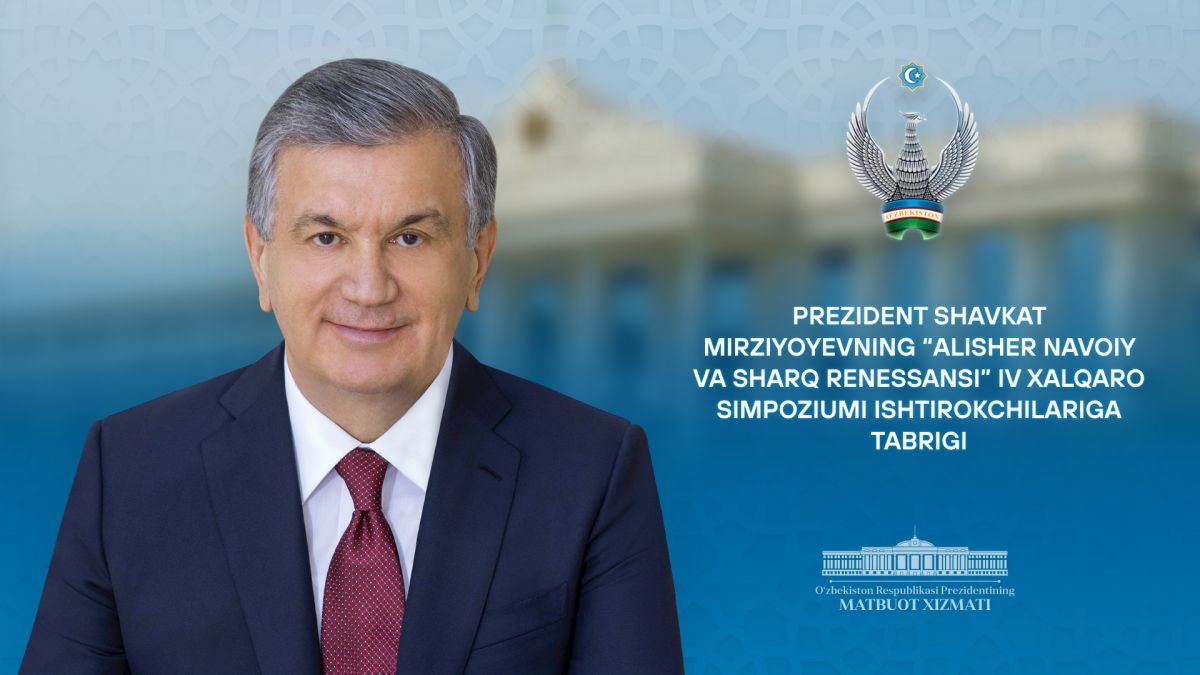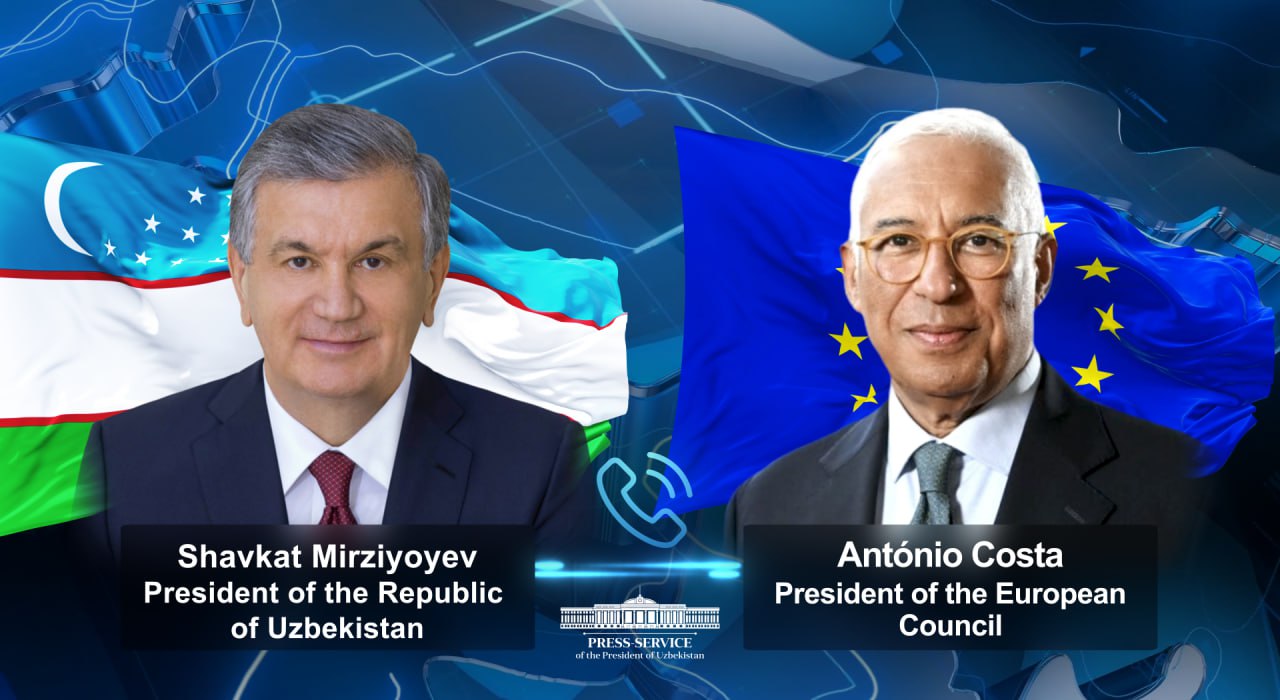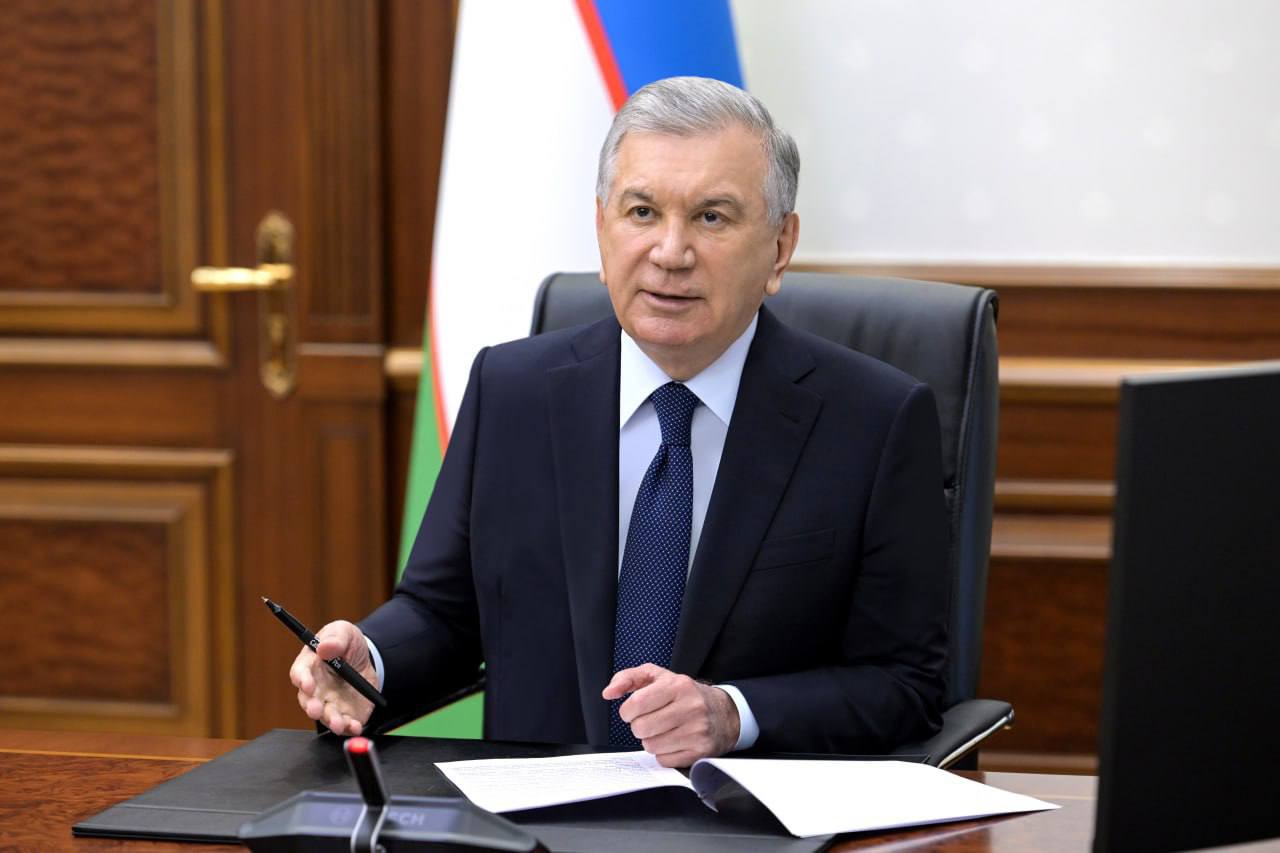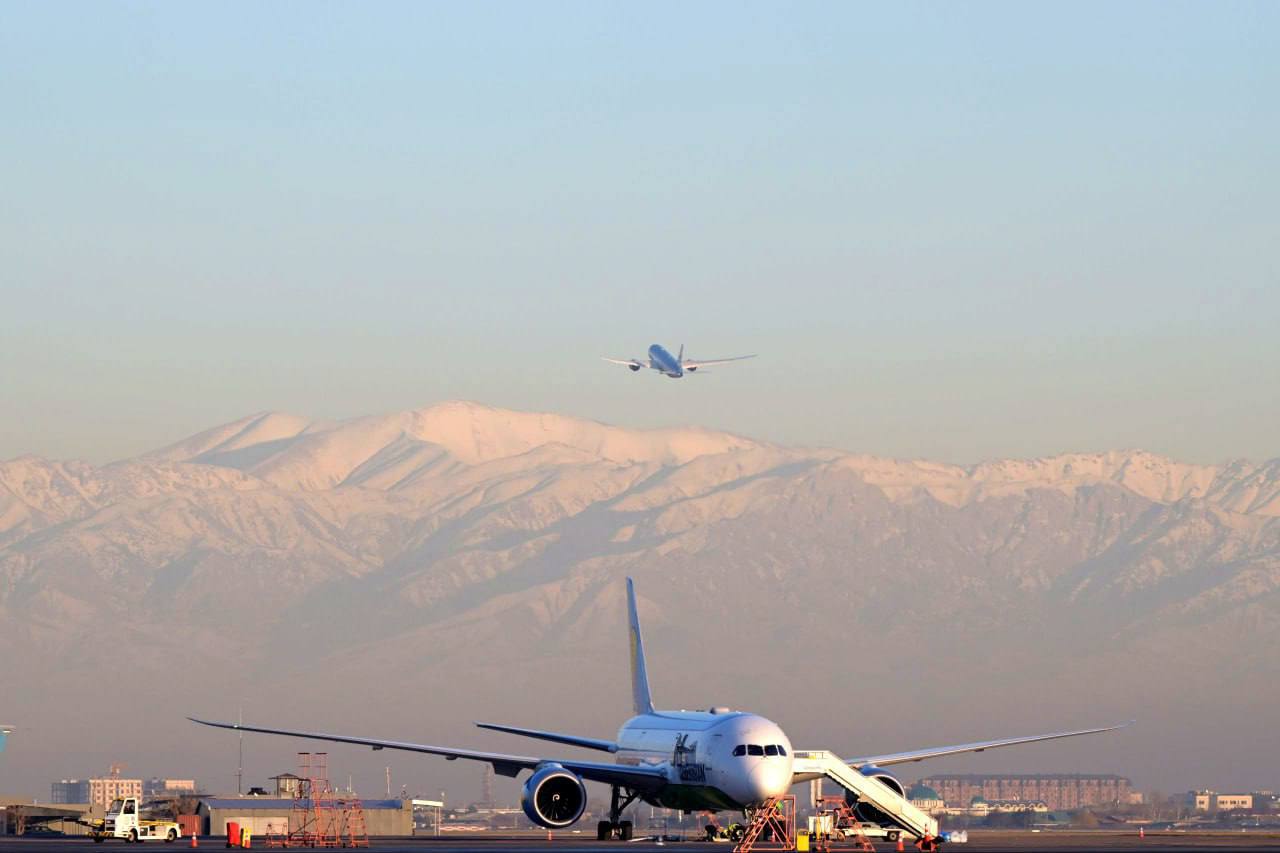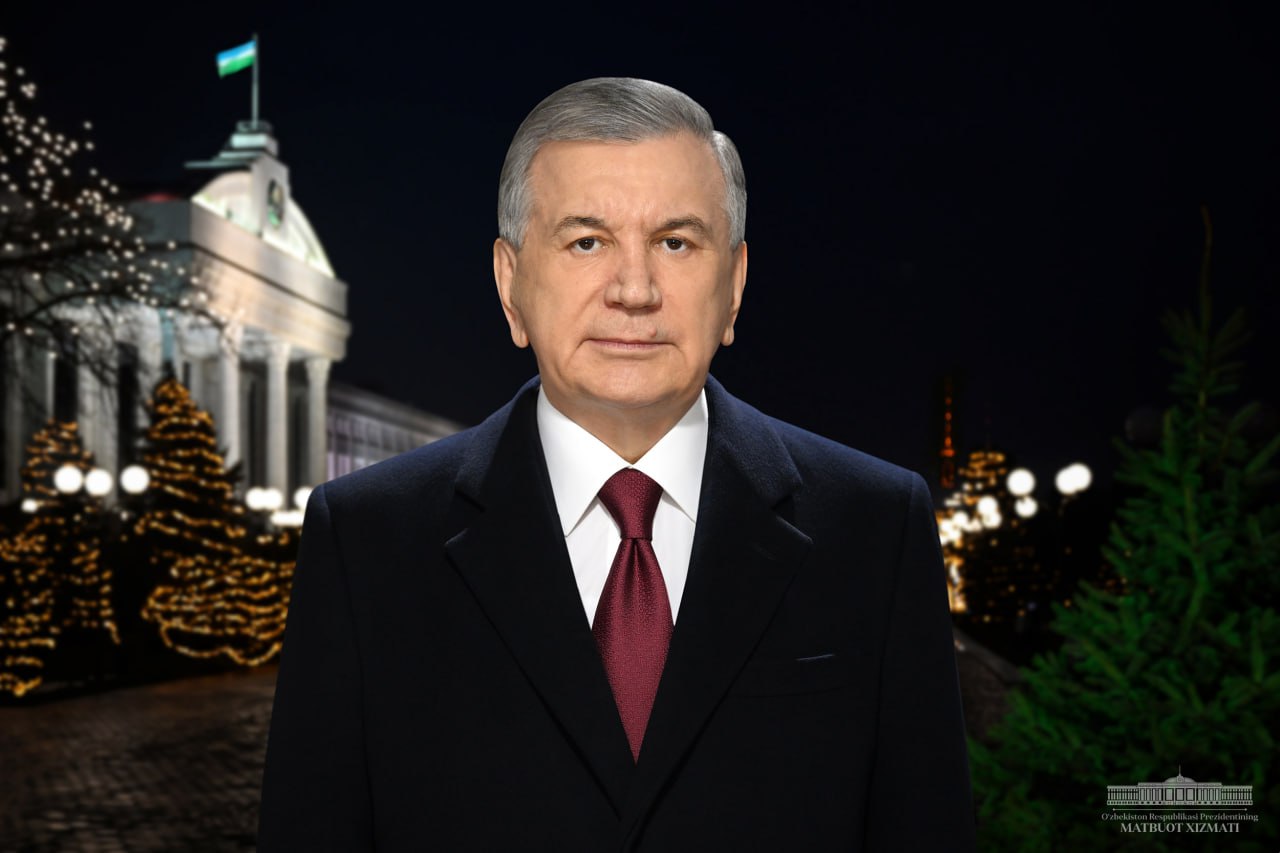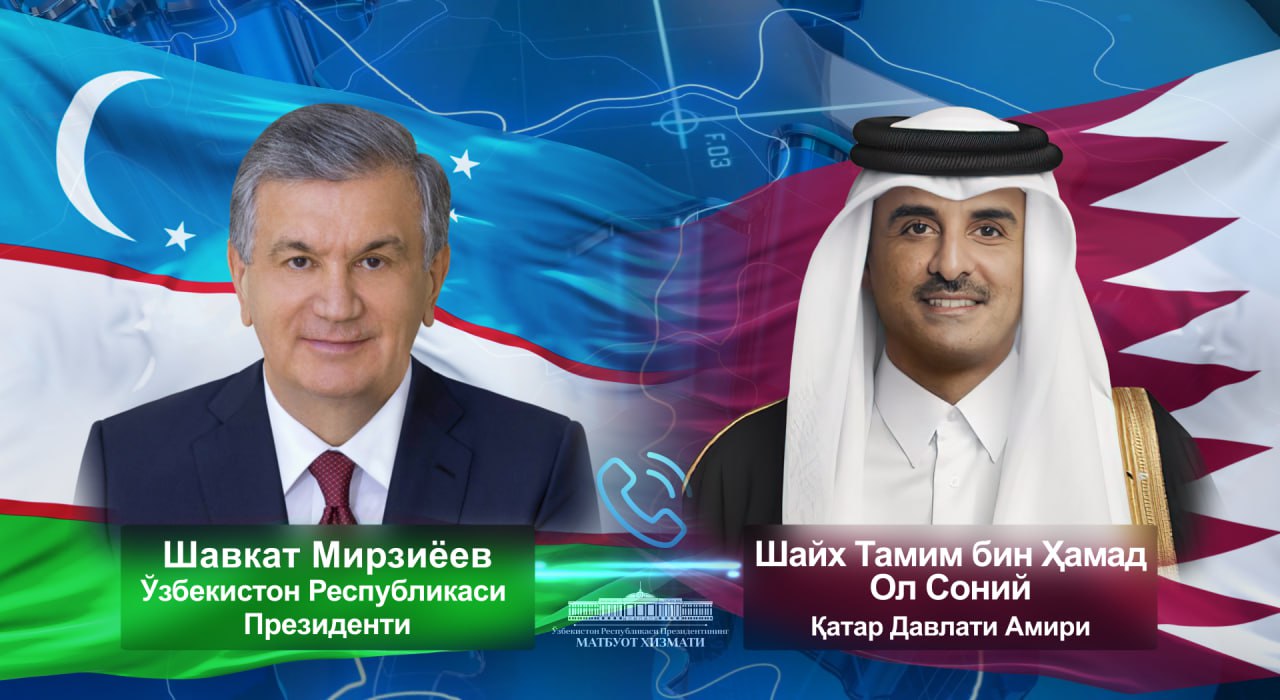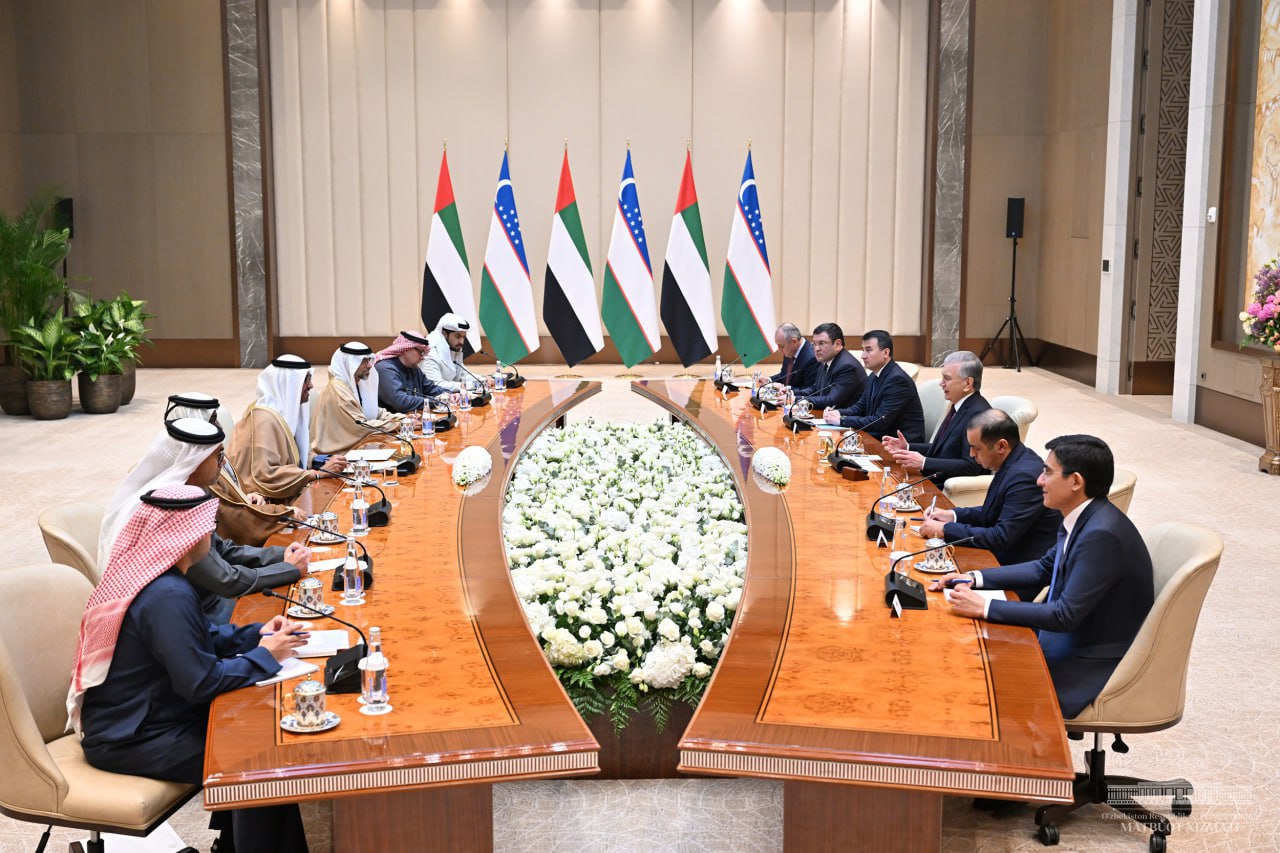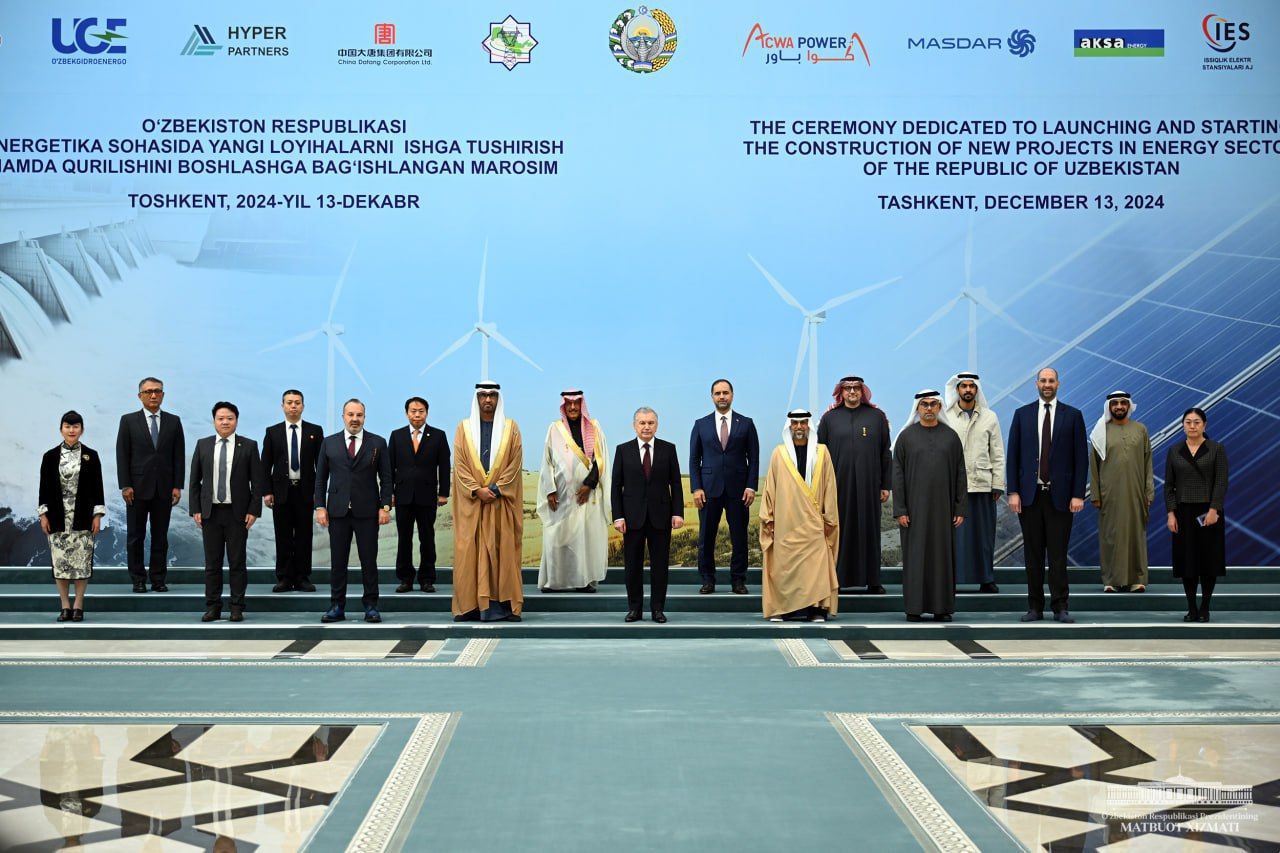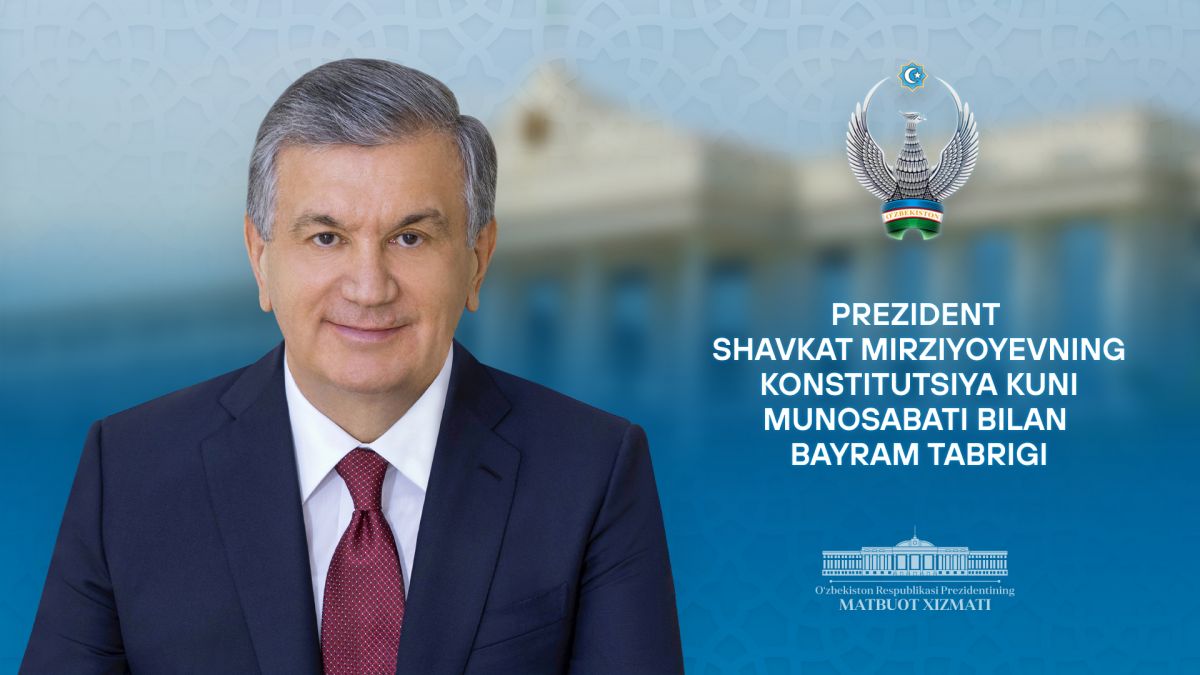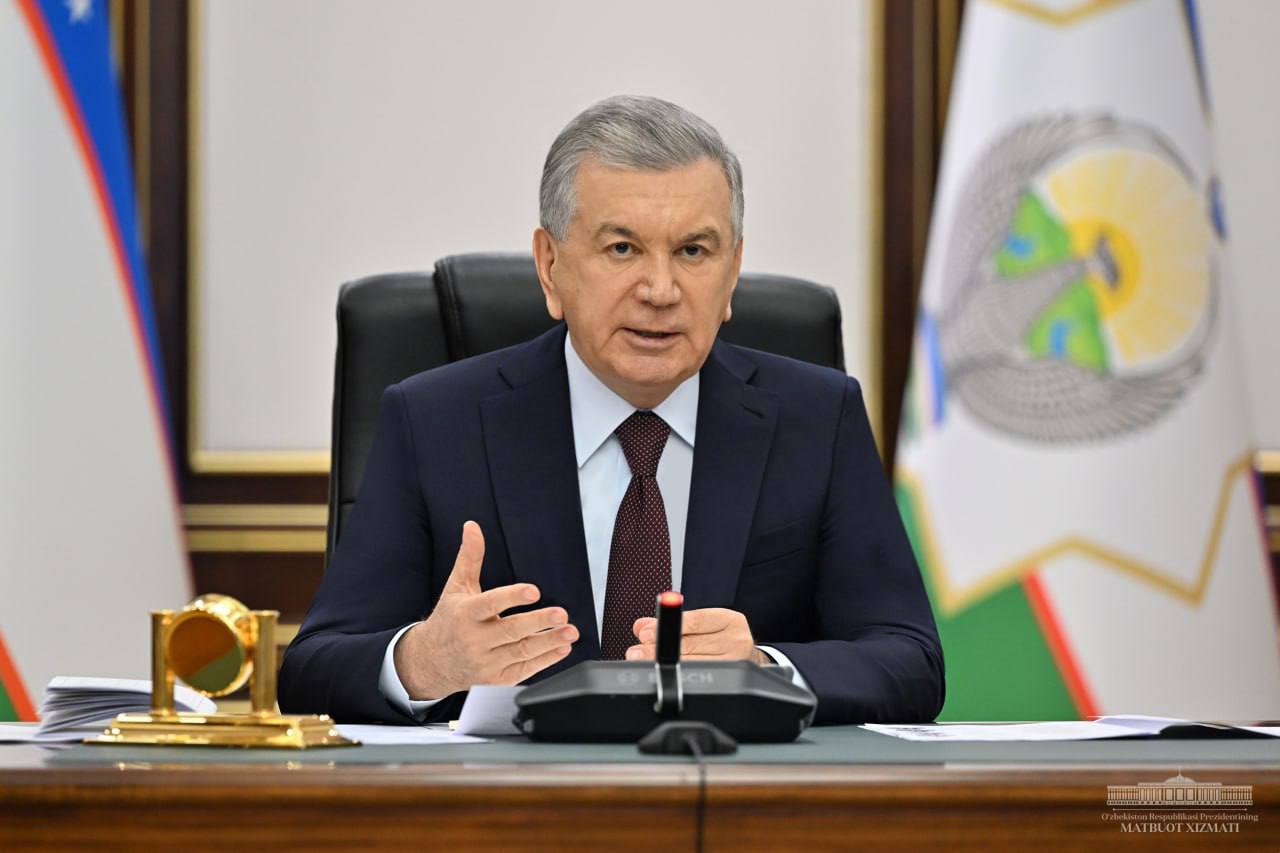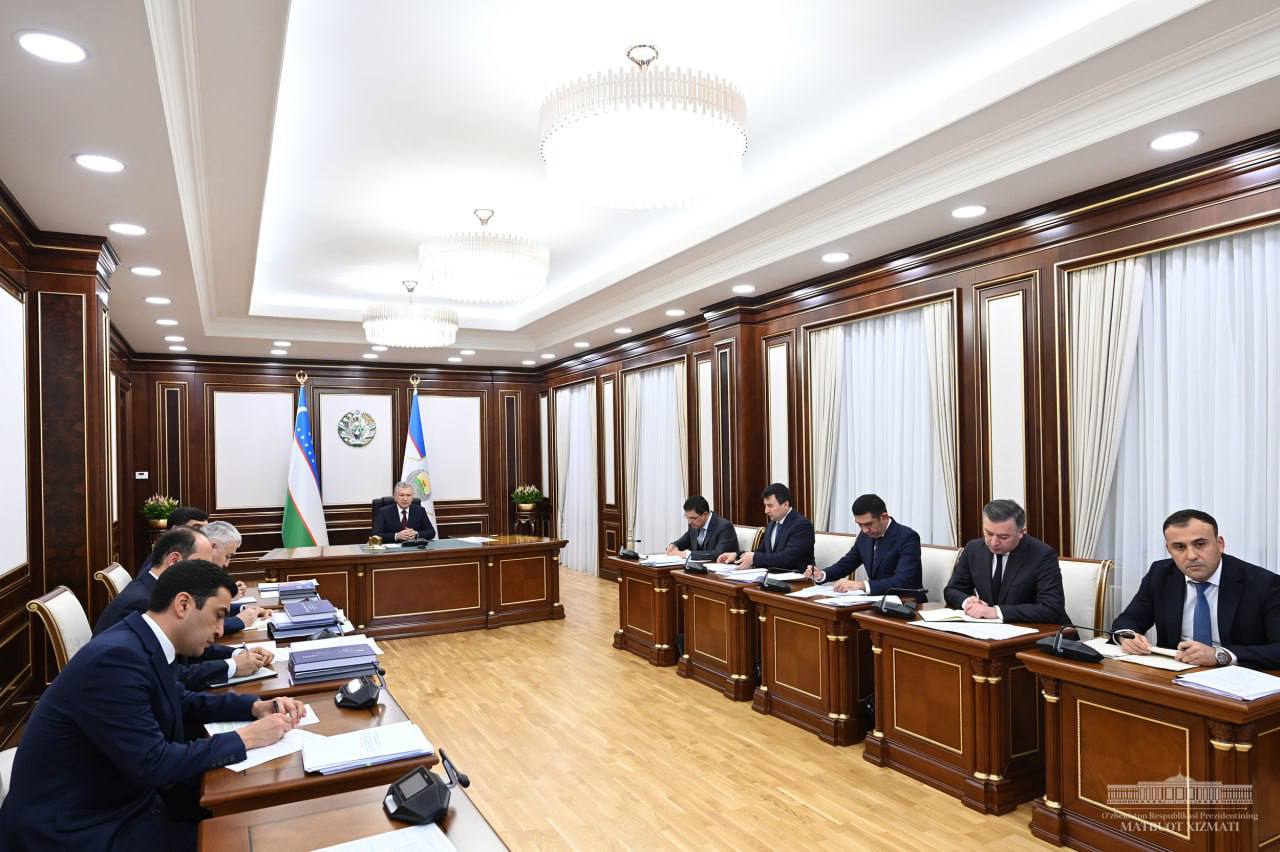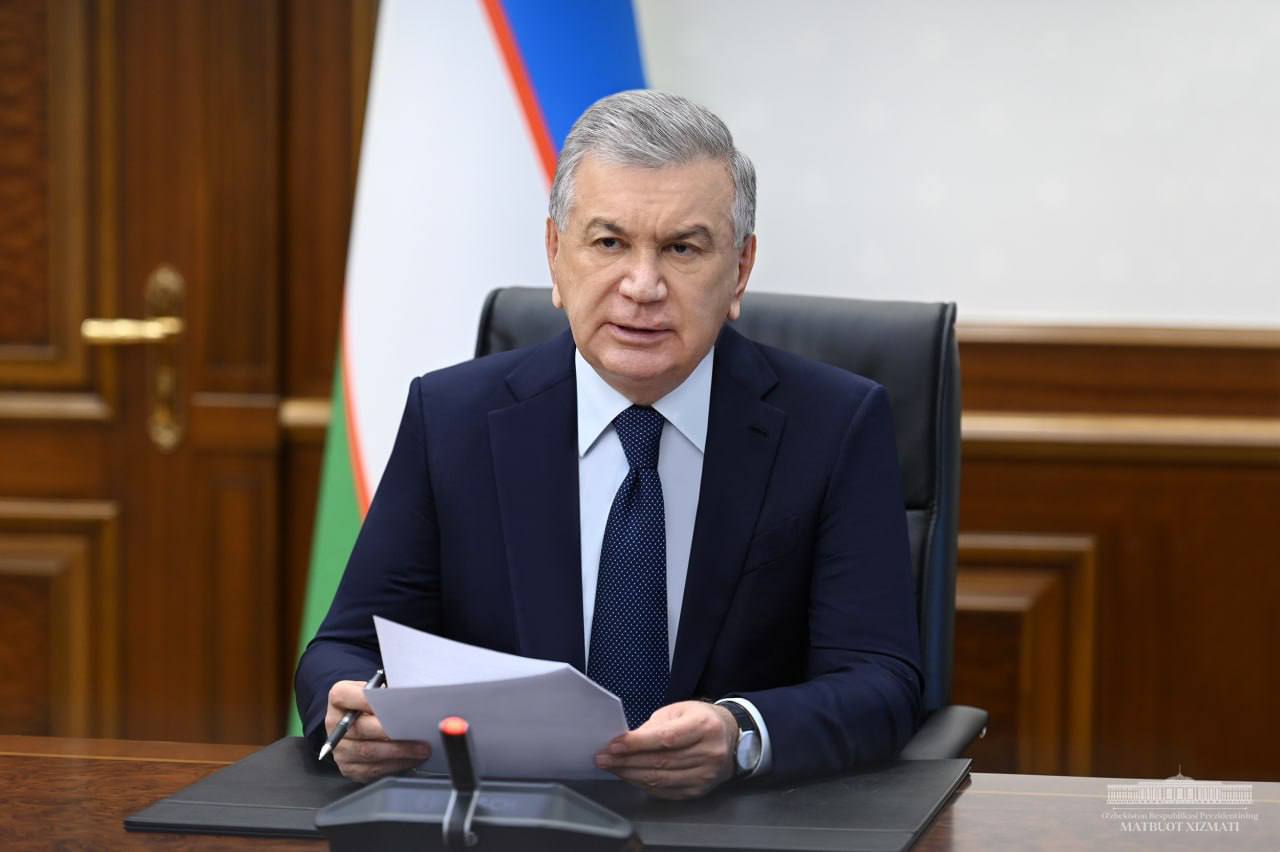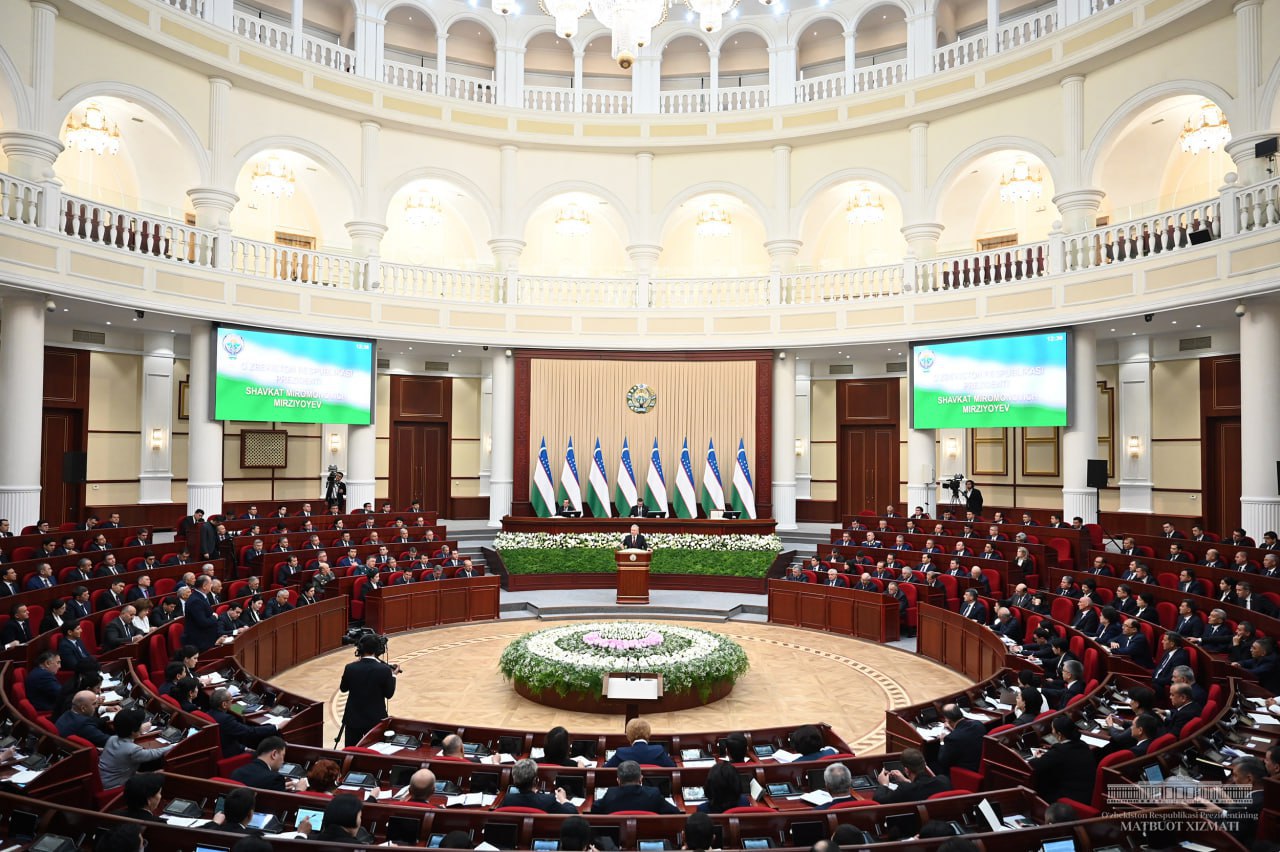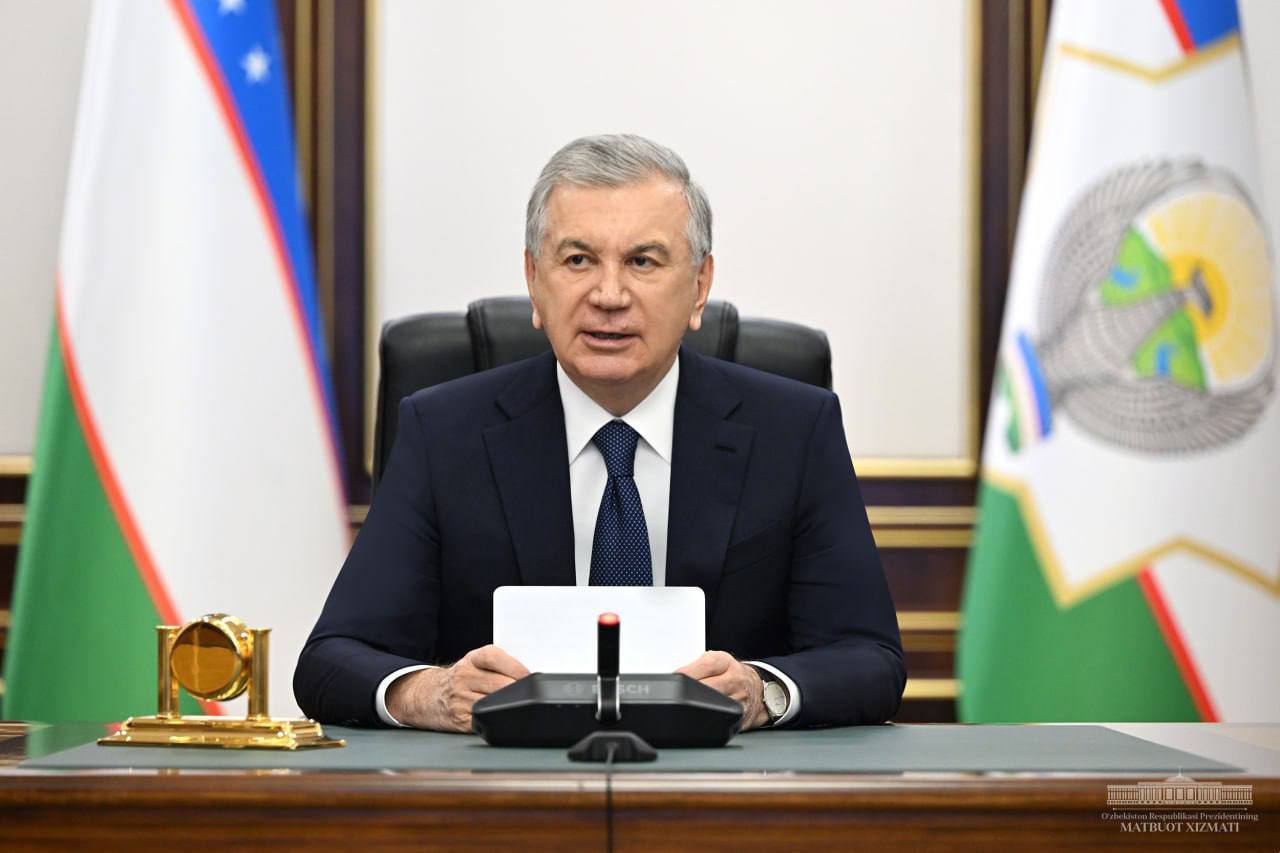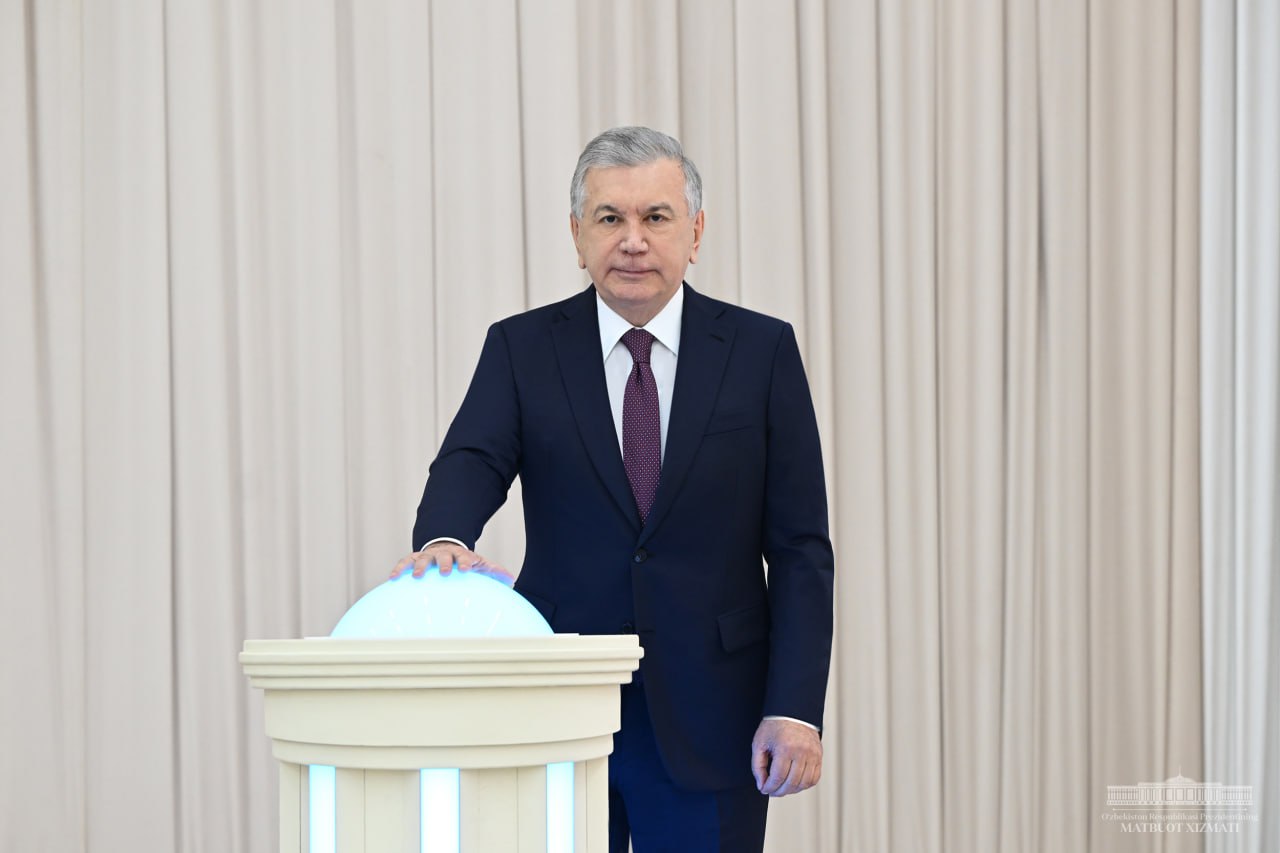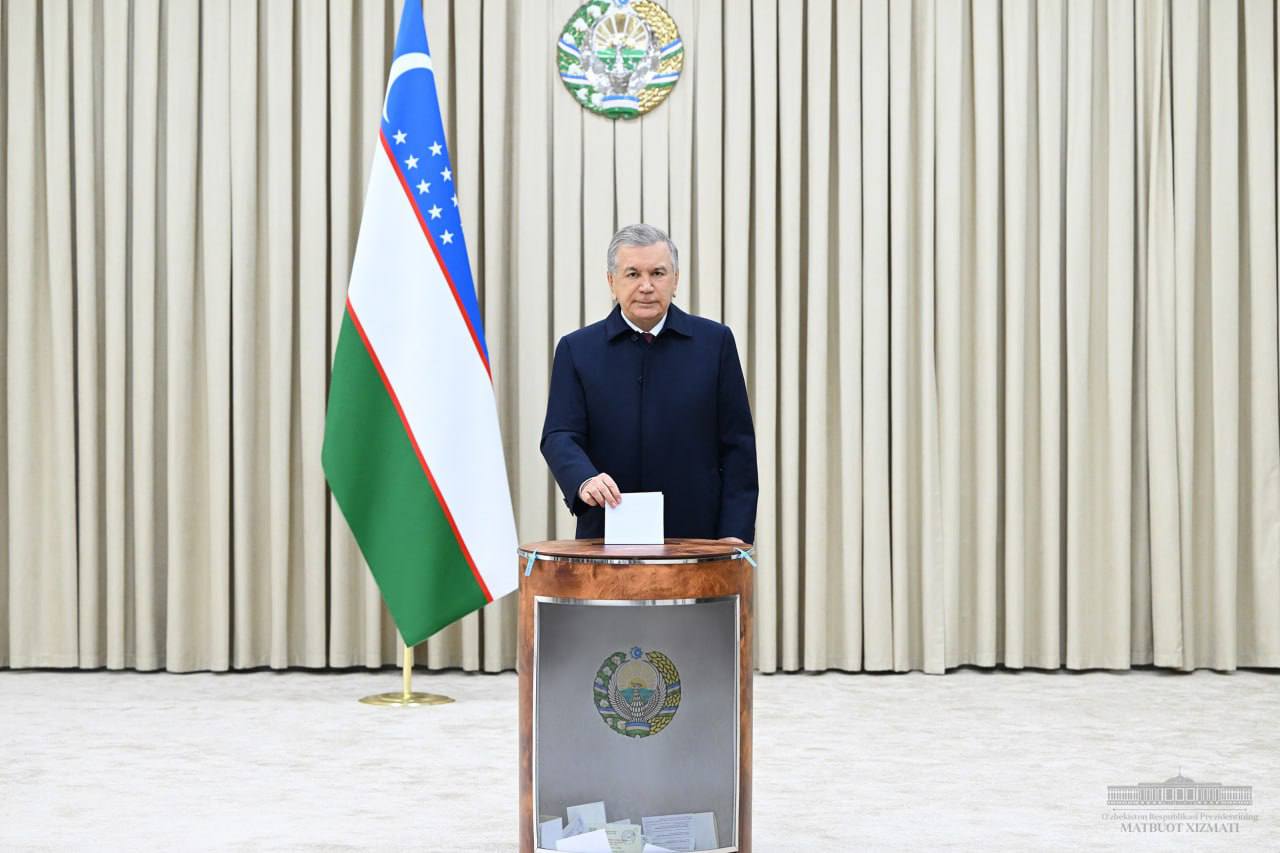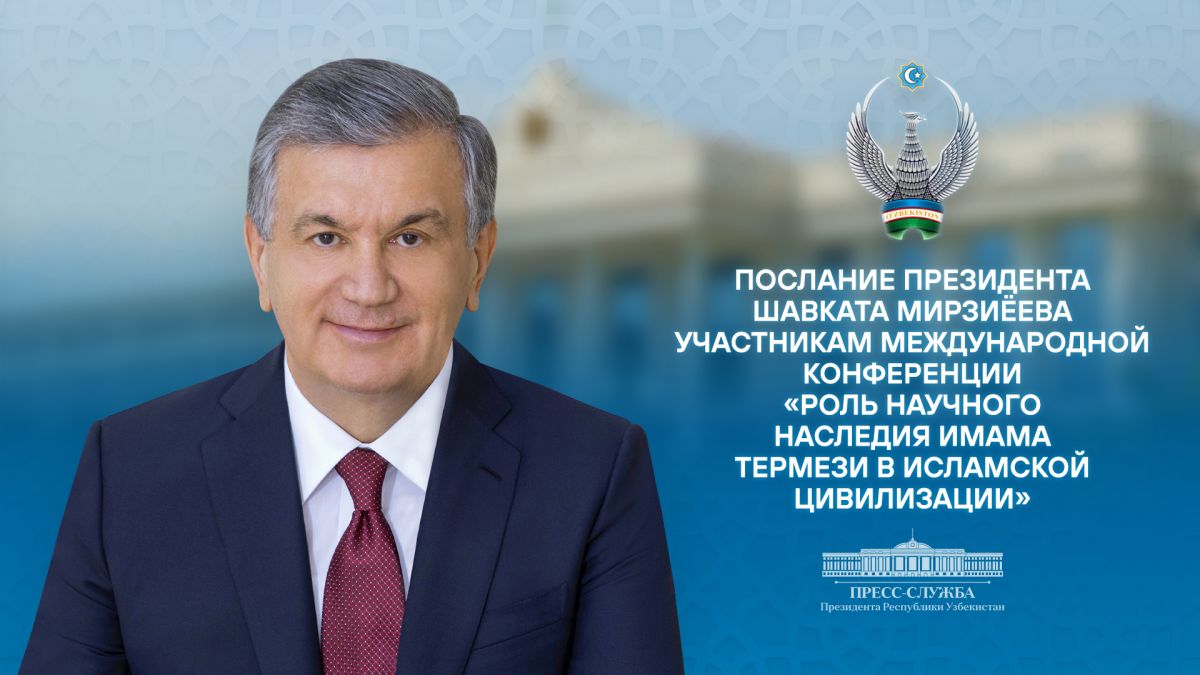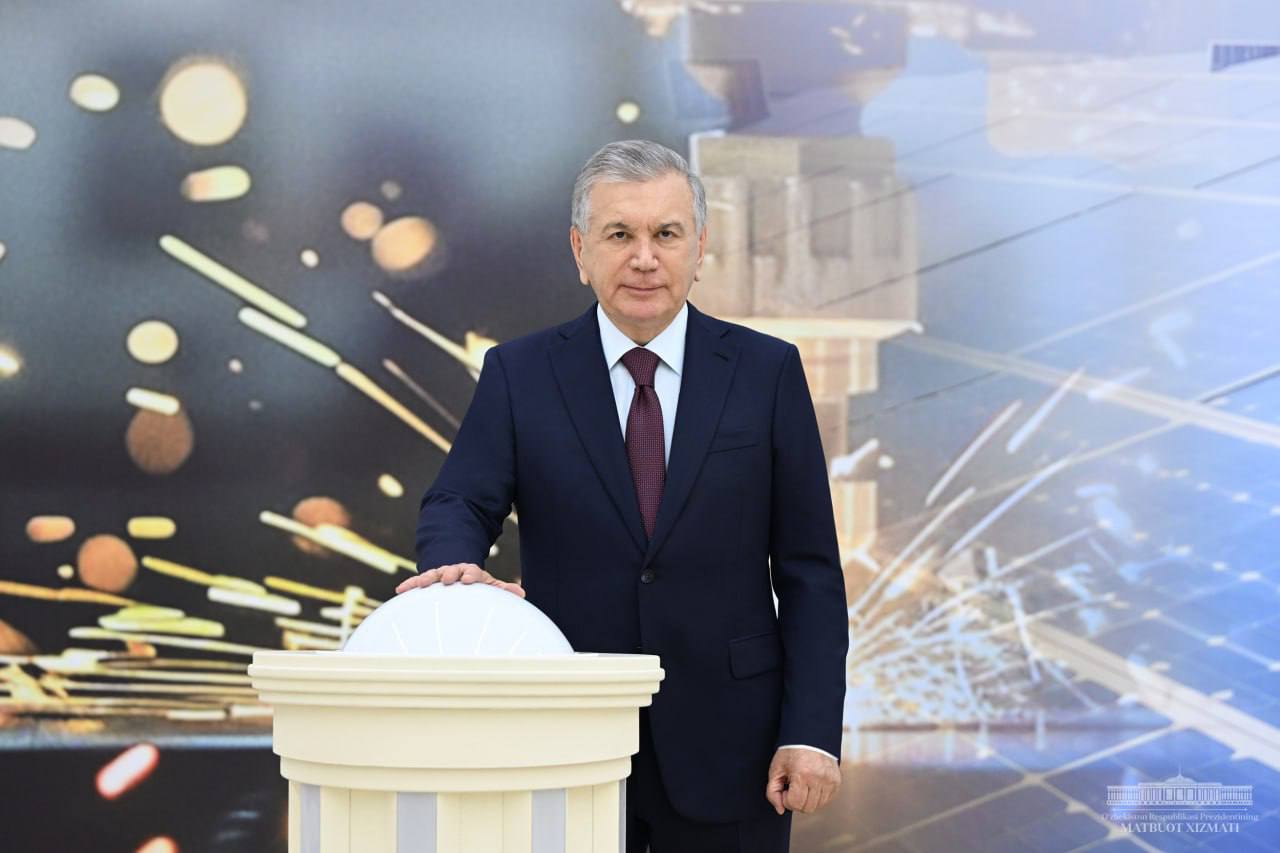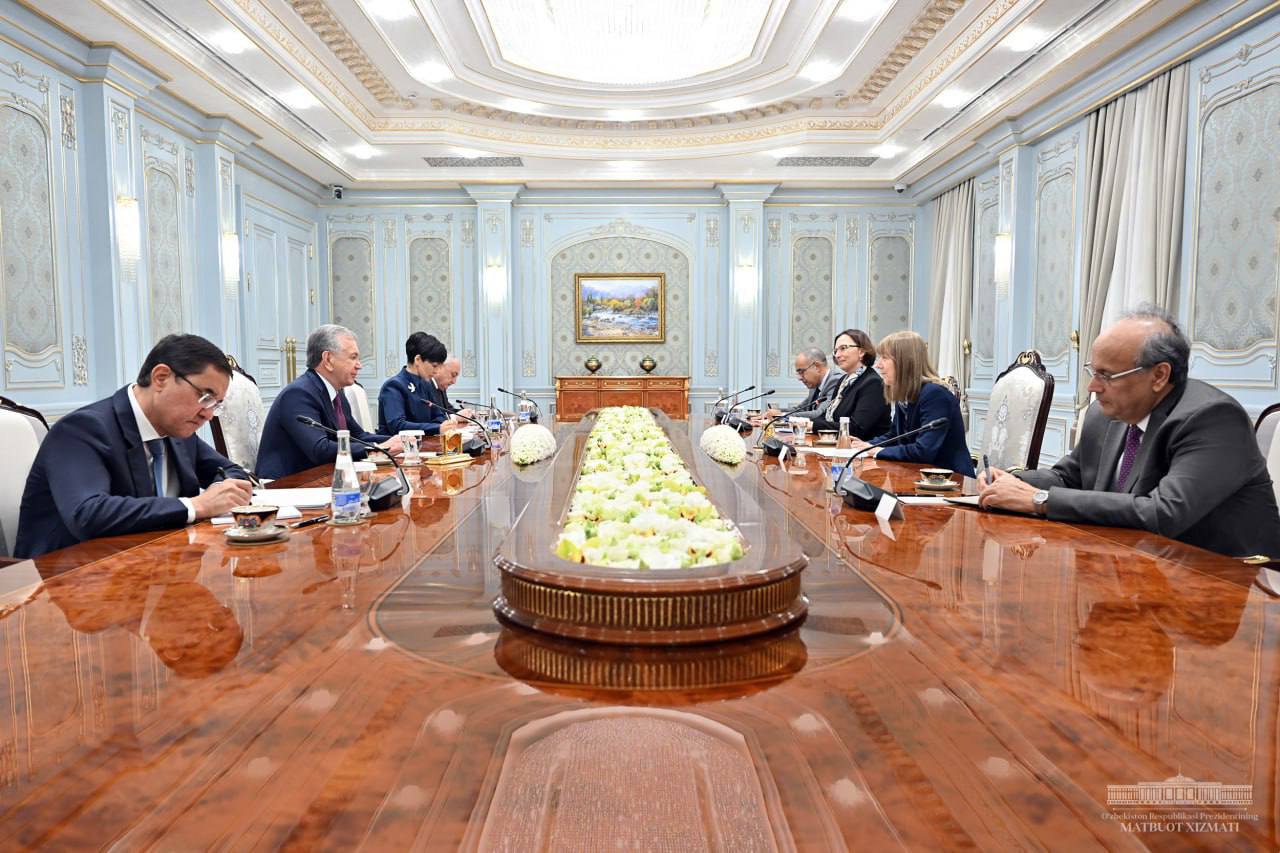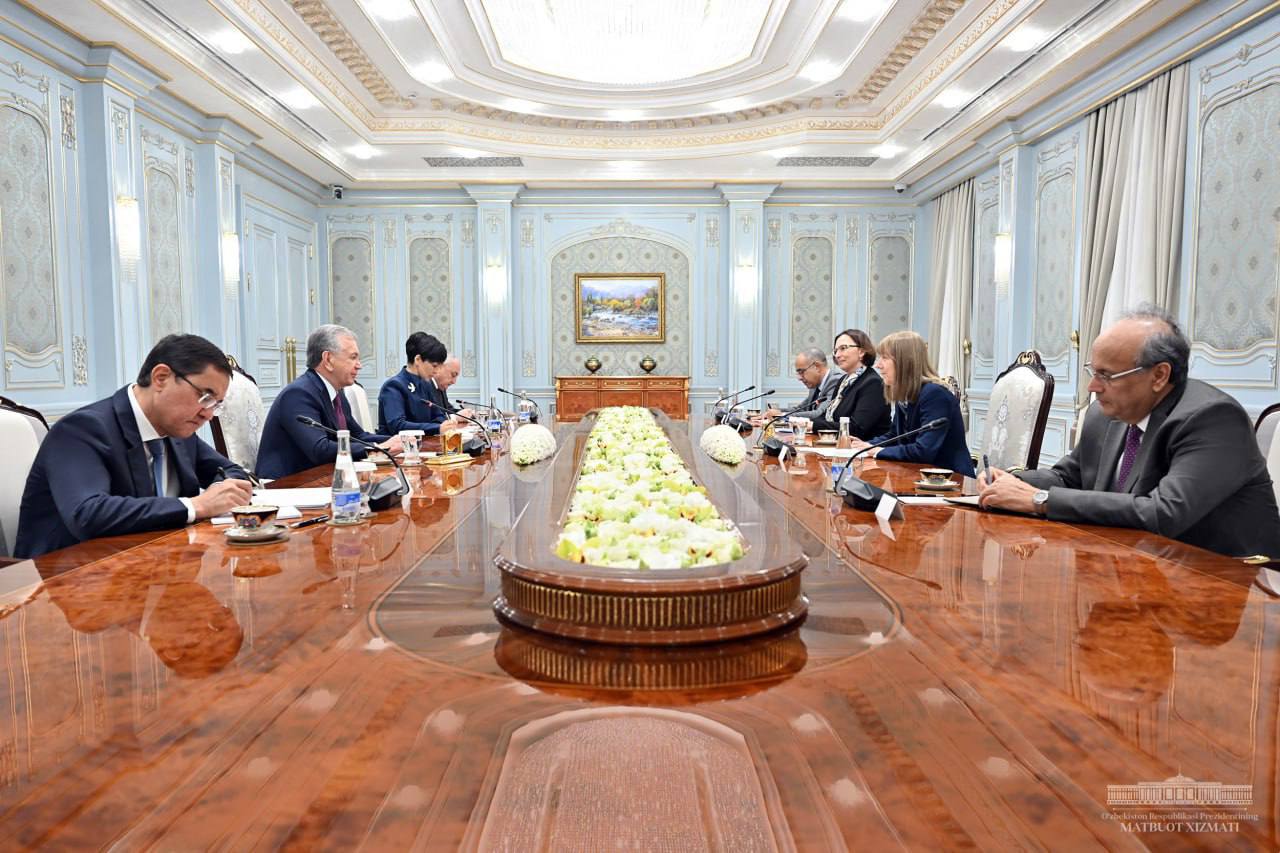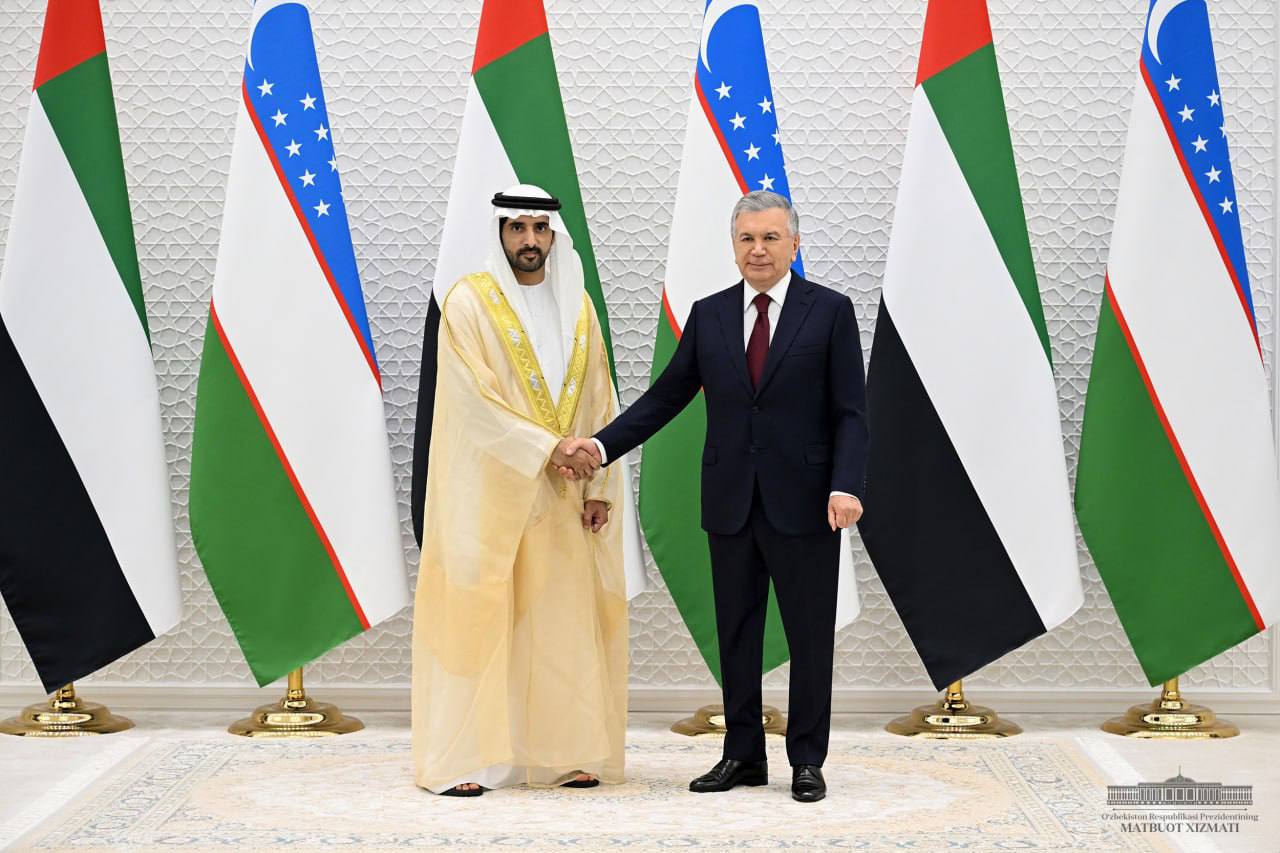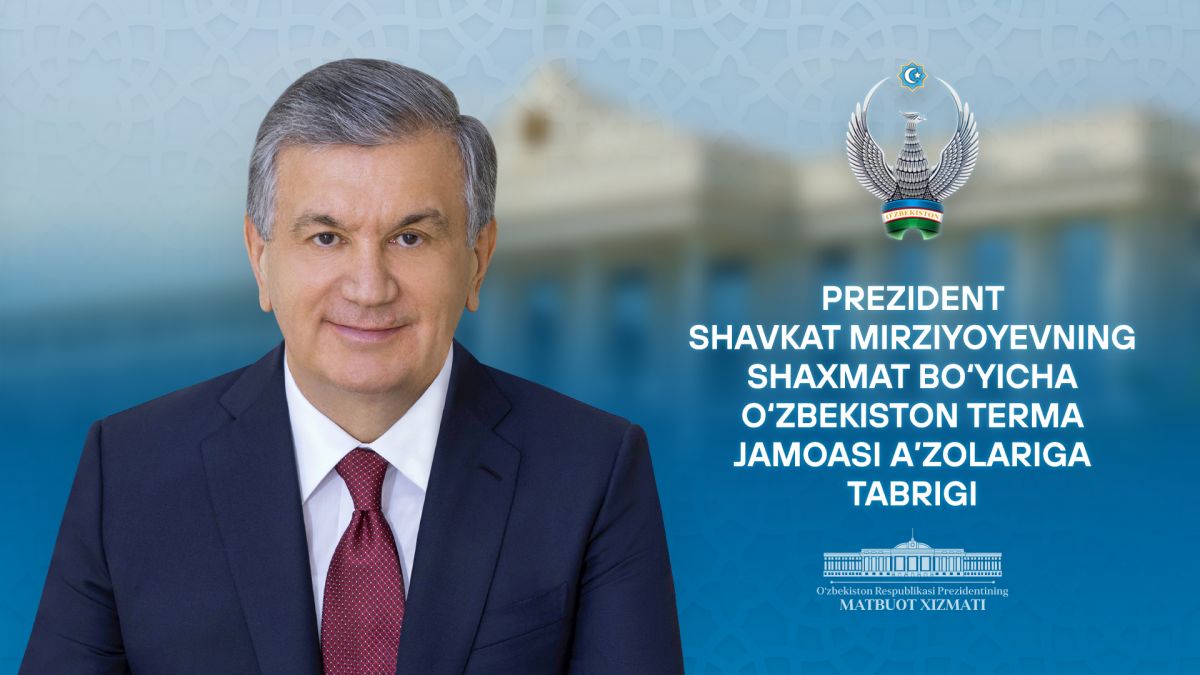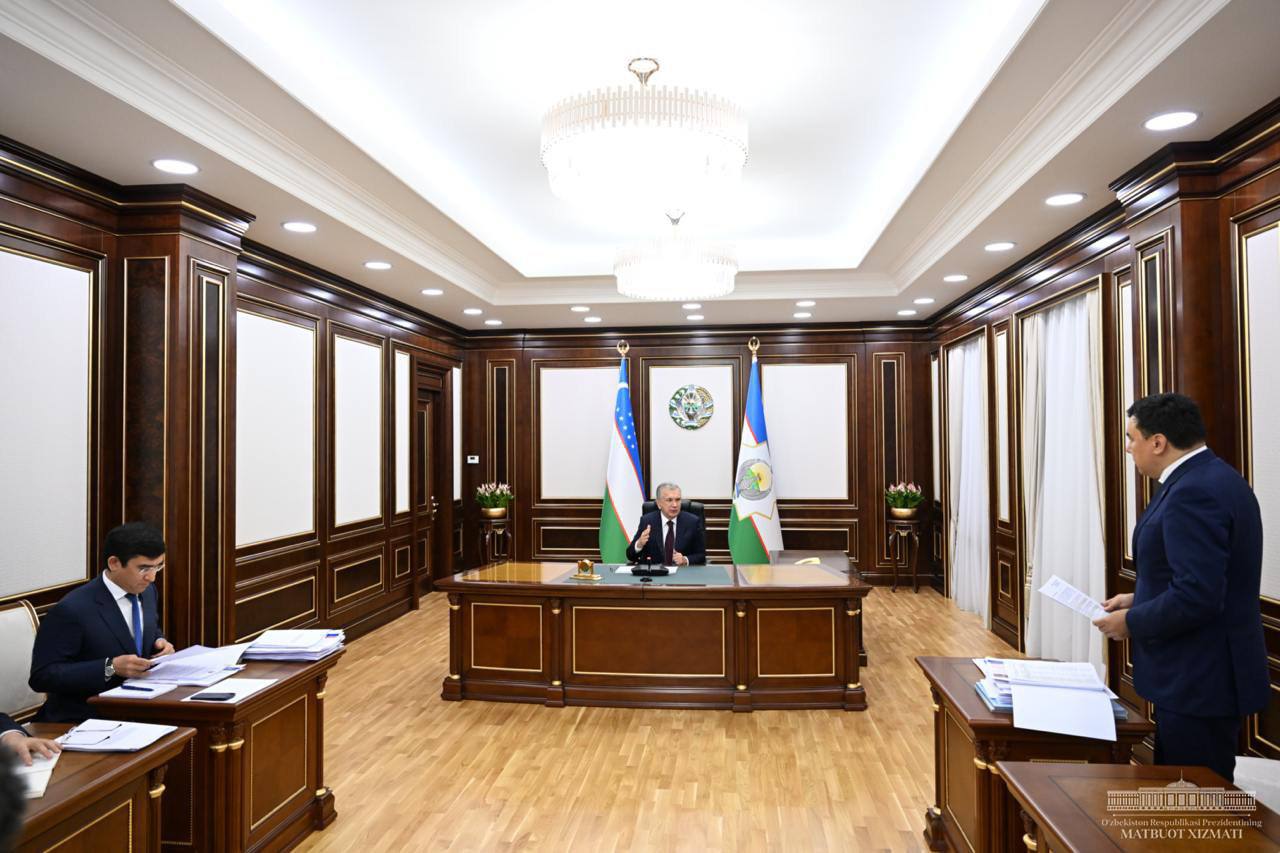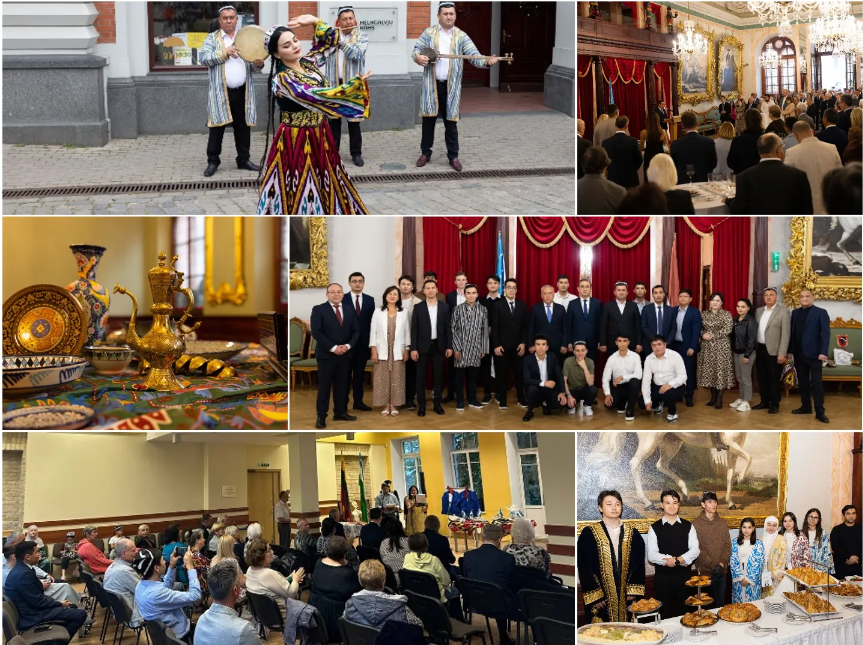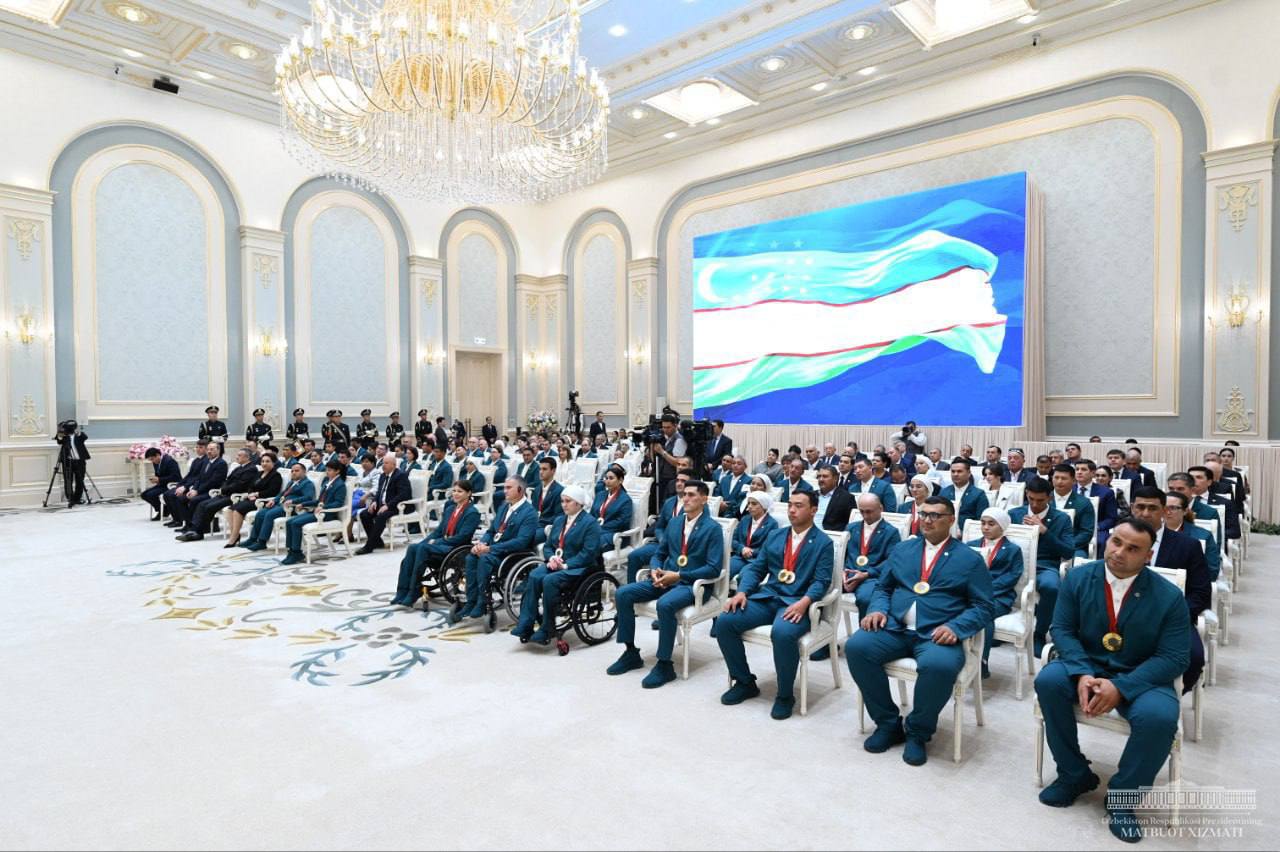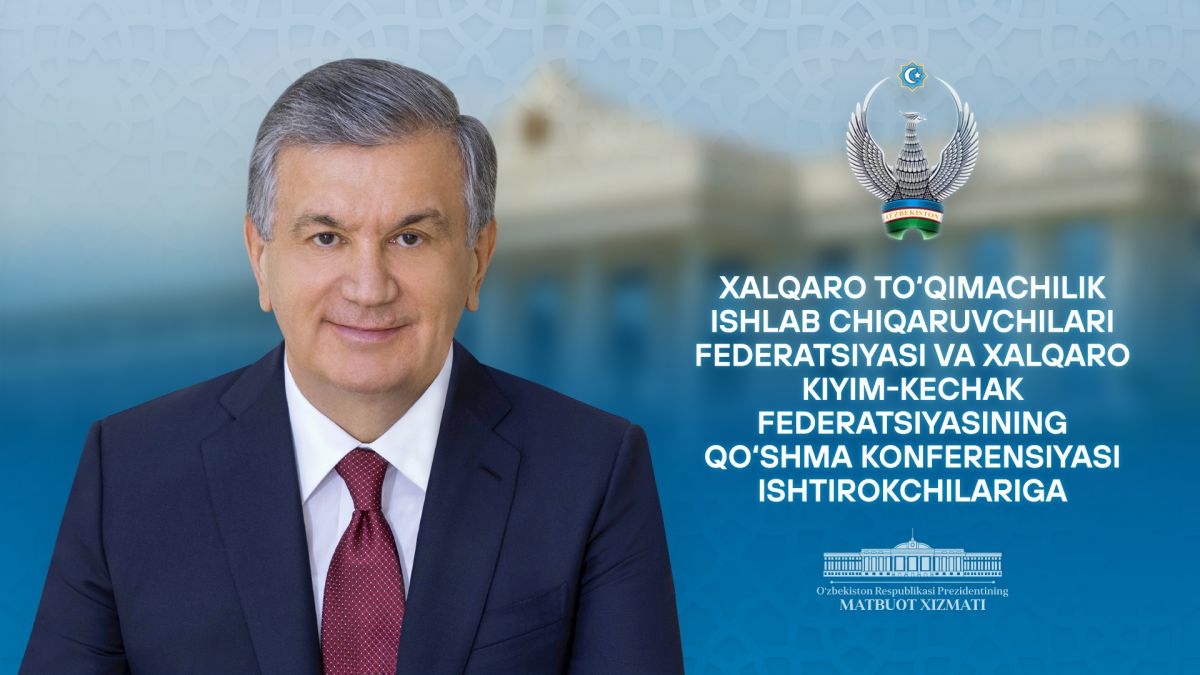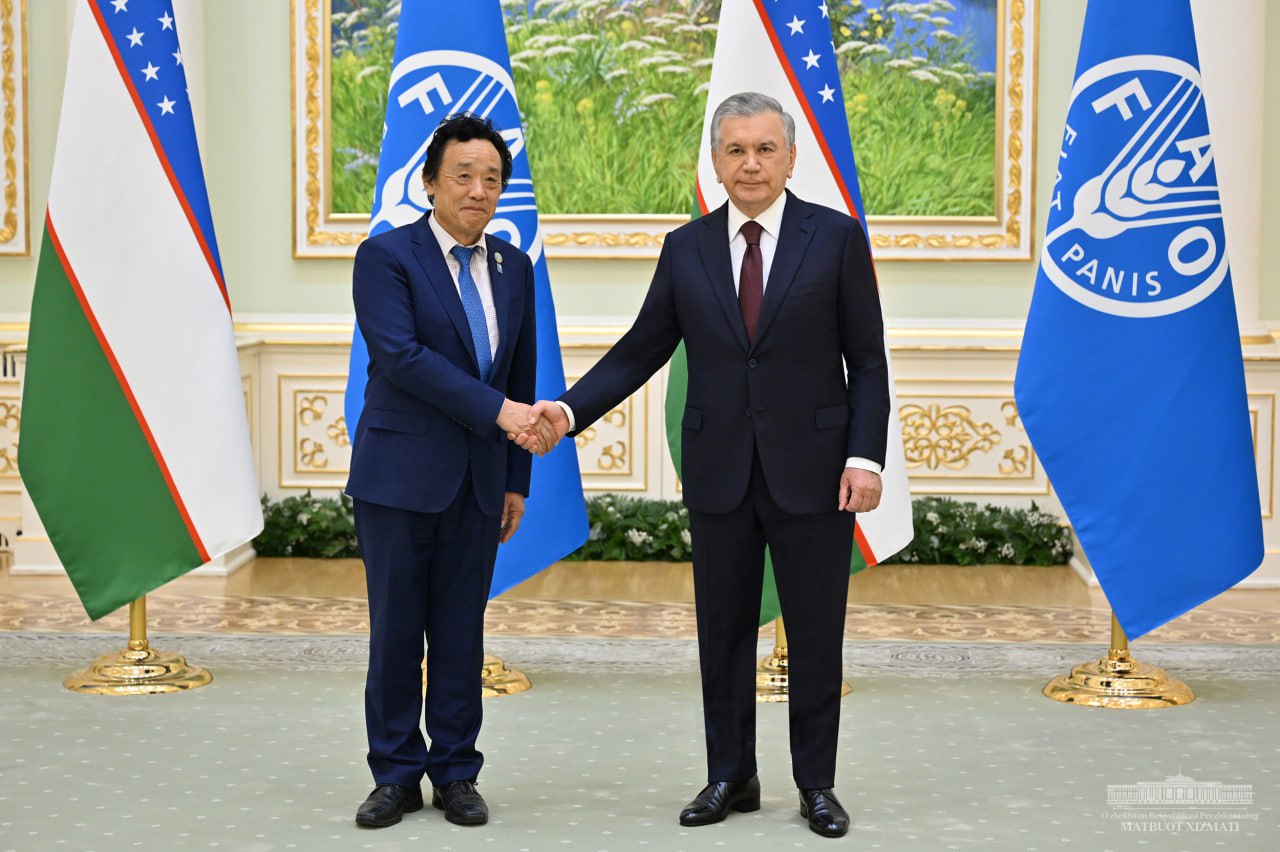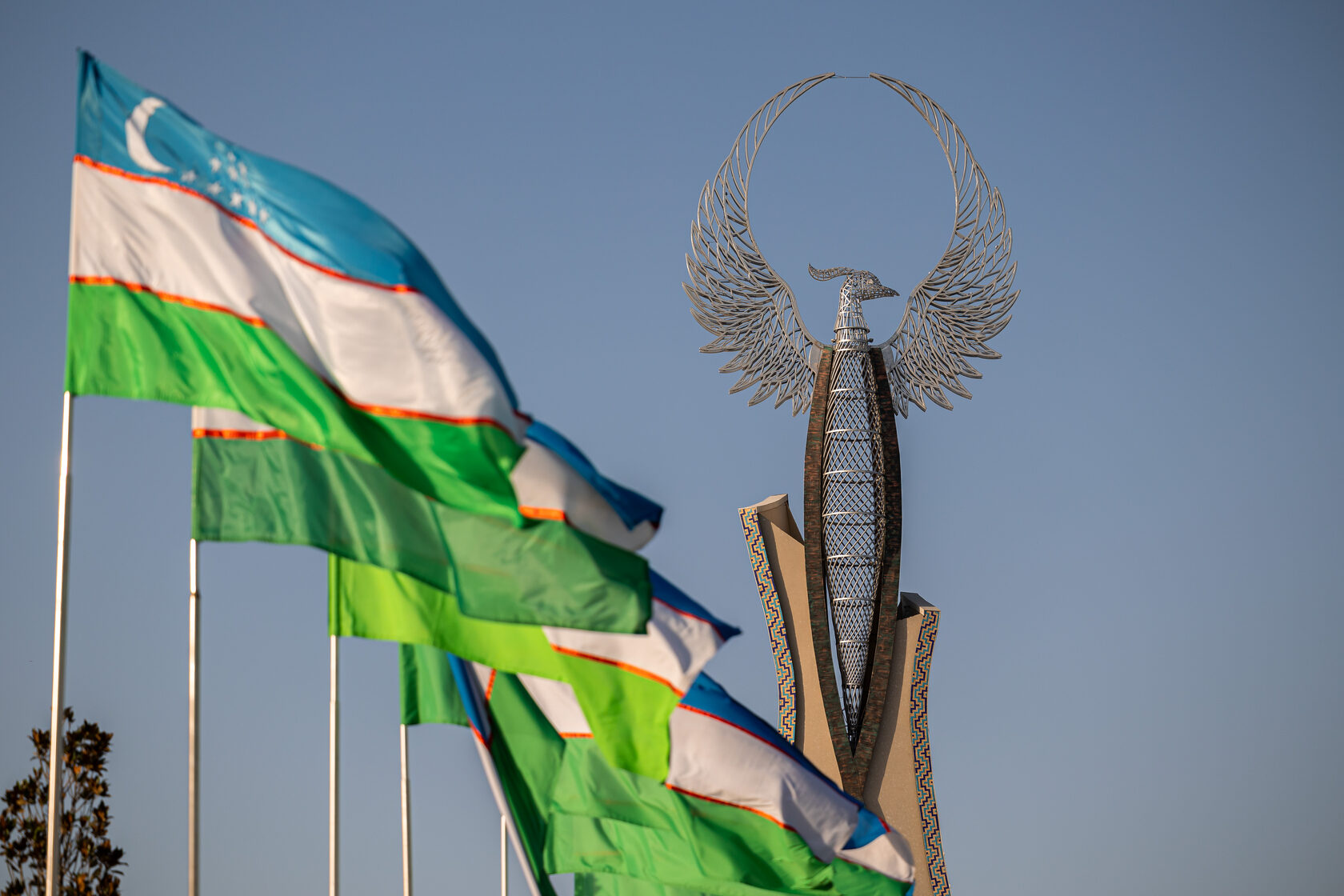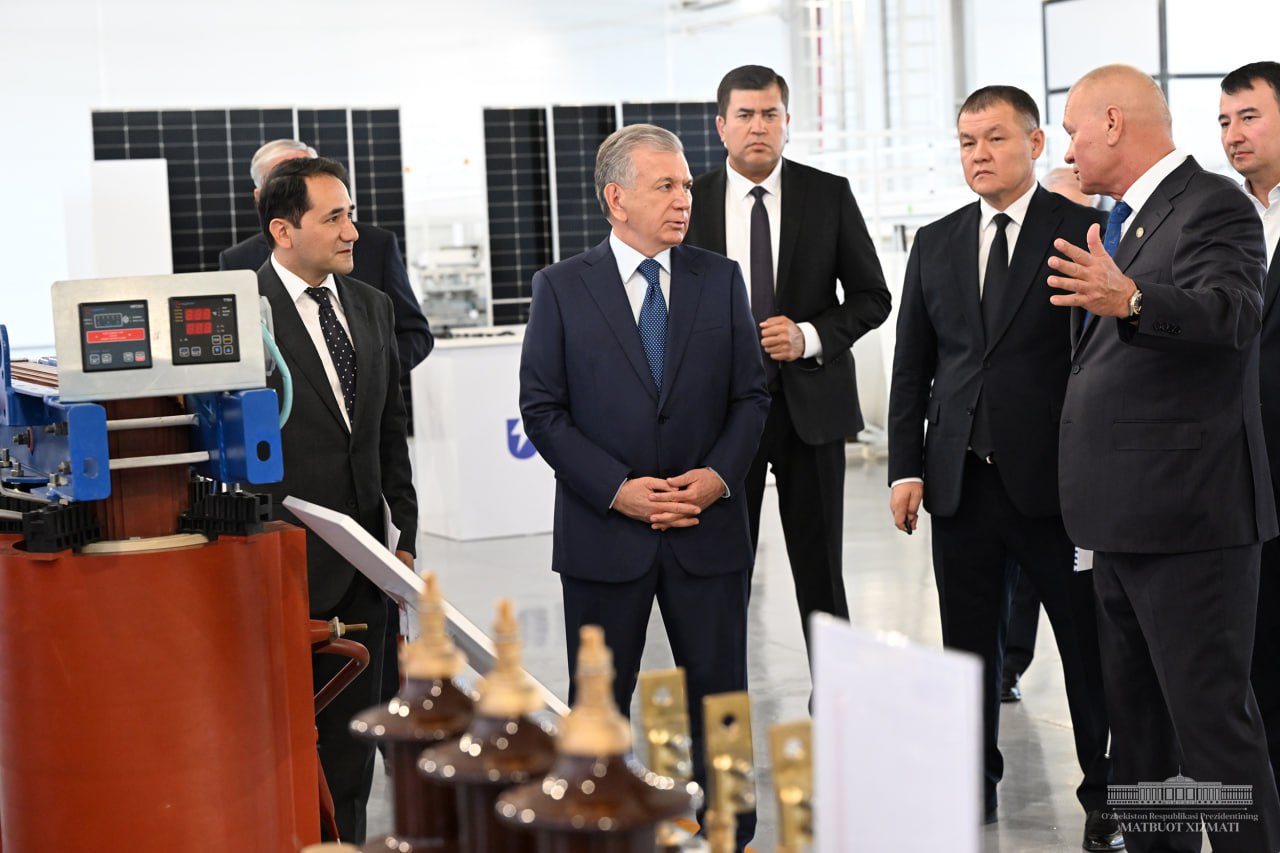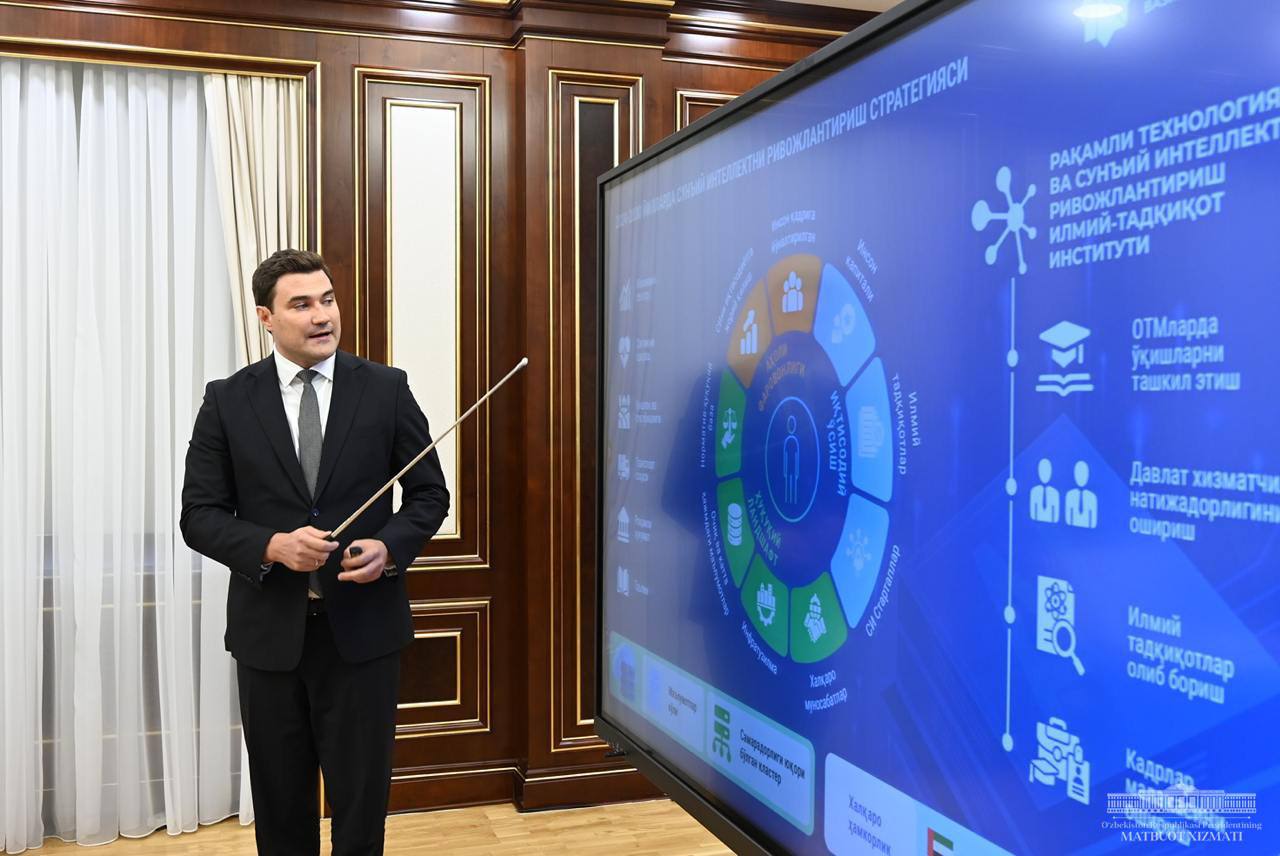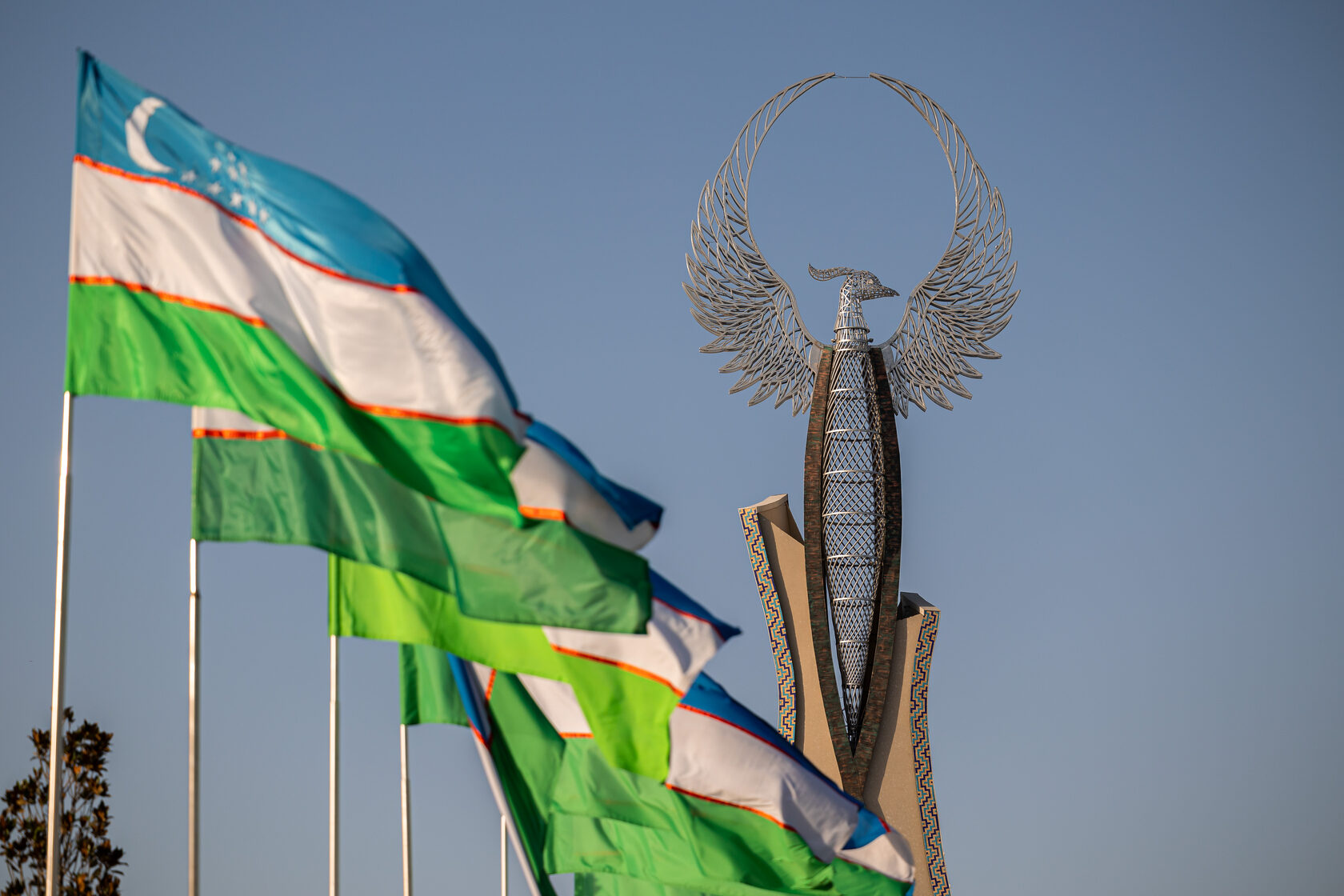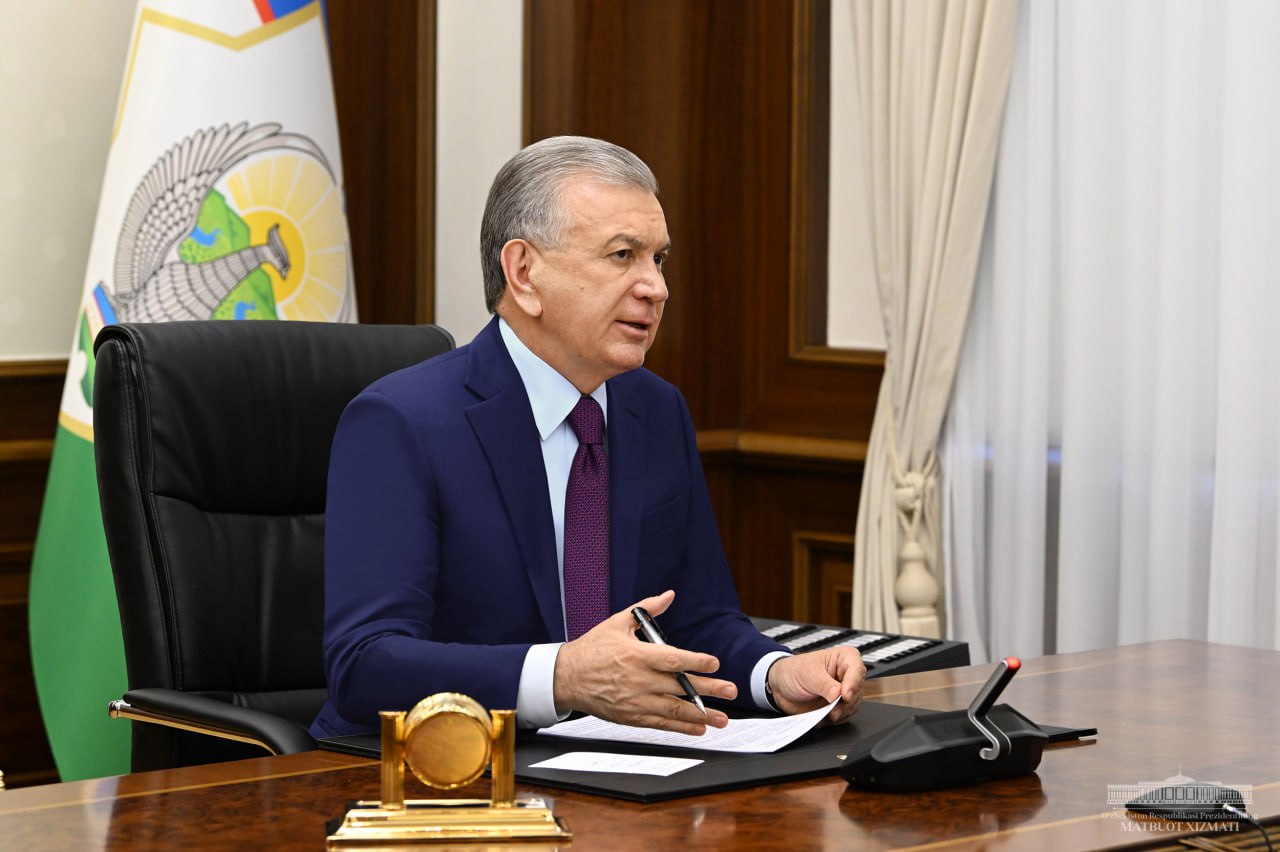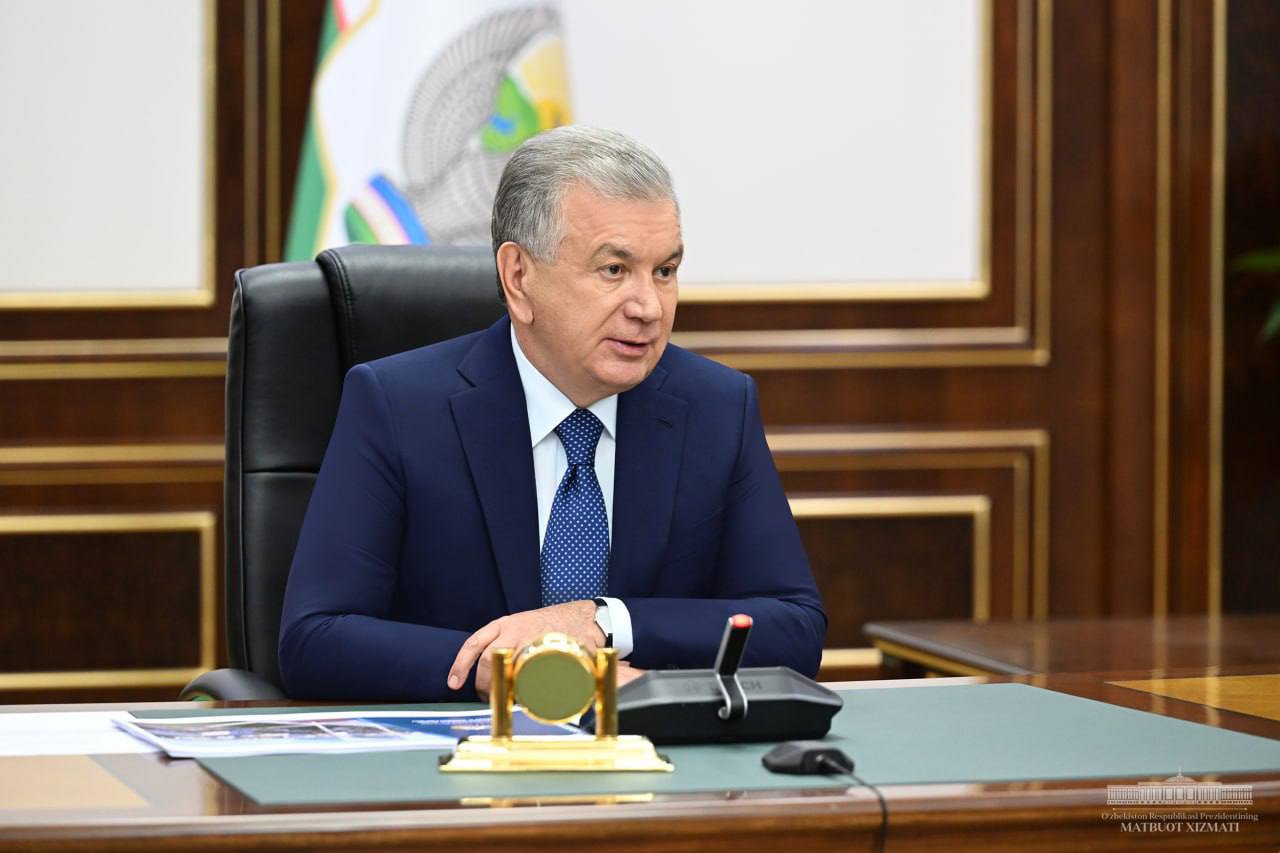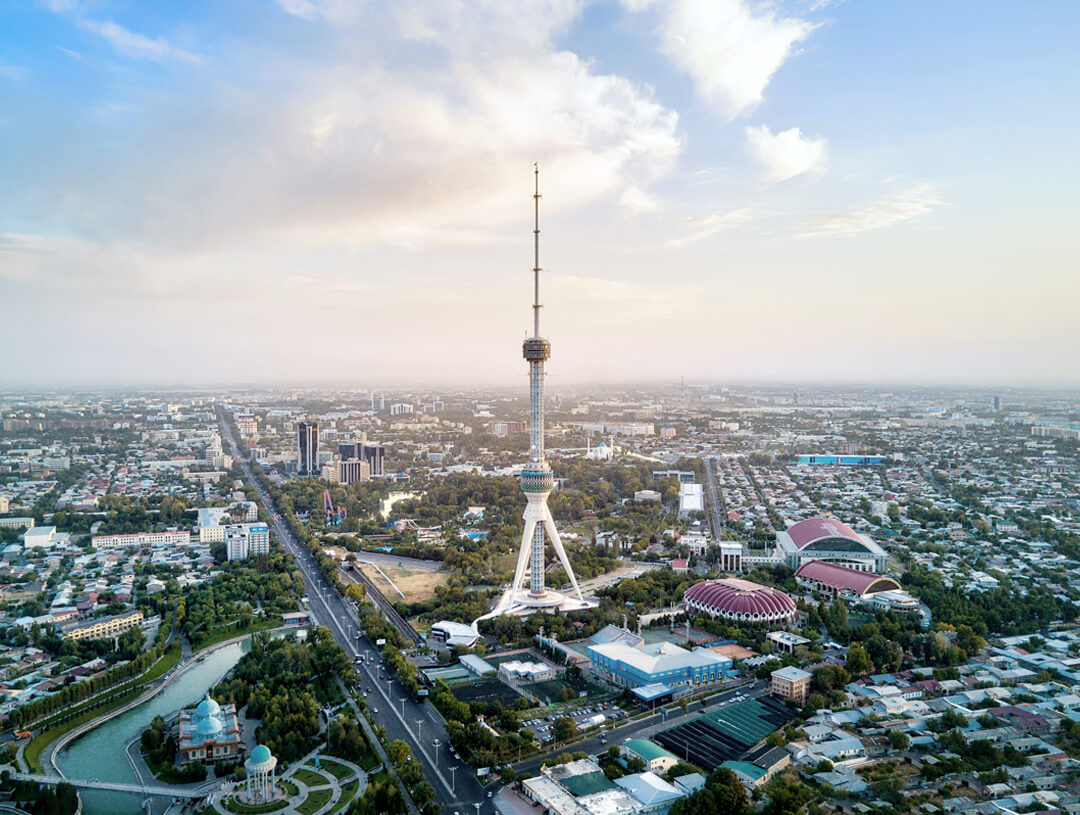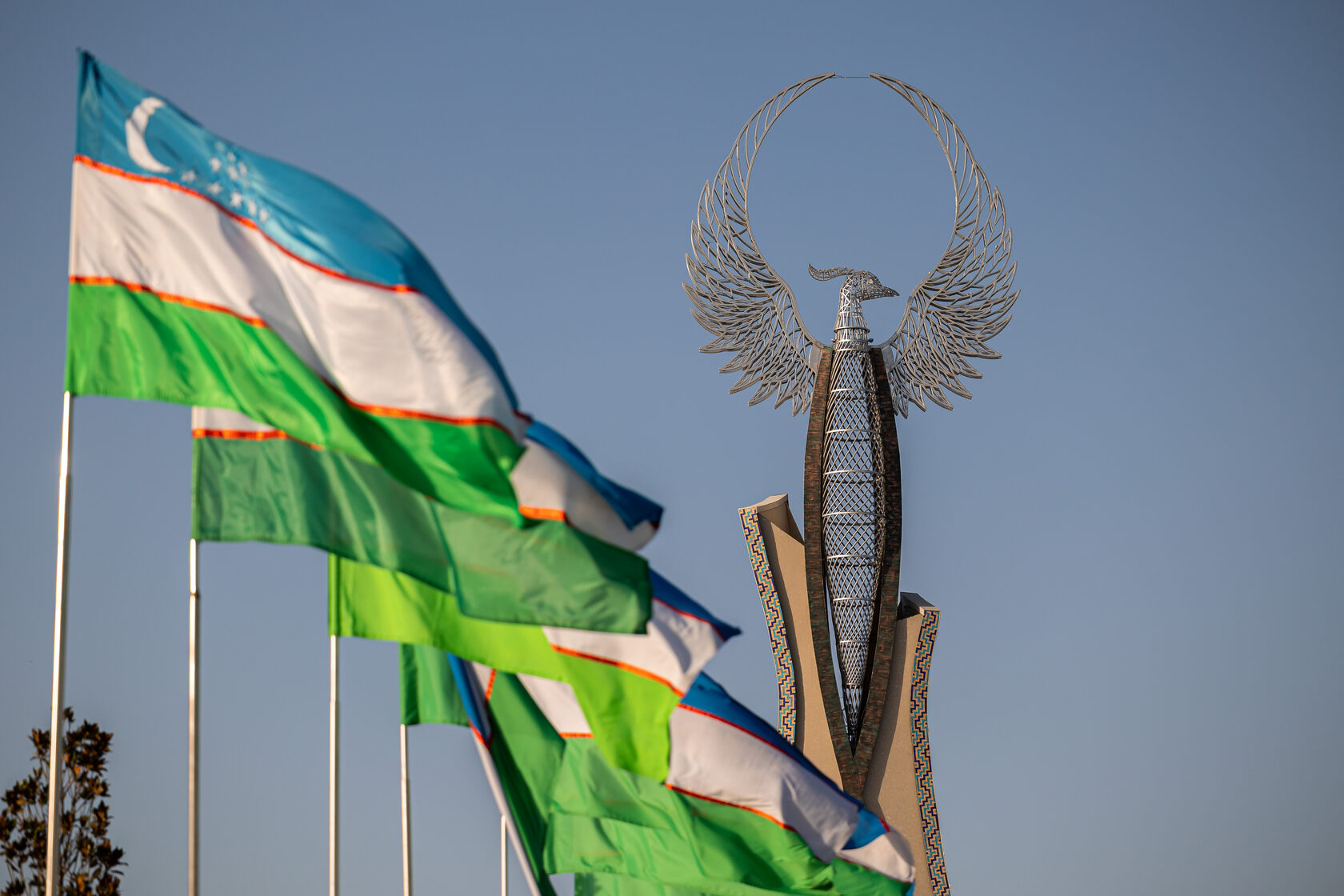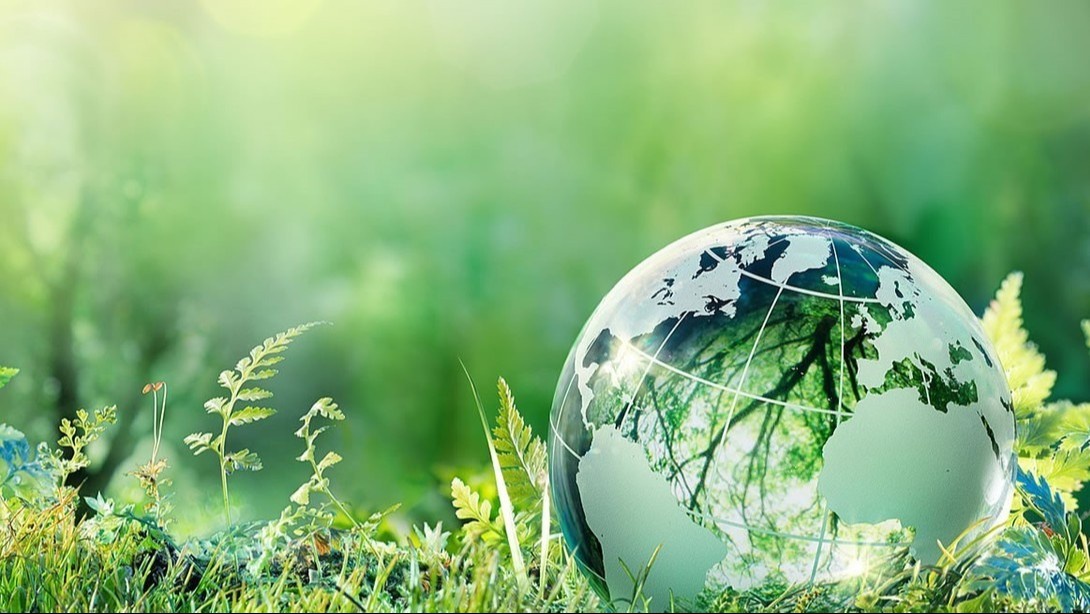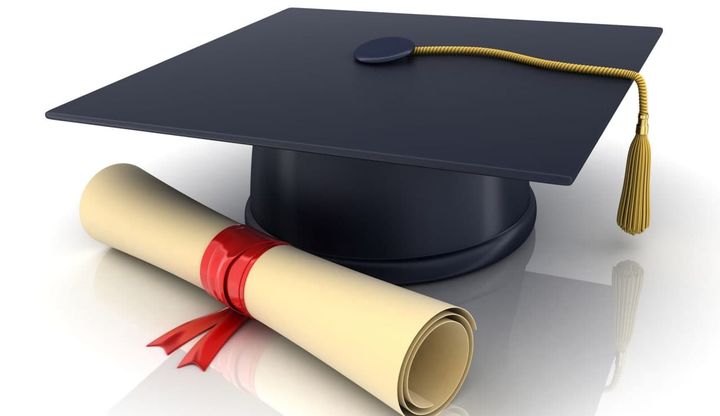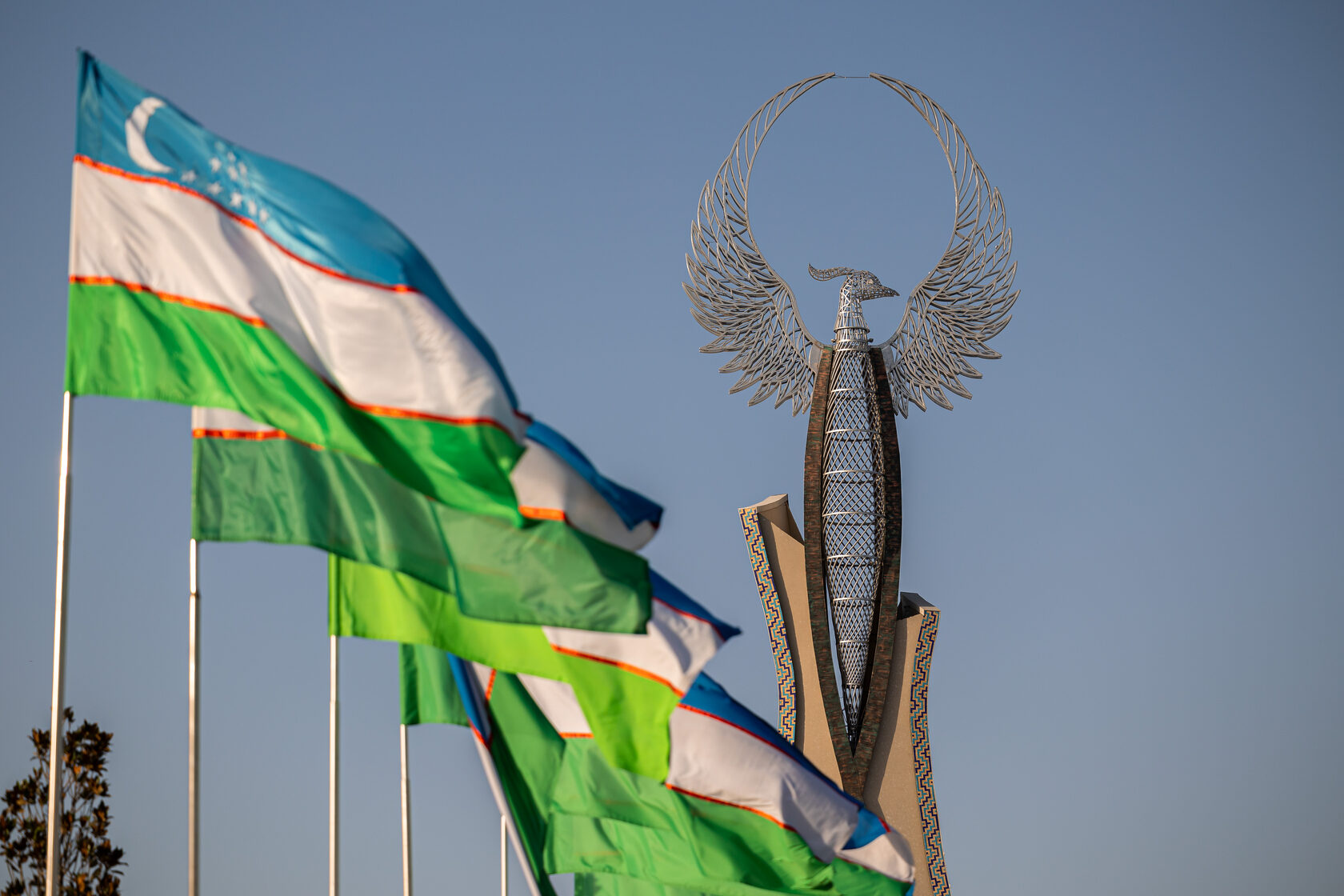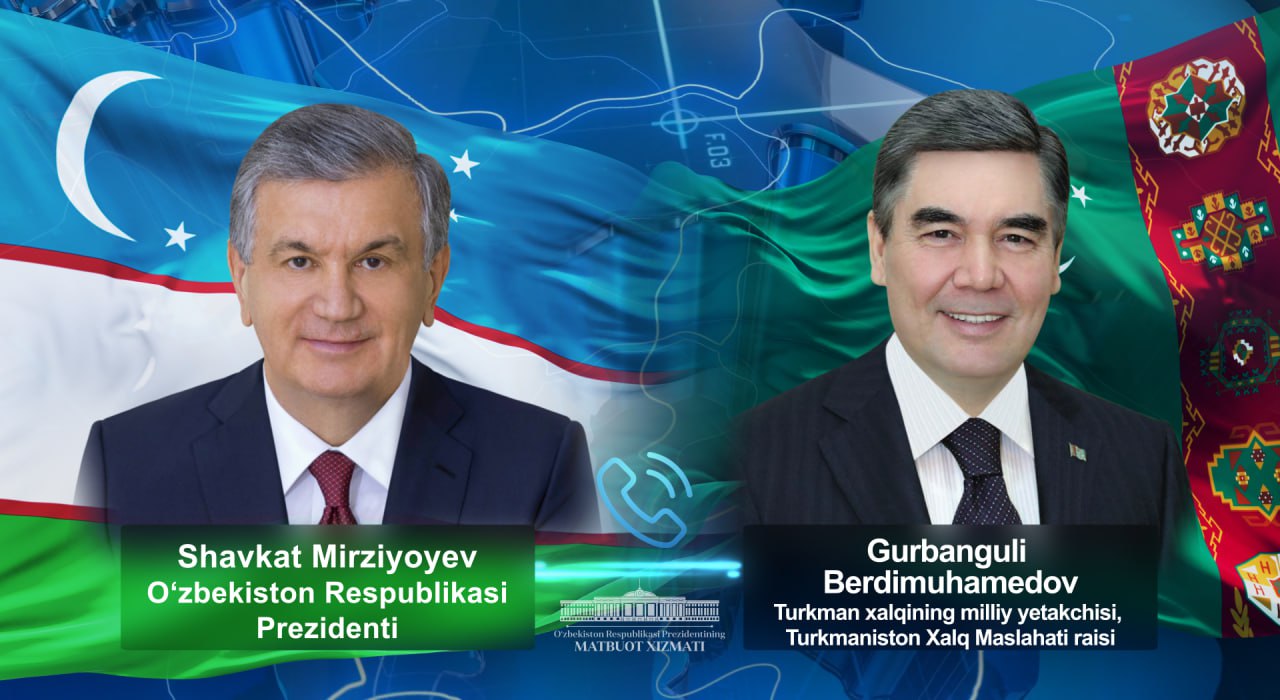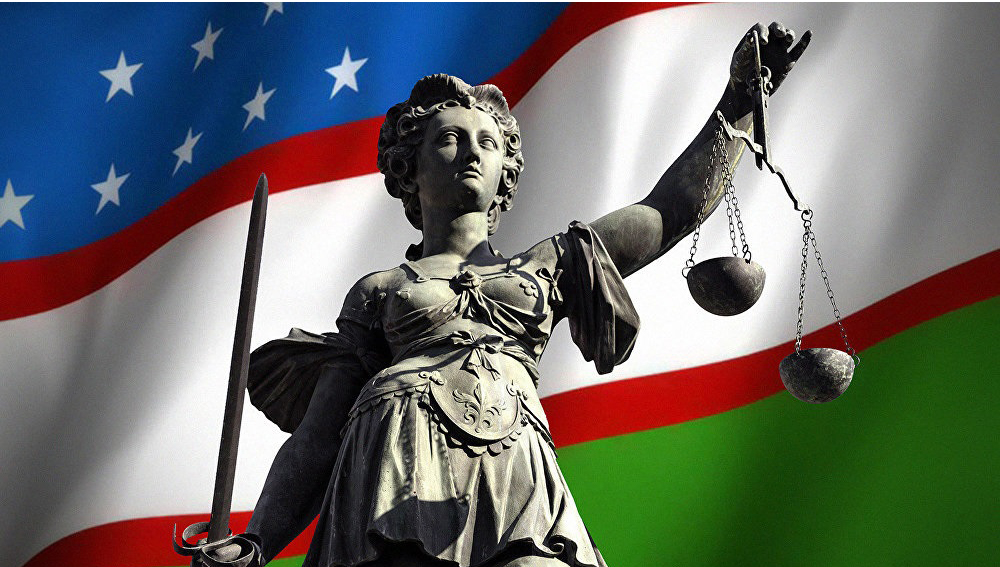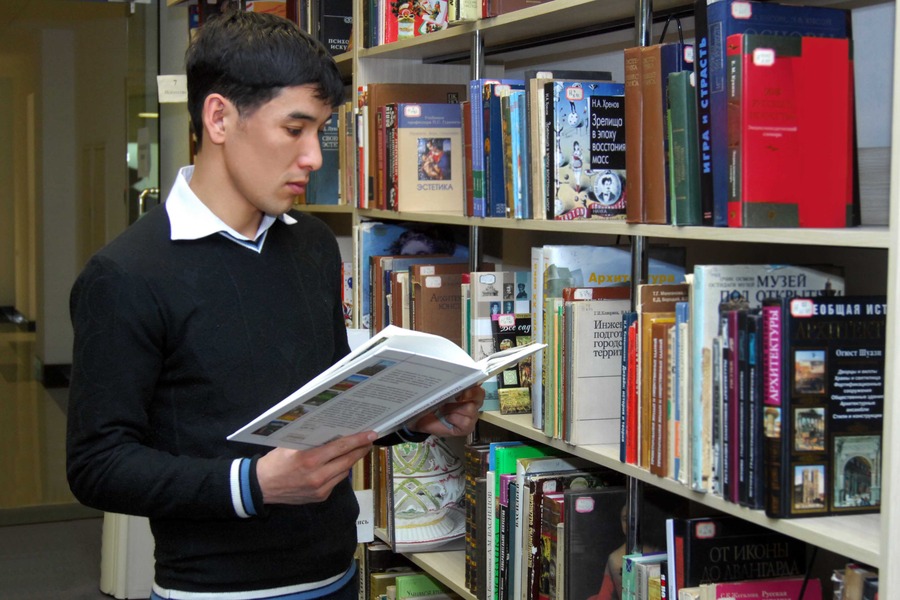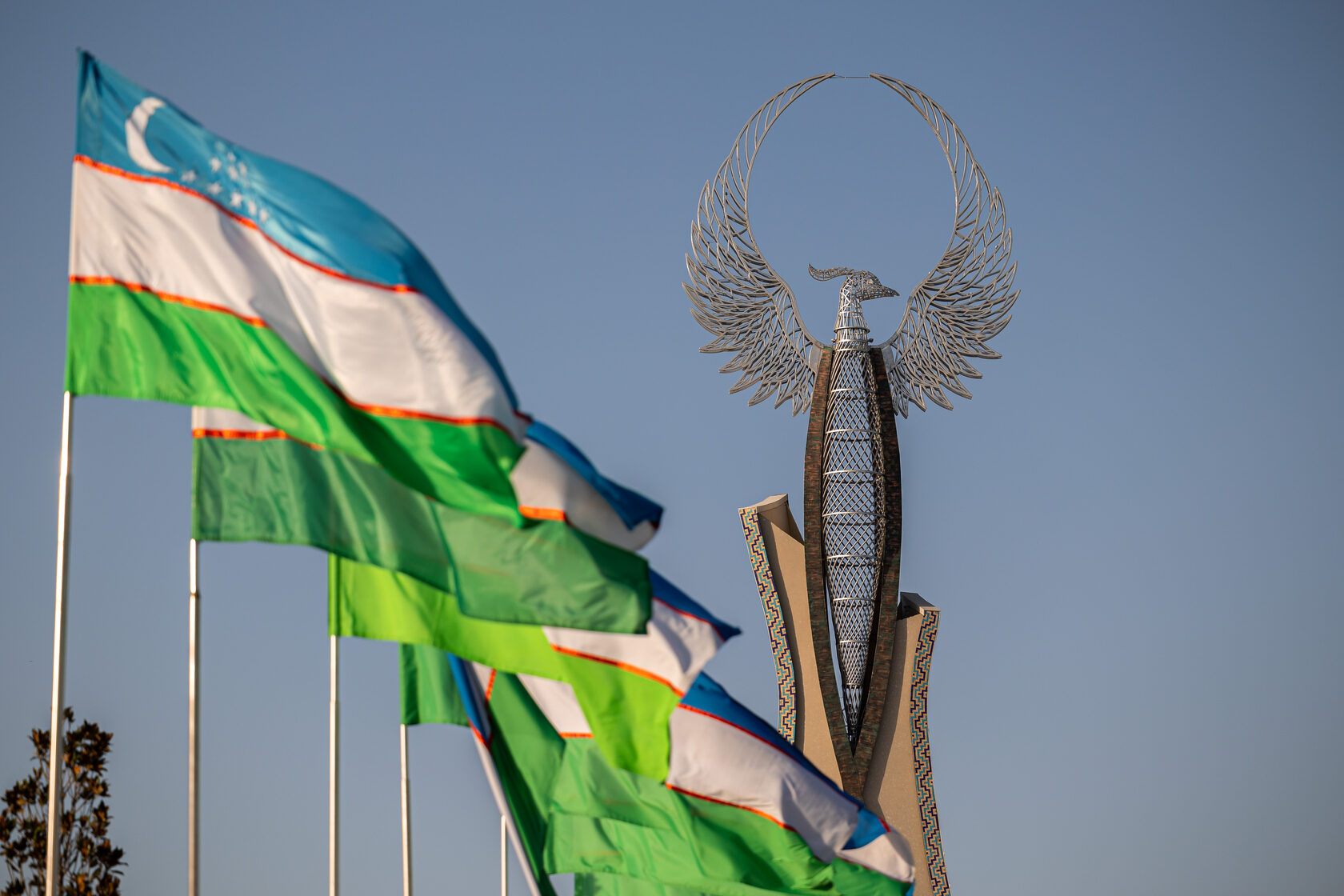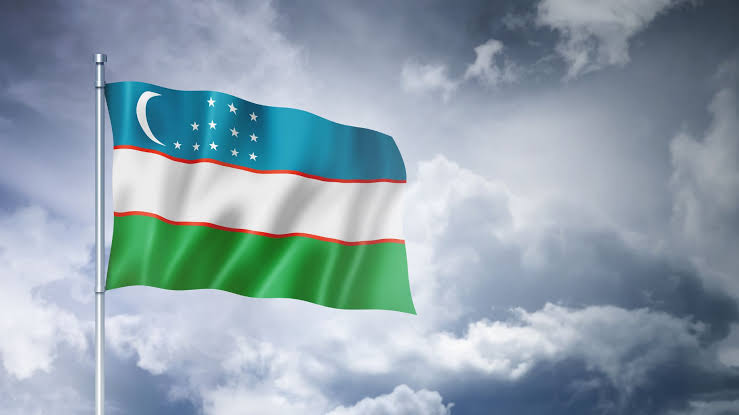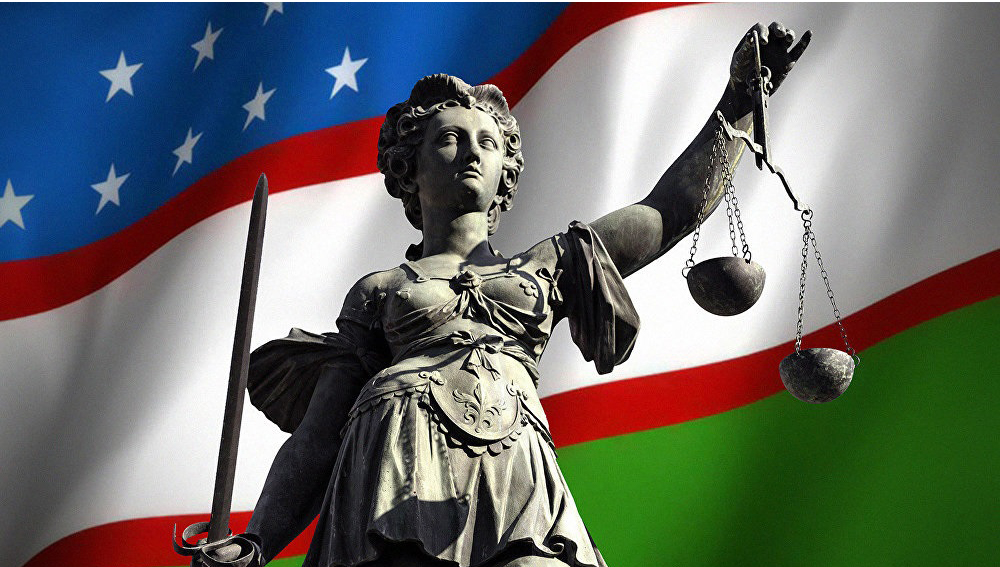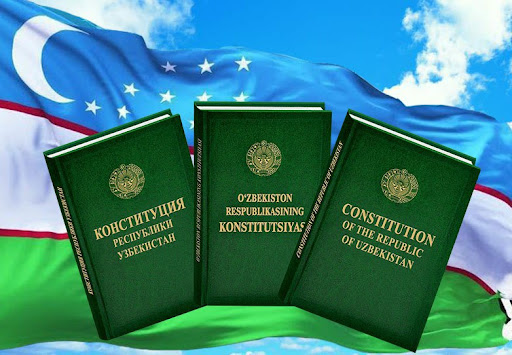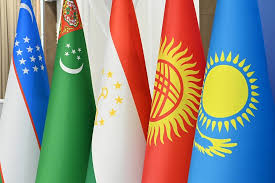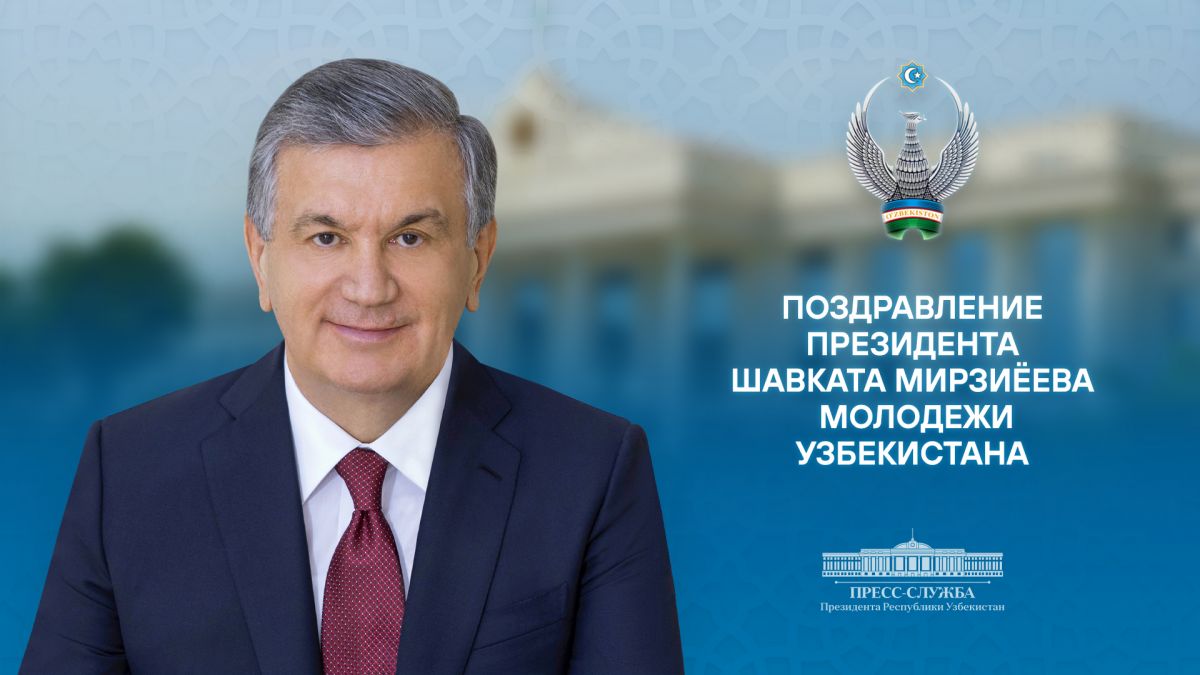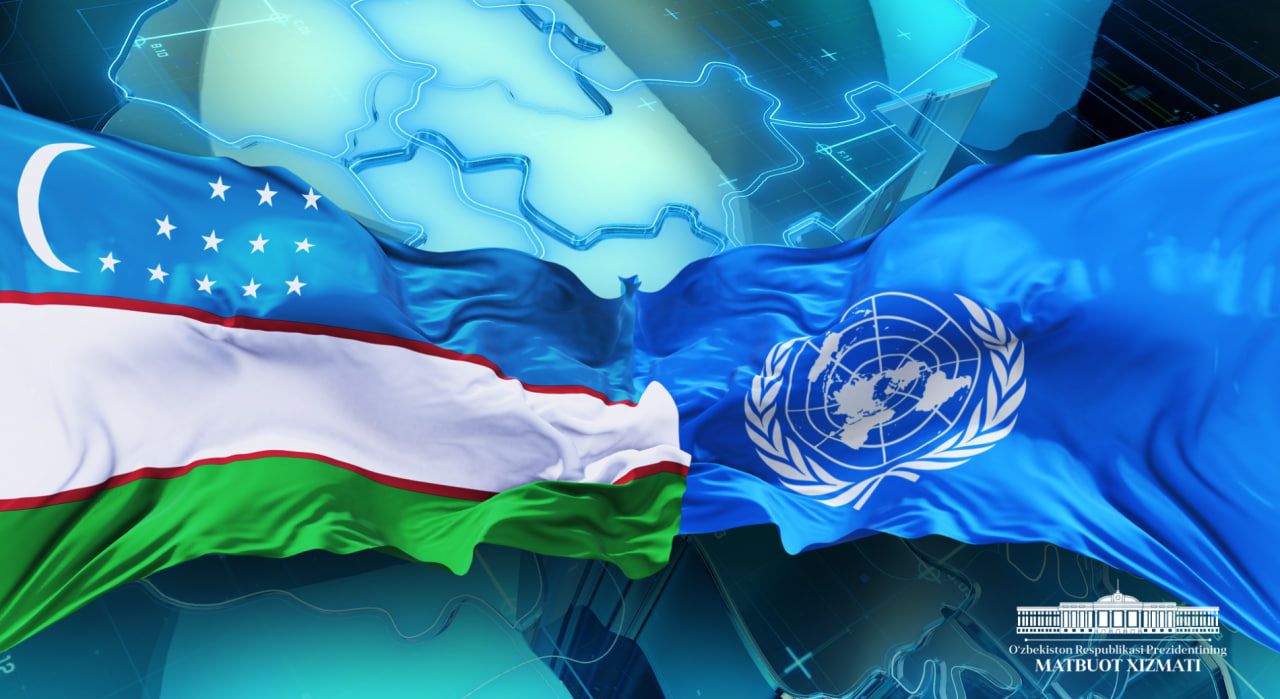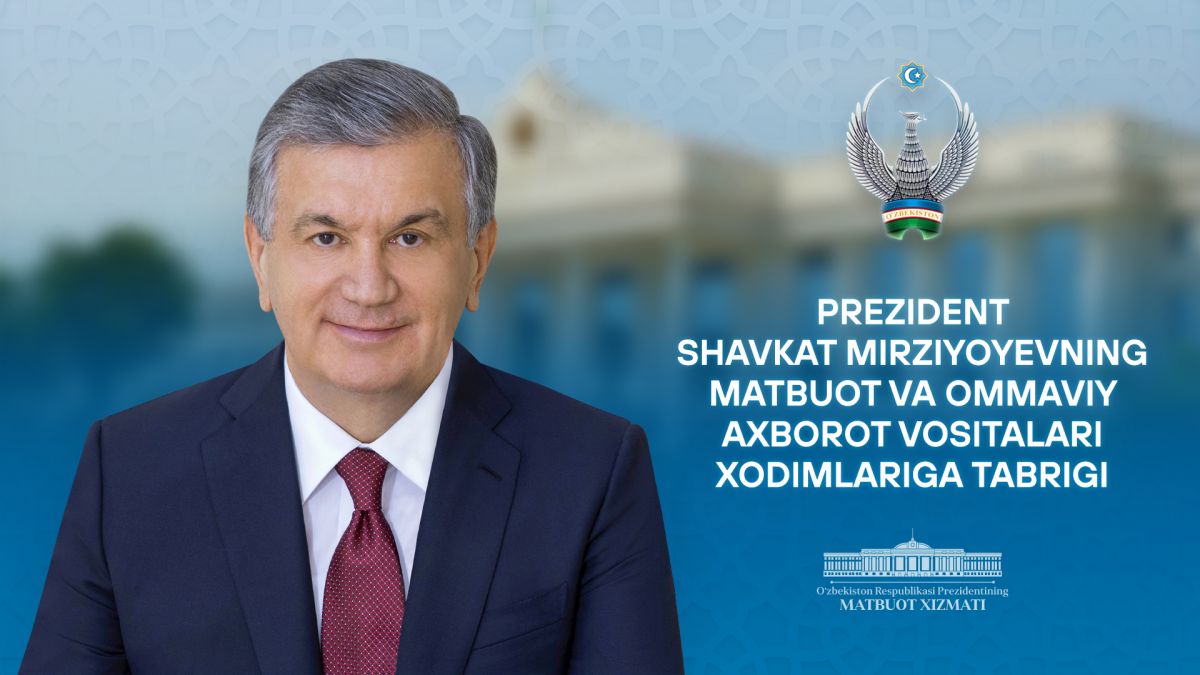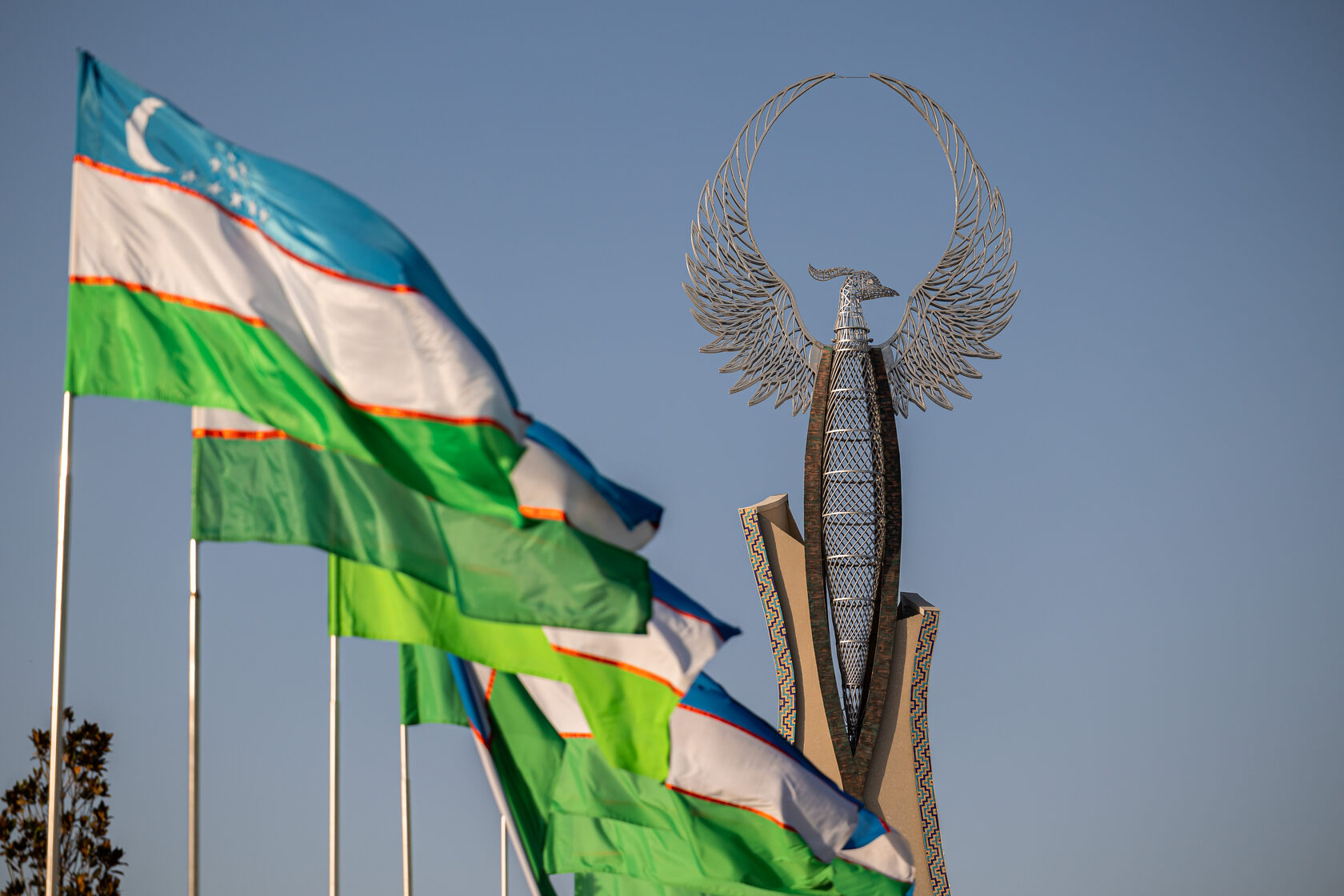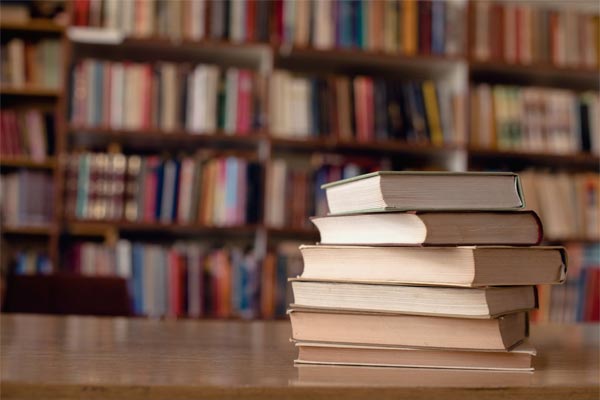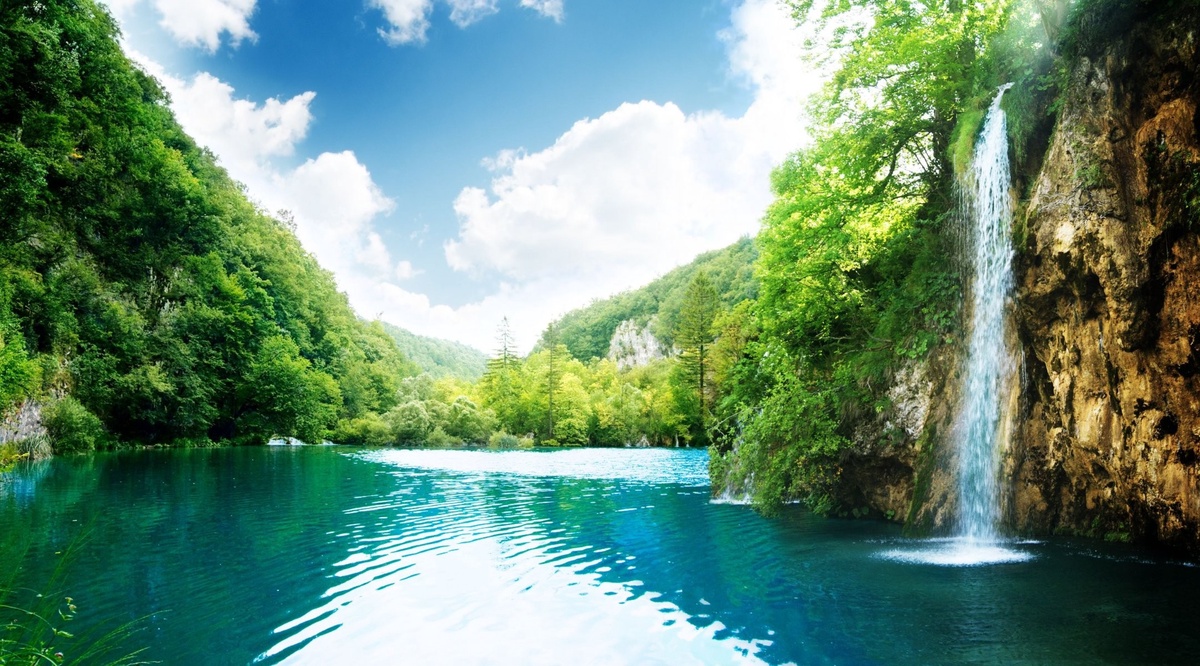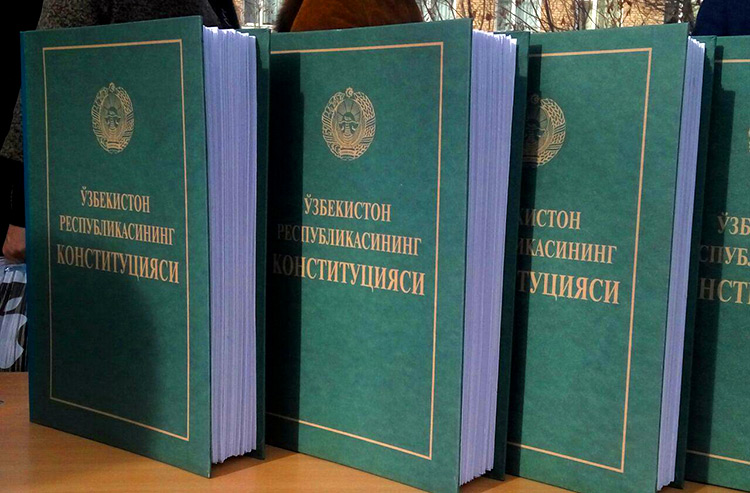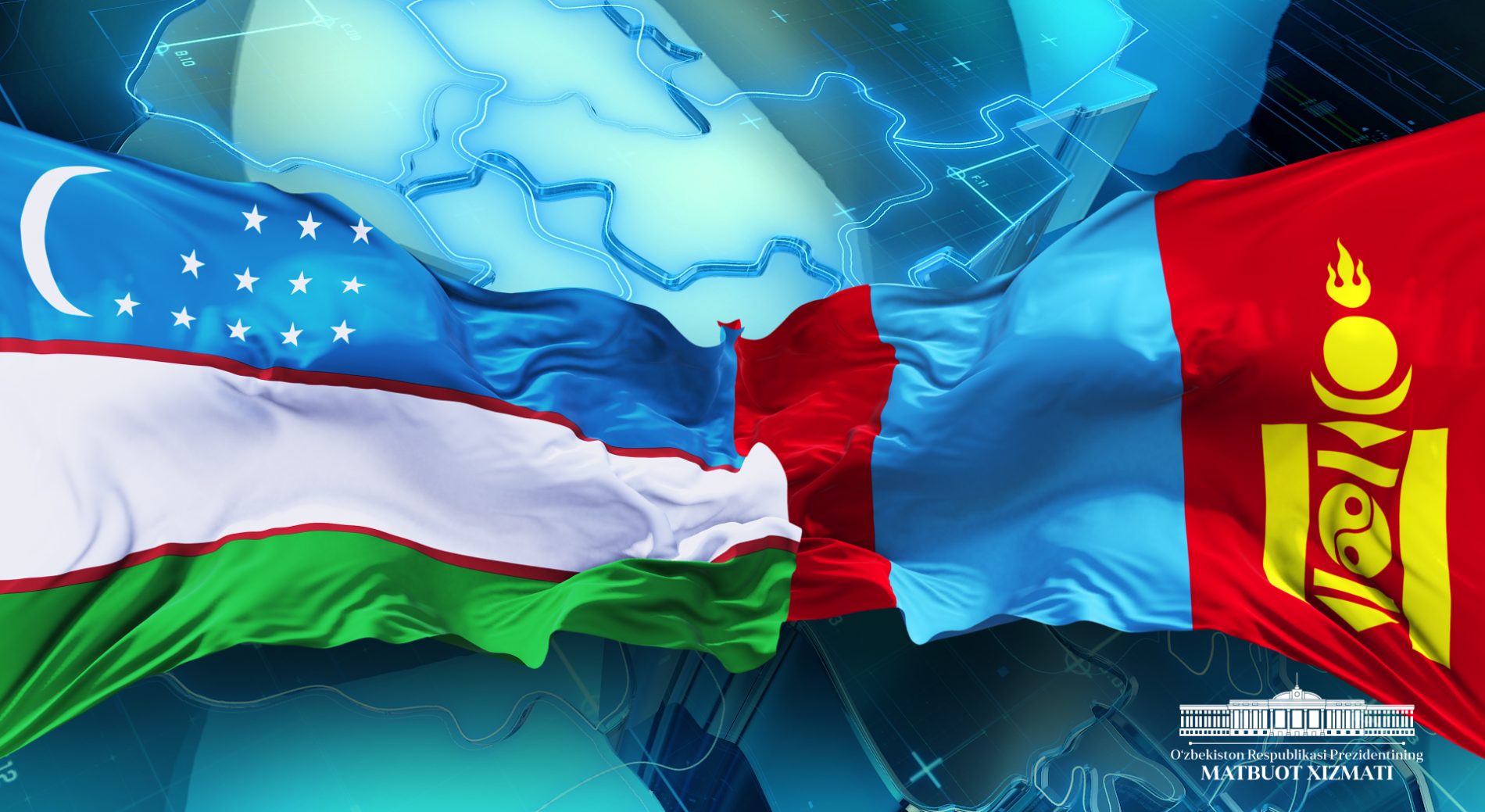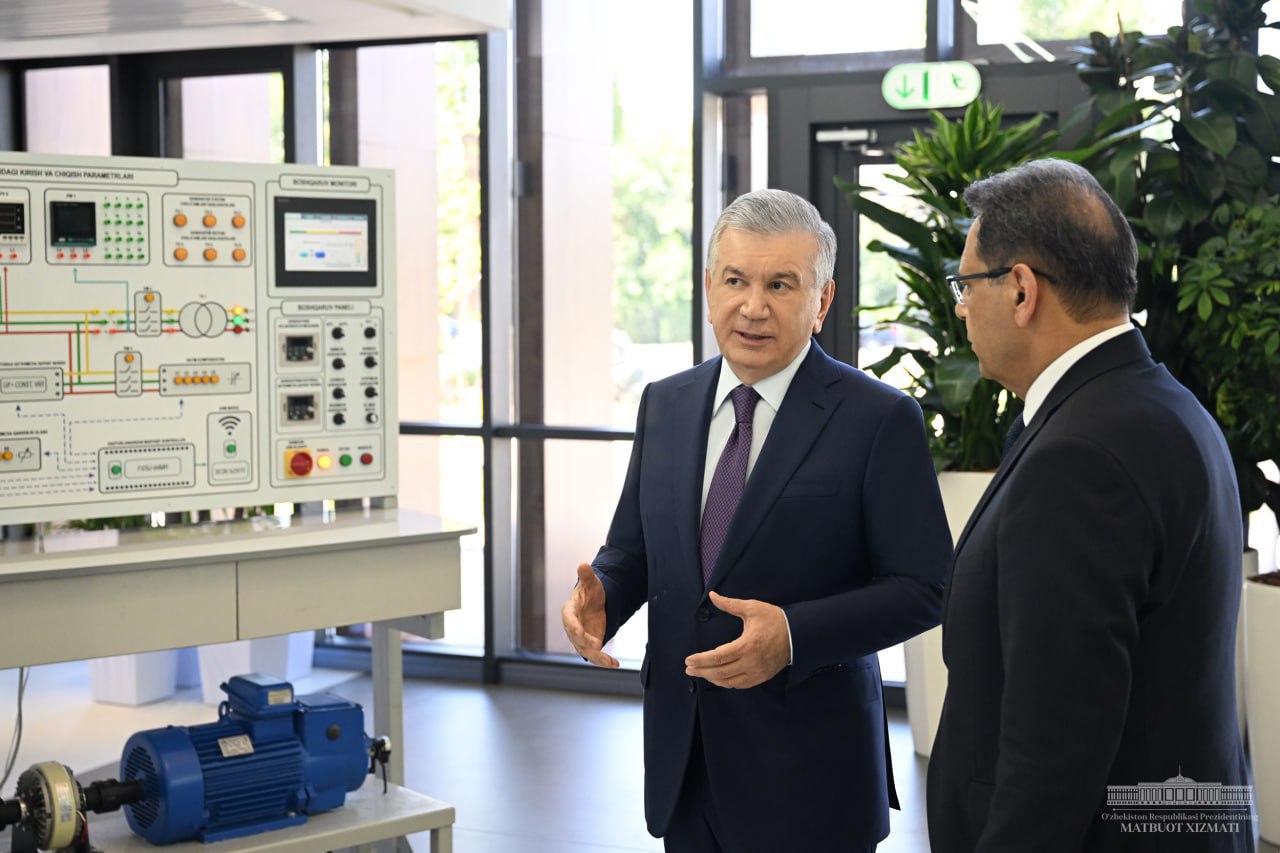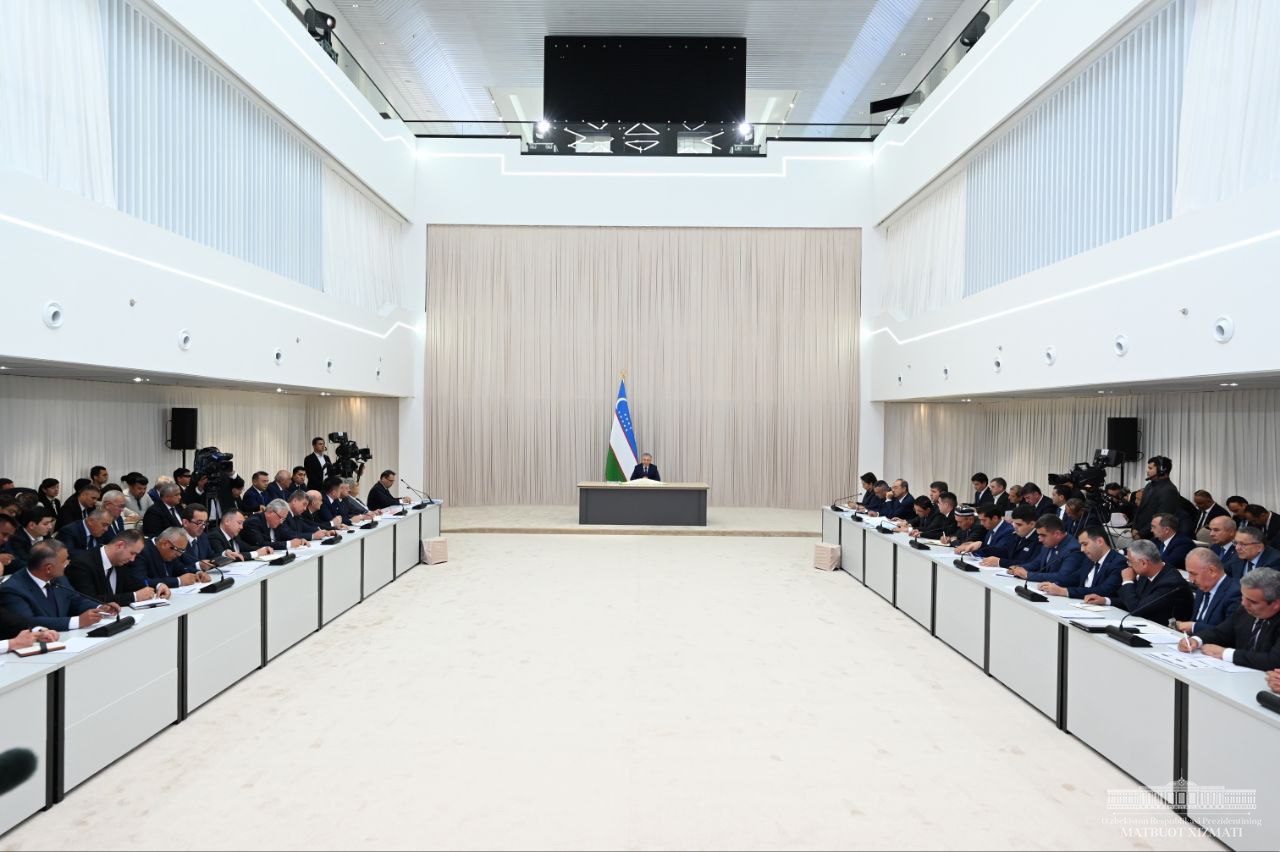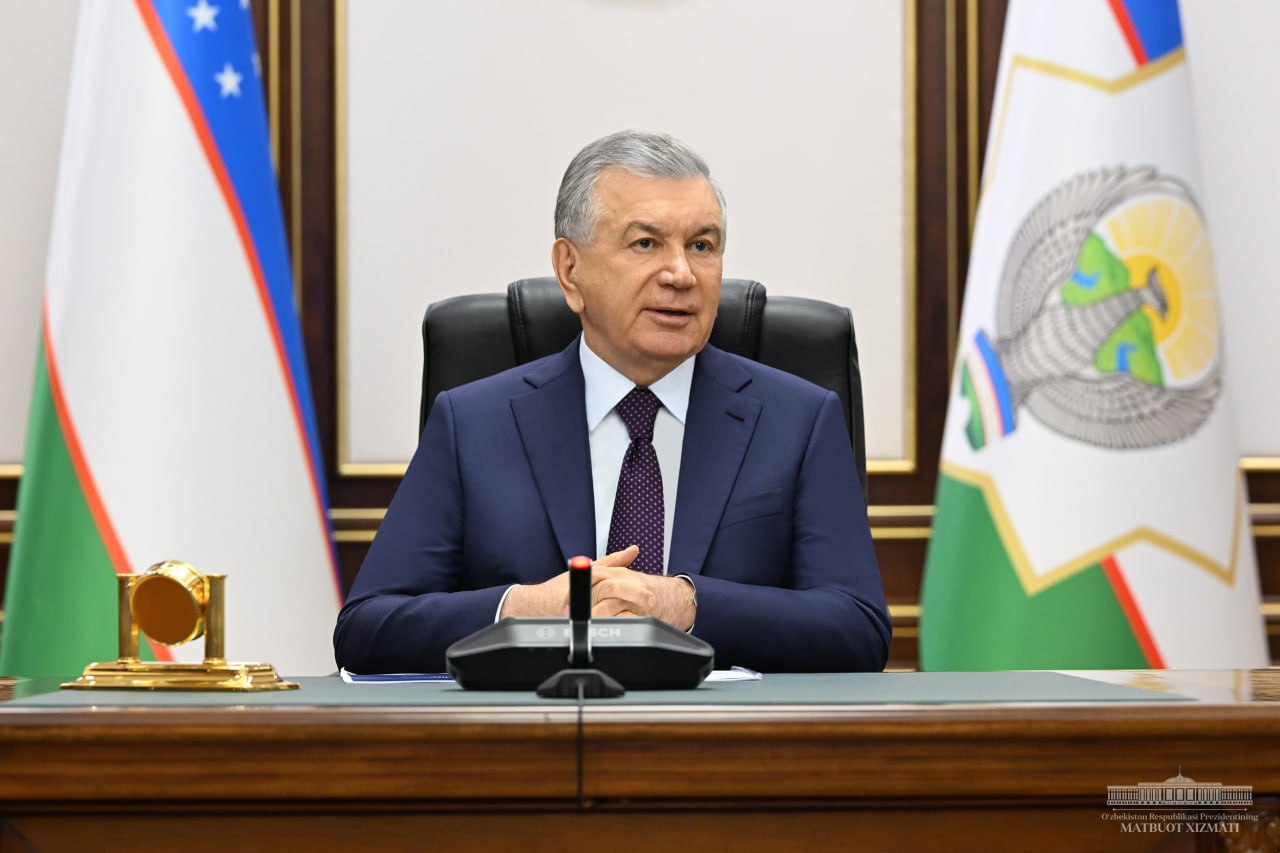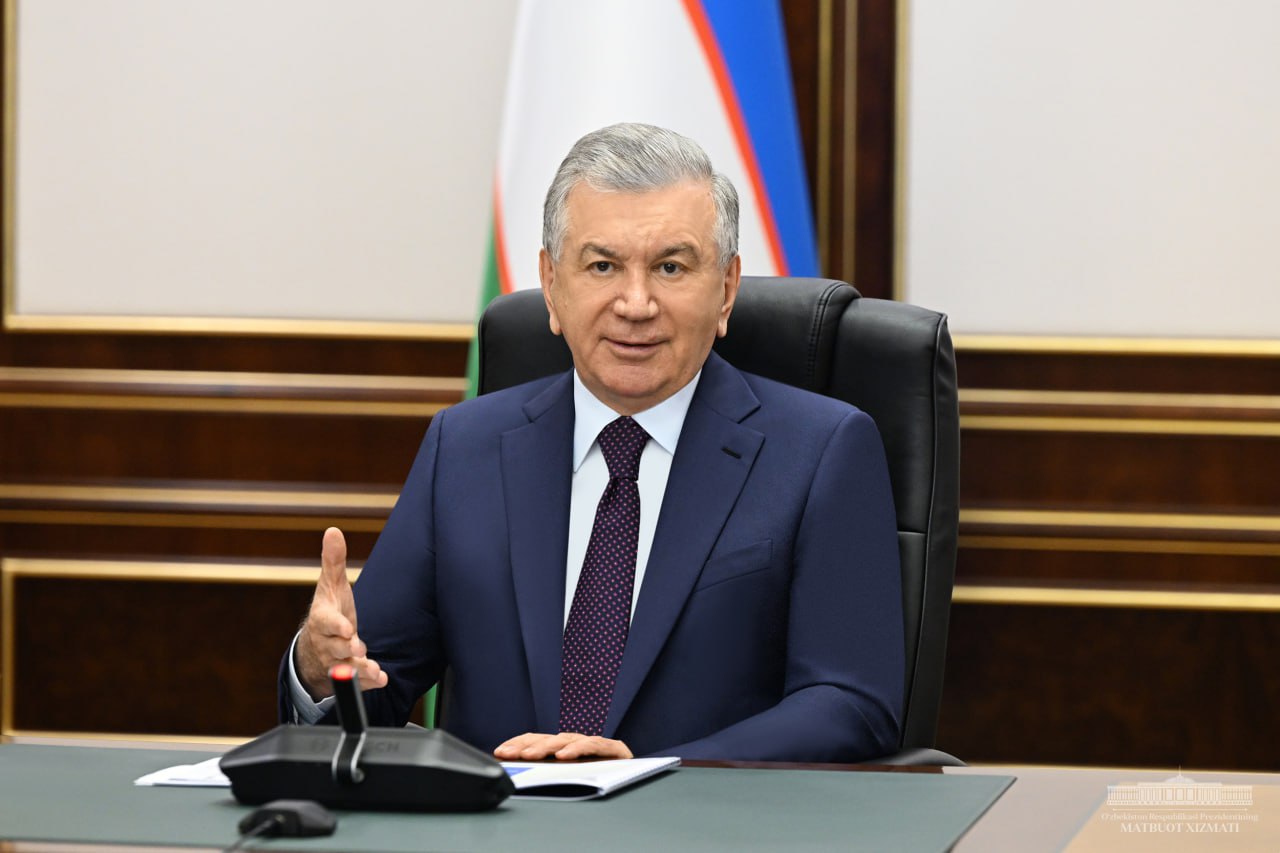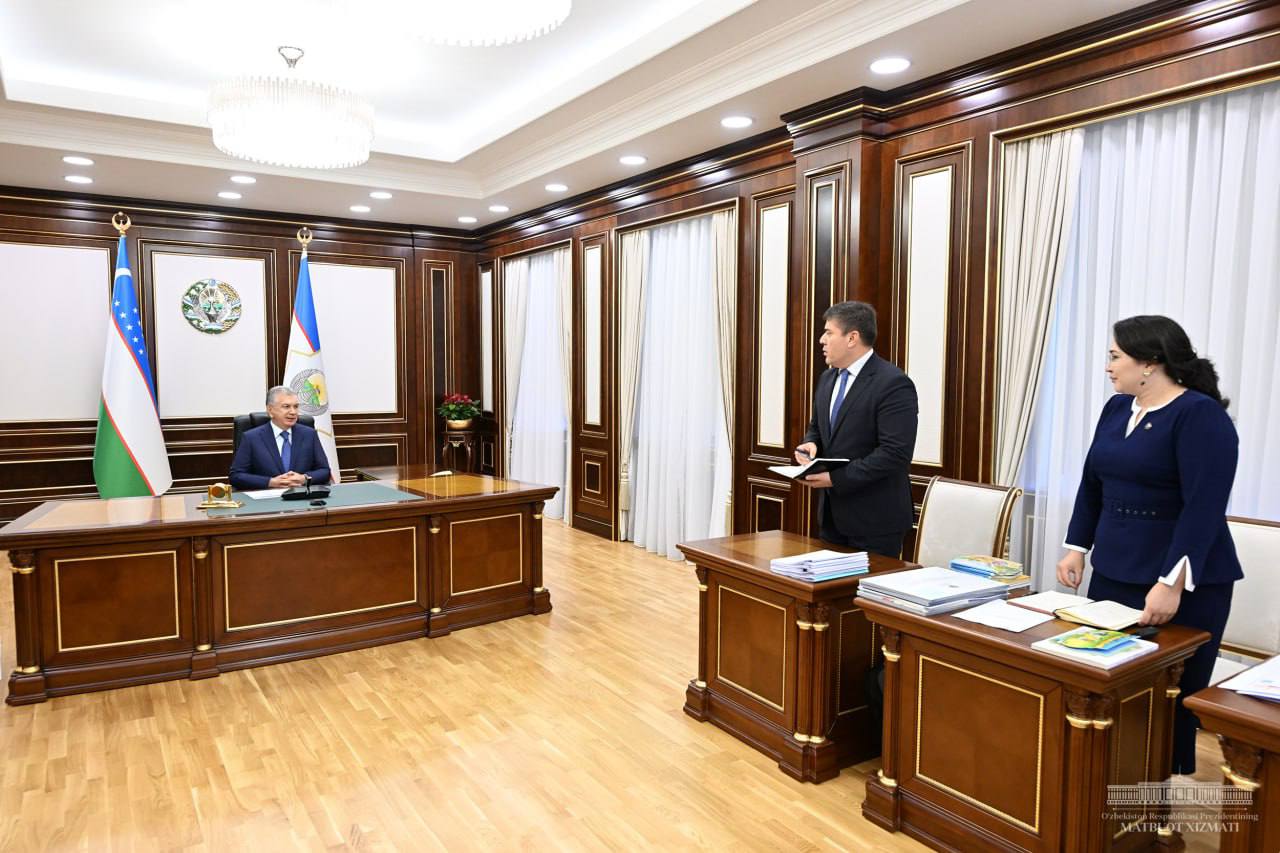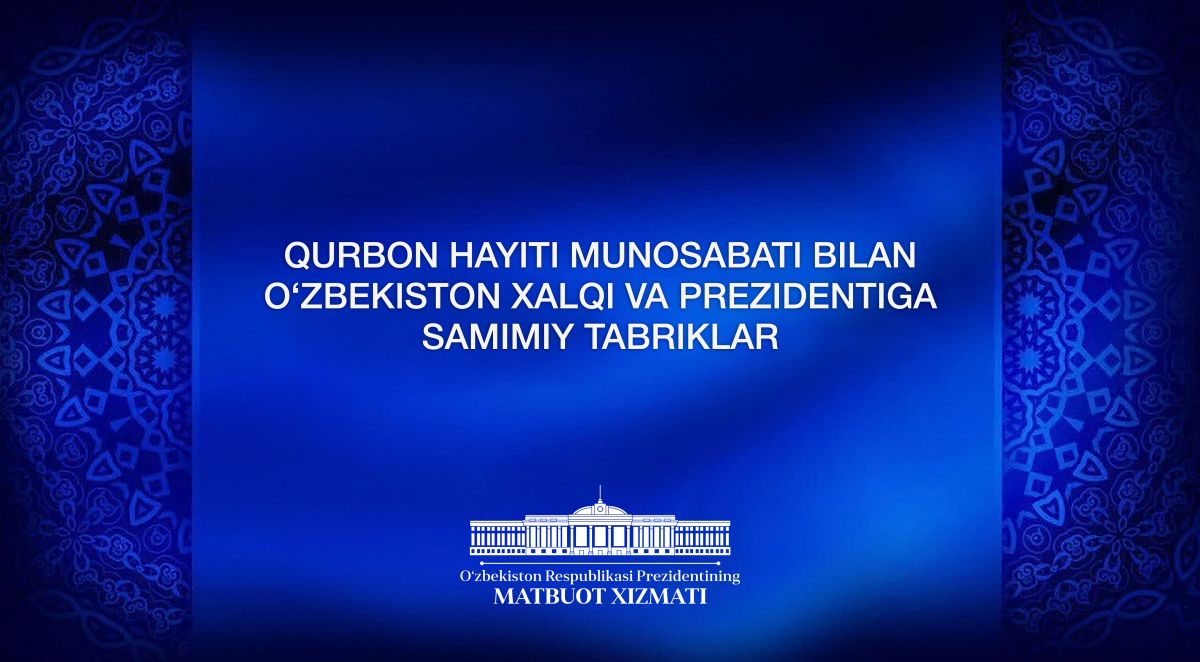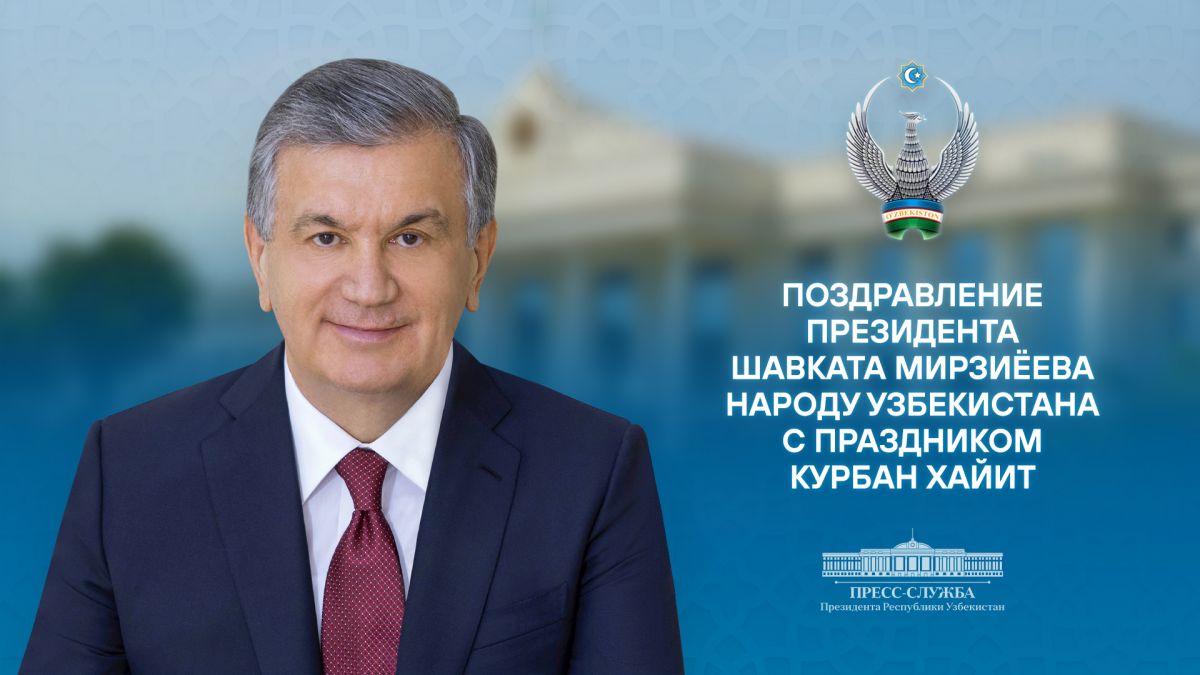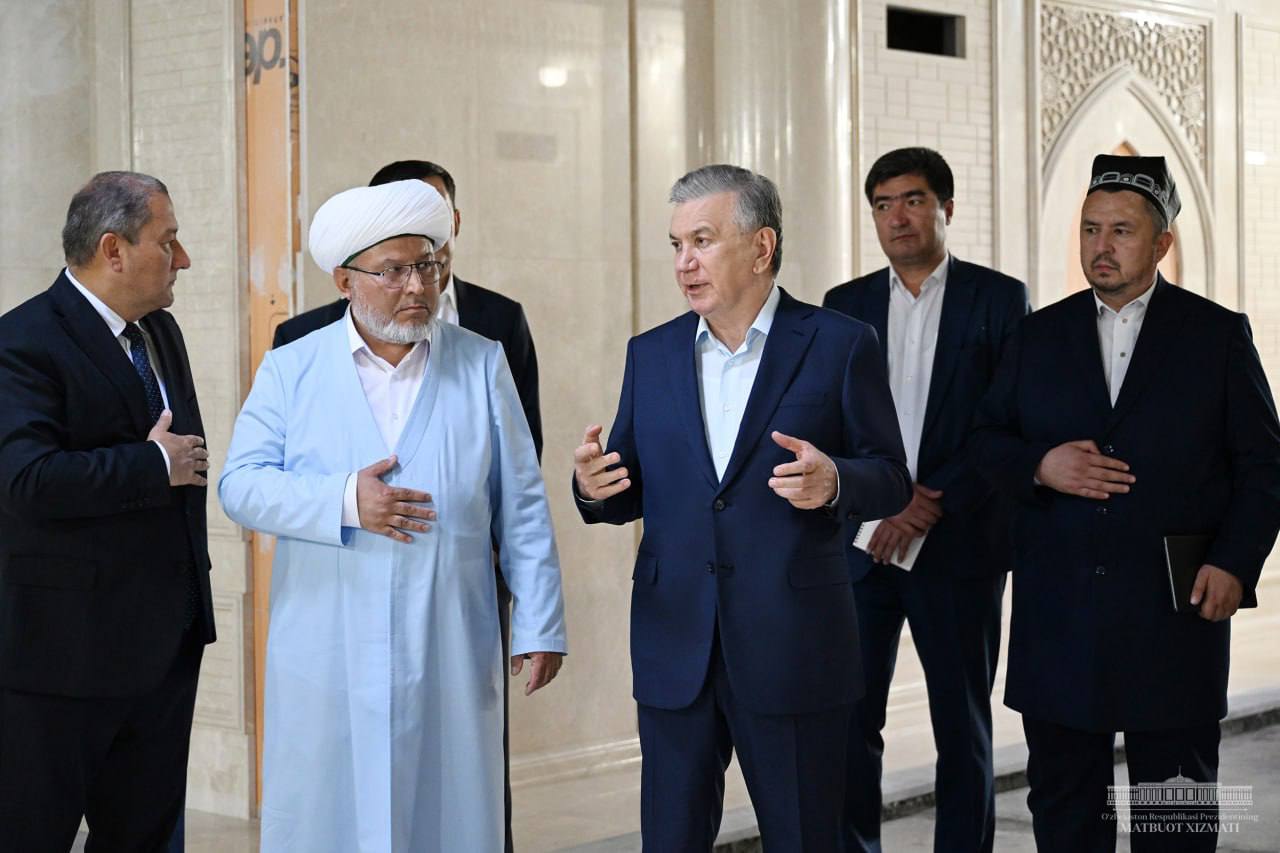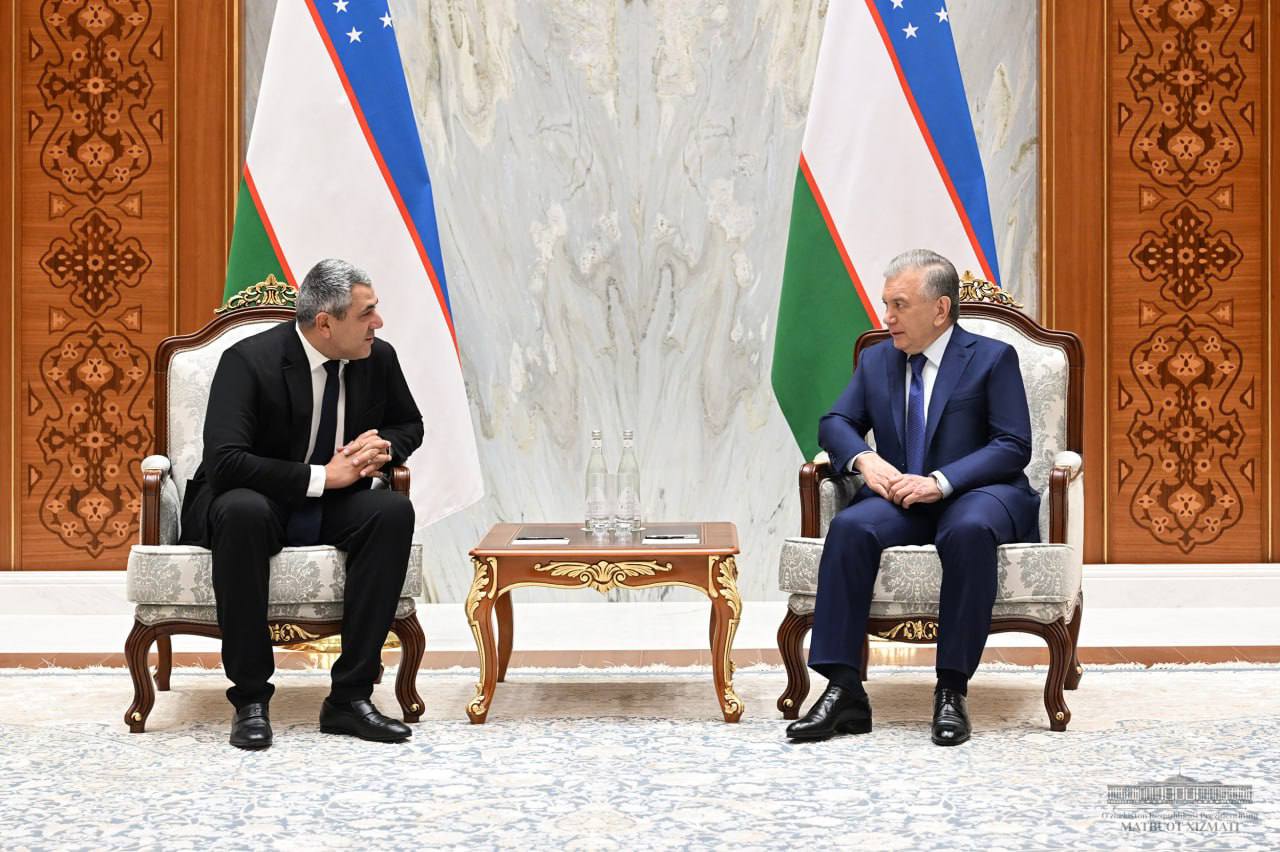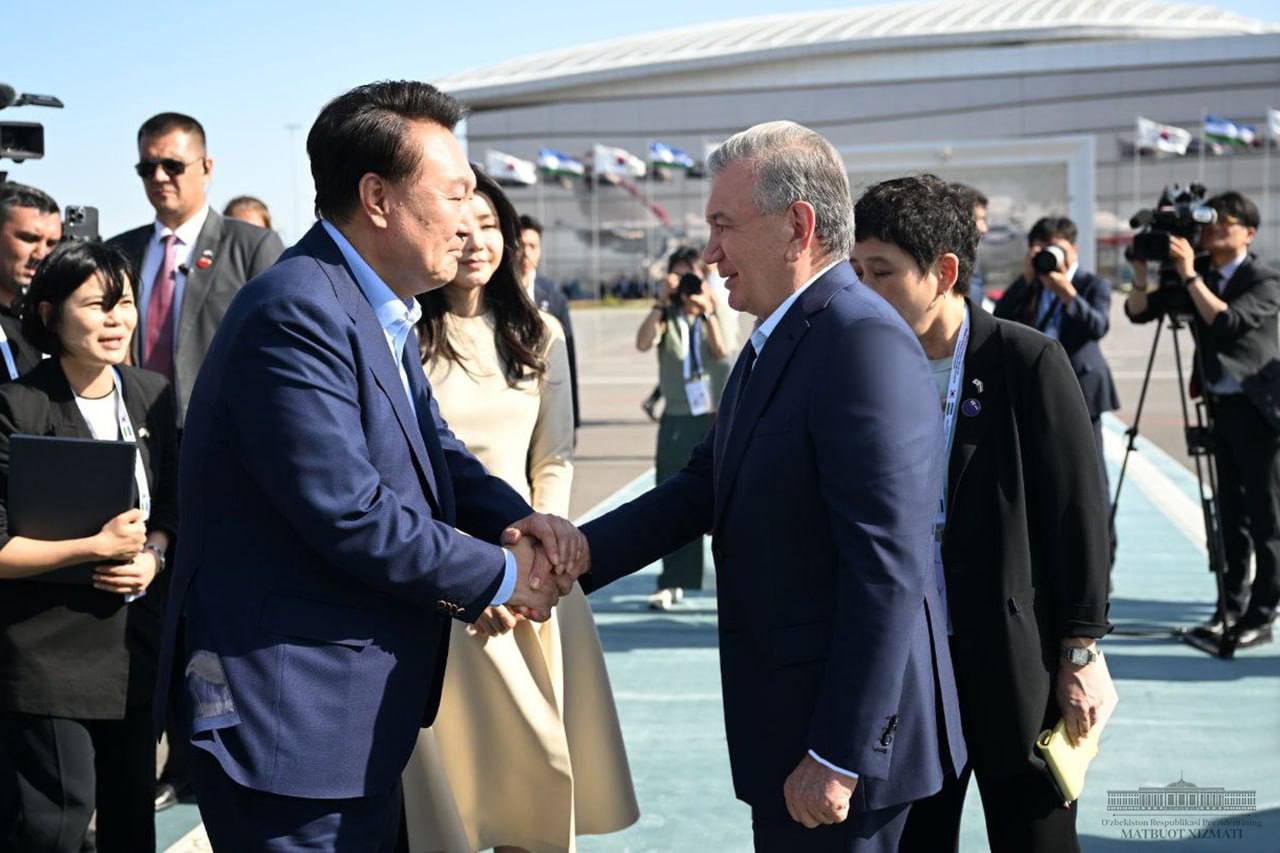Phone
Consular Issues
Phone
President of the Republic of Uzbekistan
SEARCHED FOR: SHAVKAT MIRZIYOYEV
The dynamics of Uzbek-Turkish relations reflect pragmatism, mutual trust and a focus on concrete results.
30.01.2026The First Deputy Director of the Institute for Strategic and Regional Studies under the President of the Republic of Uzbekistan Akramjon Nematov shared this assessment, commenting on the results of President of the Republic of Uzbekistan Shavkat Mirziyoyev's visit to Turkiye.
According to him, the official visit of the Uzbek leader to the Republic of Turkiye, which concluded on January 29, 2026, should be viewed not only as another event on the bilateral political calendar, but above all as an important milestone in the institutional strengthening of Uzbek-Turkish relations. Its results convincingly confirmed that the interaction between Tashkent and Ankara, which was largely fragmented just a few years ago, has reached a qualitatively new level – the level of a comprehensive strategic partnership based on pragmatism and mutual benefit.
The personal role of President Shavkat Mirziyoyev in shaping this new quality of relations deserves special mention. His proactive policies and strategic approach have enabled bilateral cooperation to reach a systemic level, where pragmatism is combined with a long-term focus on sustainable development. Thanks to the President's initiative, visits and cooperation programs have become regular and institutionalized, and the agreements reached have begun to be implemented with clear planning and measurable results, strengthening trust between the countries and creating a reliable platform for economic, humanitarian, and technological ties.
Thus, the current visit's program, which included talks in narrow and expanded formats, as well as the fourth meeting of the High-Level Strategic Cooperation Council, demonstrated a high level of political trust and the maturity of the bilateral dialogue. While such meetings were previously held sporadically, today the Strategic Cooperation Council functions on a regular basis, ensuring the continuity of decisions and overseeing their implementation. Symbolically, the key events took place on the eve of the holy month of Ramadan and the 30th anniversary of the Treaty of Eternal Friendship and Cooperation, underscoring the value-based and historical foundation of the partnership.
Of fundamental importance is the fact that Uzbek-Turkish cooperation is currently characterized by constructive and pragmatic mutual approaches, and is being built as an open partnership model focused on ensuring shared security and sustainable development. This is reflected in the finalization of the "4+4" format, which brings together coordination across foreign policy, defense, and law enforcement agencies. Unlike previous consultation mechanisms, this format is practical in nature and allows for a systemic response to cyber threats, cross-border crime, and other unconventional challenges.
The economic dimension of the partnership demonstrates sustained positive momentum and a high degree of complementarity. In recent years, mutual trade has more than doubled, reaching $3 billion by the end of 2025, compared to just $1.5 billion at the beginning of the decade. The goal set by the heads of state to increase trade turnover to $5 billion is supported not by mere declarations, but by a real investment portfolio of approximately $9 billion. The number of enterprises with Turkish capital has also increased significantly: while there were previously hundreds, today over 2,100 such companies operate in Uzbekistan, demonstrating growing business confidence and the formation of a solid material foundation for the strategic partnership. The need for further advancement of projects in industry, agriculture, social protection, and other priority areas was emphasized, including by expanding the list of goods covered by the Preferential Trade Agreement.
In preparation for the visit, new priority areas of industrial cooperation were identified, which will be implemented under a separate program. Compared to previous stages of cooperation, which focused primarily on trade and construction, the current emphasis is on joint production, localization, and export-oriented industries. Particular attention is paid to developing cooperation in tourism, theater festivals and cultural weeks, joint production of historical films, and the restoration of cultural heritage sites, reflecting the expanding humanitarian component of the partnership.
It is particularly noteworthy that the agreements reached are directly aimed at addressing the structural challenges of Uzbekistan's national development. The development of the Middle Corridor and the cooperation in transport and transit enshrined in the corresponding protocol are aimed at overcoming the country's geographic isolation and diversifying external logistics routes. Compared to traditional routes, these solutions reduce delivery times and increase the resilience of supply chains. Agreements on industrial cooperation, the management of special economic zones, and the creation of joint clusters contribute to reducing the economy's reliance on raw materials and fostering high-value-added production. The transfer of technological competencies, including nuclear safety and digitalization, should be viewed as an element of sovereign modernization, not technological dependence.
A fundamentally new stage has been the expansion of cooperation to the regional level. The intention to organize visits by delegations from all regions of Uzbekistan to Turkiye reflects the transition from a centralized model of interaction to a more flexible, decentralized partnership architecture. While interregional contacts were previously limited, the Action Plan for 2026–2027 envisages the formation of sustainable partnerships between the regions of the two countries, the launch of joint projects, and the development of a portfolio of local initiatives. Significant potential for implementing advanced Turkish practices in agriculture, horticulture, healthcare, and medical tourism has also been noted.
The military-technical cooperation sector deserves special attention. Compared to previous years, when interaction was limited to consultations, the signed agreements provide for deeper cooperation in military medicine, personnel training, and the implementation of surveillance systems and unmanned aerial vehicles. This cooperation is exclusively defensive in nature and is aimed at enhancing the professional level and technical capabilities of the Armed Forces of Uzbekistan, which is a rational contribution to strengthening national defense capability.
The humanitarian dimension of the Uzbek-Turkish partnership lends further depth and stability to the relationship. The implementation of the Cultural Cooperation Plan for 2026–2027, the agreement to hold the fourth Rectors' Forum in Bukhara, and joint education projects form a long-term foundation for cooperation. Uzbekistan's participation in the reconstruction of the earthquake-damaged Hatay province, the construction of the "Uzbekistan" residential complex, and a comprehensive school have become clear examples of practical solidarity. The start of construction of an Uzbek school in the Bekirkoy district of Istanbul—Uzbekistan's first educational institution abroad—is also symbolic, reflecting the strategic focus on the humanitarian aspect of cooperation and outreach to the diaspora.
Overall, the visit to Turkiye confirmed that Uzbek-Turkish relations are developing as a pragmatic, dynamic, and responsible partnership. Compared to previous stages of bilateral cooperation, the current format is characterized by greater institutional stability, expanded economic and regional cooperation, and deepened humanitarian ties. The agreements reached create additional tools for overcoming transportation and technological constraints, modernizing the economy, strengthening defense capabilities, and ensuring shared security, forming a solid foundation for further expanding Uzbekistan's international cooperation in a changing global environment.
«Dunyo» IA
Tashkent
Uzbekistan - Türkiye: Prospects for Comprehensive Strategic Partnership
29.01.2026The formula of "comprehensive strategic partnership" in relations between Uzbekistan and Türkiye has in recent years ceased to be merely a diplomatic definition and increasingly reflects the actual substance of bilateral cooperation. Political dialogue, economic collaboration, humanitarian contacts, and transport connectivity form the stable pillars of systemic Uzbek-Turkish relations.
Analysis of the current state of partnership between the two countries confirms that Tashkent and Ankara have successfully established an institutional architecture for comprehensive strategic partnership. The key mechanism of bilateral interaction is the High-Level Strategic Cooperation Council co-chaired by the presidents of both states, with its fourth meeting scheduled for 2026. This format ensures systematic political dialogue and coordination of joint efforts across a broad spectrum of areas.
An important factor in the effective functioning of this institutional system is the active and trusting dialogue between Presidents Shavkat Mirziyoyev and Recep Tayyip Erdoğan, maintained through regular telephone conversations and meetings on the sidelines of international events. Such dynamics impart a personal dimension to strategic interaction and create a favorable environment for deepening practical cooperation at the levels of governments, businesses, and expert communities of both countries.
Uzbek-Turkish relations gain an additional dimension through cooperation within the Organization of Turkic States (OTS). The participation of Tashkent and Ankara in this organization's activities allows bilateral initiatives to be elevated to a broader regional level and to find synergy with other countries of the Turkic world. OTS summits, including those held in 2025, have demonstrated participants' commitment to giving practical substance to cooperation from economy and transport to culture and digital development.
For Uzbekistan and Türkiye, this creates opportunities for advancing joint projects, harmonizing approaches to the regional agenda, and strengthening their positions in a broader geopolitical space.
Uzbek-Turkish cooperation carries significant regional and international dimensions. During a meeting in the "4+4" format in January 2026, the parties discussed regional and international issues, including the situations in Afghanistan, Gaza, Ukraine, and Syria. This demonstrates the two states' intention to coordinate their positions on key items of the international agenda.
Against the backdrop of strengthening political understanding and institutional consolidation of Uzbek-Turkish partnership, the economic component of bilateral relations acquires particular importance, becoming a key driver for their further development.
Trade and economic cooperation between Uzbekistan and Türkiye has demonstrated consistent progress in recent years. The target of raising bilateral trade turnover to USD 5 billion in the medium term and to USD 10 billion in the longer term remains relevant and reflects the potential of bilateral ties. Trade volume in 2025 exceeded USD 3 billion, indicating significant progress compared to figures from eight years prior.
Particularly noteworthy is the structure of economic interaction. The relationship involves not only trade but also the formation of a stable investment presence. By the end of 2025, more than 2,100 enterprises with Turkish capital participation were operating in the country a testament to the establishment of a sustainable Turkish business ecosystem in Uzbekistan and one of the highest figures among Uzbekistan's foreign partners. The dynamics of direct investment from Türkiye clearly confirm the progressive strengthening of this area of cooperation: USD 2.2 billion was invested in Uzbekistan in 2024, and USD 2.9 billion during January–October 2025.
The parties are conducting systematic work to expand economic cooperation. In particular, during the 4th meeting of the Joint Strategic Planning Group held on January 21, 2026, progress was noted in implementing the Action Plan of the 8th meeting of the Joint Economic Commission (JEC). The key role of the JEC as an effective mechanism for developing practical trade and economic cooperation between Uzbekistan and Türkiye was emphasized.
For Uzbekistan, cooperation with Türkiye is valuable in that Turkish businesses bring not only capital but also managerial expertise, technologies, and production culture. For Türkiye, the Uzbek market is attractive as a dynamically developing economy with a population exceeding 38 million and growing domestic demand. In this sense, interaction increasingly takes on the character of mutual complementarity.
One of the notable trends of 2025 was the development of transport connectivity between the two countries, primarily in the aviation sector. The number of weekly flights reached 97, with routes expanding to 8 destinations. The broadening of geography and frequency of direct flights between Tashkent, Samarkand, Namangan, Andijan, Ankara, Istanbul, and Izmir promotes growth in business mobility, tourist flows, and humanitarian contacts. The launch of new routes by both national and private carriers became an important practical step toward further rapprochement.
The increase in flight numbers offers not only passenger convenience but also broader economic effects. It facilitates contacts between entrepreneurs, simplifies participation in exhibitions and negotiations, and makes accompanying joint projects more accessible. Prospectively, this also creates prerequisites for developing air cargo transportation, which could further strengthen trade and economic ties.
Energy cooperation also demonstrates positive dynamics. Turkish companies are actively participating in modernizing Uzbekistan's energy infrastructure, including projects for developing renewable energy sources.
Particular emphasis must be placed on the special role of cultural and humanitarian interaction in developing bilateral relations. Common historical, cultural, and linguistic roots create a favorable foundation for expanding cooperation in education, science, culture, and tourism. Branches of leading Turkish universities operate in Uzbekistan, joint educational programs are implemented, and student and faculty exchanges take place.
Tourist exchange between the two countries shows sustained growth. By the end of 2025, Türkiye entered the top five countries by number of tourists visiting Uzbekistan. In turn, Türkiye remains one of the most popular tourist destinations for Uzbek citizens. Development of tourism ties contributes to strengthening intercultural dialogue and people-to-people diplomacy.
These figures reflect not only the attractiveness of the Turkish tourism market but also the general expansion of population mobility. In the long term, it is precisely cultural and humanitarian ties that form the solid social foundation of bilateral partnership.
Analysis of 2025 dynamics allows identification of several directions that could become key to further deepening Uzbek-Turkish partnership:
First, development of industrial cooperation. The existing network of joint enterprises could become the basis for more complex projects oriented not only toward the domestic market but also toward exports to third countries. Such an approach corresponds to the strategic objectives of both economies.
Second, transport, logistics, and infrastructure. Expansion of air connectivity is an important step, but the potential for cooperation in this sphere is significantly broader and includes development of multimodal transportation, warehousing infrastructure, and digital trade solutions.
Third, services and human capital. Türkiye possesses considerable expertise in tourism, medicine, construction, and education. For Uzbekistan, interaction in these areas opens opportunities not only for adopting experience but also for jointly entering regional markets.
Uzbek-Turkish relations are developing on a positive and constructive basis, confirming the maturity and stability of bilateral interaction. The parties demonstrate readiness for dialogue, pragmatism, and a commitment to considering mutual interests. The growing number of joint enterprises, expanding transport links, increasing tourist flows, and stable political dialogue form a solid foundation for further development of cooperation.
Alisher Kadirov,
Head of Department of the Institute of Strategic and Regional Studies under the President of the Republic of Uzbekistan
Central Asia and Turkiye: A New Phase of Interconnectivity
29.01.2026The strategic convergence between Turkiye and Central Asian states –driven by shared historical and cultural heritage alongside mutually reinforcing economic interests – is cultivating a novel architectural framework for regional interconnectedness. Through multilateral formats and bilateral initiatives, these actors have been establishing a durable platform for cooperation across trade, energy, transportation, and the “green” economy, transforming geographical proximity into a long-term factor of stability and collective development.
Amidst the diversification of Central Asian countries’ foreign policy vectors and the Turkish diplomacy’s increasing emphasis on the Eurasian dimension, this partnership has been acquiring a systemic character that goes beyond specific projects, thereby shaping a sustainable architecture of regional interconnectedness.
Political Foundations of Institutionalizing the Partnership
The core instrument facilitating political engagement is the Organization of Turkic States (OTS), which has evolved from a cultural and educational association into a regional a center of attraction spanning from Central Asia to the Caucasus and Europe. Regular summit meetings of OTS leaders exemplify a transition to a pragmatic cooperation phase. Particular significance is attributed to Uzbekistan and its President, Shavkat Mirziyoyev, who has initiated to deepen collaboration within the organization.
At the October 2025 OTS summit in Gabala, Azerbaijan, the Uzbek leader proposed to craft OTS’s Strategy of Development 2030, including the establishment of a Permanent Council for economic partnership headquartered in Tashkent. These initiatives aim to coordinate economic projects, support business initiatives, and enhance the efficiency of interaction – underscoring Uzbekistan’s aspiration to become a regional hub of integration and a platform for sustainable development.
Simultaneously, Turkiye is intensifying its engagement within other multilateral structures relevant to Central Asia, such as Conference on Interaction and Confidence Building Measures in Asia (CICA) and the Shanghai Cooperation Organization (SCO), where Ankara, holding the status of a partner and strives for full membership. This multi-format engagement allows for flexible adaptation of the agenda to specific priorities – from confidence-building measures in security to the coordination of transport corridors.
On January 20 2026, a meeting of the Joint Strategic Planning Group took place, co-chaired by the foreign ministers of Uzbekistan and Turkiye, confirming mutual readiness to deepen coordination within the UN, OSCE, OIC, and ECO, and to support each other’s candidacies in international organizations. This approach transforms bilateral relations into a component of a broader global diplomatic strategy, where support on the international stage becomes a shared interest.
Economic Dimension: From Trade to Strategic Investments
Since 2018, the bilateral trade volume between Central Asia and Ankara has more than doubled – from 6 billion to14.5 billion in 2025. In the long-term Turkiye has set an ambitious target of reaching $30 billion in bilateral trade with Central Asian region.
The volume of Turkish investments exhibits an even more remarkable trend. From 2016 to 2024, Turkish investments in the region increased 2.5 times – from 1.1 billion to3 billion – significantly surpassing the overall growth of Turkish investments in Eurasia (34%) during the same period. Central Asia accounts for 24% of Turkiye’s total accumulated investments in Eurasia. The number of Turkish companies operating in the region increased from 4,000 in 2016 to over 7,000 in 2025. Turkiye has become Uzbekistan’s third-largest investor (after China and Russia), with more than 2,000 enterprises, including 438 joint ventures.
Turkish business is gradually shifting from small-scale operations to implementing large-scale infrastructure projects across construction, telecommunications, textiles, and agribusiness sectors. Framework documents such as the “OTS Strategy-2026” and the “OTS Strategy-2040,” approved within the OTS, envisage creating a unified economic space –including a common energy grid and a regional development bank. Uzbekistan’s initiatives to expand the activities of the Turkic Investment Fund and the adoption of the “OTS’s Roadmap on Artificial Intelligence and the Creative Economy” indicate a transition towards a high-tech collaboration agenda.
Energy Interdependence: From Hydrocarbons to “Green” Transformation
Central Asia possesses significant hydrocarbon reserves: Kazakhstan holds approximately 30 billion barrels of oil; Turkmenistan ranks fifth globally in natural gas reserves; Uzbekistan has sizable, largely undeveloped deposits. Correspondingly, Turkiye aims to become an energy hub, providing Central Asia with direct access to the European market amid EU’s decarbonization efforts and reduced reliance on Russian supplies.
The Baku–Tbilisi–Ceyhan (BTC) pipeline, initially intended for Azerbaijani oil, has evolved into the Trans-Caspian export route. Kazakhstan has been exporting oil through this corridor since 2008, and Turkmenistan since 2010.
In addition, negotiations are underway concerning the export of Turkmen gas via the Trans-Anatolian Pipeline (TANAP), with plans to double its capacity from 16 to 32 billion cubic meters.
Simultaneously, the countries are actively transitioning to renewable energy sources. In Uzbekistan, the Turkish conglomerate “Cengiz” has completed construction of two power plants totaling 460 MW, with additional facilities exceeding 500 MW under construction in Jizzakh. According to estimates from the International Renewable Energy Agency (IRENA), Kazakhstan, Uzbekistan, and Turkmenistan possess immense potential not only for domestic green energy production but also for export.
The culmination of these efforts is exemplified by the Trans-Caspian Green Energy Corridor project – an initiative under the Green Corridor Alliance, a joint Kazakh-Uzbek-Azerbaijani enterprise, with funding from the Asian Infrastructure Investment Bank. It aims to connect the electricity grids of Kazakhstan and Uzbekistan with Azerbaijan across the Caspian Sea for subsequent export to Turkiye and Europe. An agreement on strategic partnership for this project was signed at COP29 in Baku in 2024.
The Central Corridor: An Artery of Development
The Trans-Caspian route (the Middle Corridor) has gained strategic importance as an alternative land corridor connecting China with Europe via Central Asia, the Caspian Sea, the South Caucasus, and Turkiye. Forecasts suggest that freight volumes along this route could double by 2030, heightening economic interdependence and boosting its geopolitical relevance.
Uzbekistan actively supports the reinforcement of the Central Corridor, viewing it as a core factor for sustainable regional economic development. The infrastructural interdependence created by this project fosters long-term stability among the countries of Central Asia, the South Caucasus, and Turkiye, transforming transport cooperation into a tool for regional security enhancement.
Cultural and Humanitarian Dimension: The Foundation of Sustainable Partnership
Historical and cultural links rooted in a common Turkic heritage continue to underpin modern cooperation. The parties are steadily expanding educational programs within the “Turkic World” concept. Several universities operate across Central Asia, including the International University of Turkic States and the Turkish University of Economics and Technology in Uzbekistan. Special attention is given to increasing scholarships for Uzbek students within the “Türkiye Bursları” program and developing joint scholarship initiatives.
Such exchanges in science and culture foster durable horizontal ties among the citizens of Turkiye and Central Asian countries. An increasingly important element is digital cooperation: joint projects in artificial intelligence, digital governance, and creative industries open new avenues for engagement. The expansion of tourism flows and media exchanges also contribute to forming a unified informational and communicational space which is particularly relevant amid the global competition in the modern media environment of information manipulation.
Conclusion
Overall, the partnership between Central Asia and Turkiye reflects a transition from ad hoc interactions to a systematic model of cooperation based on resource, infrastructural, and strategic complementarity. Turkiye gains access to energy resources and transit routes, strengthening its status as an Eurasian hub. In turn, Central Asian states diversify their foreign policy and economic ties, increasing their autonomy and competitiveness.
The future prospects of this partnership hinge on three core vectors: first, deepening economic integration through the OTS and bilateral agreements; second, jointly implementing cross-border infrastructure projects in energy and transportation; third, advancing the “green” and digital agendas as foundations for sustainable development. Achieving these objectives requires ongoing dialogue, regulatory harmonization, and trust-building measures, but it already clear that the Central Asia–Turkiye partnership forms a robust platform for regional stability and collective prosperity in a multipolar world.
Dilorom MAMATKULOVA,
Leading research fellow of the Institute for Strategic and Regional Studies under the President of the Republic of Uzbekistan
Bringing Markets and Capital Together: The Uzbekistan–Türkiye Economic Union
28.01.2026Over the past eight years, relations between Uzbekistan and Türkiye have undergone a profound qualitative transformation, evolving from traditionally friendly ties into a full-fledged strategic partnership with a strong economic, investment, and industrial dimension. While the period prior to 2017 was largely characterized by inertia, the launch of large-scale reforms in Uzbekistan marked a decisive shift in bilateral relations toward practical cooperation focused on trade, investment, and joint manufacturing.
A key role in this transformation has been played by the political will and personal engagement of the leaders of both countries - President of the Republic of Uzbekistan Shavkat Mirziyoyev and President of the Republic of Türkiye Recep Tayyip Erdoğan. Regular high-level dialogue has provided Uzbek-Turkish relations with stability, strategic coherence, and a long-term economic horizon.
Political Foundations as a Driver of Economic Convergence
Diplomatic relations between the two countries were established in 1992; however, a turning point came in October 2017 with the signing of the Joint Declaration on Strategic Partnership in Ankara. This step laid a solid institutional foundation for the rapid expansion of trade, economic, and investment cooperation.
In 2018, the High-Level Strategic Cooperation Council was established in Tashkent under the co-chairmanship of the two presidents. Its meetings in 2020, 2022, and 2024 became key platforms for aligning priorities in trade, investment, industry, transport, and interregional cooperation. Over time, political dialogue has evolved from declarative engagement into a practical instrument supporting concrete economic initiatives and project-based decisions.
Trade: Scale, Structure and Institutional Incentives
Türkiye is firmly among Uzbekistan’s largest trading partners. In 2020, bilateral trade turnover amounted to USD 2.1 billion, reaching USD 3.02 billion by the end of 2025.
Uzbekistan’s exports to Türkiye are predominantly industrial in nature, comprising non-ferrous metals and metal products, textiles, services, plastics, and food products. Imports from Türkiye consist mainly of mechanical and electrical equipment, chemical products, textiles, pharmaceuticals, and metal structures, reflecting Türkiye’s role as a key source of industrial technologies and equipment.
A significant qualitative step forward was the signing of the Preferential Trade Agreement in 2022, which entered into force in 2023. In 2025, the parties began expanding the list of goods covered by preferential treatment, creating additional incentives for trade diversification and deeper industrial cooperation.
Investment Cooperation: From Presence to Systemic Engagement
Investment cooperation is one of the most dynamically developing areas of bilateral relations. In 2024, the volume of Turkish investments utilized in Uzbekistan reached USD 2.2 billion, while in January-November 2025 it increased to USD 3.2 billion. A total of 2,137 enterprises with Turkish capital operate in Uzbekistan, including 496 joint ventures and 1,641 wholly Turkish-owned companies.
These enterprises are active in textiles and furniture manufacturing, construction, trade, transport, logistics, and services. Importantly, a substantial share of them is export-oriented, strengthening Uzbekistan’s integration into regional and global value chains.
Industrial Cooperation: Transition to Joint Manufacturing
In recent years, Uzbek–Turkish cooperation has increasingly shifted from traditional trade toward industrial partnership. Turkish companies are actively involved in establishing production facilities across Uzbekistan’s regions, introducing modern technologies, management standards, and export-oriented business models.
Regular meetings of the Intergovernmental Commission on Trade and Economic Cooperation, accompanied by business forums, result in detailed roadmaps comprising dozens of measures covering industry, energy, logistics, and regional projects. This approach forms a solid foundation for sustainable industrial partnership.
Interregional Cooperation: Localized Economic Engagement
Active interregional interaction has become an essential element of the new partnership model. In 2024, targeted visits by delegations from the Fergana, Khorezm, Namangan, Navoi, Samarkand, and Jizzakh regions, as well as the city of Tashkent, were held to various regions of Türkiye.
This format enables a shift from framework agreements to concrete investment projects, creates direct B2B and B2G communication channels, and contributes to a more decentralized and resilient architecture of cooperation.
Transport and Logistics as Pillars of Trade and Investment
The expansion of trade and industrial cooperation naturally increases the importance of transport and logistics interaction. Türkiye is viewed by Uzbekistan as a key logistical gateway to European and Mediterranean markets, while Uzbekistan is becoming an important hub for Türkiye’s access to Central Asia.
The development of rail and road transport, along with intensive air connectivity - up to 97 regular flights per week across eight routes - enhances business mobility, supports investment activity, and strengthens economic integration between the two countries.
Prospective Areas of Cooperation: Converging Interests
The established economic core of Uzbek–Turkish relations provides a basis for a new phase of cooperation, shifting from quantitative growth to deeper structural and technological integration.
Localization and joint development of industrial production remain key convergence points. Uzbekistan offers industrial zones, resources, and a growing domestic market, while Türkiye contributes technology, design, managerial expertise, and access to external markets.
The textile and light industry is evolving toward the production of finished branded goods and contract manufacturing for international retail chains. Mechanical engineering and electrical equipment sectors are creating prerequisites for the establishment of assembly and production facilities. The agro-industrial complex offers opportunities for deep processing and joint exports of food products.
A separate strategic direction is the joint entry into third-country markets, where the combination of Uzbekistan’s production potential and Türkiye’s trade and logistics infrastructure creates substantial competitive advantages.
Overall, over the past eight years Uzbekistan and Türkiye have built a resilient model of strategic partnership based on trade, investment, industrial cooperation, interregional engagement, and transport connectivity. Trade turnover exceeding USD 3 billion, multi-billion-dollar investments, and thousands of joint enterprises testify to the maturity and long-term nature of bilateral relations.
Mashrab Mamirov,
Head of Directorate General of the Ministry of Investment, Industry and Trade of the Republic of UzbekistanUzbekistan-Turkey: A New Stage of Cooperation and Prospects for Developing Cultural and Humanitarian Ties
28.01.2026It is worth noting that one of Uzbekistan’s greatest achievements since independence has been ensuring peace, interethnic harmony, and mutual understanding among its multinational population. In particular, the wise national policy developed in our country in recent years is based on the key idea: “Multinationality is the wealth of Uzbekistan”.
It should be emphasized that cooperation between Uzbekistan and Turkey is currently gaining increasing significance in both quantitative and qualitative terms. Relations between the two countries, as a truly new stage of strategic cooperation, clearly demonstrate that historically and today, the Turkish and Uzbek peoples are truly fraternal peoples, not only in ethnic origin but also in spirit. Despite all the changes in historical development, these two fraternal peoples are steadily and diligently strengthening their national statehood, implementing the necessary reforms to remain competitive in a rapidly changing world. In this context, Turkey’s developed industry, achievements in agriculture, tourism potential, extensive statehood experience, and the growing natural interest of Turkish investors in the Uzbek market are of great importance to our country.
This closeness and commonality of approaches are the most reliable guarantee that the development of cultural and humanitarian ties between Uzbekistan and Turkey will continue to strengthen and deepen in the future, for the benefit of the Uzbek and Turkish peoples.
In particular, this is due to the age-old bonds of friendship, brotherhood, and mutual understanding between the Uzbek and Turkish peoples, as well as the similarity of culture, religion, and traditions of the peoples of both countries. This also demonstrates that these relations have deep historical and cultural roots, which provide a solid foundation. Moreover, culturally and historically, these two countries played a central role in the development of the civilization of the Turkic peoples. Therefore, at the 7th summit held in Baku on October 15, 2019, Uzbekistan’s accession to the Cooperation Council of Turkic-Speaking States as a full member was highly praised and greeted with enthusiasm by all participating states. It is no exaggeration to say that this event not only strengthened the spirit of brotherhood in the Turkic world but also led to the emergence of a new regular cooperation format between Ankara and Tashkent.
At the 8th Summit of the organization, held in Istanbul on November 12, 2021, its name was changed to the Organization of Turkic States. The Summit also approved the concept of the Turkic world through 2040. President of Uzbekistan Shavkat Mirziyoyev proposed holding the first summit of the Organization of Turkic States in Uzbekistan in 2022. The proposal was accepted, and the next, 9th summit of the organization was held in Uzbekistan in November 2022.
It is important to emphasize that in 2022, the leaders of the two countries celebrated the 30th anniversary of the establishment of diplomatic relations and the 5th anniversary of the establishment of a strategic partnership. Our view is supported by the agreement to strengthen cooperation on reforms in Uzbekistan, implement public-private partnership mechanisms, and deepen partnerships in science, education, art, cinema, tourism, and information.
Furthermore, President of the Republic of Uzbekistan Sh. M. Mirziyoyev is actively implementing a large-scale reform program aimed at expanding Uzbekistan’s economic opportunities and improving the well-being and living standards of the population. The success of this policy, to some extent, depends on elevating our country’s effective relations with its international partners to a qualitatively new level. The special attention is deserved that Uzbekistan is responding to fundamental global changes with a new, proactive, pragmatic, and constructive foreign policy.
The goals of modernizing our country’s economy and enhancing its global competitiveness require strengthening cooperation with foreign partners in industrial cooperation, studying the experience of developed countries, and attracting large-scale foreign investment and high technology. In this regard, notable that the economic development strategies of Uzbekistan and Turkey can complement each other in a number of important areas. This is due to the fact that Turkey is among the 20 largest economies in the world and has achieved high results in such important sectors for Uzbekistan as tourism, textiles, automotive manufacturing, construction, and food processing.
Especially, Turkey’s textile and jewelry industries are among the top five in the world. Forty-four Turkish building contractors are among the world’s top 250 construction companies. This ranks Turkey second only to China, one of the world’s leading economies. While the country’s food industry has successfully entered Western markets and strengthened its position there, the Turkish automotive industry is on the cusp of transitioning from conventional automobile production to mass production of domestically produced electric vehicles. This once again confirms that Turkey is an important economic partner for us. Laying the foundations for a completely new export-oriented economic development model in the New Uzbekistan requires systemic changes across all economic sectors and further strengthening ties with reliable external partners with whom industrial cooperation can be developed in these sectors.
Thus, in recent years, in a historically short period of time, a solid foundation has been laid for revolutionary changes in Uzbek-Turkish relations that will last for centuries — important programmatic plans have been developed and decisive practical steps have been taken. There is no doubt that this development of relations will further enhance the prestige of Uzbekistan and Turkey on the international stage, ensure stable economic growth in both countries, the socioeconomic well-being of their peoples, and the full realization of their creative potential.
Turkey and Uzbekistan are actively developing not only bilateral relations but also cooperation in multilateral formats. Participation in the Organization of Turkic-Speaking States is also an important component of international cooperation between Uzbekistan and Turkey.
Currently, Uzbekistan has created ample opportunities for citizens of more than 130 different nationalities to actively participate in socioeconomic, political, legal, spiritual, and educational life, to recognize their national identity, and to preserve their ethnic values. Also, interethnic harmony and religious tolerance, national unity and solidarity are envisaged, and, above all, the upbringing of a harmoniously developed generation that understands its national identity based on a rich historical and spiritual heritage, national values, customs and traditions, possesses a high sense of national pride and has a worldview formed on the basis of universal human values, modern technology, and scientific achievements.
Currently, in the New Uzbekistan, unity and mutual understanding are the main principles of policy in the sphere of interethnic relations, aimed at maintaining unity and harmony in society, where an important aspect is not only protecting the interests of various ethnic groups but also shaping a civic identity based on respect and consideration for the rights of others.
In the area of interethnic relations, Decree No. DP-52 of the President of the Republic of Uzbekistan as of March 19, 2025, “On measures to advance to a new stage in strengthening nationwide unity and relations with compatriots abroad”, was adopted. In this decree, the harmonization of interethnic relations in society and the formation of a unified civic identity through strengthening friendship, mutual solidarity, tolerance, and unity in society are defined as one of the priority tasks for strengthening national harmony and ties with compatriots abroad.
The Committee is designated as the authorized republican executive body implementing state policy in the area of interethnic relations, supporting compatriots abroad, and coordinating the activities of state bodies in this area.
The Committee’s primary objectives are: harmonizing interethnic relations, forming a unified civic identity by strengthening friendship, mutual solidarity, tolerance, and unity in society; strengthening the involvement of all nationalities and peoples living in Uzbekistan in national development by ensuring their rights and legitimate interests; developing socio-cultural and friendly ties with foreign countries through public diplomacy; supporting the mobilization of the socio-economic potential of compatriots abroad for the development of our Homeland; and systematically analyzing issues of national unity among the people of Uzbekistan and compatriots abroad in the name of common societal goals.
The Committee has taken significant steps to develop cooperation with the USA, Canada, China, Azerbaijan, Turkey, and several other countries to elevate the consistent implementation of state policy toward compatriots living abroad to a new level.
Currently, the Committee implements state policy aimed at ensuring interethnic harmony and tolerance in society and supporting the mobilization of the socio-economic potential of compatriots abroad for the development of our country. It also establishes friendly international relations, strengthens friendship with civil societies in foreign countries, and implements a “public diplomacy” mechanism with 157 national cultural centers, 43 friendship societies located in the republic, as well as with more than 60 brother cities, and nearly 100 societies of compatriots abroad.
Enormous opportunities have been created for the preservation, presentation, and development of national identity, language, traditions, customs, history, and culture of various nationalities. Furthermore, the role of national cultural centers, established by representatives of various nationalities living in our country is of particular importance in strengthening cultural cooperation between the New Uzbekistan and foreign countries.
Specifically, Turkish National Cultural Centers were established in Bukhara in 1991, in Tashkent - in 1992, and in 1997, the Turkish National Cultural Center of Uzbekistan.
Since 1997, the primary focus of the Turkish National Cultural Center of Uzbekistan (chairman Umar Ibrahimov Salmanov) has been the revival of the Turkish language, culture, traditions, and customs. To this end, the Center has established a Council of Elders, a Women’s Council, a Youth Wing, and a department for working with sports clubs and ensembles.
Currently, three folklore ensembles operate under the auspices of the Center: Sevinch, Anadolu, and a women’s folklore group.
In 1999, under the direction of Mikail Suleymanov, an honorary member of the Turkish National Cultural Center of Uzbekistan, the MIKO Comedy Theater was founded. The performances were shown in Russia, Kazakhstan, Kyrgyzstan and Azerbaijan. These theatrical productions are primarily aimed at strengthening unity, solidarity, and harmony among representatives of different nationalities.
A number of representatives of Turkish nationality have been awarded state awards for their contribution to strengthening interethnic harmony, mutual understanding, and friendship in our country.
The first information about the arrival of Turks in Uzbekistan was found in the diary of the Spanish ambassador González de Clavijo. Written sources mention Turkish musicians at the court of the Temurid Shahrukh. There is information that Turkish merchants and artisans settled in the territory of modern-day Uzbekistan in the late Middle Ages to engage in trade and crafts.
When did the Turks arrive in Uzbekistan? We pondered this question for a long time, examining over 100 sources. The results yielded varied answers. The first representatives of the Turks settled in the territory of modern-day Uzbekistan, in the lands of Akhsi, which corresponds to the territory of today’s Namangan Region, when Turkic peoples migrated from the Yenisei River to the state known today as Turkey. The second group arrived during the reign of Amir Timur, in the 1400s.
In 1992, the number of Turks living in Uzbekistan was 21,000, while today it has exceeded 50,000.
Currently, our citizens of Turkish nationality living in Uzbekistan actively participate in the political, economic, social, and cultural life of the republic, making a worthy contribution to the development and progress of the state.
The visit of the President of Uzbekistan to Turkey ushered in a new era in the comprehensive strategic partnership between the two countries, based on mutual trust and expressing a desire for long-term, mutually beneficial cooperation for the benefit of our peoples.
Official visits by the leaders of the two countries contribute to strengthening political dialogue and demonstrate a fruitful practical partnership. To further develop bilateral cooperation, the parties discussed in detail priority areas for further expansion of their partnership, including in areas such as trade and economics, investment, transport, textiles, energy, agriculture, as well as cultural and humanitarian exchanges.
Furthermore, in accordance with the Action Plan for 2026-2027 signed between the Ministries of Foreign Affairs of Uzbekistan and Turkey, the most effective cooperation aimed at ensuring sustainable development and prosperity based on lasting security has been established.
It is noteworthy that the first part of the book by President of Uzbekistan Shavkat Mirziyoyev, “Modernity and the New Uzbekistan
is entitled “Humanity’s Chosen Path of Sustainable Development”. The fact that it reflects the priority criteria for human development in the 21st century and the noble global goals outlined in the 2030 Agenda for Sustainable Development confirms our aforementioned ideas.
Overall, the primary and most important factor in maintaining socio-political stability in Uzbekistan is the ability to ensure unity and national harmony among its multi-ethnic population. It should be noted separately that national understanding and national unity, which are strengthening day by day in our society, serve the cohesion processes on an ethnic and cultural basis among representatives of all nationalities living in Uzbekistan.
Saodat Tilovberdievna Davlatova
Head of Department of the Committee on interethnic relations and compatriots abroad of the Republic of Uzbekistan,
Doctor of Historical Sciences, Professor
Bridges of Friendship: Toward New Horizons of Uzbek–Pakistani Partnership
28.01.2026In recent years, the deepening cooperation between Uzbekistan and Pakistan has emerged as a significant new strategic direction across Eurasia. Two countries standing at the historic crossroads of ancient trade routes are now consistently building a modern “architecture of connectivity” that permeates all key areas, including the economy, culture, education, and technology. Their shared centuries-old historical roots, dating back to the era of the Great Silk Road, are being transformed into concrete projects and initiatives capable of strengthening economic resilience, ensuring technological independence, and creating a solid foundation for regional integration.
Since the early 2020s, relations between Tashkent and Islamabad have been developing steadily, largely driven by the strong political will of the leaders of both countries. The Joint Declaration on Strategic Partnership between the Republic of Uzbekistan and the Islamic Republic of Pakistan, signed in 2021, set a high pace for bilateral dialogue, opening a new chapter in the history of relations. Regular meetings at the highest level, active consultations between the foreign ministries, and engagement within international forums make it possible to address pressing issues in a timely manner, identify mutually acceptable solutions, and explore promising areas of cooperation.
A vivid confirmation of the strengthening bilateral ties was the official visit of the Pakistan’s Prime Minister Shehbaz Sharif to Uzbekistan in February 2025 and his meeting with President Shavkat Mirziyoyev. The leaders of both countries expressed deep satisfaction with the impressive dynamics of multifaceted cooperation encompassing the economy, investment, transport, digital technologies, and cultural and humanitarian exchanges.
Admiring the achievements of Uzbekistan’s large-scale reforms under the Presidency of Shavkat Mirziyoyev, Shehbaz Sharif stated that “miracles are possible only through a clear vision, high dynamism, hard work, and a resolute pursuit of a common goal.”
The culmination of the Prime Minister’s visit was the establishment of the High-Level Strategic Partnership Council, which imparted a new strategic impetus to bilateral relations. This step not only consolidated the prior agreements but also created a strong institutional platform for systematic cooperation.
The legislative framework of bilateral cooperation plays a key role in strengthening strategic interaction between Uzbekistan and Pakistan. A special contribution in this regard is made by inter-parliamentary friendship groups, which consistently promote legislative initiatives aimed at simplifying business procedures, increasing transparency, and creating a reliable legal environment for the implementation of joint projects. Their work forms a long-term platform of trust that ensures stability and predictability in bilateral relations.
The economic sector, in turn, serves as the most visible indicator of cooperation dynamics. Pakistan confidently ranks among Uzbekistan’s leading trade partners in South Asia, demonstrating strong interest in the Uzbek market. Over recent years, bilateral trade turnover has increased manifold and continues to grow steadily. In 2025, mutual trade exceeded $440 million, which is twelve times higher than in 2016, with particular attention drawn to Uzbek exports amounting to over $320 million.
These figures not only reflect the growing interest of businesses in both countries in expanding mutually beneficial cooperation but also demonstrate the emergence of a more diversified and resilient trade model incorporating new industries and segments. The current environment creates a foundation for further development of investment flows, financial services, and joint projects in mining, energy, and digital technologies, opening additional opportunities for deepening strategic partnership.
In line with agreements reached at the highest level, concrete steps have been outlined to increase bilateral trade turnover to $2 billion in the near future.
An important tool for achieving this goal has been the Preferential Trade Agreement between the Government of the Republic of Uzbekistan and the Government of the Islamic Republic of Pakistan, which provides customs benefits for 17 categories of goods from each side. This significantly facilitates market entry for companies and stimulates the expansion of trade flows.
At the same time, business ties are expanding rapidly. An increasing number of Uzbek and Pakistani companies are finding partners, establishing joint ventures, and exploring new niches. As of October 1, 2025, around 180 companies with Pakistani capital are operating in Uzbekistan, reflecting growing business confidence in joint projects and long-term partnership.
Cooperation spans a wide range of sectors – from the textile and food industries to the production of construction materials, electrical equipment, and logistics. Regular meetings of the intergovernmental commission, business forums, and specialized exhibitions serve as effective platforms for direct dialogue, experience exchange, and contract signing. The agreements concluded at these venues already amount to hundreds of millions of dollars, generating tangible economic returns and laying a solid foundation for further expansion of cooperation.
In 2024, Tashkent hosted the first International Exhibition “Made in Pakistan” and a joint Logistics Forum, featuring more than 80 leading Pakistani companies. These events created a platform for direct business dialogue, demonstrating real opportunities for joint ventures and logistics cooperation.
In turn, a national exhibition “Made in Uzbekistan” was held in Lahore in February 2025, resulting in the signing of 181 bilateral trade agreements worth $500 million. These events clearly illustrate mutual interest in expanding trade turnover and growing business confidence in bilateral cooperation prospects.
Significant progress has also been achieved in investment cooperation. In 2024, $33 million in Pakistani investments were utilized within joint projects, and from January to July 2025 this figure more than doubled, reaching nearly $70 million. This steady growth reflects increasing interest in long-term projects, confirms the stability of the business environment, and opens new opportunities for expanding strategic partnership.
Active work continues on joint projects in the textile, pharmaceutical, perfumery, and agricultural sectors, allowing both sides to strengthen traditional industries while developing new high value-added niches. Notably, Uzbek companies are conducting feasibility studies in Pakistan for the production of household appliances, tractors, smart meters, and modern gas blocks, opening avenues for technological exchange and the adoption of advanced manufacturing solutions.
Particular attention is paid to the digital sphere, where a broad range of promising initiatives is emerging: software development, IT solutions for business and public services, and joint startups and innovation projects. This direction accelerates technological modernization, enhances competitiveness, and facilitates the integration of digital products into key sectors of the economy.
Trade infrastructure development is also a key priority. In 2025, Uzbek trade houses were opened in Lahore and Karachi, with plans to establish Pakistani trade missions in Tashkent and Samarkand. These initiatives simplify market access, stimulate business cooperation, and strengthen trust within the business community.
Thus, the combination of industrial, digital, and infrastructure cooperation creates a multi-level platform for accelerated bilateral development, transforming Uzbek–Pakistani cooperation into a strategically significant and mutually beneficial endeavor.
Transport infrastructure remains a priority area of dialogue. Central and South Asia have historically been interconnected through trade and cultural routes, and today targeted efforts are underway to restore this natural connectivity. Improved logistics, new transport corridors, and simplified transit procedures create real opportunities to boost trade and deepen cooperation. For landlocked Central Asian countries, reliable transport links are a key factor in sustainable growth and regional integration.
One of the flagship projects is the Trans-Afghan Railway, a strategic corridor capable of transforming regional transport networks, strengthening the countries’ positions within the Eurasian economic space, and establishing a solid foundation for trade, investment, and logistics flows between Central and South Asia. By reducing delivery times from several weeks to 3–5 days and cutting transport costs by 40% or more, the route will significantly enhance the competitiveness of regional goods on global markets and stimulate export-import activity.
In 2025, tangible progress was achieved: key components of the feasibility study were prepared, and intergovernmental consultations on the route design and financing terms continue, reinforcing the project’s practical implementation.
Energy cooperation is another vital area with significant joint potential. Projects in geological exploration, oil and gas development, and modernization of processing facilities can ensure strategic energy security, diversify energy sources, and stimulate industrial growth in both countries.
Along with economic cooperation, cultural and humanitarian interaction is actively developing, as the peoples of Uzbekistan and Pakistan share a rich historical heritage rooted in the Silk Road era. This commonality manifests in joint scientific projects, educational initiatives, and cultural exchanges that strengthen human ties and build long-term trust.
In Pakistan, special attention is given to the President Shavkat Mirziyoyev’s concept of the Third Renaissance, viewed as a continuity of Uzbekistan’s rich historical and scientific legacy. The intellectual and spiritual traditions shaped by scholars such as Al-Horezmi, Mirzo Ulugbek, and Zahiriddin Muhammad Babur inspire modern educational and innovation initiatives, reinforcing cultural and intellectual bonds between the two nations.
Tourism deserves special mention as an important component of bilateral cooperation. Uzbekistan, with its unique spiritual and architectural heritage, is increasingly attracting Pakistani tourists and pilgrims. Ancient cities and the mausoleums of prominent scholars – Imam Bukhari, Imam Termezi, and Bahauddin Naqshband – reveal the country’s rich cultural and scientific traditions while strengthening people-to-people ties as enduring as official interstate agreements.
Improved transport connectivity has become a key catalyst. Direct flights between Islamabad and Tashkent, as well as between Tashkent and Lahore, enabled over 10,000 Pakistani tourists to visit Uzbekistan in 2025 – nearly 2.5 times more than in 2023. This data highlights both growing demand for tourism routes and the effectiveness of integration measures in transport and logistics.
Taken together, tourism, cultural, and economic initiatives form a solid platform for deepening connectivity between Uzbekistan and Pakistan. This comprehensive cooperation model not only enhances economic potential but also strengthens long-term trust, making bilateral relations a key component of regional integration between Central and South Asia.
The upcoming visit of President Shavkat Mirziyoyev to Islamabad early February 2026 will mark an important milestone in enhancing strategic partnership. It will open new opportunities for joint initiatives, activate projects in the economy, transport, energy, and digital technologies, and provide additional momentum to cooperation, enhancing its practical impact and strategic significance.
Today, it is especially important to maintain the high momentum of interaction, expand practical cooperation mechanisms, cascade dialogue to lower governance levels, and more actively engage regions, small and medium-sized enterprises, the academic community, youth, and civil society institutions. Such a comprehensive approach will not only consolidate achievements but also ensure sustainable growth of mutual cooperation, creating a platform for new joint projects and initiatives at all levels.
Thus, the “bridges of friendship” built between Uzbekistan and Pakistan – rooted in shared history, traditions, and spiritual affinity – connect the past and present while opening the way for deeper comprehensive cooperation. They transform traditional mutual trust into sustainable and long-term partnership forms that will serve as a foundation for expanding interaction at all levels, from local initiatives to strategic projects of regional significance.
Nigora Sultanova,
Chief Research Fellow at the Institute for Strategic and Regional Studies under the President of the Republic of Uzbekistan
Azizbek Urunov: Uzbekistan reserves the right to protect certain sectors of the economy in accordance with WTO agreements
28.01.2026Today, during a meeting with journalists, Azizbek Urunov, Special Representative of the President of Uzbekistan on WTO issues, answered questions from a correspondent of Dunyo Information Agency:
-How does WTO membership align with the “Uzbekistan - 2030” strategy?
-It fully aligns with it. Uzbekistan’s accession process to the World Trade Organization effectively began in the early days of the large-scale reforms launched under the leadership of President Shavkat Mirziyoyev in 2017. In the initial years, the primary focus was placed on urgent and systemic economic reforms.
These included the liberalization of currency policy, a comprehensive revision of foreign trade policy and a significant reduction and simplification of import tariffs, which helped strengthen competition in the economy and the domestic market.
The active phase of WTO accession negotiations began in 2020. Prior to that, over a period of three to four years, the country deliberately prepared its economy and regulatory framework to meet WTO requirements. A frequently asked question is why the accession process has taken so long, given that Uzbekistan submitted its application back in 1994. Meaningful progress only began after 2020, as before that time the economy and its regulatory mechanisms objectively did not meet WTO standards.
Before 2016, foreign trade was subject to strict regulation. For example, there was a practice of approving a limited list of enterprises authorized to export, particularly in the agricultural sector. The main participants in foreign economic activity were state structures and foreign trade companies affiliated with sectoral ministries.
However, WTO principles are based on equal conditions for all market participants and non-discriminatory access to foreign trade activities. That is why, as part of the reforms, foreign trade policy was comprehensively revised and liberalized. Today, any enterprise has the right to engage in foreign economic activity.
This was not merely an issue of currency convertibility, but rather a set of comprehensive reforms of the entire foreign trade regulatory system, including the elimination of exclusive rights held by state enterprises and the creation of a competitive environment.
I believe it is no secret that the WTO accession process is under the personal oversight of the President of the country. Over the past two to three years, a qualitative breakthrough has been achieved and today Uzbekistan is at the final stage of the negotiation process.
– What long-term national interests does Uzbekistan aim to protect through its accession to the WTO?
As a developing country, Uzbekistan, in accordance with WTO agreements, retains the right to protect certain sectors of the economy in the event of specific difficulties. At the same time, it is important to remember that the fundamental goals of the WTO are to improve the welfare of the population, create jobs and ensure sustainable economic development for member countries.
From a strategic perspective, WTO membership serves two key objectives for Uzbekistan.
The first is exports. Without an active export policy and integration into global value chains, achieving long-term and sustainable economic growth is virtually impossible. Relying solely on the domestic market has inherent limitations. As the domestic market becomes saturated, growth potential diminishes and further development is only possible through expanding presence in foreign markets.
The second objective is investment, primarily quality investment. It is important not only to attract capital but also to ensure its technological, institutional and managerial value. WTO membership sends an international signal that the country’s economy operates under transparent, predictable and investor-friendly rules.
This creates additional conditions for the development of industry and the service sector. Today, about half of Uzbekistan’s GDP is generated by the services sector, indicating its enormous potential for further growth.
Furthermore, Uzbekistan’s geographic location offers significant opportunities. The country is surrounded by dynamically developing markets such as China, the European Union, the Middle East, and India. The active economic development of Saudi Arabia, the UAE, Qatar, Kuwait and other countries generates steady demand for agricultural and industrial products as well as services. This creates favorable conditions for integrating Uzbekistan into global value chains.
– Is it already possible today - at least approximately, in monetary terms - to estimate the total benefit to Uzbek businesses from the removal of tariff regulations within the framework of Uzbekistan’s accession to the World Trade Organization?
– Ten years ago, Uzbekistan’s GDP was around USD 50 billion. By the end of 2025, it had reached approximately USD 147 billion.
Whereas an increase of, say, 5 billion dollars used to represent about 10 percent of GDP, today it accounts for only around 3 percent. Therefore, it is more important to talk not about absolute figures, but about the additional momentum for economic growth.
According to World Bank estimates, WTO membership could provide an additional GDP growth of roughly 17 percent over the next 5–7 years. In the longer term, international studies indicate that developing countries that are WTO members typically achieve an extra 1–1.5 percent GDP growth per year compared with non-member states.
Even a 1 percent additional growth per year, accumulated over 5, 10, or 15 years, can significantly transform a country’s economy.
– What specific instruments and legal mechanisms of WTO rules will work to protect the interests of Uzbekistan and its businesses?
– First and foremost, this concerns the protection of export interests. Today, there are often situations where partners are willing to purchase our raw materials but react negatively to shipments of processed products with high added value. In such cases, discriminatory measures aimed at limiting our exports may be applied.
WTO membership will allow Uzbekistan to challenge such actions in Geneva through the dispute settlement mechanisms and on a bilateral basis, relying on the universal principles of the WTO. This provides protection against unilateral and unjustified trade restrictions.
On the domestic market, the key instruments will be so-called trade remedies - anti-dumping, countervailing and safeguard measures. Currently, draft laws regulating these mechanisms are being developed in Uzbekistan.
The WTO provides developing countries with a longer time frame for applying protective measures: up to eight years and under special conditions - up to ten years. These instruments allow temporary protection for industries under pressure from imports, provided there is evidence of serious economic harm.
Anti-dumping measures are particularly important. Dumping is usually used to push competitors out of the market, followed by the establishment of monopoly prices. WTO legislation allows countries to effectively counteract such practices.
Alongside legislative development, Uzbekistan is preparing national specialists with the support of international experts. Their task is to ensure the competent and professional application of these mechanisms in practice, in the interests of fair competition and the protection of national businesses.
Dunyo IA
Tashkent
Bakhtiyor Mustafayev: The visit of the President of Uzbekistan to Switzerland has set a new strategic trajectory for the country’s development
28.01.2026Bakhtiyor Mustafayev, Deputy Director of the Institute for Strategic and Regional Studies under the Head of our state (ISRS), commented on the outcomes of the working visit of President of Uzbekistan Shavkat Mirziyoyev to Switzerland and his participation in the ceremony of signing the Board of Peace Charter in Davos:
- The participation of the President of Uzbekistan, Shavkat Mirziyoyev, in events held on the sidelines of the Annual Meeting of the World Economic Forum in Davos in January 2026 constituted a landmark development, reflecting the country’s transition to a new stage of international positioning.
Against the backdrop of increasing geopolitical uncertainty, Uzbekistan demonstrated an approach that aligns domestic reforms with evolving global expectations, positioning itself as a reliable and predictable partner for investment and initiatives in the field of security.
A central milestone of the working visit was the participation of the Head of State in the ceremonial signing of the Board of Peace Charter on January 22, 2026. The invitation extended to the President of Uzbekistan by the President of the United States, Donald Trump, to join this body as a founding member reflects a high level of international confidence.
Uzbekistan’s participation in the Board of Peace is grounded in clear strategic considerations.
First, this represents a natural continuation of the strategy of openness and multi-vector dialogue that Uzbekistan has consistently pursued in recent years.
Tashkent has been purposefully strengthening its presence across all major global platforms, actively participating in regional and international formats of the United Nations, the Shanghai Cooperation Organization (SCO), the Commonwealth of Independent States (CIS), the Organization of Turkic States (OTS), the Organization of Islamic Cooperation (OIC), and BRICS+.
The invitation extended to U.S. President Donald Trump to participate in the G20 Summit reflects the growing recognition of Uzbekistan as a responsible partner in global governance. Accession to the Board of Peace logically builds on this trajectory, reaffirming Uzbekistan’s capacity to engage on an equal footing with the world’s leading powers and to make a constructive contribution to the development of new mechanisms of international cooperation.
Second, Uzbekistan’s participation in the Board of Peace clearly demonstrates its firm commitment to a principled position on the Palestinian issue, where Tashkent combines humanitarian resolve with practical action.
Following President Shavkat Mirziyoyev’s public call for a ceasefire in November 2023, the country moved from words to deeds: USD 1.5 million in assistance was allocated through UNRWA, and in December 2024 Uzbekistan carried out a humanitarian evacuation of 100 wounded Palestinian women and children from Rafah.
Drawing on the successful experience of the Mehr program, Tashkent created comprehensive conditions for their medical treatment and social rehabilitation, effectively offering the international community a functioning model of practical humanitarianism. This state policy—going beyond declarations and implying real responsibility for human lives—became a key factor of trust in the formation of the Board of Peace.
Third, the Davos platform served as a catalyst for advancing Uzbekistan’s economic and investment profile toward a higher level of global competitiveness. Over the past decade, the country has demonstrated sustained economic growth: GDP has more than doubled to USD 145 billion, economic growth reached 7.7 percent in 2025, and foreign exchange and gold reserves exceeded USD 60 billion for the first time.
Structural transformation of the economy is reflected in the fact that more than 80 percent of GDP is generated by processing industries, while exports reached a historic high of USD 33.4 billion, representing a 24 percent increase. Equally significant are the social outcomes of the reforms, including a reduction in the poverty rate from 35 percent in 2017 to 5.8 percent in 2025, contributing to more inclusive economic development.
In addition, negotiations between the President of Uzbekistan and the leadership of BlackRock, the world’s largest asset manager, marked an important step toward attracting long-term and sustainable investment. Discussions on potential equity participation and the establishment of joint investment mechanisms indicate Uzbekistan’s growing integration into global investment processes. This confidence is also reflected in the activities of the European Bank for Reconstruction and Development (EBRD), whose total investments in Uzbekistan have reached nearly USD 7 billion, making the country one of the Bank’s key partners in the region.
Fourth, amid the fragmentation of the global order and the escalation of regional tensions, ensuring that the interests of Uzbekistan and Central Asia are adequately reflected in emerging security frameworks remains of critical importance. Participation in the Board of Peace serves as an instrument of preventive diplomacy based on the understanding of the interconnected nature of contemporary challenges and threats.
Uzbekistan is effectively establishing the first line of defence for its own security and for the stability of the entire region, ensuring that national and Central Asian interests are not marginalized in global decision-making processes.
In conclusion, it can be stated with confidence that President Shavkat Mirziyoyev’s visit to Switzerland has set a new strategic trajectory for the country’s development.
The combination of institutional consolidation within the Board of Peace, internationally recognized macroeconomic achievements, a consistent humanitarian stance, and the active promotion of regional interests at the global level positions Uzbekistan as a unique model of successful modernization in the contemporary world — a state that not only adapts to changes in the international system, but also earns the right to participate in shaping the global agenda of the 21st century.
Dunyo IA
In the vision of the President of Uzbekistan, security is not an isolated military task, but a multidimensional foundation for the sustainable development of the state in the digital age
22.01.2026To mark Defenders of the Homeland Day and the 34th anniversary of the Armed Forces of the Republic of Uzbekistan, a number of significant state events were held. Key events included an expanded meeting of the Security Council chaired by President Shavkat Mirziyoyev, a tour of the defense industry's production facilities, and the head of state's address to military personnel and compatriots.
In this regard, a correspondent of Dunyo IA approached Akramjon Nematov, First Deputy Director of the Institute for Strategic and Regional Studies under the President of Uzbekistan, with a request to comment on the key outcomes of these events and the tasks outlined by the country’s leader:
- It's no exaggeration to say that today, the Supreme Commander-in-Chief of Uzbekistan laid the foundation for a new stage in the modernization of the national army—its high-tech transformation. I would even say that Shavkat Miromonovich's congratulations this year were not simply a tribute to tradition, but a kind of manifesto for the "New Look Army," where intelligence and technology must finally supplant outdated approaches to warfare. In the President's vision, security is not an isolated military task, but a multidimensional foundation for the sustainable development of the state in the digital age.
By analyzing the key messages of the head of state, one can trace a clear and consistent logic for the transformation of all elements of the public administration system.
The key innovation of the current stage of reforms lies in the recognition of the profound transformation of the very nature of modern warfare, in which technological superiority, rather than personnel numbers, is decisive. This is why the President of Uzbekistan has set the task of a large-scale doctrinal update: the development of a new version of the Defense Doctrine and the National Security Concept has been initiated. This is dictated by the need to adapt strategic documents to the conditions of hybrid threats while simultaneously maintaining Uzbekistan's non-aligned status and reliance on multilateral diplomacy. This sends a clear signal to the country about the predictability and sovereignty of the republic's course.
The central element of the updated strategy is the transition to a “proactive mode of operation,” in which the security system must not only respond to emerging threats, but also be capable of predicting risks in advance and neutralizing them at an early stage.
This intellectualization of security naturally requires a review of the Armed Forces' technical makeup. In this regard, the head of state initiated a thorough re-equipment of the army, prioritizing the implementation of artificial intelligence, robotic systems, and modern cybersecurity systems. It was emphasized that in modern conflicts, victory is achieved not by the number of bayonets, but by technological superiority and the speed of information processing. In this context, the digital transformation of the army becomes an undisputed priority. In other words, in modern warfare, intelligence is more important than mass, and victory is determined by the quality of technology and management.
At the same time, high technology demands a fundamentally new level of competence. Therefore, a true personnel transformation has been initiated: the army is being positioned not as a closed institution, but as a modern educational and technological platform. It is becoming a school of life and professional growth, as well as a driver of economic development. Every year, 5,000 conscripts will undergo training under the "One Million Programmers" and "Five Million AI Leaders" programs. This strategic move allows us to simultaneously address two objectives: increasing the army's cyber resilience and creating a pool of in-demand specialists for the country's economy.
Furthermore, the program provides for training soldiers in civilian professions, with the issuance of state-issued certificates upon completion of their service. For military personnel opening a business after demobilization, the state will reimburse 6% of the loan interest rate. Educational incentives are also being introduced: the opportunity to take university entrance exams directly at military units, interest-free student loans for those entering universities after service, and reimbursement of the costs of obtaining international language certificates. This approach reflects the current trend of developing "smart forces," in which the country's defenders are also qualified specialists in demand in the civilian sector.
In this way, the army is organically integrated into the civil society system, providing young people with real tools for personal and professional success.
For this model to function effectively, a solid social foundation is essential. Therefore, an unprecedented strengthening of social protection for military personnel has become a logical continuation of the reforms. The decisions to double officers' length-of-service bonuses and pay veterans pensions equal to 100% of their pay are, in my view, a strategic investment in the prestige of military service. Additionally, a 10% increase in pay for privates and contract sergeants is envisaged, as well as a 20% increase in the salaries of civilian defense personnel this year and a further 50% increase next year.
The President clearly demonstrates that the state takes full responsibility for the well-being of those who defend the Motherland, thereby raising the prestige of military service and strengthening the principle of unity between the people and the army.
The final element of this comprehensive strategy is achieving profound technological self-sufficiency. The modernization of the national defense-industrial complex, the creation of domestic military technology parks, and the development of unmanned systems production are aimed at minimizing external dependence. A visit to the Chirchik Aircraft Plant and defense technology parks clearly demonstrates that Uzbekistan is focusing on localization, a service economy, and the development of its own industrial base. The creation of a regional hub for Airbus equipment maintenance is not only a matter of prestige but also a practical step toward technological independence and integration into global production chains.
All this strengthens state sovereignty, enabling the effective protection of national interests by relying on its own innovative potential and competencies. At the same time, the military is becoming a driver of innovative development: technologies developed for defense purposes inevitably find application in civilian sectors.
In conclusion, it should be emphasized that the announced initiatives mark a definitive departure from outdated models. Essentially, we are witnessing the emergence of a new model of statehood, one in which high-tech sovereignty, intellectual capital, and social justice are integrated into a single strategy.
A highly mobile, technologically advanced army is being created, capable of effectively countering hybrid threats in the changing nature of warfare. The army serves not only as a shield for the state but also as a driver of education, the economy, and social mobility—a modern, pragmatic, and deeply national approach to development and security in the new global reality.
Dunyo IA
President of Uzbekistan: The time has come for a new generation of diplomats – those who achieve concrete results and firmly defend the interests of Uzbekistan in the international arena
22.01.2026The Head of State identified priorities for updating the activities of the Ministry of Foreign Affairs and foreign diplomatic missions
On January 15, an expanded meeting was chaired by President Shavkat Mirziyoyev on the activities of the Ministry of Foreign Affairs and diplomatic missions abroad, reports Dunyo IA correspondent.
Opening the session, the Head of our state noted that the meeting is taking place amid sharp geopolitical changes in the world and increasing threats to the sovereignty of states. In this regard, the need to critically assess current foreign policy activities and move to a renewed format for organizing the work of the Ministry of Foreign Affairs and foreign diplomatic missions was emphasized.
President noted that 2025 had been a productive year for the country's foreign policy. During the year, high-level visits were made to 26 foreign countries, and for the first time in recent history, visits to Uzbekistan were organized by the leaders of a number of countries. Multilateral dialogues in the “Central Asia Plus” format became productive. In recent years, strategic partnerships have been established with 11 countries, bringing the total number to 19, and allied relations have been built with Kazakhstan, Azerbaijan, and Tajikistan.
– As a result of an open, pragmatic, thoughtful and proactive foreign policy, Uzbekistan is consistently strengthening its position as one of the global centres of peace and diplomacy, – emphasized President.
Since 2017, 16 new diplomatic missions and consulates have been opened abroad, bringing their total number to 60, and the number of countries with which diplomatic relations have been established to 165. There has also been an increase in the number of staff and salaries of employees of embassies, consular offices, representative offices to international organizations and employees of the Ministry of Foreign Affairs.
At the same time, a fundamental question was raised as to whether all diplomatic missions are making full use of the opportunities provided.
– In the current environment, an ambassador is not just a person who conducts political dialogue. An ambassador is a state representative who attracts investment and technologies, opens new export markets, launches transport and logistics corridors, increases tourist flows, creates conditions for legal labor migration and, most importantly, protects the rights of our citizens, - emphasized President.
In this regard, it was noted that key performance indicators for ambassadors should include the volume of export revenues from the countries of residence, growth in tourist flows and the effectiveness of organizing legal labor migration.
Particular emphasis was placed on the need to increase exports and investments by strengthening economic diplomacy.
As part of bilateral and multilateral events in 2025, agreements were signed on investment projects and trade contracts totaling $160 billion. For the first time in history, foreign trade turnover exceeded $80 billion, exports reached $33,5 billion, and foreign investment exceeded $43 billion. Exports to 75 countries increased by almost $4,5 billion.
In view of this, the ambassadors have been tasked with expanding export deliveries to the Middle East, Europe, Asia, and Africa, as well as implementing specific projects in the fields of industry, agriculture, the chemical industry, the textile industry, greenhouse farming, and the service sector. At the same time, it was noted that Uzbekistan's products remain insufficiently recognized in certain markets.
It was noted that the growth of logistics costs has a negative impact on the competitiveness of domestic products. In this regard, the need to diversify transit routes, optimize logistics chains, and develop additional proposals to reduce transportation costs when entering European markets was indicated.
In the agricultural sector, tasks have been set for researching and implementing water-saving technologies, modern agricultural technologies, and innovative greenhouse solutions. Along with this, measures have been outlined to expand export markets for chemical industry products, bring domestic manufacturers up to international standards and requirements, and organize specialized exhibitions and presentations.
The need to intensify trade and economic cooperation with the African continent as one of the promising new export destinations has been emphasized. To this end, a clear roadmap is to be developed with the participation of relevant ministries and foreign diplomatic missions.
It was noted that ambassadors should be directly interested in finding promising projects, attracting them, and implementing them in practice. In this regard, it was decided to introduce financial incentives for ambassadors who bring specific investment or export projects to a logical conclusion.
Criticism was levelled at the insufficient realisation of existing potential in a number of areas. In particular, it was noted that opportunities to attract international grants are not being fully exploited. It was noted that with closer and more systematic interaction between ministries, industry leaders, and ambassadors, it would have been possible to attract an additional $200-300 million in grant funds last year.
As noted, international organizations and donor countries announce grant programs worth approximately $200 billion annually. In this regard, the task has been set to implement a unified, systematic and effective approach to working with grants.
In addition, the need to take concrete measures, together with the ambassadors to the United States, the United Kingdom, Germany, Switzerland, China, Japan and Singapore, to attract leading foreign universities ranked in the top 100 worldwide as partners of Uzbek higher education institutions was emphasized.
It was noted that cooperation between regions and diplomatic missions in expanding foreign economic relations is still insufficient. The need for active participation of regional governors, together with ambassadors, in the systematic promotion of export-oriented products of the regions and in facilitating the entry of local enterprises into foreign markets was emphasized.
Providing Uzbek citizens with legal and high-paying jobs abroad was identified as another priority area. The expansion of the geography of organized labor migration was noted, while it was pointed out that in a number of countries, work in this area is not sufficiently effective and relevant instructions were given in this regard.
It was emphasized that embassies and consulates should actively protect the rights and legitimate interests of citizens and provide qualified legal assistance in each specific case. The task has been set to abandon "office diplomacy", strengthen work in the field and establish direct dialogue with compatriots.
In the field of tourism, the need to further strengthen the role of ambassadors, introduce new approaches to promoting the country's tourism and cultural potential, make effective use of visa-free regimes and attract international outsourcing companies has been identified.
Issues related to expanding foreign policy ties, high-quality and timely preparation of high-level visits, retraining of diplomatic personnel, and the formation of a reserve of promising specialists were also discussed.
The intensification of foreign information policy and the improvement of the country's international image through systematic work with foreign media and the implementation of special media projects were identified as priority tasks.
The need to update the Concept of foreign policy of the Republic of Uzbekistan, review its priority areas, and define clear tasks for protecting national interests and strengthening the country's position in the international arena was emphasized.
As the President noted, the new concept should comprehensively reflect long-term strategic goals, the logic of internal reforms as well as national interests in the areas of economic diplomacy, security, investment, exports, transport and logistics, water and climate issues.
In order to give proper recognition to the achievements of diplomats, it was proposed to establish the honorary title of “Honored Diplomat of the Republic of Uzbekistan".
At the end of the meeting, President Shavkat Mirziyoyev emphasized: “The time has come for a new generation of diplomats – those who achieve concrete results and firmly defend the interests of Uzbekistan in the international arena”.
In the course of the session, reports and proposals of our ambassadors abroad were heard.
Dunyo IA
Eldor Aripov: Address of the President of Uzbekistan – stratetic vector of the country’s future development
05.01.2026The Director of the Institute for Strategic and Regional Studies under the President of Uzbekistan (ISRS) Eldor Aripov, commented to Dunyo IA on President Shavkat Mirziyoyev’s Address to the Oliy Majlis and the people of Uzbekistan:
- The Address of President Shavkat Mirziyoyev to the Oliy Majlis and the people of Uzbekistan goes far beyond the scope of a routine annual political speech in its significance. It constitutes a strategic policy document that marks the country’s transition to a qualitatively new stage of development — the institutional consolidation of reforms and the formation of a sustainable growth model oriented toward the long term.
Over the past decade, Uzbekistan’s economy has undergone an accelerated process of qualitative and systemic transformation. While in the mid-2010s the country’s nominal gross domestic product stood at approximately USD 60–65 billion, it has now reached USD 145 billion, as noted in the President’s Address. In practical terms, this represents more than a twofold expansion of the nation’s economic scale over an unprecedentedly short historical period.
In recent years, average annual economic growth has consistently remained at around six percent. This reflects not only the preservation of positive momentum, but also the economy’s capacity for sustained growth amid external shocks — including the pandemic, disruptions to raw material supplies and logistics chains, and global inflationary pressures.
Sectoral indicators corroborate this assessment. Over the past decade, industrial output has more than doubled, whereas in the early 2010s industry played a largely auxiliary role relative to the commodity-based and agricultural sectors. Today, mechanical engineering, the electrical equipment industry, and the chemical sector make a stable contribution to the economy, while the share of processing and manufacturing activities in the GDP structure has already exceeded 80 percent.
The dynamics of the agricultural sector are equally indicative. Whereas ten years ago production volumes remained the primary benchmark, today — as emphasized in the President’s Address — the priority has shifted toward processing and the export of finished products. The expansion of fruit and vegetable processing and the growth of food exports are shaping a more resilient development model, reducing the economy’s dependence on fluctuations in harvest yields and prices.
Investment dynamics also reflect qualitative change. In recent years, investment in fixed capital has been growing at a rapid pace and has reached levels well above historical averages, whereas in the early 2010s this indicator was significantly lower. At the same time, the composition of investment has shifted: while previously it was concentrated primarily in infrastructure and state-led projects, a substantial share is now being directed toward industry, energy, transport, and digital solutions. As a result, investment is beginning to support not only current growth, but also the formation of the country’s future productive base.
External trade dynamics further reinforce this picture. Over the past decade, Uzbekistan’s export revenues have more than doubled: whereas in the mid-2010s exports of goods and services stood at approximately USD 12–13 billion, in recent years they have consistently exceeded USD 24–25 billion. Crucially, this growth has been driven not only by favorable price conditions, but also by changes in the structure of export supplies.
This transformation is most clearly visible in the manufacturing and processing industries. Over the past decade, exports of textile products have increased more than threefold — from less than $1 billion to around $3 billion and above — reflecting a shift from raw-material exports to finished goods. A similar trajectory can be observed in the electrical engineering, chemical, and food industries, where export volumes have risen several times over as a result of expanded production chains and access to new markets.
Macroeconomic balance warrants particular attention. Economic and investment growth has been accompanied by the maintenance of a controlled level of public debt and overall financial stability. This is especially significant, as recent experience shows that rapid growth without adequate balance often leads to the accumulation of constraints on future development. The Address underscores that Uzbekistan has deliberately chosen a more cautious, yet strategically advantageous, development trajectory.
A comparison of developments over the past decade leads to a key strategic conclusion: the republic has reached a stage at which further progress is determined less by the sheer size of the economy than by its quality. This is why the President’s Address places central emphasis on boosting labor productivity, advancing technological modernization, and deepening industrialization. The achievements to date are viewed as the foundation upon which the economy of the coming decade is to be built.
Compared with the starting point a decade ago, the country’s economy has become larger, more diversified, and more resilient. These changes provide a long-term strategic foundation for improving citizens’ well-being and strengthening Uzbekistan’s position in both regional and global markets.
Another notable aspect of the President’s Address is its clear illustration of the feedback loop between the state and its citizens, particularly in terms of aligning ongoing reforms with the everyday needs of the population.
An analysis of the Address indicates that its priorities fully align with the issues consistently highlighted in public opinion surveys and citizen appeals over recent years. At the center of attention are employment, income levels, access to social services, the quality of education and healthcare, as well as fairness and efficiency in public governance.
Whereas in 2017–2018 poverty in Uzbekistan was measured in double digits (around 35 percent), by 2024 it had fallen to 8.9 percent.
The projected reduction to 5.8 percent in 2025 demonstrates that the country is not only approaching the previously set target — reducing poverty to six percent by the end of the year — but is actually surpassing it.
Moreover, the Address highlights a strategic goal of eradicating extreme poverty by 2030, making the fight against poverty a central pillar of the country’s long-term policy framework. This achievement has been made possible through the effective implementation of a series of social programs and reforms aimed at sustainably increasing household incomes, creating employment opportunities, and strengthening social protection.
For a significant portion of the population, particularly young people and residents of regional areas, access to stable employment and reliable sources of income is the key determinant of social well-being. Support for small and medium-sized enterprises, as well as the development of industry and infrastructure highlighted in the Address, directly responds to these expectations. International organizations, including UNDP and the Asian Development Bank, note in their studies that such a focus on employment is among the most effective tools for social stabilization.
Equally important as an indicator that the state listens to its citizens is its focus on the quality of basic services. In the Address, education, healthcare, and workforce development are presented as strategic priorities rather than secondary concerns. This aligns with the public’s expressed demand for improvements in human capital and social mobility.
The section on public governance also warrants special attention. In recent years, one of the most frequent requests from citizens has been the reduction of bureaucracy and the enhancement of transparency and accountability among officials.
Taken together, the content of the Address suggests that the state demonstrates the ability to listen to its citizens and translate public expectations into elements of strategic policy.
President Shavkat Mirziyoyev plays a particularly important role in this process as the key architect of these reforms. International financial and analytical institutions have repeatedly emphasized that political leadership is a decisive factor in the successful implementation of comprehensive reforms in countries with transitioning economies.
In Uzbekistan’s case, consistency, political will, and a focus on long-term results have made it possible to synchronize macroeconomic stabilization, social policy, and institutional reforms within a single strategic framework. The President’s Address serves both as a concentrated expression of this strategy and as a tool for its further deepening.
Taken together, the President’s Address to the Oliy Majlis and the people of Uzbekistan constitutes not merely an agenda for the next stage of reforms, but a strategic framework for the country’s future development. Supported by empirical data and assessments from leading international organizations, it strengthens domestic consensus and enhances the confidence of the international community. Its key significance lies precisely in its role as a document that defines the sustainability of reforms and the country’s long-term competitiveness.
Dunyo IA
Linguistic Analysis of the President of the Republic of Uzbekistan’s 2026 State of the Nation Address
02.01.2026
The analysis covers the key thematic and semantic emphases of the President’s speech, the structure of core concepts and their interrelations, priority directions of state policy, as well as the strategic benchmarks for the country’s socio-economic development in 2026.
On 26 December 2025, President Shavkat Mirziyoyev delivered his Address to the Oliy Majlis and the people of Uzbekistan. Experts of the Center for Economic Research and Reforms (CERR) conducted a linguistic content analysis of the President’s speech.
The analysis was carried out using modern linguistic methods and is aimed at identifying semantic priorities, key concepts and their connections. A word cloud and diagrams were also prepared to visually demonstrate the priority directions of state policy.
Analysis (from the original language)
In total, the President used 9,135 words in his Address. The creation of a word cloud made it possible to visualize the most significant themes and gain a deeper understanding of the priorities and directions of the country’s socio-economic development.
Figure 1. Most frequently used words in the President’s Address (26.12.2025)
The linguistic analysis showed that the most frequently used key words included “mahalla” – 49 times, “aholi” (population) – 35 times, “iqtisodiyot” (economy) – 28 times, “bozor” (market) – 26 times, “loyiha” (project) – 25 times, and “technology” – 22 times (Fig. 1).
Words such as “ta’lim” (education), “natija” (result) and “daromad” (income) were each used 20 times; “tadbirkor” (entrepreneur) and “sanoat” (industry) – 19 times each; “suv” (water) – 18 times; “elektr” (electricity) and “hudud” (territory) – 17 times each; “yoshlar” (youth), “infratuzilma” (infrastructure) and “qurilish” (construction) – 16 times each.
The analysis of two-word expressions showed that the phrase “Markaziy Osiyo” (Central Asia) was used eight times; “aholi daromadi” (household income), “qishloq xo‘jaligi” (agriculture) and “yangi bosqich” (new stage) – seven times; “yangi texnologiyalar” (new technologies) and “Toshkent shahri” (city of Tashkent) – six times each. Expressions such as “Davlat xizmatlari” (public services), “xorijiy investitsiya” (foreign investment) and “yangi tizim” (new system) were used five times, while “dual ta’lim” (dual education), “ish o‘rni” (jobs), “viloyat markazlari” (regional centers) and “tuman byudjeti” (district budgets) were used four times each.
Among three-word combinations, the most frequent expressions included “the next five years” – nine times; “based on dual education” – four times; and “water-saving technologies” and “water, electricity” – three times each.
Thus, the analysis shows that at the core of state policy are the mahalla, public welfare, and the transition to a new stage of development based on economic and technological transformation, with clearly defined strategic objectives for the next five years.
Thematic structure of the speech
The diagram below shows the distribution of the speech’s vocabulary by key directions, where the content is grouped into nine main thematic blocks.
The diagram clearly demonstrates that technological development and human interests, implemented at the level of the mahalla, are at the center of state policy. The ultimate goal of all reforms is to ensure public welfare through sustainable economic growth (Fig. 2).
Figure 2. Distribution of words by thematic areas in the structure of the speech
Interconnection of development directions
The analysis highlights key words that demonstrate the interconnection between various directions of Uzbekistan’s state policy in the coming years.
The transition of the economy to a technological and innovation-based growth model is a central element of state policy and implies a shift away from a raw-materials model toward high-tech industry. This direction is closely linked with such concepts as “investment,” “technology,” “market,” and “product.”
The block on economic growth and welfare reflects the key outcomes of reforms, including the increase of the economy to $145 bn and a twofold reduction in poverty over the past three years. It is directly associated with the concepts of “population,” “economy,” “mahalla,” and “services.”
The social foundation of reforms is built through the development of the mahalla and social solidarity. This direction is associated with “mahalla,” “youth,” “society,” and “values.”
Structuring vocabulary by thematic areas shows that the core of the President’s speech is technological modernization of the economy and a human-centered governance model based on the “mahallabay” system.
It emphasizes the interconnection between economic growth, improvement of public welfare and the development of local infrastructure, as well as priorities such as strengthening human capital, expanding employment and increasing the efficiency of public administration.
Figure 3. Interconnection of development directions
Among the highlighted semantic blocks are also tasks related to stimulating domestic demand, developing the housing and tourism sectors, modernizing the transport system, increasing productivity in agriculture and introducing water-saving technologies.
Special emphasis is placed on the “green” agenda, including the development of renewable energy, expansion of the “Yashil Makon” (“Green Space”) initiative, and strengthening resilience to climate risks.
In the foreign policy dimension, the analysis highlights Uzbekistan’s openness, strengthening of good-neighborly relations, and integration into the global economic system.
The linguistic analysis confirms that the idea at the core of the President’s speech is built around the triad “inson qadri – mahalla – farovonlik” (human dignity – mahalla – welfare), where the goal of reforms is sustainable growth, improved quality of life, and the further strengthening of Uzbekistan’s position.
Ilyos Rabbimov, CERR
CERR Public Relations Service
For inquiries, please contact:
(78) 150 02 02 (417)
From Economic Growth to Societal Development: Uzbekistan’s Priorities in the New Political Cycle
29.12.2025The traditional annual Address of the President of Uzbekistan Shavkat Mirziyoyev delivered on the eve of the New Year, became an important programmatic statement summarizing the results of the outgoing year and outlining the country’s strategic development priorities for the period ahead.
As the Head of State emphasized, the past year marked a period of steady progress in reforms and the strengthening of Uzbekistan’s socio-economic position, despite ongoing instability in the global economy and a complex international environment. In this context, the announcement of the coming year as the “Year of Mahalla Development and Society as a Whole” gained particular significance, signaling a transition toward a deeper focus of state policy on people’s quality of life and the development of civil society.
In his Address, the President noted that the national economy continued to demonstrate confident growth. The year 2025 concluded with landmark achievements: for the first time, the country’s GDP exceeded 145 billion US dollars, exports increased by 23 percent to 33.4 billion dollars, and foreign exchange and gold reserves surpassed 60 billion dollars. Investment inflows totaling 43.1 billion dollars enabled the implementation of dozens of major projects in industry, energy, and infrastructure. International rating agencies upgraded Uzbekistan’s sovereign credit rating from BB- to BB, opening more favorable conditions for external financing.
It was particularly emphasized that these macroeconomic results were accompanied by positive changes in the social sphere. Owing to active employment policies, the unemployment rate declined from 5.5 percent to 4.9 percent, and around five million people gained sustainable sources of income. Significant attention was devoted to supporting low-income families, developing targeted social assistance mechanisms, and improving access to basic services. The poverty rate decreased from 8.9 percent to 5.8 percent within a year, lifting approximately 1.5 million citizens out of poverty.
These outcomes were the result of consistent reforms aimed at enhancing economic resilience and creating a solid foundation for social development. Economic achievements expanded the state’s capacity to address social challenges and implement long-term support programs for the population. The President noted that social policy has become more responsive to the concrete needs of citizens, which represents a fundamental achievement of the current reform agenda.
Special attention in the Address was devoted to Uzbekistan’s foreign policy course, which was characterized as pragmatic, open, and oriented toward long-term national interests. The President emphasized that an active and balanced foreign policy remains a key factor in ensuring sustainable development, expanding economic opportunities, and strengthening Uzbekistan’s international standing. It was noted that in recent years the country has significantly expanded the geographical scope of its foreign economic relations, reinforced partnerships both with neighboring states and leading global centers, and consistently continued to promote regional cooperation initiatives. This course reflects Uzbekistan’s aspiration to assume a more visible and responsible role in international affairs, guided by the principles of mutual benefit and respect.
The Address also addressed the reform of the public procurement system as one of the key elements in enhancing transparency and efficiency in public administration. The President stressed that improving public procurement mechanisms is aimed at creating equal conditions for businesses, fostering competition, and ensuring the efficient use of budgetary resources. These measures are viewed as an important part of Uzbekistan’s preparation for accession to the World Trade Organization. In this context, reforms in the field of public procurement acquire not only domestic but also external economic significance, as they contribute to aligning national procedures with international standards and rules. Thus, the outlined steps reflect a systemic approach to Uzbekistan’s integration into the global trade and economic system.
A separate section of the Address focused on anti-corruption efforts, which were identified as one of the key priorities for further development. The President underscored that the fight against corruption is regarded not as a one-time campaign, but as a long-term state policy aimed at establishing an honest, transparent, and accountable system of governance.
“Allowing corruption is a betrayal of our reforms. We declare 2026 a year of ‘extraordinary measures’ to combat this scourge,” the President stated.
It was noted that the measures already being implemented—such as the digitalization of public services, increased transparency in decision-making, and strengthened public oversight—are producing tangible results, though they require further deepening. The emphasis on the anti-corruption agenda demonstrates a commitment to strengthening trust among citizens and international partners in state institutions.
Considerable attention in the Address was also given to environmental issues and sustainable development. The President noted that the environmental agenda is becoming an integral part of state policy and is directly linked to the quality of life of the population and the country’s long-term security. The importance of rational use of natural resources, the expansion of green technologies, and the implementation of programs to improve environmental conditions—especially in the most vulnerable regions—was underscored. Plans were announced to hold the next Assembly of the Global Environment Facility and the Central Asian International Environmental Exhibition in Samarkand in 2026. These events will create valuable opportunities to identify partners for industries, regions, and businesses, and to jointly launch new environmental projects. It was emphasized that environmental initiatives are viewed not only as a social necessity, but also as a key element of economic modernization and enhanced resilience.
Taken together, these priorities demonstrate the comprehensive nature of the ongoing reforms. They indicate that the course toward socially oriented development is inseparably linked with institutional transformation and international integration. This approach reflects Uzbekistan’s determination to build a balanced development model in which economic growth, social sustainability, and responsible governance mutually reinforce one another.
Summarizing the results of the concluding year, the Head of State stressed that all these achievements became possible due to a well-structured reform system and the active participation of society. At the same time, he underlined that further development requires not only economic resources but also a stronger social environment, trust, and solidarity. It was within this logic that the proposal was made to declare the coming year the Year of Support for the Mahalla, as the institution closest to people and their everyday concerns.
In the Address, the mahalla was characterized as a unique form of social organization that has absorbed centuries-old traditions of mutual assistance, responsibility, and respect. The President emphasized that the stability of the state begins with the stability of the mahalla, with an atmosphere of harmony and engagement at the local level. “If there is order and trust in the mahalla, there will be stability in society as a whole,” this idea became one of the key messages of the Address, logically linking past achievements with future objectives.
Support for the mahalla in the coming year is viewed as a systemic measure aimed at further strengthening social policy. The President pointed out that it is precisely at the mahalla level where family issues, employment challenges, education, social protection, and the prevention of social vulnerability can be identified most effectively. In this sense, the development of mahalla structures becomes a tool for increasing the targeting of state assistance and enhancing social justice. The economic achievements discussed earlier thus find their continuation in the social domain.
A significant part of the Address was devoted to citizen participation and the development of civil society. The President stressed that a modern state is impossible without active and responsible citizens involved in decision-making and oversight of implementation. In this context, the mahalla is seen as a space for fostering civic initiative and dialogue between authorities and the population.
“We must create conditions under which every person feels involved in the destiny of the country,” the Head of State noted, outlining a strategic commitment to expanding public participation.
Special emphasis was placed on the role of the mahalla in youth education and the strengthening of social values. The President noted that alongside economic indicators, the formation of a moral, educated, and socially responsible individual remains no less important. Support for projects in education, culture, and sports implemented at the mahalla level is regarded as an investment in the country’s future. “The future of Uzbekistan depends on the environment we create for our children today,” this quotation from the Address clearly reflects the long-term orientation of state policy.
Thus, the declaration of 2026 as the “Year of Mahalla Development and Society as a Whole” demonstrates the state’s intention to move from macro-level achievements toward deeper engagement with quality of life, human capital, and social institutions. It signifies a concentration of efforts on strengthening local communities, developing social infrastructure, and fostering an active and cohesive society.
The President’s Address sets a clear development vector for the year ahead: reliance on achieved economic successes, reinforcement of social policy, and the advancement of civil society through support for the mahalla. This approach reflects a strategic understanding that the sustainability of reforms and the country’s long-term prosperity are impossible without strong communities, trust, and citizen participation. In this context, support for the mahalla emerges not only as a social priority, but also as a foundation for Uzbekistan’s long-term development.
"Dunyo" IA
Akramjon Ne’matov: In his Address, President of Uzbekistan placed a key emphasis on the country’s socio-economic development, the enhancement of citizens’ well-being and the strengthening of the economy’s competitiveness
28.12.2025Comment from the First Deputy Director of the Institute for Strategic and Interregional Studies (ISRS) under the President of Uzbekistan to Dunyo Information Agency
The focal points of President Shavkat Mirziyoyev’s address to the Oliy Majlis and the people of Uzbekistan as well as the signals conveyed to both domestic and international audiences, were highlighted in a commentary by Akramjon Ne’matov, the First Deputy Director of the Institute for Strategic and Interregional Studies (ISRS) under the President of Uzbekistan, in an interview with Dunyo IA correspondent.
The expert highlighted that the primary focus of the Address was on the country’s socio-economic development, the improvement of citizens’ well-being and the enhancement of the national economy’s competitiveness. According to him, the President of Uzbekistan clearly emphasized that it is the economy, the sustainability of development, and the quality of growth that today define Uzbekistan’s opportunities both domestically and in its external engagements.
Akramjon Ne’matov emphasized that despite a challenging and fragmented global environment, Uzbekistan’s economy continues to demonstrate steady growth. For the first time in the country’s history, its GDP surpassed $145 billion this year, whereas just nine years ago, reaching the $100 billion mark was considered an ambitious milestone. Even amid disruptions in global supply chains, exports grew by 23% to $33.4 billion, electricity production in 2025 reached 85 billion kilowatt-hours, and foreign exchange reserves exceeded $60 billion. Over $43.1 billion in investments were attracted to the national economy this year, raising the investment-to-GDP ratio to 31.9%, a clear indicator of the country’s rising investment appeal.
In this context, the expert noted, maintaining high economic growth rates remains an absolute priority. However, what is particularly significant is the shift in focus from quantitative expansion toward a technological and innovative development model. This entails building a knowledge- and technology-based economy, modernizing industry, advancing the digital economy, promoting scientific research and fostering technology transfer. As Akramjon Ne’matov stressed, “An innovative economy ensures long-term competitiveness and reduces dependency on raw materials, which is critically important amid global instability”.
Another strategic priority highlighted by the President of Uzbekistan is the stimulation of domestic demand. According to the expert, the development of the domestic market is seen as a key driver of sustainable growth, encompassing higher household incomes, support for small and medium-sized enterprises, and broader access to financial instruments. Domestic demand, he emphasized, provides stable sources of development and helps shield the economy from external shocks.
Special attention, Akramjon Ne’matov noted, was also given to workforce development and the creation of a new labor market architecture. The President outlined objectives for modernizing vocational education, fostering new competencies, and shaping a flexible and adaptive labor market capable of meeting the needs of a modern economy. He stressed that the labor market and professional development determine the quality of human capital – the key resource of the 21st century.
At the same time, an important focus is placed on ensuring ecological balance, developing “green energy” and the rational use of water resources. The transition to sustainable development, the adoption of renewable energy sources, improving energy and water efficiency, and adapting to climate change are regarded as strategic objectives. Ecology and “green” energy are now considered key factors for national security and sustainable development, Akramjon Ne’matov emphasized.
Among the President of Uzbekistan’s key priorities is also the formation of modern state governance and a fair judicial system. Central to this agenda are enhancing the efficiency, transparency, and accountability of public administration, strengthening the rule of law, digitizing public services and reforming the judiciary. The expert stressed that effective governance and a fair judicial system build trust, enhance investment appeal, and ensure long-term stability.
Overall, he noted, these priorities reflect Uzbekistan’s shift from quantitative growth toward a qualitative model of modernization focused on long-term outcomes.
Based on these strategic directions, Uzbekistan is shaping a framework of key cooperation priorities with international partners, aimed at deepening engagement through high-quality collaboration.
The first priority is technological and industrial partnership. This includes establishing joint high value-added production, localizing advanced technologies, and implementing collaborative research and development projects. The strategic goal is to move beyond simple technology adoption toward co-creation and practical implementation of innovations.
The second priority is the development of human capital. This encompasses joint programs for training and retraining personnel, sustained collaboration between universities, research centers, and industry, and the cultivation of new competencies demanded by the modern economy. The objective is to ensure the sustainability of reforms and enhance the quality of the workforce.
The third priority is “green” energy and resource efficiency. The focus is on joint initiatives in renewable energy, water-saving technologies, and environmentally sustainable solutions. These efforts are viewed as key instruments for reducing ecological risks and enhancing the long-term resilience of the economy.
The fourth priority is infrastructure and multi-level connectivity. The development of transport, logistics, and digital infrastructure aims not only to deepen Uzbekistan’s integration into regional and global supply chains but also to strengthen internal connectivity across the country’s regions, reduce territorial disparities, and improve access to markets, services, and economic opportunities. Taken together, these initiatives reinforce Uzbekistan’s role as a stable regional hub for cooperation and transit.
The fifth priority is institutional development and the quality of public governance. This includes promoting principles of transparent and efficient governance, establishing a fair and independent judicial system, enhancing the effectiveness and professionalism of the civil service, and fostering experience-sharing in the digitalization of public services. These measures create a predictable institutional environment, strengthen trust among investors and partners, and serve as a solid foundation for sustainable, long-term international cooperation.
In conclusion, Akramjon Ne’matov emphasized that Uzbekistan views collaboration with foreign partners as a strategic priority. The country aims to transition from broad but largely quantitative engagement toward high-quality partnerships, centered on technology, human capital, and sustainable growth that align with the long-term interests of all parties.
Dunyo IA
Active Diplomacy of Uzbekistan: 2025 — From Dynamic Dialogue to Tangible Results
28.12.2025The year 2025 marked a stage of qualitative renewal and consolidation of Uzbekistan’s foreign policy positions. Amid a complex and ambiguous international environment characterized by rising geopolitical tensions, the transformation of global institutions, and intensifying competition for resources and markets, Uzbekistan, under the leadership of President Shavkat Mirziyoyev, consistently pursued an open, pragmatic, active, and proactive foreign policy. This approach not only helped preserve the stability of external relations but also infused them with new substantive content aligned with the country’s long-term interests and domestic development priorities.
As emphasized by the President of Uzbekistan, Shavkat Mirziyoyev, in his Address to the Oliy Majlis and the people on December 26, 2025, “in recent times the country has been becoming an international platform for dialogue where global issues are discussed.”
As an integral part of the large-scale socio-economic reforms underway in the country, the diplomatic strategy of New Uzbekistan was aimed at creating favorable external conditions for economic modernization, attracting foreign investment and tourists, expanding export potential, and strengthening humanitarian and cultural ties. The foundations of this foreign policy course remained the principles of openness, equal partnership, mutual respect, non-interference in the internal affairs of states, and strict adherence to international law.
Political dialogue at the highest level with prominent world leaders has reached a new stage and become regular. New agreements have been reached with the leaders of the United States, China, Russia, France, Italy, Turkey, South Korea, Japan, Malaysia and a number of Arab states. In 2025, the number of bilateral meetings at the level of heads of state and government exceeded 55, which indicates a growth in mutual trust with foreign partners.
A similar trend was observed in the development of intensive high-level political dialogue. Throughout the year, high-level Uzbek delegations carried out 172 visits to 93 countries, covering virtually all key regions of the world. Representatives of ministries, agencies, and regional administrations also played a substantial role in shaping the international agenda. With the support of diplomatic missions, they undertook around 300 official visits to more than 50 countries, bringing foreign relations to a more practical and results-oriented level.
Acting as an active host, Uzbekistan has become one of the centers of world diplomacy. This is clearly demonstrated by the fact that the country has hosted forums, assemblies and conferences of the Inter-Parliamentary Union, the United Nations Civil Service, the UNESCO General Conference, the International Climate Conference, the Tashkent Summit of the countries of the region and a number of other major events. Our country has hosted over 120 high-level foreign delegations, as well as about 300 delegations from regional authorities of foreign states. These contacts have contributed to the development of interregional cooperation, the establishment of direct links between business circles and the expansion of the legal framework for cooperation.
Central Asia traditionally occupies a special place in Uzbekistan’s foreign policy strategy. In 2025, this priority received further institutional development. Uzbekistan chaired the Consultative Meeting of the Heads of State of Central Asia, with the chairmanship implemented for the first time on the basis of a comprehensive standalone program. Its agenda covered economic cooperation, transport connectivity, environmental issues, rational use of water resources, and humanitarian exchanges.
The organization of more than twenty major events and the holding in Tashkent of a summit of Central Asian leaders—historic in its outcomes and chaired by President Shavkat Mirziyoyev—became the culmination of regional diplomacy for the year. These developments confirmed the region’s aspiration to deepen mutual trust and pursue joint development.
Today, we can say with confidence that our vast region is becoming a unified, fully-fledged player in world politics for the first time in a long time. This is evidenced by the growing attention of the international community and the changed perception of the region on the global stage. A striking example is the development of the ‘Central Asia Plus’ formats, which in 2025 were filled with new concrete practical content. The summits with the European Union, China, Russia, the United States and Japan clearly demonstrated the region's increased role in global politics and strengthened its position as an area of stability, predictability and mutually beneficial cooperation.
An important direction of Uzbekistan’s foreign policy in 2025 was the further expansion of its geographical reach. Alongside traditional partners in the CIS, Europe, and Asia, contacts with countries in Eastern Europe, the Middle East, Africa, and South America were intensified. The first-ever bilateral high-level engagements with Slovakia, Serbia, Jordan, Paraguay, and several other states testified to the consistent expansion of Uzbekistan’s international presence. As a result, the total number of countries with which Uzbekistan maintains diplomatic relations reached 165.
Against this backdrop, several events of strategic significance had a profound impact on Uzbekistan’s foreign policy positioning in 2025. The signing of the Enhanced Partnership and Cooperation Agreement with the European Union and President Shavkat Mirziyoyev’s visit to Brussels marked a transition in relations with the EU to a qualitatively new level. The agreement established a solid legal framework for deepening political dialogue, expanding trade and economic ties, attracting investment, and developing cooperation in sustainable development, the green economy, and digitalization, while also reflecting the high assessment by European partners of Uzbekistan’s ongoing reforms.
Continuing its course toward expanding and deepening engagement with key global centers of power, Uzbekistan steadily developed relations with the United States. A landmark event in this regard was the successful outcome of the “C5+1” summit held in Washington in November, which brought together the leaders of the United States and the Central Asian states. Uzbekistan’s role in this format has been widely recognized by international experts and policymakers as that of a key initiator of regional cooperation and a responsible partner of the United States in the areas of sustainable development, security, economic interaction, and humanitarian ties.
Equally significant was the participation of the President of Uzbekistan in the session of the United Nations General Assembly. The head of state’s address from the UN’s main international platform reaffirmed the country’s commitment to multilateralism, peaceful dialogue, and the collective search for solutions to pressing global challenges.
In 2025, four resolutions initiated by Uzbekistan were adopted by the UN General Assembly, reflecting the country’s priorities in sustainable development, regional security, and humanitarian cooperation. In addition, Uzbekistan was elected to several authoritative UN bodies, underscoring the growing trust of the international community.
A historic event of the year was the holding of the 43rd session of the UNESCO General Conference in Samarkand. For the first time in forty years, this forum took place outside Paris, representing unprecedented recognition of Uzbekistan’s cultural, historical, and civilization significance. For several days, Samarkand became a global platform for dialogue on education, science, and culture, strengthening the humanitarian dimension of Uzbekistan’s foreign policy and its image as a center of intercivilizational interaction.
Alongside active political diplomacy, economic diplomacy developed dynamically in 2025, firmly establishing itself as one of the key instruments of the country’s foreign policy. Systematic work within the framework of “Ministry of Foreign Affairs — diplomatic missions — sectoral agencies — regions” yielded tangible results in attracting foreign investment and expanding external economic ties. Over the first ten months of the year, USD 34.4 billion in foreign investment was mobilized with the support of diplomatic missions.
The effectiveness of Uzbekistan’s economic policy received high praise from international financial institutions and rating agencies. In 2025, Fitch Ratings and S&P upgraded the country’s sovereign credit rating from “BB-” to “BB,” while Moody’s revised its outlook from “stable” to “positive,” reflecting growing confidence in the economy and the sustainability of ongoing reforms.
The intensification of foreign economic activity also contributed to the growth of trade indicators. Over the first eleven months of 2025, Uzbekistan’s foreign trade turnover reached USD 72.7 billion, with exports amounting to USD 30.8 billion—an increase of USD 6.6 billion compared to the same period of the previous year. A significant reduction in the trade deficit was the result of targeted efforts by diplomatic missions to diversify markets and promote domestic products abroad.
Tourism, as an element of “soft power,” played an important role in shaping Uzbekistan’s positive international image in 2025. Over eleven months, the country was visited by 10.7 million foreign tourists, with more than one million foreign visitors welcomed each month on average. Active participation in international exhibitions, large-scale promotional events abroad, and the hosting in Tashkent of the first “Central Asia–European Union” Tourism Forum helped strengthen Uzbekistan’s position as one of the most promising tourist destinations in the region.
Considerable attention was also devoted to protecting the rights and interests of Uzbek citizens abroad, an important humanitarian dimension of foreign policy. From January to September 2025, more than 385,000 consular actions were carried out, including the return of unlawfully confiscated documents and the recovery of unpaid wages, alongside the implementation of programs facilitating the return of compatriots to their homeland. In parallel, digital consular services were improved, the geography of visa-free and simplified entry for Uzbek citizens was expanded, and cooperation with diaspora communities was strengthened.
In summary, the outcomes of 2025 clearly demonstrate that Uzbekistan’s foreign policy has reached a high level of maturity, consistency, and effectiveness. The country not only strengthened its positions on the international stage but also successfully leveraged diplomatic instruments to support domestic development, enhance investment attractiveness, and improve the quality of life of its citizens. Uzbekistan concludes the year with an expanded network of partnerships, a robust legal and contractual framework, and a clear vision for the future—remaining open to the world and looking ahead with confidence and optimism.
Dunyo IA
Partnership for Future Generations
22.12.2025Despite the 6,000-kilometer distance between Tashkent and Tokyo, the official visit of President of Uzbekistan Shavkat Mirziyoyev to Japan on December 18-20 elevated Uzbek-Japanese relations to a qualitatively new level of expanded strategic partnership for future generations.
Uzbekistan’s relations with Japan have deep historical roots. For centuries, Samarkand served as one of the key centers of the Great Silk Road, while Nara, the ancient capital of Japan, was its eastern gateway. Trade and the exchange of knowledge along the Great Silk Road, including between Uzbekistan and Japan, played a significant role in the development of international commerce and cultural interaction, forming lasting cultural bridges between civilizations. Today, Samarkand and Nara are twin cities.
Since Uzbekistan gained independence, reliable and stable relations of mutually beneficial cooperation have developed between Uzbekistan and Japan. Since the establishment of diplomatic relations, Japan has been one of Uzbekistan’s key technological and investment partners.
Economic cooperation dynamics
The most dynamic growth in economic cooperation has taken place in recent years, following the launch of comprehensive economic reforms in Uzbekistan. The Japan External Trade Organization (JETRO), the Japan International Cooperation Agency (JICA), and the Japan Bank for International Cooperation (JBIC) play an important role in advancing Uzbek-Japanese economic cooperation.
Cooperation with JICA has, in recent years, reached the level of strategic partnership. The value of the project portfolio has exceeded $8 billion, and additional initiatives worth more than $3 billion are under consideration in areas such as healthcare, energy, transport, education, industry, and other sectors. During the visit, new agreements were signed with JICA concerning the development of economic zones, agriculture, supply of medical equipment, and support for entrepreneurship, as well as the launch of a special economic zone for Japanese investors, to be developed in line with Japanese models and standards.
Cooperation with JBIC is also developing dynamically. Today, the total project portfolio with the bank exceeds $5 billion in sectors such as petrochemicals, energy, telecommunications, infrastructure, and light industry. During the visit, discussions focused on preparing new projects and improving the effectiveness of existing initiatives worth over $10 billion.
Trade relations are also growing dynamically. Between 2017 and 2024, Uzbekistan’s trade turnover with Japan more than doubled, increasing from $166.2 million to $388.5 million. In 2024, growth accelerated, rising by 64.1% compared with 2023, from $236.8 million to $388.6 million. More than 90% of imports from Japan consist of machinery and equipment, while Uzbekistan’s exports to Japan are dominated by services and chemical fertilizers, as well as fruit and vegetable products, textiles, radioactive elements, and jet fuel.
Investment cooperation is expanding as well. Over the past eight years, the number of Japanese enterprises operating in Uzbekistan has increased tenfold, while the combined project portfolio has exceeded $20 billion. Leading Japanese companies such as Sojitz, Toyota Tsusho, Sumitomo, Itochu, Kyoto Plaza, Balcom, and Shikoku Electric are actively operating in Uzbekistan, implementing major projects in energy, geology, tourism, infrastructure development, IT, and other sectors.
For example, Sojitz Corporation is implementing projects including the construction of a combined-cycle power plant in Syrdarya region, a multidisciplinary hospital, a new international airport in Tashkent, and a wind power plant. During the visit, support was expressed for the company’s plans to modernize medical clinics and educational facilities, create a transboundary “green” energy corridor, upgrade gas compressor stations, and participate in establishing a special economic zone for Japanese investors.
Sumitomo Corporation is constructing two solar power plants and energy storage systems in Samarkand region, with a similar wind-power-based project also planned in the Republic of Karakalpakstan. During the visit, the President of Uzbekistan proposed adopting a Cooperation Program with the corporation through 2030.
Uzbekistan has longstanding cooperation with ITOCHU Corporation in mechanical engineering, geology, and infrastructure. Long-term agreements have been reached on the export of critical minerals to Japan. During the visit, new areas of cooperation were discussed, including water purification, automotive manufacturing, modernization of air traffic control systems, as well as implementation of public-private partnership projects in the social sphere.
JOGMEC, together with ITOCHU Corporation, is developing uranium deposits in Navoi and Kashkadarya regions. During the visit, plans by these companies to develop precious-metal deposits at promising sites in Uzbekistan were also reviewed and approved.
Negotiations and outcomes of the visit
During the negotiations, the sides discussed further deepening of the strategic partnership between Uzbekistan and Japan, covering all areas of interstate cooperation. The importance of strengthening existing cooperation formats, including parliamentary friendship groups, economic cooperation committees, and sectoral mechanisms in priority areas, was emphasized.
During the talks between President Shavkat Mirziyoyev and Prime Minister Sanae Takaichi, a number of priority areas for advancing strategic partnership were identified, including green energy and industrial decarbonization, information technology, critical minerals, cooperation in mechanical engineering, modernization of healthcare, and tourism infrastructure.
To implement more than $12 billion worth of new cooperation projects prepared for the visit, the President of Uzbekistan proposed establishing a joint investment platform. Plans were also announced to create a special economic zone in Samarkand region based on Japanese standards and practices, as well as to scale up the “One Village – One Product” program implemented jointly with Japanese partners. It was proposed to hold the first Uzbekistan-Japan Regional Forum in Samarkand next year.
At the meeting between the President of Uzbekistan and Japan’s Minister of Economy, Trade and Industry Ryosei Akazawa, an agreement was reached to develop an action plan to further strengthen business cooperation with the active involvement of JETRO and the Japan Association for Trade with Russia and NIS (ROTOBO).
A key element of the visit was the President’s meeting with leading representatives of Japanese business. The President emphasized that in recent years cooperation between Uzbekistan and Japan has acquired a qualitatively new character. Whereas Japanese companies previously mainly participated as contractors, today they are actively investing in Uzbekistan’s economy, establishing joint ventures, participating in management, transferring technologies, and contributing to human capital development. “As a result of these qualitative shifts, Japan has become one of Uzbekistan’s key economic and technological partners,” the President stressed.
Based on these assessments, priority areas for further cooperation with Japanese business were outlined. These include ensuring energy resilience and advancing the green transition, development of renewable energy sources and storage systems, and reducing the carbon intensity of Uzbekistan’s economy. Particular emphasis was placed on deep processing of critical minerals and establishing full value chains.
Promising areas also include the development of mechanical engineering and industrial equipment to build a modern high-tech industrial economy. Special focus was placed on advancing information technologies, including the implementation of artificial intelligence and digitalization programs.
Another important direction is the creation of modern special economic zones designed to become centers for high-tech, export-oriented industries and platforms for industrial cooperation through automation and digital control systems.
Concluding his speech to the business community, President Mirziyoyev emphasized that Uzbekistan regards Japan not only as an investor, but as a strategic partner in building the industry of the future.
The main outcome of the visit was the signing by President Shavkat Mirziyoyev and Prime Minister Sanae Takaichi of the Joint Statement on Expanded Strategic Partnership for Future Generations, which elevates Uzbek-Japanese relations to a fundamentally new level. A wide package of agreements was also adopted in education, healthcare, environmental protection, water management, transport, urban development, tourism, agriculture, and disaster-risk reduction.
Expanding cooperation potential
Against the backdrop of Uzbekistan’s ongoing technological transformation and innovative development, there is substantial potential to further expand economic cooperation with Japan in trade, investment, and scientific-technical exchange. The agreements reached during the visit form a solid foundation for advancing cooperation to a qualitatively new level.
According to the Center for Economic Research and Reforms, Uzbekistan has significant untapped export potential with respect to Japan. Promising export categories include copper and copper products, textile and apparel goods including home textiles, aluminum and aluminum products, fruits and nuts, as well as electrical equipment and devices.
Japan’s experience in developing innovation clusters may serve as a valuable model for Uzbekistan. In this context, promising areas include the creation of joint venture funds and startup accelerators, support for technology transfer, and commercialization of scientific developments.
Japan’s experience in smart agriculture and agricultural education is also highly relevant for Uzbekistan. Cooperation in this area offers opportunities to modernize agriculture, increase water efficiency, boost productivity, and implement sustainable farming practices.
Thus, the President’s visit to Japan has already become an important driver in deepening and expanding economic cooperation between our two countries, contributing to fuller realization of partnership potential, modernization of Uzbekistan’s economy, and strengthening the presence of Japanese business in Uzbekistan. The strengthened strategic partnership will improve quality of life and broaden opportunities for future generations.
Nozimjon Ortikov,
Center for Economic Research and ReformsUzbekistan–Japan: Expanding the Boundaries of Strategic Partnership
11.12.2025In December 2025, the President of Uzbekistan Shavkat Mirziyoyev will pay an official visit to Japan and take part in the high-level Central Asia + Japan Dialogue summit.
Since the establishment of diplomatic relations between the two states on 26 January 1992, the development of Uzbek–Japanese cooperation has been one of the key priorities of Uzbekistan’s foreign policy in the Asia-Pacific region. Based on mutual respect and trust, Tashkent and Tokyo are today building dynamic, multi-tiered cooperation covering politics, security, the economy, investment, innovation, education, culture, tourism, and interaction within regional formats.
Japan has traditionally been a key strategic partner in modernizing industrial and energy infrastructure, advancing digital transformation, promoting sustainable development, and supporting progress in education, science, culture, and humanitarian exchange.
Bilateral cooperation between Uzbekistan and Japan is rich and dynamic. A turning point in the development of the dialogue was President Shavkat Mirziyoyev’s official visit to Japan in December 2019, which gave a powerful impetus to the implementation of major joint economic, investment, and humanitarian projects and defined the long-term trajectory of bilateral engagement.
On the international stage, Uzbekistan and Japan interact effectively within international organizations and support each other’s positions. Over the years, Uzbekistan has supported Japan’s candidacy to UN bodies more than 40 times, while Tokyo has co-sponsored a number of UN General Assembly resolutions initiated by Uzbekistan, including resolutions on the Central Asian Nuclear-Weapon-Free Zone, education and religious tolerance, youth support, and the role of parliaments in achieving the Sustainable Development Goals.
The strategic nature of bilateral relations is also reflected in inter-parliamentary cooperation. Friendship groups operate within both national parliaments, regular meetings of the Uzbekistan–Japan Inter-Parliamentary Forum are held, mutual visits take place, and online consultations and negotiations are conducted.
Cooperation between the foreign ministries is likewise intensive. Since 2002, 19 rounds of political consultations have been held between the foreign ministries of the two countries.
A significant milestone in this regard was the first Strategic Dialogue between the Foreign Ministers of Uzbekistan and Japan, held on 25 August 2025 in Tashkent. This new format underscored the long-term nature of bilateral engagement and the readiness of both sides to expand mutually beneficial cooperation across all areas.
Regular contacts, telephone conversations, meetings on international platforms, and reciprocal visits by foreign ministers help coordinate positions on bilateral and multilateral issues and further intensify cooperation in other areas.
Honorary consuls of Uzbekistan in Japan also play an important role in promoting interstate cooperation, actively contributing to the advancement of economic and cultural initiatives.
Economic cooperation between Uzbekistan and Japan is developing dynamically and encompasses industry, energy, communications, infrastructure, innovation, transport, and the “green economy.” Trade between the two countries is conducted under the most-favored-nation regime, which has contributed to steady growth in bilateral trade turnover.
In 2024, the Uzbek–Japanese Trade House opened in Nagoya, demonstrating Japan’s growing interest in expanding trade ties with Uzbekistan.
Joint meetings of the Uzbekistan–Japan and Japan–Uzbekistan Committees on Economic Cooperation serve as the key coordination mechanism for bilateral economic projects.
Today, 84 joint ventures with Japanese capital operate in Uzbekistan, and 13 major Japanese companies have representative offices in the country, working in the oil and gas, chemical, engineering, logistics, education, and tourism sectors.
Japanese financial institutions play a strategic role in modernizing Uzbekistan’s economy. In January 2025, a loan agreement worth USD 150 million was signed in Tashkent with the Japan International Cooperation Agency (JICA) for the construction and equipping of the Republican Center for Neurology and Stroke — a modern project that will represent an important step in advancing national healthcare.
The cultural and humanitarian dimension of Uzbek–Japanese relations is distinguished by depth and emotional resonance. For more than two decades, the Uzbekistan–Japan Friendship Society, as well as the Fukushima–Uzbekistan Association and the Japan–Uzbekistan Association, have been actively operating. The Hiroshima Peace Stone installed in Tashkent and the Japanese Garden in the heart of the capital have become symbols of strong friendship between the peoples of Uzbekistan and Japan.
Uzbekistan regularly hosts Japanese cultural festivals, film screenings, performances, and exhibitions. In turn, Uzbekistan widely showcases its cultural traditions in Japan — from national cuisine and traditional garments to music and dance. Such exchanges form a unique basis for friendship between the two nations, fostering mutual respect and strengthening long-term cooperation.
Modern cultural projects have become the hallmark of humanitarian dialogue. In April 2022, Tokyo hosted the vibrant event “Spirit of the Silk Road — Bridge of Friendship,” and in 2024, the Japanese ensemble “Japanese Pearl” won third place at the traditional Boysun Bahori festival.
Education is one of the most rapidly developing areas of humanitarian cooperation. More than 2,500 students study Japanese language across seven universities in Uzbekistan. The Uzbek–Japanese Center for Human Resource Development operates in the country, the Japan Development Scholarship (JDS) program is being implemented, and joint projects are carried out with the universities of Tokyo, Nagoya, Tsukuba, Keio, and Toyohashi. Over 400 Uzbek students have received JDS scholarships, and about 2,500 specialists have undertaken internships in Japan. Exchange programs and faculty visits are active, and university rector forums are held.
Joint scientific research is being conducted in ancient history, archaeology, oriental studies, agriculture, and climate processes.
Japan provides financial and technical support to the development of healthcare in Uzbekistan. More than USD 60 million has been allocated for equipping medical facilities, training specialists, and supplying vaccines. Over 100 Japanese volunteers have worked in Uzbekistan, and more than 200 Uzbek medical professionals have completed internships in Japan.
Interregional diplomacy occupies an increasingly important place in bilateral relations. Sister-city partnerships have been established between Rishtan and Maizuru, Tashkent and Nagoya, and Samarkand Region and Nara Prefecture. Within this framework, Samarkand Days are regularly held in Japan, alongside cultural events in Nagoya.
Growing interest among Japanese visitors in Uzbekistan’s culture and history is stimulating cooperation in the tourism sector. The number of Japanese visitors to Uzbekistan continues to rise, facilitated by expanded air connectivity, active promotion of cultural tourism, and improved infrastructure.
Particular interest is drawn to Uzbekistan’s Buddhist heritage sites — Kara-Tepe, Fayaz-Tepe, Dalverzin-Tepe, and the temple complexes of Termez and its surroundings. Thanks to the research of Japanese scholars, these monuments have gained international recognition and attract visitors and experts from around the world.
Another vivid example of Japanese public interest in Uzbekistan was the success of the Uzbek pavilion, “Garden of Knowledge: Laboratory of the Future Society,” at EXPO 2025 in Osaka. Uzbekistan’s national pavilion was recognized as one of the most remarkable exhibits and was awarded a Gold Medal. The world premiere of the National Symphony Orchestra of Uzbekistan’s performance “Celestial Dance,” dedicated to bilateral friendship, captivated Japanese audiences.
The Central Asia–Japan Dialogue, whose first leaders’ summit President Mirziyoyev will attend during his visit, is a format that fully aligns with Uzbekistan’s regional priorities and reflects the growing political consolidation of Central Asian states.
The initiative to establish the Dialogue was first proposed by Japan’s Foreign Minister Yoriko Kawaguchi during her visit to Tashkent on 24 August 2004. The priority goals identified at the time included ensuring peace and stability in the region, supporting reforms and social development, strengthening intra-regional ties, enhancing Central Asia’s partnership with neighboring regions and the international community, and cooperating on pressing regional and global issues.
Today, the Dialogue has evolved into a stable platform for trusted interaction and discussions on sustainable development.
To provide the format with practical substance, regular working meetings of senior officials, sectoral expert consultations, and Tokyo Intellectual Dialogues are held. In recent years, the Economic and Energy Dialogues at the ministerial level, conducted in Tokyo in 2023–2025, have become particularly significant.
Infrastructure assistance has always been one of Japan’s priorities within the Dialogue. Japanese organizations such as JICA and Japan Bank for International Cooperation (JBIC) systematically participate in modernizing transport corridors, logistics hubs, roads, engineering facilities, airports, and rail infrastructure. These projects significantly increase regional connectivity and strengthen Central Asia’s role as a key bridge between East Asia, the Middle East, and Europe.
Japan, a global leader in digitalization and automation, actively shares its expertise with the countries of the region. For Uzbekistan, this cooperation is especially important: the country is rapidly developing its IT sector, creating IT parks and technology parks, launching digital economy programs, and attracting Japanese experts for training national specialists.
Given Japan’s long-standing leadership in environmentally sustainable development and energy-efficient technologies, environmental cooperation is also a central element of the partnership.
As the most populous country in the region and a major transport and logistics hub, Uzbekistan plays a central role in shaping the agenda of the Dialogue. In recent years, Uzbekistan has contributed significantly to strengthening the practical content of cooperation by initiating new projects across various fields.
Over the past two decades, the Dialogue has proven itself as a stable and in-demand mechanism of partnership that allows the countries of the region and Japan to build systematic cooperation across a wide range of areas.
Thus, the upcoming visit of President Shavkat Mirziyoyev to Japan and his participation in the Central Asia + Japan Summit will deepen both bilateral and multilateral political dialogue, expand economic and investment cooperation, and strengthen educational and scientific ties. Undoubtedly, the active efforts of the President to expand mutually beneficial partnerships will once again confirm Uzbekistan’s commitment to regional integration and open, constructive international dialogue.
Uzbekistan–U.S. Higher Education Cooperation Enters a New Stage: Opportunities and Prospects within the C5+1 Format
11.11.2025Today one of the priority directions of Uzbekistan’s foreign policy is the expansion of strategic partnerships and the exchange of modern knowledge and scientific innovations. In this process, cooperation with the United States–especially in higher education, science, and innovation–is reaching a new level.
Under the leadership of President Shavkat Mirziyoyev, the reforms implemented in education, the state policy aimed at human capital development, and the integrated “education–science–innovation” system have positioned Uzbekistan as an attractive partner on the international stage. Moreover, the C5+1 format between Central Asia and the United States is opening new opportunities for regional cooperation. Within this framework, Uzbekistan’s collaboration with American universities is already producing practical results not only in education but also in science, technology, and innovation.
Investing in Human Capital – Development through Education
One of the earliest areas of Uzbekistan–U.S. cooperation is the deep teaching of the English language and the introduction of modern pedagogical practices. Every year, dozens of experienced instructors from U.S. universities visit Uzbekistan’s higher education institutions through programs such as Fulbright, English Language Fellows Program, and English Teaching Assistants, working alongside local specialists.
In addition, under the ACCESS program supported by the U.S. Department of State, children from low-income families are given the opportunity to study English intensively for two years. Currently, these centers operate successfully under 11 universities. Each center receives a grant of around $30,000–50,000, which is used to fund teaching materials, teacher salaries, interactive excursions for students, and other educational expenses.
“American Window” and “Summer Camp”: Platforms of Inspiration
The “American Window” information center established at Karakalpak State University has become a new symbol of dialogue between the two nations in education and culture. The center houses over 150 English-language books, journals, and dictionaries, as well as brochures and guides about admission to U.S. universities. It serves not only as an information hub but also as a venue for Speaking Clubs, interactive lessons, and cultural events.
During summer holidays, the “Summer Camp” project provides schoolchildren with the opportunity to learn English through interactive classes, games, and excursions. In 2022, 150 children participated in the summer camp organized by the Samarkand State Institute of Foreign Languages, where they improved their language proficiency and developed cross-cultural communication skills.
EducationUSA and Inter-University Cooperation: Opening New Doors
The EducationUSA program under the U.S. Embassy is helping young Uzbeks pursue higher education at American universities and participate in scholarship and grant programs. Embassy representatives regularly visit Uzbek universities and hold practical seminars for students.
Furthermore, projects such as UNICEN and the Faculty Enrichment Program (FEP), implemented by the American Councils for International Education, actively support university partnerships. Over the past two years alone, 22 universities in Uzbekistan have established direct collaboration with more than 25 U.S. universities. During the 2023–2024 academic year, nine professors and researchers from Uzbekistan took part in 4–5 month professional development courses in the United States.
Webster University and New Steps Forward
Webster University in Tashkent, the first U.S. university branch in Uzbekistan, continues to expand its academic programs and increase student enrollment each year. Its success has become an inspiration for other American universities considering operations in Uzbekistan.
The Government of Uzbekistan has proposed that U.S. universities open new branches, establish dual-degree programs, and engage American professors for both short- and long-term teaching initiatives. Priority areas of cooperation include engineering, energy, medicine, architecture, and information technology (IT).
New Directions with Utah and Opportunities within the C5+1 Framework
In recent years, Uzbekistan–U.S. cooperation has taken on a new strategic dimension. In 2024 and 2025, a number of high-level meetings were held in Tashkent and Samarkand with delegations led by Stuart Adams, President of the Utah State Senate. These meetings focused on bilateral scientific and educational projects, faculty exchange, and collaboration in innovation and artificial intelligence.
Utah is one of the most economically stable states in the U.S. and is currently experiencing a shortage of professionals in engineering and medicine. Therefore, practical cooperation with Uzbek universities in these fields is mutually beneficial.
Within the C5+1 framework, the U.S. side is also supporting cooperation in the areas of science and education development, climate change, efficient water resource management, energy, and innovative economy across Central Asia.
Science and Innovation – For Shared Progress
Uzbekistan–U.S. cooperation is not limited to language education or student exchanges. Joint projects in scientific research, startups, innovation labs, artificial intelligence, and green technologies are being developed, alongside plans to organize joint scientific forums.
Currently, more than 40 universities in Uzbekistan are working with over 25 American universities and research centers under memoranda of understanding. These partnerships include faculty development programs, joint research, conferences, and academic exchanges.
The growing cooperation between Uzbekistan and the United States in higher education—especially within the C5+1 framework—will naturally move to an even higher level in the coming years. This partnership strengthens mutual trust and friendship, unlocks the potential of youth, and accelerates innovative development.
Every investment in human capital is an investment in the future. In this sense, collaboration with American universities is a crucial step for Uzbekistan in expanding access to knowledge, experience, and scientific opportunity.
Kongratbay Sharipov,
Minister of Higher Education, Science and Innovation
of the Republic of Uzbekistan
Uzbekistan and Finland: Similar Approaches to Building Good-Neighborly Regional Relations
06.11.2025In an era characterized by growing disunity among global powers, the strategies employed by so-called “middle” states in forging stable regional relations present promising solutions for achieving international peace and cooperation. Uzbekistan, a Central Asian nation situated at the heart of the historic Silk Road, and Finland, a Nordic state with a unique experience as a neutral border state during the Cold War, exemplify how a consistent commitment to dialogue can contribute to regional stability amidst the complexities of global relations.
Geographically separated, these countries have developed strikingly similar approaches to ensuring sustainable development, peace, and stability in their regions. They address key regional security challenges by strengthening multifaceted and mutually beneficial good-neighborly relations with their neighbors. Additionally, they engage in multilateral, long-term partnerships with interested countries and organizations.
While Uzbekistan and Finland have been shaped by different historical contexts, these experiences have contributed to the development of a shared diplomatic philosophy centered around stability, cooperation, sovereign equality, mutual respect, and multilateral interaction.
Central Asia, a region steeped in ancient history, has long been a cultural and historical hub. Centuries ago, it was a unified space where politics, economics, and culture intertwined seamlessly. As one of the cradles of human civilization, Central Asia boasts a rich tapestry of history and a vibrant cultural heritage that has shaped universal values. These values emphasize cooperation over confrontation, tolerance over imposition, and the belief that the well-being of neighbors is intrinsically linked to one’s own.
Since gaining independence in 1991, Uzbekistan has consistently championed a policy of regional interaction. This policy, which gained prominence under President Shavkat Mirziyoyev in 2016, became a cornerstone of Uzbekistan’s foreign policy. Tashkent’s “diplomatic offensive” to enhance intra-regional cooperation became one of the most significant policy changes that transformed relations in modern Central Asia.
Tashkent’s unprecedented focus on dialogue and building trust with neighboring states has transformed Uzbekistan into the primary organizer of cooperation in the region. It has advocated for the development of multilateral interaction mechanisms, spanning various domains such as water resource management, transport corridor expansion, industrial cooperation, border demarcation, and regional security.
The positive impact of these policy changes has reverberated throughout the entire region. After 2016, economic cooperation witnessed a remarkable surge, leading to a nearly doubling of the total GDP of Central Asian states from $273 billion to $520 billion. Trust and strengthened ties between countries have facilitated a 4.5-fold increase in intra-regional trade, soaring from $2.4 billion to $11 billion. Moreover, the number of tourists visiting the region has doubled, further boosting its appeal.
The collective openness and enhanced stability have become attractive factors for third countries, resulting in a significant increase in the region’s foreign trade. This growth has seen a remarkable rise of over 200 percent, from $112 billion to $253 billion.
Finland’s diplomatic traditions were shaped by its unique position at the crossroads of Eastern and Western “spheres of influence.” Its vulnerable geographical location drove its pursuit of interaction and stability.
Finland consistently advocates for strengthening friendly relations with all countries, particularly its neighbors, and fostering ties within Nordic cooperation structures like the Nordic Council, the Council of Ministers of the Nordic Countries, and the Nordic Investment Bank.
This approach is reflected in Finland’s active involvement in the OSCE with aims to enhance dialogue and trust.
Finland’s 2025 OSCE chairmanship, coinciding with the 50th anniversary of the Helsinki Final Act, holds symbolic significance. It exemplifies Finland’s commitment to building bridges, fostering dialogue, and cultivating trust, aligning with its dialogue-based foreign policy. Finnish diplomacy consistently emphasizes the importance of strengthening common positions and approaches among states, reflecting Finland’s consensus-oriented diplomatic style, which Uzbekistan shares as well.
It’s worth noting that both countries adhere to the same fundamental principles of international law. Respect for national sovereignty, non-interference in internal affairs, and the inviolability of borders serve as practical guidelines shaping Uzbekistan and Finland’s foreign policy, regional behavior, and international positioning.
Tashkent’s approaches to regional interaction resonate with Helsinki’s priorities for cooperation with the Nordic and Baltic countries. Uzbekistan’s efforts in resolving border disputes and collaborating on water resources in the region mirror Finland’s approach to peacebuilding and fostering cooperation.
Furthermore, both countries have established themselves as advocates of results-oriented cooperation. They are pragmatic architects of projects that create mutual benefits and strengthen regional stability and interregional connectivity.
Under the leadership of President Sh. Mirziyoyev, Uzbekistan is actively promoting the development of transport infrastructure within Central Asia and with neighboring regions, including the West, East, and South. For instance, the development of the “Middle Corridor” (Trans-Caspian International Transport Route) has led to a remarkable six-fold increase in cargo shipments along it over four years, from 2020 to 2024, reaching a substantial volume of 4.5 million tons. Tashkent is also actively involved in the construction of the China-Kyrgyzstan-Uzbekistan railway and is promoting connectivity between Central and South Asia.
Economic cooperation and environmental protection are additional pillars of Uzbekistan’s regional strategy. These aspects play a crucial role in Uzbekistan’s environmental programs, particularly in mitigating the consequences of the Aral Sea disaster.
Finland, following a similar pattern of project-oriented cooperation, has been an active participant in initiatives of the Nordic Council and the Barents Euro-Arctic Council. These initiatives encompass cross-border cooperation in environmental protection, innovation, and people-to-people contacts. Finland also promotes initiatives of the Trans-European Transport Network and Arctic connectivity.
Known for its leadership in environmental protection, Finland actively participates in cross-border economic projects with partners from the Nordic and Baltic countries.
Alongside their close cooperation with countries in their respective regions, Uzbekistan and Finland pursue a policy of strategic multilateralism. Both countries actively participate in various regional and global institutions, reflecting their shared views that modern challenges require collective responses. They believe that “middle powers” can exert effective influence through institutional engagement.
Since 2016, Uzbekistan has significantly increased its involvement in regional organizations, primarily the Shanghai Cooperation Organization (SCO), the Organization of Turkic States (OTS), and various United Nations bodies.
Additionally, the “Central Asia +” (C5+1) platform, now comprising over 10 partner countries and organizations, actively promotes interregional cooperation. Notably, the inaugural “Central Asia – European Union” summit held in April 2025 resulted in an agreement on “deep and comprehensive cooperation” between the two regions.
Finland’s international engagement, while having a longer history, also follows a similar pattern of active institutional participation. As a member of the European Union since 1995 and multiple international organizations, Finland maintains its traditional interactions with regional structures in Northern and Baltic Europe.
As the international landscape becomes increasingly intricate, Uzbekistan and Finland encounter similar challenges that test their historically established unique diplomatic approaches.
Uzbekistan faces the primary challenge of sustaining the momentum for deepening regional partnership and intensifying cooperation with external actors amidst escalating geopolitical tensions, environmental threats, and economic shocks.
From Uzbekistan’s perspective, responding to the changing geopolitical landscape and the economic transformation needs of Central Asia requires strengthened cooperation, both among Central Asian countries and between regions.
Finland’s challenge lies in finding a balance between its commitments within the EU and NATO and its traditional role as a mediator in building consensus and dialogue, particularly in organizations like the OSCE, where it continues to promote “strengthening dialogue and trust.”
Overall, Uzbekistan and Finland exemplify successful regional cooperation based on a consistent commitment to dialogue and interaction. Despite their distinct geographical and historical contexts, both countries have adopted similar foreign policy approaches focused on conflict prevention, institutional engagement, and pragmatic regionalism.
In an interconnected world characterized by great power rivalry, the diplomatic approaches of Uzbekistan and Finland serve as a reminder that sustainable security and prosperity are achieved through dialogue, cooperation, and practical collaboration, rather than diktat, isolation, or empty rhetoric.
And unsurprisingly, these foreign policy approaches positively impact the lives of their citizens. It’s not a coincidence that Finland consistently ranks as the “happiest country in the world” for the eighth consecutive year in the World Happiness Report. Similarly, Uzbekistan leads in the level of happiness among Central Asian countries in the same ranking.
Sharif Akhmedov,
Chief Researcher at the Institute for Strategic and Regional Studies under the President of the Republic of Uzbekistan
Pakistan hosts presentation of the book – “Uzbekistan: Third Renaissance – Concept of the Future” in Urdu
06.11.2025A presentation of the literary and publicistic collection “Uzbekistan: Third Renaissance – Concept of the Future” was held in Islamabad, written in Urdu by renowned Pakistani journalist and author Muhammad Abbas Khan, explores Uzbekistan’s modern development vision and reform agendat.
The collection offers a comprehensive analysis of the essence, spiritual foundations, and global significance of Uzbekistan’s vision for a New Renaissance — the foundation of the country’s Third Renaissance — under the leadership of President Shavkat Mirziyoyev. The book elaborates on the concept advanced by the Head of State, tracing its historical roots and outlining its relevance for the future of human civilization. The author emphasizes that this vision draws inspiration from the legacy of Uzbekistan’s great ancestors and seeks to unite the principles of modern development, enlightenment, and humanism, serving as a bridge between the nation’s rich intellectual past and its forward-looking aspirations.
The collection also highlights the shared initiatives and common aspirations of the leaders of Uzbekistan and Pakistan to advance major transport and communication projects linking Central and South Asia. According to the author, these efforts represent the revival of the legendary Silk Road. The book not only describes the sweeping reforms and modernization taking place in Uzbekistan, but also emphasizes that the development path of the “New Uzbekistan” may serve as an inspiring model for Pakistan and the wider Eastern world.
The presentation ceremony brought together members of Pakistan’s government and parliament, representatives of the diplomatic corps accredited in Islamabad, prominent scholars, analysts, public figures, and media representatives. Attaullah Tarar, Federal Minister for Information & Broadcasting of Pakistan, attended the event as the guest of honour.
The presentation opened with the national anthems of Uzbekistan and Pakistan, followed by a video highlighting the nine years of Shavkat Mirziyoyev’s leadership as a President of Uzbekistan.
The event commenced with welcoming remarks by Alisher Tukhtaev, Ambassador of Uzbekistan to Pakistan. In his address, the Ambassador emphasized that, under the leadership of President Shavkat Mirziyoyev, Uzbekistan has entered an era of openness and creative transformation.
He noted that over the past nine years, the country has implemented comprehensive reforms across the socio-economic, political, educational, and cultural spheres. As a result, Uzbekistan’s Gross Domestic Product has doubled, reaching 115 billion US dollars; exports have risen to 26 billion dollars; and foreign investments have exceeded 130 billion dollars. Thousands of new enterprises have been established, reflecting the dynamic pace of development and modernization.
It was noted that relations between Uzbekistan and Pakistan have been elevated to the level of a strategic partnership, with the establishment of the High-Level Strategic Cooperation Council. Direct air connections now link Tashkent with Islamabad and Lahore, while collaboration in the fields of education and culture continues to expand rapidly.
Particular attention was given to the Trans-Afghan Railway Project — recognized as a strategic initiative aimed at strengthening peace, mutual trust, and economic connectivity across the region, effectively reconnecting Central and South Asia.
Ambassador Alisher Tukhtaev expressed his sincere gratitude to the author of the featured work, Muhammad Abbas Khan, and to the management of “Daily Ittehad” publishing house for their contribution to the creation and publication of the book. He emphasized that this work will make a valuable contribution to fostering friendship and solidarity between the peoples of Uzbekistan and Pakistan.
In turn, Tahir Farooq, head of “Daily Ittehad” publishing house, expressed his satisfaction with the publication of the book “Uzbekistan: Third Renaissance – Concept of the Future”.
“This book is not merely a compilation of facts about Uzbekistan”, - he noted, - but an important work that vividly reflects the ongoing processes of reform and renewal in the country. It is not a collection of speeches or a translation of another author’s work, but the result of five years of observation and analysis by Muhammad Abbas Khan. His insights carry great significance for understanding Uzbekistan’s contemporary path of development. The book also serves as an important historical document of the new era unfolding in Uzbekistan”.
In his address, Attaullah Tarar, Minister for Information and Broadcasting of Pakistan, highlighted the deep historical ties between the peoples of Uzbekistan and Pakistan, noting that the land of Uzbekistan has produced eminent figures of the Timurid dynasty, including the distinguished scholar and statesman Zahiriddin Muhammad Babur. The Minister emphasized that the region connecting Central and South Asia has always been a vital part of the Great Silk Road, and that Uzbekistan’s contemporary policy under the leadership of President Shavkat Mirziyoyev is focused on revitalizing this historic corridor of cooperation.
Concluding his speech, Minister Attaullah Tarar reaffirmed the readiness of Pakistan’s Ministry of Information and Broadcasting to extend full support in promoting the book and the “Third Renaissance” initiatives advanced by President Shavkat Mirziyoyev to the Pakistani public.
In his address, author Muhammad Abbas Khan discussed the process of writing the book, the ideas it conveys, and its principal objectives. According to the author, the work is based on his research, observations, and personal impressions, providing an objective account of Uzbekistan’s ongoing processes of renewal and development.
“I have had the opportunity to directly observe the profound transformations taking place in Uzbekistan, the reforms being implemented under the leadership of President Shavkat Mirziyoyev, and the policies aimed at fostering an open society, enhancing human dignity, and advancing education and enlightenment, along with their tangible results. Today, Uzbekistan is experiencing a period of awakening. The concept of the Third Renaissance, being realized in Uzbekistan, serves as an example of a universal experience grounded in confidence in the future, scientific and spiritual renewal, and policies for the development of human potential”, - said Muhammad Abbas Khan.
The book “Uzbekistan: Third Renaissance – Concept of the Future” is expected to serve as a unique resource for familiarizing the Pakistani public with Uzbekistan’s new historical path of development, while further strengthening the cultural and spiritual bonds between the two nations.
Uzbekistan and the United States: Evolution of Bilateral Relations and Trajectories for Further Convergence
06.11.2025In recent years, relations between Uzbekistan and the United States of America have gained a new impetus. Moving beyond formal diplomacy, the partnership has evolved into a deeper, multi-dimensional engagement. Today, political dialogue is active, economic and business ties are expanding, and humanitarian and people-to-people connections are steadily strengthening.
Until 2017, Uzbek-American cooperation was primarily focused on regional security issues and the situation in Afghanistan, while noticeable progress in the economy and investment was virtually absent. However, following the election of Shavkat Mirziyoyev and his visit to Washington in 2018, cooperation began to acquire a strategic character.
This marked the first visit by Uzbek leader to the United States in 16 years and signaled a new level of mutual trust. During the visit, agreements and memoranda totaling over $4.8 billion were signed, paving the way for projects involving major U.S. companies.
These positive trends have largely been driven by Uzbekistan’s domestic reforms and its pragmatic approach to regional and foreign policy. Consequently, diplomatic engagement has intensified: regular consultations at the level of foreign ministries have fostered systematic and structured cooperation.
Since the 2020s, relations have evolved into a multi-layered structure. In 2021, the format of political consultations was transformed into the “Strategic Partnership Dialogue between Uzbekistan and the United States,” encompassing the economy, security, and environmental issues. The first meeting of this new format took place in Tashkent and laid the foundation for comprehensive cooperation.
In 2024, bilateral relations reached a qualitatively new level with the official establishment of an expanded strategic partnership. This format is based on the alignment of key priorities: Uzbekistan seeks deep economic modernization, attraction of foreign investment, integration into global markets, and the formation of a competitive economy. The United States supports these efforts, affirming its commitment to the reform process and encouraging American business participation in the new opportunities emerging in Uzbekistan.
In this context, the meeting between Shavkat Mirziyoyev and Donald Trump in September of this year on the sidelines of the UN General Assembly outlined specific priorities for bilateral cooperation and established the foundation for long-term collaboration. More than ten agreements were signed with major companies, including Boeing, Cargill, and Citigroup and others.
Following this, in October 2024, a U.S. delegation led by President Biden’s Special Envoy for South and Central Asia, Sergio Gor, and Deputy Secretary of State Christopher Landau visited Tashkent. The visit reinforced mutual trust and underscored both sides’ commitment to advancing joint initiatives in key areas of the bilateral agenda.
Undoubtedly, the U.S. contribution to Uzbekistan’s economy maintains a steady dynamic: in 2024, trade turnover increased by 15%, reaching $881.7 million. The portfolio of investment projects exceeds $11 billion. These figures illustrate a steady expansion of trade and economic cooperation, even as overall volumes remain relatively modest.
At the same time, the contemporary economic agenda, however, extends beyond traditional trade. Joint industrial and investment projects, collaboration in logistics, civil aviation, agro-industrial complex, and metallurgy, as well as the implementation of digital and innovative solutions in supply chain management, are coming to the forefront.
Structural changes in Uzbekistan’s export profile are particularly noteworthy. Services now constitute 86% of the country’s main export portfolio. The United States remains the largest market for Uzbek IT services: of 800 active exporters, 448 provide digital services to the U.S., representing 45% out of total IT exports. This underscores the U.S.’s role as a strategic partner in Uzbekistan’s technology sector.
To increase the export of Uzbek goods to the U.S., the President instructed the regions of the country to establish direct connections with individual states. For instance, in August of this year, a task was set to increase textile exports to the U.S. five to sixfold. Within this initiative, the Andijan Region Textile Trade House opened a representative office in St. Louis, one of the country’s key logistics hubs.
The American company Oppenheimer plans to participate in the financing of three major projects in the Andijan Region with a total value of $1.2 billion, including the creation of a textile industrial zone worth $180 million.
Uzbekistan has again attracted U.S. attention due to the presence of critically important minerals and rare earth elements used in batteries, semiconductors, and modern defense systems. In April 2025, the countries signed an agreement on cooperation in the extraction of such resources, and in September, the American investor Cove Capital began geological exploration work.
Significant progress is also observed in the humanitarian sphere: the number of academic exchanges and educational programs is increasing, and the interest of Uzbek youth in American education has noticeably grown. Currently, 40 Uzbek universities implement partnership projects with more than 25 American universities and educational institutions. Cooperation includes academic exchange of faculty and students, joint research, and the engagement of American specialists in the educational process.
These initiatives reflect Uzbekistan’s aspiration for greater openness and integration into the international community, creating conditions for expanding contacts in tourism and cultural spheres.
In this context, starting January 1, 2026, Uzbekistan will introduce a 30-day visa-free regime for U.S. citizens. Previously, such a regime only applied to tourists over 55 years old. The new rules significantly facilitate U.S. citizens’ access to the country, promoting tourism, business travel, and cultural exchanges, as well as opening additional opportunities for establishing direct contacts between individuals and organizations in both countries.
A central element of multilateral interaction remains the regional C5+1 format, which unites the U.S. and the five Central Asian countries. The U.S. National Security Strategy indicates the intention to intensify work within this platform to promote initiatives on climate change mitigation, energy and food security, development of transport connectivity, and expansion of Central Asian countries’ access to global markets.
To sum up, the evolution of Uzbekistan-U.S. relations demonstrates how pragmatism and reform-driven policies can overcome barriers and create mutual benefits. Today, bilateral relations are comprehensive and resilient: Uzbekistan has emerged as a significant partner, recognized in Washington as a key contributor to regional stability. The trajectory of cooperation points toward constructive partnership, with Central Asia serving not as periphery, but as a bridge for sustainable development and mutually beneficial collaboration.
Shakhnoza Kodirova
Head of the Department the
the Institute for Strategic and Regional Studies
under the President of the Republic of Uzbekistan
Uzbekistan-Qatar: A Strategic Partnership Focused on the Future
06.11.2025On November 3, President of Uzbekistan Shavkat Mirziyoyev, at the invitation of Emir Sheikh Tamim bin Hamad Al Thani, arrived in Qatar on a working visit to participate in the Second World Summit for Social Development.
Over the years of independence, Uzbekistan and Qatar have progressed from establishing diplomatic relations to forming a comprehensive strategic partnership based on trust, mutual respect, and common interests in the political, economic, and humanitarian spheres.
Qatar recognized Uzbekistan's independence on December 30, 1991, and diplomatic relations between the two countries were established on November 27, 1997. In recent years, the intensity of contacts at the highest levels has significantly increased. A milestone event was the signing of the Strategic Partnership Agreement in Tashkent in April 2024, which solidified a new level of cooperation between the two countries. This document outlines priorities for expanding cooperation in investment, energy, transport, education, and culture.
In June and December 2023, Emir Sheikh Tamim bin Hamad Al Thani visited Uzbekistan, and in October of the same year, President Shavkat Mirziyoyev made a reciprocal state visit to Doha. These meetings marked a new stage in the development of bilateral interactions, giving the relationship between Tashkent and Doha a strategic direction.
Dialogue at the highest level continued within the framework of major international forums, such as the Summit of the Conference on Interaction and Confidence-Building Measures in Asia, the "Central Asia – Cooperation Council for the Arab States of the Gulf" summit, and other global events.
Evidence of the intensification of cooperation was the opening of the Embassy of Qatar in Tashkent in May 2023 and the Embassy of Uzbekistan in Doha in December of the same year. These steps marked a transition to a qualitatively new level of political and diplomatic presence.
An important milestone in the political dialogue was the visit of the Prime Minister and Minister of Foreign Affairs of Qatar, Sheikh Mohammed bin Abdulrahman Al Thani, to Uzbekistan in April 2024. During the visit, the Qatari official was received by President Shavkat Mirziyoyev, where a wide range of issues were discussed, from strengthening political dialogue and expanding investment cooperation to partnership in the energy, transport, education, and culture sectors.
While in Tashkent, Sheikh Mohammed bin Abdulrahman Al Thani also held talks with Uzbekistan’s Minister of Foreign Affairs Bakhtiyor Saidov. During the meeting, the parties confirmed their mutual interest in further deepening cooperation between their foreign ministries, including through regular political consultations.
In turn, in March and October 2024, Uzbekistan's Minister of Foreign Affairs Bakhtiyor Saidov visited Qatar on working trips, where he met with Prime Minister and Foreign Minister Sheikh Mohammed bin Abdulrahman Al Thani, as well as with leaders of Qatar's Investment Authority and major companies. The meetings focused on expanding economic ties, involving Qatari capital in joint projects, and exploring prospects for cooperation in the transport and logistics sectors.
Particular attention is being paid to the development of trade and economic relations. In 2024, the volume of mutual trade amounted to 7.7 million USD, with exports at 2.2 million and imports at 5.5 million. From January to August 2025, trade turnover grew by 28%, exceeding 7 million USD. Leading positions in exports are held by food products, copper pipes, and services, while imports primarily consist of chemicals and lubricants.
A significant step forward was the first meeting of the Intergovernmental Commission on Trade-Economic and Scientific-Technical Cooperation, which took place in Doha on November 11-12, 2024. Additionally, in June 2024, Qatar Airways launched its first flight on the Doha-Tashkent-Doha route, opening new opportunities for business and tourism exchanges.
Humanitarian and cultural cooperation has also been actively developing. During the pandemic, Qatari charitable foundations provided Uzbekistan with approximately 400,000 USD in humanitarian aid. In recent years, Uzbekistan and Qatar have regularly hosted cultural weeks, craft exhibitions, and concerts. In 2024, the "Culture, Crafts, and Tourism Week of Uzbekistan" was held in Doha, and the "Culture Week of Qatar" took place in Tashkent, attended by Qatar's Minister of Culture Sheikh Abdulrahman Al Thani.
Education cooperation is of particular importance. In September 2024, the agreement was signed in Qatar for the training of Afghan women at the Termez Educational Center, with financial support from Qatar.
Thus, the political dialogue, economic partnership, and humanitarian ties between Tashkent and Doha demonstrate a sustainable dynamic. The consistent implementation of the agreements reached suggests that bilateral relations have transitioned to a new level—one of strategic cooperation, focused on the long-term future and regional stability.
In this context, the upcoming visit of President Shavkat Mirziyoyev to Qatar and his participation in the Second World Summit for Social Development will undoubtedly continue Uzbekistan's consistent foreign policy, aimed at fostering mutual understanding and trust with countries in the Middle East. It will also open new opportunities for comprehensive, mutually beneficial cooperation between Tashkent and Doha for the sustainable development and prosperity of both nations.
«Dunyo» IA
Uzbekistan–USA: Strategic Partnership as a Driver of Interregional Cooperation
06.11.2025President of Uzbekistan Shavkat Mirziyoyev has arrived in Washington on a working visit to participate in the “C5+1” summit of the leaders of Central Asian countries and the United States and to hold meetings with U.S. President Donald Trump, members of the Senate and the House of Representatives, as well as heads of U.S. government departments and agencies.
The C5+1 format, launched in November 2015 in Samarkand, has become an important mechanism for coordination and cooperation in areas such as regional development, economic resilience, environmental protection, energy, and security. Its primary goal is to establish a permanent platform for diplomatic dialogue, exchange views on pressing issues, and strengthen connectivity in the fields of transport, energy, trade, business, and humanitarian engagement. The Joint Declaration on Partnership and Cooperation, adopted at the first meeting, reaffirmed the United States’ commitment to supporting the sovereignty, independence, and territorial integrity of the Central Asian countries.
The first C5+1 leaders’ summit, held in New York in September 2023, gave a strong impetus to advancing the comprehensive agenda of the platform and marked the launch of new initiatives, including the B5+1 Private Sector Business Platform (Almaty, March 2024) and the Critical Minerals Dialogue (February 2024). Since its inception, the format has held 13 ministerial meetings and three high-level gatherings, as well as specialized forums on climate change, development, Afghanistan, and other priority areas.
Uzbekistan has taken an active and constructive role within the C5+1, consistently advocating for the institutionalization of cooperation, enhanced border-security coordination, intensified action on climate and environmental challenges, and the continuation of projects in trade, investment, transport, and energy. Tashkent also supports initiatives related to Afghanistan. Many Uzbek initiatives have been endorsed and implemented in practice, including the establishment of the Virtual C5+1 Secretariat (2021), the TIFA meetings (Samarkand, March 2023), and projects on artificial intelligence and educational cooperation under the C5+1 framework.
The impact of these multilateral initiatives is evident: strengthened regional cooperation has opened new export routes, enhanced investment attractiveness, and created expert-exchange platforms — all contributing to the overall resilience of Central Asia.
Uzbekistan’s active engagement in the C5+1 format is fully aligned with its broader policy of deepening bilateral cooperation with the United States, which continues to expand across all key areas - politics, security, the economy, science, and culture.
Since the establishment of diplomatic relations on February 19, 1992, Uzbekistan and the United States have made substantial progress. A milestone was President Mirziyoyev’s official visit to the United States on May 15–17, 2018, which laid the foundation for a new era of strategic partnership. The President has also met with U.S. leaders on various multilateral platforms — on the sidelines of the Riyadh Summit in May 2017 and during the UN General Assembly sessions in New York in September 2017 and 2025.
The bilateral political dialogue evolved in 2021 into the Uzbekistan–U.S. Strategic Partnership Dialogue, whose sessions are held alternately in the two capitals. The fourth meeting, held in Washington on November 13, 2024, concluded with an agreement to elevate its status to the Expanded Strategic Partnership Dialogue.
The regular visits of senior U.S. officials and special envoys to Uzbekistan further underscore the growing intensity of the partnership.
In 2025, Uzbekistan hosted several high-level American representatives, including Paolo Zampolli, the Special Representative of the U.S. President for Global Partnerships (August 28 – September 1, 2025), and Sergio Góvar, the Special Envoy for South and Central Asian Affairs, accompanied by First Deputy Secretary of State Christopher Landau (October 25–27, 2025).
A clear demonstration of the high level of bilateral relations was the official visit of Foreign Minister Bakhtiyor Saidov to Washington on April 8–10, 2025, during which he met with U.S. Secretary of State Marco Rubio and National Security Advisor Michael Waltz. The sides discussed a wide range of regional and international issues, paying particular attention to strengthening the strategic partnership between Uzbekistan and the United States. Special emphasis was placed on cooperation in security, economic development, regional connectivity, and sustainable growth in Central Asia.
Inter-parliamentary ties are also expanding dynamically. In 2018, the Uzbekistan Caucus was established in the U.S. House of Representatives, with participation from both parties. Regular visits of congressional delegations contribute to the strengthening of parliamentary diplomacy.
Economic and investment cooperation is developing at a robust pace. The bilateral trade turnover and the number of joint projects continue to grow annually. Major American companies such as Air Products, General Electric, General Motors, Boeing, Honeywell, The Coca-Cola Company, and John Deere are successfully operating in Uzbekistan.
During the IV Tashkent International Investment Forum on June 9, 2025, the U.S.–Uzbekistan Business Forum was held with the participation of around 100 U.S. companies. Memorandums of understanding were signed and negotiations held with Boeing, FLS, Visa, NASDAQ, Air Products, Franklin Templeton, Morgan Stanley, and others.
The United States supports Uzbekistan’s accession to the World Trade Organization (WTO). In December 2024, the parties signed a protocol concluding bilateral negotiations on accession — an important milestone in Uzbekistan’s integration into the global trading system.
The cultural and humanitarian sphere constitutes a significant dimension of bilateral cooperation. Sister-city relations have been established between Tashkent–Seattle, Bukhara–Santa Fe, and Zarafshan–Clinton. These municipal partnerships foster cultural and educational exchange, tourism, and business collaboration.
Educational cooperation is also advancing: the Tashkent branch of Webster University (opened in 2019) and the American University of Technology (AUT), established in partnership with Arizona State University, play a key role. On August 30, 2025, an American Corner — a cultural and educational hub promoting academic and scientific collaboration — was inaugurated at AUT.
In October 2023, Tashkent hosted the Education USA Regional Forum with the participation of 65 U.S. universities. The activities of American Councils for International Education (ACIE) have resumed, and work is underway to restore the Peace Corps presence in Uzbekistan.
Transport connectivity has also improved: since July 2017, direct Tashkent–New York–Tashkent flights operated by the national airline have resumed, facilitating business and humanitarian exchanges.
Furthermore, the United States continues to support Uzbekistan’s domestic reforms. Reports by the U.S. Department of State and the Department of Labor highlight progress in combating human trafficking and eradicating the worst forms of child labour. Uzbek cotton has been removed from the lists of goods produced with forced child labour; in December 2020, Uzbekistan was delisted from the “Countries of Particular Concern” regarding religious freedom; and in April 2024, the U.S. Trade Representative (USTR) removed Uzbekistan from the Special 301 Watch List on intellectual property protection.
In summary, President Shavkat Mirziyoyev’s current visit to the United States and participation in the C5+1 Summit will provide a new and powerful impetus for the practical implementation of initiatives on both the multilateral and bilateral agenda. The visit will undoubtedly strengthen political dialogue, accelerate the realization of investment agreements, expand educational and cultural exchanges, and give fresh momentum to joint projects in energy, transport, and digital technologies.
For Uzbekistan, this visit represents another opportunity to reaffirm its status as an active and reliable partner in Central Asia; for the United States, it serves as a platform to deepen engagement in a region of strategic importance for global stability and economic growth.
Dunyo IA
RELIGIOUS TOLERANCE AND INTERFAITH HARMONY IN UZBEKISTAN
06.11.2025The declaration of independence and the commitment of the Government of Uzbekistan to the ideals of democracy, the choice of a secular path of development of society have gradually made it possible to create equal legal conditions for the existence of religions in general and religious groups in particular.
In the religious sphere, this large-scale work is carried out by the relevant state bodies and civil society institutions and is aimed at ensuring citizens' constitutionally guaranteed right to freedom of conscience; strengthening religious pluralism, tolerance and interfaith dialogue.
One of the significant results of joint work is the adoption in December 2018 by the UN General Assembly of a special resolution "Enlightenment and Religious Tolerance".
The adoption of the resolution was a practical implementation of the initiative of the President of the Republic of Uzbekistan Shavkat Mirziyoyev, put forward at the 72nd session of the UN General Assembly. The main goal of the proposed resolution is "to ensure universal access to education, the elimination of illiteracy and ignorance."
It is noteworthy that the resolution was not only unanimously supported by all UN member states, but also adopted with the co-authorship of over 50 countries. This testifies to the high recognition by the international community of the relevance and timeliness of the initiative of the President of Uzbekistan.
In recent years, significant changes have taken place in Uzbekistan and large-scale reforms have been implemented in many areas, including in the religious and educational sphere.
A number of legislative acts have been adopted aimed at further improving activities in the religious sphere.
In order to deepen the study of Islam and teach its scientific foundations, the International Islamic Academy of Uzbekistan was created. The Academy specializes in teaching secular and religious knowledge, training qualified personnel in the interpretation of the Koran, Islamic law, religious dogmas and hadiths.
In Uzbekistan, unique mechanisms are used to revive national and religious values, study and promote the rich scientific and spiritual heritage of great ancestors, and strengthen religious tolerance in society. The activities of the Center for Islamic Civilization, international research centers of Imam Bukhari, Imam Termizi, Imam Maturidi, Bahauddin Naqshbandi have been established.
As a result of large-scale reforms and transformations carried out in the religious sphere, the Higher Madrasah Mir Arab in Bukhara, the School of Hadith Studies in Samarkand, the Madrasah of Imam Termizi and the Islamic Institute named after Imam Termizi in Termez began their activities.
In addition, the Charitable Public Fund "Vakf" was established under the Office of Muslims of Uzbekistan, whose tasks include financing work on the reconstruction of mosques, holy places of pilgrimage and visits, other objects, providing material and technical support and providing material support to employees in this field. The Fund received the opportunity to dispose of funds coming to 3 accounts: charitable, vakf and zakat (ushr, fidya, fitr).
In accordance with the adopted legislative acts, in order to further improve the activities of the Committee on Religious Affairs, a new composition of the Council for Religious Affairs has been approved, which is a public advisory body under the Committee.
The activities of the Council are inextricably linked with ensuring freedom of religion in the country, respecting the rights of religious organizations and believers. The initiatives of the members of the Council are fully implemented within the framework of measures taken by the country's leadership in the field of protecting and further strengthening the rights and freedoms of religious movements.
The significance and timeliness of the measures taken by the country's leadership served as the basis for holding the international forum "Dialogue of Declarations" in Tashkent, Samarkand and Bukhara on May 16-20, 2022. This event was part of the systematic and consistent efforts of Uzbekistan to practically implement the principles and provisions enshrined in the Special Resolution of the UN General Assembly "Enlightenment and Religious Tolerance", adopted in 2018 on the initiative of President Shavkat Mirziyoyev.
It is especially worth noting that at the past 76th session of the UN General Assembly, the "Bukhara Declaration" adopted following the results of this forum was recognized as an official UN document. As an official UN document, the document has been translated into 6 languages and distributed among the UN member states, as well as specialized agencies of the organization.
The second round of the international forum will be held on September 10-13, 2025 with the assistance of several NGOs from the USA. The participants of the event also visited Samarkand, where they got acquainted with the activities of the reconstructed complex of Imam Bukhari.
Uzbekistan has special dates that are closely related to the religious life of believers: these are "Day of Friendship of Peoples", celebrated on July 30, and "International Day of Tolerance", celebrated on November 16. Both of these dates are marked not only by holding events, but also by awarding the corresponding badges - the badge "Khalklar dustligi" ("Friendship of Peoples") has been awarded since 2021, and the badge "Diniy bagrikenklik" ("Religious Tolerance") began to be awarded to distinguished citizens since 2023. Among the awardees are representatives of various religious denominations of Uzbekistan.
At the same time, Uzbekistan attaches great importance to the preservation of religious and spiritual heritage, the enrichment of existing funds, the creation of necessary conditions for local and foreign researchers to work with historical sources, and the comprehensive study of historical and cultural heritage.
Today, in the country, in order to ensure interethnic and interfaith harmony in society, a legislative framework has been created that provides for the observance of the rights and legitimate interests of citizens.
The Constitution of the Republic of Uzbekistan enshrines the norm on freedom of religion for every person. Attention is also paid to improving and liberalizing national legislation in the field of religion. The procedures for obtaining permission for the production, import and distribution of religious literature have been simplified. The procedure for state registration of religious organizations has been further optimized.
Currently, the new Law "On Freedom of Conscience and Religious Organizations" is in force, which contributes to ensuring the constitutional rights of citizens of the country to freedom of conscience and religion.
Noting the fundamental innovations in the Law as a consistent continuation of large-scale reforms in the religious and educational sphere, special attention should be paid, first of all, to the creation of favorable conditions for ensuring freedom of conscience for every person, and clarifying law enforcement practice.
Currently, 2373 religious organizations of 16 religious denominations operate in Uzbekistan. Of these, Muslim organizations - 2174, which is 92 percent of the total number.
There are also 181 Christian organizations, 8 Jewish communities, 7 Baha'i communities, one Krishna society and one Buddhist temple, as well as the interfaith Biblical Society of Uzbekistan operating in Uzbekistan.
Recently, 134 religious organizations have been registered in Uzbekistan, including 3 higher and one secondary specialized Islamic educational institutions in Bukhara, Samarkand and Termez, 105 mosques and 25 non-Islamic organizations of 7 different religious denominations.
At the same time, the national legislation of Uzbekistan does not provide for any restrictions on the number of religious organizations or the terms of their registration.
Religious organizations operating in the republic, along with other public organizations, actively participate in spiritual and educational work, make a significant contribution to improving the spirituality of society, and forming strong beliefs in young people based on patriotism, as well as interfaith and interethnic tolerance.
It should be noted that religious policy in Uzbekistan is based on the principles of the secular nature of the state, religious tolerance and equal treatment of all religions. In the republic, representatives of various nations and ethnic groups professing Islam, Christianity, Buddhism, Judaism and other religions carry out their activities on equal terms.
All conditions have been created for adherents of each denomination, allowing them to freely and unhindered practice their religion.
Believers freely pray in mosques, churches, synagogues, observe fasting, and also make pilgrimages. Religious organizations have the right to own territory, publish literature, train their religious ministers, and organize pilgrimages to holy places.
The freedom of religion guaranteed by the national legislation of Uzbekistan has created all the necessary conditions for meeting the religious needs of all citizens - representatives of 136 national and ethnic groups.
Representatives of different faiths freely celebrate all religious holidays. Thus, from year to year, Kurban-Hayit and Ramadan-Hayit are celebrated on an increasingly large scale among Muslims, Easter and Christmas - among Christians, Pesach, Purim and Hanukkah - among Jews, Navruz - among Baha'is, as well as celebrations dedicated to Buddha and Krishna and other major events.
Believers make pilgrimages to holy places: Muslims to Saudi Arabia to perform the Hajj and Umrah rituals, Christians - to Russia, Greece and Israel, Jews - to Israel.
Over the years of independence, more than 484 thousand Muslims have made pilgrimages to Saudi Arabia, including 188 thousand - Hajj and 296 thousand - Umrah, more than 3.2 thousand Christians and Jews have visited religious shrines in Israel, Russia, Turkey, Italy, Georgia, Greece.
To meet the spiritual needs of society, a large number of religious literature of various orientations is published annually. To fully cover the religious life of Uzbekistan, a number of newspapers and magazines are published, including the newspapers "Islom nuri", "Slovo zhizni", the magazines "Khidoyat", "Vostok svyshe".
Today, in Uzbekistan, on a systematic basis, a set of measures is being carried out to protect the population from the negative influence of destructive ideas that reflect radical extremist ideology and religious fanaticism.
An important step in this direction was the application of acts of pardon. In particular, since 2017, 29 decrees of the President of the Republic of Uzbekistan have been adopted on pardoning persons who have committed crimes.
It should be noted that in recent years, within the framework of the consistent policy pursued in Uzbekistan in the field of protecting the rights and freedoms of citizens, special attention is paid to measures aimed at protecting the rights, freedoms, honor and dignity not only of citizens residing in the republic, but also of our compatriots who find themselves in difficult life situations in foreign countries.
Unfortunately, some of our citizens, who have fallen under the influence of alien ideas, believing false promises, in different years joined the ranks of international terrorist organizations in armed conflict zones abroad. Spouses, fathers of some women returned as part of humanitarian operations, died in the course of armed clashes.
Given this circumstance, on the instructions of the President of Uzbekistan, five humanitarian actions "Mehr" were successfully carried out in 2019-2021, within the framework of which more than 500 citizens of the republic, mainly women and children, were returned to their homeland from the zones of armed conflicts in the Middle East and in Afghanistan.
In order to further assist in their speedy reintegration and rehabilitation, a set of measures has been implemented at the state level to provide timely medical, psychological, material and moral assistance. To date, all returnees have been provided with the necessary conditions for their adaptation to peaceful life and integration into society, access to educational and other social programs has been provided, including through the provision of housing and employment.
In general, it is worth noting that an important distinguishing feature of the religious life of modern Uzbekistan is the inadmissibility of establishing advantages or restrictions for one religion in relation to other denominations.
One of the main priorities of reforming society in order to ensure interethnic harmony and religious tolerance is to ensure and protect the rights and freedoms of citizens, their equality before the law regardless of race, gender, nationality, language, social origin, beliefs, religion, personal and social status, which are enshrined in the Constitution of Uzbekistan.
Uzbekistan consistently and steadily fulfills its international obligations in the field of ensuring religious freedoms within the framework of international human rights treaties.
As is known, Uzbekistan has acceded to more than 70 major international human rights instruments. Accession to these documents contributed to the creation of an effective human rights protection system in Uzbekistan.
It is important that Uzbekistan's policy in the field of religion, aimed at strengthening interfaith dialogue and religious tolerance in society, is an important factor of stability and security.
In conclusion, I would like to emphasize that the large-scale reforms being carried out in the country are a clear confirmation of the consistent continuation by the President of the Republic of Uzbekistan of the implementation of the principle "Everything in the name of man, in the name of his future."
Committee on Religious Affairs
Uzbekistan and Belgium: Toward a New Stage of Strategic Partnership with the European Union
29.10.2025In October, the President of the Republic of Uzbekistan, Shavkat Mirziyoyev, will pay a state visit to the Kingdom of Belgium, during which important decisions are expected to be made that will mark a qualitatively new stage in relations between Uzbekistan and the European Union. In particular, the visit will feature the signing of the Agreement on Enhanced Partnership and Cooperation.
In recent years, Uzbekistan has been actively shaping a new framework of engagement with Europe – a key pillar of stability amid current geopolitical tensions and global economic uncertainty. The ties between Uzbekistan and European countries continue to grow, and the areas of cooperation are diversifying, supported by the ongoing reforms in Uzbekistan.
Building a New Chapter in Relations
After gaining independence, Uzbekistan’s relations with the European Union developed dynamically. A Memorandum of Understanding between the Government of Uzbekistan and the European Commission was signed in 1992, followed by the establishment of diplomatic relations in 1994. The foundation of cooperation was laid by the Partnership and Cooperation Agreement (PCA) signed in June 1996 and entering into force in 1999. However, at a certain stage, cooperation faced difficulties due to the insufficient pace of democratic reforms in Uzbekistan.
With the election of Shavkat Mirziyoyev as President, the situation changed dramatically. As early as 2017, during his visit to Tashkent, Stefano Manservisi, Director-General for International Cooperation and Development of the European Commission, stated that “the EU regards Uzbekistan as a strategic partner.” The sweeping democratic and economic reforms launched in Uzbekistan helped resolve within a short period many issues that had long remained unsolved. Forced labor was completely eradicated, and reforms in the cotton sector enabled the country to abandon raw cotton exports altogether.
As reforms advanced, the legal and institutional framework of relations with Europe expanded rapidly. While previously Uzbekistan and the EU granted each other most-favored-nation treatment under the PCA, in April 2021 the EU granted Uzbekistan GSP+ beneficiary status, and in 2022 the Enhanced Partnership and Cooperation Agreement (EPCA) was initialed.
Along with internal transformation, Uzbekistan’s foreign policy architecture also changed. Priority was given to closer cooperation with neighboring Central Asian states, as well as the active expansion of ties with European countries – a vector that has strengthened steadily in recent years.
Just in the past year, Uzbekistan established strategic partnership relations with France, Italy, and Slovakia, while discussions on expanding strategic cooperation with Hungary continued. President Mirziyoyev also visited Slovenia, and Italy’s Prime Minister and Bulgaria’s President visited Uzbekistan.
A milestone in strengthening relations between Uzbekistan and Europe, and between Europe and Central Asia as a whole – was the first EU–Central Asia Summit, held in Samarkand in April 2025 under the chairmanship of Shavkat Mirziyoyev. Uzbekistan presented a broad range of initiatives to create a new model of regional cooperation between Central Asia and Europe, including: a multilateral agreement on investment protection and promotion; the launch of a Central Asia–EU Joint Chamber of Commerce; the adoption of a regional support program for SMEs and women’s entrepreneurship; the establishment of an investment platform to promote regional projects in green energy, innovation, transport, infrastructure, and agriculture.
The Samarkand Summit was highly productive. A Joint Declaration was adopted, establishing a strategic partnership between the two regions in trade, transport, energy, digital connectivity, and water management. European Commission President Ursula von der Leyen announced that the EU had prepared a €12 billion investment package for Central Asia under the Global Gateway initiative.
The Trajectory of Economic Cooperation
Uzbekistan’s deep democratic transformations have significantly improved relations with European countries. Economic reforms have enhanced the competitiveness of Uzbekistan’s economy, stimulating investor confidence and growing interest from European businesses.
The results are impressive. Over the past 8 years, Uzbekistan’s GDP has doubled, reaching $115 billion in 2024. Since 2017, investment in fixed capital has totaled $240 billion, of which foreign investment exceeded $130 billion. The country’s foreign exchange reserves surpassed $48 billion for the first time in history. Structurally, the share of industry in the economy increased from 20% to 26%, and services from 44% to 47%. Labor productivity (GDP per employed person) rose by 45%.
As a result, opportunities for mutually beneficial cooperation between Uzbek and European businesses have expanded. Between 2017 and 2024, Uzbekistan’s trade with the EU increased 2.4 times to $6.4 billion; exports grew 3.6 times to $1.7 billion, and imports 2.2 times to $4.7 billion. In 2024, the EU’s share in Uzbekistan’s total trade turnover was 9.7%, in exports 6.3%, and in imports 12%. The EU ranked third among Uzbekistan’s trade partners, after China and Russia.
The EU’s share in Uzbekistan’s total exports increased from 3.8% to 6.3% over the same period. This growth was driven by Uzbekistan’s accession to the GSP+ preferential trade system, granting duty-free access to the EU market across roughly 6,200 tariff lines. The share of Uzbekistan’s exports benefiting from GSP+ reached 59%, with a preference utilization rate of 84%, indicating efficient use of trade benefits.
In 2024, Uzbekistan’s exports to the EU were dominated by chemical products (52.1%), as well as textiles, ferrous and non-ferrous metals, minerals, and food products. Among EU members, France accounted for 47.2% of exports, Lithuania for 10%, and Latvia for 6.9%.
Uzbekistan’s imports from the EU significantly exceeded exports – a reflection of the ongoing technological modernization of the national economy. Around 16% of Uzbekistan’s total imports of machinery, equipment, and transport vehicles come from EU countries.
Investment cooperation is also expanding rapidly. In 2024, foreign investments and loans from EU countries and their financial institutions increased by 77%, reaching $4.1 billion (compared to $2.3 billion in 2023). The most active investors were Germany ($1.37 billion), the Netherlands ($1.05 billion), Cyprus ($858.9 million), the Czech Republic ($137.8 million), Italy ($99.8 million), and Sweden ($97.5 million). Today, around 1,000 enterprises with EU capital operate in Uzbekistan, with a total project portfolio of €30 billion.
A special role in recent years belongs to the EBRD, of which Uzbekistan has become one of the largest beneficiaries. The Bank’s total investments in Uzbekistan’s economy exceeded €5 billion, including around €1 billion in 2024, primarily directed toward the private sector.
Reforms in Uzbekistan have become the key driver for unlocking the significant potential of trade and economic cooperation with the European Union.
Uzbekistan–Belgium
The upcoming visit will also focus on strengthening relations between Uzbekistan and Belgium. Diplomatic relations were established following the opening of the Embassy of Uzbekistan in Brussels in 1993. In 1996, the two countries signed an Agreement on avoidance of double taxation, and in 1998 – an Agreement on mutual protection and promotion of investments, which provide legal guarantees for investors in both states.
Business contacts have intensified in parallel with Uzbekistan’s reform agenda. The visits of 2019 and 2022 set the tone for cooperation in infrastructure, energy, and the digital economy. More important than the current trade volumes has been the recognition and support of Uzbekistan’s reforms by EU partners, laying the foundation for long-term engagement.
In 2024, bilateral trade amounted to $62.3 million, including $7.3 million in Uzbek exports and $55 million in imports. Investment cooperation is gaining momentum: several dozen companies with Belgian capital now operate in Uzbekistan, including wholly owned enterprises. New technologies are being localized, for example, Jaga Climate Designers is participating in a joint venture for heating and ventilation systems, and Picanol Group is localizing the assembly of high-tech textile machinery. Belgian brands Belcolade and Prefamac are exploring opportunities to launch chocolate production with subsequent localization.
Despite modest trade volumes, there is significant potential for expanding cooperation in several areas. Given Belgium’s leading role in pharmaceuticals and biomedical research and Uzbekistan’s growing pharmaceutical market, joint ventures or industrial clusters could be developed in this sector, involving companies such as UCB and Janssen Pharmaceutica.
There is also strong potential for joint fruit and vegetable processing projects in Uzbekistan, targeting exports to the EU via Belgian logistics hubs such as the Port of Antwerp and wholesale markets. Potential partners include Greenyard and Puratos. Direct seasonal exports of fresh fruits (e.g., grapes in autumn and winter), as well as dried vegetables, spices, and organic products, could also be expanded. In light industry, there is room to increase exports of ready-made knitwear and home textiles, provided European quality and safety standards are met. The market potential is evident – Belgium imported about $7.9 billion worth of clothing in 2024.
The main challenges remain logistics and standards. Belgium functions as a major EU maritime hub centered around Antwerp, while direct routes from Uzbekistan are still limited. The near-term priority should be pilot supply chains ensuring quality and traceability, the development of cold logistics, certification under EU technical and sanitary regulations, the use of Benelux consolidation hubs, and trade finance tools for SMEs. With the gradual development of new overland routes along the Middle Corridor, Uzbekistan will gain a stronger foothold in high value-added exports without higher costs or delivery delays.
Conclusion
Uzbekistan is entering a stage of deepened economic cooperation with the European Union. During the ongoing modernization and digital transformation of its economy, European investment, technology, education, and research experience can play a key role. At the same time, Uzbekistan seeks to expand exports of industrial goods as their quality improves.
Uzbekistan is also a rapidly growing market with a young and dynamic population, now reaching 38 million people – an 18% increase since 2017. Every year, around 700,000 economically active individuals enter the labor market, forming a substantial human resource base for the economy, including joint ventures.
As a result of poverty reduction policies, living standards and household incomes have risen significantly. Whereas a third of the population once lived below the poverty line, 7.5 million people have been lifted out of poverty, and the poverty rate declined to 8.9% in 2024, with plans to reduce it further to 6% this year. These policies not only address social challenges but also expand domestic demand, increasing the interest of European businesses in entering Uzbekistan’s market.
The further deepening of Uzbekistan’s economic engagement with the EU and Belgium is an objectively mutually beneficial process – one that will define the success of the upcoming state visit of President Shavkat Mirziyoyev to Belgium.
The agreements expected to be signed will help advance joint projects in sustainable energy and infrastructure, strengthen transport and technological connectivity between Central Asia and Europe, and position Europe as a key partner in Uzbekistan’s long-term growth and modernization trajectory.
Obid Khakimov,
Director of the Center for
Economic Research and Reforms
Tourism as a bridge for cooperation between Uzbekistan and the EU
29.10.2025In recent years, tourism has become one of the priority areas in Uzbekistan’s foreign economic strategy. As part of this policy, the country is actively strengthening its partnership with the European Union, turning the tourism sector into a powerful driver of economic growth, cultural exchange, and enhanced international reputation.
Collaboration with the EU encompasses a broad spectrum of initiatives — from joint infrastructure and digital projects to promoting tourism on the global stage. A significant milestone was the first “Central Asia – European Union” summit held in April 2025 in Samarkand. A declaration on strategic partnership was adopted at the summit, highlighting the importance of tourism development.
President of the Republic of Uzbekistan, Shavkat Mirziyoyev, put forward the “One Tour – The Whole Region” initiative, aimed at unifying Central Asian tourist routes in line with EU standards. The goal is to simplify visa procedures, promote cultural exchange, and make travel across the region more accessible and appealing to European tourists.
Cultural cooperation has become a key element of this partnership. One of the most notable events was the large-scale production of the ballet Lazgi, which symbolized the cultural dialogue between Uzbekistan and the countries of Europe. Uzbekistan is also participating in international programs such as Horizon Europe, which contribute to the development of scientific and educational potential, directly impacting the quality of tourism services.
The economic benefits are already noticeable. In 2025, Uzbekistan expects to welcome over 11 million foreign tourists, with industry revenues projected to reach $4 billion. To achieve these goals, the country is actively modernizing its infrastructure and implementing digital solutions in the tourism sector. For example, the CAREN program established high-speed connectivity between universities in Central Asia and Europe, promoting the exchange of knowledge and innovation in the field of tourism.
Special attention is given to promoting Uzbekistan’s tourism image on international platforms. Leading media outlets such as Euronews, BBC, CNN, and National Geographic present the country as a promising destination, which contributes to the growth of tourist inflow from Europe.
A significant contribution to the promotion was made by the roadshows organized in European capitals—Berlin, Paris, Madrid, Rome, Zagreb, and Warsaw. These events not only showcased Uzbekistan’s cultural heritage but also served as a platform for establishing business connections with tour operators and investors.
Moreover, sustainable tourism development is a key focus: projects aimed at preserving natural and cultural heritage are being implemented, environmental standards are being introduced in tourist areas, and green infrastructure is being developed.
The partnership between Uzbekistan and the European Union in tourism is more than just an exchange of experience—it is a strategic alliance that brings real economic, cultural, and social benefits. This collaboration creates new opportunities for the region, strengthens bonds between peoples, and makes Central Asia more open and appealing to the world.
Chairman of the Tourism Committee
U.Shadiev
Uzbek–Finnish Cooperation: New Dynamics and Practical Areas of Partnership
29.10.2025A balanced economic policy keeps inflation at 2–3%, while maintaining a high AA+ credit rating. The national research infrastructure is funded as a key element of state strategy. Total spending on research and development exceeds 3% of GDP, reaching €8.4 billion in 2023, up 6.3% from the previous year. The contributions came from the public sector, universities, and private business.
Finland’s economy remains open and export-oriented. In 2024, foreign trade reached €146.5 billion, including €72.2 billion in exports and €74.3 billion in imports. Its technological specialization, advanced digital environment, and high human capital create a predictable setting for investors.
At the same time, Uzbekistan has become a driver of reform in Central Asia over the past eight years. The country’s GDP has doubled to reach $115 billion. Since 2017, fixed capital investments have totaled $240 billion, with over $130 billion coming from foreign sources. International reserves exceed $48 billion. The structure of production has evolved: the share of industry rose from 20% to 26%, services from 44% to 47%, and labor productivity increased by 45%. Regulatory reforms expanded the space for private capital, while transport and energy infrastructure projects established a new foundation for industrialization and export growth.
As a result of these reforms, Uzbekistan’s trade with the European Union has entered a stable growth trajectory. Between 2017 and 2024, trade turnover between Uzbekistan and the EU increased 2.4 times from $2.6 billion to $6.4 billion. In 2024, exports rose by nearly 27% compared to 2023, while imports remained at a comparable level.
A New Stage of Political and Economic Relations
Particularly strong momentum has emerged in Uzbek–Finnish relations. Regular high-level contacts have given fresh impetus to the bilateral dialogue. On 12 November 2024, on the sidelines of the COP29 Summit in Baku, President of Uzbekistan Shavkat Mirziyoyev met with President of Finland Alexander Stubb. The two leaders discussed prospects for cooperation in the fields of the green economy, renewable energy, innovation, and education, and exchanged views on sustainable development and climate policy.
The political dialogue continued with a telephone conversation on 9 September 2025, during which the heads of state explored ways to expand economic and humanitarian cooperation. Furthermore, an official visit of the President of Finland to Uzbekistan is expected in late October 2025, aimed at consolidating earlier agreements and opening new areas of partnership.
This process is creating a favorable foundation for strengthening trade and economic ties, introducing Finnish technologies, and attracting investment into Uzbekistan’s priority sectors. From 2019 to 2024, bilateral trade more than tripled to reach $152 million. Uzbekistan’s exports to Finland increased almost 17 times to $4.73 million, while imports from Finland nearly tripled to $147 million. Over the past year alone, Uzbek exports to Finland grew by 56%, and imports rose 3.2 times. From January to August 2025, trade volume exceeded $68 million.
Trade flows reflect each country’s comparative advantages: Uzbekistan supplies industrial goods and services, while Finland exports machinery, transport equipment, chemicals, and food products.
Prospects for Cooperation
The emerging agenda for trade and economic cooperation draws on Finland’s experience in engineering, clean technologies, digital healthcare, education, and R&D management – areas closely aligned with Uzbekistan’s goals for technological renewal, energy efficiency, and human capital development. At the same time, Uzbekistan’s favorable business climate and major infrastructure projects are reducing operational costs for foreign companies.
Given Uzbekistan’s development priorities and conducive investment conditions, there is significant potential to further deepen Uzbek–Finnish cooperation across several areas. According to the Center for Economic Research and Reforms, Uzbekistan’s exports to Finland could expand even in the short term, particularly in sectors where Uzbek producers have existing capacity and advantage – textiles and garments, fruits and nuts, footwear, leather goods, stone and cement products, as well as copper and semi-finished copper products.
Logistics could be organized through the ports of Helsinki and HaminaKotka, with Turku as a potential reserve. Distribution channels could be developed via major retail networks and distributors, including Kesko and S Group. Key success factors include certification under EU standards, stable supply chains, and regular contracts.
Industrial cooperation should move toward deeper processing with full production cycles, for example, in knitwear, wool, and leather, from spinning and dyeing to finished apparel. Potential partners include Finnish companies such as Lapuan Kankurit and Pirtin Kehräämö, as well as the Aalto University School of Arts, Design and Architecture. In agriculture, joint breeding programs using Finnish sheep lines and supported by LUKE (Natural Resources Institute Finland) could strengthen the raw-material base of Uzbekistan’s textile clusters.
In the digital and green transformation sphere, collaboration could extend to telecom infrastructure and critical systems management with companies such as Nokia. In energy, there is potential for cooperation in localizing components for solar installations and storage systems, developing smart grids, and improving generation efficiency in hot climates, with participation from Finnish firms Valoe, Fortum Solar, and Wärtsilä.
For research and materials science, engaging institutions such as VTT and LUT University would help build a sustainable technological and human-resource base in Uzbekistan, while opening new regional export niches.
In mechanical engineering, cooperation could develop with Metso and Valmet on equipment components, servicing, and partial localization. In logistics and cargo handling solutions, Finnish companies Konecranes and Cargotec offer relevant expertise. In climate monitoring and water-chemical solutions, potential partners include Vaisala and Kemira.
A cross-cutting priority remains human capital. Joint programs with the University of Helsinki, Tampere University, and University of Oulu are needed to establish industrial internships and introduce Finnish methods for training engineers, technologists, and quality specialists for high-tech industries.
At the institutional level, further progress will require harmonizing border procedures, launching green corridors, implementing digital customs systems, and ensuring mutual recognition of certificates. It will also be important to develop industrial and agro-processing clusters, logistics hubs, and training programs for workforce development.
In the near future, Uzbek–Finnish cooperation may reach a stable, long-term trajectory. For Finland, Uzbekistan represents a reliable supplier of manufactured goods and components, and a new market for technology and equipment. For Uzbekistan, deeper cooperation provides access to advanced solutions and Northern European distribution channels.
In conclusion, the combination of Finland’s effective governance model, innovation, and environmental responsibility with Uzbekistan’s large-scale reforms creates a strong foundation for joint practical projects in manufacturing, energy, telecommunications, and education. Such a partnership can not only enhance the technological level of Uzbekistan’s economy but also give new quality to Uzbek–Finnish relations – anchored in long-term, sustainable, and mutually beneficial development.
Afzal Artikov,
Chief researcher,
Center for Economic Research and
Reforms under the Administration
of the President of the Republic of Uzbekistan
The Fergana Valley — A Space of Shared Values and Cultural Convergence
17.10.2025On October 15–16, 2025, the city of Fergana will host the inaugural session of the Fergana Peace Forum under the theme: “The Fergana Valley: Uniting Efforts for Peace and Progress.”
Organized by the Institute for Strategic and Regional Studies (ISRS) under the President of the Republic of Uzbekistan, in partnership with colleagues from Kyrgyzstan and Tajikistan, and supported by national and international organizations, this unique large-scale event will bring together leading experts, researchers, public figures, and representatives of international organizations. Their goal is to discuss the prospects for the development of one of Central Asia’s most densely populated and culturally rich regions — the Fergana Valley.
Experts from prominent think tanks across the CIS, Asia, Europe, and the Americas, alongside academics, business leaders, civil society representatives, and youth leaders from the region, will convene in one place. High-level delegates from international bodies such as the United Nations, the Shanghai Cooperation Organization (SCO), the Commonwealth of Independent States (CIS), the Conference on Interaction and Confidence-Building Measures in Asia (CICA), the European Union, and the Organization for Security and Co-operation in Europe (OSCE) are also expected to participate. Renowned peacebuilding organizations including the Berghof Foundation (Germany), the Martti Ahtisaari Peace Foundation (Finland), PeaceNexus (Switzerland), and the Stockholm International Peace Research Institute (SIPRI) will be among the invited guests.
More than 300 participants will attend the Forum, including around 150 from Central Asia and over 50 from the CIS, Asia, Europe, and the Americas.
Experts believe the Forum will reinforce the vision expressed by Uzbekistan’s President Shavkat Mirziyoyev at the 80th session of the UN General Assembly — the transformation of Central Asia into a space of peace, good neighborliness, and partnership.
As President Mirziyoyev has noted, the region is entering the era of New Central Asia. The days of closed borders, unresolved disputes, and conflicts are becoming a thing of the past. Thanks to growing cohesion, stability, and an emerging shared identity, Central Asia is increasingly recognized as an independent and influential actor on the global stage.
The choice of the Fergana Valley as the Forum’s venue is symbolic. This unique region is where the lifelines of Uzbekistan, Kyrgyzstan, and Tajikistan intersect. The established atmosphere of trust, dialogue, and cooperation between these countries exemplifies the good-neighborly policy championed by President Mirziyoyev.
Historical records mention the ancient Fergana state of Davan, especially the cities of Aksikent and Mingtepa, which were famed for their fertile lands, strong defenses, and prized horses. These are documented in Chinese chronicles from the late 2nd century BCE. By medieval times, the valley was one of the leading regions of Mawarannahr (Transoxiana). Archaeological remains from the Bronze Age, Early Iron Age, and medieval periods testify to the valley’s role as a cradle of multiple civilizations.
The Han dynasty historian Sima Qian wrote: “The people live on the land, tilling fields and growing rice and wheat. They live in houses and fortified cities; there are about seventy or more cities of various sizes in this region.” Medieval Arab geographers described Fergana as a land dotted with many cities and villages, surrounded by steppes and mountains, where both urban life and pastoralism thrived.
Cities such as Kokand, Khujand, Osh, and Margilan were centuries-old centers of craftsmanship, trade, and learning. Caravans of the Great Silk Road passed through here; some of the earliest madrasahs were established in the valley. The region became a crossroads for ideas from Persia, China, India, and the Arab world.
Situated at the intersection of Hellenistic, Bactrian, Parthian, Chinese, and Islamic civilizations, the Fergana Valley is a unique hub of cultural exchange — a legacy evident today in its languages, traditions, cuisine, and architecture.
Experts agree that the peoples of the Fergana Valley form a unified historical and civilizational community — a reality forged over centuries of political, economic, and humanitarian interaction.
The Fergana Valley is living proof that the coexistence of diverse cultures is not only possible but also fruitful. Here, traditions are preserved while new forms of cooperation continuously emerge, from joint celebrations to cross-border initiatives. The region has effectively become a laboratory for cultural convergence, where the ideals of inter-civilizational dialogue are actively realized.
With its rich heritage, dense population, and vast economic potential, the Fergana Valley requires special attention to sustainable development, environmental security, and cross-border cooperation.
Coordinated action and open dialogue are essential here — to foster peace, mutual trust, and progress. The Forum’s agenda addresses a wide range of issues:
- Strengthening regional dialogue and trust;
- Jointly ensuring stability and sustainable development;
- Unlocking the valley’s economic and investment potential;
- Promoting cultural and humanitarian ties;
- Increasing the involvement of civil society, youth, and the private sector in transformation processes.
Special focus will be placed on turning challenges into opportunities and establishing regional cooperation as a firm foundation for peace and prosperity.
The maturity of the Fergana Valley is reflected in its shared historical and cultural foundation, which allows the countries in the region to build dialogue on existing trust rather than starting from zero.
Today, the Fergana Valley is more than a historical symbol — it is a strategic region for sustainable development and economic cooperation. Joint transport and energy projects, cross-border markets, and digital initiatives are driving dynamic growth.
The Fergana Peace Forum is poised to become not just a discussion platform but an ongoing mechanism for generating ideas, uniting efforts, and advancing projects for the benefit of the entire region.
Organizers highlight that the example of the Fergana Valley could serve as a model for post-conflict regions worldwide, where political stabilization must be accompanied by deep cultural and humanitarian work. Real mechanisms of cooperation are being forged here, grounded in a shared historical and cultural legacy that supports peace and development.
Among the anticipated outcomes of the Forum is the adoption of a Communiqué calling for the establishment of a unified space of friendship, good neighborliness, and sustainable development in the Fergana Valley.
Preparatory discussions have already confirmed that the Fergana Valley is a place where the past inspires, the present unites, and the future is built on values of peace and cooperation.
In a world where conflict has become commonplace and the international community searches for new models of sustainable coexistence, the Fergana Peace Forum offers one clear answer: peace begins with trust, and trust begins with open dialogue.
Fergana is not just a point on the map — it is a space where respect becomes the language of communication, friendship forms the foundation of neighborliness, and cultural diversity is a source of unity.
Dr. Alisher Sabirov, Doctor of Historical Sciences,
Professor, Nizami National Pedagogical University, Uzbekistan;
Adjunct Associate Professor, Shaanxi Normal University, People’s Republic of China
Uzbekistan and Belgium: Toward a New Stage of Strategic Partnership with the European Union
17.10.2025In October, the President of the Republic of Uzbekistan, Shavkat Mirziyoyev, will pay a visit to the Kingdom of Belgium, during which important decisions are expected to be made that will mark a qualitatively new stage in relations between Uzbekistan and the European Union. In particular, the visit will feature the signing of the Agreement on Enhanced Partnership and Cooperation.
In recent years, Uzbekistan has been actively shaping a new framework of engagement with Europe – a key pillar of stability amid current geopolitical tensions and global economic uncertainty. The ties between Uzbekistan and European countries continue to grow, and the areas of cooperation are diversifying, supported by the ongoing reforms in Uzbekistan.
Building a New Chapter in Relations
After gaining independence, Uzbekistan’s relations with the European Union developed dynamically. A Memorandum of Understanding between the Government of Uzbekistan and the European Commission was signed in 1992, followed by the establishment of diplomatic relations in 1994. The foundation of cooperation was laid by the Partnership and Cooperation Agreement (PCA) signed in June 1996 and entering into force in 1999. However, at a certain stage, cooperation faced difficulties due to the insufficient pace of democratic reforms in Uzbekistan.
With the election of Shavkat Mirziyoyev as President, the situation changed dramatically. As early as 2017, during his visit to Tashkent, Stefano Manservisi, Director-General for International Cooperation and Development of the European Commission, stated that “the EU regards Uzbekistan as a strategic partner.” The sweeping democratic and economic reforms launched in Uzbekistan helped resolve within a short period many issues that had long remained unsolved. Forced labor was completely eradicated, and reforms in the cotton sector enabled the country to abandon raw cotton exports altogether.
As reforms advanced, the legal and institutional framework of relations with Europe expanded rapidly. While previously Uzbekistan and the EU granted each other most-favored-nation treatment under the PCA, in April 2021 the EU granted Uzbekistan GSP+ beneficiary status, and in 2022 the Enhanced Partnership and Cooperation Agreement (EPCA) was initialed.
Along with internal transformation, Uzbekistan’s foreign policy architecture also changed. Priority was given to closer cooperation with neighboring Central Asian states, as well as the active expansion of ties with European countries – a vector that has strengthened steadily in recent years.
Just in the past year, Uzbekistan established strategic partnership relations with France, Italy, and Slovakia, while discussions on expanding strategic cooperation with Hungary continued. President Mirziyoyev also visited Slovenia, and Italy’s Prime Minister and Bulgaria’s President visited Uzbekistan.
A milestone in strengthening relations between Uzbekistan and Europe, and between Europe and Central Asia as a whole – was the first EU–Central Asia Summit, held in Samarkand in April 2025 under the chairmanship of Shavkat Mirziyoyev. Uzbekistan presented a broad range of initiatives to create a new model of regional cooperation between Central Asia and Europe, including: a multilateral agreement on investment protection and promotion; the launch of a Central Asia–EU Joint Chamber of Commerce; the adoption of a regional support program for SMEs and women’s entrepreneurship; the establishment of an investment platform to promote regional projects in green energy, innovation, transport, infrastructure, and agriculture.
The Samarkand Summit was highly productive. A Joint Declaration was adopted, establishing a strategic partnership between the two regions in trade, transport, energy, digital connectivity, and water management. European Commission President Ursula von der Leyen announced that the EU had prepared a €12 billion investment package for Central Asia under the Global Gateway initiative.
The Trajectory of Economic Cooperation
Uzbekistan’s deep democratic transformations have significantly improved relations with European countries. Economic reforms have enhanced the competitiveness of Uzbekistan’s economy, stimulating investor confidence and growing interest from European businesses.
The results are impressive. Over the past 8 years, Uzbekistan’s GDP has doubled, reaching $115 billion in 2024. Since 2017, investment in fixed capital has totaled $240 billion, of which foreign investment exceeded $130 billion. The country’s foreign exchange reserves surpassed $48 billion for the first time in history. Structurally, the share of industry in the economy increased from 20% to 26%, and services from 44% to 47%. Labor productivity (GDP per employed person) rose by 45%.
As a result, opportunities for mutually beneficial cooperation between Uzbek and European businesses have expanded. Between 2017 and 2024, Uzbekistan’s trade with the EU increased 2.4 times to $6.4 billion; exports grew 3.6 times to $1.7 billion, and imports 2.2 times to $4.7 billion. In 2024, the EU’s share in Uzbekistan’s total trade turnover was 9.7%, in exports 6.3%, and in imports 12%. The EU ranked third among Uzbekistan’s trade partners, after China and Russia.
The EU’s share in Uzbekistan’s total exports increased from 3.8% to 6.3% over the same period. This growth was driven by Uzbekistan’s accession to the GSP+ preferential trade system, granting duty-free access to the EU market across roughly 6,200 tariff lines. The share of Uzbekistan’s exports benefiting from GSP+ reached 59%, with a preference utilization rate of 84%, indicating efficient use of trade benefits.
In 2024, Uzbekistan’s exports to the EU were dominated by chemical products (52.1%), as well as textiles, ferrous and non-ferrous metals, minerals, and food products. Among EU members, France accounted for 47.2% of exports, Lithuania for 10%, and Latvia for 6.9%.
Uzbekistan’s imports from the EU significantly exceeded exports – a reflection of the ongoing technological modernization of the national economy. Around 16% of Uzbekistan’s total imports of machinery, equipment, and transport vehicles come from EU countries.
Investment cooperation is also expanding rapidly. In 2024, foreign investments and loans from EU countries and their financial institutions increased by 77%, reaching $4.1 billion (compared to $2.3 billion in 2023). The most active investors were Germany ($1.37 billion), the Netherlands ($1.05 billion), Cyprus ($858.9 million), the Czech Republic ($137.8 million), Italy ($99.8 million), and Sweden ($97.5 million). Today, around 1,000 enterprises with EU capital operate in Uzbekistan, with a total project portfolio of €30 billion.
A special role in recent years belongs to the EBRD, of which Uzbekistan has become one of the largest beneficiaries. The Bank’s total investments in Uzbekistan’s economy exceeded €5 billion, including around €1 billion in 2024, primarily directed toward the private sector.
Reforms in Uzbekistan have become the key driver for unlocking the significant potential of trade and economic cooperation with the European Union.
Uzbekistan–Belgium
The upcoming visit will also focus on strengthening relations between Uzbekistan and Belgium. Diplomatic relations were established following the opening of the Embassy of Uzbekistan in Brussels in 1993. In 1996, the two countries signed an Agreement on avoidance of double taxation, and in 1998 – an Agreement on mutual protection and promotion of investments, which provide legal guarantees for investors in both states.
Business contacts have intensified in parallel with Uzbekistan’s reform agenda. The visits of 2019 and 2022 set the tone for cooperation in infrastructure, energy, and the digital economy. More important than the current trade volumes has been the recognition and support of Uzbekistan’s reforms by EU partners, laying the foundation for long-term engagement.
In 2024, bilateral trade amounted to $62.3 million, including $7.3 million in Uzbek exports and $55 million in imports. Investment cooperation is gaining momentum: several dozen companies with Belgian capital now operate in Uzbekistan, including wholly owned enterprises. New technologies are being localized, for example, Jaga Climate Designers is participating in a joint venture for heating and ventilation systems, and Picanol Group is localizing the assembly of high-tech textile machinery. Belgian brands Belcolade and Prefamac are exploring opportunities to launch chocolate production with subsequent localization.
Despite modest trade volumes, there is significant potential for expanding cooperation in several areas. Given Belgium’s leading role in pharmaceuticals and biomedical research and Uzbekistan’s growing pharmaceutical market, joint ventures or industrial clusters could be developed in this sector, involving companies such as UCB and Janssen Pharmaceutica.
There is also strong potential for joint fruit and vegetable processing projects in Uzbekistan, targeting exports to the EU via Belgian logistics hubs such as the Port of Antwerp and wholesale markets. Potential partners include Greenyard and Puratos. Direct seasonal exports of fresh fruits (e.g., grapes in autumn and winter), as well as dried vegetables, spices, and organic products, could also be expanded. In light industry, there is room to increase exports of ready-made knitwear and home textiles, provided European quality and safety standards are met. The market potential is evident – Belgium imported about $7.9 billion worth of clothing in 2024.
The main challenges remain logistics and standards. Belgium functions as a major EU maritime hub centered around Antwerp, while direct routes from Uzbekistan are still limited. The near-term priority should be pilot supply chains ensuring quality and traceability, the development of cold logistics, certification under EU technical and sanitary regulations, the use of Benelux consolidation hubs, and trade finance tools for SMEs. With the gradual development of new overland routes along the Middle Corridor, Uzbekistan will gain a stronger foothold in high value-added exports without higher costs or delivery delays.
Conclusion
Uzbekistan is entering a stage of deepened economic cooperation with the European Union. During the ongoing modernization and digital transformation of its economy, European investment, technology, education, and research experience can play a key role. At the same time, Uzbekistan seeks to expand exports of industrial goods as their quality improves.
Uzbekistan is also a rapidly growing market with a young and dynamic population, now reaching 38 million people – an 18% increase since 2017. Every year, around 700,000 economically active individuals enter the labor market, forming a substantial human resource base for the economy, including joint ventures.
As a result of poverty reduction policies, living standards and household incomes have risen significantly. Whereas a third of the population once lived below the poverty line, 7.5 million people have been lifted out of poverty, and the poverty rate declined to 8.9% in 2024, with plans to reduce it further to 6% this year. These policies not only address social challenges but also expand domestic demand, increasing the interest of European businesses in entering Uzbekistan’s market.
The further deepening of Uzbekistan’s economic engagement with the EU and Belgium is an objectively mutually beneficial process – one that will define the success of the upcoming state visit of President Shavkat Mirziyoyev to Belgium.
The agreements expected to be signed will help advance joint projects in sustainable energy and infrastructure, strengthen transport and technological connectivity between Central Asia and Europe, and position Europe as a key partner in Uzbekistan’s long-term growth and modernization trajectory.
Оbid Khakimov,
Director of the Center for
Economic Research and Reforms
IF YOU WANT PEACE, BE FRIENDS WITH YOUR NEIGHBORS
17.10.2025Experts often use the Latin phrase “si vis pacem, para bellum”, which translates as “if you want peace, prepare for war”. They emphasis that only force can guarantee peace.
The processes observed in Central Asia in recent years suggest the opposite. Against the backdrop of geopolitical turbulence, countries in the region regularly pursue policies based primarily on the principles of dialogue and good neighborliness.
In a short period of time, the face of the region has changed dramatically, common points of growth are forming, and mutual trust is becoming an important condition for stability. Common triggers for development are being identified: the formation of a common economic space, active attraction of investment, and the strengthening of cultural and humanitarian ties. A spirit of unity and solidarity has formed in the region.
As Uzbekistan's leader Shavkat Mirziyoyev noted at the 80th session of the UN General Assembly, “Today, Central Asia is different - it is united and strong, open to dialogue and full-scale partnership”.
The political transformation of the region is underpinned by steady economic growth, demonstrating the region's growing power. In particular, over the last 10 years, Central Asia's GDP has grown by more than 6% annually — twice as fast as the global average.
Due to political will and joint efforts of the leaders of the states, significant results have been achieved in resolving border issues. An important milestone on this path was the trilateral meeting of the presidents of Uzbekistan, Tajikistan and Kyrgyzstan, held on 31 March 2025 in Khujand.
As a result, an agreement was signed on the junction point of the state borders of the three countries, which is clear evidence that the governments of our states place peace and harmony above all else.
All this confirms the idea that peace can only be achieved through mutual understanding, support and cooperation, which are the basis of friendly relations. We are guided by the principle: “If you want peace, be friends with your neighbors” This approach reflects the essence of the integration processes taking place in the region and certainly deserves the attention of the international community as a “exemplary model” for resolving even the most complex conflicts of our time.
How has humanity understood the world over the centuries?
Throughout human history, peace has been regarded as one of the highest spiritual and social values. Even in ancient times, thinkers in Ancient Greece sought to understand the phenomenon of Eirene – a state of harmony, the cessation of hostility and stable order in society.
In Eastern philosophical thought, the concept of peace also occupied a special place. It was understood, first and foremost, as the inner harmony of a person with themselves and the surrounding world, as a path to spiritual balance and moral perfection.
The great thinkers of Central Asia continued to develop the idea of peace, giving it philosophical and humanistic content. Thus, Abu Nasr Farabi regarded peace and harmony as an indispensable condition for the existence of a “Virtuous City”, where justice, reason, and mutual understanding between people become the basis of social well-being. Alisher Navoi, in his poetic works, presented peace as the highest form of spiritual and moral perfection of man, the basis of creation and mutual respect between peoples.
Thus, over the centuries, the idea of peace has evolved from an understanding of it as the absence of war to an awareness of spiritual and moral harmony between people and nations.
Why was Fergana chosen as the venue for the Forum?
The choice of Fergana as the venue for the forum is no coincidence.
The Fergana Valley is a unique geographical area where peoples speaking different languages and practicing different religions have coexisted peacefully for centuries. The Great Silk Road passed through the valley, and its inhabitants were engaged in crafts, trade and science, always striving for mutual understanding and dialogue. Conflict is a foreign concept to the region.
Today, the Fergana Valley unites the territories of three independent states, whose relations are based on the principles of good neighborliness, mutual respect, sovereignty and territorial integrity.
The Fergana Valley is the most populous region in Central Asia. According to data, the Andijan, Namangan and Fergana regions of Uzbekistan alone are home to about 11 million people, which is almost a third of the country's population. If we take into account the population of the territories of neighboring states that are geographically part of the region, the total figure is about 17 million.
With this in mind, the countries of Central Asia are striving to deepen regional integration, viewing it as an important condition for sustainable development. Strengthening mutual trust and partnership is becoming one of the key areas of their foreign policy. To discuss specific steps and exchange experiences, platforms are needed that promote open dialogue and coordination of positions.
One such platform will be the Fergana Peace Forum, which will be held on 15–16 October at Fergana State University. It will be attended by representatives of government agencies and business circles of Uzbekistan, Kyrgyzstan and Tajikistan, experts from scientific, analytical and research centers, as well as delegates from the CIS, SCO, OSCE, UNDP, EU and other international organizations.
In addition, the Fergana Valley is a multinational region where representatives of all peoples and ethnic groups live in peace and harmony.
In this regard, the attention that the government pays to strengthening interethnic friendship and creating conditions for all citizens to receive education in their native language and study their national culture is of great importance.
Today, there are more than 250 schools in the Fergana, Namangan and Andijan regions where instruction is conducted in Kyrgyz, Russian and Tajik.
It is important to emphasize the important role of regional branches of national cultural centers, which are involved in ensuring inter-ethnic harmony, developing intercultural dialogue and tolerance, and strengthening good-neighborly relations with neighboring states.
Various activities are carried out in this area by 17 national cultural centers (8 in Fergana, 5 in Andijan and 4 in Namangan regions), including Russian, Slavic, Korean, Jewish, German, Tatar, Kyrgyz, Uyghur, Tajik and Turkish.
Special mention should be made of the activities of public associations, foundations and NGOs implementing socially significant projects, both with funding from domestic donors and with the support of international organizations and foreign partners such as the World Bank, UNDP, the United Nations Population Fund, the UN Women, the European Union, the International Organization for Migration, Saferworld, DVV International, Fair and Sustainable Development Solutions, DIA International and others.
The implementation of such projects contributes to ensuring access to social protection, developing entrepreneurial skills, increasing the participation of women and young people in public affairs, and strengthening mutual understanding and friendship between residents of border areas.
Overall, the first Fergana Peace Forum opens a new page in the development of good neighborly relations and partnership between the countries of the region.
In this case, the choice of the Fergana Valley as the venue reflects its historical role as a space for mutual understanding and harmony. Undoubtedly, this forum will provide an additional stimulus for further strengthening stability and expanding cooperation in Central Asia.
Abror Yusupov,
PhD in Political Science,
Associate Professor,
Deputy Director of the
Center for Analysis of Democratic Processes
Uzbekistan’s Experience in Poverty Reduction and the Formation of a New Social Protection Model
17.10.2025Since 2017, President Shavkat Mirziyoyev’s administration has pursued a sweeping reform agenda, liberalizing the economy while strengthening social welfare. These reforms are enshrined in new policies and the 2023 Constitution, which explicitly defines Uzbekistan as a “social state” responsible for ensuring employment and reducing poverty. The government’s national strategy (“Uzbekistan–2030”) even set a target of halving poverty by 2026. In short, Uzbekistan’s policy framework has shifted toward the combined goals of economic growth and inclusive social protection.
By 2023 the new National Agency for Social Protection (NASP) and community “Inson” service centres were delivering aid to roughly 2.3 million needy families – about a four-fold increase from 2017. Pensions and basic benefits were also raised: for instance, pension and disability payments in real terms are now about 1.5 times higher than before the reforms.
Community service is delivered through Inson centers, one-stop offices in each locality that help citizens apply for benefits and services. These “Inson” centres provide personal assistance with applications and information, reflecting a shift to integrated, client-oriented support. Relatedly, a new registry of persons requiring care has been established (by 2023 it contained ~17,800 profiles) to manage support for the disabled and elderly; each case is reviewed quarterly so that aid can be adjusted as needed. Together, these digital tools and organizational changes – one-stop “Inson” centers, a unified registry, targeted lists and case management – represent a modern social protection architecture far beyond Uzbekistan’s previous fragmented system.
International partners have closely supported and evaluated these reforms. The World Bank has played a leading role: it delivered roughly $2.1 billion through policy-based loans (2018–2021) to finance structural reforms in jobs, governance and social policy. In mid-2024 the Bank approved an additional $100 million “INSON” project to improve social care for vulnerable groups. This project will establish more than 50 community-based social service centres and expand services to some 50,000 people (including older persons, disabled, and children).
Within the framework of the “From Poverty to Prosperity” program, launched on 1 November 2024, families receive support across seven key dimensions:
- Ensuring stable employment and achieving higher income levels;
- Access to education and vocational training;
- Access to guaranteed state healthcare services;
- Access to social services;
- Improvement of housing conditions;
- Development of mahalla (community) infrastructure by the state;
- Direct engagement and dialogue with public sector representatives.
More than 600,000 families have gained access to 1.3 million social services aimed at employment and income growth. Members of these families have also benefited from over 2.2 million guaranteed healthcare services, directly contributing to their sustainable participation in the labor market.
Expanding Social Care Provision
For individuals requiring continuous care, a new model of service provision through private providers has been introduced. These services include household assistance, home- and field-based care, medical and social rehabilitation, and personal assistant support. Currently, 13,800 individuals — representing 76% of all those in need of care — receive such services from the private sector.
According to the Presidential Decree of the Republic of Uzbekistan, by 2030 the number of recipients of social services is expected to reach at least 3 million citizens annually, while the share of services provided by the non-state sector will rise to 30%. This approach fully aligns with the principles of the social and solidarity economy.
The programs implemented by the National Agency for Social Protection are characterized as accessible, effective, and oriented toward sustainable economic development.
- Accessibility
As part of the “From Poverty to Prosperity” program, a National Registry of Poor Families has been established. The identification of households and decisions regarding their inclusion are made directly at the community (mahalla) level. As of today, 667,000 families, comprising approximately 2.8 million individuals, have been registered. This provides a comprehensive understanding of their living conditions and the opportunities for poverty reduction.
- Effectiveness
In the first nine months of the current year, the average per capita income among registered families has nearly doubled, rising from 174,000 soums (~USD 14) to 338,000 soums (~USD 27) per month. Furthermore, 73,000 families that previously had no income now earn official wages. During the same period, 150,000 families have successfully escaped poverty, with 105,000 (70%) doing so primarily due to increased formal employment income.
- Sustainability
To ensure targeted support, families are categorized into three groups:
- Red – households with persons with disabilities requiring care, as well as families without a breadwinner or headed by a single parent;
- Yellow – families with employable members but lacking stable income and professional skills;
- Green – families that have exited poverty but remain at risk of falling back.
This classification enables the application of differentiated measures: “red” families receive priority care and social support; “yellow” families are targeted with employment and training programs; and “green” families benefit from measures aimed at preventing a return to poverty.
Within this framework, the development of a “care economy” has emerged as a key priority. The Agency has introduced daycare services for children with disabilities and the “Step into an Active Life” program for older persons. These initiatives enable family members to participate in the labor market, thereby activating previously unpaid caregivers.
Investing in Human Capital
Particular attention is given to children from low-income families. The state subsidizes up to 90% of the costs associated with their education and development. In 2025, 125,000 children from poor households gained preferential access to preschools, demonstrating how social protection systems can make an indirect yet significant contribution to poverty reduction.
In conclusion, the programs implemented by the National Agency for Social Protection go far beyond material support. They create enabling conditions for income generation, employment, and human capital development, thereby contributing directly to the sustainable economic growth of the country.
Olima Almatova Qorabekovna, a resident of “Ezgulik” makhalla, Buka district, Tashkent region, who received support from the Agency, said:
“My spouse worked at the mining combine for forty years, but after he became ill, he could no longer continue. For his sake, I took on whatever jobs people offered me. When the doctors suggested placing stents in his heart arteries, I refused, saying: ‘Whatever help you can give, give it to my family. I’ve lived my life, I am already sixty-seven. I’ve seen so much — whatever comes, I will accept it. I don’t need stents. I only ask that you give a little help to my family.’
When support arrived under the President’s decision, I cannot express how happy I was. I said: ‘Oh God, there really is someone who came to open my door.’ They came and extended a helping hand. We planted cucumbers and tomatoes, and soon money began to come in. We have already earned income three times. So much support has reached us, and we are deeply grateful to our President. Feeding even one family is difficult, yet he is taking care of millions. For those who are struggling and in need, such help gives strength, brings joy, and inspires them to move forward. One can hardly imagine just how powerful that is.”
In conclusion, the programs implemented by the National Agency for Social Protection go far beyond material support. They create enabling conditions for income generation, employment, and human capital development, thereby contributing directly to the sustainable economic growth of the country.
Fergana to host the First Fergana Peace Forum
13.10.2025The first session of the Fergana Peace Forum, titled “Fergana Valley: Uniting Efforts for Peace and Progress” is scheduled for October 15–16, 2025, in the city of Fergana.
Next week, the city of Fergana will transform into a focal point for international dialogue and cooperation, hosting key stakeholders from across the region and beyond. This gathering underscores the city’s growing importance as a center for promoting peace, mutual understanding, and collaborative development in Central Asia.
The Forum will be organized by the Institute for Strategic and Interregional Studies under the President of the Republic of Uzbekistan (ISRI), jointly with the Center for Progressive Reforms, the Organization for Security and Co-operation in Europe (OSCE), the International Water Management Institute (IWMI), and the Peacebuilding Hub — a platform that brings together reputable international organizations specializing in peacebuilding and social cohesion.
Entitled “Fergana Valley: Uniting Efforts for Peace and Progress” the Forum is organized in partnership with the National Institute for Strategic Initiatives under the President of the Kyrgyz Republic, the Center for Strategic Studies under the President of the Republic of Tajikistan, and Institute of studying of the problems of Asian and European countries of the National Academy of Sciences of Tajikistan.
The two-day forum will bring together over 300 participants from Central Asian countries, the Commonwealth of Independent States (CIS), as well as from Asia, Europe, and the Americas.
Among the high-level guests are Head of the UNRCCA Kaha Imnadze, European Union Special Representative for Central Asia Eduards Stiprais, Director of the OSCE Conflict Prevention Centre Kate Fearon, Secretary-General of CICA Kairat Sarybay and Deputy Secretary-General of the SCO Sohail Khan.
A key feature of the upcoming session will be its inclusive nature, with participation from representatives of civil society, youth organizations, women’s associations, as well as expert and academic communities.
Leading international peacebuilding institutions such as Berghof Foundation (Germany), the Martti Ahtisaari Peace Foundation (Finland), the PeaceNexus Foundation (Switzerland), and the Stockholm International Peace Research Institute (SIPRI) will also be at the Forum. Reflecting a commitment to be inclusive, the Forum will also draw participation from youth, women groups and the academia circle.
The Forum aims to create a standing platform for promoting dialogue, mutual trust, good-neighborly relations, and for developing a shared strategy for the development of the Fergana Valley.
The forum’s agenda includes discussions on ensuring stability and sustainable development in the Fergana Valley, unlocking its economic potential, strengthening cultural and humanitarian ties, and expanding the roles of the private sector, youth, and civil society.
The Forum will see the first observation of the “Yntymak Day” (“Day of Unity”) which celebrates the unity in diversity spirit of communities in Fergana Valley.
Among the anticipated outcomes of the forum is the adoption of a Communiqué calling for the establishment of a unified space of friendship, good-neighborliness, and sustainable development in the Fergana Valley.
At the 80th session of the United Nations General Assembly, the President of Uzbekistan, Shavkat Mirziyoyev, underlined that “the era of closed borders, unresolved disputes and conflicts in Central Asia has receded into the past. In recent years, the volume of mutual trade, investment and transport flows in our region has increased fivefold. Joint investment funds, cross-border trade and industrial cooperation zones are being established, while major infrastructure projects are under implementation”.
The President of Uzbekistan emphasized that “today marks the beginning of the formation of a New Central Asia. Thanks to its unity, stability, and growing regional identity, it is securing an increasingly strong position as an independent actor in the system of international relations”.
“Peace in Fergana Valley has been made possible by strong commitments in Uzbekistan, Kyrgyzstan and Tajikistan and by the diverse communities who have transformed differences into strength. The First Peace Forum on Fergana Valley will showcase how this political resolve and communities’ bond could usher peace,” said Eldor Aripov, Director of ISRS.
According to him, “The Ferghana Forum is intended to create a new image of the Ferghana Valley as a space of peace, harmony, and opportunity,” demonstrating that the political will of the countries’ leaders and the unity of their peoples can ensure stability and prosperity in the region”.
Dunyo IA
FERGHANA VALLEY: A COMMON VISION OF A STRATEGY FOR SUSTAINABLE DEVELOPMENT AND PROSPERITY
13.10.2025Annotation. The Ferghana Valley is the historical heart of Central Asia, where a new model of regional cooperation based on trust, good neighbourliness and sustainable development is currently taking shape. The initiative
of the President of Uzbekistan Shavkat Mirziyoyev to hold the Ferghana Peace Forum reflects a common desire among the countries of the region to strengthen mutual understanding and create the area of peace, stability, and shared prosperity.
INTRODUCTION
Historically, the Fergana Valley was a shared space where countries used common resources and people kept close ties. For centuries, the valley was
at the crossroads of key trade routes connecting the West and the East.
The establishment of an atmosphere of good neighbourliness
in the Ferghana Valley reflects positive developments throughout Central Asia. Essentially, this is the result of political will, a concentrated expression
of the joint efforts of the leaders of all five countries to maintain security
and stability in the region.
Holding the Fergana Peace Forum in Fergana on October 15–16, 2025, confirms the statement made by the President of Uzbekistan at the 80th session of the UN General Assembly about the transformation of Central Asia into
an area of peace, friendly relations and partnership.
FROM A ZONE OF TENSION TO A SPACE OF TRUST
In the early years of independence, unresolved border issues and
the existence of numerous ethno-territorial enclaves served as grounds
for viewing the region as a conflict zone.
However, today, thanks to the political will and joint efforts of the leaders
of states, the Fergana Valley, previously perceived as a “powder keg,”
“Achilles' heel,” and “hot spot,” is becoming a symbol of peace, sustainable development, and a space of opportunity.
In recent years, Uzbekistan, Tajikistan and Kyrgyzstan have made significant progress in diplomacy and establishing stable political contacts.
The visits of the countries' leaders and their participation in regional forums and organizations such as the Shanghai Cooperation Organization
and the Consultative Meeting of the Heads of Central Asian States contribute
to the deepening of political and economic ties. The development of bilateral
and multilateral relations in the political sphere has helped to create a solid foundation for regional integration and mutual support.
Moreover, all five Central Asian countries contribute to the sustainable development of the Ferghana Valley. Joint water and energy projects are being implemented. In January 2023, Uzbekistan, Kazakhstan and Kyrgyzstan signed
a “”Road Map” for the implementation of the Kambarata HPS-1 construction project, and in June 2024, an interdepartmental agreement on preparations
for the implementation of the project.
A new phase of regional diplomacy began in 2017 with the election
of Shavkat Mirziyoyev as the President of the Republic of Uzbekistan. Relations
with neighbouring countries reached a qualitatively new level. Dialogue based on the principles of openness, respect, and equality laid the foundation
for long-term friendly coexistence.
Thanks to the political will of the leaders of the three states—Uzbekistan, Kyrgyzstan, and Tajikistan—historic agreements were reached in 2025
with the signing of the Treaty on the Junction Point of the State Borders
of Three States and the Khujand Declaration on Eternal Friendship.
These documents became a symbol of a new era of trust and creative partnership. The treaty legally established the borders of the three states
at a concrete point in the Ferghana Valley.
This breakthrough did not come unexpectedly, without preparatory work. In the preceding months, on March 13, 2025, Kyrgyzstan and Tajikistan signed an important agreement on the demarcation of their common border—the final stage of their long negotiations.
Kyrgyz President Sadyr Zhaparov noted that regional integration continues to develop actively, and the strengthening of cooperation
in all spheres will be the key to sustainable development and prosperity throughout Central Asia.
In turn, Tajikistan President Emomali Rahmon called the development
of relations between the three countries based on the principles of good neighborliness, equality, and mutual respect one of the priorities of Tajikistan's foreign policy.
The international community particularly highlights the indispensable role of Uzbekistan's President Shavkat Mirziyoyev, who initiated a new diplomatic line: "Borders should not divide, but unite our peoples."
This approach creates a model for peaceful transformation, where internal rather than external factors shape the architecture of trust, friendship, and good neighbourliness.
The formation of the area of stability and cooperation in Ferghana Valley was achieved without external involvement, solely through the strong political will of the leaders of the three states, combined with the desire of the peoples
of the region for peaceful coexistence, creating a solid foundation for lasting peace and prosperity.
Ferghana Valley – an “exemplary model” for building inter-state relations in other regions
The Ferghana Valley is one of Central Asia's unique oases – a place where the destinies of the peoples of Uzbekistan, Kyrgyzstan, and Tajikistan have intertwined. More than 17 million people live here, accounting for 20%
of the total population of Central Asia, which is around 83 million.
Today, the valley is gradually becoming a symbol of the new Central Asia – a region where borders are not barriers, but bridges of interaction.
The development of transport, trade, and humanitarian ties between Uzbekistan, Kyrgyzstan and Tajikistan paves the way for the formation of a single space
for interaction in the name of common prosperity.
Joint infrastructure and economic projects, the restoration of roads
and railways, the development of border logistics hubs, and the modernization of checkpoints are creating conditions for the free movement of people, goods, and ideas.
Communications between the Ferghana Valley and the outside world are actively developing. Today, it is being integrated into international multimodal transport corridors and is gradually regaining its status as an interregional transit hub connecting East and West.
In this regard, the China-Kyrgyzstan-Uzbekistan railway project is of great importance. If implemented, it will have a multiplier effect on the economies
of all countries in the region.
The railway will provide access to the ports of the Persian Gulf
and the Pacific Ocean, open up new markets, thereby diversifying the economy and creating new jobs.
Visa regimes are being simplified and the throughput capacity at border crossing points is being improved, which will encourage more mutual travel
by citizens.
Uzbekistan maintains a visa-free regime with all Central Asian countries except Turkmenistan. In particular, there are currently 17 border crossing points between Uzbekistan and Tajikistan and 25 between Uzbekistan
and Kyrgyzstan. In 2016, there were only 13 between Uzbekistan
and Kyrgyzstan, and all of them operated with restrictions. For example, currently, up to 20,000 people pass through the Dustlik checkpoint
on the Uzbek-Kyrgyz border every day, which is 100 times more than in 2016.
At the same time, the number of vehicles passing through has increased tenfold, reaching 700 per day.
The Mingtepa and Khanabad border checkpoints were opened in 2023, and the Uchkurgan and Karasu checkpoints in 2024. These points had been closed since 2009-2010.
Today, citizens of Uzbekistan and Kazakhstan can travel to each other's countries for up to 30 days without registration. A visa-free regime
for up to 60 days has been established between Uzbekistan and Kyrgyzstan,
and since September 1, 2023, it has been possible to use ID cards
(instead of foreign passports) for mutual travel between the two countries.
The time required for goods and people to cross the border has been reduced to an unprecedented eight minutes. In turn, citizens of Tajikistan
and Uzbekistan can stay in each other's territory for up to 30 days
without a visa. This, in turn, contributes to the intensification of cooperation
and improved mutual understanding between the peoples of the Fergana Valley.
On the whole, a common space is forming in the Ferghana Valley, as it has throughout history. The restoration of the valley's interconnectedness contributes to the stability and sustainable development of the entire region.
The international community's keen interest in these processes confirms that Central Asia is becoming an important center for the formation of a culture of peace. The initiatives put forward by Uzbekistan have received support
from the UN, OSCE, EU, and other international partners, which strengthens
the legitimacy and sustainability of regional efforts.
The Ferghana Peace Forum has a special place in this process—it's not just a diplomatic meeting, but a platform for developing a new philosophy
of regional cooperation. This forum brings together political leaders, experts, and public figures, offering an open dialogue on strengthening peace, trust,
and sustainable development in Central Asia.
The event will enable the countries of the region to independently shape their own architecture of stability and sustainable development, based
on mutual respect and the desire for a better future for new generations.
CONCLUSION
The Ferghana Valley is gradually transforming into a space of peace
and harmony, where peoples find common ground and jointly strengthen
the region's stability.
The establishment of the atmosphere of friendship and
amicable relations in the Ferghana Valley shows that, even in today's turbulent global environment, ensuring stability in the region is an achievable goal.
This process requires patience, wisdom, and willingness to make reasonable compromises. Uzbekistan, Kyrgyzstan, and Tajikistan have demonstrated these qualities and their ability, despite complex challenges,
to unite for common goals such as strengthening security and sustainable development.
In turn, the Fergana Peace Forum is called to become a permanent platform aimed at strengthening dialogue and trust, ensuring sustainable development of the Ferghana Valley, unlocking economic potential,
and strengthening cultural and humanitarian ties. This meeting reflects the unity of the countries in the region, which are determined to build a common future together.
Authors: Diloram Mukhsinova and Bekhzod Alimjanov,
senior researchers at the Center for Foreign Policy Studies
(Uzbekistan)
Transforming the Aral Sea region into a global hub for climate technologies: green energy, water-saving innovations, and opportunities for international partnership
08.10.2025Introduction: The Significance of President Shavkat Mirziyoyev’s participation in the 80th session of the United Nations General Assembly
The participation of the President of the Republic of Uzbekistan in the 80th session of the United Nations General Assembly (UNGA) this September held profound political and historic significance not only for our country but for the entire region. Speaking from this prestigious platform, which gathers heads of state from across the globe, Uzbekistan raised critical issues including sustainable development, combating climate change, ensuring food security, and the efficient management of water resources.
Through his address at the United Nations, a premier global institution, our President further solidified Uzbekistan’s international standing and reputation as a proactive and responsible state. Notably, by showcasing the ecological and innovative initiatives being implemented in the Aral Sea region, Uzbekistan demonstrated its openness to global cooperation in addressing pressing environmental challenges.
Another significant aspect of this participation is the integration of Uzbekistan’s international environmental initiatives into the global political agenda, highlighting the Aral Sea region as an open platform for advancing climate technologies.
During the visit, the initiatives concerning the Aral Sea region received significant attention from the international community.
During his address at the 80th session of the United Nations General Assembly, our President paid special attention to the environmental disaster in the Aral Sea region and the ongoing initiatives aimed at mitigating its consequences. This issue has garnered significant focus from the international community, reaffirming that the Aral Sea crisis is recognized not only as a regional challenge but also as a global environmental concern.
Uzbekistan’s initiative to transform the Aral Sea region into a hub of sustainable development and innovation has received strong support from international partners. In particular, significant opportunities were highlighted for implementing joint projects in areas such as green energy, water-saving technologies, ecotourism, and the restoration of biodiversity.
Thus, the raising of the Aral Sea issue on the prestigious platform of the United Nations during the visit served as a significant political and practical foundation for strengthening global cooperation and attracting increased attention from international donors and organizations.
Transforming the Aral Sea region into a hub for global climate technologies.
The challenges arising from the desiccation of the Aral Sea serve as a profound lesson for the entire world. In response, Uzbekistan aims to transform the Aral Sea region into a “global laboratory” by implementing advanced practices in green energy, water-saving technologies, biodiversity restoration, and climate change adaptation.
Such an approach not only addresses regional challenges but also offers an effective model for the international community. The projects being implemented in the Aral Sea region can subsequently serve as a replicable framework for other areas facing the impacts of climate change.
On May 18, 2021, during the 75th Session of the United Nations General Assembly, our President put forward the initiative to designate the Aral Sea region as a hub for ecological innovations and technologies. This proposal received enthusiastic support from the United Nations and the international community, and was unanimously adopted by all member states during the General Assembly plenary session. This resolution underscores Uzbekistan’s consistent and steadfast commitment to addressing the Aral Sea crisis and mitigating associated risks through a principled and effective approach.
The Aral disaster and its lessons for humanity.
The Aral Sea disaster is recognized worldwide as one of the greatest environmental catastrophes in human history. Once the fourth-largest lake in the world by surface area, the Aral Sea has almost completely dried up over the past half-century. This tragic development has dealt a severe blow to the regional climate, biodiversity, public health, and economy.
The drying up of the Aral Sea stands as a vivid example of human intervention that was not in harmony with nature. Excessive and inefficient use of water in irrigation, coupled with ineffective irrigation systems and planning errors, led to this major environmental disaster.
This tragedy underscored the necessity for humanity to use natural resources efficiently and wisely, highlighting the importance of developing water supply and agriculture solely based on sustainable technologies. At the same time, it clearly demonstrated that ensuring environmental security requires global solidarity and close international cooperation.
The imperative of sustainable development in the region.
The Aral Sea region today represents one of the most critical challenges for environmental, social, and economic sustainability in Uzbekistan and the broader Central Asian region. The limitations of natural resources, issues related to water supply, ongoing desertification processes, and declining living standards underscore the urgent need to implement a comprehensive sustainable development strategy in this area.
The necessity for sustainable development in the Aral Sea region is grounded in several key factors. Primarily, environmental security remains a pressing concern: frequent dust storms, soil degradation, and the loss of biodiversity pose direct threats to public health and the quality of life. Additionally, economic considerations are paramount, as the modernization of agriculture — the main source of income for the local population — requires the adoption of water-saving and innovative technologies.
Ensuring social sustainability requires a comprehensive set of measures aimed at creating new employment opportunities, increasing household incomes, and mitigating the risks of environmental migration. Furthermore, given that the challenges in the Aral Sea region transcend regional boundaries and hold global significance, addressing them necessitates reliance on international cooperation and partnership.
Opportunities of the Aral Sea region as an international innovation hub and platform for cooperation.
It is widely recognized that Uzbekistan has undertaken extensive and positive national efforts to combat the adverse environmental and public health impacts caused by the drying up of the Aral Sea. Since the early years of independence, the population of the White Aral Sea region has consistently felt the substantial support of the Uzbek government. The Government of Uzbekistan remains committed to paying continuous attention to the social welfare of the communities residing in the Aral Sea area.
Today, the Aral Sea region serves as an international innovation hub, playing a crucial role in promoting sustainable development in an area severely affected by ecological crisis. Through scientific, innovative, and practical projects, the center actively advances comprehensive work in key sectors including environmental protection, water resource management, agricultural technologies, energy, climate adaptation, and international cooperation.
In order to enhance the activities of the Center and further develop ecological and innovative technologies in the Aral Sea region, the Aral Sea International Innovation Center was transferred under the jurisdiction of the Ministry of Ecology, Environmental Protection, and Climate Change of the Republic of Uzbekistan, in accordance with Presidential Decree No. PQ-171 dated May 31, 2023.
In accordance with Presidential Decree No. PQ-5202 dated July 29, 2021, a modern laboratory, business accelerator training center, and technopark building, valued at 12.4 billion Uzbek soms, were completed and commissioned in 2024 within the Center’s premises. The laboratory is equipped with a plant seed gene bank and serves as a crucial scientific and innovative platform for preserving biodiversity in the region, protecting both native and introduced species, and achieving high efficiency in agricultural practices.
Currently, efforts are underway to commence full-scale operations at the facility, enrich the gene bank with an extensive seed collection, organize scientific research, and enhance the expertise of local specialists. This initiative not only supports sustainable agricultural development in Uzbekistan but also plays a crucial role in ensuring food security amid climate change and advancing international scientific cooperation across the entire Central Asian region.
Over the past period, the Center has established effective cooperation with a range of international and local organizations, as well as research institutes, in conducting scientific research and implementing projects. In particular, agreements and memoranda of understanding have been signed with over 70 foreign and domestic entities. Currently, 20 scientific-practical and innovative projects with a total value of 23.9 billion Uzbek soms are being carried out. These projects encompass alternative green energy, aquaculture, intensive horticulture, medicinal plant cultivation, resource-saving technologies, and social programs.
The Center’s activities are primarily focused on improving the living standards of the population, introducing and developing salt- and drought-tolerant crops, and implementing resource-efficient technologies. At the same time, it carries out scientific-practical and innovative initiatives aimed at restoring ecosystems, preserving biodiversity, and enhancing the quality of life in collaboration with leading international organizations. Among these partners are the United Nations Development Programme (UNDP), the International Center for Biosaline Agriculture (ICBA, UAE), the Xinjiang Institute of Ecology and Geography (China), the Deutsche Gesellschaft für Internationale Zusammenarbeit (GIZ), the Global Green Growth Institute (GGGI), the Korea International Cooperation Agency (KOICA), the Japan International Cooperation Agency (JICA), and other prestigious institutions.
The “Samanbay” (24.3 hectares) scientific-production site in Nukus district and the “Moynoq” (106 hectares) site in Moynoq district serve as the primary experimental and testing bases of the Center. At these sites, experimental research and monitoring activities are being conducted in cooperation with foreign and local organizations. Additionally, the Center hosts joint laboratories established in partnership with international collaborators, as well as its own in vitro, soil, water, and plant biotechnology laboratories. These infrastructures support the deepening of scientific research carried out in the experimental fields and enhance the effectiveness of ongoing studies.
Each of the ongoing projects is aimed at creating long-term solutions for the Aral Sea region. Thanks to its innovative approach and international cooperation, the Aral Sea International Innovation Center is gradually becoming the primary platform in Central Asia for scientific research, technological development, and sustainable development.
In its future plans, the Aral Sea International Innovation Center aims to ensure environmental sustainability by implementing innovative eco-technologies, including desertification control measures and smart agriculture solutions.
Simultaneously, to strengthen scientific research activities, plans have been made to establish modern laboratories, a business accelerator, a training center, a technopark, experimental sites, and data analysis centers.
The Center aims to implement large-scale joint projects by further expanding cooperation with international organizations. Additionally, one of the Center’s priority directions is developing programs focused on fostering innovative ideas, creating startups, and enhancing professional skills for farmers, entrepreneurs, local communities, youth, and women.
Conclusion
The Strategic significance of the initiative to transform the Aral Sea region into a global hub for climate technologies.
The initiative to transform the Aral Sea region into a global hub for climate technologies holds strategic significance not only on a regional scale but also worldwide. Its core essence lies in ensuring environmental sustainability, conserving water resources, mitigating desertification processes, and restoring biodiversity.
At the same time, the introduction of solar and wind energy, modern irrigation systems, and innovative technologies will open broad avenues for the development of a green economy in the region. This initiative will strengthen cooperation with international organizations such as the United Nations and the Green Climate Fund, creating new employment opportunities for the local population and enhancing overall prosperity.
Most importantly, the Aral Sea region’s experience will serve as an effective model in addressing climate change and water resource challenges on a global scale in the future.
Director of the Aral Sea International Innovation Centre under the Ministry of Ecology, Environmental Protection and Climate Change of the Republic of Uzbekistan
B.S.Khabibullaev
Uzbekistan – OTS: Cooperation on the Path of Sustainable Development and Progress
08.10.2025President of Uzbekistan Shavkat Mirziyoyev arrived in the Azerbaijani city of Gabala to participate in the summit of the Organization of Turkic States (OTS).
Due to its geographical position, historical ties, and natural resources, the Organization of Turkic States is becoming an increasingly significant platform for cooperation at this new stage of development. At the same time, OTS serves as a cultural bridge, fostering closer ties between the peoples of its member countries.
The Organization is based on the principles of equality and mutual interest, non-interference in internal affairs, and respect for the sovereignty of states - principles widely recognized by the international community.
The OTS comprises five member states: Azerbaijan, Kazakhstan, Kyrgyzstan, Turkiye, and Uzbekistan. Hungary, Turkmenistan, and the Economic Cooperation Organization hold observer status.
The current name of the Organization was introduced on November 12, 2021, at the initiative of the President of Uzbekistan. Previously, it was known as the Cooperation Council of Turkic Speaking States.
The primary goal of the OTS is to strengthen trust and multifaceted ties among the brotherly nations, to promote cooperation in trade, economy, energy, transport, tourism, cultural and humanitarian spheres, and to coordinate efforts to ensure peace and security in the region.
The conceptual foundation for achieving these objectives is the “Turkic Vision – 2040” program, adopted following the Eighth Summit of Heads of State held in Istanbul in November 2021.
For Uzbekistan, which joined the Organization in 2019, participation has become an important step not only in strengthening economic and political ties but also in preserving and developing the shared cultural identity of the Turkic world.
Uzbekistan chaired the OTS in 2022–2023, beginning with the Samarkand Summit in November 2022 under the motto “A New Era of Turkic Civilization: Towards Common Development and Prosperity”.
During its chairmanship, more than 100 events were held, and new platforms for practical cooperation were created. Uzbekistan pursued an open, inclusive, and diverse model of interaction, embracing various regions and civilizations.
The adoption of the “OTS Strategy for 2022–2026” at the Samarkand Summit became a major milestone. This document marked the first roadmap for the implementation of the “Turkic Vision – 2040” concept.
President Shavkat Mirziyoyev has actively participated in OTS summits since Uzbekistan joined the Organization. In particular, he took part in the meetings of the Council of Heads of State on November 6, 2024, in Bishkek and May 21, 2025, in Budapest.
These meetings focused on the current state and future prospects of multilateral cooperation, as well as key issues of practical partnership.
In his address at the informal summit in Budapest, the President emphasized the complexity of today’s geopolitical and geo-economic situation, the intensification of regional conflicts, and the impact of climate change.
He stressed the importance of resolving international issues based on international law and the UN Charter, and the need for common positions and coordinated approaches among member states.
Speaking about the development of practical cooperation within the OTS, the President noted the enormous untapped potential and put forward several new initiatives.
Particular importance is attached to Uzbekistan’s proposal to sign a Treaty on Strategic Partnership, Eternal Friendship, and Brotherhood among the Turkic States, which would represent a significant step toward deeper unity and the creation of a long-term legal foundation for multilateral cooperation.
“Last year, we proposed developing a treaty on strategic partnership, eternal friendship, and brotherhood among the Turkic states. Today, the significance of this document is growing. Undoubtedly, it will promote further unity among our peoples and solidify the long-term legal framework for multilateral cooperation. I propose signing this document at the summit in Baku”, - the President stated.
Since 2019, President Shavkat Mirziyoyev has put forward 98 practical initiatives at OTS summits aimed at advancing multilateral cooperation. More than 70 have already been implemented, and about 30 are in the process of realization.
For Uzbekistan, the main priority within the OTS is the economy. The country is currently focused on boosting exports, attracting investment, creating jobs, addressing unemployment, and reducing poverty. All these goals are closely tied to global economic integration, where the OTS format can support further coordination and development of production chains.
The total area of the OTS member states is approximately 4.2 million square kilometers, with a combined population of over 170 million - representing vast opportunities and a substantial market.
Under existing agreements, the OTS is viewed as an effective mechanism for regional cooperation with great integrative potential. Trade and economic indicators between member states are growing every year.
Today, OTS countries collectively rank third - after China and Russia - among Uzbekistan’s external trade partners. In 2024, mutual trade volume reached nearly $10 billion, accounting for about 15% of the country's total foreign trade.
Trade relations with Kazakhstan - Uzbekistan’s largest trade partner within the OTS - and Turkiye - the second largest - are showing particularly strong growth. By the end of 2024, trade turnover with Kazakhstan reached $4.28 billion, and with Turkiye, $2.9 billion.
Trade with Azerbaijan also continues to show positive dynamics. Notably, mutual trade volumes with OTS partners are setting new records each year.
Uzbekistan’s key exports to OTS markets include textiles, electrical products, automobiles, fruits and vegetables, and non-ferrous metals. Imports from OTS countries consist of rolled metal, aluminum, mechanical tools, construction materials, petroleum products, and a significant portion of grain and other food items.
To maintain and accelerate this positive trend, it is crucial to implement President Shavkat Mirziyoyev’s initiatives, including the creation of the “TURK-TRADE” online platform to facilitate and speed up trade operations, and the adoption of a Program of Practical Measures to Expand Trade aimed at increasing mutual trade volumes.
Industrial cooperation is also a vital area. Uzbekistan is actively supporting the development of this sector and promoting the establishment of new enterprises with capital from OTS countries. This year, the number of such enterprises is expected to reach approximately 4 thousand, representing a 60% increase compared to 2019. Their share in the total number of foreign-capital enterprises in Uzbekistan is projected to reach approximately 20%.
Transport cooperation is receiving special attention. OTS countries are steadily increasing their role in global transit. In 2024, freight traffic through the Middle Corridor reached 4.5 million tons - almost six times more than in 2020. This growth underscores the strategic importance of infrastructure projects like the China–Kyrgyzstan–Uzbekistan railway.
Member countries are also working to ensure secure and reliable transport and energy corridors across the Caucasus and Central Asia. These efforts not only facilitate trade expansion but also contribute to economic independence and regional prosperity.
Uzbekistan is actively involved in cultural and historical heritage preservation and promotion. In education, the country supports student and scholar exchange programs, strengthens cooperation between universities and research centers of Turkic states, and promotes joint academic initiatives and knowledge-sharing platforms. Key areas of Uzbekistan’s proposals also include projects in energy and environmental protection.
In conclusion, President Shavkat Mirziyoyev's participation in the OTS summit in Azerbaijan will be another important step in advancing forward-looking initiatives for the development of the Turkic world and strengthening peace and stability in the region. This visit will also serve as a new impetus for the consolidation of unity and the enhancement of the well-being of the peoples of the Turkic states.
“Dunyo” IA
Uzbekistan’s Priorities in the Organization of Turkic States: A Factor Ensuring Sustainable Development of Turkic Countries
08.10.2025The evolution of the Organization of Turkic States (OTS) has attracted particular attention from the international expert community, especially in the context of sustainable development, where Uzbekistan’s accession in 2019 became a catalyst for creating new opportunities for joint progress among Turkic countries.
Originally established on October 3, 2009, as the Cooperation Council of Turkic-Speaking States, the organization has undergone significant institutional evolution and was officially renamed the Organization of Turkic States at the 8th Summit in Istanbul on November 12, 2021. This decision reflected not only the deepening interaction among member states but also their shared aspiration to develop a collective approach to contemporary risks and challenges related to the sustainable development of the Turkic world—a role in which Uzbekistan soon assumed a prominent position.
Uzbekistan’s policy within the OTS has been primarily manifested in the economic sphere, where deeper integration has become not only a sign of growing mutual trust but also a practical foundation for jointly ensuring stability and sustainable development.
By 2024, mutual trade among OTS member states exceeded $45 billion, and the combined GDP of the five member states reached $1.9 trillion, demonstrating increasing economic interdependence. According to data from the Center for Economic Research and Reforms (CERR), Uzbekistan’s trade turnover with OTS countries grew from $3.34 billion in 2016 to $9.4 billion in 2023, reaching $10 billion by 2024—nearly triple the figure from seven years earlier.
This dynamic growth in economic ties has not only strengthened mutual interest among OTS countries in regional stability but also laid a solid foundation for a new approach to security—one actively promoted by Uzbekistan in its foreign policy.
An analysis of initiatives put forward by President of Uzbekistan Shavkat Mirziyoyev at OTS summits confirms Tashkent’s consistent and systematic approach to strengthening regional security. In place of the traditional military-political dimension, Uzbekistan advocates a model in which security is understood as the outcome of sustainable development, interconnectedness, and long-term, structured cooperation.
This approach is embodied in the following strategic directions, covering key aspects of contemporary security:
First, Uzbekistan was among the first in the region to propose cooperation in responding to systemic threats. During the COVID-19 pandemic (April 2020), Tashkent proposed establishing a permanent mechanism for epidemiological surveillance, a coordination group under the OTS Secretariat, and partnership arrangements with the World Health Organization (WHO).
Following the earthquake in Türkiye (March 2023), Tashkent initiated the creation of an OTS platform for practical cooperation on disaster prevention and response, as well as the development of a multilateral agreement on risk reduction and the establishment of a Natural Disaster Monitoring Center in Tashkent.
All these measures aim at early warning, reducing vulnerability, and enhancing collective resilience—key elements of preventive security.
Second, Uzbekistan advances sustainable development through deeper economic interconnectivity.
In transport, Uzbekistan proposed joint use of the multimodal corridor “Tashkent–Karakalpakstan–Aktau–Baku–Tbilisi–Kars–Istanbul,” implementation of a “single window” system and “green corridors” along the Trans-Caspian route, and full digitalization of road transport through the eTIR system. In 2022, Uzbekistan and Azerbaijan became the first countries to successfully carry out a transport operation using electronic eTIR carnets.
In food security, Uzbekistan proposed developing a multilateral agreement on supply systems and cooperation with the Food and Agriculture Organization (FAO).
In the environmental sphere, Tashkent proposed establishing a Turkic environmental protection body headquartered in the Aral Sea region, forming an Environmental Council, and adopting a “Turkic Green Energy Transition” concept.
All these initiatives create an infrastructure-economic foundation for security, reducing dependence on external shocks and strengthening regional autonomy.
Third, Tashkent’s key contribution lies in promoting the institutionalization of the OTS. At the Samarkand Summit (November 2022), Uzbekistan proposed creating dedicated ministerial-level committees on energy, IT, healthcare, and other sectors.
Later, Uzbekistan initiated hosting the headquarters of strategically important OTS bodies in Tashkent, including the Emergency Response Center, the Council of Railway Administrations, the Turkic Investment Bank, the Research Center for Human Capital Development, and the Academy of Space Research.
During Uzbekistan’s OTS Chairmanship (2022–2023), over 100 events were held, and new cooperation platforms were established, including the Organization of Trade Unions of Turkic States and the Institute for Drought Prevention.
These measures enhance joint preparedness and rapid response capabilities to contemporary challenges, strengthen trust among member states, and support sustainable development.
Fourth, alongside deepening cooperation in humanitarian, economic, and legal spheres, Uzbekistan consistently develops avenues of interaction related to coordinating responses to threats to regional stability.
For example, at the Shusha Summit in July 2024, Uzbekistan proposed formulating unified OTS approaches to the Afghan issue in light of the new regional realities. Such initiatives reflect Tashkent’s commitment to consolidating foreign policy positions and developing a coordinated strategy on the most sensitive issues of regional stability.
Thus, Uzbekistan’s initiatives within the OTS form a comprehensive, prevention-oriented model of sustainable development, in which humanitarian, economic, environmental, and political components are viewed as interdependent. Tashkent’s approach not only aligns with current trends in international relations but also creates conditions for strengthening the strategic autonomy of the Turkic world amid global fragmentation.
However, it should be noted that this model is not developed in isolation. On the contrary, it is organically complemented by the OTS’s external openness and its aspiration to integrate into the international architecture of relations through cooperation with key global and regional institutions. This helps avoid duplication, enhances the legitimacy of OTS initiatives, and aligns them with international standards.
In this process, Uzbekistan plays a significant role by consistently promoting synergy between the OTS and multilateral platforms, particularly in epidemiological, environmental, and humanitarian areas.
The OTS maintains especially close cooperation with the United Nations and its specialized agencies. Uzbekistan’s 2021 initiative to establish a Turkic environmental body under UN auspices, headquartered in the Aral Sea region, directly integrates regional efforts into the global environmental agenda.
Proposals for cooperation with the UN Food and Agriculture Organization (FAO) (2022) and collaboration with the World Health Organization (WHO) (2020) further demonstrate the desire to leverage the UN’s expertise and institutional capacity to implement homegrown security mechanisms.
Additionally, Tashkent initiated partnerships with the UN Office for Disaster Risk Reduction (UNDRR) and the Global Facility for Disaster Reduction and Recovery (GFDRR) in the context of establishing the Natural Disaster Monitoring Center (2023), underscoring the OTS’s commitment to the principles of sustainable development and preventive security enshrined in the UN 2030 Agenda.
Simultaneously, the OTS is expanding its international presence: in 2024, the organization obtained observer status in the Economic Cooperation Organization (ECO), submitted similar applications to the UN and the Organization of Islamic Cooperation (OIC), and strengthened ties with the EU and OSCE through its European office in Budapest. At the Budapest Informal Summit (May 2025)—the first ever organized by an observer country—the Budapest Declaration was adopted, reaffirming the OTS’s commitment to combating terrorism, cyber threats, and organized crime.
This foreign policy orientation is also confirmed by assessments from international analytical circles.
According to an analytical report by the Global Security Research Center at the Geneva Centre for Security Policy (GCSP), the OTS demonstrates a unique model of regional cooperation that combines cultural identity with pragmatic measures to reduce vulnerability to transboundary threats. Experts from the “AIR Center” (Azerbaijan) note that for Central Asian countries and Azerbaijan, the OTS has become a strategic shield against external threats and a platform for asserting independence.
Thus, the OTS not only strengthens the collective resilience of its member states to external challenges but also creates a space for developing joint approaches to implementing projects aimed at the sustainable development of Turkic countries.
In this regard, Uzbekistan consistently promotes a comprehensive, prevention-oriented model for addressing risks and factors undermining sustainable development, in which traditional threats are complemented by non-traditional challenges—from pandemics and natural disasters to destructive ideologies. Particular emphasis is placed on building trust through humanitarian diplomacy, youth initiatives, cultural rapprochement, and institutional cooperation.
In the context of regional stability, Uzbekistan advocates for unified approaches to the Afghan issue, supports counter-terrorism and anti-organized crime efforts, and initiates mechanisms for collective crisis response.
The adoption of the Charter of Turkic Peace at the 11th OTS Summit in Bishkek, along with President Shavkat Mirziyoyev’s proposal at the same forum to sign a Treaty on Strategic Partnership, Eternal Friendship, and Brotherhood among Turkic States, became pivotal factors in shaping a long-term architecture of trust and shared responsibility.
Overall, Uzbekistan’s initiatives within the OTS represent a comprehensive strategy aimed at creating an alternative model for ensuring sustainable regional development, grounded in the cultural-historical commonality and economic interconnectedness of Turkic countries.
Alisher Kadyrov,
the head of the Department of the Institute for Strategic and Interregional Studies under the President of the Republic of UzbekistanI Bear Resentment
03.10.2025Of course, the title of this article might seem to impart a gloomy spirit to the content as a whole. However, we intend absolutely no reproach. We are not condemning the past or holding grudges against the deceased. Furthermore, there is no need to seek examples from dark periods of history to reflect on the value of our achievements today.
A natural question arises at this point: If everything is as it should be, then why the resentment?
1
‘Myths don’t live on their own. They wait for us to breathe life into them. If even just one person in the world answers their call, they are ready to nourish us with an endless stream of life. Our task is to ensure that we never forget them. We must ensure that no myth falls into the sleep of death’, writes Albert Camus.
Although not the same, the reason for resentment is akin to the thought expressed by the French writer. For many years, we too have forgotten our legendary history and culture, and who our ancestors were and where we fit in the world. We have grown accustomed to being seen as the edge of the world, as a third-world country and people. Most painfully of all, our cultural and historical place in the modern world has ‘vanished’ like water absorbed into sand. The words ‘Uzbek’ and ‘Uzbekistan’ have strayed from their true meaning and have been reduced to a mere geographical location on a map. The noun-forming suffix ‘-stan’ in the name of our country has become confused with other related ‘-stans’ and is mentioned deliberately, sometimes even jokingly.
One renowned foreign political scientist lamented Uzbekistan’s situation: ‘Generally speaking, many people abroad today disregard the land of Avicenna and Al-Biruni, viewing it merely as a turbulent region to be crossed on the way to somewhere else’. Indeed, he was right about this. We should not take offence at his description.
However, as the political scientist suggested, in terms of its intellectual and cultural heritage, as well as its political and military traditions, our homeland is by no means ‘deserving’ of being ‘lost’ among the other ‘stans’ mentioned above.
This land was the cradle of two great Renaissance periods that left an indelible mark on human history: the Islamic and Timurid renaissances. It was the centre of powerful empires and sultanates that encompassed half the world.
But where is that history now? Where is the memory that bestows upon us glory, grandeur, and a great spirit?
Anyone with even a little knowledge of our history and true essence is deeply troubled by this question, and it is precisely this spiritual despondency that quietly kindles a sense of sorrow in their heart.
2
I believe that insightful analysts and enlightened individuals can see and feel that Uzbekistan has embarked on a new path, and that they can sense what is unfolding here. However, there is one subtle aspect that I doubt everyone perceives. As I have stated in previous articles, it is accurate to say that this country and its people, who have endured many years of hardship, are now committed not only to strengthening the country’s sovereignty but also to restoring their forgotten and uprooted past, culture, and heritage. As part of this honourable endeavour, they are dedicated to rediscovering their identity and achieving spiritual renewal.
The time has come to speak out, and I would like to openly express my opinion on one matter. Indeed, it is relevant to today's article. I vividly recall how, when the topic of the Third Renaissance was raised in our country and this idea was voiced from high platforms, some people spoke of it ironically. If I were to claim that such attitudes no longer exist, I would be lying – there are still people with such views. However, the problem is that these individuals only see the surface level of the policy being pursued. What makes Shavkat Mirziyoyev unique is that he has not ostentatiously expressed his innermost dreams and aspirations, nor his fervent love for his people and homeland. Instead, he stood above the taunts and sarcasm of all kinds. Yet anyone who carefully observes his activities can discern the true picture and the passionate ideals of the president’s character.
3
‘Why did we create the Centre for Islamic Civilisation? We did this to immortalise the glory of our nation in history. We did this so that anyone who visits would subsequently pay homage to our nation’. – Shavkat Mirziyoyev
This quote was taken from the president’s live speech at the meeting with activists on the eve of this year’s Independence Day. The text below is from his 2023 speech. Here is what he said then:
‘As we look back at the past, we must admit a bitter truth: When people heard ‘Uzbek’, they only imagined hardworking people toiling in cotton fields from dawn to dusk. Unfortunately, we had fallen to this level.
The dominance of cotton became a curse for Uzbeks. The cotton policy depleted the Aral Sea, causing an ecological crisis and disrupting our economy and education system. As a result, several generations grew up semi-literate. We are still struggling with the consequences of this today’.
It is natural for anyone reading these two seemingly unrelated quotations to wonder about their connection. The two texts differ in both period and content. However, there is a reason why we are presenting them consecutively in this article. As we mentioned earlier, this method helps us gain insight into the president’s inner world, including his aspirations, dreams, and true desires and ideas.
Indeed, if you pay close attention to the subtext of these quotations, you’ll notice that the underlying rhetoric of the statements can reveal their true significance. In other words, the president’s thoughts and appeals regarding renaissance and spiritual growth are not mere political populism, but are rooted in fundamental principles and specific plans. Consider, for instance, the idea of building the ‘Centre of Islamic Civilisation’, which we have chosen as the main topic for today’s article. The president first proposed this concept in 2017, shortly after taking office, and the initiative was set in motion. During those years, the Third Renaissance, the historical and cultural heritage — including the Muslim and subsequent Timurid Renaissance periods — and a new approach to honouring the memory of our great ancestors became the core of President Shavkat Mirziyoyev’s ideological policy. In essence, it feels like there is just one unmet desire lurking in his mind, relentlessly haunting him. It is the desire to restore the dignity of the nation and the Motherland and to glorify the honour and greatness that have been trampled upon and disregarded…
I have been fortunate enough to hear him talk passionately about our people’s past and our homeland’s history many times.
‘When it comes to Uzbeks or Uzbekistan, why do others always mention cotton, pilaf, skullcaps, robes, teapots, cups with cotton flower designs, teahouses, and hospitality? Don’t we have anything else valuable to show the world and make ourselves known? Why don’t we show the world our great history and the legacy of our ancestors, who conquered and captivated the world with their enlightened knowledge? Why are we afraid of our great historical legacy? Why do we hide it and pretend not to see it? Why are we afraid to mention the names of our great ancestors and introduce their legacy to others? After all, were they not the ones who taught humanity everything from mathematics and medicine to astronomy, philosophy, and music, and laid the foundation for many fields of modern science? Weren’t they the people who built empires stretching from the Altai to the Mediterranean Sea and from Egypt to India? Why are we in such a state today? Why are our children’s shoulders slumped and their heads bowed, their eyes fixed on the ground?’
It has been almost thirty years since I heard these words from Shavkat Mirziyoyev. I know for certain that, over the years, this inner pain – the grief for the nation – has shaped him into a spiritually nationalist, patriotic, and courageous son of his people.
Indeed, his inner reproach was entirely justified. To put it with a touch of artistic passion, it seemed as if history was treating us unjustly. However, the truth is that the scientific ideas and discoveries created by our ancestors in the fields of mathematics, physics, astronomy, chemistry, biology, and other sciences opened a new chapter in the development of world science and civilisation. Notable examples include the numbering system founded by Abu Musa Muhammad al-Khwarizmi; the Canon of Medicine by Avicenna; the extremely accurate measurement of the Earth’s radius by Abu Rayhan al-Biruni using a simple astrolabe; and the arrival of Christopher Columbus at the American shores in 1492, based on calculations to determine the Earth’s circumference compiled by Ahmad al-Farghani. All of these achievements testify to the boundless intellect and high scientific potential of our forefathers. Furthermore, the recognition of Samarqand paper as the world’s finest and the use of Fergana Valley silk in the decorations of prestigious European courts and cathedrals clearly confirm the incomparable significance of our ancestors’ spiritual and material heritage. An even more striking and interesting fact is presented in an article by the renowned American political scientist, Frederick Starr. Speaking about the First Renaissance, he states:
‘The last great explosion of cultural energy in Central Asia occurred under the Seljuk Turks, beginning about 1037 and continuing for more than a century. From their eastern capitals at Merv in modern Turkmenistan and Nishapur near the present-day Iranian-Afghan border, they encouraged innovators in many fields. Among their achievements was the invention of a way to cover large spaces with double domes. One of their earliest efforts can still be seen rising from the desolation of their ruined capital at Merv. Following a circuitous route that led through Filippo Brunelleschi’s dome at the Cathedral of Florence to St. Nicholas’s Cathedral in St. Petersburg, this innovation eventually defined the cupola of the U.S. Capitol in Washington’.[1]
This rightful recognition demonstrates that our ancestors were unparalleled in the art of architecture. But who besides four or five specialists knows and acknowledges this today? Who will promote the fact that our people and homeland possessed such enormous potential? Even then, I saw precisely this regret and these frozen images of unanswered questions in the words and eyes of Mirziyoyev.
4
A European philosopher who worked in the middle of the last century and wrote about the hardships and evils of the wars that engulfed his time, his continent and the world said that, ‘in such turbulent times, when artists depict chickens sleeping peacefully on their perch, it means that faith in beauty, creativity, peace and goodness has not yet faded from the human heart’.
Almost a century later, I can add to this philosopher’s thoughts. At a time when the world is on the brink of nuclear catastrophe and our region borders four nuclear powers, it is even more regrettable that one of the powers claiming to be the master of world order is talking about changing the name of the ‘Ministry of Defence’ to the ‘Ministry of War’. Who can deny this when I ask what kind of heart a person should have to talk about human civilisations, historical heritage, art, eternity, and universal values, and find the courage to do great things in this regard? Or, if I refer to Camus’s idea that legends never die, and that at least one person in this world must find the courage to answer their call and breathe life into them, what force could stand in my way?
Indeed, such figurative language and philosophical concepts are inherently appropriate for this topic. At the core of this idea lie the interests of the nation and homeland, as well as the aim of guiding human thought towards a universal channel. This idea seeks to awaken an ageing and increasingly tedious world and indicate that goodness and beauty still exist in the universe. We will postpone our reflections on this matter.
5
Now, let’s move on to another important issue for us. I often feel a sense of inner resentment when I say that, when it comes to ‘Muslim civilisation’, which has firmly established its place in world cultural history, our country and our people are often overlooked on a global scale. In reality, we have a stronger claim to this universally valuable heritage. Although Baghdad was the centre of the Caliphate and some people try to associate this great renaissance with the Middle East, linking prominent scholars to the Persian or Arab cultural world, the historical centre and main intellectual ‘base’ remains ours. This is a historical axiom. Starr expresses this idea well in one of his works: ‘One caliph, al-Ma’mun, refused for years after his appointment in AD 818 to leave Central Asia, ruling the Muslim world instead from the splendid oasis city of Merv in what is now Turkmenistan. When he eventually moved to Baghdad he brought with him, along with his Turkic soldiers, the more open and ecumenical values of Central Asia, with their blend of influences from the Persian and Turkic cultures. The movement from Central Asia to the Middle East recalls the ancient brain drain from the centers of Greek learning to Rome’.[2]
While commenting on our region's past, Oxford University researcher and archaeologist Paul Wordsworth speaks about its important role in the world order at the time.
‘Many people think that the interconnected regions of Eurasia are closely linked. In reality, that’s not the case. The world’s highest mountains are located in Central Asia. Long and turbulent rivers flow through it.
By the middle of the first millennium AD, Central Asian merchants had mastered the art of traversing this region of complex terrain and trading within it. The region was not just at the heart of trade routes. It was also a place where science and creativity flourished.
Scholars travelled from city to city, exchanging knowledge. Cities along the Silk Road, such as Bukhara and Samarqand, became centres of science. At that time, they were the Oxford and Cambridge of Central Asia.
When discussing the Silk Road, people often focus their thoughts either on the Chinese or Roman empires, knowingly or unknowingly. In this case, the territories in between appear to be under external influence. However, the true history of Central Asia challenges these stereotypes. After all, it was the people of this region, with their intelligence and unique culture, who managed to unite Eurasia into a single entity’.
However, as Wordsworth specifically points out, the problem is that this region has indeed remained in the shadow of external influences for many years. Regrettably, even today, there are those trying to push us out of the world hierarchy by portraying us as the ‘backyard’ of one great power or another.
6
Our perspective on history has varied over time. There were times when we were history’s obedient slaves. At other times, we merely consoled ourselves with pride in it. We have fabricated and tailored history as we saw fit, reshaping it according to our desires. Many people are well aware of how we viewed the past during the Soviet era. However, even after gaining independence, our attitude towards our cultural heritage has not changed much. It would be unfair to say that there were absolutely no developments in this regard, though. Some things were discussed and initiatives were put forward, but, as I mentioned, these were still based on personal preferences. On this very issue, I would like to highlight the magnificent bronze statues of the great Amir Timur — an ensemble that ‘set out’ from Shahrisabz, passed through Samarqand, and found its complete poetic expression in the heart of the capital, Tashkent. The respect shown to the personality and legacy of our great ancestor was one of the most significant accomplishments of the early years of independence. The naming of the vast, majestic square in which the historical monument stands, and the establishment of the State Museum of Timurid History on the adjacent site, further clarified our official stance on our historical heritage. In other words, it seemed to imply that we should accept the image of Timur and the grandeur of his empire as a symbol of our independent statehood. (It should be noted that the Jadids first raised this idea in our recent history. In this regard, they did not limit themselves to Timur. The memory of Göktürk Attila, Bilge Khagan, Uzbek Khan, and even Genghis Khan appears to have influenced their national thinking, even though we are hesitant about the latter.) Frankly, for a former Soviet republic that had just gained independence, this was a completely understandable, even praiseworthy, phenomenon. However, some exceptions disrupted this view. At that time, our view of history, which we discussed at length above, unofficially took the form that our past began and ended with Timur and the Timurids. This observation may seem harsh, but the real situation was no better. While scholars and personalities from a thousand years ago were occasionally mentioned and their names included in speeches to embellish political texts, our people’s past, which is recognised as being more than three thousand years old, was never widely acknowledged. Perhaps it is precisely this attitude towards our heritage that explains why people today claim that al-Biruni, Khwarizmi, Avicenna, al-Farabi, and our other great figures belonged to the Arab or Persian nation. I’m not sure, but this seems a very strange and illogical view to me.
Even back then, we spoke of our cities and culture being thousands of years old and celebrated the 1,000th–2,000th anniversaries of ancient towns and world-renowned scholars. Yet, at the same time, we encouraged the idea that our national history began anew in the 14th century, with Timur’s era. Almost entirely forgotten for the preceding tens of centuries and the subsequent six centuries, the past existed only in the manuscripts of past scholars and writers. Essentially, this meant subordinating history to ideology and politics. In other words, we sift through the past, evaluate it, and select parts to suit our politics, for instance, in pursuit of state or political-ideological populism. For example, to suppress the passions of intellectuals and the masses, and to present ourselves to the international community as emerging from the post-colonial quagmire, we could build a complex and shrine in Yunusabad District, Tashkent, to immortalise the memory of the victims of repression. At least once a year, we have the Quran recited for them and raise our hands in prayer, yet the names of those who became martyrs for freedom remain on blacklists. The list of those executed by the former Soviet Union’s Supreme Court and denounced as ‘enemies of the people’ remains unchanged.
This is a separate and very profound topic. I mention it because it reveals how sincere or contradictory official policy is.
7
Now, I believe it is time to discuss the subject of our article. Construction of the Centre of Islamic Civilization in Uzbekistan began in 2017. Located within the renowned Hazrati Imam complex in Tashkent, the project encompasses an area of 10 hectares. This magnificent structure is 161 metres long and 118 metres wide. It consists of three floors. The blue dome at its centre reaches a height of 65 metres. The building occupies 1.8 hectares, with 42,000 m2 of usable space. These statistics alone demonstrate that, in terms of its grandeur, size, and scope, the Centre of Islamic Civilization in Uzbekistan is becoming one of the world’s largest complexes dedicated to studying and promoting Islamic history and culture. Having seen this magnificent monument with my own eyes and felt immense pride and honour, allows me to describe it in more detail.
Designed based on Eastern and national architectural traditions, the complex can be accessed from all four sides through the main portals. Each portal and the exterior of the building are adorned with Quranic verses and hadiths that promote sacred values such as knowledge, enlightenment, tolerance, and respect for parents.
The museum at the Centre features exhibitions including the Quran Hall, Pre-Islamic Civilisations, the First and Second Renaissances, the Period of Uzbek Khanates, 20th-century Uzbekistan, and New Uzbekistan – New Renaissance. On the second floor, there will be representative offices of international organisations, as well as branches of Al-Furqan and the Oxford Centre for Islamic Studies, alongside more than 100 scientific institutes, museums, and libraries from Turkey, Russia, and Central Asian countries.
Notably, the Centre has implemented a system for designing scientific research based on local and international experience. Today, we often speak about the two renaissances of Uzbekistan. However, we don’t often reflect deeply on how they manifested. History shows that these renaissance periods occurred through cultural exchanges and integration into global science.
The establishment of cooperation between numerous global educational institutions and cultural centres and our scholars and intellectuals represents a significant opportunity for Uzbekistan. Put simply, it means bringing some of the world’s most advanced thinkers to our country (recall how Caliph Ma’mun and Timur both gathered and encouraged highly intelligent individuals within their empires). Notably, leading specialists and scientists from dozens of countries participated in constructing this facility and equipping its museum and other cultural spaces. Therefore, I can confidently say that the Centre’s reputation has spread worldwide even before its opening. Many organisations have already expressed their desire to participate in the grand opening ceremony with their own exhibitions. These include the Islamic Arts Museum Malaysia, the Suleymaniye Library in Turkey, the Hazret Sultan Complex in Kazakhstan, the University of Bologna in Italy, the Ratti Foundation, the Alberto Levi Collection, the National Museum of History of Azerbaijan, the David Paley, Bruce P. and Olive W. Baganz and David Raisbord American collections, the State Hermitage Museum of Russia, the State Museum of the History of Religion in St. Petersburg and the Marjani Foundation.
I noticed another crucial aspect of the process of establishing the museum’s activities. In the past, we would frequently come across unpleasant, heart-wrenching news on social media or in official foreign media. For example, we would read that an ancient manuscript or artefact of historical value had been stolen from a museum or institute in Uzbekistan and smuggled to another country illegally. Today, however, we are not talking about clandestine thefts, but the return of our people’s spiritual wealth to our country. Recently, more than 580 artefacts related to Uzbekistan’s cultural heritage were purchased for this museum from the auction houses Sotheby’s and Christie’s in London, as well as from major collectors and art dealers. This is unprecedented in our history, with nearly six hundred of our treasures returning to us. These include a fragment of the enormous Baysunghur Quran manuscript, copied by the calligrapher Umar Aqta on the instructions of Amir Temur; two daggers, one sword and one precious dagger handle from the Mughal period; five embroideries created during the Uzbek Khanate period (18th–19th centuries); three miniatures from the Mughal and Safavid periods; two gold ornaments from the Golden Horde; Jalaluddin Rumi’s Masnavi-ye Ma’navi from the Mughal period; a page from Hafiz-i Abru’s Majma’ al-Tawarikh, copied during the Timurid period; and ceramic and silver vessels from the Sogdian, Karakhanid and Seljuk periods.
The list could go on. However, we are not interested in the length of the list; rather, we want to highlight the fact that we are fortunate to have a brave individual at the forefront of such significant achievements, someone who is willing to sacrifice everything for the sake of national pride and homeland.
8
In one of his works, the 16th–17th century historian Mutribi Samarqandi wrote about the creative potential of Abdullah Khan, a prominent figure from the Shaybanid dynasty who was the last ruler of Turan. Samarqandi also quoted the following confession from the khan: ‘Amir Alisher, while serving Sultan Husayn Mirza, left behind a thousand charitable constructions as his legacy. We are monarchs, and if we don’t increase the number of constructions to ten thousand, we can’t merely call ourselves rulers’.
This demonstrates that throughout history, every leader has viewed construction and creation as a means of achieving immortality. However, few have left an indelible mark. Only initiatives rooted in enlightenment, art, and culture have endured. As we have previously mentioned in the context of the First and Second Renaissances in our history, this is the case.
The idea put forward by Shavkat Mirziyoyev is exceptionally unique in its global and universal significance. If you familiarise yourself with the activities of this centre, you will notice a desire to connect the heritage and traditions of the past with the present, rather than a desire to become an ‘obedient slave of history’. This will create a bright future by harmonising history with the future. It is quite likely that hundreds of influential scientists from around the world will visit the centre to conduct creative work and research, which could lead to great discoveries. There are many examples of this in history. For example, not everyone knows the stories behind the creation of the world-famous opera Aida or the Statue of Liberty in the US.
In 1869, Ismail Pasha, the ruler of Egypt, commissioned renowned Italian composer Giuseppe Verdi to compose a new opera for the opening ceremony of the Suez Canal. This commissioned work, the opera Aida, premiered at the Cairo Theatre in 1871. Ismail Pasha also requested that French sculptor Frédéric Bartholdi create a statue of an Egyptian woman holding a torch to be installed over the water at the canal’s entrance. However, this project could not be realised due to the high cost. The renowned sculptor later used the concept from this project when creating the Statue of Liberty.
9
In general, our capital city, Tashkent, has never needed praise. Great ancestors such as Abu Rayhan al-Biruni, al-Khwarizmi, and Mahmud Kashgari wrote about this ancient city, as did the Greek scholar Claudius Ptolemy in his work Guide to Geography. Throughout history, whenever Tashkent has been mentioned, people have envisioned the ‘old city’. But what has transpired in this area, which has been Tashkent’s cultural hub for many centuries, and what improvements have been made in the last 100 years? Delving into history provides answers to these questions: the Chorsu market, presented as Soviet-era modernism in the 1980s; the Hastimom complex, built during the years of independence; and the Zarqaynar fashion house, constructed adjacent to it. Indeed, this place has always been the cultural centre of ancient Shash.
Today, take some time to visit the ‘Old City’ and experience its wonders for yourself. I’ll be surprised if you don’t feel as if you’ve stepped into history and if your imagination doesn’t engage with the distant past. The Qorasaroy street, facing the main entrance to the centre, will particularly captivate you. Implementing such changes in such a short period of time is incredible. Honestly, it’s mind-boggling. I also used to work as a top leader in several districts of the capital. Back then, it would take years to put a single sewer into operation and months to find an excavator for repairs. All of this now seems like a dream, like a fairy tale.
I firmly believe that the Centre of Islamic Civilisation will not only revive the spiritual history of the old city, but also transform Tashkent into a cultural hub for the region, just as Samarqand and Bukhara are.
10
Russian writer Anton Chekhov has argued: ‘If in the first act you have hung a pistol on the wall, then in the following one it should be fired. Otherwise don't put it there.’ Although this phrase is about theatre, logically, it can also apply to our current situation. If I don’t explain why I chose such a striking headline for this article and where this feeling came from, the text might lose its logic. So let me tell you.
Upon familiarising myself with this historical site — the Centre of Islamic Civilisation, which has opened before our eyes — two resentments crossed my mind. Firstly, despite having such a great history, we have been unable to showcase it to the world. Secondly, while our captivating cultural heritage is scattered around the world, we haven’t considered gathering these items in one place and presenting these rare artefacts as having been made, created, or invented by our ancestors.
However, even disregarding the oppression of the Soviet era, how many leaders have come to power in this country since Sharaf Rashidov’s time, when there was some freedom in national matters? Why didn’t we start this work during the years of independence? Why? Why? Why? Was it because we didn’t have the money? After all, wealth hasn’t suddenly rained down on us from the sky today. We still have the same cotton, gold, and gas. So why didn’t we do this work earlier? Who or what were we afraid of?!
Such thoughts naturally evoke a sense of guilt before history and the pure spirits of our ancestors. Moreover, as I mentioned above, lost time, indifference, and disregard for our great history and culture ignite a burning resentment in one’s heart.
But this ancient world is full of wisdom. Some extraordinary phenomenon can unexpectedly wash away the grief in your heart and the sorrow in your soul, illuminating not only your own spirit, but also the entire world. In this sense, we should recognise Mirziyoyev’s boundless love for the nation and homeland, and his loyalty to his native people, as a blessing from fate that washes away yesterday’s mistakes and the anguish in people’s hearts.
Qudratilla Rafiqov,
Political Scientist
Captions
- A piece of Kiswa presented to the Centre of Islamic Civilisation
- The Hall of the Imam Bukhari Innovation Museum
- An ancient manuscript of the Holy Quran.
- The Wall of Time project at the Centre of Islamic Civilisation
- Second Renaissance Hall
- General view of the Centre of Islamic Civilisation
- Exhibition of Uzbekistan’s Cultural Heritage, London, 4 July 2025, Hall of Glory of the Centre of Islamic Civilisation
- Hall of the Holy Quran
[1] https://www.wilsonquarterly.com/quarterly/summer-2009-thrift-the-double-edged-virtue/rediscovering-central-asia
[2] https://www.wilsonquarterly.com/quarterly/summer-2009-thrift-the-double-edged-virtue/rediscovering-central-asia
President of Uzbekistan to participate in the 80th session of the United Nations General Assembly in New York
22.09.2025On September 20-24, President of Uzbekistan Shavkat Mirziyoyev will pay a working visit to the city of New York to attend the events of the 80th jubilee session of the United Nations General Assembly.
According to the press service of the Head of our state, President of Uzbekistan will deliver a keynote address on the first day of organizing the general debate of the UN General Assembly plenary session.
It’s noteworthy that during the current jubilee session of the UNGA topical issues of ensuring global security and stability, achieving Sustainable Development Goals, reforming the system of the UN and international financial architecture, combatting the consequences of climate change and other modern challenges, will be reviewed.
On the sidelines of the summit, the Leader of Uzbekistan will hold talks with the UN Secretary-General António Guterres, heads of foreign states and governments, leaders of authoritative international financial institutions.
In the framework of the business program in the United States, it’s planned to hold meetings and events with participation of the leading American companies and financial-investment structures. It’s planned to sign a package of new agreements and contracts.
Dunyo IA
UZBEKISTAN – A HOMELAND OF TOLERANCE AND SOLIDARITY
22.09.2025If the greatest gift given to human is life, then, without a doubt, the highest goal that humanity has always strived for is peace and harmony. That is why we always wish each other peace and tranquility, health and well-being.
Uzbekistan has always been a place of tolerance, harmony and friendship. Representatives of different nationalities and peoples living on the same land, drinking water from the same river, sharing happiness and sorrow together, have coexisted side by side for centuries. No wonder that such expressions as “Tolerant Uzbekistan!” and “Generous Uzbek people” have appeared.
In a multinational and multi-confessional state, interethnic consent and interfaith harmony are important factors that create a solid foundation for stability and development, determining its prospects.
One of the main factors why our country is rapidly developing today, fruitfulness of reforms and steady growth of the people’s well-being is that representatives of more than 130 nationalities and peoples, 16 religious confessions live together in our country as a single people of Uzbekistan.
The fundamental basis of reforms in this direction is that our Constitution stipulates that the Republic of Uzbekistan ensures a respectful attitude towards languages, customs and traditions of the nationalities and peoples living on its territory, and creates conditions for their development.
Today, education in schools is conducted in 7 languages, creating conditions for pupils of different nationalities to receive education in their native language. National television and radio channels broadcast in 12 languages, and newspapers and magazines are published in 14 languages, creating equal conditions for everyone to receive information in their native language.
Representatives of different nationalities and peolpes living in our country, as the single people of Uzbekistan, contribute to the development of our country with their active and selfless work, nowadays about 5 thousand representatives of 35 nationalities work in the state civil service.
In particular, 12.7 percent of our deputies in the Legislative Chamber of the Oliy Majlis, which are considered the country’s political institutions, and 11.2 percent in local Kengashes, are representatives of different nationalities and peoples. There is no limit to such achievements, we observe that interethnic harmony and solidarity are reflected in every aspect of society.
The President of the Republic of Uzbekistan Shavkat Mirziyoyev considers the ethnic diversity that has existed on the land of our country since ancient times as a unique social phenomenon and pays special attention to the preservation and further strengthening of harmony between nationalities, peoples and confessions. As a result of the wise policy of the head of our state, based on the principles of prudence, humanism and justice, national unity is growing stronger in our country, and our precious and beloved Motherland is becoming a place of peace, friendship and mutual respect, where human dignity and happiness reign.
As the President of the Republic of Uzbekistan Shavkat Mirziyoyev emphasized in his speech at a meeting with deputies of the chambers of the Oliy Majlis, representatives of political parties and the public on May 8, 2023: “Our main wealth is our great multinational people, who consider Uzbekistan their only Motherland. The highest duty of each of us is to carefully preserve, like the apple of our eye, the priceless treasure — interethnic friendship and harmony that have taken hold in our beloved country”.
Indeed, in New Uzbekistan, interethnic and interfaith harmony, and mutual understanding based on loyalty to the spiritual heritage of ancestors, educating the younger generation in the spirit of tolerance, respect for national and universal values and patriotism, have become one of the most important priorities of state policy.
Large-scale reforms implemented in all spheres of public life at the initiative of the head of state also marked new milestones and initiatives in the field of interethnic and interfaith relations.
In this sense, the Decree of the President of the Republic of Uzbekistan “On measures to bring to a new stage the strengthening of national harmony and relations with compatriots abroad”, adopted on March, 2025, and the Resolution “On measures to effectively organize the activities of the Committee of the Republic of Uzbekistan on Interethnic Relations and Compatriots Abroad” bring work in this direction to a qualitatively new level.
In accordance with these documents, the Committee on Interethnic Relations and Compatriots Abroad of the Republic of Uzbekistan was created on the basis of the Committee on Interethnic Relations and Friendly Cooperation with Foreign Countries under the Ministry of Culture of the Republic of Uzbekistan.
The main tasks of the Committee were defined as the harmonization of interethnic relations, strengthening friendship, harmony, tolerance and unity in society, the formation of a single civil identity, strengthening the involvement of all nationalities and ethnic groups in national development, promoting the preservation of the national identity of compatriots abroad and mobilizing their social and economic potential for the development of our homeland, as well as promoting the prevention and identification of factors that negatively affect interethnic harmony.
Also, the fact that it is planned to develop draft concepts of state policy in the field of ensuring national unity and strengthening relations with compatriots abroad indicates that work in this direction will be consistently continued.
First of all, as an important element in ensuring national unity, special attention is paid to preservation of culture, language, customs, values and traditions of all nationalities and peoples living in Uzbekistan, and transmission to the younger generation
As is known, the role of national cultural centers is very important in the systematic implementation of work in this direction. Today, there are 157 national cultural centers in our country. Their activities are constantly supported by the state. Based on the President’s initiatives, starting in 2021, state subsidies will be allocated for the operation of these centers and their implementation of activities aimed at popularizing culture, language, customs, values and traditions.
For national cultural centers operating in the regions, premises have been allocated in the “Houses of Friendship”, where they use these places absolutely free of charge. Also, in the building of the Committee on Interethnic Relations, located in the center of Tashkent, all conditions have been created for the work of 27 national cultural centers of the republican and city level.
In particular, the construction in July of this year next to the building of the Committee on Interethnic Relations of the Pavilion of National Cultural Centers is a unique symbol of national harmony, where national houses of 22 nationalities were built, became a great gift from the President of the Republic of Uzbekistan to national cultural centers. This pavilion can safely be called a place of national harmony.
The grand opening of the pavilion of national cultural centers took place as part of the Friendship Festival, which was held throughout our country from July 25 to 31 this year, in honor of Peoples’ Friendship Day, celebrated on July 30.
The event was attended by members of the Senate of the Oliy Majlis and deputies of the Legislative Chamber, representatives of ministries and departments, the public, and the media, guests from Kazakhstan, Kyrgyzstan and China, as well as heads and employees of diplomatic missions of 30 states and international organizations in Uzbekistan.
The participants of the event assessed the construction of this pavilion as a unique event, emphasizing that it opens up another wonderful opportunity for the nationalities and peoples living in Uzbekistan to preserve and develop their culture, customs and traditions, fully reflects the large-scale reforms carried out in our country in the sphere of interethnic harmony and national unity, and serves as a platform for mutual cultural exchange.
Akiko Fujii, UNDP Resident Representative in Uzbekistan, who took part in the event, noted that she highly appreciates the respect and attention to various nationalities and peoples in Uzbekistan, and she considers the opening of the pavilion of national cultural centers to be truly attention to the person, and a progressive idea.
Thanks to the strong political will of our President, special attention is paid to close cooperation with compatriots living abroad. One of such projects is the Uz Global Think forum. This project is being implemented in the form of an ongoing dialogue between compatriots living abroad — representatives of expert and scientific circles — with the aim of creating business platforms, exchanging opinions on issues such as the socio-economic development of society, environmental sustainability and quality education.
A platform is also being created for the exchange of opinions among compatriots abroad about individuals in academic circles, their life path, successes and recommendations that will serve the development of New Uzbekistan.
In addition, in order to further increase the contribution of compatriots abroad to the economic power of the New Uzbekistan, following the example of the UNDP program “Knowledge Transfer through Compatriots Abroad”, work is underway to transfer human capital, which will contribute to ensuring innovative socio-economic development and environmental sustainability.
The “Graduates from Uzbekistan” program is being developed, which will unite and support compatriots who graduated from foreign educational institutions, and live and work in foreign countries.
All these tasks serve the further development of Uzbekistan with the participation of compatriots abroad.
One of the most important human freedoms is undoubtedly freedom of conscience. The adoption in 2021 of a new version of the Law “On Freedom of Conscience and Religious Organizations” was another important step towards institutional strengthening of freedom of conscience in our country. This law further strengthened the principles of tolerance and created a solid legal basis for the activities of all faiths.
Today, 2,361 religious organizations belonging to 16 confessions operate freely in Uzbekistan. Of these, 2,164 are Islamic, 197 are non-Islamic: 180 Christian, 8 Jewish, 7 Baha’i, as well as a Buddhist temple, a Krishna center, and an interfaith Bible society. In 2017–2024 there were registered 108 new religious organizations. New mosques, Christian churches and temples were built, and existing ones were renovated. This is a practical confirmation of respect for all faiths.
At the same time, we have every reason to say that the adoption of the Law “On the Concept of Ensuring Freedom of Conscience of Citizens and State Policy in the Religious Sphere in the Republic of Uzbekistan” on February 25 of this year has become the most important event in the life of society.
The concept will serve the multinational and multi-confessional people of Uzbekistan to realize the interests of society as a whole, to ensure its harmonious coexistence based on equality, social justice and unity.
This year, on September 10-13 the II International Forum “Dialogue of Declarations” was held in Tashkent and Samarkand.
In May 2022 the first forum “Dialogue of Declarations” was held in Tashkent, Samarkand and Bukhara over five days. Leading scientists from a number of foreign countries, as well as representatives of local authorities and religious organizations took part in the forum. The Bukhara Declaration adopted following that conference was subsequently recognized as an official document at the 76th session of the UN General Assembly. This confirms the importance of the Uzbek model for the formation of a tolerant society consisting of people of different nationalities, religions and beliefs.
The regular holding of the forum “Dialogue of Declarations”, the participation of influential foreign and international participants in it testifies to the high recognition in the world of Uzbekistan’s policy aimed at ensuring freedom of religion and interfaith harmony. In addition, the II Forum confirms Uzbekistan’s commitment to the principle of openness, development of an atmosphere of religious magnanimity and tolerance, in order to bring interfaith dialogue to a higher level of values. We are also convinced that this conference will serve as a unique platform for the exchange of best practices in ensuring peaceful coexistence of peoples and representatives of different faiths.
I would like to conclude the article with the following words from the festive greetings of the President of the Republic of Uzbekistan Shavkat Mirziyoyev on the occasion of July 30 – Peoples’ Friendship Day:
“In the current extremely dangerous situation, when various conflicts on national and religious grounds continue in different regions of the world, we will continue to work to further strengthen our greatest wealth — peace and stability, an atmosphere of mutual respect and harmony in our country — based on the idea of a united Uzbekistan, educating young people as holders of national and universal values, knowledge, professions, deepening the principles of inclusiveness.
We are mobilizing all our forces and capabilities for the reliable protection of the rights and interests of representatives of all nationalities and faiths who are proud to be citizens of Uzbekistan, as well as our compatriots abroad, everywhere, in accordance with the requirements of our Constitution and laws”.
Kakhramon SARIEV,
Chairman of the Committee
on Interethnic Relations and Compatriots Abroad
of the Republic of Uzbekistan
Uzbekistan – the land that glorifies peace, tranquility, and stability
10.09.2025At present, Uzbekistan is entering an entirely new stage of development, which is vividly demonstrated by the comprehensive reforms being carried out in all spheres. Profound transformations in domestic and foreign policy, socio-economic life, cultural and spiritual-educational fields are reflected in the lifestyle of our people.
At the initiative of the President of the Republic of Uzbekistan Shavkat Mirziyoyev, and based on the unity of the people, the “Uzbekistan – 2030” Strategy was adopted, serving as a solid legal and practical foundation for national renewal. The reforms implemented under this program create conditions for improving the well-being of citizens and ensuring the sustainable development of the state and society.
In recent years, special attention has been paid in our country to strengthening the atmosphere of mutual respect, solidarity and cooperation among various religious confessions, supporting intercultural dialogue, and ensuring peace and harmony, which has been widely recognized by the international community.
It is noteworthy that on 19 September 2017, at the 72nd session of the UN General Assembly in New York, the President of Uzbekistan Shavkat Mirziyoyev put forward an initiative which found its practical embodiment in the adoption, at the following session of the UN General Assembly in 2018, of a special resolution entitled “Enlightenment and Religious Tolerance”. The draft prepared by Uzbekistan was unanimously approved by all UN member states.
This resolution gained particular significance as it placed education and enlightenment at the forefront as an effective means of countering global threats – extremism and terrorism – especially at a time of growing intolerance and uncompromising attitudes towards representatives of different religions and beliefs.
As a logical continuation of this work, in 2022 the international forum “Dialogue of Declarations” was held with the aim of implementing the principles and provisions of the resolution “Enlightenment and Religious Tolerance”, as well as achieving the goals of the National Human Rights Strategy of the Republic of Uzbekistan, approved in 2020.
The main outcome of this meeting was the adoption of the “Bukhara Declaration,” which supplemented earlier declarations adopted in Marrakesh, Mecca, Jakarta, Potomac and Punta del Este. This document became an important contribution of Uzbekistan to strengthening the ideas of religious tolerance and interethnic harmony at the international level.
It is important that this dialogue has become a regular tradition: on 10–13 September of this year, the second international forum “Dialogue of Declarations” is scheduled to take place in Tashkent and Samarkand.
This forum represents an integral part of the international community’s efforts to ensure freedom of religion and to strengthen interfaith dialogue, as well as a demonstration of Uzbekistan’s readiness to actively promote at the global level its firm adherence to international obligations in the field of human rights and freedoms.
It should be emphasized that while in many parts of the world fundamental rights – to life, education, work, self-realization, and freedom of religion – are being violated, in Uzbekistan representatives of more than 130 nationalities and 16 confessions live peacefully on the basis of tolerance. The ability of people of different faiths to freely and safely perform their religious rites is a key factor of social stability.
Currently, there are 2,373 registered religious organizations in Uzbekistan, of which 2,174 are Islamic and 199 are non-Islamic. Over the past eight years, 130 religious organizations have been registered, including 3 higher and 1 secondary special Islamic educational institutions, 105 mosques and 25 non-Islamic organizations of various confessions.
The legal foundation for these transformations is the Concept of State Policy on Ensuring Freedom of Conscience of Citizens and in the Religious Sphere, adopted by the Law of the Republic of Uzbekistan No. 1037 of 25 February 2025.
The Concept affirms the right to freedom of conscience and the constitutional principle of the secular nature of the state, and defines the goals, objectives, principles and priority directions of state policy in the religious sphere. It was developed on the basis of the rich national-historical experience of statehood and universal values, and is aimed at ensuring a stable environment for the progressive development of Uzbekistan’s multiethnic and multi-confessional society on the basis of democracy, secularism, freedom, equality, social justice and solidarity.
Within a short period, major scientific and educational institutions were established, such as the Center of Islamic Civilization in Uzbekistan, international research centers named after Imam Bukhari, Imam Maturidi, Imam Termizi, Bahauddin Naqshband, the International Islamic Academy of Uzbekistan, the School of Hadith Studies in Samarkand, and the Mir Arab Higher Madrasa in Bukhara.
These institutions contribute significantly to ensuring a healthy spiritual environment in society, educating the younger generation as modern-minded individuals worthy of their great ancestors, in line with the noble universal idea “Enlightenment against Ignorance”.
If in 2017 the country had only 3 higher (1 Islamic and 2 non-Islamic) and 9 secondary special religious educational institutions, today their number has reached 16, of which 6 are higher institutions.
To further develop this sphere and elevate it to a new stage, a Presidential Decree “On measures to further strengthen guarantees of the right of citizens to freedom of conscience and to bring reforms in the spiritual-educational sphere to a new level” was signed. This document was positively received not only by representatives of the religious-educational sphere, but also by the wider public.
It is also worth noting that in recent years anniversaries and events of non-Islamic confessions have been held at a high level, alongside Islamic ones. These include the 145th (2017) and 150th (2021) anniversaries of the Russian Orthodox Church Diocese of Tashkent and Uzbekistan, the 120th anniversary of the Armenian Apostolic Church (2023), the 25th (2018) and 30th (2023) anniversaries of the Bible Society of Uzbekistan, the 200th anniversary of the birth of Baha’u’llah (2017), the 200th anniversary of the birth of the Bab (2019), and the 100th anniversary of the passing of ‘Abdu’l-Baha (2022). These events are vivid examples of peace and tolerance in our country.
At the same time, special attention has been paid to enabling believers of various religions to make pilgrimages abroad. In particular, nearly 500,000 citizens have performed Hajj and Umrah, and more than 10,000 people have visited holy sites in Israel, Russia, Georgia, Turkey and other countries.
In conclusion, it should be noted that for thousands of years Uzbekistan has been an integral part of the Great Silk Road, making a worthy contribution to the development of world civilization. Trade, science and cultural centers here have always flourished, while tolerance, hospitality and respect for representatives of different cultures have been key factors of progress.
Today, the traditions and customs of different peoples in Uzbekistan continue to develop in harmony. The consistent policy in the spiritual-educational sphere pursued under the leadership of the President of the Republic of Uzbekistan Shavkat Mirziyoyev serves as an important foundation not only for ensuring peace, stability and harmony in our country, but also for their promotion globally.
The broad participation of representatives from different countries in the upcoming second international forum “Dialogue of Declarations” is clear evidence of the high international recognition of Uzbekistan’s state policy in ensuring freedom of religion and interfaith harmony.
Davronbek Maksudov,
First Deputy Chairman
of the Committee on Religious Affairs
of the Republic of UzbekistanUzbekistan Pioneers Unique Social Protection System in Central Asia
25.07.2025Uzbekistan is undergoing a large-scale transformation of its social protection system, aimed at improving the well-being of its citizens and enhancing the effectiveness of social services. A key driver of this process is the national development strategy “Uzbekistan – 2030”, which focuses on the comprehensive and high-quality modernization of the country’s social policy.
In recent years, Uzbekistan has introduced innovative approaches to supporting vulnerable groups, including low-income families, the elderly, persons with disabilities, victims of violence, women in difficult situations, and children deprived of parental care.
Reforms are being implemented both at the legislative level and through specific programs and projects. A significant milestone was the establishment in 2023 of the National Agency for Social Protection (NASP) under the President of Uzbekistan – the only consolidated, ministerial-level body of its kind in the region, responsible for coordinating the implementation of a new generation of social policy.
Unlike neighboring countries, where social functions are divided among several institutions, Uzbekistan has integrated all components of social protection into a single digital system managed by NASP. This has improved coordination, efficiency, accountability, and has led to real improvements in the lives of vulnerable population groups.
In 2021, Uzbekistan ratified the UN Convention on the Rights of Persons with Disabilities (CRPD). The country offers a range of benefits to companies and organizations that employ individuals with disabilities. Many institutions, streets, and bus stops across the country are gradually being adapted to accommodate people with disabilities.
A key focus of the reforms is the development of “Inson” Social Services Centers, established in 208 districts and cities across the country. These centers operate on a one-stop-shop model and provide over 100 types of social assistance, including psychological and legal counseling, food assistance, and targeted aid for 12 categories of citizens, such as persons with disabilities, low-income families, and the elderly.
All centers are fully digitized, integrated with state systems, and operate on an individualized support model. Each citizen undergoes a needs assessment and receives a personalized support plan with ongoing guidance through the recovery or reintegration process.
In every makhalla (community unit), social workers are assigned based on a tiered “region–district–makhalla” structure, according to the number of families and individuals in need.
In the second quarter of the year 2025, 1.787 million applications were submitted to “Inson” Centers. Of these, 1.204 million were processed, while 496,200 are under review. The most in-demand services include compensation for gas and electricity costs, child benefits, support for low-income families, and access to health resorts for seniors and persons with disabilities.
The “From Poverty to Prosperity” program, enacted by Presidential Decree on September 23, 2024, addresses issues of social orphanhood and care for children deprived of parental care. It focuses on the creation of conditions as close as possible to a family environment and on an individual approach to each child. Accordingly, measures have been developed to place such children in foster care and provide them with social services. In particular, priority is given to preserving the family setting when placing a child in foster care. The main forms of placement are guardianship, custody, or adoption. Placement in a specialized institution is considered only as a measure of last resort.
Children with difficult life situations are temporarily placed in family orphanages within “Inson” Centers before being placed in foster care. Each child is assigned an individualized development plan, with records managed through the “Social Protection” system, which tracks both identified orphans and families willing to foster.
In this way, “Inson” Centers serve as legal representatives for such children, safeguarding their interests, monitoring living conditions, the use of support provided, and ensuring caretakers fulfill their obligations.
During his visit to the “Inson” Social Services Center in Tashkent’s Shaykhantahur district, President Shavkat Mirziyoyev emphasized: “This is a place where every persons concerns are taken care of and where they strive to make people happy. Through such a system, social justice and human dignity are established in our society”.
Special attention in Uzbekistan is given to families raising children with disabilities. As part of a public-private partnership, a specialized center “Imkoniyatlar Olami” (“World of Opportunities”) was created to provide services to children from birth to three years of age. Previously, such infants were exclusively under the care of their parents, and were admitted to specialized institutions only from the age of three. Now, if a risk of disability is identified during pregnancy, expectant mothers can receive help and counseling here, which will strengthen the care of the child. Psychological support is also provided.
Starting March 1, 2025, a day care services for children with disabilities aged 3 to 18 began operating under a public-private partnership model. It offers a wide range of services – social, rehabilitative, educational, and more. The initiative by NASP aims to support children’s social adaptation and enables parents, previously unable to work due to caregiving responsibilities, to return to employment.
A pilot project in Tashkent – the private kindergarten “Wunderkind” in the Yashnabad district successfully operates such a day care service, offering pedagogical, social, and rehabilitative care for children with special needs.
Another example is Family-type home No. 1 in the Mirzo-Ulugbek district. It currently houses nine children – seven with various medical conditions (Down syndrome, dysplasia, anemia, heart defects), and two without. Education and care are customized: three attend specialized kindergartens, three go to general kindergartens, and three are home-schooled.
The home emphasizes individualized care, love, and a nurturing environment that replicates family life. Caregivers follow development plans and integration programs tailored to each child’s needs and capabilities.
“Children choose their meals and even help prepare them, fostering responsibility and independence”, one caregiver noted.
Currently, nine such homes operate across Uzbekistan – five in Tashkent, two in Kashkadarya, and two in Samarkand.
In accordance with the Presidential Decree “On measures to expand the scope of social services provided to individuals in need of care”, the “Step Towards an Active Life” program is being implemented. Under this initiative, adults with disabilities or those requiring constant care receive free social services through vouchers. These include home-based care, supervision, assistance with hygiene, meals, and psychological support.
An example of the program’s implementation is a center located in the Nodirabegim makhalla of Mirzo-Ulugbek district. It has capacity for nine people and currently serves seven. The center is staffed by five experienced professionals.
Iroda Khamidova, a primary school teacher at Wunderkind:
“Our special day care center for children with disabilities, designed for nine children, currently serves seven. Two caregivers and an assistant are assigned to them. The center operates five days a week for nine hours a day and includes a psychological service.
Educators focus on building essential skills such as holding a spoon or expressing creativity with a pencil. The center was established under a Presidential initiative to support children with special needs.
Here, we’ve created all necessary conditions, including a psychologist’s office where not only children but also parents receive consultations and moral support. Seeing their child in a safe and attentive environment reassures them”.
Farhod Kamilov, Chief Specialist of NASP’s Department for the Development of Medical and Social Services for Persons with Disabilities:
“From March 1, 2025, we launched a pilot day care service in seven regions of Uzbekistan, including Tashkent.
By October 1, we plan to expand the service nationwide. Agreements with entrepreneurs in all districts have already been signed as part of public-private partnerships.
Currently, the day care program covers 1,200 children. We believe it is essential to raise public awareness about their specific needs.
Territorial NASP offices operate psychological, medical, and pedagogical commissions. They conduct comprehensive assessments of children with special educational needs and recommend the most suitable path – inclusive, special, or day care service.
It is important to understand that day care is not an educational institution; it focuses solely on caregiving and development. The entrepreneur provides 9-hour daily care, allowing parents to work or do other things.
With mutual agreement, it may be extended up to 12 hours, but the child must always return home to their family.
Our main goal is to reduce, or ideally eliminate, the need for residential care institutions. That is why these day care services were created. Our main goal is to reduce or ideally prevent the placement of children in long-term institutional care. It is with this purpose that such day care services have been established”.
Dunyo IA
INTERNATIONAL DAY OF PARLIAMENTARISM: SIGNIFICANCE, CHALLENGES, AND PROSPECTS IN THE GLOBAL DEMOCRATIC AGENDA
27.06.2025- 2021 - "I say 'yes' to youth in parliament!";
- 2022 - "Civic participation at the heart of parliamentary democracy";
- 2023 - "Parliaments for the planet" (environmental sustainability);
- 2024 - "Parliamentary diplomacy: building bridges for peace and mutual understanding."
- ensuring equal participation in decision-making at all levels of the parliamentary structure;
- institutional transformation of parliaments into gender-sensitive bodies with equal conditions and support mechanisms;
- systematic combating of gender-based violence and discrimination, including forms of political pressure and violence in the public sphere.
On May 28-29, the Prime Minister of Italy will pay an official visit to Uzbekistan
27.05.2025UN PUBLIC SERVICE FORUM: AN OPPORTUNITY TO SHOWCASE UZBEKISTAN’S REFORMS ON A GLOBAL SCALE
27.05.2025Eldor Aripov emphasized the importance of the Termez Dialogue for strengthening connectivity between Central and South Asia
20.05.2025NEW UZBEKISTAN: THE "GREEN" PATH OF DEVELOPMENT
15.05.2025In the 21st century, "green" development has become not just a trend, but an unavoidable path for all of humanity. In the face of rapid climate change, intensifying water resource scarcity, and loss of biodiversity, sustainable development has become a priority for every nation. The President of the Republic of Uzbekistan, Sh.M. Mirziyoyev, speaking at international, regional, and national forums, consistently promotes the agenda of sustainable "green" development as the key to the prosperity of future generations.
The recently published book "The Path of 'Green' Development for New Uzbekistan" presents 310 quotes and 54 initiatives by Sh. Mirziyoyev, proposed during the period of 2017-2025, addressing climate change mitigation, rational use of water and natural resources, biodiversity conservation, and transition to a "green" economy.
Structurally, the book is divided into three chapters: "'Green' Development - the Path Chosen by Humanity," "Central Asia - The Course Towards 'Green' Development and the Future," and "New Uzbekistan on the Path of Sustainable Development."
Green development: the path humanity has chosen
In the context of the global climate crisis, depletion of natural resources, and deterioration of environmental quality, an increasing number of countries are transitioning to a sustainable development model. Within this concept, a "green" economy is replacing raw material-industrial models centered on extraction, exploitation, and disregard for environmental risks.
The leader of Uzbekistan has repeatedly emphasized that for Central Asian countries, "green" development should become the foundation for a new stage of modernization: ..."only by efficiently utilizing limited land and water resources, addressing environmental issues, and embarking on the path of 'green' development, 'green' economy, and 'green' energy can we ensure sustainable development of the country and the well-being of its population. This is the only correct path." This quote reflects a fundamental shift in state policy: from narrow economic thinking to a strategic approach that focuses not only on profit and growth but also on environmental preservation, ecosystem sustainability, and public health. This is precisely why Sh. Mirziyoyev advocates the idea that the green course is not a fashionable trend, but a long-term necessity. Supporting the transition to green energy sources, reducing greenhouse gas emissions, strengthening environmental legislation, and educating the public are all part of a systemic green reform.
The President consistently emphasizes that responsibility for the future lies not only with developed countries but also with emerging economies. In this context, he declared at the UN General Assembly (2023): "At this pivotal historical moment, we all must reflect on what kind of planet we will leave for future generations." This appeal aims to mobilize the global community, but primarily reflects Uzbekistan's internal transformation - a course towards sustainability, resource conservation, and climate justice. In this regard, we present the following scientifically grounded proposals of the President.
Firstly, "climate change has become one of the main challenges for sustainable development in Central Asia," declared the President of Uzbekistan at the COP28 summit in Dubai. He emphasized that "the transition to a 'green' economy and achieving carbon neutrality are strategic objectives of New Uzbekistan."
Secondly, "Climate change has become one of the main challenges to sustainable development. This is especially acute in Central Asia and adjacent regions against the backdrop of the Aral Sea tragedy - one of the most devastating ecological crises of our time."
Thirdly, "the rise in air temperature in Central Asia is twice the global average, the number of extremely hot days has doubled, and a third of glacier masses have melted."
Fourthly, "soil degradation, regular dust and sand storms, drinking water shortages, air pollution, biodiversity loss, sharp decline in crop yields, and many other factors are negatively impacting the quality of life of millions of residents in the region."
Fifthly, the President also called for "swift agreement on the Global Framework for Climate Change Adaptation within the Paris Agreement." He also addressed the topic of global transition to a low-carbon economy. According to him, this process "must be fair, transparent, and inclusive" and "must necessarily take into account the interests of developing countries."
Sixthly, to transform the Aral Sea region into a Zone of Innovation, Technology, and New Opportunities, the head of Uzbekistan invited everyone to close cooperation "in creating an International Climate Technology Expo Hub in this region." Additionally, the President proposed to "establish scientific exchange and conduct joint research on the platform of the Climate Science Forum," which is being created on the basis of Green University in Tashkent, involving scientists and experts from foreign countries.
Central Asia: Charting a Course Towards "Green" Development and Future
Global climate change is one of the most serious problems of our time, affecting all countries worldwide and becoming a significant obstacle to sustainable "green" development. The observed warming is causing extreme natural phenomena across the globe, such as droughts, hurricanes, scorching heat, fires, torrential rains, and floods.
Uzbekistan and other Central Asian states are among the countries most vulnerable to environmental disasters. Against the backdrop of a general increase in climate threats, Central Asia is developing its own regional response to the challenges of global warming and environmental degradation. The initiatives of the President of Uzbekistan on international platforms demonstrate that green transformation is not just a national priority, but also an interstate one.
Speaking at the 78th session of the UN General Assembly (2023), the President emphasized: "Today, the world is facing a severe ecological situation. The triple planetary crisis, caused by climate change, loss of biodiversity, and environmental pollution, is intensifying.
Under these challenging conditions, Central Asia, which continues to grapple with the tragedy of the Aral Sea, is becoming one of the regions most vulnerable to climate change."
This quote indicates the need for regional integration in the field of environmental safety. The President emphasizes the importance of joint actions in the management of natural resources, in particular transboundary waters. He initiated the development of a Regional Strategy to combat desertification and land degradation, emphasizing that sustainable agriculture and biodiversity conservation are only possible through coordinated efforts.
As part of this initiative, the following proposals were put forward:
First proposal: establishment of a Regional Center for Climate Technologies;
Second proposal: creation of a unified "green" energy space;
Third proposal: joint projects for reforestation and combating desertification, particularly in the dried-up seabed of the Aral Sea;
Fourth proposal: development of transboundary water diplomacy based on the principles of the Helsinki Convention.
In recent years, at Uzbekistan's initiative, the UN General Assembly has adopted more than ten special resolutions. Many of these directly address environmental issues in Central Asia and reflect Uzbekistan's active role in regional environmental diplomacy.
It is particularly noteworthy that all international initiatives and efforts of Uzbekistan's leader in this field are rooted in our national values, passed down from our ancestors over millennia. It should be emphasized that the environmental initiatives presented by the head of state at global forums receive widespread support from the international community and make a tangible contribution to ensuring sustainable "green" development at the global level.
For instance, one of Uzbekistan's landmark achievements was the adoption of a Special Resolution by the UN General Assembly in 2021, declaring the Aral Sea region a zone of environmental innovations and technologies. This marks the first time the UN General Assembly has granted such a high status to a region. This is because, due to the drying up of the Aral Sea, the Aral Sea region has become the epicenter of a global ecological disaster, a territory with an elevated risk to human health and ecosystem instability.
Water resource management issues in the region also remain within the focus of the President of Uzbekistan. "Effective water resource management with neighboring countries is key to sustainable development not only for Uzbekistan but for our entire region." This statement is particularly relevant for Central Asia, where water is becoming an increasingly scarce and politically sensitive resource. The leader of Uzbekistan advocates for the establishment of sustainable mechanisms for the distribution and joint management of water flows, which should reduce tensions and ensure harmonious development.
At the SCO summit in Bishkek (June 14, 2019), Shavkat Mirziyoyev proposed adopting the SCO "Green Belt" program to introduce resource-saving and environmentally friendly technologies in the organization's member countries. At the 14th ECO Summit (March 4, 2021), the Head of Uzbekistan put forward an initiative to develop and approve a medium-term strategy aimed at ensuring energy sustainability and broadly attracting investments and modern technologies to this sector.
At the Third Consultative Meeting of Central Asian Heads of State, held on August 6, 2021, in Turkmenistan, the President of Uzbekistan advocated for the development of a regional "Green Agenda" program for Central Asia. This program aims to facilitate the adaptation of countries in the region to climate change. The main focus areas of the program could include gradual decarbonization of the economy, rational use of water resources, integration of energy-efficient technologies into the economy, and increasing the share of renewable energy production.
Overall, against the backdrop of the increasing prominence of the international climate agenda, Uzbekistan's ongoing systemic environmental policy in the field of environmental protection aims to further improve the ecological situation in the Central Asian region.
Uzbekistan's New Path Towards Sustainable Development
Today, Uzbekistan is actively integrating the principles of "green" transformation into its development strategies, laying the foundation for long-term sustainable growth. This is not merely a response to global challenges, but also an aspiration to enhance the quality of life for our citizens, generate new employment opportunities, and foster the country's sustainable "green" development. At present, "green" development in Uzbekistan has been elevated to the status of a nationwide movement. The primary objective of New Uzbekistan's transition to a "green" course is to safeguard human dignity, improve the population's well-being, and protect the fundamental rights of its citizens.
For Uzbekistan, the transition to "green" development is not an abstract concept or something far removed from reality. This notion has become an integral part of our country's constitutional course, encompassing all sectors of the economy and public life.
President Sh. Mirziyoyev emphasizes: "It is of great importance to accelerate the transition to an economy based on the careful management of water, energy, and other natural resources.
The task of developing 'green' and digital technologies, as well as production enterprises, is also crucial for us."
This is not merely a scientific and philosophical statement, but a guiding principle of state environmental policy. Under this slogan, various programs are being developed:
- increasing the share of renewable energy (target - at least 30% by 2030);
- reducing water losses in the agricultural sector through the use of digital systems and precision farming;
- improving energy efficiency of residential and industrial buildings;
- creating "smart" and "green" cities, including within the framework of the "Tashkent - Green Capital" project.
One example is the construction of solar and wind power plants in Navoi, Bukhara, and Samarkand regions. These projects are being implemented with the participation of major foreign investors (Masdar, ACWA Power) and are creating new jobs while reducing the burden on hydrocarbon resources.
Sh.Mirziyoyev also emphasizes the need to cultivate new ecological thinking in young people: "Understanding nature, environmental education and upbringing, forming environmental awareness and ecological culture among the population, especially among youth, which promote kindness, compassion, and mercy, are among the important tasks that must be accomplished to preserve the environment."
In this context, special attention is paid to environmental education, promoting sustainable practices, and supporting startups in the field of eco-technologies and green innovations. The creation of a national environmental performance rating for regions and institutions has become a tool for stimulating sustainable change.
Thus, Uzbekistan is becoming an example of a systematic approach to sustainable "green" development, combining environmental goals with economic growth and social justice. The principles of the "green" economy are increasingly being integrated into national planning, making Uzbekistan not only a participant but also an active driver of the international green agenda.
Conclusions: Prospects for the Future
First conclusion. The approach being implemented in New Uzbekistan under the leadership of President Shavkat Mirziyoyev exemplifies the synergy of political will, scientific knowledge, national policy, and international cooperation. "Green" development is not a trend or a temporary solution. It is a strategic choice, a path chosen by humanity, and Uzbekistan demonstrates how this path can be realized in the face of global challenges.
Second conclusion. The initiatives and statements of Uzbekistan's leader demonstrate that green development for Uzbekistan is not a temporary agenda, but a strategic vector for a promising future. The framework of an environmentally responsible state is being systematically formed: with new laws, institutions, technologies, and public awareness.
Third conclusion. A distinctive feature of the Uzbek approach is its comprehensiveness: from global leadership in climate diplomacy to the practical transformation of energy, land use, and water management. Sh. Mirziyoyev not only articulates the principles of sustainable development but also ensures their institutional establishment, investment, and public support.
Fourth conclusion. Thus, the path to a "green" future, proposed and implemented by New Uzbekistan, can serve as a model for countries facing similar challenges and opportunities. This is a path where economic progress goes hand in hand with care for the planet, where political will translates into concrete actions, and sustainability becomes a new norm for human development.
The President participates in a festive celebration in a mahalla
23.03.2025Navruz is greeted with special enthusiasm throughout the country. On March 20, President Shavkat Mirziyoyev visited Rohat mahalla in Bektemir district, where he took part in festive events.
The mahalla, specializing in services and trade, is home to 4,000 people. Under the new employment system, the mahalla's internal reserves are actively used with the participation of banks. Last year, about 100 residents got jobs, 256 people became self-employed, and 13 people started entrepreneurial activities. Two manufacturing enterprises and dozens of trade and consumer service outlets create convenience for residents.
The Head of State reviewed the activities of these enterprises.
The mahalla has landscaped streets, well-maintained houses, educational and medical institutions, sports grounds, training centers, an amphitheater, crafts and library and information centers. The center for the elderly is especially lively now.
The President took part in the Sumalak celebration and had a warm talk with residents of the mahalla and representatives of the older generation. During the conversation, plans for the current year were discussed, including ensuring peace and stability, supporting entrepreneurship and creating new jobs.
– I am glad to see your mahalla so well-maintained and people in a good mood. Over time, we will expand opportunities in all districts. The most important thing is to maintain peace and unity. Remember what the situation was on our borders before? We solve all issues in a balanced manner, with political will. Thanks to the organization of work on the ground, we see the real picture in 10 thousand mahallas. Through the "mahalla seven" system, assistance reaches every home. We still have a lot of work to do in terms of increasing the population's income, reducing poverty and youth policy. This is why we are paying more attention to education, especially to the education of girls. A society where young people are educated and spiritually developed will definitely achieve prosperity, - emphasized Shavkat Mirziyoyev.
In the Rohat mahalla, young residents receive a quality education in a comprehensive school, a children's music and art school, the “Barkamol Avlod” center and an academic lyceum. The construction of a new preschool institution was recently completed, which will open up new opportunities for the early development of children.
President of the Republic of Uzbekistan to pay a state visit to France
13.03.2025At the invitation of President of the French Republic Emmanuel Macron, President of the Republic of Uzbekistan Shavkat Mirziyoyev will pay a state visit to this country on March 11-13.
The agenda of the visit to Paris envisages talks and events at the highest level, as well as a number of meetings with official and business circles of France.
The agenda of the upcoming contacts includes issues of further development and strengthening of Uzbek-French multifaceted relations.
Priority attention will be given to expanding mutually beneficial cooperation in trade-economic and investment-financial spheres, promoting cooperation projects with leading companies and enterprises of France.
It is planned to adopt a package of intergovernmental and interdepartmental agreements as a result of the summit.
In addition, the Head of our state will meet with UNESCO Director-General Audrey Azoulay to discuss practical aspects of preparing and holding the 43rd session of the Organization's General Conference in Samarkand this autumn.
It is worth noting the intense program of events on the eve of the forthcoming visit.
Meeting of the National council on combating corruption held
07.03.2025On March 5 President of the Republic of Uzbekistan attended a meeting of the National council on combating corruption. The meeting analysed the work carried out on creating corruption-free environment and defined further goals.
In his speech, the Head of State mentioned that corruption is a serious challenge in the course of reforms.
In this connection in the past years laws were adopted and a new system on combating this vice was created. Responsible committees were formed in the parliamentary chambers, a National council and Anti-Corruption Agency were established.
Particular attention is paid to creating conditions where the public can openly raise and discuss the problem of corruption. The role and influence of the media in this sphere are raising.
Primarily, measures are taken to combat the causes of corruption. For example, the abandonment of allocation of land plots by decisions of khokims and transition to the auction system made the allocation process more open. There have also been positive changes in this area since the introduction of the “Shaffof Kurilish” program.
The adoption of the law on public procurement, digitalization of the system of elections and tenders, as well as the establishment of healthy competition allowed saving 14 trillion soums of budget funds last year.
Today, all banks provide household loans up to 100 million soums online in 5 minutes without human involvement. As a result, thousands of bankers, who used to process such applications, now work directly in mahallas, offering projects and credit programs, thus contributing to the growth of the customer base.
In the pre-school and school education system, more than 10 types of services have been fully converted to electronic format, reducing the number of applications by 2.5 times.
The higher education system was also digitalized: a system for taking tests and selecting universities based on their results was introduced, and the automated receipt of 35 types of documents reduced the number of requests by 2.2 times.
Due to the use of body cameras by traffic safety inspectors, the sale of license plates through auctions, and the elimination of paper protocols, corruption factors have been significantly reduced.
Services to the population and entrepreneurs are organized on the basis of the principle of “the state serving the people”: the requirements to provide 120 types of documents, more than 160 licenses and permits have been abolished. This led to the emergence of almost 200 thousand new entrepreneurs in the market, and the number of enterprises with foreign participation increased almost 5 times, reaching 23 thousand.
The number of electronic public services increased 15 times, reaching 721, and the number of their users exceeded 11 million.
Most importantly, these measures have strengthened the faith of the population, entrepreneurs, foreign partners, international organizations and investors in the ongoing reforms. Over the past seven years, over $120 billion in investments have been attracted, and the country's economy has doubled, reaching $115 billion last year.
The President emphasized that the fight against corruption is an ongoing process and outlined the current issues and future tasks in this sphere.
It was noted that law enforcement agencies are mainly focused on detecting and punishing corrupt acts, while preventive measures aimed at eradicating corruption factors are neglected.
In this regard, it was decided to change the working methodology of the Anti-Corruption Agency. As an experiment, compliance control in five agencies - the Ministries of Health, Construction, Water Resources, Joint Stock Companies “Uzbekneftegaz” and “Uzsuvtaminot” will be transferred to the Agency.
In addition, an in-depth study of factors of domestic and systemic corruption will be conducted at the district level, which will be used to develop specific measures and submitted to the National Council.
It was noted that 75 percent of corruption crimes are committed in the form of domestic corruption in districts and mahallas, so the composition of the regional councils on combating corruption will be completely renewed. They will be headed by chairmen of regional councils of people's deputies.
The regional councils will propose to the National Council amendments to legislation aimed at eradicating corruption factors and ensuring inevitability of punishment.
Eight years ago, a system of sectors for the integrated development of territories was introduced. They contributed to solving socio-economic problems. In recent years, the potential of the regions has increased significantly.
In this regard, it was decided that prosecutors, heads of internal affairs and tax authorities would no longer be involved in sector activities. Additional tasks have been set to prevent and combat crime.
Special attention is paid to preventing corruption in public procurement. An Expert Commission will be established for this purpose. Based on best practices, an electronic platform will be developed to monitor that the prices of goods and services purchased through public procurement do not exceed the market average by more than 20 percent. Accountability measures and fines will be introduced for violation of this requirement.
Requirements for the procurement of fixed assets at the expense of the budget and extra-budgetary funds will also be tightened. Domestic transportation and furniture will be given priority in procurement by government agencies, and a requirement for evaluation against high anti-corruption standards will be introduced for major projects.
The fight against corruption begins with the selection of professional and dedicated employees for the civil service. In this regard, instructions have been given to improve procedures for hiring and evaluating candidates.
The need to adopt a law on the declaration of income of civil servants was noted, and a draft of this law will be submitted for public discussion.
The importance of instilling the ideas of honesty in educational institutions was emphasized in order to educate a new generation intolerant of corruption, as well as to support the initiatives of young people.
Addressing the public, the President said that the fight against corruption is a national task and a matter of conscience for every patriot of the country.
- If we all join forces, we will definitely achieve significant positive results. That is why mahalla activists, the older generation, intellectuals, writers and poets, art and culture workers, businessmen, well-known figures, leaders, deputies and senators - the entire public should become united and consider corruption as a “plague on the body of society”.
During the meeting, a dialogue was held with members of parliament, government representatives and the public.
For the first time, the event held in such a format demonstrated a strong political will to fight corruption.
The Head of State presented 55 concrete initiatives, which will include the development of 5 laws, 12 decrees and resolutions, as well as strengthening the role of Parliament, National and Regional Councils and civil society institutions in the fight against corruption.
The legal basis for the fight against corruption will be strengthened: the introduction of a new system of income declaration and a procedure for preventing illicit enrichment will reduce corruption factors. The activities of the Anti-Corruption Agency and internal control structures in organizations will be strengthened.
The responsibility of heads of ministries and agencies in preventing domestic corruption will be increased. A system of public evaluation of the quality of public services will be established, and strict measures will be taken against managers with the worst performance.
The independence of control inspections will be strengthened, and corruption prevention mechanisms will be introduced in major investment projects and auctions.
By streamlining the public procurement system and restricting direct procurement, budget savings will be achieved, and diversion of public funds will be curbed.
The freed resources will be mobilized to fight crime, which will lead to greater stability in society and increase the confidence of citizens. Strengthened prosecutorial oversight of illegal inspections will contribute to improving the business and investment climate in the regions.
The achieved results will improve the position of our country in international ratings, and by 2027 conditions will be created for Uzbekistan's candidacy for the UNCAC conference.
Most importantly, the legal consciousness of the population, especially young people, will be raised, and the society will form ownership of the fight against corruption.
Matters on strengthening security and defense discussed
24.02.2025On February 21, under the chairmanship of the President of the Republic of Uzbekistan, Supreme Commander-in-Chief of the Armed Forces Shavkat Mirziyoyev a meeting was held on strengthening military security and defense capacity of the state.
The meeting was attended by members of the Security Council, heads of ministries and departments within the Armed Forces of Uzbekistan, commanders of military districts, as well as the chairmen of the Jokargy Kenges and the Council of Ministers of the Republic of Karakalpakstan, regional and Tashkent city khokims, as well as responsible persons of local authorities in the videoconference format.
At the beginning of the meeting, the adopted measures on strengthening the country's defense capacity and their results were reviewed, certain shortcomings in this work were pointed out.
It was noted that the national army is being equipped with modern weapons and equipment, the level of combat and moral-psychological training of servicemen has significantly increased.
In view of international experience and the analyses carried out, new combat units have been formed to prevent and eliminate internal and external threats, and the organizational structure of the troops has been optimized.
It was underlined that the creation of a new system of modernization and modern equipment of the army continues - the defense industry is developing and additional enterprises have been set up. The Armed Forces of Uzbekistan have established bilateral military cooperation with more than 20 countries and successfully participated in more than 400 joint exercises.
The infrastructure of higher military schools within the Armed Forces has been completely modernized, their curricula and methodology brought in line with modern requirements.
The social and legal protection of servicemen and their families has been strengthened. In particular, about 30,000 families have been provided with housing, and more than 2,000 children of servicemen have received benefits when enrolling in higher educational institutions.
Military administrative sectors, government and public organizations are involved in creating favourable conditions for homeland defenders. Attention to the issues of educating young people in the spirit of patriotism and initial pre-conscription military training in schools is being intensified.
The meeting identified priority tasks for 2025 and subsequent years.
The need to consider contemporary armed conflicts, existing threats to national security and the peculiarities of the theater of military operations when planning for the further development of the army was emphasized.
It has been indicated that artificial intelligence, robotic systems, missiles, drones and means of countering them are widely used in today's regional conflicts. In this connection, it has been instructed to create new units in the armed forces to combat drones, use robotic equipment, air defense, and cyber structures utilizing artificial intelligence technologies.
The Supreme Commander-in-Chief emphasized the need to further improve the combat readiness of the army, raise the level of combat training, create a unified automated troop management system using artificial intelligence technologies, as well as introduce dual training in military education and training of military personnel.
Priority tasks have been set to improve the activities of the “Corps of Master Sergeants”, which is the backbone of the army, further develop the defense industry, provide social support to servicemen and their families, educate young people in the spirit of patriotism and involve them in military sports.
Reports and proposals by the Minister of Defense, commanders of military districts and other responsible persons were heard at the meeting.
To the participants of the IV International Symposium "Alisher Navoi and the Eastern Renaissance"
10.02.2025President of Uzbekistan discusses with the head of the European Council the issues of further expansion of multifaceted cooperation
27.01.2025During a telephone conversation between President of the Republic of Uzbekistan Shavkat Mirziyoyev and President of the European Council António Costa on January 23, topical issues on the bilateral and regional agenda were discussed.
The President of Uzbekistan sincerely congratulated António Costa on his election as the head of the European Council and wished him great success.
It was noted with deep satisfaction that the Uzbek-European multifaceted cooperation has reached the highest level in recent years and continues to develop dynamically in all priority dimensions.
Active contacts and exchanges at different levels have been carried out. In 2024, Uzbekistan's trade turnover with the EU countries exceeded 6 billion euros, the portfolio of projects with European companies reached 30 billion euros.
Last year, an agreement on strategic partnership in the field of critical mineral resources was signed. There is fruitful cooperation in transportation and digital interconnectivity, green economy, culture and other areas.
Confidence was expressed in the early signing of the Enhanced Partnership and Cooperation Agreement between the Republic of Uzbekistan and the European Union, which will give a serious impetus to the development of the entire range of relations.
The Uzbek leader and the head of the European Council also exchanged views on the international agenda and regional cooperation. Joint plans to prepare and hold the first “Central Asia-EU” summit in the city of Samarkand in April this year were discussed.
New approaches in poverty reduction presented
18.01.2025President Shavkat Mirziyoyev reviewed a presentation on measures for ensuring population’s employment and poverty reduction based on new approaches.
This year it’s planned to ensure employment of 5.2 million citizens and bring out of poverty 1.5 million people. For the first time 60 districts and cities will become territories free of poverty and unemployment.
Jointly with mahalla bankers it’s planned to ensure constant employment for 1.5 million people and attract more than 2 million citizens to businesses. For this purpose it’s planned to allocate a total of 120 trillion soum of credit resources for small business projects.
Based on best foreign practices, new approaches to poverty reduction will be introduced in 32 areas. In particular, solar power plants with a total capacity of 107 megawatts will be built in 300 complex mahallas, and members of low-income families will be hired to operate them on a cooperative basis.
In 123 districts, low-income citizens will be offered work on the creation of forest and nursery lands on 20 thousand hectares, as well as the cultivation of medicinal plants. They will be paid a subsidy of 375 thousand soums for every 100 trees planted.
In places with tourism potential it is planned to open guest houses and catering outlets, and at a number of post offices - e-commerce centers, where representatives of low-income families will also get jobs.
A total of 6.472 mahallas in 2025 will implement projects based on new approaches, which will help lift 210 thousand people out of poverty.
Special attention will be paid to remote villages with particularly difficult conditions. In them, the Association of Mahallas of Uzbekistan will take measures to foster a spirit of entrepreneurship, reduce dependency and support labor activity of low-income families.
The Head of State reiterated that 2025 will be decisive in reducing unemployment and poverty, and gave instructions to ensure a systematic and targeted approach to the implementation of the presented measures.
The Ministry of Employment and Poverty Reduction is tasked with strictly monitoring the implementation of these tasks. Each initiative and each activity will be entered into an electronic platform with subsequent verification of the created jobs on the tax base.
The importance of organizing training for the staff of local khokimiyats and “ mahalla seven”, as well as promotion of best practices was also noted.
President of the Republic of Uzbekistan departs to the United Arab Emirates
14.01.2025At the invitation of the of President of the United Arab Emirates Sheikh Mohamed bin Zayed Al Nahyan, on January 13 President of the Republic of Uzbekistan Shavkat Mirziyoyev departed to this country with an official visit.
In accordance with the program negotiations at the highest level, as well as bilateral meetings with the heads of leading organizations, companies and banks of the UAE will be conducted in the Emirates’ capital of Abu Dhabi.
President of Uzbekistan will also participate in the activities of the international summit “Abu Dhabi Sustainability Week”.
In the framework of the visit, the Head of our state will visit Dubai, where he will hold a meeting with Vice President, Prime Minister of the United Arab Emirates, Emir of Dubai Sheikh Mohammed bin Rashid Al Maktoum.
New Year greetings to the people of Uzbekistan
01.01.2025Dear compatriots!
I cordially congratulate you, the multinational people of Uzbekistan on the coming New Year 2025.
Despite the difficult situation in the world, the outgoing year has been prosperous for our country.
Thanks to the selfless labor, socio-political activity of our people, the idea of New Uzbekistan is becoming a reality.
The past elections to the Oliy Majlis and local councils have reaffirmed that we have entered a new stage of democratic reforms.
New high-tech industrial complexes, infrastructure and logistics networks, roads and railroads have been built in the country, business, IT and tourism spheres are developing. The incomes and quality of life of the population are increasing.
Our skillful dehkans and farmers, clusters have harvested rich crops. The whole country is being improved.
Kindergartens and schools, universities, cultural and sports facilities are being built. Thousands of our compatriots are welcoming the New Year in new homes.
Our energetic, enterprising young people are achieving success in all spheres. Their record achievements at the Olympic and Paralympic Games have opened a new page in the history of national sport.
The role and influence of civil society institutions, including the mahalla, are being strengthened. The sphere of spirituality and enlightenment is developing. Our country's initiatives of global significance are receiving broad support.
Uzbekistan's authority in the international arena as a competitive country and a reliable partner is growing.
All this has become possible thanks to sustainable development, the atmosphere of friendship and harmony in our society.
On this festive evening, I express my sincere gratitude to you, my dear ones, to all our people-creators for your conscientious labor and service to the Motherland.
Dear friends!
We have declared 2025 the Year of Environmental Protection and Green Economy.
Our main goal is to create a sustainable balance between the economic system and our environment. We will create even greater business opportunities.
We will resolutely continue to work to ensure the inviolability of private property and actively attract foreign investment.
The focus will be on the social sphere, increasing wages, pensions, scholarships and benefits.
We will mobilize all forces and opportunities to bring up our children harmoniously developed, with modern knowledge and professions.
We will increase attention to the development of science, education, health care, culture, art and sports.
We will continue to prioritize the care of veterans, women and youth, as well as improving the effectiveness of social protection.
We will raise to a new level the work on strengthening the potential of our Armed Forces, support for servicemen and their families.
In a word, all together, united, we will act to realize the main principle - “In the name of man, in the name of his happiness!”.
Dear friends!
Once again, I sincerely congratulate you - our compatriots abroad, as well as partners and friends of Uzbekistan around the world - on this wonderful holiday.
I wish you health, happiness, prosperity and well-being to every family, to our beloved Motherland!
May all our good dreams and hopes come true!
May our native Uzbekistan prosper!
Happy New Year to you, my dear ones!
Shavkat Mirziyoyev,
President of the Republic of Uzbekistan
Leaders of Uzbekistan and Qatar review prospects of expanding strategic partnership
18.12.2024Issues of practical implementation of agreements at the highest level and promotion of investment projects were at the center of attention during the telephone conversation held on December 17 between the President of the Republic of Uzbekistan Shavkat Mirziyoyev and Amir of the State of Qatar Sheikh Tamim bin Hamad Al-Thani.
The Head of our state warmly congratulated the Amir of Qatar on the national holiday - Foundation Day, wishing him health, well-being and success, as well as peace and prosperity to the friendly Qatari people.
Current matters of further expansion of multifaceted cooperation and strengthening of strategic partnership between our countries were discussed.
The results of active contacts and exchanges were positively assessed. In November this year, the first meeting of the Intergovernmental Commission and business forum were successfully held in Doha. In October, the Qatar Culture Week events were successfully organized in Tashkent.
With the participation of leading Qatari companies, investment projects are being implemented in the field of energy, development of transport and tourism infrastructure, agriculture, healthcare and other priority areas.
There is a regular direct flight service between the capitals, which facilitates the growth of mutual tourist flow.
During the conversation, the heads of state paid particular attention to the schedule of upcoming events in 2025, including the second dialogue summit “Central Asia - Cooperation Council for the Arab States of the Gulf”.
Exchange of views on topical issues on the international agenda also took place.
President of Uzbekistan points to the need of enriching partnership with the UAE
16.12.2024The issues of further expansion of practical interaction and promotion of investment cooperation projects were discussed at the meeting between President of the Republic of Uzbekistan Shavkat Mirziyoyev and the delegation of the United Arab Emirates comprising Minister of Industry and Advanced Technologies Sultan Ahmed Al Jaber and Minister of Energy and Infrastructure Suhail Mohammed Al Mazroui.
At the beginning of the conversation, Sultan Al Jaber conveyed to the Head of our State sincere greetings and best wishes from the President of the Emirates Sheikh Mohamed Al Nahyan, Prime Minister of the country, Emir of Dubai Sheikh Mohammed Al Maktoum and Vice President Sheikh Mansour Al Nahyan.
In the course of the meeting, the current highest level of Uzbek-Emirati multifaceted relations was noted with special satisfaction. The volumes of mutual trade turnover, the number of joint ventures and the frequency of flights are growing. The portfolio of ongoing and promising projects with the participation of leading Emirati companies in Uzbekistan reaches $20 billion.
Green energy is the driving force behind bilateral cooperation. Today, a 500 megawatt wind farm was commissioned in Navoi region, a project implemented by Masdar.
In general, in recent years with the participation of this company power generation facilities with total capacity of 1.5 gigawatts have been commissioned in our country.
Particular attention was paid to the early preparation and implementation of major investment projects in the energy, oil and gas and chemical industries, mining, water supply, household waste processing and other fields.
The importance of continuing productive contacts at all levels and careful preparation for the upcoming high-level events was noted.
18 new energy facilities commissioned, 6 facilities are launched for construction
16.12.2024President of the Republic of Uzbekistan Shavkat Mirziyoyev on December 13 took part in a solemn ceremony dedicated to the launch of new energy capacities and the beginning of construction of a number of facilities.
These projects are part of a large-scale work aimed at strengthening the potential of the country's energy system. Last December, five solar and one wind power plants were put into operation. Many new projects were launched during the Head of State's visits to the regions.
Today, 24 projects worth more than $7 billion have been launched. In particular, in Bukhara, Navoi, Namangan and Tashkent regions, 5 solar and wind power plants with a total capacity of about 2.3 thousand megawatts, as well as 5 high-voltage substations have been connected to the network.
For the first time in Uzbekistan, an energy storage system with a capacity of 300 megawatts was created in Andijan and Fergana. A 400 megawatt power plant was put into operation in Kashkadarya, and a modern cogeneration plant was put into operation in Tashkent, and in Andijan, Surkhandarya and Tashkent regions - four small hydroelectric power plants.
In addition, construction of 6 energy facilities with a total capacity of 2.5 gigawatts has started in Fergana, Samarkand, Navoi, Tashkent regions and Tashkent city.
These new projects will generate an additional 9.5 billion kilowatt hours of electricity, save 2.5 billion cubic meters of natural gas and prevent the emission of 4.6 million tons of harmful gases in the coming years.
Most importantly, over 4 million households will be provided with uninterrupted and clean energy.
This will also set the stage for $4 billion worth of value creation in other sectors of the economy.
In total, in 2025, our country will produce 84 billion kilowatt-hours of electricity, which is 25 billion kilowatt hours or 1.5 times more compared to 2016.
Speaking at the ceremony, President Shavkat Mirziyoyev emphasized that all these projects are implemented through foreign direct investment. Gratitude was expressed to companies from the United Arab Emirates, Saudi Arabia, Türkiye, China and Germany, as well as international institutions such as the Asian Development Bank, the Asian Infrastructure Investment Bank, the Islamic Development Bank, the European Bank for Reconstruction and Development and the World Bank for their fruitful cooperation.
Thanks to the open access of the private sector, Uzbekistan's energy sector has attracted about $20 billion of foreign direct investment over the past five years.
Twenty-four independent energy producers have started to operate in the sector, where previously only the state was present.
In particular, large solar and wind power plants with a total capacity of 3,500 megawatts, equivalent to 10 billion kilowatt-hours, were launched in the green energy sector. This increased the share of “green energy” in the energy system to 16 percent.
As is known, last year the country's GDP reached the historic figure of $100 billion for the first time. By 2030, Uzbekistan's economy should grow to $200 billion.
This will increase the demand for electricity by 1.5 times over the next five years. In addition, under the Paris Agreement, it is planned to reduce harmful gas emissions by 35 percent by 2030.
The President outlined the priority areas of work in the energy sector.
First, 19 thousand megawatts of additional “green capacity” will be built by 2030, and the share of renewable energy will be increased to 54 percent. Already by 2025, 18 solar and wind power plants with a capacity of 3.4 thousand megawatts and energy storage systems with a capacity of 1.8 thousand megawatts are planned. This will increase green energy production to 12 billion kilowatt-hours next year. Also within two years, a large-scale project will be implemented in cooperation with private partners to create more than 2,000 small and micro-hydroelectric power plants.
Second, liberalization of the electricity market will continue. By the end of next year, it is planned to create a competitive wholesale electricity market. Public-private partnership will be introduced in the sphere of energy distribution, and $4 billion of investments will be attracted for the modernization of networks. The first project of transferring the management of regional power grids to the private sector has been developed in Samarkand region, and an international tender has been announced.
Third, the expansion of international cooperation in the field of “green energy”. Within COP-29, agreements were signed with Kazakhstan, Azerbaijan and Saudi Arabia on joint export of “green energy” to Europe. Jointly with neighboring countries a single platform has been launched to ensure the stability of the regional energy system.
Fourth, development of “green energy” as a new driver for other sectors of the economy and improvement of living standards of the population.
Solar panels with a total capacity of 1,000 megawatts have already been installed, which makes it possible to produce 1.5 billion kilowatt-hours of electricity annually. Support for “green” initiatives will continue with the introduction of dual education for the training of specialists.
- Today's event opens a new page in the history of our country's energy sector. These projects will not only ensure economic growth, but also will create an environmentally friendly and sustainable future for our descendants - said Shavkat Mirziyoyev.
The ceremony was addressed by Minister of Energy and Infrastructure of the United Arab Emirates Suhail Mohamed Al Mazrouei, Minister of Energy and Natural Resources of Türkiye Alparslan Bayraktar and Minister of Energy of the Kingdom of Saudi Arabia Prince Abdulaziz bin Salman Al Saud.
By pressing a symbolic switch, President Shavkat Mirziyoyev launched the operation of 18 energy facilities and construction of 6 new projects.
Festive greetings to the people of Uzbekistan
08.12.2024Dear compatriots!
I cordially congratulate you, all our multinational people with the Constitution Day of the Republic of Uzbekistan celebrated on December 8.
Undoubtedly, this year we all feel the significance of this holiday especially deeply. After all, above all, it takes place in the context of historic transformations in the political-legal, socio-economic and spiritual spheres of our life.
It should be emphasized once again that the elections to the Oliy Majlis and local Kengashes, held in the spirit of open and competitive contest on October 27 this year, became an important step towards the implementation of our updated Fundamental Law. As a result of the elections, which vividly demonstrated the high political culture, unity and cohesion of our hardworking and tolerant people on the path of building the New Uzbekistan, a new system of representative power has been formed in the country. Its constitutional rights and powers have been strengthened and its responsibility has increased manifold.
One more important aspect: we have moved from the practice of the recent past, when khokims were simultaneously in charge of local councils, to a new system in which, for the first time, councils are headed by chairmen elected among deputies.
The transfer of more than 30 powers of khokims to local councils testifies to an even broader establishment of the principles of democracy in our society.
In accordance with the constitutional provision that the people are the only source of state power, we will resolutely continue our reforms aimed at expanding the powers of the Parliament and local Kengashes, further increasing their activity, creating the necessary conditions for effective activity, in short, turning them into the true voice of the people.
Dear friends!
Large-scale measures are taken in the country for consistent implementation of the priority principles of ensuring human rights, interests and dignity enshrined in the Fundamental Law.
Thanks to the selfless labor of our people, in recent years the national economy has doubled, the per capita income has reached 3 thousand dollars, the poverty rate has decreased from 23 to 11 percent, the coverage of preschool education has exceeded 74 percent, higher education - 39 percent, and this is undoubtedly a historic result.
In order to dynamically continue the reforms, to apply in practice the norms of the Constitution in the new edition, the issues of entrepreneurship development and, on this basis, increasing the population's income, strengthening the atmosphere of mutual respect and harmony in families and mahallas, and comprehensive support for representatives of the older generation, women and youth will continue to be at the center of our attention.
The Fundamental Law stipulates that Uzbekistan is a social state, therefore, further improvement of cities and villages, construction of new residential buildings, health care, education, culture, art and sports institutions, modernization of road and communication networks, strengthening of targeted social protection will be of paramount importance for us. In particular, the priority task is to increase twofold the amount of funds allocated to the health sector, transition to a health insurance system and provide the population with fully guaranteed medical services.
Within the framework of programs in the field of education, we will bring the coverage of higher education to 50 percent in the coming years. In 2025 alone, 4 trillion soums will be allocated from the state budget for the repair of existing kindergartens and construction of new kindergartens and schools.
Another important area is support for those in need of social protection, for which it is planned to allocate a total of 46.5 trillion soums and lift 1 million citizens out of poverty.
We will also raise to a new level the work on creating even more favorable conditions for persons with disabilities, their socialization, and in general on ensuring inclusiveness in society. Necessary measures will also be taken to reform the pension system.
As you know, the new version of the Fundamental Law for the first time enshrines the rights of citizens in the sphere of ecology, emphasizing the state's obligations to protect the environment and maintain the ecological balance.
We have declared 2025 the Year of Environmental Protection and Green Economy in the country and have set clear objectives in this field. I am confident that this will serve as an important basis for implementing the relevant constitutional norms and principles.
I take this opportunity to urge you, dear compatriots, all our people to take an active part in the development and implementation of the State Program of the coming year.
We have no right to forget that the protection of nature is the protection of the humans, our future. We must protect our priceless wealth - fertile fields, clean springs, rivers and lakes, mountains and plains, create new gardens and parks, green territories, so that our motherland Uzbekistan becomes even more beautiful, and future generations live in a free and prosperous country.
Dear compatriots!
Our Constitution has always been and remains a reliable guarantor of strengthening national independence, preserving peace and stability in the country, interethnic friendship and harmony, ensuring the irreversibility of the ongoing reforms.
We are proud of our Fundamental Law - a vivid symbol and practical embodiment of the legal consciousness and will of the people. I believe that studying every article, every norm of this unique legal document, showing respect for them should become a sacred duty and a life principle for all of us.
I am convinced that by working in good faith, recognizing our responsibility, we will be able to further increase the effectiveness of the reforms carried out and will definitely achieve the great goals before us.
Once again I sincerely congratulate you, dear compatriots, with Constitution Day, wish you all health, peace and prosperity to your families.
May the authority and glory of our Motherland grow!
May the people of Uzbekistan - the creator of all our achievements - be happy!
Shavkat Mirziyoyev,
President of the Republic of Uzbekistan
Possibilities for the development of the Fergana region were analyzed
04.12.2024The text of the article is in Uzbek!
Investments’ implementation, poverty and unemployment reduction set as priority tasks in Bukhara
02.12.2024On November 29, President Shavkat Mirziyoyev convened a meeting dedicated to identifying additional opportunities, increasing investments and jobs in Bukhara region.
Previously, the economy of this region was mainly linked to agriculture. However, over the past seven years, the region has attracted more than $4 billion investments, enabling development of such industries as energy, electrical engineering, chemicals, pharmaceuticals, textiles and leather. In the past period of the current year, 1.5 million foreign tourists visited Bukhara.
The visit of the Head of State to the region on May 31-June 1 gave a new impetus to its development. All the tasks outlined during the visit will be fully accomplished by the end of the year.
At the same time, it is important to ensure further growth of economic indicators in 2025, increase employment and well-being of the population. To this end, the working group studied additional opportunities of the region and factors hindering entrepreneurship development.
The critical meeting emphasized that the region's economic performance does not correspond to its potential. Work on investment absorption, poverty and unemployment reduction was recognized as unsatisfactory.
In this regard, the hokims, their deputies and sector heads will be put on emergency duty for a period of six months. The entire focus will be on improving these three areas. Special attention will be paid to implementing 70 driver projects based on the experience of Saikhunobad, Uychi, Zarbdar and Gijduvan. They will provide income to 150 thousand people and lift 40 thousand people out of poverty.
As it was mentioned, each district of the region can be specialized for a certain industry. For example, Peshku and Shafirkan - for production of construction materials and textiles, Kagan city, Alat and Jondor districts - for food industry, Gijduvan and Romitan - for chemical industry. This will make it possible to implement projects of entrepreneurs worth $150 million, create 411 small enterprises and provide 12 thousand jobs.
Four textile factories are planned to be built in Vabkent, Karakul, Jondor and Alat at a total cost of $320 million. This will double the volume of finished knitwear and textile products and create 5,000 jobs.
Next year, the number of foreign tourists is expected to reach 2.2 million and tourism exports are expected to reach $600 million. This will be supported by opening 69 new hotels and 2 thousand handicraft stores.
It is planned to develop additional 20 thousand hectares of land, which will allow to grow additional 100 thousand tons of agricultural products and provide employment for 2 thousand people. Trees and food crops will be planted on vacant homestead land, along canals and field edges.
Another opportunity is pastures. In Bukhara region their area exceeds 2 million hectares. As part of the decisions made at a recent meeting on horticultural development, it is planned to grow pistachios on unused pastures.
Hokim of Bukhara region presented plans to utilize these opportunities. In general, next year 106 projects will be implemented, 105 thousand permanent jobs will be created, exports will be increased by $350 million due to foreign investments worth $2 billion.
The Head of State pointed out the insufficiency of these plans and instructed to intensify efforts and improve results. He tasked to revise the proposals again and draft a relevant resolution.
Information on plans in automotive industry presented
26.11.2024President Shavkat Mirziyoyev was reported the current work and plans for 2025 in automotive industry.
The share of automotive industry in the country's industry is 10 percent. Over the past ten months, 338 thousand passenger cars were produced. Components of 1.4 thousand types were localized. Thanks to economic measures, the cost price in the industry decreased by 4 percent. Exports amounted to $455 million.
The chairman of “Uzautosanoat” JSC presented information on plans and future tasks.
Next year it’s planned to manufacture 450 thousand cars and elevate exports to $700 million. It’s planned to strengthen cooperation with regional enterprises and boost localization. In particular, 63 projects worth $325 million on developing production of 700 components will be implemented.
As is known, together with “BYD” company an automotive plant was built in Jizzakh. Currently such automobiles as Chazor and Song Plus Champion are produced there. In the upcoming years the model range is planned to be expanded. At the second stage worth $300 million it’s planned to expand the share of electric cars’ production to 200 thousand per year, at the third – to 500 thousand.
The Head of our state instructed to consistently master the production of components and spare parts for electric cars in agreement with the Chinese partners.
The task was set to form orders for local enterprises based on cooperation.
President participates in the session of the Legislative Chamber
19.11.2024On November 18, the first session of the Legislative Chamber of the Oliy Majlis of the Republic of Uzbekistan after the elections was held in Tashkent.
It was attended by President of the Republic of Uzbekistan Shavkat Mirziyoyev.
The session was opened by Chairman of the Central Election Commission Zayniddin Nizamkhodzhaev.
The National Anthem of the Republic of Uzbekistan was played.
Temporary Secretariat of the first session, Counting Commission and temporary group on control over the use of electronic vote counting system were elected. The agenda was approved. The CEC Chairman presented information on the results of the elections to the Legislative Chamber.
On the proposal of the Council of Representatives of Political Parties, deputies elected Nuriddin Ismoilov to the post of Speaker of the Legislative Chamber of Oliy Majlis by secret ballot.
Then the chairmanship of the session passed to the Speaker. Deputy Speakers were elected. The factions of five political parties were registered. Ten committees of the Legislative Chamber were established in accordance with their agreed proposals.
President of Uzbekistan Shavkat Mirziyoyev addressed the session.
At the beginning of his speech, the Head of State congratulated the deputies on their election, emphasizing that this is the embodiment of high trust and respect of our people.
It was emphasized that the current parliamentary elections have entered the history as being the first ones held in accordance with the updated Constitution. This process was conducted for the first time under a mixed electoral system.
As a result of the elections, 150 deputies were elected to the Legislative Chamber. Among them were 57 women and 11 young people under 35 years of age. Overall, the composition of the lower house was renewed by almost 60 percent.
The activities of the Chamber over the past five years were discussed. During this period, the Constitution has been updated and more than 130 new laws have been adopted, which is 1.5 times more than in the previous period.
The President also drew attention to the issues that remained out of parliamentary attention. For example, the share of laws with direct action and clear enforcement mechanisms remains low. Parliamentary and deputy control is still not effective enough. The activity of deputies in constituencies is mostly limited to organizing meetings, answering complaints and questions.
The Head of State outlined his vision of the new tasks ahead of the Legislative Chamber.
In particular, it was proposed to create public councils under each committee with the participation of representatives of civil society to strengthen the dialogue.
It is important to establish not only control and requirements in the work of parliamentary committees, but also close cooperation with ministries. It is also necessary to strengthen party and fractional discipline.
The President emphasized that lawmaking, primarily, should be aimed at solving urgent problems of society, and put forward a number of legislative initiatives. Among them are the construction of modern residential buildings replacing outdated ones, guaranteeing the protection of citizens' funds allocated for housing construction, support for private education and investors in the energy sector, introduction of compulsory health insurance, creation of a legal framework for franchising, capital market and startups, and relations arising in the field of artificial intelligence.
In order to boost the opposition, it was proposed to increase the number of guaranteed rights of the parliamentary opposition from 3 to 6, including giving it the positions of one committee chairman and two deputy committee chairmen, as well as additional rights to submit questions within the framework of the “government hour” and parliamentary inquiries.
Particular attention was paid to the need to transition to a system of broad, high-quality parliamentary control. In particular, in accordance with the updated Constitution, the control over the execution of the State Budget is the exclusive competence of the Legislative Chamber. In this regard, it is necessary to strengthen the work of the Chamber in this direction, including the introduction of the practice of submitting all reports of the Government on the State Budget to the Chamber only together with the audit report provided for by the Budget Code.
- A deputy is a servant of the people, a model for all, a person with a high level of political culture and knowledge, who sincerely loves his homeland. Our people, all of us, above all rely on you to strengthen peace, mutual understanding and harmony in the family, mahalla and society, to educate the youth in the spirit of patriotism, to defend the interests of Uzbekistan in the international arena, - said Shavkat Mirziyoyev.
Heads of political party factions and deputies addressed the session. The President supported their views, urged the deputies to work harder and be closer to the people.
- The voice of a deputy is the voice of the people. If you consider every issue concerning the fate of the country and first of all see our hardworking, generous and noble people in front of you, if you act thinking not only about today, but also about peace and happiness of future generations, then our people will be satisfied with you, - emphasized the Head of State.
The Legislative Chamber of the Oliy Majlis adopted resolutions on the agenda.
Accomplished work in the field of energy supply and plans for the future reviewed
19.11.2024On November 15, President Shavkat Mirziyoyev chaired a meeting on issues of uninterrupted energy supply to the population and sectors of the economy, improving efficiency at enterprises in the sphere.
The relevant tasks were identified at a video conference held on June 10. Today, the responsible persons reported on the work accomplished in fulfillment of these tasks and preparations for the autumn-winter season.
It was noted that gas is supplied in volumes commensurate with the growing demand of the population and sectors of the economy. As a result of the modernization of industries and increasing the energy efficiency of the economy, there is a decrease in losses. For example, in recent years, gas consumption for the production of industrial products has decreased by 1.6 times.
There is still a lot of work ahead. It is necessary to ensure a stable supply of energy to the population in the current season and subsequent years, and prepare a sufficient reserve for this.
These issues were discussed in the context of industries at the meeting.
According to calculations, 21 billion cubic meters of gas will be supplied to consumers this year during the winter season. If the air temperature drops sharply, the population's demand will increase even more. The responsible persons outlined a plan of action in such a situation by month and by district.
A separate reserve is provided for uninterrupted power supply to social institutions and enterprises. A system has been created for the targeted supply of natural gas to thermal power plants, chemical and metallurgical enterprises, as well as gas filling stations.
It was pointed out that it is necessary to resolutely continue the work started on accounting and control of gas in industries and further reduce losses. The task has been set to implement the identified gas saving opportunities in Andijan, Navoi and Tashkent regions, as well as other regions.
The Head of State gave instructions to responsible persons on organizing work at the level of districts and mahallas, solving issues related to energy supply directly on the ground, coordinating demand and consumption, and preventing interruptions.
The meeting also touched upon the processes of transformation in the gas sector. It was decided that industry enterprises will enter the international financial market and independently raise funds for modernization.
Digitalization and public-private partnerships offer the greatest opportunities in updating and regulating gas supply networks. In this regard, proposals were considered to attract private operators to the industry.
The President instructed to reduce the costs in the context of each industry and enterprises, optimize costs and accelerate the transformation process. The importance of expanding exploration activities with the involvement of leading foreign companies was emphasized.
Three enterprises launched, twelve enterprises starting construction
04.11.2024The second day of the visit of the Head of our state to Navoi region began with a joyful event. A ceremony dedicated to new projects was held with the participation of representatives of the public.
In recent years, entrepreneurship in Navoi region has been actively developing, and the interest of investors in the region continues to grow. In 2023 alone, the region produced more than 101 trillion soums worth of industrial products and exported $648 million. Foreign investments worth about $478 million were also absorbed, and the foreign trade turnover of the region amounted to about $1.3 billion. More than 300 foreign enterprises operate in the region, and their number will continue to increase.
Fifteen new projects were announced at the ceremony.
In particular, the projects on extraction and processing of oil shale in Kanimekh district, construction of a 300 megawatt solar photovoltaic station and a 75 megawatt electricity storage system in Karmana district, production of technical gases in Navoi city, processing of marble in Gazgan and granite in Zarafshan, extraction and enrichment of kaolin in Uchkuduk district, and production of fish feed in Khatyrchi district were launched.
Enterprises were launched to produce potassium sulfate and sulfuric acid in Karmana district, cotton pulp in Navoi city, and granite processing in Nurata district.
The total cost of the 15 projects is $3.6 billion. More than 7 thousand jobs will be created.
President Shavkat Mirziyoyev pressed a symbolic button and gave start to the construction and operation of the new projects.
President Shavkat Mirziyoyev votes in elections
27.10.2024President of the Republic of Uzbekistan Shavkat Mirziyoyev together with his family members visited polling station No. 59 in Mirzo-Ulugbek district of the capital and took part in the voting.
Article 128 of the Constitution of our country states that citizens have the right to elect and be elected to the representative bodies of state power. The right to vote, equality and freedom of expression are guaranteed by law.
Five parties are running in the elections: the Movement of Entrepreneurs and Business People - Liberal Democratic Party of Uzbekistan, the Milliy Tiklanish Democratic Party, the Ecological Party, the People's Democratic Party and the Adolat Social Democratic Party.
This important event is taking place in the context of increased social and political activity in our country, under the slogan “My Choice - Prosperous Motherland”.
For the first time in the history of Uzbekistan, elections to the Legislative Chamber of the Oliy Majlis are held on the basis of a majoritarian-proportional, that is, mixed electoral system. 75 deputies are elected directly under the majoritarian system, i.e. by voting for their preferred candidates, and the remaining 75 - under the proportional system, when votes are cast for political parties.
Over the past period, the electoral legislation has been radically improved in line with advanced democratic standards. In particular, a new system of electoral bodies headed by the Central Electoral Commission had been introduced, and, in order to enhance the role of women in society, it had been established that the proportion of women among political party candidates should be at least 40 per cent.
Another notable aspect of the current elections was that the interaction between the participants in the process had been fully digitalized through the E-Saylov information system.
This information system has raised the openness of the elections to a higher level.
All polling stations have created conditions for voters in accordance with the law. There are 5,770 district and 11,028 precinct election commissions organized in the field, including 57 polling stations in 40 foreign countries.
More than 850 foreign and international observers from the CIS, SCO, Organization of Turkic States, as well as a full-scale mission of the OSCE Office for Democratic Institutions and Human Rights are taking part in monitoring the election process.
The head of state talked to citizens who came to the polling station. He thanked them for their active participation in the elections with a sense of involvement in the fate of their native country and their district.
Employees and veterans of internal affairs bodies
25.10.2024Participants of the International Scientific and Practical Conference “The Role of Scientific Heritage of Imam Termezi in Islamic Civilization”
21.10.2024Dear forum participants!
Dear guests!
I sincerely congratulate you, all those who make a worthy contribution to the development of the holy religion Islam, on the opening of the international scientific-practical conference dedicated to the study of the scientific heritage of the great muhaddis Imam Termezi in the homeland of outstanding Muslim scholars - in Uzbekistan.
It is gratifying that today's authoritative forum is attended by renowned specialists in the field of Islamic studies - prominent scholars and ulema, experts and researchers. In your person we see the continuers of the good traditions of the great thinkers who are the pride of the Muslim world - Imam Bukhari and Imam Termezi.
May the Almighty bless you, I wish you happiness and prosperity!
Dear friends!
Speaking about our outstanding ancestors-scientists, bright representatives of the Islamic world of the Middle Ages, we, of course, among the first names of Hazrat Imam Termezi.
We are rightfully proud of this incomparable person, the favorite disciple of the great Imam Bukhari, who was honored with the high rank of Sultan of Muhaddis, who has been glorifying our region for twelve centuries with his undying works and high human qualities.
Imam Termezi is recognized in the world as one of the six great muhaddis, his collection of hadiths is among the most revered and reliable sources, and the Muslim Ummah bows before the name of this outstanding man.
Another practical expression of such recognition is the fact that the topic for discussion at today's conference was the unique works of Imam Termezi “Ash-Shamoil al-Muhammadiyya” and “Sunani Termiziyya”, as well as important issues concerning the scientific heritage of the Ulema Termezis and its relevance today.
Dear participants of the conference!
In recent years, a great work has been carried out in our country to study and popularize the invaluable heritage of many of our thinkers-theologians who made a great contribution to the development of the Islamic religion, to honor their memory, to improve the places associated with their life and activities, including Imam Termezi.
It should be noted that a magnificent memorial complex has been erected in his honor in Sherabad district of Surkhandarya province, and an international research center, a specialized Islamic secondary school and an Islamic institute have been opened in the city of Termez bearing his name.
These institutions, together with the International Islamic Academy of Uzbekistan, the Centre for Islamic Civilization, the Hadith Scientific School and other religious educational and research organizations, are studying the rich heritage of Imam Termezi in a comprehensive and in-depth manner. In particular, works of the thinker are published, scientific researches, books and artistic works are dedicated to him.
I hope that after familiarizing yourselves with the work carried out in this direction within the framework of the conference, you will express your opinions and proposals on further activation of cooperation in this field.
We, the heirs of great scientists, emphasizing that Islam is a religion of peace, goodness and humanism, on the way of realization of good hopes and aspirations of mankind, consider it our most important duty to jointly enrich this incomparable spiritual treasure and preserve it for future generations.
I express my deep gratitude to the scientists and ulema of our country and to you, dear guests, to all figures of science who show real dedication for such a noble goal.
The doors of the leading research and educational institutions of Uzbekistan are always open for you.
Greeting you once again from the bottom of my heart, I wish you health, new achievements in your scientific and creative activities, and a successful conference.
Shavkat Mirziyoyev,
President of the Republic of Uzbekistan
9 projects with a total value of 2 billion dollars
15.10.2024The President of Uzbekistan noted the priorities of expanding partnership with the World Bank
08.10.2024The sides discussed topical issues of further expansion of strategic cooperation with the World Bank Group and support of this leading international financial institution to the ongoing reform program in New Uzbekistan.
At the beginning of the meeting, Vice President Antonella Bassani conveyed to the head of our state sincere greetings and best wishes of World Bank President Ajay Bangui.
During the conversation, the current high level and fruitful nature of bilateral cooperation were noted with deep satisfaction.
In recent years, our country has become one of the largest partners of the Bank - the portfolio of projects has increased several times and now exceeds 12 billion dollars.
The World Bank is supporting the implementation of important reforms aimed at ensuring the sustainability of economic and social sectors. The Bank's regional office in Tashkent has been operating since July this year.
Such areas as poverty reduction, transformation of state-owned enterprises and banks, decarbonization, support for WTO accession and others have been identified as priorities for further expansion of the partnership.
Special attention was paid to the programs of urbanization and integrated development of regions, modernization of energy and irrigation infrastructure, support to the private sector.
There was also an exchange of views on the promotion of regional projects.
A round table was held in Latvia on the upcoming elections in Uzbekistan to the Legislative Chamber of the Oliy Majlis and Kengashes of People's Deputies
02.10.2024The participants of the event were provided with detailed information on large-scale reforms in all spheres, strengthening of Uzbekistan's position in the international arena, implementation of political and socio-economic reforms. In addition, special attention was paid to the parliamentary elections to be held on October 27.
Speaking, head of the institute Aydin Askerov noted that the expected political event is a continuation of reforms observed in our country. According to him, the world highly appreciates the important changes implemented under the leadership of President Shavkat Mirziyoyev on the path of establishing New Uzbekistan. This electoral process is being conducted under a completely new, mixed model, and by increasing the share of women from 40 percent, special attention is being paid to strengthening their role in the political life of our country.
Deputy Director of the Institute Andrei Bruy emphasized that the active interest and involvement of young people in the political changes taking place in Uzbekistan are proof that the country's leadership pays great attention to them and all conditions are being created for this purpose.
All questions of the participants were also answered during the event. In particular, information was provided on the opportunities created for Uzbek citizens temporarily and permanently residing abroad to participate in the upcoming elections.
The President of Uzbekistan noted the priorities of expanding partnership with the World Bank
02.10.2024The sides considered topical issues of further expansion of strategic cooperation with the World Bank Group and support of this leading international financial institution to the ongoing reform program in New Uzbekistan.
At the beginning of the meeting, Vice President Antonella Bassani conveyed to the head of our state sincere greetings and best wishes of World Bank President Ajay Bangui.
During the conversation, the current high level and fruitful nature of bilateral cooperation were noted with deep satisfaction.
In recent years, our country has become one of the largest partners of the Bank - the portfolio of projects has increased several times and now exceeds 12 billion dollars.
The World Bank supports the implementation of important reforms aimed at ensuring the sustainability of economic and social sectors. Since July this year, the Bank's regional office has been operating in Tashkent.
Such areas as poverty reduction, transformation of state-owned enterprises and banks, decarbonization, support for WTO accession and others have been identified as priorities for further expansion of the partnership.
Special attention was paid to the programs of urbanization and integrated development of regions, modernization of energy and irrigation infrastructure, support to the private sector.
There was also an exchange of views on the promotion of regional projects.
President of Uzbekistan considers promising areas and projects of cooperation with UAE
30.09.2024The Emirati delegation included the Ministers of Government Affairs Muhammad bin Abdullah Al Gergawi, Energy and Infrastructure Suhail bin Muhammad Al Mazroui, Economy Abdullah bin Tuq Al Marri, and Minister of State for Artificial Intelligence and Digital Economy Omar bin Sultan Al Olama.
At the beginning of the conversation, Sheikh Hamdan Al Maktoum expressed his sincere gratitude to our Head of State for the warm welcome and conveyed warm greetings from UAE President Sheikh Mohammad Al Nahyan and Prime Minister of the UAE, Emir of Dubai Sheikh Mohammad Al Maktoum.
During the meeting, special attention was paid to the issues of forming a new long-term agenda of mutually beneficial cooperation in such key areas as investment, innovative development, green energy, infrastructure, education, healthcare, ecology, digital transformation, tourism and others.
The sides highly appreciated the fruitful results of the joint forum on unlocking the potential of mutually beneficial cooperation, bilateral intergovernmental and interdepartmental talks held this morning.
An agreement was reached to adopt a road map for the development of full-scale cooperation in strategic sectors.
It should be noted that the UAE is one of Uzbekistan's key partners in the Asian region.
The latest high-level contacts took place within the framework of the Global Climate Summit in Dubai last December.
The trade turnover in 2023 grew by 21 percent and amounted to 626 million dollars. More than 320 enterprises with the participation of Emirati capital operate in our country. The portfolio of ongoing and prospective investment projects amounts to about 20 billion dollars.
Members of the Uzbekistan national chess team
24.09.2024I cordially congratulate you on your worthy participation in the 45th World Chess Olympiad held in Budapest, the capital of Hungary. You have opened another bright page in the history of Uzbek chess, taking the honorable third place among representatives of about 200 countries.
In very sharp and uncompromising chess duels, you, having demonstrated high intellectual potential, unwavering will and steadfastness, outperformed the teams of such countries as China, Serbia, Armenia, Germany, Azerbaijan, Slovenia, Spain, which is truly admirable.
By your example, we have seen that the youth of New Uzbekistan is capable of achieving truly high standards in competitions of mind and thinking, and this has filled our hearts with a sense of joy and pride.
The results achieved by Nodirbek Abdusattorov, Zhavohir Sindorov, Shamsiddin Vokhidov, Nodirbek Yokubboyev and Zhakhongir Vokhidov, who displayed outstanding intellectual abilities, are very valuable and dear to us.
It should be especially noted that Shamsiddin Vokhidov, having won a gold medal and Nodirbek Abdusattorov a silver medal in the board section, proved again what true masters of chess game they are.
Along with courageous and brave young men, our purposeful chess players such as Afruza Hamdamova, Nilufar Yokubboeva, Umida Omonova, Marjona Malikova, Nodira Nodirjonova, who directed all their strength and energy, skill and professionalism to worthily defend the honor of the Motherland, also took part in the competition.
It is undoubtedly noteworthy that they improved their results from the last Olympiad, taking the 12th place among the
170 countries. It is gratifying that our chess player Nodira Nodirjonova won the 2nd place in the board section and was awarded a silver medal. I sincerely congratulate them all, wish them to reach even higher milestones and take prizes at future competitions.
Undoubtedly, the tremendous success of our chess players is a practical result of the enormous attention paid to the youth in New Uzbekistan, the ongoing large-scale reforms to develop sports, including the most intellectual one - chess.
Undoubtedly, such bright achievements further unite our people on the way to noble goals, serve as a source of inspiration for thousands of young men and women.
Taking this opportunity, on behalf of all our people and on my own behalf I express my sincere gratitude to you, my dear ones, to your experienced mentors and coaches who made a great contribution to your success, to all members of the national team, to your parents who supported you and to all chess fans.
May you have good luck in conquering the highest peaks at the next World Chess Olympiad, which will be hosted by our native Uzbekistan for the first time in 2026!
I wish you all health, happiness and well-being, great success in your studies and subsequent activities. May your path to victory be steadfast, my dear ones!
Proposals for the development of environmental protection and tourism were considered
20.09.2024Hozirgi kunda havoni musaffo saqlash, ekologik hodisalarning ta'sirini kamaytirish tobora dolzarb bo'lib bormoqda. Shu bois bu borada ikkita dastur ishlab chiqildi.
Birinchisi - Chang bo'ronlariga qarshi kurashish va ularning oqibatlarini yumshatish bo'yicha 2024-2030-yillarga mo'ljallangan milliy dasturdir. Bu hujjatda “Yevro-4” standartidan past toifadagi yoqilg'ini sotish va undan foydalanishni bosqichma-bosqich to'liq taqiqlash nazarda tutiladi. Buning uchun Buxoro va Farg'ona neftni qayta ishlash zavodlari yuqori sifatli yoqilg'i ishlab chiqarish bo'yicha modernizatsiya qilinadi.
Ikkinchisi - Toshkent shahrida atmosfera havosi sifatini yaxshilashga qaratilgan chora-tadbirlar dasturi bo'lib, unga ko'ra, kelgusi 5 yilda poytaxtimiz va unga tutash Toshkent viloyati tumanlarida 441 gektar “yashil belbog'” va bog'lar tashkil qilinadi.
Sanitar tozalash ishlarini tartibga solish maqsadida mavjud markaz negizida Chiqindilarni boshqarish va sirkulyar iqtisodiyotni rivojlantirish agentligini tuzish taklif etilmoqda. Sanitar tozalash korxonalarining samaradorlik ko'rsatkichlariga qarab, uchta toifaga ajratgan holda reyting tizimi joriy qilinadi.
Yangi quriladigan, balandligi 12 metrdan yoki umumiy maydoni 500 kvadrat metrdan ortiq bo'lgan binolarni loyihalashtirishda unga tutash hududlarning kamida 25 foizini ko'kalamzorlashtirish talabi qo'yiladi. Shuningdek, atrof-muhitga zarari ko'p sanoat korxonalari ham “yashil belbog'”lar barpo etish majburiyatini oladi.
Ekologik huquqqbuzarliklarning oldini olish, bu borada jamoatchilik nazoratini kuchaytirish masalalariga ham e'tibor qaratildi. Faol va jonkuyar insonlarni rag'batlantirish maqsadida “O'zbekiston Respublikasida xizmat ko'rsatgan ekolog” faxriy unvonini ta'sis etish taklifi bildirildi.
Atrof-muhit bilan bog'liq bo'lgan masalalar bo'yicha qarorlar qabul qilish jarayonida jamoatchilikning axborot olish imkoniyati, ishtiroki va odil sudlovga erishishish imkoniyati to'g'risidagi Orxus konvensiyasiga qo'shilish masalasi ko'rib chiqildi.
Ma'muriy javobgarlik to'g'risidagi kodeksga qurilish maydonlarida atmosfera havosini muhofaza qilish talablariga rioya qilmaslik bo'yicha modda kiritish maqsadga muvofiqligi aytildi. Shuningdek, daraxtlarni kesish va qasddan quritish, daryo o'zanlaridan noqonuniy qum-shag'al qazib olish, chiqindilarni belgilanmagan joylarga tashlash kabilar uchun jarimalarni oshirish va qat'iylashtirish choralari ko'riladi.
Vazirlar Mahkamasining 2019-yil 27-maydagi qarori bilan respublikada ekologik markirovkalash tizimi joriy etilgan. Endi ISO 14024 xalqaro standartiga muvofiq, “Yashil belgi” nomi ostida mahsulot va xizmatlarni ixtiyoriy ekologik markirovkalash yo'lga qo'yiladi. 2 ming 336 ta xo'jalik yurituvchi subyektlarda avtomatik monitoring stansiyalari, chang-gaz tozalash uskunalari va suv tozalash inshootlarini o'rnatish bo'yicha tarmoq jadvallari tasdiqlanadi.
Ekologiya vazirligi huzurida jamoatchilik nazorati ostida boshqariladigan va yuridik shaxs maqomiga ega bo'lmagan “Yashil xayriya jamg'armasi” tashkil etiladi. Elektron xarid ilovalarida “Yashil to'lov” ixtiyoriy ustama turi ochiladi.
Sohadagi yana bir muammo yovvoyi hayvonlarni asrash bilan bog'liq. Ularni xonadonlarda boqish huquqiy jihatdan tartibga solinmagan. Shu bois endi yovvoyi hayvonlarni uy sharoitida, sirk va shapitolarda saqlash hamda tomoshalarda foydalanish taqiqlanadi. Jismoniy shaxslar ixtiyoridagi hamda sirklarda saqlanuvchi bunday jonzotlar hayvonot bog'laridagi reabilitatsiya markazlariga, okeanariumlar, pitomnik va ilmiy-tadqiqot muassasalariga topshirilishi belgilanmoqda.
Taqdimotda tibbiy turizmni rivojlantirish chora-tadbirlari ham muhokama qilindi.
Shu maqsadda O'zbekiston bu yo'nalishda Markaziy Osiyoning “chorlovchi nuqtasi” sifatida targ'ib qilinadi. “Tibbiy xizmatlar mehmondo'stligi” dasturi amalga oshiriladi. Tibbiy va sog'lomlashtirish muassasalari faoliyati rag'batlantirilib, ularning yagona reyestri ishga tushiriladi. Mehmonxonalar kabi yulduzli sanatoriylar faoliyati yo'lga qo'yiladi.
Davlatimiz rahbari bular bo'yicha hujjat loyihalarini puxta ishlab chiqish va ijrosini samarali tashkil etish bo'yicha ko'rsatmalar berdi.
Latvia and Lithuania held festive events in honor of the 33rd anniversary of our country's independence
15.09.2024State awards presented to brave athletes
14.09.2024The event was attended by the leadership of the National Paralympic Committee and sports federations, coaches, parents of athletes, representatives of state and public organizations.
As you know, the competitions were held from August 28 to September 8 in the capital of France, Paris. About 4.4 thousand Paralympians from 168 countries participated in them. From Uzbekistan, 65 para-athletes competed in 9 sports.
The Paralympic Games, like the Olympics, were successful for our country. Our compatriots set many records, winning 10 gold, 9 silver, 7 bronze - a total of 26 medals. They took 13th place in the overall team standings, as well as 3rd place in Asia and 1st place among Turkic, Islamic countries and the Commonwealth of Independent States.
To the participants of the joint conference of the International Federation of Textile Manufacturers and the International Association of Apparel Manufacturers
10.09.2024Ladies and gentlemen!
First of all, from the bottom of my heart, I sincerely congratulate you, my dear ones, on the opening of today's prestigious event - the joint conference of the International Textile Federation and the International Association of Apparel Manufacturers.
I would like to express my special gratitude to the President of the International Federation of Textile Manufacturers Mr. Kei Vi Srinavasan and President of the International Association of Apparel Manufacturers Mr. Chem Altan for the fact that this joint conference is being held in Uzbekistan for the first time.
At the same time, I express my sincere gratitude to the high-ranking representatives of the industry, heads of prestigious international and regional organizations participating in this conference.
Welcome to the pearl of the ancient Great Silk Road, the land of craftsmen - the majestic city of Samarkand!
Dear participants of the conference!
In recent years we have taken decisive steps to radically improve the investment and business environment, create favorable conditions for foreign and domestic investors.
As in all spheres and sectors, we have been implementing large-scale reforms in the textile and garment industries.
First of all, the state monopoly in cotton cultivation has been abolished, and a cluster system has been created and is being consistently improved, covering the entire process from raw material procurement to the production of finished goods.
Our reforms in this area have won the recognition of prestigious international organizations, and the boycott of Uzbek cotton has been lifted. Our cooperation with the international coalition “Cotton Campaign” continues in this direction.
At the same time, as a result of creating a stable legislative framework, improving the investment environment and introducing new technologies, the volume of cotton fiber processing increased from 40 percent in 2017 to 100 percent. At the same time, the work on import of cotton raw materials and production of finished products with high added value began.
Thanks to the opportunities created in the sphere, the volume of textile production has increased 5 times, its export - 4 times.
The most important thing is that earlier a significant part, i.e. 70 percent of exports in the sector, was accounted for raw materials, while today 60 percent of exported goods are finished products.
In the first years of reforms, we identified as a priority task the development of human capital, training of the population, especially young people and women, in professions, training of qualified personnel for all sectors, and these issues will continue to be in the center of our attention.
Decent working conditions that meet international requirements are created for the employees of enterprises, and the “Better Work” and “Better Cotton” programs are systematically implemented.
Particular attention is paid to ensuring labor rights and providing full support to over 600,000 workers.
At the same time, decisive measures are taken to create national brands, attract prestigious international and foreign trademarks to our country.
Authoritative participants of the world market, such as “Teamdress” (Germany), “Cotonella” (Italy), “Indorama” (Singapore), “Posco International” and “Gwangyang” (South Korea) are effectively operating in the country.
Uzbekistan's textile industry is being actively integrated into global production processes, and the number of our reliable partners on all continents of the world is increasing.
It should be noted that long-term cooperation with foreign investors and international brands, increasing production of high value-added products, bringing national brands to the international level will remain our priorities in the textile industry in the future.
I am convinced that today's conference will serve as an effective platform for further strengthening and expanding cooperation in this area on an international scale, sharing best practices and ideas.
I hope it will contribute to further expansion of mutually beneficial cooperation between representatives of more than 500 national and international organizations, manufacturers and retailers participating in the conference, and will bring the development of the industry to a qualitatively new level.
We highly appreciate and support all mutually beneficial initiatives of our foreign partners. In particular, we are ready to provide all possible assistance in introducing the necessary standards for international brands to enter Uzbekistan.
We are ready to create all necessary conditions for prestigious international organizations to regularly hold conferences, exhibitions and fashion shows in our country, particularly in such cities as Bukhara, Khiva, Shakhrisabz, Margilan, Kokand, Namangan, Andijan, which have high tourism and industrial potential.
I am confident that the ancient history, rich cultural heritage of our country, meetings with our hard-working and generous people will make an indelible impression on you, and the huge socio-economic potential of our regions will encourage investors to implement new projects.
I congratulate you once again on the opening of the prestigious conference that is starting today and wish you all good health, happiness and prosperity, success in the fruitful work of the conference.
Shavkat Mirziyoyev,
President of the Republic of Uzbekistan
The President of Uzbekistan noted the importance of adopting a long-term program of strategic partnership with FAO
06.09.2024The head of the authoritative branch structure of the United Nations system is in Tashkent within the framework of the ongoing International Forum on Food Security and Sustainable Development Goals for Landlocked Countries.
At the beginning of the meeting, the UN High Representative expressed his deep gratitude to the head of our state for supporting the successful holding of the forum, which is attended by representative delegations from more than 30 countries of the world.
In the course of the conversation, the sides considered issues of further expanding the strategic partnership between Uzbekistan and FAO in effectively responding to contemporary challenges and threats.
The sides noted with satisfaction the fruitful results of practical interaction achieved in recent years. Thus, the qualitative indicators of implementation of the country cooperation program for the period until 2025 have doubled.
There are 34 projects in the active phase of implementation. Over the last year, 7 new projects were launched, including in the field of agriculture, school feeding, veterinary medicine, agrochemistry and other spheres.
The importance of preparation and adoption of a new five-year partnership program was emphasized.
Special attention was paid to promising joint projects and activities in the field of digitalization of the agro-industrial complex, exchange of advanced knowledge and experience, attraction of innovations and investments in improving the fertility of the land fund, cultivation and processing of organic agricultural products, modernization of irrigation systems, creation of modern clusters and logistics centers, research and development.
There was also an exchange of views on the global and regional situation related to food security.
Founder of BMB HOLDING: Supporting entrepreneurs in the process of building New Uzbekistan has become one of the main goals of the reforms of our Head of state
21.08.2024In particular, BMB HOLDING is one of the major subjects of private entrepreneurship, playing an important role in the economic life of our country, and gaining strong positions not only in the domestic, but also in the international market.
On the eve of the 33rd anniversary of independence of the Republic of Uzbekistan, Dunyo information agency talked to Bekzod Mamatkulov, the founder of BMB HOLDING.
– Mr. Mamatkulov, in recent years BMB HOLDING has gained a great reputation not only in Uzbekistan, but also among the international business community. Today, the Holding effectively works in the areas of providing consulting services on investment projects, developing international business and trade relations, attracting foreign investments, export-import exchange, introducing innovative technologies, creating modern agro-industrial clusters. We would like to start our conversation with the organization of the Holding and the history of its development.
– After his election as President, Shavkat Mirziyoyev put on the agenda of our state’s policy such important issues as increasing economic potential, attracting investments and, most importantly, supporting entrepreneurs to bring the country to a new stage of development.
In this sense, the opportunities created for entrepreneurs have radically changed my life goals and made me want to test my potential in business.
We generated our first income through services. Developing business plans and providing consulting services was our first source of income. Later we bought land in Arnasay district of Jizzak region to implement our agricultural projects. We planted mung beans and peas as secondary crops here. The first attempts were successful. The agricultural products we grew gave better results than we expected. For the first time we were able to export our crops abroad. In particular, we started selling agricultural products to Pakistan, India and Afghanistan. Later, we had a plan to supply cotton and grain to the state on a contract basis, and we gradually expanded our financial capacity, making a profit from it.
In 2017, during the visit of the Head of state to Jizzakh region, our project to create a food cluster in Arnasay district was presented. At the meeting, the President emphasized that he would support us, like all businessmen, and expressed great confidence in us. Such attention and support of the President of the country gave us additional strength. After that, there was a desire to further expand our business activities, to test ourselves in new industries, to develop and implement joint projects with foreign partners.
In particular, in 2018, we were among the first to create the largest cotton cluster in the country. Thanks to the attention of the management and creation of favorable conditions for doing business, we created a cluster for growing medicinal plants, namely saffron. Later we organized a fruit and vegetable cluster. This big project, in turn, enabled us to set up a system of sorting, packing and deep processing of fruits and vegetables. Thus, having passed through various stages of business, our small project has now formed into BMB HOLDING. At present the Holding unites 30 enterprises. They employ more than six thousand people across the country.
– It is no secret that today the Holding realizes investment projects of international and national level. As an entrepreneur and a person who knows the business environment in foreign countries, how do you assess the investment environment in Uzbekistan? Are there aspects that do not satisfy you, are there factors that are obstacles for business?
– In the process of building New Uzbekistan, the creation of a favorable investment environment for entrepreneurs has become one of the main goals of the reforms of the Head of our state. The adoption by the President of Uzbekistan of a number of decrees and resolutions aimed at supporting entrepreneurs is yielding results today.
Improvement of tax legislation, creation of the possibility of free currency conversion, reforms in the sphere of private property and a number of other positive changes related to these spheres have played their important role, and entrepreneurs are now considered as the driving force of the country’s economy. In 2020-2022, despite the fact that the coronavirus pandemic worldwide had a large negative impact on the economies and the global investment environment, Uzbekistan’s economic growth rates remained stable and its investment attractiveness continued to grow.
The fact that the inflow of foreign investments into the country has increased significantly testifies to the confidence of international business in the economic reforms in our country. Active diversification of the economy is an important achievement that has opened new opportunities for investors in all sectors, starting with industry.
Now, if we talk about the factors that are obstacles for business, aspects that do not satisfy entrepreneurs, I will tell the truth openly: at the level of the government, reforms are being implemented very intensively, positive changes are taking place. But when you go to the lower level of the system, there are still cases of inattention and carelessness somewhere. I believe that such shortcomings will be eliminated.
– We know that BMB HOLDING is engaged in the production and export of a wide variety of agricultural products. In particular, the organization headed by you has achieved great success in saffron cultivation. Today saffron grown in Uzbekistan is becoming popular in many regions of the world. Tell me, when did you come up with the idea of establishing such a complex sphere as saffron cultivation in Uzbekistan and why did you choose this particular project?
– During President Shavkat Mirziyoyev’s visits to Kashkadarya region in 2017, the issue of cultivation of medicinal plants in mountainous and foothill regions, development of this sphere in our country and export of valuable medicinal plants to the world market was prioritized. The leader of our country also inquired why it is impossible to grow saffron in Uzbekistan despite all conditions, and gave a special instruction to develop this industry. During the President’s visit to Jizzakh region, we made a detailed presentation of our saffron cultivation project. Having familiarized himself with the project, the Head of state expressed his full support to it and instructed the responsible persons to implement the program as soon as possible.
However, it was not easy to realize this project at first. When implementing this business idea, first of all, we deeply studied the demand and supply in the domestic and foreign markets, opportunities and prospects for its implementation in the conditions of Uzbekistan, our own potential in this area, as well as a number of other factors. In 2020, we started to implement the project in pandemic conditions. At first, it took a lot of patience and hard work to find specialists, to bring saffron bulbs suitable for our climate from Europe and to get the desired harvest. In the first year we planted saffron bulbs on 55 hectares of land. The high demand for the harvest and the experience gained stimulated further development and expansion of the project. Today saffron is grown on 400 hectares of land. In the next three years, it is planned to increase the area of saffron plantations to 1,000 hectares and produce 20 tons of pure saffron products per year.
At the beginning of 2024, the product BMB Za’faron for the first time in our region received the USDA Organic certificate, an environmental certificate developed by the U.S. Department of Agriculture, which allowed Uzbek saffron to enter the American markets. After several years of in-depth analytical research, Uzbek saffron grown in the Bakhmal district received the appropriate permission to export to Chinese markets according to the conclusion of the Uzbek-Chinese interdepartmental commission.
– Indeed, a lot of experience in saffron cultivation has been accumulated in recent years. At the same time, what countries’ experience do you think should be studied and implemented in order to grow a competitive product that meets the requirements of international standards and markets?
– In agriculture, each product is grown using a specific method. Such countries as Italy, Austria, South Korea, USA, and Saudi Arabia have enough experience in saffron cultivation. Of course, we study the experience of countries with climatic conditions close to ours and exchange experience with industry experts. I can say that we have mobilized all possibilities to get more crops and export them abroad. The increase in exports, in turn, contributes to increasing the inflow of foreign currency into Uzbekistan and ensuring economic stability.
To bring our national products to the world market and increase their competitiveness, the most important factors are, first of all, quality, then price and, of course, matching production capacity to demand. We have taken these aspects into account in our work and projects, especially in saffron cultivation.
– In Uzbekistan, on the initiative of the Head of our state, an open dialog with entrepreneurs is held annually. Tell me, what impact do these efforts have on the activities of the Holding headed by you?
– It would not be an exaggeration to say that the adoption of a number of resolutions and decrees on creation of favorable business environment and healthy competition in our country, comprehensive support for entrepreneurs, further liberalization of tax policy have served to eliminate the problems that have arisen for many years and hindered the free activity of entrepreneurs.
Thanks to the political will of the President of Uzbekistan, the organizational and legal foundations for the development of the industry have been strengthened, and the attention to entrepreneurs has changed dramatically. Most importantly, all this has already started to yield positive results.
In addition, an open dialog between the President of the Republic of Uzbekistan and entrepreneurs has been established. In my opinion, there is no other country in the world that has such a format.
I can confidently say that the open communication of the Head of state with the business community, which has now become a tradition and is held annually, serves as an important factor in the formation of a new competitive class of entrepreneurs in New Uzbekistan.
I visit many countries for work. In particular, my friends-partners in Italy, Germany, the United States, Austria and other countries highly appreciate the annual dialog of the President of Uzbekistan with entrepreneurs. It is no secret that people look at us with envy when they see the personal attention of the Head of state to the development of business in our country. In fact, it is a great achievement for both sides — the President meets with businessmen, listens to their systemic problems, finds solutions and solves them. Therefore, today all businessmen are looking forward to meeting with the President. This meeting has also become an important forum for businessmen to assess their activities for the year and determine plans for the future. The speeches of our country’s leader at the meeting and important initiatives aimed at further development of the industry, removal of existing obstacles, provision of benefits to entrepreneurs serve as a program for further expansion of businessmen’s activities.
I would like to give an example based on my experience. Before dialoguing with the President, I note in my notebook the issues we face in our work. Listening to the President, I always get comprehensive answers to all my questions based on deep analysis.
– In August 2022, by the decree of the President of Uzbekistan, you were awarded the “Faol Tadbirkor” sign, and in 2023 — the “Dustlik” order. Recall those moments when your entrepreneurial activity was highly appreciated by the leadership of our country.
– Before answering, I have to say one thing. Before coming to business, I worked in state and public organizations for more than 15 years. I never received even a certificate of honor, let alone a state award. Today, the leader’s focus is on people who have sincerely worked for the development of our dear country — Uzbekistan. In recognition of our work, in 2022, I was awarded the “Faol Tadbirkor” sign. In 2023, I had the honor to receive the “Dustlik” Order from the esteemed President. These are not just awards given to me, they are recognition of the work of thousands of dedicated people working in the Holding’s system. Such a high appreciation gives our team more confidence and motivation, and gives us great strength to realize the goals we have set for ourselves.
– The direction of economic diplomacy is becoming increasingly important in attracting foreign investment to Uzbekistan, finding new partners and exporting national products abroad. In this regard, does the Holding, which you head, use the opportunities of diplomatic missions of our country in foreign countries? How satisfied are you with the work of our country's embassies in this direction?
– Frankly speaking, it used to be impossible to meet with diplomats. If you went abroad and wanted to meet with the Ambassador of our country, he would not accept businessmen. This is an open statement. The Ambassador only dealt with politics. Thanks very much to our President, he brought the diplomats’ attention to the economy as well. This, of course, has opened wonderful conditions and opportunities for entrepreneurs. Openness in this sphere, in turn, has become an important step for entrepreneurs in finding foreign partners and attracting investment.
Today, the diplomatic missions of Uzbekistan in foreign countries play a very important role in the activities of the Holding Company, and we feel their support at every stage of realization of our numerous projects. The introduction of the position of Advisor to the Ambassadors of Uzbekistan on economic issues has been very useful for us entrepreneurs. It should be noted that BMB HOLDING has established close relations of economic cooperation with embassies of foreign countries in Uzbekistan, in particular with diplomatic missions of Russia, China, USA and a number of European countries such as Poland, Austria and Latvia.
In a word, the role of diplomatic missions of Uzbekistan and foreign countries in our country is very important in effective realization of the company’s projects.
– Today BMB HOLDING operates in the field of cultivation and production of agricultural products. Our readers are also interested in the future plans of the Holding.
– Our plans for the near future are huge. In particular, the work on establishment of deep processing of agricultural and fruit and vegetable products, and the launching of textile factories in Syrdarya region is in full swing. We also want to implement projects in the field of medicine. Our first project in this direction will be the creation of a health center in Navoi region in 2025. Also, a chain of restaurants and hotels “Zafaron” will be launched in Tashkent city and Tashkent region.
Along with this, we plan to implement the project “Energy-efficient technologies and equipment for production, mining and processing of natural decorative stone” worth 50 million US dollars together with the organization Toksel Makina from Turkey.
– Our last question may be off-topic, but many people are also very interested in this area. We would like to ask about your projects in sports, especially in soccer. What are your goals in soccer and futsal? Also, please, provide information about BMB HOLDING brand ambassadors in the sphere of chess.
– This is an interesting question. BMB HOLDING considers the development of sports in our country, especially soccer and futsal, as one of the main directions of its activity. The Holding was one of the sponsors of Sogdiana soccer club in 2021 and Lokomotiv soccer club in 2022. Since 2023, our Holding has been one of the sponsors of the professional soccer league of Uzbekistan.
At the same time, the BMB PROFESSIONAL FUTSAL CLUB team started its activity in the system of the Holding. A number of famous local and Brazilian futsal players were invited to the team. For the last two years the team won the Cup of Uzbekistan and the Super Cup of Uzbekistan. Today the basis of our team is made up of futsal players playing in the national team of Uzbekistan on mini-football.
On June 30, on the occasion of Youth Day in Uzbekistan together with the Agency for Youth Affairs within the framework of the project of the brand ORRO ROSSO in Milan (this brand is currently the official partner of the Italian soccer club Milan and Monza) we organized a trip to our country of four famous former players of the soccer club Milan, world and European champions Dida, Sergino, Panucci and Zaccardo. I believe that the visit of famous soccer players to Uzbekistan has served to increase the interest and activity of our youth in sports.
As you know, the Futsal World Cup will be held in our country from September 14 to October 6 this year. BMB HOLDING as the main partner organization is preparing for this futsal holiday.
Besides, BMB HOLDING actively supports talented young chess players. Recognizing them as the face and ambassadors of the Holding, we call them brand ambassadors. In particular, FIDE Master of Sports Humoyun Bekmurodov won a silver medal at the X Chessable Sunway Sitges International Chess Festival 2023 held in Barcelona (Spain), and also won the Dubai Police Global Chess Challenge tournament held in Dubai (United Arab Emirates) on May 3-13 this year.
Another of our young chess players is Umida Omonova, a student of the International Chess School, world champion in blitz and rapid, FIDE Master of Sport, member of the Uzbekistan national team, holder of the state award named after Zulfiya, brand ambassador of BMB HOLDING. She also won the 18th round of the Uzbekistan Championship held in April this year.
Another thing is that BMB HOLDING mobilizes all its capabilities and potential in the direction of further prosperity of New Uzbekistan, which is being built under the leadership of the Head of state, improvement of welfare of our people and development of the Motherland.
- Thank you for taking the time to talk to us.
- Thank you.
Dunyo IA
The awakening lion: the era of renewal
20.08.2024What has become of you? What are these days you endure now?
Oh, glorious cradle of Genghis, Timur, Oghuz, and Attila!
Where have the esteemed seats you once held gone?..
Abdurauf Fitrat
An American politician once said of the current life and fate of the Central Asian region: ‘They are neither post-Soviet nor post-communist countries now’.
Today no specialist knowledge is needed to understand this idea, which suggests that such labels are outdated in the research community. For example, ten to fifteen years ago the political behaviour of Central Asian societies – neighbours for thousands of years – was prone to national separatism, mutual dislike and latent hostility, but today they have undergone a remarkable transformation. Ideologues and ordinary Central Asians only a couple years ago endeavoured to prove their superiority, their antiquity and, for these very reasons, their greater belonging to the historical and cultural heritage of the region. Though they still might hurl some sharp insults at each other, now they have become united neighbours.
Every day we see and hear of events that illustrate this unity and provide concrete evidence of it. Meanwhile, as already noted, some latent and outdated policies of these neighbouring countries towards each other still attempt to turn the common cultural heritage of the region into a language of hatred.
As a result of Soviet nationalisation and post-Soviet ideologisation, these five states in the Eurasian centre, the land that once founded great empires and was famous throughout the world, unfortunately turned away from one another after gaining independence. This, in turn, allowed the region to remain a geopolitical object for the modern world’s empires.
At this moment, I do not intend to delve into the geopolitical picture of the region and its current situation. I would like to share my brief thoughts on the bold steps and the international image of what Uzbek leadership is calling ‘New Uzbekistan’. The country is transforming day by day and now has the ability to directly influence regional processes.
These joyful events have made me take up my pen.
True, some may argue, “Well, the President has repeatedly participated in meetings in this format, and our athletes have delivered victories commensurate with those from other countries. What’s the big deal?”
But I also have a question for such people: When did the world powers take Uzbekistan, which will soon be celebrating thirty-three years of independence, so seriously? When have this country and its long-suffering people been recognised as independent subjects of international politics? When did our country’s representative reach thirteenth place in a set of international competitions in which athletes from more than two hundred countries took part? When was the anthem of Uzbekistan played eight times at such prestigious competitions? When was our flag raised thirteen times over the winners' podium? And when else did we hear that ‘Uzbek athletes have no equal in the world!’?
Of course, no one will be able to contradict me when I say that these two factors are the worthy fruit of the hard work of our country’s president Shavkat Mirziyoyev.
I would like to say a few words about the meetings in Kazakhstan. The details of this visit vividly demonstrated the results of Mirziyoyev’s changes in regional policy, which he put into place eight years ago.
The first meeting of the Interstate Supreme Council, which took place 7-9 August 2023, was cochaired by Mirziyoyev and President of the Republic of Kazakhstan Kassym-Jomart Tokayev.
This was the first time in our history that the leaders of these two Central Asian states have met to agree on multifaceted supranational cooperation, which is recognised by the world community and international experts as one of the main locomotives of international affairs in the modern world. In the past, despite supranational general concepts such as ‘Central Asia’, ‘regional unity’ or the substanceless slogan ‘Turkestan is our common home’, the identity of the region as a whole has remained extremely blurred. The actions of Kazakhstan and Uzbekistan, the two main powers in the region, towards this end are an important step in transforming these previous abstractions into a concrete plan. We will talk about this a little later, but for now let us focus on the first meeting of the Interstate Council.
The visit hosted meetings of the Intergovernmental Commission and the Business Council, as well as a business forum, political consultations, a think tank forum and intellectual games. The organizers of the meetings also organised cinema days and other cultural events to strengthen the unity of Central Asian peoples in cultural terms as well as economic and political.
One of the most significant events of these meetings was the adoption by the leaders of the two countries of the Programme for Strategic Partnership and Allied Cooperation for 2024-2034. This document undoubtedly marks the beginning of a new stage in Uzbek-Kazakh relations of friendship and good neighbourliness.
Economic relations between the two parties have already reached record highs in recent years. As a result of previous meetings, such as economic forums and business meetings of the parties, solid agreements worth $7 billion were signed.
‘We have opened a new chapter in our multifaceted relations – we have held the first meeting of the Supreme Interstate Council. This format is an expression of the highest level of interstate cooperation and clearly demonstrates the close ties between our countries and peoples and their firm desire to strengthen cooperation in all areas,’ Mirziyoyev said at the meeting.
Of course, this unprecedented level of cooperation between the two countries did not go unnoticed by the world community and international experts. Analysts and think tanks commented widely on the details of the visit. In particular, Roy Anthony Rogers, Deputy Director of the Asia and Europe Institute at the University of Malaya (Malaysia), outlined his observations as follows:
‘Thanks to the strong historical ties and personal friendship between the leaders of Uzbekistan and Kazakhstan, the current state of Uzbek-Kazakh relations is characterised by special dynamics, a high level of mutual understanding and trust. I believe that this visit of the president of Uzbekistan to Kazakhstan is of historic significance not only for the peoples of the two countries, but also for the prosperity of the entire Central Asian region.’
Praising Uzbekistan’s policy of regional cooperation, Nasri Al Saadi, Managing Partner of Premium Construction (Qatar), focuses in his article on the sincere actions of the neighbouring countries:
‘The two leaders are committed to uniting the region and coordinating efforts through consultative meetings and the Central Asia Plus platforms, which are becoming increasingly popular mechanisms for international cooperation. They actively support each other on global and regional political issues’.
Of course, my aim is not to summarise or comment on the opinions of foreign analysts on this historic meeting. My intention is to tell you about the activities of Mirziyoyev, who is striving with equanimity and wisdom to achieve his goal of transforming Uzbekistan’s previous isolation into regional openness and is achieving great success. After all, I am always proud to be a contemporary and compatriot of a person who has glorified and continues to glorify the name of the Uzbek people and Uzbekistan.
Sheikh ul-Islam Allahshukur Pashazadeh, Chairman of the Caucasus Muslim Board, said in a recent interview with the Uzbek media that ‘Mr Mirziyoyev’s personality today has become a force that influences not only the socio-political life of Uzbekistan, but also the region’.
This fact continues to manifest itself in other examples. For instance, our president personally initiated the Consultative Meeting of Central Asian States, which has attracted great interest in international politics today.
His initiative was widely welcomed by the international community, and the first meeting was held in Astana on 15 March 2018. The recent meeting of the leaders of the five Central Asian states in Astana, Kazakhstan, marked the beginning of a new cycle of this format.
Although this is not the main focus of today’s article, I must make a comment. I believe I understand the goal Mirziyoyev had in mind when he first initiated this recurring set of meetings 7-8 years ago. The goal is to unite our peoples, to heal the wounds caused by Soviet modernization, to awaken the ‘lion’ that once fell into a deep slumber.
At this most recent meeting, such political appeals as ‘regional integration,’ ‘regional identity’ were put forward with the sincerity that was so often lacking in previous years.
‘Given our common cultural and historical heritage’, Mirziyoyev stated, ‘we must pay great attention to strengthening the ownership, solidarity and shared responsibility of our peoples for the future of the region’.
I believe that the early launch of the international media platform ‘History and Culture of Central Asia: One Past and Common Future’ will be an important practical step in this direction.
In order to further strengthen mutual understanding and solidarity among the peoples of the region, we propose to hold a scientific forum devoted to practical aspects of regional identity formation.
If one takes a closer look at the expression ‘regional identity’ in this quote, you will see that this term essentially encompasses not only geographical, political, economic, but also cultural aspects of the region. This is a bold step towards restoring the region’s lost soul – a shared identity after years of Soviet rule.
The two high honours awarded to the President of our country in Kazakhstan – the Altın Qıran (Golden Eagle) Order of the of the Republic of Kazakhstan and the Badge of Honour of the Heads of the Central Asian States – attest to Mirziyoyev’s melting of the ice between the peoples and states of the region and his restoration of the warm friendship and love inherited from our ancestors.
This is undoubtedly a vivid example of the policy initiated and pursued by president Mirziyoyev in the region, full of kindness and sincerity.
III
Of course, our success at Olympic Games in Paris continues to warm our hearts. These victories have become the heart, pride and honour of New Uzbekistan. Remember that only yesterday our country, which was looked down upon as ‘colonial’ or ‘post-colonial’ and whose name was only mentioned in passing at international meetings, showed the world its presence.
In addition to placing 13th in the gold medal count at the Olympics, Uzbekistan garnered 4th place in Asia and 1st place among the Turkic, Muslim and CIS countries. Three of our athletes were also honoured with the high title of “Two-Time Olympic Champion.”
One might say that the achievements of our country today seem special to us only because we are Uzbek citizens. But no, these are international recognitions that the country has not achieved in centuries. The accomplishments of our country today, the creative power of Mirziyoyev, have not been overlooked from the outside. For example, well-known historian, ethnologist and anthropologist of Central Asia Sergey Abashin, expressed his impression of Uzbekistan’s performance at the Olympics on his social media pages as follows:
‘The Paris-2024 Olympic Games were an extremely important event. They will be remembered not for the discussion of gender and artistic issues, but above all for the remarkable results of athletes from Central Asian countries, and in particular from Uzbekistan, which won 8 gold medals and finished 13th (I would like to remind you that in addition to their Olympic successes, Uzbek chess players have been ranked high in the world rankings in recent years). In sport, we are witnessing the emergence of Central Asian countries as major players, recognised and acknowledged worldwide, and becoming aware of their subjectivity. This is a real historical change in the world and in the post-Soviet space, still a long and certainly natural process.’
Abashin here remarks that Uzbekistan’s successes in sport today show that it is becoming a known entity on the world stage. Frankly, this means that the country no longer needs a mediator – such as ‘former Soviet state’ or ‘site of a former US base for Afghanistan’ – to understand its position in the world.
In conclusion, I would like to say that these two place-setting events for Uzbekistan of the past month promise only further bright moments ahead, express the determination of New Uzbekistan, and the innovative path of its leader, president Mirziyoyev.
Qudratilla Rafiqov,
political scientist
The President familiarized himself with the new project of the joint venture
19.08.2024Президент Шавкат Мирзиёев начал свою поездку в Республику Каракалпакстан с ознакомления с промышленным потенциалом региона.
Совместное предприятие “Nukus Eleсtroapparat” было введено в строй в 2017 году, оно производит силовое оборудование для электросетей. В июне текущего года здесь был запущен проект по изготовлению солнечных панелей стоимостью более 10 миллионов долларов. Оборудование было доставлено и установлено из Республики Корея. Производственный процесс полностью автоматизирован. Годовая мощность проекта составляет 273 тысячи единиц.
Это будет способствовать дальнейшему внедрению альтернативной энергетики в нашей стране. На сегодняшний день в различных сооружениях и домах установлены солнечные панели общей мощностью 600 мегаватт. Этот процесс продолжается.
Наряду с локализацией востребованной на внутреннем рынке продукции совместное предприятие получило возможность экспортировать продукцию на 4 миллиона долларов. Обеспечено работой 70 человек.
Глава нашего государства ознакомился с технологическим процессом, побеседовал с работниками. Ответственным лицам даны указания по увеличению количества таких предприятий и производству ими продукции с высоким спросом на рынке.
Здесь же была представлена продукция, производимая предприятиями отрасли.
На самом заводе установлены солнечные панели мощностью 125 киловатт. Полученная электроэнергия используется для внутренних нужд, а излишки реализуются в региональную электросеть.
За последние годы в нашей стране за счет инвестиций в размере 2 миллиардов долларов введены в эксплуатацию 10 солнечных и ветряных станций общей мощностью 2,6 гигаватта. Также ведется работа по 32 "зеленым" проектам мощностью 18,6 гигаватта общей стоимостью 19 миллиардов долларов. В целом к 2030 году намечено довести долю возобновляемых источников энергии в энергетическом балансе до 40 процентов.
Presentation of measures for the development of artificial intelligence technologies and startup projects was held
14.08.2024Information technologies are developing rapidly in our country and are being introduced into all spheres. As a result, the volume of digital services exceeded 21 trillion soums only in the past period of this year, and by the end of the year it is expected to reach 43 trillion soums. Export of services of the sphere amounted to 367 million dollars. The number of IT park residents increased by 577 and exceeded 2 thousand. The number of young people working in them reached 32 thousand.
This year, more than 100 digitalization projects are being implemented in health care, energy, transport, education, agriculture, water management, construction and others.
Times are changing rapidly. Artificial intelligence and digital technologies are penetrating into all spheres. A number of projects have also been launched in this direction in our country.
For example, “My ID” and “UzFace” solutions have been implemented in more than 70 organizations, banks, marketplaces and payment systems, and the possibility of remote biometric identification of 10 million users has been created. “Uzbekcosmos” with the help of artificial intelligence identified about 43 thousand cases of illegal use of subsoil and unauthorized construction.
The presentation considered measures to develop artificial intelligence technologies in such areas as health care, agriculture, banking, tax, customs.
It was noted that first of all it is necessary to create a legislative base for artificial intelligence. The task was set to develop a strategy for the introduction of artificial intelligence and a two-year program of projects. The Center for Artificial Intelligence Technologies was assigned to be created.
In particular, the need to expand the application of artificial intelligence in banking and finance, training of specialized personnel and professional development of employees was emphasized.
At present, the personnel on artificial intelligence is trained in 4 universities. There is a need for 600 specialists in big data processing and language models. This number will increase many times in the coming years. Taking this into account, the importance of training specialists corresponding to the needs in terms of industries was emphasized.
All leading IT companies of the world started their activities from a startup. We are also taking the first steps in this direction. Last year, the volume of venture investments attracted in such projects amounted to 134 million dollars.
The head of state emphasized that it is time to create broad conditions for venture investments to finance startup projects. In this regard, instructions have been given to develop the startup ecosystem and introduce venture capital financing mechanisms.
Is landlocked Uzbekistan a disadvantage or an advantage?
08.08.2024Landlocked countries account for less than 1% of world exports. Moreover, the share of Central Asian countries in the global export of transport services is very small and is represented in the following proportions: Uzbekistan, which has access to the sea only through two countries – 0.1%, Kazakhstan – 0.3%, Tajikistan – 0.007%, Kyrgyzstan – 0.03%.
However, the transport complex of Uzbekistan maintains a dominant position in foreign trade in services and is one of the main sources of foreign currency inflow into the country. Transport services in the republic form 43% of the total volume of the country's service exports and 65% of the balance of foreign trade in services. Uzbekistan's transport service exports in 2022 amounted to $2.2 billion, and the positive balance of foreign trade in transport services amounted to $1.7 billion.
Figure 1. Uzbekistan’s share in global exports of transport services in 2022, %
Calculated according to UNCTAD and Statistics Agency of the Republic of Uzbekistan
One of the main problems of Uzbekistan's international freight transport is the underutilization of its export and transit potential, which reduces revenues from the export of transport and logistics services. For example, when comparing actual exports in tons, Uzbekistan is behind Russia by 20 times, Turkey by 10 times, and Kazakhstan by 9 times.
In 2023, the volume of interstate cargo transportation in the Republic of Uzbekistan amounted to 62 million tons, which is 16% higher than in 2022. The largest share in the volume of export-import cargo transportation of the republic falls on Kazakhstan (30%), to a lesser extent on Russia (26%), China (10%), and Afghanistan (4%). Rail transport accounts for the largest share (76%) of Uzbekistan's international cargo transportation (export, import, and transit). The export of transport services includes the transit of goods through the territory of Uzbekistan with a total share in the export of railway services of up to 45%.
The unrealized transit crossroads of Eurasia
One of the main global logistics trends is trade between China and the EU. According to the ERAI review, in 2023, the trade turnover between them amounted to 738 million euros, and according to EUROSTAT exceeded 104 million tons. In the current realities, rail transportation between Europe and China is carried out along the Eurasian route through the territories of Kazakhstan, Russia, Belarus; Mongolia and Russia (Naushki border crossing), as well as along the Trans-Caspian International Transport Route – TITR (Kazakhstan, the Caspian Sea, Azerbaijan, Georgia, the Black Sea).
Part of the cargo flows that previously passed through the northern corridor has been redirected to TITR. However, the Eurasian route continues to occupy a leading position. In 2023, a total of 674 thousand TEU passed along this route, which is 1.1% less than in 2022 (681 thousand TEU), but at the same time, in the first half of 2024, the volume of container traffic by China-Europe trains along TITR increased by 12.8% with a volume of 196.6 thousand TEU.
As can be seen, Uzbekistan does not fit into the list of major transit countries between China and the EU in the "Eurasian" and "Trans-Caspian" directions and claims only a part of the target markets mainly in direction along the Southern Corridor through Turkmenistan, Iran, and Turkey.
So, a limited number of international transport corridors pass through the territory of Uzbekistan. The main countries forming the transit of Uzbekistan are neighboring Afghanistan, Kazakhstan, Tajikistan, and Kyrgyzstan, as well as Russia, which is considered an important trading partner for the Central Asian countries. The transport isolation of the region, undiversified transport routes, and limited export deliveries mainly in the northern direction lead to a loss of profit due to the sale of domestic goods mainly to neighboring countries at a fairly low cost.
Transit Priorities
To sell domestic products at competitive world prices, Uzbekistan needs to develop additional export trade routes to other countries, such as China, the Asia-Pacific region, the Middle East, India, Pakistan, and others. This requires competitive and efficient transport and transit corridors that allow for increasing the volume of transit cargo through the Republic of Uzbekistan.
Therefore, the priority directions identified by 2030 for the development of international transport corridors and bringing the volume of transit traffic through the territory of the republic to 16 million tons include the task of increasing revenues from the export of transport services. The key task in this case is to increase the volume of multimodal cargo transportation in the directions of China – Kyrgyzstan – Uzbekistan (Kashgar–Irkeshtam–Osh–Andijan–Tashkent) and Uzbekistan – Afghanistan – Pakistan (Termez – Hairatan – Logar – Karachi).
China - Kyrgyzstan - Uzbekistan. The volume of cargo transportation of the PRC with such countries as Turkey, Iran, Turkmenistan, Afghanistan, and Pakistan in 2023 amounted to almost 50 million tons, with the main volume of cargo transportation carried out by sea transport. Studies have shown that it is possible to attract part of the cargo to the "China–Kyrgyzstan–Uzbekistan" route, in the amount of about 10 million tons, and with the stable organization of cargo transportation along the route, the volume of cargo transportation by 2040 may increase by 4 times.
Uzbekistan – Afghanistan – Pakistan. The geographical proximity to Afghanistan, and further south to Pakistan and India, gives Uzbekistan the opportunity to unlock its existing potential and provide cargo transportation services in export, import, and transit traffic in the direction of South Asian countries (Afghanistan, Pakistan, and India), without competing for existing transport and trade corridors. Therefore, Uzbekistan is extremely interested in trade and transport cooperation with Afghanistan and in the implementation of the Trans-Afghan Railway project "Uzbekistan–Afghanistan–Pakistan." This road will allow establishing a direct rail link between Uzbekistan and Pakistan through the territory of Afghanistan with further access to the ports of the Indian Ocean.
The importance and effectiveness of the "Uzbekistan–Afghanistan–Pakistan" (UAP) project can be significantly increased if it is implemented in parallel with the project of building the "Uzbekistan – Kyrgyzstan – China" (CKU) railway line, which is the shortest way to connect China with Pakistan and India and will allow a multiple increase in the volume of traffic from/to China to the countries of Central and South Asia.
In this regard, within the framework of two strategic projects UAP and CKU, the ongoing activities on formation of new uninterrupted perspective multimodal transport corridors in the region are relevant. In November 2023 in Tashkent within the framework of the ECO Ministerial Meeting the Protocol of the multilateral meeting on establishment of the international multimodal route between Asia-Europe through “Uzbekistan-Turkmenistan-Iran-Türkiye”, was signed.
In November 2023, a Memorandum on mutual Understanding on the creation and development of international transport corridor “Belarus-Russia-Kazakhstan-Uzbekistan-Afghanistan-Pakistan” with access to the ports of the Indian Ocean was signed in Tashkent. In April of this year, Termez hosted meetings of transportation agencies and railway administrations of the countries-participants of this corridor, which resulted in the adoption of the Road Map, including the main activities for further development of the corridor.
It should be noted that the abovementioned documents are open for other interested countries to join the transport corridors.
Multifaceted Transport Policy
It should be noted that the policy of forming international transport corridors in Uzbekistan is somewhat different from the policies of several other countries and is aimed at attracting as many countries as possible to the active development of a branched network of transport corridors that ensure efficient foreign trade cargo transportation. As emphasized by the President of the Republic of Uzbekistan, Shavkat Mirziyoyev, at the SCO Summit in Astana on July 4 of this year, "the multivariance of transport corridors is the most important condition for the sustainable development of our entire region."
However, the effective functioning of various corridor options is hindered by the lack of unified Cargo Transportation Rules, a unified Transport Document Standard that would be used on all types of transport, as well as the absence of digital platforms for providing customers with freight transportation services remotely from anywhere in the world. All this slows down the transport integration of Asian countries in the context of developing routes between Central and South Asia, and China, on the one hand, and the integration of Asian countries with European communications on the other.
To solve the problems of different legal and technical standards in freight transportation between European and Asian countries, which hinder the full-fledged transportation of goods without delays, it makes sense to develop new services for logistics and cargo transportation market participants, while applying modern technologies.
These include the production of universal wagons with variable gauge axle systems at the country's industrial facilities, with their further use both in Uzbekistan and southern countries, China and others, as well as the development of a digital platform for online registration of cargo transportation and transportation documents, which will lead to additional revenues from the export of transport services.
In this regard, the initiative of the President of Uzbekistan Shavkat Mirziyoyev, announced in June at the OTS Summit on the formation of a Council of Railway Administrations within the framework of the organization and the placement of its directorate in Tashkent, is relevant. The Council could act as a regulator for the integration of the railways of China, the Asia-Pacific region, South and Southeast Asia with the countries of Central Asia, the Caucasus, and the EU.
To assess the prospects for the coordinated development of transport corridors, a forecast of foreign trade volume was made based on an analysis of panel data using a combined model of two directions of international cargo transportation: China-EU and China-CA. The results of this forecast showed that by 2050, the volume of trade between China and the EU will increase by 4.5 times compared to 2023, and between China and CA - by 5 times. At the same time, the total volume of trade between South Asian countries (India and Pakistan) with trading partners (EU, Russia, China, Belarus, Kazakhstan, Uzbekistan, and Turkmenistan) will increase by 3.8 times compared to 2023.
In the near future, a clearly defined strategy for integrating Central Asian countries into the international transport network can help solve the region's problems and lead to an increase in the export of transport and logistics services and attract cargo flow, and later passenger flow, to the territory of the Asia-Pacific region, South and Central Asia. As the President of Uzbekistan Shavkat Mirziyoyev said: "We are open to cooperation and ready to become a reliable partner in creating new transport corridors and integration projects."
Dildora Ibragimova,
Center for the Study of Transport and Logistics Development Problems under the Ministry of Transport of the Republic of Uzbekistan
The President signed into law a law affecting the lives of more than 10 million people
07.08.2024Many citizens of our country have been waiting for the resolution of this issue, which concerns the lives of millions of families. According to preliminary data, there are currently more than 3 million 600 thousand land plots, the legal documents for which are not formalized or incomplete.
In this regard, the head of state at a video conference call on land registration and cadastre held on November 21, 2023, noted the need for a legal solution to this issue. Accordingly, a draft law was developed with the participation of specialists in the sphere and deputies. The positive experience of Italy, Bulgaria, Croatia, the Czech Republic and other countries was taken into account. The draft was finalized and considered in the chambers of the Oliy Majlis.
The law consists of 6 chapters and 35 articles, which recognize rights to the following land plots and property:
1) land plots unauthorizedly seized by citizens before May 1, 2018 through the construction of individual housing, and buildings and structures built on them;
2) land plots occupied by citizens and organizations before May 1, 2018 in excess of the area specified in the document, as well as buildings and structures built on them;
3) land plots, the recognition of rights to which within the framework of the "one-time action" has not been completed, as well as buildings and structures constructed on them;
4) land plots allocated by decision of the regional (city) khokim until June 8, 2021, but not approved by the regional khokim or the Kengash of People's Deputies;
5) residential premises on the territory of horticultural and vine-growing associations and the land plot occupied by them;
6) land plots of entrepreneurs located in small industrial zones before March 9, 2020;
7) land plots occupied by buildings and houses privatized by state warrant;
8) land plots occupied by buildings and houses for which the ownership right has been recognized by the decision of the hokim.
The law also clearly defines the main conditions for recognizing rights. For example, the land plot should not be allocated to other persons or put up for auction; there should be no dispute over the land plot; there should be no contradiction with the general plan.
Recognition of rights is carried out step by step by region. Approval of information and documents concerning unauthorized land plots and buildings and structures built on them is carried out through the automated information system of the Cadastre Agency. The relevant information is also entered into this system by 15 authorized organizations.
Completeness and legality of the collected documents are checked by the regional justice department. The results will be announced on the website of the Cadastre Agency and in makhalla corners. Citizens who have received a positive conclusion will be sent an SMS-message, on the basis of which a one-time payment will be made. After that, the rights will be recognized quarterly by the decision of the regional Kengash of People's Deputies.
The bodies of prosecutor's office, internal affairs, agro-inspection, ecology, cadastre establish state control over the implementation of the law. The law also pays special attention to public control. Thus, public groups will be created in each mahalla by decision of district councils of people's deputies. These groups will include a deputy of the district council elected from the district where the mahalla is located, the chairman of the mahalla and active citizens.
A one-time payment is charged for the recognition of rights to land plots under residential houses, privatized or buildings and structures recognized on the right of ownership. The amount of the payment is 5 basic calculation units in the city of Tashkent, 3 BRV in the city of Nukus and regional centers, 2 BRV in cities and 1 BRV in other settlements. Persons included in the Unified Register of Social Protection and persons with disabilities are given a discount.
The one-time payment is directed to cover the costs of the cadastre and justice bodies and the Uzbekcosmos Agency. The remaining funds will be directed to the activities of the initiative budget, i.e. to the mahallas.
The law will come into force in 3 months, before that explanatory and preparatory work will be carried out on the ground. The law will be in force until January 1, 2028.
It should be noted that in the Republic of Karakalpakstan work in this direction has already begun. The Decree of the President of Uzbekistan of July 28, 2023 allowed to recognize the rights to undocumented residential houses and land plots located in the region by the decision of Jokargy Kenes of the Republic of Karakalpakstan.
After that, working groups were established in all districts and cities to examine 43,432 houses built in the Republic of Karakalpakstan without title documents. The location, condition and time of construction of the houses were verified on the basis of an analysis of land records and space images.
Following a comprehensive discussion, ownership of 27,590 residential houses and the right to lease the land on which they are located were recognized.
The results of this noble policy have had a positive impact on the lives of more than 100,000 citizens living in 27,590 houses. They now have the right to legally register their housing, sell it to another person, and put family members on permanent registration. Also, owners will now be able to receive preferential loans for repairs or additional construction, and in case of seizure of housing for public needs to demand compensation in accordance with the law.
The law "On Recognition of Rights to Unauthorized Land Plots and Buildings and Structures Constructed on Them" will expand the scope of this noble work throughout the country. If we assume that each of more than 3 million 600 thousand land plots concerns on average 3-4 citizens or entrepreneurs, this law will solve the problems of more than 10 million people and create a legal basis for their future life.
Further tasks for the development of competition were discussed
06.08.2024The ongoing efforts to reduce the state presence in the economy and curb large monopolies have a positive impact on the competitive environment. In particular, over the last five years the competitive environment has improved in more than 25 goods. Exclusive rights that restricted competition in 7 types of activities have been abolished. The number of enterprises with state participation decreased by 42 percent, while the number of private business entities increased by 1.6 times.
Last year the Law "On Competition" was adopted in a new version. The Committee for Competition Development and Consumer Protection was given additional effective powers. According to the studies conducted on this basis, in some organizations there are such phenomena as anticompetitive decision-making, direct contracts, use of dominant position in trade.
In this regard, a Competition Development Framework has been developed to enhance the coverage and effectiveness of competition in this area. This concept defines further tasks to reduce government involvement in the economy, liberalize market access and create a level playing field for entrepreneurs.
Thus, it is planned to abolish regulations and redundant requirements that impede the free access of business entities to markets. It is envisaged to introduce relaxations aimed at reducing the regulatory burden, in particular, permitting procedures and licenses will be replaced by compulsory liability insurance.
Independent market regulators will be introduced in the spheres of natural monopolies. The participation of natural monopoly entities will be limited in commodity markets related to natural monopolies and where there is an opportunity to develop competition.
The scale of direct public procurement will be reduced, and it will be completely switched to competitive methods. It is envisaged to abolish the provision of state aid of an individual nature that restricts competition, including exclusive rights, privileges, preferences and relaxations.
By means of mutual integration of information systems of state bodies, digital monitoring of all links in the chain of pricing of socially important products will be established. A system of non-disclosure and encouragement of persons who have provided information on cases of anticompetitive agreements and actions, collusions will be introduced.
In general, as a result of the implementation of this concept, measures will be taken to gradually eliminate 17 types of state monopoly in a number of areas, such as energy, oil and gas sector, water management, road construction, railroad and airport services. Anti-competitive actions in public procurement will be curbed and transparency of these processes will be ensured. Commodity exchanges will increase supply and expand the choice opportunities for buyers.
The President gave additional instructions to continue work in this area, to ensure free market principles, and to develop entrepreneurship. The need to reduce the state's share in the economy and to gradually transfer certain functions to the private sector was emphasized. The task has been set to constantly analyze the state of competition on commodity, financial and digital markets and to make proposals to improve procedures.
Over the last three years, over 2,000 acts contradicting the competition law have been identified locally. In most cases, these are documents of local khokimiyats and ministries. In this regard, it was noted that it is necessary to intensify the work of territorial departments of the Committee for Competition Development and improve the qualification of personnel.
It was also pointed out the importance of increasing openness and strengthening the work on publicizing the activities of the Committee. It was emphasized that this is important to prevent violations of the law and to create a transparent environment.
The principle of “New Uzbekistan - a social state” implies comprehensive support for the population
29.07.2024Article 1 of the Constitution of the Republic of Uzbekistan in the new wording, adopted following the results of the national referendum, once again confirmed the commitment and orientation of the state to care for its citizens from the first days of their birth, regardless of their social status. It should be noted that the state did not come to this principle immediately, as the domestic social policy was formed step by step, i.e. in the process of long negotiations, permanent compromises and economic opportunities.
The enshrinement in the Constitution of the statement that Uzbekistan is a sovereign, democratic, law-based, social and secular State increases its social obligations.
It should be noted that a social state in the general sense guarantees quality education, qualified medical care, comprehensive support for families, children, women, the elderly and persons with disabilities, provides housing and employment for those in need, creates safe working conditions and reduces poverty.
All of the above-mentioned state guarantees began to be reflected in the last decade of our country, which entered the world history as New Uzbekistan.
First, the Strategy of Action on Five Priority Areas of Development of the Republic of Uzbekistan in 2017-2021 and the Strategy for the Development of New Uzbekistan for 2022-2026 identify as priority tasks: building a humane state by elevating human honor and dignity and further developing a free civil society; turning the principles of justice and the rule of law into a fundamental and necessary condition for the country's development; accelerating the development of the national economy and ensuring high growth rates; carrying out the development of the country's economy; and ensuring the development of the national economy.
Secondly, the Ministry of Employment and Poverty Reduction has been established, the Ishga Markhamat monocenters have been launched, the “iron” “women's” and “youth” notebook systems have been set up, one hundred percent pensions are paid to working pensioners, the Social Protection Strategy of the Republic of Uzbekistan has been approved, and the problem of poverty in the country has been recognized. Moreover, the post of assistant khokims has been introduced, who are responsible for poverty reduction, developing entrepreneurship, organizing jobs and increasing the incomes of citizens. Most importantly, a new system of caring for the population has been created.
President Shavkat Mirziyoyev chaired a video conference call on May 15, 2023 to discuss measures to reduce poverty and provide employment. Following the recognition of the existence of poverty in the country, a system to reduce it was introduced. At the beginning of last year, all districts in Uzbekistan were divided into five categories and given differentiated benefits based on the pace of socio-economic development. As a result, one million people have been lifted out of poverty.
Thirdly, education and medicine are the most important and comprehensive social spheres. In order to accelerate reforms and improve efficiency in these sectors, relevant project offices have been established.
Undoubtedly, investment in human capital is the best contribution to the future. In this regard, unprecedented reforms have been carried out in the area of continuous improvement of the system of continuous quality education and training of qualified personnel. As a result, preschool education coverage has increased from 27 to 74 percent, 11-year compulsory schooling has been resumed, the workload of school teachers has been optimized, and forced labor has been abolished.
Changes in the higher education system in recent years have also shown significant positive results. As a result, enrollment in higher education has increased from nine to 42 per cent, and the number of higher education institutions has grown from 77 to 212.
Our country pays great attention to the medical sphere, which directly affects the quality of life. Over the past seven years, the financing of the health care system has increased from 5.9 trillion to 33.5 trillion soums, i.e. six times. Hospitals are being equipped with modern equipment and new facilities are being built. In order to bring medicine closer to the people, on-site screening examinations are being conducted.
It should be noted that Uzbekistan is working on targeted support for socially vulnerable segments of the population. This is evidenced by the addition of a new wording to article 57 of the Constitution on State measures aimed at improving the quality of life of socially vulnerable categories, creating conditions for their equal participation in public and State life with other citizens, and expanding their opportunities to independently provide for their basic living needs.
One of the main innovations is article 42 of the Basic Law, which states that the minimum wage shall be determined taking into account the need to ensure a decent standard of living. From December 1, 2023, the minimum wage is equal to 1.05 million soums, while the cost of consumer expenditures is set at 568 thousand soums per person per month.
In addition, according to the Presidential Decision “On measures to further improve the system of social services and assistance to the population” of September 28, 2023, a new system of social assistance by the employees of the social service centers “Inson” of the National Agency for Social Protection has been introduced in 28 districts (cities) on a pilot basis since October 15 last year. The employees are responsible for keeping records and register of lonely, elderly and disabled persons in need of care, which helps to develop a plan of individualized social services by taking into account the degree of need for care. At the same time, assistance to the lonely elderly included in the Unified Register of Social Protection is provided on the basis of a contract.
How new mechanisms for regulating labor migration work in Uzbekistan
26.07.2024Labor force migration is a natural process worldwide. In Uzbekistan, purposeful work is being carried out to safely and orderly send such citizens abroad. The Agency for External Labor Migration has sent 70,000 people to developed countries for this purpose in the past two years.
We all know that those who want to work abroad also incur certain expenses. Therefore, migrants partially reimburse the costs of a work visa, travel ticket, foreign language, and qualification assessment. It is established that a citizen who has obtained international or equivalent certification in a foreign language is reimbursed 50% of the language learning costs.
Among all the positive work carried out in this area, there is a noted development of significant cooperation with the International Organization for Migration in protecting migrant rights, as well as with developed countries. Systematic work is underway to develop the Concept of the State Policy of the Republic of Uzbekistan in the field of migration until 2030, envisaging the achievement of criteria for guaranteed equality in the social protection of labor migrants.
Emphasizing that the Ministry of Employment and Labor Relations has established contracts between the External Labor Migration Agency and 25 German companies, Uzbek citizens are being temporarily employed in various fields. Discussions are also underway with another five companies. In the past three years alone, 821 Uzbek citizens have been sent to Germany for temporary work, while 1,670 citizens are currently undergoing training to continue their work activities in this country.
In this way, cooperation in the field of labor migration between Uzbekistan and Germany is actively developing, ensuring the preparation of our citizens for work, providing professional training and language learning opportunities, and creating favorable conditions for employment.
The External Labor Migration Agency has been holding discussions on labor migration issues with several countries in 2024, such as Great Britain, Hungary, and Slovakia, highlighting the increasing importance of these efforts.
In addition to the above, under the initiative of President Shavkat Mirziyoyev, each returning labor migrant is provided with a subsidy of 500,000 soums per month from the Labor Support Fund for one year. It is estimated that approximately 100 billion soums will be allocated to these measures for a year.
Assisting returning migrants in finding employment is also being considered as an important issue, and based on the Saykhunabad experience, financial support is provided for the production of goods and income generation, as well as other types of labor services. Medical facilities may also provide free medical checks for returning migrants and their family members. Additionally, starting from October 15, 2023, "Inson" Social Service Centers have been established in the Republic of Uzbekistan to provide social assistance to children whose parents work abroad, which is a significant step.
It is important to note that today, not only state organizations but also non-governmental organizations play a significant role in regulating and supporting labor migration. In this regard, it is relevant to mention educational courses and service organizations providing assistance in collaboration with the External Labor Migration Agency.
In short, a safe, orderly, and legal system for labor migration has been established in Uzbekistan, creating new mechanisms for citizens wishing to go abroad. It encompasses three main stages: The first stage involves organizing preparatory work for citizens intending to work abroad. Vocational and language training is conducted in 14 "Job Placement" service centers nationwide, 30 vocational training centers, 136 communities, 24 colleges, and 13 technical colleges.
Second stage: Providing legal and social assistance to labor migrants abroad. For this purpose, agencies dealing with labor migration issues have been established in several countries to provide services to Uzbek citizens working abroad. Labor Migration Affairs Attachés have been appointed at Uzbekistan's Embassies.
Third stage: Assisting in the reintegration of labor migrants returning to Uzbekistan. Inspectors at the Labor Support Centers are engaged in activities aimed at the reintegration of labor migrants returning to the country.
In conclusion, it is essential to emphasize that appropriate measures are being taken to ensure suitable working conditions and social protection for Uzbek citizens engaged in labor activities abroad. Collaboration with our foreign partners continues on all relevant migration issues. Systematic efforts are being made to further develop initiatives related to the professional orientation and language proficiency of labor migrants.
Bobomurod Yarashev,
teacherof the University of
Public Safety of the Republic of Uzbekistan
Uzbekistan’s environmental initiatives are aimed at creating a healthy and sustainable environment in Central Asia
26.07.2024Due to the Aral Sea tragedy, the negative consequences of climate change are more acute in Central Asia. The increase in air temperature in our region is twice the world average. The number of extremely hot days is expected to double and the area of glaciers will shrink by a third. In the last 30 years, the rate of warming in Central Asia is higher than the global average, and the average annual temperature has increased by 0.5 degrees. According to forecasts, the temperature is expected to increase by 2.0-5.7 degrees by 2085.
Uzbekistan is making active efforts to improve the quality of the environment and prevent the negative consequences of environmental problems. In particular:
Within the framework of international cooperation
Currently, the need for international cooperation in the field of environmental protection is determined by the growing ecological interdependence of all countries. Ozon layer depletion, pollution of the atmosphere and oceans, and the rise in temperature on our planet affect the entire world community, not just the countries engaged in environmentally dangerous activities. Therefore, today, a number of countries have established cooperation with the United Nations Organization on issues of environmental safety.
Such cooperation is based on a number of principles generally recognized by the international community. They are partly reflected in interstate agreements and acts, normative documents of international organizations, and summarized in the decisions of the most important international conferences dedicated to environmental protection and the regulation of cooperation between states and peoples in this field.
Based on this, Uzbekistan is actively promoting important climate initiatives aimed at uniting the region to combat climate change. These ideas of the President of Uzbekistan Shavkat Mirziyoyev are constantly supported by the countries of the region.
As a logical continuation of the formation of a unified climate agenda for Central Asia, the initiative to develop a regional strategy for adaptation to climate change was announced by Uzbekistan at the 5th meeting of state leaders. In addition, the Head of Uzbekistan proposed to establish a multilateral platform at the level of the ministers of ecology - "Central Asian climate dialogue", which can be an integrating link in the path of "green" development in Central Asian countries.
In addition, President Shavkat Mirziyoev put forward a number of proposals at the United Nations Climate Change Conference (COP28). In particular, our country's President advocated for an expeditious agreement on the Global Framework for Climate Adaptation within the framework of the Paris Agreement. At the same time, he noted the need for a fair, transparent and inclusive transition to a low-carbon economy on a global scale, in which the interests of developing countries must be taken into account. He proposed to consider this urgent problem on a permanent basis, including within the framework of the "G7" and "G20" summits.
Within the framework of environmental reforms in our country
A strategy for the transition to a «green» economy
Uzbekistan adopted the strategy of transitioning to a "green" economy for 2019-2030. The main goals of this strategy are:
Preservation of natural resources: Modernization of irrigation systems, introduction of water-saving technologies.
Use of alternative energy sources: Expanding the use of solar, wind and biomass energy.
Introduction of cost-effective means in economic sectors: Improving energy efficiency in manufacturing and service sectors.
Improvement of environmental legislation
Legislation is also being improved to ensure environmental stability in Uzbekistan. These laws are aimed at providing legal groundwork to the reforms implemented in the fields of environmental protection and ecological stability.
Project "Restoration of sustainable forest landscapes in Uzbekistan"
The project "Restoration of sustainable forest landscapes in Uzbekistan" is being implemented in collaboration with the International Development Association. The cost of the project is more than 205 million dollars and it will be implemented within 6 years. It is important that the goals of the project include such tasks as expanding the territory of forests, strengthening the material and technical base of forestry, introducing sustainable management and developing the infrastructure of ecotourism.
"Uzbekistan - 2030" strategy
In the "Uzbekistan-2030" strategy adopted by the Decree of the President of Uzbekistan on September 11, 2023, reforms in the framework of water resources conservation and environmental protection are set as one of the priority goals. A number of measures are envisaged within the framework of the strategy, and they are being effectively implemented. In particular,
National project “Yashil Makon” ("Green Zone").
The Decree of the Cabinet of Ministers No.144-F of March 7, 2024 was adopted in order to implement the activities of the nationwide project "Green Space" in 2024. This project included a number of important initiatives aimed at improving the environmental situation in Uzbekistan and expanding green areas.
138.1 million tree saplings were planted in the spring planting season of 2024 within the "Green Zone" national project. This indicator made 110.5 percent compared to the planned one. This part of the project is aimed not only at environmental improvement but also at improving the aesthetic appearance of our cities.
"Green Parks" and "Green Belts"
In particular, 257 "Green Parks" were established, their total number reached 517. Also, "Green Belts" were established by planting 5.3 million tree saplings in and around industrial enterprises. These efforts were made to reduce the impact of industrial enterprises and protect the environment.
Initiatives of organizations and agencies
Ministries and agencies are also contributing to the aforementioned work. In particular, the Ministry of Defense created a park of 100 hectares, the Ministry of Digital Technologies and the Ministry of Mining and Geology — 65 hectares. These efforts are critical to ensuring the comprehensiveness and sustainability of the project.
Tree planting and waste recycling
In our country, trees have been planted near highways and railways, on river and canal banks, at industrial enterprises and gas stations. These are especially aimed at reducing the negative impact of transport and industry on the environment.
On average, 6.8 million tonnes of household waste are produced in our country per year. In recent years, the number of neighbourhoods covered by sanitation services has increased by more than 90 percent. The level of waste processing was 38.1 percent as of July 1, 2024, and the number of such enterprises was 313 as of February.
Waste treatment and landfills
A new system for the regulation of landfills and waste processing is being launched. In each region, 3-4 landfills with a convenient location are being turned into special eco-industrial zones, and recycling projects are being implemented. In the remaining landfills, a new practice is being used to start temporary waste collection and reloading stations. The landfills that exhausted their resources are closed, poplar, mulberry, elm and maple trees are planted around them, and "green belts" are being established.
Avazbek Kholbekov,
Head of Department – Development Strategy Centеr
Uzbekistan has set a goal to increase the level of youth enrollment in higher education to 50%
25.07.2024Numerous scholars and studies have confirmed the connection between the quality of education and the well-being of society. The Nobel Prize winning Gary Becker was one of the first to inquire into the impact of education on economic growth and social development. His research has shown that investing in education can improve productivity and thus economic growth.
According to experts from the Organization for Economic Cooperation and Development, the high level of education, GDP and economic development serve to augment the average life expectancy and improve public health. One should note that stepping up the duration of education by 1 year can increase GDP by 3-6 percent.
Education is considered a crucial issue for Uzbekistan, 60% of the population of whose is young people under the age of 30, with a population increase of 700 thousand a year.
Up until recently, obtaining higher education was the dream of millions of Uzbek youth. In 2016, enrollment in higher education was only 9 percent of all the school graduates, and the number of higher education institutions was 69 (with 9 private). Due to a lack of student loans to finance higher education and support systems for vulnerable segments of the population, many were unable to study failing to pay tuition fees.
There were also problems for youth in getting onboard the higher education. Those willing to obtain one were able to apply only to one institution a year. And if they did not score enough in the admission exams, they had to wait until the next year to reapply to that or another university.
In addition, such factors as taking faculty and students to forced seasonal agricultural work used to have a grave negative impact on the quality of education. So did the insufficient material incentives for the teaching staff due to the extremely low wages.
After the election of Shavkat Mirziyoyev as President of the country in 2016, the system of admission to higher education institutions started to be revised, with overall systemic transformation underway, especially when it came to the quality of education.
First, the organizational and legal framework of the industry has been revised. In particular, the 2030 Concept for Higher Education Development in the Republic of Uzbekistan was approved in 2019 by the corresponding presidential decree.
In 2020, the Oliy Majlis (Supreme Assembly, the national parliament) passed the Education law in a new edition. In accordance with it, the system opened up to market mechanisms, priority was afforded to raising the scale and quality of education to a new level, to studying advanced foreign practices and establishing broad international connections.
Apart from that, adopted in 2023, the new edition of the Constitution introduced a number of new norms on the protection of the honor and dignity of teachers, government concern for their social and material well-being. The upgraded Basic Law also granted the higher education institutions the right to academic self-government, freedom in scientific research and teaching methodologies and approaches.
Second, to be sure, education advancement requires allocation of large sums from the state budget to this area. According to research, a 1% increase in education spending will increase GDP by 0.35%. It is for this reason that the amount of funds allocated from the public budget for the maintenance and development of educational institutions in Uzbekistan has been steadily growing.
In 2023, spending on education accounted for 44 percent of total social expenditures, reaching 61.2 trillion soums.
The rapid growth in the number of public and private universities, as well as branches of foreign ones, and the introduction of market mechanisms in this area have created the basis for expanding the market in educational services. Today there are 210 universities in the country, almost half of them are private (67) and foreign universities (29).
Crucially, the youth are now free to choose. A healthy competitive environment has begun to emerge among the institutions offering higher education. Branches of prestigious foreign universities like Westminster (UK), Webster (US), Management Development Institute of Singapore, Polytechnic University of Turin (Italy) have an important role to play in the implementation of advanced standards in higher education by inviting state-of-the-art certified faculty, making a good use of the latest teaching technologies, innovations and international best practices.
As a result of the enhancement of the higher education market in Uzbekistan, it became possible to boost the coverage in the system from 9 percent of school graduates enrolled in 2016 to 42 percent in 2023. And the launch of correspondence and evening studies at universities has contributed to a sharp increase in the proportion of students over 24 years of age. The total number of university students now exceeds 1.3 million.
Starting from 2019, applicants have been given the opportunity to simultaneously submit documents to several universities and choose an educational institution based on the results of entrance exams and their preferences. This year, building on a relevant presidential decree, exams for admission to universities will take place under the principle “test first, then choose”.
Uzbekistan has created a unique system that provides opportunities to obtain higher education for people in need of social protection and people with disabilities. In particular, the distribution of admission quotas was approved on the basis of an additional two percent state scholarship for persons with disabilities and one percent for graduates of Mehribonlik (Mercy homes, orphanages), children’s villages and family homes in the context of higher educational institutions and forms of education.
It will not be an exaggeration to say that changing society by attracting girls to higher education is a unique path for Uzbekistan. Here one can recall a popular wisdom that if you educate a girl, you educate the whole nation. In order to ensure gender equality, as well as the consistent implementation of the UN Sustainable Development Goals, starting from the 2022-2023 academic year, new educational loans are allocated on preferential terms (interest-free) for training girls and women. As a result, in 2023, interest-free educational loans in the amount of 1,548.6 billion soums were allocated to about 137.4 thousand students.
A procedure has also been established for reimbursement of tuition fees for girls studying for graduate degree at universities. During this time, 20,260 women took a good advantage of this opportunity.
Special emphasis is placed on the issues of training youth from Uzbekistan in prestigious foreign universities. In particular, the amount of funds allocated from the state budget to the El-Yurt Umidi (Hope of the Nation) Foundation for the training of talented youth abroad has been growing. If 200 billion soums were allocated to this fund in 2022, in 2024 the amount reached 500 billion soums. Thanks to the foundation, more than 1,000 young people have received education in respected higher education institutions abroad and today work in various fields. According to the UNESCO Institute for Statistics, students from Uzbekistan ranked fifth in the world in the number of students studying abroad in 2021. The number exceeded 110 thousand. This is also clear evidence of how young people in this country are thirsty for knowledge.
The Uzbekistan-2030 Strategy urges to bringing the level of youth enrollment in higher education to no less than 50 percent, including in at least 10 higher educational institutions in the top 1,000 ranking of the most prestigious universities, and making the way for the country into the top 50 nations by 2030 in the Global Innovation Index.
As a result of reforms over the past period, two universities of Uzbekistan for the first time entered the top 1,000 higher education institutions in the world, compiled by the British company Quacquarelli Symonds (QS). The National Research University “Tashkent Institute of Irrigation and Agricultural Mechanization Engineers” (TIIAME) was named 547th in the rating, while the Mirzo Ulugbek National University of Uzbekistan secured the 781-790th positions.
The National Research University TIIAME was among the 300 best higher education institutions in the world and among the top three universities in Central Asia in terms of “Academic reputation”, and the National University of Uzbekistan was in the top 200 in terms of “Share of foreign teachers” and took second place among universities in the region.
In addition, 53 higher educational institutions of Uzbekistan were noted in the “THE Impact Rankings” published by the Times Higher Education agency for 2024. Seven of them ended up in the top 1,000. In the ranking, the Tashkent State University of Uzbek Language and Literature came 10th in the world in terms of gender equality.
In short, well aware of the truism that investing into education means investing into your future.
Nodir Tilavoldiev,
Member of the Legislative Chamber of the Oliy Majlis
Republic of Uzbekistan
Reforms in Uzbekistan are based on the principle “The stronger public control, the more humane, free and fair the state is”
25.07.2024The most important sign of civil society is manifested in the fact that citizens exercise complete control over the activities of state structures. According to article 36 of the new version of the Constitution of Uzbekistan, our citizens have the right to participate directly and through their representatives in the management of the affairs of society and the state. Such participation is carried out through self-government, referendums and the democratic formation of state bodies, as well as public control over the activities of state bodies. The procedure for exercising public control over the activities of state bodies is established by law.
In order to organize and regulate relations in the field of public control over the activities of state bodies and institutions, the law “On Public Control” was adopted on April 12, 2018. According to this law, public control is carried out in such forms as appeals and requests to state bodies, public discussions, public hearings, public monitoring, and the study is carried out by citizens' self-government bodies in such forms as hearing reports and information from officials of state bodies.
Consistent work is underway in our country to implement public control and improve the regulatory framework governing this area. By presidential decree dated May 4, 2018, the badge "For contribution to the development of civil society" was established; the decree of the President of Uzbekistan dated July 4, 2018 "On measures to organize the activities of public councils under state bodies" was of great importance for accelerating work in this area. This resolution establishes the procedure for organizing the main tasks, functions, powers and activities of the public council under state bodies, which basically provides that the public council is created by the decision of the head of the state body, carries out its work on a voluntary basis and it is assumed that it will conduct its work on a public basis, as well as be considered as a permanent advisory body whose decisions will be advisory in nature.
As Shavkat Mirziyoyev noted, “There is no more effective tool for achieving the supremacy of the Constitution and the law than public control.” Public control is an important institution of democracy and people's power; it serves to ensure the protection of the rights and legitimate interests of citizens by monitoring the activities of state bodies.
In recent years, special attention has been paid in our republic to ensuring the participation of citizens in the management of society and public affairs, the creation of effective mechanisms for public control over the activities of the executive branch, and further strengthening the functions of public control. In particular, at the initiative of the President of Uzbekistan, a public chamber was established in 2020 in order to further strengthen public control and establish close cooperation between the state and society. It was noted that the public chamber should regularly study the opinion of the population, set specific tasks for government agencies to find solutions. The importance of implementing such influential forms of control as "public hearings", "public monitoring", "public expertise", and "public initiative" was demonstrated.
According to the decree of the President of the Republic of Uzbekistan "On measures to expand financing of projects formed on the basis of public opinion", adopted on October 25, 2022, an additional 335 billion soums were allocated for the implementation of 364 projects, each of which received more than 2 thousand votes in July-September 2022.
In recent years of modern development in our republic, the system of public administration has been improved, effective mechanisms of dialogue with the people have been introduced, and the effectiveness of the role and activities of the Mahalla Institute in the management of society has increased. Virtual and public reception rooms of the President of the Republic of Uzbekistan were created in order to ensure human interests, knowledge and solution of problems and needs of people. These structures have become a mechanism for in-depth analysis of problems on the ground and a criterion for increasing the responsibility of state bodies and officials to society and evaluating their activities.
To date, such systems as "online reception" and "virtual visit" have been introduced, allowing for quick and economical identification of problems on the ground in order to optimize their expenses related to the maintenance of the public administration apparatus, eliminate corruption factors and establish effective public control over budget spending.
As an example, it is worth mentioning that in recent years a new system of dialogue with the people has been created – the activities of the presidential virtual and people's reception rooms. Of the 9,465,000 applications received by the virtual reception of the President, about 9,379,000 have been considered, the rest are also being resolved in accordance with the procedure established by law. The results of the public discussion can also be found on the "portal for discussions of draft regulatory legal acts" (regulation.gov.uz), which is clearly seen in the example. To date, 25384 draft regulatory legal acts have been posted on this portal for public discussion, of which 25183 have already been completed.
In recent years, the study of public opinion has become publicly available. The Open Budget portal was launched to exercise public control over targeted budget expenditures. Citizens can send messages about violations of budget legislation through the Portal, suggestions for improving the budget process, while receiving information such as the state budget, budget execution through this portal. In particular, an initiative budget has been launched through the Open Budget information portal, which is held 2 times a year. Thanks to this portal, citizens are focused on solving problems through joint voting. In the first season (February) 2024, 35,575 initiatives were supported, for which 3,390.5 billion soums were allocated.
Establishing the accountability of public authorities to parliament and local councils, as well as the introduction of the Electronic Government system, led to a further strengthening of public control. As a result, today in our country there is a single interactive portal of public services (my.gov.uz), an open data portal (data.egov.uz), a portal for discussing draft regulatory documents (regulation.gov.uz), and a complex of information systems “License" (license.gov.uz), information system for automating the activities of Single Window centers (birdarcha.uz).
Since 2023, in order to improve the system for identifying and solving social problems among the population in our republic, the practice of monthly hearing information from the heads of relevant government bodies and organizations in the mahalla council has been established, and new forms of public control have been introduced - “mahalla control” groups and “survey” institutions mahalla chairmen." Also, on behalf of the President, the “digital mahalla” system and the “people’s control” platform were improved.
The “My Opinion” web portal, which is under the jurisdiction of the Public Chamber, was created in order to expand the opportunities of citizens in our country to participate in the management of the affairs of society and the state, to ensure the openness of the activities of representative bodies of state power, to ensure the viability and effectiveness of the public administration system. Through this portal, a citizen can send proposals on legislation on important issues of state and public importance in the form of an electronic collective appeal. The My Opinion web portal, which is under the jurisdiction of the Public Chamber, was created in order to expand the opportunities of citizens in our country to participate in the management of the affairs of society and the state, to ensure the openness of the activities of representative bodies of state power, to ensure the viability and effectiveness of the public administration system. Through this portal, a citizen can send proposals on legislation on important issues of state and public importance in the form of an electronic collective appeal "Meningfikrim.uz "(My opinion). To date, more than 6670 collective appeals and about 30,000 comments have been received through the portal.
In recent years, political parties, which are considered to be one of the main actors of civil society in our country, have been given not only ample opportunities for free participation in elections, but also control over the executive branch. Political parties also have the right to exercise public control based on the interests of the public and their electorate. During election processes, local observers at polling stations consist of representatives of political parties and citizens' self-government bodies.
The role of the media in developing openness and transparency in our society, establishing public control over the activities of government bodies and their officials, studying and resolving legal appeals from citizens is also incomparable. In particular, the number of media registered in 2016–2023 increased by 41%, that is, in 2016 their number was 1614, and by 2023 it reached 2140. The number of mobile Internet users also exceeded 33 million.
As can be seen from the above, the main purpose of public control is to ensure respect for the rights, freedoms and legitimate interests of citizens, to ensure legality in the activities of state bodies and officials, and to protect the interests of society.
The Uzbekistan 2030 strategy, developed based on the results of public discussions in order to create a fair and modern state serving the people, identified such priority tasks as: creating the necessary conditions for public participation in the activities of local councils, broad involvement of civil society institutions and the gradual digitalization of their activities, establishing the practice of assessing the activities of heads of state bodies and their deputies based on public opinion, and intensified continuation of work to form an unparalleled attitude towards corruption in society.
As a result of public control, the activities of state bodies in the country are objectively studied, their shortcomings are identified, various violations of legislation are prevented, public participation in the implementation of laws and their preparation is ensured, broader conditions are created for the prompt solution of various problems in society and the will of the population, and special attention should be paid to the fact that public control implies not only control over the quality of the work performed, but also the use of opportunities, as well as participation in their development.
In conclusion, I would like to note that in our republic, constitutional status has been given a state public control. In the new Uzbekistan, the participation of citizens in the management of the affairs of society and the state, including the development and improvement of public control over the activities of state bodies, provides ample opportunities for the full-fledged formation and strengthening of civil society in our country. If the public control in the country is strong, the state is more humane, free and fair.
N.S.Rasulova, candidate of historical sciences Associate professor of the University of Public safety of the Republic of Uzbekistan
The national leader of the Turkmen people congratulated the President of Uzbekistan
24.07.2024Ensuring the true independence of the courts of Uzbekistan is a priority task of the ongoing reforms
23.07.2024As the most important task of judicial reform being implemented in the Republic of Uzbekistan, important work is being carried out to ensure constitutional human rights and freedoms, strengthening the authority of the judiciary, which is considered an important guarantee of effective protection of human rights and to ensure the true independence of the courts.
Also, further expansion of the population’s access to justice within the framework of the principle “New Uzbekistan - New Court” requires accelerating the reform of the judicial system and introducing advanced international standards into the field. We can also observe confirmation of this in the corresponding positions of our state in the ratings of international organizations. Thus, according to the results of the Rule of Law Index ranking for 2022 (worldjusticeproject.org), Uzbekistan took 78th place out of 140 countries with an indicator of 0.50 points, of which 75th place in terms of civil justice and 65th in terms of criminal justice.
The fact that the update of the Constitution on the basis of generally recognized principles and norms of international law is enshrined in the preface of the updated Constitution of the Republic of Uzbekistan is a clear expression of recognition of the supremacy of generally recognized international law.
Article 15 of the Constitution determines that international treaties of the Republic of Uzbekistan, along with generally recognized principles and norms of international law, are an integral part of the legal system of Uzbekistan. According to part four of this article, if an international treaty of Uzbekistan establishes rules other than those provided for by the law of the Republic of Uzbekistan, then the rules of the international treaty of the Republic of Uzbekistan are applied.
Article 17 of the Constitution especially emphasizes that the Republic of Uzbekistan is a full-fledged subject of international relations; it is established that international law is based on generally accepted principles and norms. The application by courts of generally accepted principles and norms of international law is permitted in cases where existing laws contradict these international principles and norms.
Article 11 of the Constitution states that the system of state power of Uzbekistan, which is considered a full-fledged subject of international relations, is based on the principles of separation of powers into legislative, executive and judicial. It should be especially noted here that in accordance with Article 131 of Chapter XXIII, dedicated to the judiciary, the judicial system and the procedure for the activities of courts in the Republic of Uzbekistan are determined by law; the creation of emergency courts is not allowed.
In accordance with Article 1 of the law “On Courts” in the new edition (2021), the judicial power in Uzbekistan operates independently of the legislative, executive powers, political parties, and other public associations. Judicial power is exercised only by the courts. It was established that no other bodies or persons have the right to assign powers to the judiciary.
Article 2 of this law defines the judicial system, which consists of the Constitutional Court of the Republic of Uzbekistan; Supreme Court of the Republic of Uzbekistan; military courts; Courts of the Republic of Karakalpakstan, regional and Tashkent city courts; Administrative Court of the Republic of Karakalpakstan, administrative courts of regions and the city of Tashkent; interdistrict, district, city courts for civil cases; district and city courts for criminal cases; interdistrict, district, city economic courts; interdistrict administrative courts. It has been established that in the Republic of Uzbekistan specialization of judges by category of cases can be carried out, but the creation of emergency courts is not allowed.
As noted in Article 4 of this law, the main tasks of the court are to protect the rights and freedoms of citizens, state and public interests, rights and legally protected interests of legal entities and individuals guaranteed by the Constitution and other laws, international treaties of Uzbekistan, as well as international acts on human rights entrepreneurs. The activities of the court are aimed at ensuring the rule of law, social justice, civil peace and harmony, that is, it indicates that it is implemented in accordance with international agreements and international human rights instruments.
It is worth noting that in recent years, important documents have been adopted to ensure the compliance of the judicial system of our country with generally recognized international standards. These include such important historical documents as decrees of the President of the Republic of Uzbekistan “On measures to further reform the judicial and legal system, strengthen guarantees of reliable protection of the rights and freedoms of citizens” (2016), “On measures to radically improve the structure and increase efficiency of the judicial system of the Republic of Uzbekistan" (2017), "On measures to further improve the judicial system and increase confidence in the judiciary" (2020), "On measures to radically improve the system of financing the activities of the judiciary" (2021), decrees of the President of the Republic of Uzbekistan dated January 28, 2022 “On the development strategy of the new Uzbekistan for 2022 - 2026”, Decree of the President of the Republic of Uzbekistan dated January 16, 2023 “On additional measures to further expand access to justice and increase efficiency of the courts."
The Decree of the President of Uzbekistan dated January 16, 2023 “On additional measures to further expand access to justice and increase the efficiency of the courts” provides for:
in order to ensure the effective use of resources involved in the implementation of judicial activities, on the basis of advanced foreign experience, transfer the powers to consider certain categories of civil, economic and administrative offenses to the relevant administrative bodies:
determine the procedure for completing cases of certain categories of criminal, civil, economic and administrative offenses in lower courts;
What is relevant is that issues such as reconciliation of parties in civil and economic cases, development of reasonable proposals for the widespread introduction of the institution of mediation are raised.
It is appropriate to recognize here that the main idea and provisions of the “Universal Declaration of Human Rights” have found their full expression in the updated Constitution of the Republic of Uzbekistan, which is considered the basis of our national legislation.
It is known that the “Universal Declaration of Human Rights” consists of a preamble and a total of 30 articles, and if all its provisions are sequentially considered, then one can note the consistency and consistency of the content with the provisions of the Constitution of the Republic of Uzbekistan on human rights. For example, you can notice the similarity between the contents of Article 3 of the “Universal Declaration of Human Rights”, which reads: “Every person has the right to life, liberty and security of person” and Article 25 of the Constitution of the Republic of Uzbekistan: “The right to life is the inalienable right of every person and is protected by law. Encroachment on human life is a grave crime.”
Also, the rule that “no one shall be subjected to torture or cruel, inhuman or degrading treatment or punishment” in Article 5 of the Declaration corresponds to the second paragraph of Article 26 of the Constitution of the Republic of Uzbekistan “No one shall be subjected to torture, violence, other cruel, inhuman or degrading treatment or punishment." One may also note the reflection of the provision of Article 9 of the Declaration that no one shall be arrested, detained or persecuted without cause in the second paragraph of Article 29 of our Constitution “No one shall be subjected to arrest, detention, detention, detention or other restriction freedom except on the basis of the law" and in the third paragraph - "When detained, a person must be explained in a language he understands his rights and the grounds for detention"
Article 10 of the Declaration enshrines the right of every person to demand an independent and impartial court and its reflection in international legal acts to which the Republic of Uzbekistan has acceded inspires confidence that only an independent court can protect the rights of every citizen through an impartial and open consideration of the case in court. In this regard, it should be noted that the reforms carried out on the basis of the Action Strategy for the Development of the Republic of Uzbekistan for 2017-2021, put forward at the initiative of the President of Uzbekistan Shavkat Mirziyoyev, taking into account international standards, laid the foundation for democratization and liberalization of the judicial and legal sphere, ensuring genuine independence of the judiciary, protection of the rights and legitimate interests of citizens.
In order to improve the judicial system and ensure the independence of the courts, one of the important steps was the creation of the Supreme Judicial Council of the Republic of Uzbekistan, the Supreme Court and the Higher Economic Court were merged, the activities of the Supreme Court were improved, the Economic Courts were reorganized into economic courts, 71 inter-district, district (city) economic courts were empowered to hear cases in the first instance. The first term of work as a judge is five years, then ten years and an indefinite term. The powers of the courts to independently resolve their financial, logistical and technical issues were withdrawn from the judiciary and transferred to the Supreme Court, which led to the independence of the courts from the executive authorities and ensuring their independence. The institution of returning a criminal case to the court for additional investigation was abolished, thereby putting an end to unnecessary censorship, and people were spared unnecessary confusion and nervousness. It was strictly established that a person’s guilt in committing a crime should be based only on evidence proven in court, that is, it was strictly forbidden to make decisions based on rumors and assumptions. In order to fully ensure fair justice, verify the legality, validity and fairness of court decisions, an audit authority was created.
One of the important problems of the judicial reform system is the new system for training qualified and mature judges and judicial staff. Increasing the population's trust in judicial institutions by the Supreme Council of Judges, ensuring the stability of justice and the rule of law, serves to transform the court literally into a “Fortress of Justice” and improve the level of justice.
The introduction of the institution of a plea agreement and its implementation in the criminal procedural legislation of our country is also an important factor in increasing the protection of human rights, freedoms and legitimate interests recognized in international law.
In accordance with the Decree of the President of Uzbekistan dated January 28, 2022 “On the new development strategy of Uzbekistan for 2022-2026”, about 300 laws were adopted in 2017-2021, more than 4 thousand resolutions of the President of the Republic of Uzbekistan aimed at fundamental reforming all spheres of state and public life in five priority areas of development of our country.
Shavkat Mirziyoyev, in his report dated December 7, 2019, “The supremacy of the Constitution and laws is the most important criterion for a legal democratic state and civil society,” dedicated to the 27th anniversary of the adoption of the Constitution of the Republic of Uzbekistan, especially noted “ensuring the true independence of the courts is our highest priority. We must not allow the courts to be influenced by certain officials. In this regard, it is necessary to strengthen responsibility for interference in court cases or pressure on the court.”
The issue of ensuring compliance of the judicial system of Uzbekistan with generally accepted international standards will continue to remain relevant. In addition, practical measures are ongoing to harmonize national legislation with international legal standards in the field of human rights. After all, constitutional reforms today require an approach to constitutional norms, which are the main legal criterion that determines the value of a person in the life of our society, taking into account modern realities and international legal standards.
Ayub Muhammadiev, professor of the Department of Civil Law Sciences of the University of Public Security of the Republik of Uzbekistan, doctor of Law
Seek reward for enlightenment. About reading books and the development of book reading in Uzbekistan
22.07.2024In today's New Uzbekistan, a lot of attention is paid to the development of reading culture and book publishing. As the head of our state says, “There will be no break in education,” in every meeting with representatives of the intellectuals, culture, literature and art, in every historical speech that sounded like an appeal to our people, he paid special attention to the issue of studying and gaining knowledge about the fundamentals world civilization, the achievements of modern world science. He never gets tired of emphasizing the words "knowledge, knowledge, knowledge" over and over again.
President Shavkat Mirziyoyev: "Each country in the world, each nation is powerful primarily with its intellectual potential and high spirituality. It is not for nothing that he said that the source of such mighty power is the great discovery of human thinking - books and readers.
Decree of the President of Uzbekistan dated January 12, 2017 "On the establishment of a commission on the development of the system of printing and distribution of book products, the promotion of book reading and reading culture", The decision of September 13, 2017 "On the program of comprehensive measures to develop the system of publication and distribution of book products, increase and promote book reading and reading culture" together with the decision “On additional measures for the further development of the publishing and printing industry”, It is well known that great work has been done on the decisions "On further improvement of information-library services to the residents of the Republic of Uzbekistan".
On December 14, 2020, the decision of the Cabinet of Ministers of the Republic of Uzbekistan "On approval of the national program for the development and support of reading culture in 2020-2025" was adopted.
The processes of implementation of this National Program are showing positive results.
The fourth initiative put forward by our President - to raise the spirituality of young people, to widely promote reading among them - serious practical work is being carried out in our country. Young people, especially teenagers and children, are widely participating in reading contests.
Members of the Writers' Union of Uzbekistan actively participate in events dedicated to book reading and development of reading.The Children's and Adolescent Creative Council operates under the association, master classes are regularly held by well-known poets and writers in all schools, higher and secondary educational institutions of our country.
By the Administration of the Republic of Uzbekistan in April-May of this year in order to attract students and pupils of all higher educational institutions and general education schools in our country to reading books, to raise the level of artistic literacy and educate them in the spirit of patriotism and concern for the future of our country as part of the “Sharing Enlightenment” project, 156 famous artists held meetings with writers and educational events in 202 higher educational institutions and 606 secondary schools, under their auspices. At these events, 150 works of art were recommended for reading, films and performances were shown.
During 2020-2023, the Writers' Union of Uzbekistan published 403 books in the fields of prose, poetry, playwriting, children's literature, literary studies, and artistic translation. Over the past years, our poets, writers and translators prepared 100-volume "Masterpieces of Russian Literature" and 100-volume "Masterpieces of Turkish Literature" for publication. This great project was supported by the Head of State, published and distributed to the regions.
At this point, it should be noted that the 16-volume set of books entitled "Masterpieces of Karakalpak Literature" was prepared for publication and submitted to the press by the Writers' Union of Uzbekistan.
Within the framework of the "Book campaign" project, in the first quarter of 2023, 4,679 books were sent to higher education institutions, general education schools, 14,800 books to the provinces, 50 books to the penal colony, 950 to the Ministry of Internal Affairs and Spirituality, Information and Library Centers, 500 to the State Security Service, 7,267 to event participants, book authors, 461 to newspapers and creative houses, 300 to Uzbekistan-Kyrgyz Friendship Society, 350 to neighborhoods, 134 to the Office of Muslims, More than 30 thousand 791 books were distributed indiscriminately to Uzbekistan "Veteran" Association of combatants-veterans and disabled people, 500 books to Halq Bank, and 600 books to children's camp. To date, more than 1 million books have been distributed in four years.
At the moment, the 100-volume set of books "Masterpieces of World Children's Literature" is being prepared for publication by the Writers' Union of Uzbekistan.
In 2020-2023, the first books of 87 young authors were published in tens of thousands of copies each in the "My first book" project by the Writers' Union of Uzbekistan, and presentation events were held. The books were freely distributed to higher education institutions, general education schools, and military units.
All these are aimed primarily at the development of reading among young people, children and adolescents. Publication of books and promotion of book reading will be continued consistently.
Human dignity and the benefits of the people in New Uzbekistan – high values
12.07.2024It is not an exaggeration to say that in the historical conditions where humanity is going through a difficult period, where contradictions and conflicts are intensifying and seriously undermining stability, in the multi-ethnic New Uzbekistan, human dignity and the interests of the people are recognized as the highest values, and in this regard, it is becoming an example and model for many countries of the world.
Because sustainable development can be achieved first of all by valuing and honoring people, creating conditions for the population to live well today, and realizing the high trust and responsibility of the population for the future.
Abdulla Awlani, the famous modern enlightener, defined man in such a way: “...the purpose of the creation of the universe is man. Man is the glory and honor of all existence. All creation must serve man: man is its master. Because man has a mind. He acquires knowledge with the help of this mind, and rules the world thanks to his knowledge”.
Therefore, measures aimed at the development of citizen's activity and participation in state management are being systematically implemented in Uzbekistan today, with comprehensive support for human rights and interests.
In recent years, the reforms implemented in Uzbekistan and the active participation and involvement of citizens in the state administration have been observed, which is especially important in the adoption of documents that will be the criteria for the future fate of our country.
In particular, in 2023, the "people's constitution" adopted for the first time in the history of Uzbekistan on the basis of the will of the people is a program for creating the foundation of the country's future destiny and happy future. More than 220,000 proposals have been received from different layers of the population, and this is also an example of the people's interest in state management and fate.
For this reason, first of all, the proposals received from the population, as well as the experiences and norms of constitution – making of 190 countries were thoroughly studied, and the articles of the updated constitution increased from 128 to 155, and the number of norms increased from 275 to 434.
In a situation where modern threats and problems are becoming increasingly rooted, the issues of ensuring a stable economy, effective governance, a safe state and social guarantees in Uzbekistan in the future have been deeply analyzed, 65% of the basic law has been updated based on people's proposals, and new norms based on national and universal values and modern opportunities have been introduced.
In the words of the President of Uzbekistan, "Our Basic Law, which is literally a public dictionary, serves as a strong legal guarantee that our large-scale reforms aimed at establishing New Uzbekistan will not go back."
Another proof of the active participation of citizens in the sphere of public administration in Uzbekistan is the launch of the portal for the discussion of projects of regulatory legal documents (https://regulation.gov.uz/) to receive proposals from citizens for drafts of state programs, laws and legal documents. During the year, 77,731 proposals were received from the population for 25,283 draft documents.
Another important point is that in recent years, the share of women in state management in Uzbekistan has increased from 27% to 35%. In particular, 32% of the deputies of the Legislative Chamber of the country's parliament (Supreme Assembly) and 25% of the members of the Senate are women. The number of businesswomen doubled, and the number of women who started their own business exceeded 205,000.
It is of particular importance that Uzbekistan is listed among the 5 fastest developing countries in the world in the field of gender equality in the World Bank index, and is among the top 20 countries in the open gender data index.
First of all, the conceptual basis of the reforms was created in Uzbekistan, and a number of strategic decisions were made for its systematic operation.
In order to further increase the effectiveness of the ongoing reforms, create conditions for comprehensive and rapid development of the state and society, implement priority directions for modernization of our country and liberalization of all spheres of life, the Strategy of Actions on five priority directions for the development of the Republic of Uzbekistan in 2017-2021 is consistently implemented increased.
Strategy 5 – Improvement of the system of state and community building, ensuring the rule of law and further reforming the judicial system, developing and liberalizing the economy, developing the social sphere and ensuring security, inter-ethnic harmony and religious tolerance, as well as a well-thought-out, mutually beneficial and practical foreign policy reforms worthy of universal recognition took place in the field of priority directions.
The economic growth in the country alone was ensured to grow by 4.4% in 2017, 5.4% in 2018, and 5.7% in 2019.
On September 11, 2023, the "Uzbekistan-2030" strategy was adopted based on the experience gained during the implementation of the development strategy of New Uzbekistan and the discussions of the general public, and the strategic tasks that we must achieve in the next 7 years were defined. The importance of this strategy, consisting of 100 points, is that in this document, specific goals and targets are set, which are expected to be achieved in all areas, and the reforms continue consistently.
The important thing is that this document sets the future priority goals, in particular, to use all the possibilities to increase the size of the country's gross domestic product from the current 80 billion dollars to 160 billion dollars, thereby doubling the size of the economy by 2030 and "countries with an income above the average". Bold steps are being taken to enter the ranks.
In Uzbekistan, great attention is being paid to this area, which is directly related to the quality of life. In the last 7 years, the amount of funds allocated to the healthcare system has increased from 5.9 trillion soums to 33.5 trillion soums, that is, it has increased 6 times. Hospitals are equipped with modern equipment and new ones are being built.
In Uzbekistan, systematic measures are being taken to provide social support to the population, to identify the root causes of the problems of each of its strata, and to provide targeted assistance, especially to reduce poverty.
"Temir daftar" (Iron book), "Ayollar daftari" (Women`s book), "Yoshlar Daftar" (Youth book), "Mahallababay" (Neighbourhood) and "Khonadonbay" (House work) work methods are being introduced for this purpose. On this basis, not abstract indicators of the problem, but the problems of every family and citizen, women, and youth who need help and support are clearly studied on the spot, and they are solved in a timely and effective manner.
Today, the noble traditions of supporting the elderly, disabled people, people in a difficult situation, and showing them love and kindness are being enriched and improved with new meaning and practical actions. In this regard, programs such as "Prosperous village", "Prosperous neighborhood", "Five important initiatives", "Every family is an entrepreneur", and "Youth are our future" are giving positive results.
At this point, it should be noted that since 2017 Virtual and Public receptions of the President of the Republic of Uzbekistan have been established. In 2017-2021, the President's virtual lobby and People's lobby received 5 million. More than 780,000 appeals were considered, of which 3 mln. More than 288 thousand were satisfied. As a result of complete, timely and legal investigation of appeals, the level of their satisfaction is also increasing year by year. In particular, this indicator was 47.5 percent in 2017, 53.9 percent in 2018, 60.9 percent in 2019, 60.4 percent in 2020, and 86.7 percent in 2021.
Another consideration is that in recent years, the intensity and scope of the globalization process has increased in the intellectual world in the complex conditions where the struggle for the hearts and minds of the young generation is intensifying, the role and importance of education in the spirit of patriotism is increasing more and more, and the need to educate our youth as true patriots is growing stronger than ever. In the world, the number and scale of ideological struggles and conflicts are increasing, and new threats are emerging that cannot be predicted in advance.
In such a situation, education of young people in the spirit of loyalty to the Motherland, national identity and values, and concern for national interests is gaining urgent importance.
When one of the scholars said that "the happiness of every nation, the peace and happiness of the states depends on the good education of the youth", there are many real truths.
Based on the opinion of the head of Uzbekistan in his speech at the extended session of the Council of Spirituality and Enlightenment of the Republic that "it is natural that the legacy of our enlightened ancestors serves as a foundation for the legal democratic state and civil society that we are building today", it is clear as day that the development of national spirituality should be one step ahead.
In this regard, specific measures have been defined in 9 directions in the country, in particular, spirituality should be ten steps ahead of other fields, popularization of the heritage of the ancients, addition of an additional "Spiritual sector" to 4 sectors, enrichment of the activities and contents of theaters, cultural centers, priority issues such as the development of Uzbek cultural diplomacy, film, visual and applied arts in the international arena are among these.
The concept of the President of Uzbekistan, "If the economy is the body of society's life, then its soul is spirituality" has already become a vital principle for all of us. Strong spirituality based on the rich heritage of our ancestors and national values serves as a strong pillar for the country that decided to build the new Uzbekistan.
In recent years, "Man-Society-State" has become an irrevocable strategic principle in Uzbekistan, fundamental reforms have been carried out to pay attention to people and protect their rights and interests.
It is necessary to recognize one fact: reforms in accordance with international standards are being implemented in all areas related to people and their activities. At the same time, the critical analysis of our activities by the head of the country, using the existing freedom of speech, encourages us to constantly examine ourselves and improve our measures regularly in order to reach new goals in the future.
For example, more than 2,200,000 families are in need of social assistance, among them there are many young people. In this regard, specific measures have been determined this year, and in the updated Constitution, the state's social obligations have been tripled, and an additional 30-40 trillion soums will be allocated annually from the state budget.
The principle of "man-society-state" is of particular importance for the future development of our country, and constitutional guarantees have been strengthened in this regard.
The international community of Uzbekistan is paying special attention to strengthening friendly relations with neighboring countries on the basis of cooperation, mutual support, peace and harmony, and the legal basis for further deepening of the reforms implemented in foreign policy in recent years is also being strengthened.
For example, due to the resolution of the 30-year-old border problem with neighboring Kyrgyzstan, more than 2 million inhabitants of the valley were able to move freely with their relatives and friends.
The directions of strengthening peace and stability of Uzbekistan in our region, expanding the potential of our country in the international arena and developing comprehensive and mutually beneficial relations with foreign countries are confirmed in the "Concept of Foreign Political Activities" approved by law.
Today, Uzbekistan has established diplomatic relations with 131 countries of the world, we have 37 embassies in 38 countries, consulates in 17 cities, permanent representative offices in the UN and other international organizations.
In a word, as the President of the Republic of Uzbekistan, Shavkat Mirziyoyev, said, "From now on, we will focus on strengthening multifaceted and mutually beneficial cooperation with all the neighboring countries in Central Asia and the countries and international organizations that are our strategic partners in the world."
Ensuring decent life of citizens in Uzbekistan, inter-ethnic and inter-confessional harmony, well-being and prosperity of our multi-ethnic country of Uzbekistan is also one of the most important directions.
In order to support our compatriots in many countries of the world and further strengthen our relations with them, the "Compatriots" fund was established.
Our work aimed at strengthening the environment of inter-ethnic harmony and tolerance in our society is reaching a new level in terms of quality. July 30, which is widely celebrated as the International Friendship Day, has been announced as the "International Friendship Day" in Uzbekistan. This year, this holiday was widely celebrated for the first time in our country. It can also be considered as a common phenomenon where internal and external political factors converge.
It will be necessary to mobilize all our strength and capabilities to further strengthen the atmosphere of inter-civilian harmony, inter-ethnic friendship and tolerance.
The future strategic tasks in the foreign policy have already been defined, which will serve as a consistent continuation of the actions in the field of foreign policy and economic diplomacy.
In this regard, first of all, it is necessary to further strengthen close friendship, good neighborliness and strategic partnership relations with the countries of the region, to expand mutually beneficial and multilateral relations with the countries of the far and near countries of the world, especially to continue providing assistance to the Afghan people to restore a peaceful and peaceful life in neighboring Afghanistan. It is appropriate to carry out priority tasks such as the implementation of large transport and communication projects together with the country at a qualitative level. In this regard, it is time to raise multilateral relations with international regional organizations and financial institutions to a new level.
In a word, the so-called New Uzbekistan is boldly marching towards sustainable development with systematic reforms, hard work and the will of the creative people. Systematic reforms implemented today in our country, which realizes its high responsibility to present and future generations to build a humane democratic state, an open and fair society, where human life, freedom, honor and dignity are considered the highest value, are a thing of the ages.
Khudoyberdi Khaknazarov
Doctor of History
Gender equality as one of the principles of building a New Uzbekistan
12.07.2024Uzbekistan — is a country of irreversible, rapid reforms. One of the priorities of the development strategy of the New Uzbekistan is the policy of achieving gender equality in the country.
Under the "Uzbekistan-2030" development strategy, large-scale measures are being implemented to increase women's political, social and economic activity, protect mothers and children, promote gender equality and safeguard women's rights and interests.
Thanks to the political will of the leadership of Uzbekistan, the Gender Strategy of Uzbekistan until 2030 was developed, the laws “On guarantees of equal rights and opportunities for women and men”, “On protection from oppression and violence” were adopted, as well as legislative norms on mandatory gender expertise of all regulations and introduction of gender audit. Thus, a mechanism has been introduced to study the state of the gender approach in all government organizations and to develop measures to ensure equal rights and opportunities for women and men by the Federation of Trade Unions as public control. Liability for domestic violence has been strengthened. Over the past 5 years, more than 40 Presidential decrees and Resolutions have been adopted aimed at ensuring gender equality. Meanwhile, legislation for women is being improved and opportunities are expanding. In 2023, the Electoral Code of Uzbekistan established provisions that the number of women when nominated from political parties to representative bodies of power should be at least 40% of the total number of nominated candidates for deputies and in the proportional election system, nominate at least two women out of each five candidates for parliament. Since 2019, a Gender Commission on increasing the role of women in society, gender equality and family has been created in the Senate. The Committee for Women and Family Affairs was newly created, more than 9 thousand positions were established, up to mahallas, specifically dealing with issues of women and family throughout the country and at all levels, rehabilitation centers began to operate to provide assistance to women victims of violence.
Systemic measures taken at the initiative of the head of state, President of Uzbekistan Shavkat Mirziyoyev, in order to reduce poverty, establish “women’s notebooks”, reduce unemployment among women and support women’s entrepreneurship, preferential loans for women have yielded tangible results throughout the country. A number of restrictions on women’s occupation and choice of professions were lifted. Advisory councils on gender issues were created in all ministries and departments. As a result, the number of women in parliament reached 33%, in business their number doubled and reached 25%, in political parties 44%, in higher education 40%. In 2023 alone, more than 13,3 billion soums of loans were allocated for the implementation of over 279 thousand women’s business projects, and about 300 billion soums of subsidies were provided to almost 57 thousand women. Based on the “Women's Notebooks” system, the problems of 994 thousand women were solved, the state allocated 1 trillion 234 million soums for these purposes.
As a result of studying the situation of women in mahallas, targeted assistance was provided to more than 690 thousand families in need of social protection.
In 2024, it is planned to provide 8 thousand women and girls included in the “Youth Notebook” with subsidies to start their own business and purchase equipment, and 10 thousand with preferential loans. It is planned to launch a “Business Marathon” project for 50 thousand young women with the participation of qualified specialists to provide practical assistance in setting up a business.
In the field of education, great attention is also paid to gender equality. The country has taken a number of effective measures to protect women and girls; a gender approach is being introduced into curricula and teaching methods, as well as in STEM education, especially in rural areas. Currently, more than half of the 1 million 300 thousand students, i.e. 653 thousand, are girls. In the master's program, the share of girls is 60% of master's students. The state encourages and fully pays for the contracts of women and girls studying for a master's degree from the state budget. In 2023-24 1,914 girls from needy families were accepted to study at universities using additional government grants. 181,500 girls received preferential educational loans. At the expense of local budgets, the contract amount of more than 2 thousand students from families in need of social protection, orphans or students deprived of parental care was covered for 14 billion soums.
Improving the opportunities and conditions for the education of women and girls in the country gave impetus to an increase in interest in mastering modern knowledge and professions, for example, within the framework of the educational project “One Million Programmers”, 47% were girls. Creating favorable conditions for women in education gives real results in unlocking their potential. Over the past seven years, more than 5 thousand women have been awarded the academic titles of Doctors of Philosophy and Doctors of Science. More than 14 thousand women are conducting their research at universities in Uzbekistan.
Achieving gender equality — is a global task on the agenda of universal international organizations such as the UN and other regional structures. Uzbekistan is actively developing international cooperation in this area. As a party to the 1979 Convention on the Elimination of All Forms of Discrimination against Women and the 1995 Beijing Declaration of the Platform for Action, the country regularly submits national reports to the Committee and develops national action plans.
In recent years, great importance has been attached to cooperation in the field of gender equality with the countries of Central Asia. The Forums of Women Leaders of Central Asia and the Asian Women's Forum in 2024 were successfully held, where representatives of more than 40 countries and international organizations participated.
Lola Saidova, Doctor of Law, Professor,
Chief Researcher of the ISRS under the
President of the Republic of Uzbekistan
Gender policy in Uzbekistan – an important criterion for ensuring human rights
08.07.2024The main feature of a democratic society is the protection of human rights and the provision of equal opportunities for all in public life and administration. Gender equality is an essential component of this, as it ensures equal protection of rights and freedoms for individuals.
The Constitution of Uzbekistan states that all citizens enjoy equal rights and freedoms, regardless of gender, race, nationality, language, religion, beliefs, social origin or social status. Article 58 states that men and women have equal rights, and the state provides equal opportunities for both genders in managing society and state affairs.
These principles of equality and social justice are reflected in all laws and regulations, ensuring that everyone has equal access to opportunities and rights. This includes gender equality, which is essential for a fair and just society.
It should be noted that, in recent years, more than 40 legislative documents and important conceptual programs have been adopted within the framework of which efforts have been made to create equal rights and opportunities for women and men, strengthen the role of women in government and community leadership, provide necessary conditions for education, vocational training, employment, and create decent working conditions. These efforts also aim to increase women's participation in economic life and protect them against various forms of harassment and violence.
In particular, the law “On guarantees of equal rights and opportunities for women and men” provides for the prevention of gender discrimination and the provision of equal participation for all in public administration. The Law on Protection of Women from Harassment and Violence establishes mechanisms to end various forms of violence against women and to provide protection and assistance to victims.
The “Strategy for achieving gender equality in Uzbekistan until 2030” approved by the decision of the Senate of the Oliy Majlis of the Republic of Uzbekistan on May 28, 2021, envisages a comprehensive approach to the implementation of the principle of equality between women and men in all spheres and levels of decision-making and implementation. Also, the strategy serves to ensure the promotion of gender equality in economic, political, and social life in order to create conditions for the realization of equal rights and opportunities for men and women and to observe fundamental human rights.
Due to this, gender policy in our country has become an important factor in society and state development. Concepts such as “gender equality”, “gender and development”, “gender balance”, and “the role of women in social and political life” are expressed in the development of program documents and all normative legal documents in our country.
In practice, the results are even more significant. In particular, the reason for the gender policy is that in the last seven years, the share of women in public administration in Uzbekistan has increased from 27% to 35%. In his speech at the 78th session of the United Nations General Assembly, the President of the Republic of Uzbekistan, Shavkat Mirziyoyev, summarized the systematic efforts to achieve gender equality in our country and noted that the share of women in public administration reached 35% for the first time.
Moreover, in our country, 32% of the deputies in the Legislative Chamber of the Oliy Majlis and 25% of the members of the Senate are women. The number of women entrepreneurs has doubled, and the number of women who have started their own business has exceeded 205 thousand. Hundreds of thousands of women were trained in trades and entrepreneurship. Among the population employed in health care and education, the share of women is 77 percent, in the economy and industry, it is 46 percent. The number of girls studying in higher education institutions has increased by six times; more than half of the students are women.
Uzbekistan has ratified the main international human rights treaties and conventions related to gender equality. Our country joined the Convention on the Elimination of All Forms of Discrimination against Women (CEDAW) in 1995 and undertook to eliminate discrimination and ensure the full development and well-being of women. Uzbekistan has also ratified the Beijing Declaration and the Platform for Action, which set strategic goals for achieving gender equality, and has been effectively fulfilling the relevant obligations.
Therefore, the systematic measures taken in this regard are duly recognized by the international community. In particular, in the World Bank index, Uzbekistan was listed among the 5 fastest developing countries in the world in the field of gender equality.
In addition, Uzbekistan ranked 18th out of 195 countries with a score of
69.7 in the “Open Data Watch” organization's Open Gender Data Index, and was ranked among the “Top-20”.
In the policy of ensuring gender equality in the public service, increasing the weight of women in public administration, in particular, issues of forming a team of potential female leaders are of priority.
It should be noted that after the introduction of open competitions by the Public Service Development Agency, practically the same requirements were set for everyone. The human factor between the employer, personnel department representatives, and candidates was limited. Equal opportunities are guaranteed for all.
This, of course, further expanded the opportunities for women to enter the civil service. If we base our opinion on the numbers, earlier women made up
5-8 percent of those who entered the civil service, now women make up about
34 percent of the winners of the competition.
To be more specific, 2.1 million applications have been received in open competitions to date, of which 20% are women. 56,500 of our citizens won these contests, and 19,670 of them (35 percent) were women.
The first direction of ensuring gender equality in the personnel policy is to attract the most potential women to the civil service, to increase the attractiveness of the civil service for them, and the second major direction is to hire highly skilled people in the management of the civil service – “HiPo” (High potential) is to systematically prepare female personnel for leadership positions and to form a corps of “Women leaders”.
According to many sociologists, a professional leader is a person who has certain characteristics for successful management, regardless of gender. For effective management, it is not the role of the leader in gender relations, but the presence of professional competences such as the ability to correctly set priorities in solving the problem, to direct the team, and to fully achieve the goals based on the rational distribution of resources, is considered important.
However, due to the problem of vertical segregation, the low proportion of women in high-ranking positions, and the problem of the “glass ceiling”—invisible barriers to advancement our women have to work in more middle and senior management positions. As a reason for such a situation, we can point out the high responsibility of leadership, and for this reason, the professional qualifications, knowledge, and potential of women are not in accordance with the relevant leadership position.
In order to form specialists into good leaders, it is necessary to develop the necessary soft skills in effective work with personnel and making optimal decisions in management, development of human resources, innovation, critical and systematic thinking, and leadership competencies.
Therefore, our agency, in cooperation with the Family and Women's Committee and the Academy of Public Administration, launched the “Women's School of Leaders” educational program aimed at preparing the most potential women working in state bodies for leadership.
Until now, on the basis of this program, he has a high professional potential, is active in the implementation of reforms, and is active in various fields of public administration. The qualification of 145 women was improved.
At this point, it should be noted that by the Decree of the President of the Republic of Uzbekistan No. PF-81 dated March 1, 2022, the position of women activists was introduced in every neighborhood in all cities, towns, villages, and towns. In turn, through this, the President created a practical school for the formation of women leaders. Currently, there are about 9,400 women activists at the lower level, and 207 women are working as deputy governors, heads of family, and women's departments at the middle level.
Those who have achieved the highest results according to the KPI system by the State Service Development Agency are included in the National Personnel Reserve and are purposefully prepared for senior leadership positions.
As a result of the above-summarized measures implemented on the basis of today's gender equality policy, a unique national model of preparing women for leadership is being formed in our country.
In conclusion, a strong legal basis for gender equality policy has been formed in our country, and as a result of the full and correct implementation of these norms in life, we are making progress recognized by the international community. On this basis, it can be noted that gender policy in Uzbekistan serves as an important criterion for ensuring human rights.
Dilfuza Makhkamova,
Head of the Department of the Agency for the Development of Public Service under the President of the Republic of Uzbekistan
Farangiz Avazbekova,
Chief Inspector of the Agency for the Development of Public Service
under the President of the Republic of Uzbekistan;
Doctor of Philosophy (PhD) in Law
Environmental protection in Uzbekistan is an integral part of the sustainable development strategy and the country’s contribution to solving global problems
05.07.2024Uzbekistan, located in the heart of Central Asia, faces unique environmental challenges that require an integrated approach and strategic planning. In recent years, the country has been taking active steps to protect the environment by integrating sustainable development into national programs and projects. These efforts are not only aimed at improving the environmental situation in the country, but also make a significant contribution to solving global problems. Uzbekistan actively participates in global initiatives to combat climate change. The country ratified the Paris Agreement in 2016, committing to reducing greenhouse gas emissions and adapting to climate change.
Environmental policy issues play a key role on the agenda of the New Uzbekistan. Measures to transform the sphere of ecology and environmental protection to improve the activities of our ministry, actions to combat climate change and its consequences, a moratorium on tree cutting, the introduction of clean “green” energy, solid waste management, the development of “green” transport infrastructure, expansion networks of protected natural areas, measures to restore ecosystems and preserve biodiversity, combat desertification and drought, unify environmental legislation in accordance with international standards, supporting the introduction of modern information technologies, show positive trends.
One of the key aspects of Uzbekistan’s environmental strategy is the development of a “green economy”. The state program “Green Economy” for 2019-2030 is aimed at reducing the carbon footprint, increasing energy efficiency and developing renewable energy sources (RES).
Moreover, the government of Uzbekistan has set ambitious goals to increase the share of renewable energy sources in the country’s overall energy balance. As part of the Development Strategy “Uzbekistan - 2030” and subsequent plans. As President of Uzbekistan Shavkat Mirziyoyev stated at the third Tashkent International Investment Forum held in early may this year, our country strives to create more than 20 gigawatts of renewable energy capacity by 2030 and increase its share in the energy sector. balance up to 40 percent. These goals include the construction of new solar and wind power plants, as well as the modernization of existing energy infrastructure.
In 2019, the law “On Renewable Energy Sources” was adopted, which creates a legal basis for the development of the green energy sector. The law provides benefits and preferences for investors, which stimulates the attraction of both domestic and foreign investment.
The development of “green energy” in Uzbekistan is actively supported by international organizations and financial institutions. Cooperation with the International Renewable Energy Agency (IRENA), the World Bank, the Asian Development Bank and other structures plays an important role. Investments and technical support from these organizations contribute to the rapid implementation of innovative technologies and best practices in the field of renewable energy sources.
Just last year, together with the strategic partners of Uzbekistan - the companies Masdar, Gezhouba, China Energy”, large wind and solar power plants with a capacity of 1.4 gigawatts were launched. Also, together with ACWA Power, we began implementing a project for the production of “green” hydrogen.
Currently, work is underway on the implementation of 28 eight projects in this direction. It is noteworthy that these important projects are carried out exclusively through foreign direct investment on the basis of public-private partnerships.
Achieving global sustainable development goals is no less important for the country.
In Uzbekistan, in 2022, an updated Resolution of the Cabinet of Ministers “On additional measures to accelerate the implementation of National Goals and Objectives in the field of sustainable development for the period up to 2030” was adopted, which confirms Uzbekistan’s strong determination in achieving the global Agenda for the period up to 2030 year in a comprehensive partnership with all UN member countries to achieve sixteen national sustainable development goals.
The National Goals and Objectives in the field of sustainable development for the period until 2030, the Plan of Measures for the effective implementation of the National Goals and Objectives in the field of sustainable development for the period 2022–2026, as well as the National Development Strategies of Uzbekistan, approved by the Government of our country, serve the implementation of the Goals of Sustainable Development development.
The achieved results in implementing the national goals and objectives of Uzbekistan are generally approved and recognized by the international community.
The basic principle of the new Uzbekistan “In the name of the honor and dignity of man” is consonant with the UN principle on sustainable development “Leave no one behind”.
In the Interagency Ranking of Sustainable Development Goals published by the UN (SDR) in 2023, Uzbekistan took 69th place among 166 countries, increasing its ranking by 8 points.
The Voluntary National Reviews prepared in 2020 and 2023 on the implementation of the national Goals and objectives of sustainable development of Uzbekistan until 2023 were positively assessed by the UN.
Uzbekistan has achieved significant results on all Sustainable Development Goals, which were balanced and interconnected with the implementation of the “Strategy of Action for Five Priority Areas of Development of the Republic of Uzbekistan in 2017 - 2021”
An analysis of the current state of protected natural areas in Uzbekistan and current trends in this area shows that in recent years the number and area of protected natural areas in the country have been increasing. Reforms are being carried out in the forestry sector, as a result of which the amount of forest land in the country has noticeably increased.
In this context, the initiative of President Shavkat Mirziyoyev “Yashil makon” (“Green space”) has become a truly national project. The forest area in relation to the total land area of Uzbekistan has increased over 7 years from 8.3% to 8.7%. The share of protected areas increased 2.0 times.
Uzbekistan actively participates in international mechanisms for environmental protection and human development. Various initiatives are being implemented to preserve biodiversity, restore ecosystems in the Aral Sea region, protect the ozone layer and mitigate the effects of climate change, and waste management. There are also policies and programs aimed at ensuring people's access to healthy food and clean water. Uzbekistan cooperates with the European Union, its institutional bodies for environmental protection and sustainable development, as well as with individual states such as Germany, Finland, Turkey, and South Korea.
The country is a party to 14 international conventions, as well as more than 20 protocols, agreements and memoranda of understanding in the field of environmental protection and sustainable development.
Uzbekistan regularly takes an active part in the annual meetings of the UN Framework Convention on Climate Change. During the 27th meeting, held in 2022, the Uzbek delegation advocated consolidating efforts to achieve carbon neutrality, promoting renewable energy sources, climate change adaptation projects, combating desertification and land degradation, introducing water-saving technologies and other climate actions in Central Asia.
Another significant aspect was that the UN supported the initiative of President Shavkat Mirziyoyev to hold the first International Climate Forum in Samarkand in 2024, dedicated to climate change issues, which provides for a discussion of opportunities for international cooperation to reduce risks and threats in the Central Asian region and issues of attracting climate finance . During the 78th session of the UN General Assembly in September of this year. In New York, the President of Uzbekistan took the initiative to adopt the UN General Assembly resolution «Central Asia in the face of global climate threats: solidarity for common prosperity» and proposed discussing its main provisions at the Samarkand Forum.
Cooperation with the countries of Central Asia is critically important to address the many environmental challenges facing the region. Cooperation in this area contributes not only to improving the environmental situation, but also to strengthening regional stability and sustainable development.
Another significant aspect was that the UN supported the initiative of President Shavkat Mirziyoyev to hold the first International Climate Forum in Samarkand in 2024, dedicated to climate change issues, which provides for a discussion of opportunities for international cooperation to reduce risks and threats in the Central Asian region and issues of attracting climate finance . During the 78th session of the UN General Assembly in September of this year. In New York, the President of Uzbekistan took the initiative to adopt the UN General Assembly resolution “Central Asia in the face of global climate threats: solidarity for common prosperity” and proposed discussing its main provisions at the Samarkand Forum.
One of the most significant areas of cooperation between Uzbekistan and neighboring countries is water resources management. The transboundary rivers Amudarya and Syrdarya are vital for all countries in the region. Uzbekistan actively participates in international forums and initiatives aimed at the rational use of water resources and conflict prevention. Joint projects with Kazakhstan, Kyrgyzstan, Tajikistan and Turkmenistan include modernizing irrigation systems, introducing water-saving technologies and improving water basin management.
The problem of the drying up of the Aral Sea is one of the most acute environmental disasters in the region. The Aral Sea region is of international importance. In the second half of the 20th century, the state of the Aral Sea entered a phase of instability. This period, caused by anthropogenic impact, is characterized by a decrease in the volume and flow of water, an increase in salinity, a decrease in fish biodiversity and other negative processes. The shrinking Aral Sea has a significant impact on the ecosystems of all neighboring countries, its critical situation extends directly to Turkmenistan, Kazakhstan and Uzbekistan, in particular to the Republic of Karakalpakstan, Khorezm, Bukhara and Navoi regions, and indirectly to Tajikistan and Kyrgyzstan.
Restoring the Aral Sea requires joint efforts of all coastal states. Uzbekistan actively cooperates with Kazakhstan within the framework of the International Fund for Saving the Aral Sea (IFAS), implementing projects on reforestation, improving water supply and combating dust storms. These measures not only help improve the environmental situation, but also help mitigate the socio-economic consequences of an environmental disaster.
Desertification and land degradation are a serious problem for the countries of Central Asia. Uzbekistan is actively participating in regional projects aimed at combating these phenomena. Collaborative efforts include planting shelterbelts, restoring pastures, improving land management and introducing sustainable agricultural practices. Cooperation with Kazakhstan, Kyrgyzstan, Tajikistan and Turkmenistan allows for the exchange of best practices and technologies, which contributes to the effective fight against desertification.
Positive trends include the adoption of measures to increase the area of green space, a reduction in areas allocated for cotton and an increase in areas for growing vegetables, grains, fruits and fodder crops, as well as an increase in government support for the introduction of water-saving irrigation technologies.
Cooperation in the field of environmental education and knowledge exchange plays an important role in solving environmental problems in the region. Uzbekistan, together with neighboring countries, is implementing programs to increase environmental awareness of the population, train specialists and conduct joint research. This includes organizing conferences, seminars, training programs and exchanges of students and scientists. Such interaction contributes to the formation of a sustainable environmental culture and the training of qualified personnel to solve environmental problems.
Cooperation between Uzbekistan and the countries of Central Asia in the field of environmental protection is a key element of the regional sustainable development policy. Joint efforts to manage water resources, restore the Aral Sea, develop renewable energy sources, combat desertification and environmental education contribute not only to improving the environmental situation, but also to strengthening regional stability and prosperity. Uzbekistan continues to actively participate in international and regional initiatives aimed at solving common environmental problems, demonstrating its commitment to the principles of sustainable development and international cooperation.
In general, environmental protection in Uzbekistan is an integral part of the country’s sustainable development strategy. The measures taken to develop a green economy, combat climate change, protect water resources and promote sustainable agriculture not only improve the environmental situation in the country, but also make a significant contribution to solving global environmental problems. Uzbekistan demonstrates that an integrated and strategic approach to environmental protection can lead to a sustainable future, both nationally and globally.
New reforms in the judicial and legal system of Uzbekistan are aimed at practical results
01.07.2024The main goal of state policy in the penal sphere in Uzbekistan is aimed at liberalizing punishment and the system of its execution. Based on this, a number of strategic objectives have been identified. In particular:
Firstly, crime, improvement and liberalization of criminal and criminal-procedural legislation, decriminalization of specific criminal acts, humanization of criminal punishments and the procedure for their execution were determined as one of the priority directions for improving the state and society building system in the Action Strategy of the Republic of Uzbekistan in 2017-2021.
Secondly, the Resolution of the President of the Republic of Uzbekistan “On the Concept of improvement of criminal and criminal-procedural legislation” was adopted on May 14, 2018. It was aimed at improving the criminal responsibility and punishment system, in particular, eliminating forms and types of punishments that do not meet to modern requirements, and preventing crimes. The task of introducing types of punishment and other legal measures, simplifying punishment or expanding the norms regulating the conditions of criminal responsibility or exemption of person from liability was established.
Thirdly, the implementation of qualitatively new mechanisms for ensuring the unconditional observance of the rights of prisoners, respect for their honor and dignity, priority tasks such as further expansion of the scope of rights of convicts in accordance with generally recognized international standards were determined in the Decree of the President of the Republic of Uzbekistan dated on November 7, 2018 “On measures to radically improve the criminal and executive legislation”.
Fourthly, the necessity to ensure labor, social security and other internationally recognized rights of convicts, people who have served their sentences, to introduce effective mechanisms to help their social adaptation and reintegration into society, and widely introducing the principle of humanitarianism into the penal system was noted as the essential and necessary condition for the development of the law priority principles in the Development Strategy of New Uzbekistan in 2022-2026;
Fifthly, the task of reducing the practice of imprisonment from 30% to 20% was strengthened as the main criterion for reforms in the judicial system in the strategy “Uzbekistan – 2030”.
Sixthly, new version of the Constitution of the Republic of Uzbekistan was adopted pursuant to the Referendum on April 30, 2023, in which human rights and freedoms are guaranteed based on the universally recognized norms of international law, as well as the prohibition of the death penalty.
Meanwhile, 3 laws, 2 decrees and 7 resolutions of the President of the Republic of Uzbekistan, more than 20 resolution and decrees of the government, more than 15 departmental and interdepartmental regulatory legal documents aimed at further improving the system of execution of punishment for the implementation of these strategic goals were accepted.
As a result, the range of rights and legal interests of the prisoners were expanded and brought into line with international standards.
It is worth noting that at the initiative of the President Shavkat Mirziyoyev, the work on ensuring the rights and freedoms of prisoners serving sentences in penitentiary institutions has reached a completely new level.
In particular, based on the Decree of the President of the Republic of Uzbekistan dated on April 2, 2021, “On additional organizational measures to further improve the activities of internal affairs bodies in the field of ensuring public safety and fighting crime”, the followings were determined:
to increase the effectiveness of educational work on the moral correction in order to prevent re-offending, to improve the system of execution of punishment, to ensure the protection of the rights, freedoms and legal interests of prisoners;
to ensure the priority importance of honor and dignity of prisoners, to introduce transparent and more effective legal mechanisms of moral education and labor training for social adaptation of convicts to society in the future;
to radically improve the criminal-executive legislation, taking into account modern international standards and advanced foreign experience;
to ensure strict discipline and legality in penitentiary institutions and investigative detention centers, to prevent corruption, and fully automate the processes of monitoring the condition of prisoners;
to create opportunity to purchase items in the prescribed manner by prisoners in penitentiary institutions, and their relatives as well, through electronic stores based on free market mechanisms;
to maintain the electronic database of information about the behavior and personality of each prisoner and fully digitize the process of distribution of prisoners in order to correctly determine the tactics of re-educating prisoners and prevent them from committing crime.
A number of practical results have been achieved as a result of the comprehensive reforms implemented in the field of criminal punishment.
Particularly:
Firstly, the restrictions on the visits of juvenile prisoners with their parents were removed, and female prisoners were given the right to visit their children in orphanages on unlimited basis.
Secondly, special attention was paid to the education and vocational training of prisoners, and the activity of "Master-Apprentice" schools was launched in penitentiary institutions.
In fact, there are 6 general educational schools and 4 vocational centers operating in the penitentiary institutions at present. More than 2,000 convicts are trained in such schools, and more than 5,000 in the vocational centers are trained in tailoring, carpentry, furniture making, auto electrician, electrician, locksmith and other professions, and they are given certificates in 16 specialties in total.
Thirdly, according to the law “On Education"” the right to distance education was given to prisoners in penitentiary institutions.
Henceforth, the dream of the prisoners who want to get higher education was fulfilled. 25 prisoners were admitted to the prestigious national higher educational institutions, as well as branches of international higher education institutions in our country in 2021-2023.
Fourthly, special attention was paid to the social welfare of prisoners, and the right to pension was guaranteed (as of January 1, 2024, pensions were granted to 676 prisoners) and it was determined that social insurance would not be deducted from wages. The number of phone calls, visits and meetings of the prisoners has almost doubled.
Fifthly, in the direction of expanding the political rights of prisoners, the requirements of the International Covenant on Civil and Political Rights, as well as the positive experiences of France, Germany, the Netherlands, the United Kingdom, Germany, and Turkey, are implemented into national legislation, and the right to vote was given for the first time for prisoners who are serving sentences for crimes of low social risk and less serious crimes.
On this basis, 3,619 prisoners in the 2019 Parliamentary elections, 8,203 prisoners in the 2021 Presidential elections, and 9,738 prisoners in the 2023 referendum exercised their political right to vote.
Sixthly, the procedure for the visit of the Representative of the Oliy Majlis of the Republic of Uzbekistan on Human Rights (Ombudsman), diplomatic corps, representatives of international, republican and local non-governmental non-profit organizations, foreign and local mass media to prisons was established.
Seventhly, With the Decree of the President of the Republic of Uzbekistan “On the Development Strategy of New Uzbekistan in 2022-2026”, a system of providing “initial socio-material support package” was introduced to help citizens who have served their sentences to find their place in society in the future.
Eighthly, in order to allow and support the convicts who realized the mistake of their actions, sincerely repented and resolutely chose to the path of recovery, the mechanism of “pardon” was established by the head of our state which is considered clear example of forgiveness and nobility of our nation.
In particular, in 2017-2024, a total of 7128 convicts were pardoned by the relevant decrees of the President of the Republic of Uzbekistan, 219 of them were foreign citizens and 377 were women.
Ninthly, according to the relevant decree of the government, certain information in prisons that cannot be disclosed until now, including:
the number of persons detained in penitentiary institutions and investigative detention centers;
the number of penitentiary institutions and investigative detention centers and their locations;
the production activities of penitentiary institutions, the goods produced by them according to the nomenclature and expressed in money;
the number of deaths among persons detained in penitentiary institutions and pretrial detention centers;
information on the number of prisoners kept in penitentiary institutions and subjected to coercive medical measures was disclosed.
Admittedly, in addition to the norms of international law, the United States, the countries of the European Union, Russian Federation, Moldova, Kazakhstan, Belarus and Kyrgyz Republic and a number of positive experiences of other countries were taken into account in the improvement of criminal law and the mechanisms of its practical implementation, as well as in the expansion of the basic rights and freedoms of prisoners.
In addition, the provisions of the international legal norms related to the system of execution of punishment were introduced into the criminal law. In particular, the “Minimum standard rules for dealing with prisoners” (Nelson Mandela Rules), adopted by the resolution of the United Nations General Assembly on December 17, 2015, was applied to the criminal law of the Republic of Uzbekistan.
Hence, respect for the dignity of prisoners was guaranteed, mechanisms aimed at preventing the use of torture and cruel treatment were improved. Furthermore:
the right of prisoners to receive psychological assistance was enabled;
prisoners in need of medical care were allowed to be placed in regional institutions of the Ministry of Health;
prisoners suffering from a serious illness were given the opportunity to talk over the phone and meet their close relatives based on the doctor’s permission.
At the same time, the application of disciplinary punishment was completely canceled for the disorder in case of his mental state was disturbed.
Based on the abovementioned facts, as well as on the basis of the norms of international law and the positive experiences of foreign countries, it is expedient to implement the following proposals and recommendations in the practice of law enforcement in order to improve the criminal law of the Republic of Uzbekistan:
Further expansion of the basic rights of prisoners, in particular, the use of computer tools connected to the Internet (educational, artistic, electronic books, publications, educational materials, graphic designs) connected to the global information network in specially equipped rooms, the introduction of a simplified procedure for the use of electronic state services, including notary services;
education of convicts, acquisition of profession and wide involvement of them in useful work;
raising the legal consciousness and culture, ideological views of prisoners, defining systematic measures aimed at forming immunity of intolerance to violations to them;
determining the acceptable directions of exemption from punishment in legislation;
implementation of modern forms of social adaptation and resocialization of prisoners based on the analysis of international law norms and best practices of foreign countries.
At the same time, further liberalizing crimes and criminal law, especially by expanding non-custodial sentences for juveniles, women, the elderly, and prisoners with disabilities, is the best way to improve the most effective national crime-fighting system today.
In short, improving the law enforcement practice and legislation in the judicial executive system, and consistently continuing the ongoing reforms are aimed at building democratic legal state and fair civil society in our country, strengthening the guarantees of human rights protection, and ensuring the rule of law in society.
Khatamov Rustam
Head of the Academy of the Ministry of internal affairs of the Republic of Uzbekistan, Doctor of philosophy in law sciences (PhD), Associate professor, Colonel
Uzbekistan: civil society institutions — a bridge between society and state
01.07.2024Today, civil society institutions, particularly non-governmental non-profit organizations (NGOs), play an active role in Uzbekistan's development and the implementation of the “Uzbekistan – 2030” strategy. It is impossible to build a new Uzbekistan without organizing the activities of NGOs, the most important institution of civil society, according to democratic principles. On this basis, effective work is being done to support NGOs and civil society institutions, strengthen social partnerships with state bodies, implement effective public oversight, and improve the legal framework governing this area.
As a result of the measures implemented, the legal and regulatory framework has been improved to provide legal guarantees for NGOs while also meeting modern democratic requirements and international standards. The laws "On non-governmental non-profit organizations," "On guarantees for the activities of non-governmental non-profit organizations," and "On public oversight," as well as the Presidential Decree "On approval of the civil society development concept for the period 2021-2025" and a number of Governmental decrees, have all been adopted.
The civil society development concept for the period 2021-2025 aims to increase state support for civil society institutions in the form of subsidies, grants, and social orders by 1.8 times, as well as increase the volume of allocated funds to 70 billion soums by 2025.
A number of goals, objectives, and indicators related to the further development of civil society are set out in conceptually significant documents such as the Strategy for Action, the Development Strategy of New Uzbekistan for 2022-2026, and the "Uzbekistan - 2030" Strategy. Upon that basis, it is worth noting that the State programmes adopted annually include provisions for further strengthening the activities of civil society institutions and NGOs.
The chapter titled "Civil society institutions" and the term itself were included for the first time in the new version of the Constitution adopted through a referendum in 2023.
It should be mentioned that the President of Uzbekistan prioritizes civil society institutions and NGOs in his publications, speeches, and reports. Shavkat Mirziyoyev's book titled "Strategy of New Uzbekistan" includes a separate paragraph titled "Free and Open Civil Society" and it includes comments on priority areas for civil society development as well as proposals for implementing a number of tasks based on a thorough examination of relevant national legislation, law enforcement practice, and best foreign experience.
According to the figures, there were only 95 NGOs operating in the country on January 1, 1991; by January 1, 2000, there were 2,585, by January 1, 2016, there were 8,417, and by January 1, 2024, there were over 9,000. These NGOs are critical in protecting individuals' and legal entities' rights and legitimate interests, as well as democratic values and the achievement of social, cultural, and educational objectives.
It is also important to note the dynamic growth of support and financial sustainability provided by NGOs. In particular, 513.8 billion soums were allocated from the state budget to support 2,074 NGOs and other civil society institutions between 2017 and 2023. If 12.3 billion soums were allocated in 2017, the figure was 226.4 billion in 2023. It is planned to allocate 1.8 trillion soums in 2024.
Furthermore, the scope of state support for civil society institutions has been broadened, and public funds to support civil society institutions have been established through the local Councils (Kengash) of People's Deputies. The legal basis for allocating funds from the local budget to support civil society institutions in the regions has been strengthened, and social projects are funded through these channels.
It should be acknowledged that favourable conditions are one of the most important factors in the effective operation of non-governmental organizations. In 14 regions of our republic, "Houses of non-governmental non-profit organizations" have been established, housing approximately 500 NGOs and providing them with the necessary office equipment, furniture, items, equipment, and other tools. As a result, the NGOs' problems with the building were resolved, and their socially beneficial activities were resumed. In particular, newly established NGOs carrying out their activities in socially significant spheres were accommodated in these buildings under the right of free use.
To regularly improve the knowledge and skills of NGOs' managers based on the best foreign experience, the Academy of Public Administration under the President of the Republic of Uzbekistan organizes training courses on a special 72-hour training programme. To date, 367 NGO leaders and managers have attended advanced training courses. These advanced training courses are expected to train 134 NGO managers by 2024.
It should be noted that NGOs express proposals and initiatives to improve State programs and legislation in their field, as well as carry out public control measures over the implementation of Regional socioeconomic development programmes and State programmes.
As mentioned above, the 83rd goal of the “Uzbekistan – 2030” strategy prioritizes the expansion of free civil society and media activities, transforming Uzbekistan into a hub for civil society development. It specifically highlights the tasks of increasing the number of projects implemented within the framework of social partnership by at least threefold and increasing the number of NGOs participating in government programs to at least 80.
To summarize, civil society institutions and NGOs are genuine supporters of state bodies and organizations in the process of reforms, sociopolitical and socioeconomic changes, achievement of strategic goals, and serving as a social bridge between society and government.
Anvarjon Mirkomilov,
Head of Department,
Development Strategy Center
How the phrase “Spirit of Central Asiaz” appeared in world political science
01.07.2024New trends in Central Asian politics of Uzbekistan
Uzbekistan's policy in Central Asia has reached a qualitatively higher level. The trend of developing mutually beneficial cooperation between the countries of the region is intensifying with its own characteristics. According to President Shavkat Mirziyoyev, Uzbekistan has given priority to strengthening relations of close friendship and cooperation with neighboring countries, and over the past historically short period - the political position and influence of our country in the Central Asian region and the Middle East. The world has grown dramatically. The spirit of trust in New Uzbekistan and the principles of striving for cooperation with our country have increased in the world.
Central Asia is a region with important and unique resources, economic and communication potential. In the 90s of the 20th century, the countries of the region embarked on their own independent path of development and joined the ranks of developing countries, promoting humanism, social justice, and security. in the region there is international harmony, peace and well-established foreign policy activities and international cooperation, based on the principles of international law, such as the creation of an atmosphere of peace, and consistently developing them.
In the direction of the foreign policy of New Uzbekistan, in establishing practical cooperation in the countries of Central Asia, the fifth priority direction of the “Uzbekistan-2030” strategy has been identified - the consistent continuation of a policy based on the principle of “A Safe and Peaceful State”. the region to a new level of quality, good neighborliness and strategic partnership with all neighboring countries, pays special attention to the rapid development of relations, regular and effective conduct of bilateral and multilateral negotiations in political, economic, cultural and humanitarian areas.
The measures taken by the government of the Republic of Uzbekistan to expand mutual cooperation between the countries of the region also play an important role. It should be noted that as a result of President Shavkat Mirziyoyev’s reforms in the field of foreign policy, diplomatic relations of Uzbekistan with the countries of the Central region literally rose to a new level.
The fact that Shavkat Mirziyoyev began his first visit to foreign countries as President of Uzbekistan with a visit to the countries of Central Asia, literally indicating that he has raised the development of regional cooperation to a new level.
On March 6-7, 2017, Shavkat Mirziyoyev made a state visit to Turkmenistan. It should be noted that this was Sh. Mirziyoyev’s first visit to a foreign country as the President of the Republic of Uzbekistan. This state visit of the President clearly confirmed that Uzbekistan attaches great importance to good neighborly relations in foreign policy, and was supported by the signing of the Strategic Partnership Agreement between Uzbekistan and Turkmenistan.
The visit of President Shavkat Mirziyoyev to Kazakhstan on March 23, 2017 and the signing of a Joint declaration on deepening the strategic partnership and strengthening the friendly neighborhood between the two countries opened a new era in interstate cooperation. Thanks to the joint efforts of Uzbekistan and Kazakhstan, in 2017 the volume of bilateral trade reached 2 billion US dollars, and such direct contacts serve as the basis for the effective implementation of bilateral and multilateral cooperation.
Following the state visit of President Shavkat Mirziyoyev to the Kyrgyz Republic, a declaration was signed on strengthening strategic partnership, friendship, good neighborliness and trust.
In 2018, the implementation of the new policy of the President of Uzbekistan to strengthen political trust and mutual solidarity in Central Asia continued consistently. In particular, President Sh. Mirziyoyev visited this country on March 9-10, 2018 at the invitation of the President of the Republic of Tajikistan E. Rahmon. During the visit, the leaders of the two countries signed a Joint Statement on Strengthening Friendship and Good Neighborhood and an Agreement on Certain Sections of the Uzbek-Tajik State Border.
In addition, as a result of the continuation of negotiations of the Republic of Uzbekistan on the delimitation and demarcation of the state border with neighboring countries, the delimitation of the state border lines with Kazakhstan has been completed, 85 percent of the border with Kyrgyzstan has been passed. agreed upon, and 99.9 percent of the border with Tajikistan has been agreed upon.
At the end of 2021, trade turnover between Uzbekistan and Tajikistan amounted to almost 600 million US dollars. The number of joint ventures has increased 10 times. If in 2017 there were 24 enterprises operating in Uzbekistan, then by the end of 2021 240 enterprises with the participation of Tajik capital began operating. There are 61 enterprises operating in Tajikistan based on investments from Uzbekistan.
On June 2-3, 2022, the presidents of Tajikistan and Uzbekistan Shavkat Mirziyoyev and the presidents of Tajikistan signed a historic declaration “On strengthening eternal friendship and alliance.” In addition, documents signed at the level of government, ministries and departments are designed to raise multifaceted Uzbek-Tajikistan cooperation to a new level.
Analyzing the platforms and formats of interstate dialogue organized on the initiative of Uzbekistan on regional cooperation, it should be noted that, on the initiative of the head of Uzbekistan, consultative meetings of the leaders of Central Asian countries are regularly held.
Consultative meetings are systematically organized as part of this initiative (March 2018, Kazakhstan; November 2019, Uzbekistan; August 2021, Turkmenistan; July 2022, Kyrgyzstan; 2023, Tajikistan). As positive trends in Uzbekistan’s policy in Central Asia, practical proposals made at these meetings can be noted. In particular, at the fourth consultation meeting held in Kyrgyzstan, he put forward a number of proposals that meet the interests of the region. In particular, the interests of the region today are served by such proposals as the creation of a system of border trade zones with unified and simplified procedures for the delivery of goods to Central Asia and the holding of a Central Asian festival of culture, art and cinema in each country.
Indeed, here it is permissible to note the high assessments expressed by many foreign experts to the initiatives of Uzbekistan. For example, Li Yunxuan, director of the Institute of European and Asian Social Development under the State Council of China, says: “Uzbekistan is an active participant in the processes of strengthening regional and interregional cooperation, in the mechanism of consultative meetings of leaders of Central Asian countries, in ensuring the effectiveness of cooperation on topical issues of ensuring regional stability and development plays an important role.
Indeed, as a result of the growing role of Central Asia in modern international relations, “the spirit of trust in New Uzbekistan and the principles of cooperation with our country have increased in the world.” ... Our countries, which have been common brothers and sisters from time immemorial, began to act in close cooperation on many regional and global issues and socio-economic development.
The phrase “spirit of Central Asia” has appeared in world political science.
On September 14, 2023, President of Uzbekistan Shavkat Mirziyoyev spoke at the fourth consultative meeting of leaders of Central Asian countries held in Tajikistan and put forward a number of proposals to strengthen new trends in the Central Asian region. politics of Uzbekistan. Including the development of trade and economic cooperation in the region; development of industrial cooperation; increasing interdependence in transport; ensuring security in the energy sector; ensuring food safety; Combating the threats posed by climate change.
The issue of creating an interstate economic council to expand practical cooperation on the entire range of trade and economic issues in the region also deserves attention. Another platform implemented at the initiative of Uzbekistan is the Central Asian Economic Forum. On March 15, 2019, the first Central Asian Economic Forum was held in Tashkent with the participation of deputy prime ministers of Uzbekistan, Kazakhstan, Kyrgyzstan, Tajikistan and Turkmenistan. Positive results were achieved through discussion at the forum of issues of further development of regional cooperation, studying the possibilities of the transport and communications complex, increasing the volume of mutual trade and the attractiveness of tourism.
At the initiative of Uzbekistan, in order to ensure good neighborliness and interethnic harmony between the peoples of the countries of Central Asia, on November 15, 2019, an international conference was held in Tashkent with the participation of experts and scientists from foreign countries on the topic “Central Asia is our common home,” which serves to bring the countries of the region closer together in cultural and humanitarian sphere.
Uzbekistan's policy in Central Asia is consistent in identifying new trends, ensuring stability and security.
On March 9-10, 2018, the President of the Republic of Uzbekistan Shavkat Mirziyoyev made a state visit to the Republic of Tajikistan. At the high-level meeting, special attention was paid to strengthening interstate cooperation in the areas of ensuring regional security and stability, promoting the solution of international problems, combating terrorism and extremism and other types of organized transnational crime, which is an important achievement of Uzbekistan. diplomacy in ensuring regional security and stability. According to Tajik expert Kasimsho Iskandarov, relations between Tajikistan and Uzbekistan depend on the political will of state leaders. After Shavkat Mirziyoyev came to power, relations between the two countries changed dramatically. The rapid development of Tajik-Uzbek relations has solved many problems not only between the two countries, but also between all countries in the region. The political environment for developing regional cooperation has improved.
Also, on the initiative of President Shavkat Mirziyoyev, on June 22, 2018, the UN General Assembly for the first time adopted a resolution “Strengthening regional and international cooperation to ensure peace, stability and consistent development in the Central Asian region”. Our opinion is confirmed by the fact that Uzbekistan has put forward proposals for the formation of a regional system for forecasting emergency situations in the region, their prevention, early warning and joint counteraction.
It is worth noting that there are several factors that contribute to the development of good neighborly relations, such as mutual trade, investments and joint projects.
If we look at the numbers, we can witness that Uzbekistan’s trade turnover with the countries of Central Asia has grown to an unprecedented level. Trade turnover in 2017 amounted to $2.4 billion, and by the end of 2019 it reached $5.2 billion. In two short years the growth was 150 percent. Despite the restrictions caused by the pandemic, the growth in freight volumes observed in Central Asia in 2020 demonstrates the enormous potential for further expansion of international roads and railways and strengthening of transport and logistics infrastructure. In this regard, on August 6, 2021, within the framework of the third consultative meeting of leaders of Central Asian countries, at the Economic Forum of Central Asian Countries, held in the Avaza National Tourist Zone (Turkmenistan), the Uzbek side discussed the development of transport corridors connecting the countries of Central Asia, increasing efficiency use of the transit potential of the countries of the region, and also, it is worth noting that he made a proposal to strengthen cooperation on the harmonization and digitalization of customs clearance procedures. It is worth noting that “in recent years, radical reforms in our country, a consistent and active foreign policy, especially strengthening the environment of close neighbors in the Central Asian region, have increased the international prestige of our country”.
If we evaluate the new trends in the Central Asian policy of Uzbekistan, we can see that their impact on regional interaction and international relations is acquiring positive significance.
It should be noted that on December 19, 2019, at the plenary meeting of the UN General Assembly, a special resolution “Sustainable tourism and sustainable development in Central Asia” was adopted, proposed by President Shavkat Mirziyoyev.
In short, the special significance of the approaches in the regional policy of Uzbekistan lies in the fact that they serve to strengthen the belt of security, stability and cooperation throughout the region. In the context of increasing threats to regional and global security, the socio-economic well-being of countries, Uzbekistan is of great importance in determining new trends in the politics of Central Asia and the prospects for jointly combating modern dangers and threats.
Mirzayev Gulom,
Doctor of philosophy in historical sciences (PhD), associate professor at the University of Public Safety of the Republic of Uzbekistan
Festive greetings to the youth of Uzbekistan
30.06.2024Sincerely, from the bottom of my heart, I congratulate you on this wonderful holiday celebrated in our country - Youth Day.
We rely on all our people, including you - courageous and purposeful young men and women - to achieve the lofty goals of building a new Uzbekistan. Therefore, ensuring the rights and interests of young people, raising the younger generation as harmoniously developed individuals is in the center of our attention as one of the priority directions of the state policy.
In recent years, our country has created a unique vertical management system in work with young people. It makes it possible to solve many issues of youth related to training, employment, meaningful leisure and social support through youth leaders - representatives of the President in the mahallas - at the lower level.
Our young men and women are experiencing in their lives the real results of the large-scale work carried out on the basis of the "Youth Notebook" and the "Youth Balance" platform.
Thanks to the introduction of a new system that promotes the increase of youth income through allocation of land plots, this year alone, based on the recommendations of the "Makhalla Seven" 156 thousand young men and girls were given 60 thousand hectares of land on lease for a period of 30 years, which was an important step in this direction.
All of us, undoubtedly, are happy that young people effectively use the created opportunities and achieve great success in different spheres. At the prestigious international Olympiads in mathematics, chemistry, biology, physics and informatics in the past academic year alone, 55 of our schoolchildren won 8 gold, 15 silver, 32 bronze medals, 383 were awarded the Grand Prix and 1,359 were awarded 1st place in prestigious international competitions in the field of culture and art.
We experienced great joy and pride when at the recent Asian Football Cup in Qatar, Uzbekistan's Olympic team won a ticket to the Olympics for the first time in the country's history.
Such are our talented, educated and courageous young people! These young men and women are worthy representatives of the New Uzbekistan, our priceless wealth and golden fund.
My dear young friends!
The colossal work carried out in Uzbekistan in the field of youth policy is now being recognized in the global arena. Thus, last year, according to the Youth Development Index, Uzbekistan was recognized as one of the fastest developing countries in the field of youth policy. Also, Uzbekistan was included by the UN among 10 countries of the world on the exemplary realization of the "Youth Strategy - 2030". In 2022 the city of Bukhara was declared the Youth Capital of the Turkic World, and in 2024 our city of Tashkent became the first youth capital of the Commonwealth of Independent States.
It will be right to say that the World Youth Festival, which is taking place in our country for the first time these days, is another vivid confirmation of Uzbekistan's high recognition. More than 700 young men and women from 92 countries, heads and officials of more than 20 authoritative international organizations, ministries and departments of foreign countries are taking part in this forum. Most importantly, our youth are gaining more and more friends and partners around the world, their opportunities in gaining knowledge and professions, participating in global dialog and cooperation are expanding.
Dear young men and women!
A nation and state in which children are talented, educated, confident in their abilities and potential, eager to learn new things, will undoubtedly have a wonderful future. We will mobilize all our capabilities to nurture such youth of Uzbekistan.
Always remember, if you cherish your every moment, live with creativity and creation, love your Motherland without limits, you will surely reach high milestones.
I once again congratulate you all on today's holiday, wish you health, happiness and success on the way to your goals.
UN Secretary-General to visit Uzbekistan
30.06.2024The program of the high-ranking guest's stay in Tashkent envisages talks at the highest level.
The agenda includes issues of further expansion and strengthening of Uzbekistan's multifaceted cooperation with the UN and its institutions, as well as topical aspects of global policy and regional interaction. Special attention will be paid to supporting measures to achieve the Sustainable Development Goals in our country.
During the visit, the UN Secretary-General will also visit a number of industrial and social sites, hold bilateral meetings and events.
Translated with DeepL.com (free version)
Press and media workers
26.06.2024Uzbekistan has once again reaffirmed its commitment to building a society free of corruption, where integrity, transparency and accountability are the cornerstones of public administration
26.06.2024The Resolution signed by the President of Uzbekistan “On measures to introduce a system of continuous improvement of knowledge of the population and civil servants in the fight against corruption” caused an interested discussion in the international expert community.
Alexander Klishin, adviser at the UN Office of Rule of Law and Security Institutions:
– This initiative marks a significant step in the fight against corruption not only for Uzbekistan, but also on the international arena. The Virtual Anti-Corruption Academy is a leading initiative of the President of Uzbekistan Shavkat Mirziyoyev, aimed at introducing a system of continuous improvement of knowledge among the population and civil servants in the fight against corruption.
The initiative is perfectly aligned with global efforts to promote integrity, transparency and accountability across all sectors of the economy. Uzbekistan has once again reaffirmed its commitment to building a society free of corruption, where integrity, transparency and accountability are the cornerstones of public administration. The Anti-Corruption Virtual Academy fully embodies these values and serves as a commendable example for other countries.
Anas Fayyad Qarman, UNDP Resident Representative a.i. in Uzbekistan:
– We are pleased to know the adoption of the Resolution of the President of Uzbekistan regarding the Virtual Anti-Corruption Academy. We view this measure as an important step towards further strengthening the anti-corruption ecosystem.
We have been cooperating with the Anti-Corruption Agency in various areas a long while, including the development of a compliance control system in government agencies and organizations. We are also jointly developing various digital solutions to combat corruption in the public sector. In my opinion, a distinctive feature of a new Academy is its availability to both civil servants and ordinary citizens.
Antti Karttunen, Head of OSCE Project Coordinator in Uzbekistan:
– The initiative of the President of Uzbekistan to create a Virtual Anti-Corruption Academy is a time requirement and will help find answers to many questions related to this area.
Like the Law ‘On Conflict of Interest’ recently signed by the President, it is another important step in the fight against corruption in Uzbekistan.
We look forward to continuing to support the improvement of legislation in the field of combating corruption, as well as to improve the qualification of employees of government bodies and organizations through the Virtual Academy and support all other efforts of Uzbekistan in this area.
Tuija Brax, Director of the Rule of Law Center, former Minister of Justice (Finland):
– It is my great honor to express a few words about the new Virtual Anti-Corruption Academy in Uzbekistan. We have been cooperating with the Anti-Corruption Agency of Uzbekistan for several years now, and I was greatly impressed by the initiatives of President Shavkat Mirziyoyev to combat corruption in the country, measures to improve legislation in this area and efforts to raise public awareness. The new Virtual Academy is a unique opportunity to raise awareness, develop special courses for different target groups, and also attract young people to study this field, since ultimately it is about the future of Uzbekistan.
Quentin Reed, Professor of Oxford University, INGO Regional Dialogue’s Anti-Corruption Specialist (United Kingdom):
– I am happy to hear about the President signing the Resolution, which provides for the establishment of the Virtual Anti-Corruption Academy. International NGO Regional Dialogue and the Anti-Corruption Agency have been cooperating for several years in developing preventive anti-corruption measures in Uzbekistan. We express our readiness to provide full-fledged support in the development of educational modules and programs within the Virtual Academy, as awareness-raising, education and training are key tools in the prevention of corruption. Appropriate anti-corruption system cannot be established without them. This is particularly important for public servants, especially those in vulnerable situations, but I would also pay particular attention to citizens.
Nuripa Mukanova, Secretary General, the Anti-Corruption Business Council under the President of Kyrgyzstan:
– My congratulations to the people of Uzbekistan and the Anti-Corruption Agency on the establishment of the Virtual Anti-Corruption Academy. The opening of this Academy is important for both Uzbekistan and the countries of Central Asia. This is a very important anti-corruption measure and platform for increasing the capacity of all those directly involved in anti-corruption issues, as well as those who want to increase their capacity, knowledge and skills in the field of combating and preventing corruption. This platform will also allow young people who study and then enter public service to improve their anti-corruption skills.
Dunyo IA
Uzbekistan: a focus on promoting reading
24.06.2024Libraries play a key role in education, culture, and community development, providing an invaluable resource for accessing knowledge, preserving cultural heritage, and promoting intellectual growth. In the modern information society, they remain an important institution that promotes the education and self-development of people of all ages.
President Shavkat Mirziyoyev emphasised during the opening ceremony of the People's Library under the President of the Republic of Turkey in Ankara: “Intellectual potential, high morale is what makes a nation strong. The source of this invincible power is books and libraries – the great invention of mankind”.
At the present stage, education has become one of the most important areas of state policy. The government of the Republic of Uzbekistan pays special attention to the development of this sphere, recognizing its key role in the prosperity of the country. In recent years, the republic has achieved significant success in the educational domain. These achievements are aimed at modernizing the system, improving the quality of education and training, and expanding access to education for all citizens of the country.
At the same time, special attention is paid to the promotion of reading and the fostering of the reading culture of the population. And in the Presidential Decree adopted on September 13, 2017, “On the program of comprehensive measures to develop the system of publishing and distributing book products, improving the culture of reading”, clear goals are outlined for the creation of an effective system of information and library services to the population, which served to move this area to a new stage of development and contributed to raising the level of social and information culture and the role of libraries, made it possible to develop and implement modern innovative and educational technologies that increase the competitiveness of Uzbekistan in the world market.
In addition, the Presidential Decree “On further improvement of information and library services for the population of the Republic of Uzbekistan” was adopted on June 7, 2019. The main goals of the decree are:
- improving the regulatory framework in order to ensure high-quality social guarantees to the population for information and library services;
- development of information and library institutions taking into account modern requirements;
- promoting the sustainable development of information and library services the for population in the regions;
- strengthening the material and technical base of information and library institutions;
- development of public-private partnerships in the library sector, a network of private and electronic libraries;
- expanding cooperation with Internet resources that specialize in distributing electronic books to improve the efficiency of libraries and the efficiency of servicing (including paid) users;
- ensuring the safety of information and library institutions and the safety of information and library collections as part of the national and world cultural heritage;
- formation and enhancement of the information culture of society, sustainable interest in national history and culture, enhancement and promotion of a reading culture;
- staffing information and library institutions with qualified specialists.
The adoption of this decree expands the range of services in the country, including access to electronic resources and holding cultural and educational events, as well as improving staff qualifications and introducing modern methods of user service. In addition, these changes not only contribute to the development of the information society and economic growth by attracting investment in education and culture, but also promote the formation of a literate and informed society, which is an important step in the development of the country.
The Resolution of the Cabinet of Ministers dated December 14, 2020 approved the National Program for the Development and Support of a Reading Culture for 2020-2025, which includes the publication of quality books that meet the spiritual, educational, artistic and aesthetic needs of the population; supporting the activities of publishers and artists, publishing children's literature; translation of the best examples of national and world literature; simplification of the organization of book sales; improving the delivery system for newly published books and distribution of information sources; expansion of international cooperation in the field of online ordering of foreign work, their delivery and distribution.
In turn, it should be noted that within the framework of the “Uzbekistan - 2030” Strategy, special attention is paid to the popularization of masterpieces of Uzbek and world literature. The country's leadership strives to instil in citizens a love of reading and ensure access to libraries and information services for everyone.
The Strategy “Uzbekistan - 2030” puts forward such main goals as increasing the number of young book lovers to five million, the annual creation of 100 works of art and 50 books for children and adolescents, the publication of the multi-volume book “Uzbek adabiyoti khazinasidan” (“From the Treasury of Uzbek Literature”), the 100-volume book “Jakhon Bolalar Adabiyoti Durdonalari” (“Pearls of World Children’s Literature”) in Uzbek, as well as the digitalization of a book fund of almost 40 million books.
On November 28, 2023, there was signed the Presidential Decree “On measures to implement the project “A Thousand Books for Youth”, aimed at creating a system for translating books popular in the world into Uzbek, that contribute to increasing the intellectual and scientific potential of the younger generation.
At the same time, within the framework of the “Olympiad of Five Initiatives”, the following 5 projects in the field of reading and intellectual games are annually implemented: “Young Reading Family”, “Poetry Competition”, “Young Reader”, the intellectual game “Zakovat” and the project “Example of Foreign Languages”. These projects increase the interest of young people in reading books and help expand logical thinking and knowledge through intellectual games.
The “Young Reader” and “Young Reading Family” competitions are important events held to promote reading, the spiritual enrichment of youth, and increase their intellectual potential. This competition serves to increase interest in books among young people and expand their knowledge and horizons.
Also, within the framework of the project “A Thousand Books for Youth”, the Agency for Youth Affairs will have to work on acquiring rights to use works from authors, translating them into Uzbek, and preparing for printing and publishing books on the basis of a state order and at the expense of the State budget (with the exception of books, published for state higher educational institutions).
Two stages have been established for translation into Uzbek and the publication of popular books in the world. First: a preliminary list of books is formed annually by the Expert Council. Second: the preliminary list is posted in the information systems of the Agency for Youth Affairs for selection by the population by voting, and thus the final list is formed.
The list of books published annually must include at least 20 percent of popular science works. The rights to the works prepared for publication will belong to the Agency for Youth Affairs, which will provide them free of charge to publishing houses.
It is also planned to create and ensure the continuous operation of a special mobile application that accumulates literature in the Uzbek language and provides the population with free access to a wide range of information. On the recommendation of the Expert Council, the works will be distributed to information and library institutions (including libraries of public and administration authorities), and electronic versions will be donated free of charge to the Alisher Navoi National Library of Uzbekistan and the relevant institutions of the Academy of Sciences of the Republic of Uzbekistan for wide use by readers.
The necessary spiritual, legal, material, and technical basis has been created in the Republic to develop children's literature and improve the quality of textbooks and teaching aids. The country's publishing houses have increased the publication of works by authors of world and Uzbek children's literature. In accordance with a number of documents adopted to promote book reading, systematic measures are being taken in all regions to popularise literature among children and adolescents. Over the past four years, a number of presidential decrees and government resolutions have been adopted to guide the country's publishing, printing, and bibliographical information institutions.
Thus, bibliographical information services play a critical role in ensuring public well-being by providing citizens with easy access to information, knowledge, and culture. In addition, the development of digital services, collaboration with communities, and the use of new technologies strengthen the role of libraries as centres of learning, information, and communication. This helps to enhance the capabilities of people and stimulates their desire for education. The development of the potential of information and library services contributes to lifelong learning, self-improvement, cultural and spiritual enrichment of the population. This is of crucial importance for modern society.
Ramzidin Nuridinov
Expert of the Development Strategy Center.
Uzbekistan: the fight against corruption is a continuous process
24.06.2024Uzbekistan has been undergoing a transformational journey since it changed political leadership in 2016. The nation is implementing extensive reforms aimed at spanning anti-corruption measures, business climate enhancements, judicial reforms, improving labour conditions, administrative efficiency, protection of human rights, and good governance.
Central to these reforms is a comprehensive anti-corruption agenda bolstered by strong laws and strategic plans. Reforms have targeted diverse sectors, with a focus on improving public administration, ensuring quality public services and information access, and overhauling the judiciary. Over the recent years Uzbekistan has made significant efforts to help its people feel confident that leaders in the national public and private sectors operate in a transparent and ethical way.
As we know, international standards in this area focus on the following elements, which are intended to increase effectiveness of prevention and combating corruption:
- Imposing additional restrictions for civil servants;
- Increasing transparency in the private sector, e.g. identifying beneficial owners;
- Strengthening the role of financial intelligence units in combating corruption;
- Strengthening corporate and individual liability for corruption offences;
- Supporting collective action initiatives.
In line with the abovementioned standards, since the adoption of the law on anti-corruption in 2017, Uzbekistan has doubled its efforts to prevent corruption in the public sector and has widened international cooperation to achieve this end. Since coming to power in 2016, President Shavkat Mirziyoyev has taken steps to liberalise the Uzbek economy and denounce corruption.
President Shavkat Mirziyoyev has begun liberalising the economy, which has started to attract significant investments from China and the EU and contributed to Uzbekistan’s strong economic growth. In particular, Presidential Decree of 2017 took steps to tackle the shadow economy by permitting the free purchase and sale of currency and the use of international mechanisms to set currency conversion rates. This decree eradicated the decades old “black market” where the difference between actual and official conversion rates was around 50%.
In 2020, President Shavkat Mirziyoyev established a new Anti-Corruption Agency via President Decree No.6013 and launched a mandatory online public procurement platform. The Anti-Corruption Agency is tasked with studying researching corruption, engaging with civil society, and enhancing transparency.
The number of arrests and prosecutions of public officials for corruption has increased. According to Prosecutor General’s Office, for example in 2022, there were a total of 3,116 convictions of public officials, of which 110 officials were from the national agencies, 264 from provincial agencies and 2,742 from city and district state bodies. The majority of these cases related to embezzlement (2,103), abuse of position (265), fraud (243) and bribery (169).
The fight against corruption has become a priority area of state policy in Uzbekistan. This can be seen in the conceptual regulatory acts adopted in recent years in this area, on the example of administrative reforms aimed at preventing corruption. The country has established an effective mechanism of countering corruption, including efficient normative-legal base and institutional foundations. More than 70 regulatory acts aimed at combating corruption in all sectors of state and public construction have served as a solid basis for the implementation of these reforms.
The Law on Combating Corruption, adopted in 2017 soon after Mirziyoyev came to power, is the main legal basis for countering corruption in Uzbekistan. The law requires state employees to inform their supervisors about corruption offences they may be directly or indirectly involved in and is meant to ensure protection for whistleblowers. Further, the law grants media outlets the right to request information on corruption offences from state agencies. It also envisages the mandatory examination of regulations being drafted by ministries and other state agencies to ensure they do not create new opportunities for corruption.
Information on state procurement is posted on the website www.d.xarid.uz. The open data portal (data.gov.uz), the registered database of legal entities and commercial entities (my.gov.uz) and other platforms play an important role today in ensuring the principles of openness and transparency and public control, which are the most effective tools for combating and preventing corruption. Licensing and permitting procedures have also been radically improved to completely improve the business and investment climate, remove unnecessary bureaucratic barriers and outdated regulations.
According to the National Database of Legislation of the Republic of Uzbekistan, other important legislative acts in the area of anti-corruption include:
- the Constitution (last amended in May 2023)
- the Criminal Code
- the Law on public civil service
- the Law on public procurement
- the Law on public-private partnerships
- the Law on distributing legal aid information and ensuring access to it
- the Law on the openness of state authorities and administration
- the Law on e-government
- the Law on public control
- the Law on countering legalisation of income derived from criminal activities, financing of terrorism and financing the proliferation of weapons of mass destruction (last amended in January 2019), which provides a legal framework for anti-money laundering.
The Civil Service Law, which entered into force in 2022, forbids civil servants from accepting gifts, from engaging in business activities and from opening foreign bank accounts or purchasing real estate abroad. It also introduces a system of mandatory declaration of civil servants' assets and income.
Under Article 7 of the 2017 Law on Combating Corruption, state agencies responsible for implementing the law on combating corruption include the Anti-Corruption Agency (ACA) established in 2020, General Prosecutor’s Office, the State Security Service, the Ministry of Internal Affairs, the Ministry of Justice, and the Department on Fighting Economic Crime under the General Prosecutor’s Office.
There is also a National Council on Combating Corruption and its territorial bodies that aim to coordinate the efforts of all the relevant institutions and develop state anti-corruption programmes. The ACA serves as the working body of the Council, which is headed by the Chair of the Senate. The ACA has a preventive mandate authorising it to request state agencies to provide documentation on their expenditure of public funds, sales of state assets and public procurement as well as on their investment projects and implementation of state programmes. It can also consider appeals of citizens and legal entities on corruption issues and conduct administrative investigations into corruption offences, the results of which should then be shared with law enforcement bodies.
Uzbekistan is a signatory to the United Nations Convention against Corruption (UNCAC) as well as to the Istanbul Anti-Corruption Action Plan, which is the main subregional initiative in the framework of the OECD Anti-Corruption Network for Eastern Europe and Central Asia (ACN). Uzbekistan has recently become a member of the Global Operational Network of Anti-Corruption Law Enforcement Authorities.
It should be emphasised that each regulatory legal act in Uzbekistan is being developed based on the principle – “legislation free from corruption”, systemic preventive measures in the practice of combating corruption are being strengthened, and the public oversight is supported by establishing interaction mechanisms with civil society institutions.
The mentioned and other measures have contributed to improving the fight against corruption in the country. This has also been evidenced in better positions of the country in international rankings. According to international governance indices, Uzbekistan has been improving its efforts to curb corruption. In recent years the country improved its ranking Transparency International’s Corruption Perceptions Index (CPI) by 42 positions. In 2023 alone the country improved its ranking there by 5 positions.
To sum up, we can conclude that Uzbekistan’s path towards creating effective financial, legal and institutional mechanisms of countering corruption has given its results. Although, it should also me noted that fighting against corruption is not merely a task for several years. It is an ongoing process and the government of Uzbekistan remains committed to take new steps for ensuring the success of its anti-corruption reforms in line with the international standards in this field.
Nilufar Doniyorkhodjaeva
Head of Department
Development Strategy Center
Tashkent, Uzbekistan
The priority of water resource management reform in Uzbekistan is water conservation and its rational use
24.06.2024Today, as global climate changes are observed, the population is growing, and industrial sectors are rapidly developing, the value of water resources is increasing not only in the Central Asian region but also worldwide.
According to the data, over the past 30 years, the air temperature in our region has increased by one and a half degrees, as a result of which about a third of the centuries-old glaciers in the highlands have melted, and the volume of water in rivers and streams has decreased slightly.
If current climate trends continue, in the next twenty years, the flow of the two large rivers, Amu Darya and Syr Darya, may decrease by 15%. This would result in a 25 percent reduction in per capita water availability and agricultural crop yields.
These are not just numbers, but indicators related to the fate and well-being of the people living in the region.
According to scientists, by 2040 in some areas of Central Asia, the need for water resources will triple. Over time, economic damage could reach 11% of the region's gross domestic product. The United Nations (UN) warns that countries in the region are currently losing up to US$2 billion a year due to water scarcity and inefficient use. Therefore, if appropriate measures are not taken now, it is inevitable that the countries in our region will face dire consequences of water shortages.
Under the leadership of the President of Uzbekistan, Shavkat Mirziyoyev, special attention is being paid to the comprehensive development of the water management sector in our republic, the rational use of existing water resources, including the widespread introduction of digital and water-saving irrigation technologies, and remarkable results are being achieved in this regard.
In his speech at the 78th session of the UN General Assembly on September 19, 2023, the leader of Uzbekistan emphasized the issue of water resource shortages in Central Asia, supported the establishment of the position of the UN Secretary General's Special Representative on Water Resources, and proposed creating a platform for water-saving technologies in Central Asia. In the process of using the "United Nations-Water Resources" mechanism, he emphasized his support for attracting and implementing the most advanced technologies.
This means that Uzbekistan will take the initiative in creating a platform for water-saving technologies in Central Asia, while also seeking to involve the international community in the process.
For more than 30 years since its establishment, the International Fund for Saving the Aral has become the most important platform for regional cooperation in the fields of water management and ecology. In the face of new risks and threats arising because of global climate change, the role and importance of the fund are increasing.
On September 15, 2023, President Shavkat Mirziyoyev put forward the initiative to develop and implement new, agreed-upon decisions for the long-term perspective within the framework of this structure at the meeting of the Council of Heads of the Founding States of the International Fund for Saving the Aral held in Dushanbe. Reflecting the spirit of today, he emphasized the need to further improve the fund's legal framework and modernize its institutional mechanisms.
It should be noted that in the country’s domestic policy over the past seven years, at the initiative of the President, large-scale reforms in the water sector have been implemented. To manage state policy in the field of water management, a separate Ministry of Water Resources was created and the Concept for the development of the industry for the period until 2030 was approved.
As a logical continuation of these reforms and to solve systemic problems at the middle and upper levels of the water management system, on May 7, 2024, the President of Uzbekistan signed the decree "On Setting Priorities for the Introduction and Development of a Modern Management System in Water Resources." According to this document, the activity of the Ministry of Water Resources was divided into three parts, setting up a vertical management system. At the upper level is the management of the state water policy, the regulator; the middle level is engaged in the operation and construction of water management facilities and the introduction of business processes into the sector; and the lower-level handles supplying water directly to consumers.
In the middle stage, an agency for the exploitation of water resource facilities is being set up that operates as an independent legal entity. The agency includes the Ministry of Water Resources of the Republic of Karakalpakhstan and regional irrigation systems basin departments, main canals, water reservoirs, and pumping station utilization departments, as well as land-improvement expeditions.
The department for the implementation of water management projects participates as a customer in projects funded by the budget and foreign investments. The decree envisages a 22% increase in the salary of middle- and high-level employees working in the ministry system, starting on July 1, 2024, and a 60% increase starting in 2025. It should be mentioned that starting in January 2024, the salary of lower-level employees has been doubled, and several incentive mechanisms are being used.
As a result of the accurate calculation of available water resources, special attention is paid to the introduction of water-saving technologies, resulting in abundant and high-quality harvests from agricultural crops. Nevertheless, the prevention of water scarcity remains one of the most important directions for Uzbekistan.
Uzbekistan is a country with a large water infrastructure in the Central Asian region; the total irrigated cropland exceeds 4.3 million hectares.
As one of the five priority directions of the "Uzbekistan-2030" strategy, which defines the goals of sustainable development of the country, the task of saving water resources and environmental protection is emphasized, placing great responsibility on water management employees.
To reduce water losses in irrigation networks, the year 2024 was announced as a "breakthrough year for concreting canals" in the water industry at the initiative of the President. For this purpose, 5,000 kilometers of irrigation networks, of which 1,500 kilometers are main and inter-farm and 3,500 kilometers are internal, have been concreted this year. To date, 525 kilometers of canals have been reconstructed, of which 355 kilometers have been concreted. The length of canals concreted by clusters and farms has exceeded 13,500 kilometers.
In recent years, the areas covered by water-saving technologies in the country have reached 1.3 million hectares. Of this, drip irrigation accounts for 478,000 hectares, sprinkler irrigation for 55,000 hectares, and discrete method irrigation for 29,000 hectares. Over 700,000 hectares have been leveled using laser leveling equipment.
Work on the introduction of water-saving technologies, which started in previous years, is being continued consistently. This year alone, it is planned to introduce cost-effective technologies on 500,000 hectares of land and to fully cover all irrigated farming areas in the country with such technologies by 2030.
All possibilities and resources are being used for this. Today, the number of local enterprises producing equipment and components for water-saving technologies in Uzbekistan has reached 55, with plans to increase this number in the future.
In recent years, 11,446 "Smart Water" devices, online water level monitoring meters in 1,704 pumping units, and online monitoring of seepage water levels have been installed in 6,746 reclamation monitoring wells. To manage water resources from one point without human intervention, the management processes of 65 large water management facilities were automated.
It is planned to save 8 billion cubic meters of water in 2024 through the concreting of channels, the introduction of water-saving technologies, the digitization of the industry, the implementation of "smart" devices, and effective water management.
It should be noted that 60 percent of the irrigated cropland in the country is supplied with water through pumps. There are more than 1,600 pumping stations in the Ministry's system, and due to their modernization, installation of modern energy-saving devices, and the introduction of public-private partnerships, electricity consumption has been reduced by 1.5 billion kWh in the last seven years.
In the coming years, the total cost of the water industry will be $6.0 trillion. Agreements for 463 public-private partnership projects worth significant amounts in soums were signed. In 2023, all water management facilities in five districts and 300 pumping stations across the republic will be transferred to the private sector.
This transfer increases work efficiency, saves up to 30% on electricity at pumping stations, and reduces salary deductions by 13%.
The "Irrigators' School" was launched in cooperation with the Ministry of Water Resources, the "Tashkent Institute of Irrigation and Agricultural Mechanization Engineers," the National Research University, and "Agrobank." Highly qualified specialists from abroad are organizing one-week-long free training courses for designers, contractors, managers of farms, and cluster enterprises from all districts of the republic.
In short, life itself proves that the only solution to mitigate the water shortage in our region is to save water and use it wisely.
Press service of the Ministry of Water Resources
of the Republic of Uzbekistan
Uzbekistan: Conceptual Transformation of the Legal System as a Leitmotif of Good Transformations
22.06.2024The general trend in the direction is the adaptation of legal systems to changing circumstances both inside and outside the country. Ignoring internal and external factors, stagnation in socio-political life is fraught with negative factors, increased social tension, lower economic growth rates and, accordingly, the standard of living of the population.
Today it is obvious that many regions of the world have formed their own civilization projects. In 2015-2023 alone, significant changes were made to more than 60 constitutions of the world (out of almost 200). President Shavkat Mirziyoyev, who was the main ideological inspirer of the new constitutional reform in Uzbekistan, spoke about this, in particular, at a meeting with members of the Constitutional Commission on June 20, 2022.
The current complex situation in the world requires serious reflection on the future of nations, which means an even more responsible attitude to the fate of the Motherland, making urgent strategic decisions, responding to the intensification of global processes of transformation and competition. As has been noted, the political-legal, socio-economic, spiritual and cultural makeup of Uzbek society and the outlook of compatriots have changed dramatically in a short period of time.
On the basis of more than 220 thousand proposals of citizens, labor collectives, scientific community, representatives of civil society institutions, the draft Constitutional Law "On the Constitution of the Republic of Uzbekistan", amending a number of fundamental provisions of the Basic Law of 1992, has been developed and submitted for public discussion.
The following have been identified as priority areas for updating the Constitution of Uzbekistan:
First. Within the framework of constitutional reform it is planned to translate into reality the will of the multi-ethnic people of Uzbekistan, in which the highest value is the human being, his rights and freedoms. As well as defining the ideology of state and social development and constitutional values reflecting the originality of the constitutional and legal creativity of the people of Uzbekistan.
These aspects are reflected in the Preamble to the Constitution, which defines the priorities of Uzbekistan's development at the new stage of improving the nation's statehood, including:
Commitment to human rights and freedoms, national and universal values, and the principles of State sovereignty;
affirmation of fidelity to the ideals of democracy, freedom and equality, social justice and solidarity;
Aiming to build a humane democratic state, an open and just society in which the highest value is the human being, his life, freedom, honor and dignity;
Striving to strengthen and develop Uzbekistan's friendly relations with the international community, particularly with neighbouring States, on the basis of cooperation, mutual support, peace and harmony;
ensuring a decent life for citizens, inter-ethnic and inter-confessional harmony, and the well-being and prosperity of our multi-ethnic native Uzbekistan, and others.
Second. Definition of new principles that strengthen the state-legal status of our independent country.
It is established that Uzbekistan is a sovereign, democratic, legal, social and secular state with a republican form of government. This is, in essence, the main goal of the constitutional reforms, and all subsequent amendments and additions to the text of the draft are aimed at ensuring the practical realization of these most important features.
Third. The constitutional reform is called to fundamentally change the paradigm of thinking and principles of activity in the system of state and public administration, to put the postulate "man - society - state" instead of the principle of "state - society - man" as the basis of relations in the new Uzbekistan.
The Constitution has developed all the attributes of a State governed by the rule of law, where the authorities must be limited in their actions by law, subordinate to the will of the sovereign people and called upon to ensure the rights and freedoms of the individual.
New provisions related to human rights in the conditions of the development of modern information society are also relevant: the right to access to and free use of the Internet; the right of everyone to get acquainted with the data collected about him/her by state bodies, citizens' self-government bodies and any organizations; the right to demand the correction of inaccurate data, as well as the destruction of data collected illegally or no longer having legal grounds. Such provisions are still contained in few of the most modern constitutions.
The section on social, economic and cultural rights correlates well with the second direction of updating the Constitution of Uzbekistan noted by the President - the enshrinement of the principles of the social state.
The concept of the social state in the general form, which most researchers now agree with, usually includes the principles of social justice, equality and social guarantees.
Many of the provisions of the "social constitution" are also contained in Chapter XII "Economic Foundations of Society". It guarantees freedom of economic activity and entrepreneurship, inviolability of private property, provision by the state of a favorable business and investment climate, free movement of goods, services, labor and financial resources, and prohibits unfair competition and monopolization of economic activity. It is especially important that the results of denationalization and privatization are not subject to revision and cancellation.
Fourth. Development of a free and fair civil society. The general principle proclaimed for the development of civil society in Uzbekistan is very important. Its goal is to ensure peace, inter-ethnic and inter-confessional harmony and tolerance.
Under the amended Constitution, civil society institutions, including mahallas, political parties, movements, the media, trade unions, public foundations and other voluntary associations, form the basis of civil society. Their aims and objectives are to protect the rights, freedoms and legitimate interests of citizens, to promote the achievement of social and cultural goals, and to meet the spiritual and other non-material needs of society.
Accordingly, the entire system of state power with its checks and balances is being fine-tuned so that it serves the principle of people's power to a greater extent.
In particular, the powers of Parliament - the Oliy Majlis - to form the Government and parliamentary control over its activities are being expanded. Some of the President's powers to appoint and dismiss officials are also being transferred to Parliament. At the same time, some of the Government's powers in the area of current administration are being expanded, but this expansion also means that its responsibility is being strengthened.
Public control over the activities of state bodies is envisaged. Local self-government is being reformed, including in terms of dividing and expanding the powers of its bodies in order to increase the efficiency of their activities.
The introduction of a substantive definition of "citizens' self-government" is also important: it means not only the right, but also the actual ability of citizens to decide independently and within the framework of the law on issues of local importance, based on their interests, historical development, national and spiritual values, local customs and traditions.
The institution of legislative initiative is being reformed. In particular, a new institution is being created: citizens of at least 100,000 people will now have the opportunity to submit their legislative proposals to the Legislative Chamber of the Oliy Majlis. In this way, the people become not only the source of all power in the country, but also acquire the status of a direct subject of lawmaking.
The judicial system is being strengthened and improved, since a State governed by the rule of law cannot be built without an effectively functioning system of fair and independent courts and law enforcement agencies. Changes are being made in the activities of the Constitutional Court, which now has the right to consider complaints from citizens and legal entities to verify the constitutionality of the law applied to them by the court in a particular case.
Fifth. The constitutional mechanisms for ensuring the supremacy of the Constitution and the law as the most important guarantee of the democratic renewal of the country and the reliable protection of human rights and freedoms have been significantly strengthened.
***
All these large-scale transformations are only at the beginning of their journey. However, their enshrinement in the Constitution will mean the advent of the second, even more important, stage of reforms: their implementation, including through legislative activity.
The principles of Uzbekistan's foreign policy, enshrined in the Preamble of the Constitution, will also become an important condition for the success of all undertakings: the aspiration to strengthen and multiply harmonious and friendly relations of Uzbekistan with the world community, primarily with neighboring countries, on the basis of mutual support, cooperation and respect, peace and harmony.
Bakhodir Ismailov.
Head of the sector of legislation in the sphere of
international relations of the Institute of Legislation
Institute of Legislation and Legal Policy under the President of the Republic of Uzbekistan, Doctor of Law, Professor.
President of Mongolia to pay state visit to Uzbekistan
22.06.2024In accordance with the program of the high-ranking guest's stay, it is envisaged to hold high-level talks in Tashkent, during which issues of further expansion and strengthening of Uzbek-Mongolian relations of friendship and multifaceted cooperation will be considered.
In particular, the agenda includes plans to develop constructive political dialogue and inter-parliamentary contacts, increase bilateral trade turnover, implement cooperation projects in mining, agriculture, livestock, light industry, healthcare, transport, logistics and other areas. Joint measures aimed at boosting cultural, humanitarian and tourist ties will also be discussed. There will be an exchange of views on international issues.
A package of intergovernmental and interdepartmental documents will be signed following the results of the summit.
As part of the program of the state visit, the leaders of the two countries will meet with representatives of leading companies and business circles, and a number of other bilateral events will be held.
Mongolian President Ukhnaagiin Khurelsukh will also visit Khiva, where he will familiarize himself with the rich cultural and historical heritage of our people.
Proposals for the development of engineering education were considered
20.06.2024This technopark was established three years ago. Innovative ideas and inventions for the development of industrial sectors are developed here. In order to train young people in modern professions, cooperation with higher educational institutions has been established. Every year seminars and workshops are held with the participation of about 15 thousand students and pupils.
There are more and more such innovation centers in our country. Industry, energy and information technologies are developing, new complexes are being launched. They require engineers and technicians with up-to-date knowledge and qualifications.
The activity of higher engineering schools established at Tashkent State Technical University, Bukhara Institute of Engineering and Technology, Tashkent State Transport University, Fergana Polytechnic Institute, Tashkent Architecture and Construction University and Tashkent University of Information Technologies has been presented to the President.
The decree of the President of the Republic of Uzbekistan dated February 2, 2024 sets a number of tasks in this direction. In particular, according to the decree, the organizational and managerial activities of higher education institutions that train personnel in engineering and technology are being improved. The existing training programs are being studied and fundamentally changed in accordance with modern technologies and the requirements of employers.
The head of our state was informed about it.
At the first stage, higher engineering schools will be opened at 10 institutions of higher education. The supervisory board of the schools will include not only scientists, but also representatives of partner enterprises.
Two-year master's degree programs will be implemented in these schools, candidates will be selected on the basis of manufacturers' orders. In the first year, students will design new products on the orders of enterprises, conduct scientific research and study in in-depth modular programs. In the second year, they will test at enterprises technological processes related to the creation of prototypes of new products.
The President paid attention to the practical applicability and effectiveness of scientific research in higher educational institutions. It was noted that the attention paid to the education system should be really embodied in scientific achievements.
The head of state also familiarized himself with the inventions and advanced developments of researchers. In particular, energy-efficient devices, a cooling system protecting transformers from overheating under load, chemical reagents important for the oil and gas industry, modern approaches in construction, including road construction, engineering projects for hydraulic structures and modern solutions in the field of information technologies were presented.
Dialogue on the development of engineering science and education was held
20.06.2024In today's competitive world, our country, relying on domestic resources, is moving towards industrial development. Every year 3 thousand industrial enterprises are put into operation, about 150 thousand jobs are created.
This year, projects worth 21 trillion soums will be implemented within the framework of state investment programs. Also, projects with foreign and regional investments worth 37.5 billion dollars are planned for this year.
Accordingly, the state pays great attention to science, education and innovation. For example, over the past four years, 2.2 trillion soums have been allocated to 1,727 practical, innovative, fundamental and startup projects. Spending on research and development has doubled.
However, the results in this area and the number of highly qualified engineers are still insufficient. There is a gap between higher education institutions and industry.
That is why rectors of technical universities were also invited to the meeting.
The head of state first of all dwelt on the problems in this sphere.
The 36 state technical higher educational institutions annually graduate 67 thousand specialists. However, the programs and specialties in these universities do not meet the requirements of manufacturers. As a result, 60 percent of engineers do not work in their specialty.
Higher educational institutions are limited to fundamental research, and practical developments for the economy are very rare. Hundreds of startups and innovative projects in engineering fields remain on paper.
In foreign universities there are such specialties as "value engineering", "comparative engineering", "reverse engineering". In our technical universities, these areas are not developed. As a result, industries have to spend a lot of money on training their employees abroad or attract specialists from abroad.
Although the coverage of higher education has increased 5 times in the last seven years, the interest of young people in engineering and technical specialties is very low. Some equipment of universities and scientific laboratories is outdated. Many professors and teachers are disconnected from practice. Rectors do not visit enterprises, do not familiarize themselves with new technologies, do not study equipment and machines.
Over the last four years, the number of research contracts of universities has tripled. Revenues from them have increased 6 times. However, the implementation of the results of scientific developments into production is slow. Not everyone is equally successful in patenting their inventions.
The President presented new initiatives to develop this area.
Now training and research processes in technical areas will be completely changed based on the best practices. 36 universities and their branches will be gradually consolidated, leaving a total of 20 technical universities. They will completely switch to the dual system of education.
Specialties that are not in demand in the labor market will be reduced. Some departments will be merged. The functions of dean offices to serve students will be digitalized. Based on foreign experience, a "Registrar's Office" will be created.
Each university will establish cooperation with prestigious technical universities of developed partner countries such as Germany, Japan, China, Russia, Italy, Turkey, South Korea, Singapore.
Based on the chain "industry-enterprise-university", each university will be assigned an industrial partner.
All engineering universities will open departments at their partner enterprises and introduce dual education. At the same time, the enterprises will allocate funds to equip the departments, stimulate teachers and students. Student internships and graduate training will be fully organized at partner enterprises.
Thirty-two sectoral councils will be established in the system of ministries and enterprises. They will determine priority directions of scientific research in technical fields together with institutes and will be customers of these researches.
Also at the first stage, higher engineering schools will be opened in 10 universities. Two-year applied master's degree programs will be implemented in them, and candidates will be selected by order of manufacturers. Enterprises will financially support the establishment and equipping of laboratories in higher engineering schools. The state will also provide highly qualified engineers-technologists. If every minister, industry leader, rector, professor and teacher feels deep sense of responsibility and works hard, we will definitely achieve this," Shavkat Mirziyoyev said.
The status of pilot production enterprises of universities will be legislated. They will be granted privileges applicable to IT park residents. At least 60 percent of the employees of the subsidiaries will be doctoral candidates and students.
From next year, state grants for projects in technical areas will be increased fourfold. Partner organizations of universities will also be allowed to act as founders of enterprises.
Hokims of regions and heads of industries will be able to directly provide universities with orders for scientific and production projects up to 10 billion soums.
A system of allocating at least half a percent of the cost of investment projects for scientific activities will be introduced.
It has been determined to organize national contests "Best Idea", "Best Project" and "Best Invention" in engineering fields. Teachers, students and practicing engineers will be able to participate in them. The prize for the first place is an electric car.
Also 10 best participants, authors of ideas, projects and inventions will be sent for internship to such countries as Germany, Japan, China, Russia, Italy, Turkey, South Korea, Singapore.
The meeting continued in the format of an open dialog. Industry leaders, scientists, rectors and engineers expressed their opinions on the development of science and education in engineering.
It was assigned to draft a relevant decree based on the proposals.
- We need highly qualified engineers-technologists like air for the accelerated development of the economy. If every minister, industry leader, rector, professor and teacher feels deep sense of responsibility and works hard, we will definitely achieve this," Shavkat Mirziyoyev said.
Issues in the religious and educational sphere were considered
19.06.2024The main priority of transformations in multi-ethnic Uzbekistan is the comprehensive protection of the rights and freedoms of all its citizens. And one of the inalienable rights is freedom of religion. Therefore, all conditions are being created in our country so that believers can perform rituals and observe religious traditions.
It is worth emphasizing that the policy of New Uzbekistan in this area is receiving great recognition not only among our people, but also among the international community.
Thus, if in the early years of Uzbekistan's independence the number of compatriots honored with the holy pilgrimage to Mecca and Medina could be counted on fingers, these days more than 15 thousand Uzbeks are performing the sacred rites.
President of Uzbekistan Shavkat Mirziyoyev's greeting to our people on the occasion of Kurban Hayit, his conversation with Chairman of the Muslim Mufti Sheikh Nuriddin Khaliknazar on the pilgrimage of our compatriots have become one of the brightest pages of this year's Hajj season.
In a short period of time, Uzbekistan has created a comprehensive system of training qualified personnel in the religious and educational sphere. In order to study and popularize the rich scientific heritage of our scholars, research centers have been launched. Examples of this are the International Islamic Academy of Uzbekistan, the Mir Arab Higher Madrasa, the School of Hadith Studies, and the international research centers of Imam Bukhari, Imam Termizi, and Imam Moturidi. Large-scale renovation and improvement of Imam Bukhari memorial complex is underway.
During today's meeting it was emphasized the necessity of wider study and propaganda of works of these great thinkers among the population, especially among the youth. Since it is in them that the true meaning of Islam, enlightening ideas of the Muslim religion are laid down. And it is especially actual now, in our troubled time, when all over the world various forces try to distort the essence of religion and to lead young people off the true path.
It was noted a great role in this work and those who now make pilgrimage in sacred Mecca. The pilgrims have recently made an appeal, where they expressed their readiness to contribute to the spiritual education of the younger generation in their districts, in their mahallas.
Also at the meeting, the head of state stressed that an important role in these processes should be played by the Center of Islamic Civilization, the activities of which will serve to widely acquaint our people and foreign guests with the invaluable heritage of ancestors, to promote the ideas of enlightened Islam. At present, scientists-historians and theologians are working on filling the activities of the center with new content.
Information about further plans of the center's activity was heard.
Proposals on further development and increase of competitiveness of the jewelry industry were considered
19.06.2024Our country has a huge potential for increasing production and export of jewelry.
As the head of state noted, only 6 percent of gold mined in the country is processed, and exports of its products amount to only 78 million dollars, so it is important to create jewelry zones with special conditions for entrepreneurs, to review the provision of raw materials, training of specialists, production chain and sales system.
In this regard, the Ministry of Economy and Finance and the Chamber of Commerce and Industry have developed relevant proposals.
In particular, it is planned to improve the activity of the Uzbekzargarsanoati association, expand its powers and reorganize the management system.
In order to support manufacturers of the industry, it is proposed to apply the benefits provided for members of the Association "Uzbekzargarsanoati" to individual entrepreneurs - manufacturers of jewelry, who are members of the Association "Uzbekzargarsanoati".
The possibility of establishing a zero rate of customs duty and value added tax on equipment, packaging and marking materials that are not produced in Uzbekistan and used in the jewelry industry for the period up to October 1, 2026 is being studied.
The issues of creation of special jewelry centers including production, exhibition and trade areas were considered. Information was provided on the placement of pilot projects in Tashkent and Namangan region.
The issue of increasing the volume of jewelry exports was discussed. It was proposed to establish a zero rate of customs duty for export of jewelry made in our country to the United States of America under the GSP system.
The head of state instructed to finalize the presented measures and work out a program for the development of domestic jewelry production for the period up to 2027.
Proposals to improve the quality of education considered
19.06.2024Students' interest in subjects and their academic performance largely depend on the knowledge and skill of teachers. Therefore, necessary conditions are being created for teachers' professional development and the system of knowledge assessment is being improved.
The responsible persons reported on the developed proposals in this sphere.
It was noted that a new certification system based on advanced technologies has been introduced. More than 190 thousand teachers took part in it, 51 thousand teachers were promoted to the new category based on the results.
It was emphasized that it is necessary to constantly stimulate the increase in the number of professional and self-educated teachers in schools.
It was proposed to increase the salaries of teachers with the highest and first qualification category from September 2025.
It was instructed to develop and implement a separate professional development program for teachers who have not been certified and do not have sufficient experience.
In this process, it is necessary to make full use of the possibilities of professional development centers and teacher training colleges. To this end, based on the experience of the Presidential Schools, a system of professional development for the heads and teachers of kindergartens and schools will be organized at the Abdullah Avloni National Research Institute with a frequency of every 5 years.
A task has been set to transfer 11 pedagogical colleges in the regions under the authority of the Centers of Professional Development and attract trainers from abroad.
It was informed that kindergartens and schools, technical schools and "Barkamol Avlod" school will be established on the basis of teacher training colleges with low workload.
In order to disseminate best practices, the evaluation system of Presidential Schools was introduced in 500 schools last year. As a result, student achievement in these schools increased from 53 percent to 59 percent. A bonus of up to 40 percent has been set for school leaders and teachers of high-performing schools.
In this regard, starting from the new school year, this evaluation system will be applied in another 1,000 schools. They will be assigned to 182 specialized schools and 500 schools that have tested the system.
Also 270 schools will be equipped with interactive whiteboards, 365 schools will be provided with computer classes.
The presentation also considered a proposal to establish the National Institute of Pedagogy of Education on the basis of the Research Institute of Pedagogical Sciences of Uzbekistan named after Kary-Niyazi. The new institute will be entrusted with the tasks of strengthening makhalla-parents-school cooperation, creating educational literature for parents and children, and scientific research of didactic views of the Jadids. Activity of the Academic Council on 5 specialties will be organized, as well as training of personnel in master's and doctoral studies.
In addition, the issues of introducing international methods in the schools of sportsmanship of Bakhodir Jalolov and Oksana Chusovitina, improving the quality of education and training were touched upon.
The head of state gave instructions on improving the quality of teachers' training, organizing a fair system of evaluation and incentives.
Sincere congratulations to foreign partners
16.06.2024In their messages, they express to the head of our state and the multinational people of Uzbekistan words of sincere respect, wishes for peace, well-being and prosperity, as well as reaffirm their commitment to the full strengthening of relations of friendship and multifaceted cooperation.
Congratulations, in particular, were sent to:
The Minister, Two Holy Shrines, King Salman bin Abdulaziz Al Saud of Saudi Arabia;
Crown Prince Muhammad bin Salman bin Abdulaziz Al Saud, Chairman of the Council of Ministers of Saudi Arabia;
President Recep Tayyip Erdogan of the Republic of Turkey;
Abdelfattah Al-Sisi, President of the Arab Republic of Egypt;
President of the Republic of Kazakhstan Kassym-Jomart Tokayev;
President of the Kyrgyz Republic Sadyr Zhaparov;
President of the Republic of Tajikistan Emomali Rahmon;
President of Turkmenistan Serdar Berdimuhamedov;
National leader of the Turkmen people, Chairman of the Khalk Maslakhaty of Turkmenistan Gurbanguly Berdimuhamedov;
Ilham Aliyev, President of the Republic of Azerbaijan;
Sheikh Muhammad bin Zayed Al Nahyan, President of the United Arab Emirates;
Vice President, Prime Minister of the United Arab Emirates, Ruler of the Emirate of Dubai, Sheikh Mohammad bin Rashid Al Maktoum;
Sheikh Mansour bin Zayed Al Nahyan, Vice President, Deputy Prime Minister, Minister of Presidential Affairs of the United Arab Emirates;
Shaikh Seif bin Zayed Al Nahyan, Deputy Prime Minister, Minister of Interior of the United Arab Emirates;
Turki bin Muhammad bin Fahd bin Abdulaziz Al Saud, Minister of State and member of the Council of Ministers of Saudi Arabia;
Emir of the State of Kuwait Mishaal Al-Ahmad Al-Jaber Al-Sabah;
Crown Prince of the State of Kuwait Sabah Khaled Al-Hamad Al-Muborak Al-Sabah;
King Abdullah II of the Hashemite Kingdom of Jordan;
King Muhammad VI of Morocco;
Abdelmajid Tebboun, President of the People's Democratic Republic of Algeria;
Mahmoud Abbas, President of the State of Palestine;
Secretary General of the Organization of Turkic States Kubanychbek Omuraliev;
Secretary General of the Economic Cooperation Organization, Khusraw Noziri;
Secretary General of the Organization of Islamic Cooperation Hussein Ibrohim Taha;
Sheikh-ul-Islam Allahshukur Pashazade, Chairman of the Caucasus Muslims Board.
Congratulations continue to pour in.
Congratulations to the people of Uzbekistan on Kurban Hayit holiday
15.06.2024Dear compatriots!
Sincerely, from the bottom of my heart, I congratulate you, all our people on the holiday of Kurban Hayit, which has come in our country, which is being transformed and illuminated with the light of peace, kindness and harmony every day.
In these blessed moments we all deeply feel the spirit and joy of the great holiday and give immense gratitude to the Almighty for the fact that we meet such bright days together with our people.
Today, Kurban Hayit, firmly established in people's lives as a symbol of mercy, generosity and humanism, is gaining more and more significance, consonant with the content of large-scale reforms in the New Uzbekistan, in which respect for human honor and dignity comes to the fore in all spheres.
It should be especially noted that our sacred religion and this bright holiday, which embodies its humanistic essence, serves as a source of strength and inspiration for us in all good deeds aimed at strengthening the atmosphere of peace and tranquility, friendship and cohesion in mahallas and families, caring for the older generation, youth and women, low-income families, and making sure that no one is left behind.
Dear friends!
In these bright days, when our hearts are filled with joy, we talk about the great work carried out in recent years to revive the original spiritual values, to improve the sacred places, to create favorable conditions for the Muslims of the country to freely perform religious rites, including hajj and umrah.
In a short period of time, international scientific centers of Imam Bukhari, Imam Termezi and Imam Maturidi have been organized. The memorial complexes of Abu Iso Termezi, Abu Muin Nasafi, Sulton Uwais Karani and Suzuk Ota have been radically transformed. Work on the construction and equipping of the Imam Bukhari memorial complex and the Centre for Islamic Civilization is continuing apace. Majestic mosques are being built in many towns and villages.
Over the past seven years, more than 60 thousand Muslims of the country have made the Hajj. These days 15 thousand more of our compatriots are making pilgrimage to two sacred cities - Mecca and Medina, having realized their most cherished dream.
In such blessed moments, when good thoughts come true, we wish them with all our heart to fully perform the rites of Hajj and safely return to their homeland.
On the eve of the celebration of Hayyit, during our telephone conversation with the Chairman of the Muslims' Board, the Honorable Mufti Sheikh Nuriddin Kholiknazar, who is staying in the holy Mecca, he emphasized the created conditions necessary for our compatriots to perform the rites of Hajj. We hope that, having returned home, our pilgrims will become an example in further strengthening the atmosphere of kindness and mutual assistance in the society, in the struggle of enlightenment against ignorance, strengthening the education of youth and establishing harmony in families.
Dear compatriots!
Today we sincerely congratulate our compatriots abroad on this holiday, wish them health, happiness and success.
We convey warm congratulations to believing Muslims in the states of near and far abroad and sincere wishes of peace and progress to their peoples and countries.
May the ongoing wars and conflicts in different regions cease! May peace reign on the Earth forever!
Dear friends!
Today, together with our multinational people, we are building a new Uzbekistan. The new Uzbekistan is a new life, a new development, a happy future.
If we unite more firmly and continue the initiated reforms with even greater determination, we will undoubtedly achieve this great goal.
We will surely raise our children to be a generation of true patriots, highly educated, possessing modern knowledge and professions.
I wish you happiness and success on this path.
May the Almighty protect our nation!
I once again congratulate you on the holy holiday of Kurban Hayit, wish you health, peace and prosperity to your families.
Shavkat Mirziyoyev,
President of the Republic of Uzbekistan
The President visited the mausoleum of Imam Bukhari
15.06.2024Surahs from the Koran and dua were recited.
In conversation with religious figures, they talked about the conditions created for the development of science and enlightenment, education of youth in the spirit of patriotism and respect for national values.
Renovation of the complex is underway. The head of state familiarized himself with the progress of construction and finishing works.
The President concluded his visit to Samarkand and left for Tashkent.
The President of Uzbekistan held a meeting with the Secretary-General of UN Tourism
15.06.2024The sides discussed issues related to further expansion of Uzbekistan's multifaceted cooperation with this specialized UN institution.
The course of implementation of agreements reached and initiatives put forward at the 25th session of the organization's General Assembly, which was held in Samarkand in October 2023, has been reviewed. The UN General Assembly's adoption of the resolution initiated by Uzbekistan on declaring 2027 the International Year of Sustainable and Resilient Tourism was highly appreciated.
It was noted with deep satisfaction that the organization is a strategic partner of Uzbekistan in the development of modern tourist infrastructure and popularization of tourist destination to our country.
It was noted the importance of continuing joint efforts to implement programs and projects aimed at creating comfortable conditions and facilities for tourists, development of pilgrimage and cultural and cognitive tourism, including domestic tourism.
Special attention was paid to the issues of training qualified personnel in the field of hospitality and service with the effective use of opportunities of the International Academy of Tourism operating in Samarkand.
In order to popularize the tourist destination in Uzbekistan, practical interaction will be expanded in the issues of supporting the participation of domestic tour operators in major international tourism fairs and exhibitions.
The Uzbekistan-Korea summit has ended
15.06.2024During the three-day visit, high-level talks were held, at the end of which the leaders signed a joint statement on further deepening and comprehensive expansion of the Special Strategic Partnership. A bilateral set of documents was received.
The heads of state participated in a joint business forum with the participation of representatives of leading Korean companies and banking and financial institutions.
The presidents visited the Technopark in Tashkent and got acquainted with the existing potential for industrial cooperation.
Today, the dialogue between the heads of state continued in Samarkand. The presidents and their wives got acquainted with the historical and architectural masterpieces of the ancient city.
After the end of the visit, President Yun Sok Yol and his wife were escorted by President of the Republic of Uzbekistan Shavkat Mirziyoyev and his wife at the airport.
Latvia's largest pharmaceutical company plans to manufacture its products in Uzbekistan
12.05.2024At the meeting, the sides discussed issues of investment and technological cooperation between Uzbekistan and Olainfarm and prospects of establishing joint production cooperation with deepening the level of localization.
Alexander Melnis positively assessed the progressive reforms in the healthcare sector in Uzbekistan under the leadership of President Shavkat Mirziyoyev, which has contributed to the development of cooperation between the companies of the two countries in recent years. It was emphasized that Riga is confidently optimistic about the prospects of expanding Olainfarm's long-term presence in Uzbekistan by increasing investment and technological cooperation.
As Alexander Melnis informed, Olainfarm is working on the realization of an investment project to establish production of a wide range of high-quality ampouled products in Uzbekistan.
Olainfarm was founded in 1972 in the Latvian town of Olaina. It is the largest pharmaceutical company in the Baltic States. The company's turnover exceeds 124 million euros. The product range includes 60 finished dosage forms, 25 active pharmaceutical substances and more than 20 intermediates. The company's products are exported to 60 countries. Since 2011, it has been supplying the World Health Organization (WHO) with anti-tuberculosis drugs.

Shavkat Miromonovich Mirziyoyev was born on July 24, 1957 in the family of a doctor in the Zomin district of Jizzakh region. Nationality - Uzbek. Graduated from Tashkent Institute of Irrigation and Agricultural Mechanization Engineers in 1981. He has the specialty of engineer-mechanic. Candidate of technical sciences, associate professor.
He started working at the Tashkent Institute of Irrigation and Agricultural Mechanization Engineers in 1981 and worked as a junior researcher, senior teacher, associate professor, and vice-rector for educational affairs. In 1990, he was elected to the Supreme Soviet of the Republic and at the same time worked as the chairman of the Mandate Commission.
In 1992, he was appointed the mayor of Mirzo Ulugbek district of Tashkent city. In 1996-2001, he worked as the governor of Jizzakh region and in 2001-2003 as the governor of Samarkand region, making a great contribution to the socio-economic development of these districts and regions.
In 1995-2003, as a deputy of the Oliy Majlis of the Republic of Uzbekistan, simultaneously with his work in the executive power, he actively participated in the development and adoption of important legal documents related to the political, social and economic development of the country and the implementation of democratic reforms. .
Sh. M. Mirziyoyev was approved as the Prime Minister of the Republic of Uzbekistan in 2003 and was re-approved for this position three more times - in 2005, 2010, 2015 by the chambers of the Oliy Majlis.
Since the first years of our country's independence, Sh.M. Mirziyoyev has gained the trust of the First President of the Republic of Uzbekistan, Islam Karimov, and has been working effectively as his close colleague and advisor.
Sh.M.Mirziyoyev as the head of the government to implement large-scale socio-economic reforms, modernize and renew our country, implement large and unique projects, develop private property at a priority level, sharply increase the share of small business and private entrepreneurship in the economy and demonstrated his high potential and skillful organizational skills in further strengthening their legal protection.
Industrial development of the country's economy, increasing the export potential of the republic, radical reform of the agrarian sector, especially development of the farming movement, deep processing of agricultural products, ensuring food safety in the republic and providing the population with guaranteed and affordable products focused on his work as a priority.
He carried out large-scale and effective measures aimed at fundamentally improving the living and working conditions of the population by carrying out massive construction and beautification works in all regions of our country, providing high-quality communal services to the population, comprehensively developing the cities and districts of the republic, especially remote rural districts.
Sh.M.Mirziyoyev's activities include the development of education, science, and healthcare systems based on modern requirements along with socio-economic issues, creating suitable conditions for young people to grow up healthy and mature, motherhood and childhood strong protection has taken an important place as a priority.
To further increase the authority and prestige of the neighborhood, which is a unique institution of self-government, and also to strengthen their position in the society by involving other public organizations in democratic reforms, honoring national spiritual values and consistent development. paid attention to.
In addition to the aforementioned, he directly led in reaching agreements that serve the national interests and economic development of our country by strengthening comprehensive cooperation with foreign countries and international structures, as well as international financial institutions in the implementation of economic and social tasks.
On September 8, 2016, at the joint session of the Legislative Chamber and the Senate of the Oliy Majlis of the Republic of Uzbekistan, in accordance with the joint decision of the parliamentary chambers, the duties and powers of the President of the Republic of Uzbekistan were temporarily entrusted to the Prime Minister of the Republic of Uzbekistan Sh.M. Mirziyoyev loaded.
On October 19, the 8th congress of the Movement of Entrepreneurs and Businessmen - the Liberal Democratic Party of Uzbekistan was held in Tashkent. A decision was made to approve the candidacy of Shavkat Miromonovich Mirziyoyev, a member of the party's political council, for the presidency. He was elected as the President of the Republic of Uzbekistan with 88.61 percent of the votes of the voters in the results of the presidential election held on December 4, 2016. On December 14, 2016, he officially took up his duties.
On October 24, 2021, President Shavkat Mirziyoyev was re-elected for a second five-year term with 80.1 percent of voters.
Sh.M. Mirziyoyev is married, has two daughters, one son, and five grandchildren. Wife Z.M. Mirziyoyeva is an engineer-economist by specialty, and at the same time she is a housewife.
Sh.M.Mirziyoyev was awarded with the "Fame of Labor" and "For selfless services" orders for his many years of effective work in the state and administrative bodies, his great contribution to the development of our country and the improvement of the well-being of our people.
-
 Ministry of Foreign Affairs of the Republic of Uzbekistan
Ministry of Foreign Affairs of the Republic of Uzbekistan -
 Diplomatic Service of the Ministry of Foreign Affairs
Diplomatic Service of the Ministry of Foreign Affairs -
 State Committee for Tourism Development
State Committee for Tourism Development -
 Ministry of Investments and Foreign Trade of the Republic of Uzbekistan
Ministry of Investments and Foreign Trade of the Republic of Uzbekistan -
 invest.gov.uz
invest.gov.uz -

-

-

-

-

-

-


of Uzbekistan in the Republic
of Latvia
